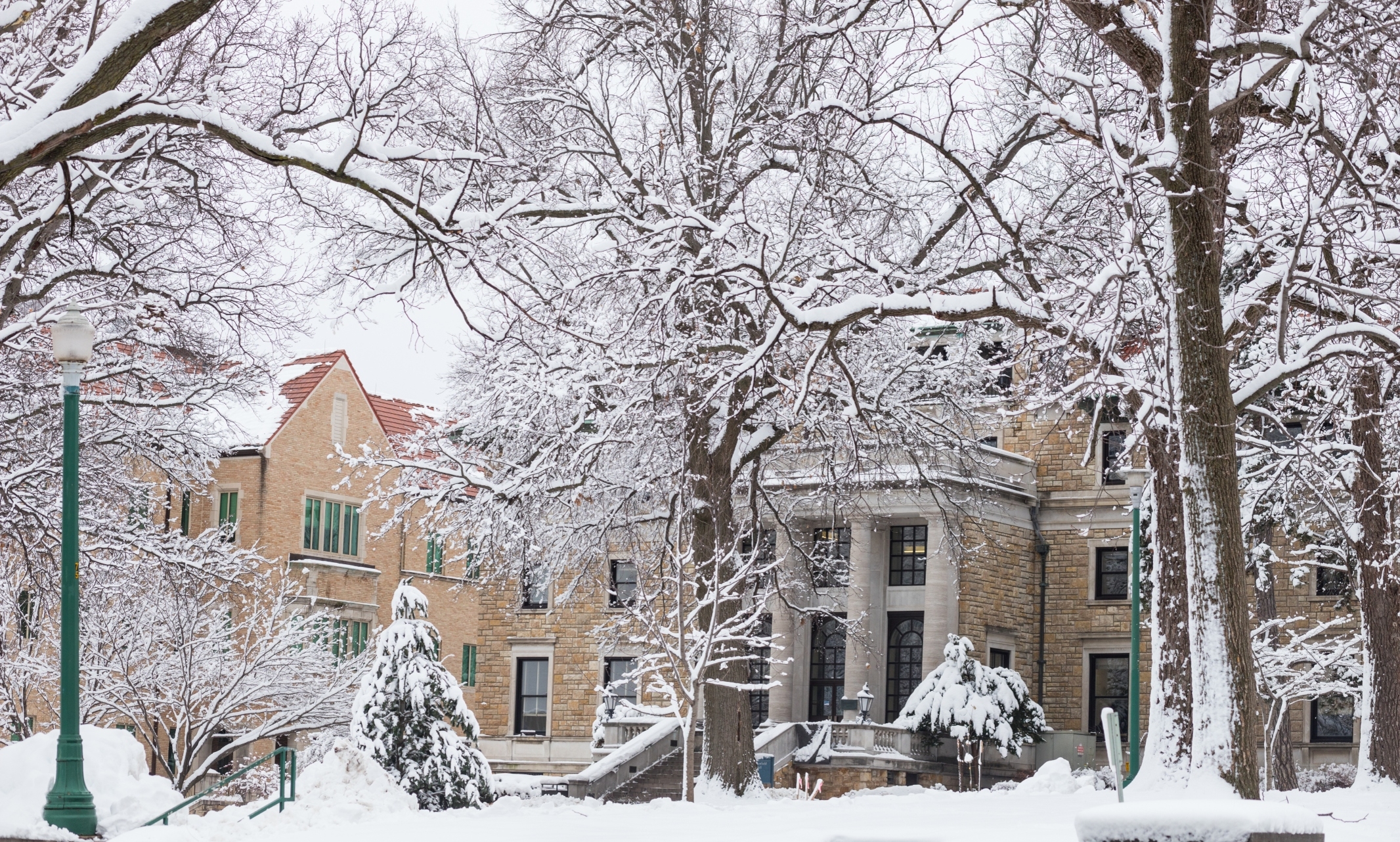
Here’s how to give
While the UMKC campus is closed during Winter Break, it’s still easy to make a year-end gift by observing the following guidelines.
UMKC offices will be closed Monday, Dec. 26 through Monday, Jan. 2. All gifts must hit UMKC Foundation accounts by Dec. 31 to receive tax credit for the 2022 calendar year. Checks and cash need to be postmarked on or before Dec. 31.
Credit card and stock gifts must hit the UMKC Foundation accounts by Dec. 31 to receive tax-credit for the 2022 calendar year. Checks and cash need to be postmarked on or before Dec. 31.
The date UMKC receives and processes checks and cash from the mail has NO impact on a donor’s taxable year contributions. The “gift date” for the IRS is the date the donor relinquished control, not the date the gift is processed.
Availability and Contacts
The Office of Gift Processing will be available Friday Dec. 30 from 8 a.m. to noon to accept year-end gifts. The Office of Gift Processing will be closed during the remainder of winter break and will re-open with regular business hours on Tuesday, Jan. 3.
The UMKC Foundation Office will be closed during winter break. A few staff will be on rotation remotely during the period. Should you have any inquiries during that time, please call 816-235-5778 and someone will return your call.
For any stock gifts or wire transfers, please contact Tram Nguyen at nguyentram@umkc.edu for the transfer form and DTC instructions. Stock gifts must be received into the account on or before Dec. 31 in order to be reflected in 2022 tax period, per the IRS.
Inquiries about all other year-end gifts can be directed to Sara Hampton at 816-235-5329 or via email to umkcgiftprocessing@umkc.edu. The Office of Gift Processing will also be taking calls at 816-235-1566 during the office hours listed above.
Gift Timing
Checks must be received in the Gift Processing office by Friday, , Jan. 13, 2023, in an envelope postmarked on or prior to Dec. 31, 2022, to be credited in the 2022 tax year. Gifts received after that date will not automatically be included in processing for the annual tax receipt. If the envelope received is postmarked after Dec. 31, it will be counted as a 2023 gift.Donors should send their checks to the address below:
UMKC Office of Gift Processing 112 Administrative Center 5115 Oak Street Kansas City, MO 64112
Stock or Mutual Funds – Please contact Tram Nguyen at nguyentram@umkc.edu for the transfer form and DTC instructions. Stock gifts must be received into the account on or before Dec. 31 in order to be reflected in 2022 tax period, per the IRS.
In order to liquidate the stock gift, it is required to provide the donor’s name, number of shares, security, expected date of transfer and area for where the gift is intended. This information can be completed on the transfer form or sent via email. Stock gifts will not be liquidated until confirmation of this information is received.
Mutual funds take an additional 3-5+ business days before posting to our account. Please advise your donors to have their brokers initiate any mutual fund transfers no later than Dec. 20. Regular equity stock takes 24 hours to post to our account.
Credit card transactions must be received by the Office of Gift Processing by noon Dec. 31 to run that day and count as a year-end gift. Credit card gifts will be accepted through the online UMKC Foundation website until midnight on Dec. 31 and will be reflected as a 2022 gift. Any online credit card gifts received after midnight Dec. 31st will be dated in January.Gifts received after hours may be deposited in the night deposit box located beside the Cashiers Office at Admin Center 112 and will be processed the following business day. Credit card gifts received through the lockbox will be dated the following business day.Pursuant to Curators Rules 208 and 212, all gifts should be transferred, with original documentation (including postmarked envelopes), to the Gift Processing Office within 24 hours of their arrival to any school, college or department.
Additional Reference Information
https://www.umkc.edu/news/posts/2021/december/donation-process-during-umkc-campus-closure.html
https://umkcfoundation.org/donation-process-during-umkc-campus-closure/
Dec 23, 2022
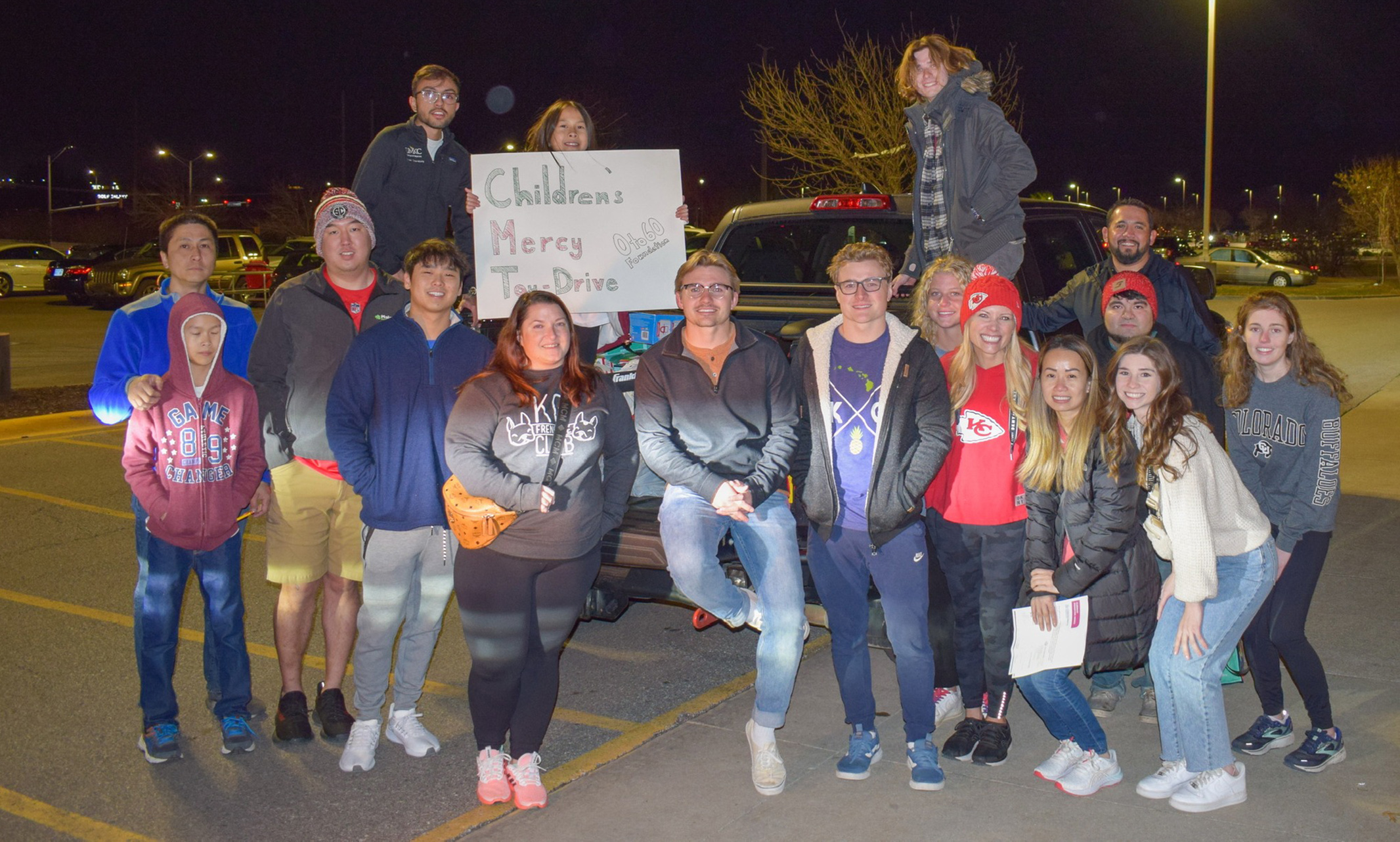
Parade of exotic cars delivers toys and gifts to Children’s Mercy-Kansas City Hospital
Santa drives a Lamborghini. A Ferrari. Take your pick of sports cars, police cars and fire trucks, too.
That was the case on December 11 when a couple of UMKC School of Medicine students who also happen to be car enthusiasts organized Operation Santa’s Sleigh, a parade of more than 30 exotic cars with police and fire department escort that delivered nearly $11,000 of toys and gifts to Children’s Mercy-Kansas City Hospital.
“Many kids get sick and find themselves in the hospital during the winter holidays, which is supposed to be one of the happiest times of the year,” said UMKC medical student Rohan Chakrabarty. “We work closely with Children’s Mercy Hospital, so we chose to partner with them in a toy-drive project with a car-enthusiast twist.”
Chakrabarty and classmate Dylan Hailey are self-described car fanatics. Earlier this year the two decided to put their passion for cars to work organizing car shows and related charity events to benefit causes related to health care.
The pair organized their first event, a car show with the theme Cars Beyond the Boulevard, last May to benefit Care Beyond the Boulevard, a mobile medical clinic that serves the homeless and poverty stricken in downtown Kansas City. With the help of some of Kansas City’s leading car clubs, their show drew nearly 300 cars and raised more than $12,000 for the clinic.
“We had some goals in mind about how many cars we wanted and how much money we wanted to raise and we smashed all of them,” Hailey said. “It was awesome. We were just so stoked by how successful it was.”
It was enough that the pair went a step further in September, working with a lawyer the pair created their own non-profit organization. The 0-to-60 Foundation partners with some of Kansas City’s top car clubs, such as KC Exotics & Supercar Club and the Dream Team Car Club KC, to organize charity events.
“They have been super welcoming of us and, honestly, they really have become our friends and the community people we can turn to if we have questions about things,” Chakrabarty said. “We just used our passion and started networking with a bunch of these people. Obviously, they have a shared passion with us with cars and they liked hearing our story.”
Chakrabarty and Hailey put together an executive board for the 0-to-60 Foundation and with the help of medical students Lara Makhoul, Shelby Soukup and Isabella Boedefeld and others, assembled teams of nearly 50 students from throughout the UMKC community to help the cause.
The next idea was to create one big event that anyone – car enthusiast or not – could get involved with. That became Operation Santa’s Sleigh. Reaching out to local companies and doing fundraisers, the foundation raised $10,832 dollars. More than 20 UMKC students and car club members then met to participate in two toy buying events at local Target stores. The first event filled more than 12 shopping carts with purchases.
The group also reached out to the Kansas City police and fire departments, which agreed to get involved and provide an escort for an exotic car parade that totaled nearly 50 vehicles from Kansas City’s World War I Memorial to Children’s Mercy to deliver the toys.
Many of those went to the hospital’s Snowflake Shop, which will allow families and patients to pick up gifts at no cost. Others will go to units throughout the hospital that can be used communally, Chakrabarty said.
“I can’t imagine being a kid during Christmas and having to be in a hospital, not to mention the other struggles those families are experiencing during this time,” said Chakrabarty, who had his own hospital experience as a child who underwent an open-heart surgery. “You put all that together and it made me feel like this would be something good for us to do.”
Chakrabarty and Hailey say they already have their next event in mind, organizing another car show to help Care Beyond the Boulevard raise funds to purchase and equip a new clinic bus.
“We think we could definitely blow some of the donations that we’ve had so far out of the water,” Chakrabarty said. “We’re thinking really big and want to make sure we make a really big impact. We have the gears turning in our heads.”
Of course, Chakrabarty is willing to admit that there may be a little more than altruistic motives behind their efforts.
“Some of these events are selfish for us because we get to see all the cars, and in some cases get to drive some of these cool cars,” he said. “That’s really awesome. It kind of comes full circle.”
Dec 20, 2022
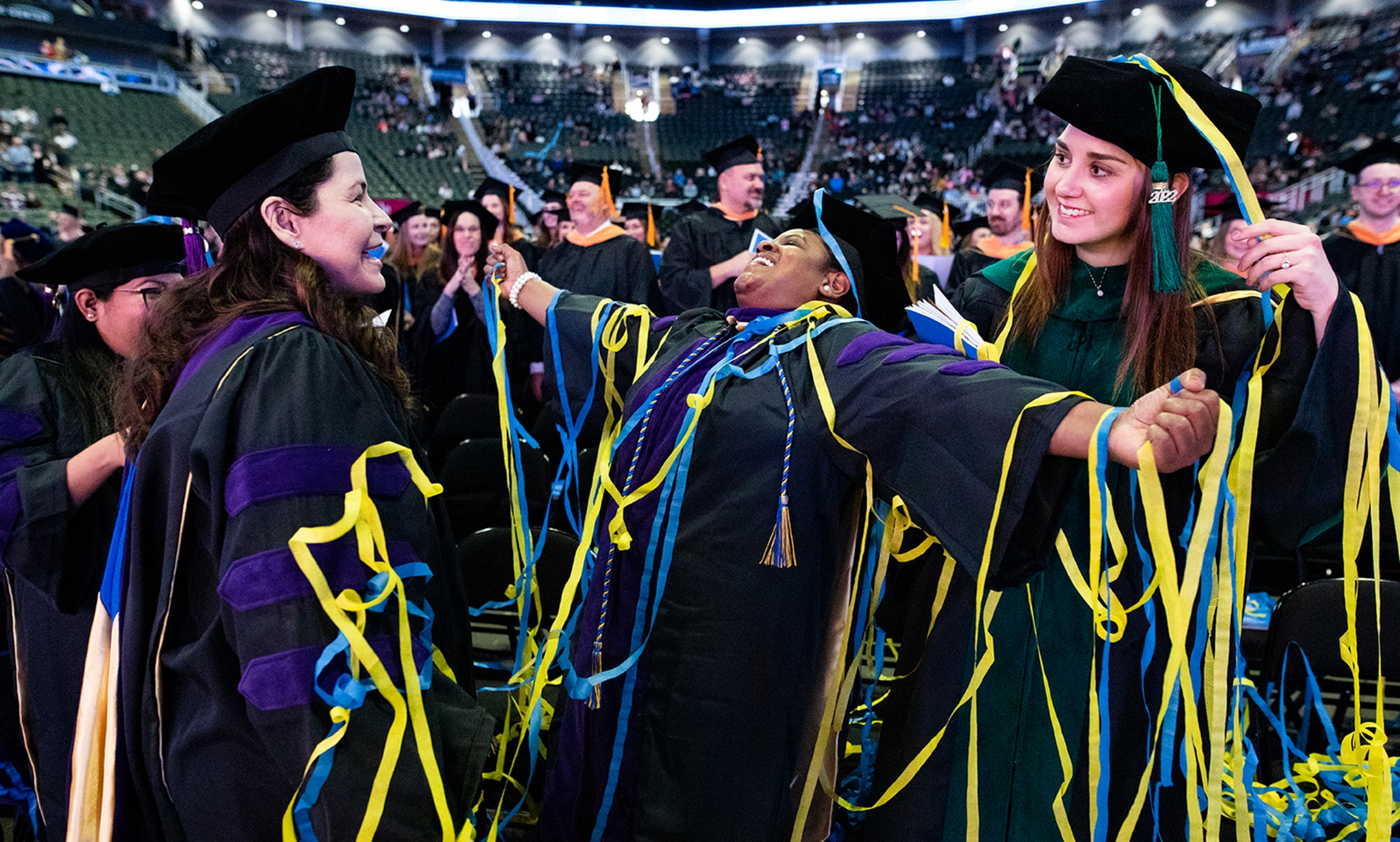
More than 800 degrees conferred
Kansas City’s university welcomed more than 800 graduates and their families at T-Mobile Center for the 2022 Mid-Year Commencement Ceremony Sunday.
University of Missouri-Kansas City Provost and Executive Vice Chancellor Jenny Lundgren, Ph.D. presided as Chief Marshal of the event.
“We are delighted to be here today at the beautiful T-Mobile Center to continue our new tradition of celebrating our graduates at iconic Kansas City locations,” said Lundgren. UMKC Chancellor Mauli Agrawal reminded graduates of their perseverance. Agrawal said that having lived through numerous challenging events such as terrorist attacks, wars, economic hardships and a global pandemic, graduates have already shown they are up to any challenge.“You have acquired the knowledge, confidence and skills you’ll need to navigate an ever-shifting landscape,” said Agrawal. “More challenges surely await you, but I know, and you know that you are up those challenges.”Two-time Emmy Award winner, UMKC alumnus and announcer for the Washington Nationals baseball team Bob Carpenter (B.A. ’75) gave the keynote address. Carpenter told graduates to expect the unexpected as things do not always go to plan. But he stressed that even in adversity, attitude is everything.“I hope as we go along, wherever you go in your career or in your life, that you have a spirit of gratitude,” said Carpenter.
Carpenter also advised graduates to keep a positive mindset and to share their success with others. “Don’t ever leave out a word of encouragement for those who you are working with, or those who you are working for,” said Carpenter. “When you achieve success, stop and think, ‘What did I do to get here, how do I stay here and who helped me get here?’ Then take that success and use it to help somebody else.”Following the event, graduates met their loved ones for hugs, photos and celebrations of their achievements.
Dec 18, 2022
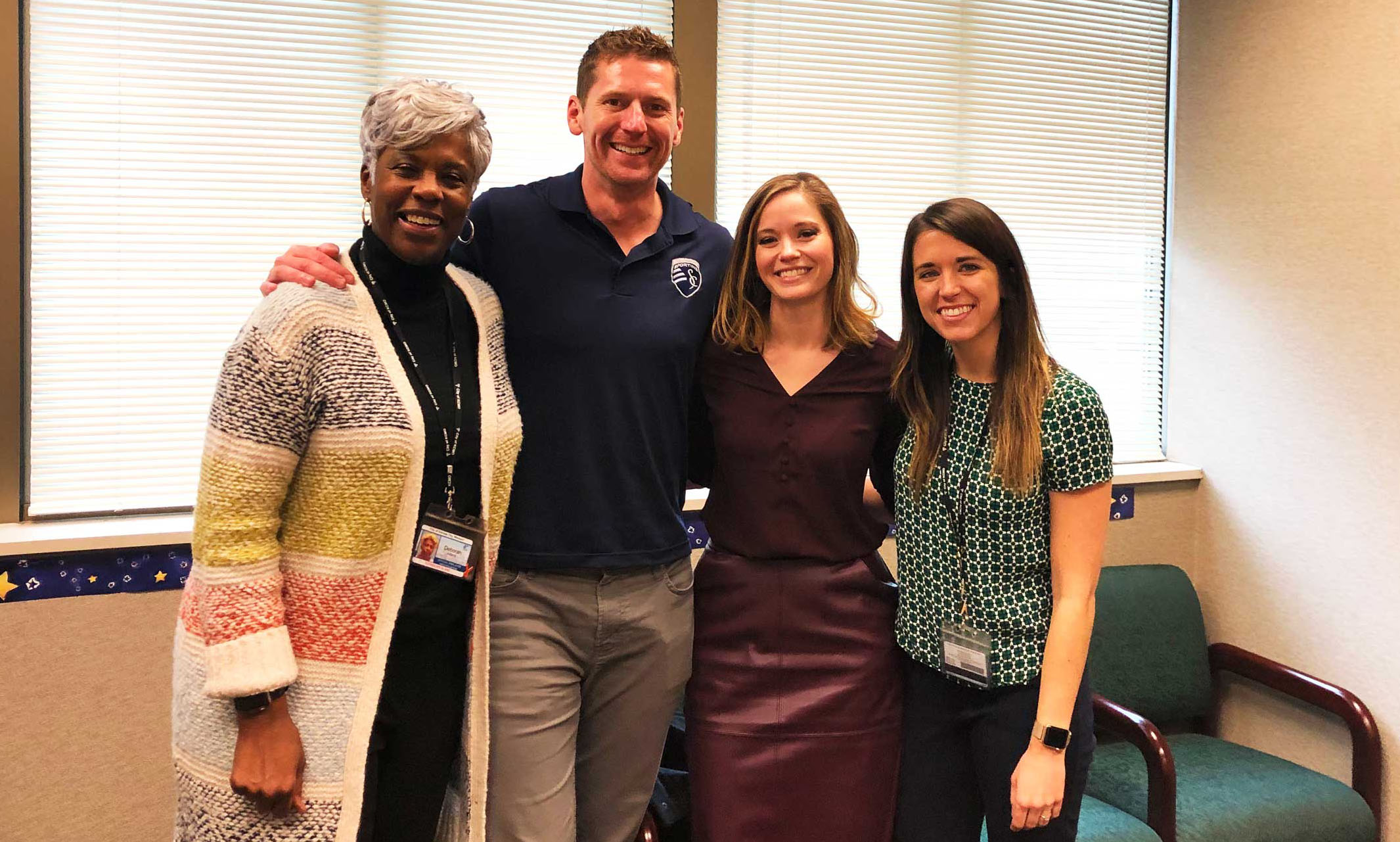
Joseph Lightner analyzed program through the Kansas City Health Department
There’s a shift happening in HIV prevention and care, and UMKC public health researcher Joseph Lightner, Ph.D., is gathering the data to back up that shift. According to Lightner, an assistant professor in the UMKC School of Nursing and Health Studies, HIV is no longer a disease of behavior, but a disease of poverty. The current medications used to treat the disease are so effective that a person with HIV who is following the regimen can live their life with a nearly undetectable amount of HIV in the blood.
According to the National Institute of Allergy and Infectious Diseases, there is an overwhelming body of clinical evidence firmly establishing that when HIV is undetectable it becomes untransmittable, a concept the scientific community has dubbed U=U. Thus, encouraging and maintaining treatment for HIV is a powerful weapon in fighting the disease.
Researchers like Lightner are looking at interventions, beyond antiretroviral therapy, that help individuals with HIV successfully achieve an undetectable viral load, the amount of HIV in the blood. One such initiative Lighter studied is KC Life 360, a program through the Kansas City Public Health Department that provides housing and employment support to low-income, uninsured and under-insured persons living with HIV in racial and ethnic minority communities.
According to Lightner, it’s a critical group in HIV prevention, since most new HIV cases are occurring in these marginalized individuals. That knowledge has led the HIV care community to adopt a housing-first model nationally because data shows that homelessness and housing instability are major threats to HIV management.
“When someone is living on the street, they're not going to take their meds. It's not feasible for an unhoused person to carry around a three-month supply of their HIV meds,” Lightner said. “If we get these individuals housed and they have a safe place to take and store their medications, downstream that translates into treatment as prevention and reduces later infections.”
In conjunction with the Kansas City Health Department, Lightner examined the outcomes of the intervention to improve housing and employment for the individuals in KC Life 360. His research found that the individuals within the study were 25 times more likely to be housed and twice as likely to have improved their employment status. Most importantly, the data showed that the viral suppression improved among those within the study.
“What I want people to see from this research is that to solve the HIV epidemic, it's going to take multi-level interventions that focus on the whole person," Lightner said. "These are people who want to be members of society just like anybody else."
Although Lightner’s primary research focus within public health is physical activity, he continues to come back to HIV research. His team also has studied how HIV stigma affects individuals professionally and socially, as well as how best to provide treatment to those living with HIV. He said that the good thing about public health is that it’s broad, and the research methods translate from one field to another.
For Lightner, there’s also a deeply personal connection to HIV research.
“As a gay kid growing up in the 1980s, my family always told me that AIDS is a death sentence if you are gay. Couple that with having an uncle die of HIV/AIDS complications in the 1990s, the disease has been a part of my life since childhood,” Lightner said. “I think many gay men have similar experiences. By doing this research, I hope we can destigmatize the disease and make the world a better place for our friends and family.”
Dec 15, 2022
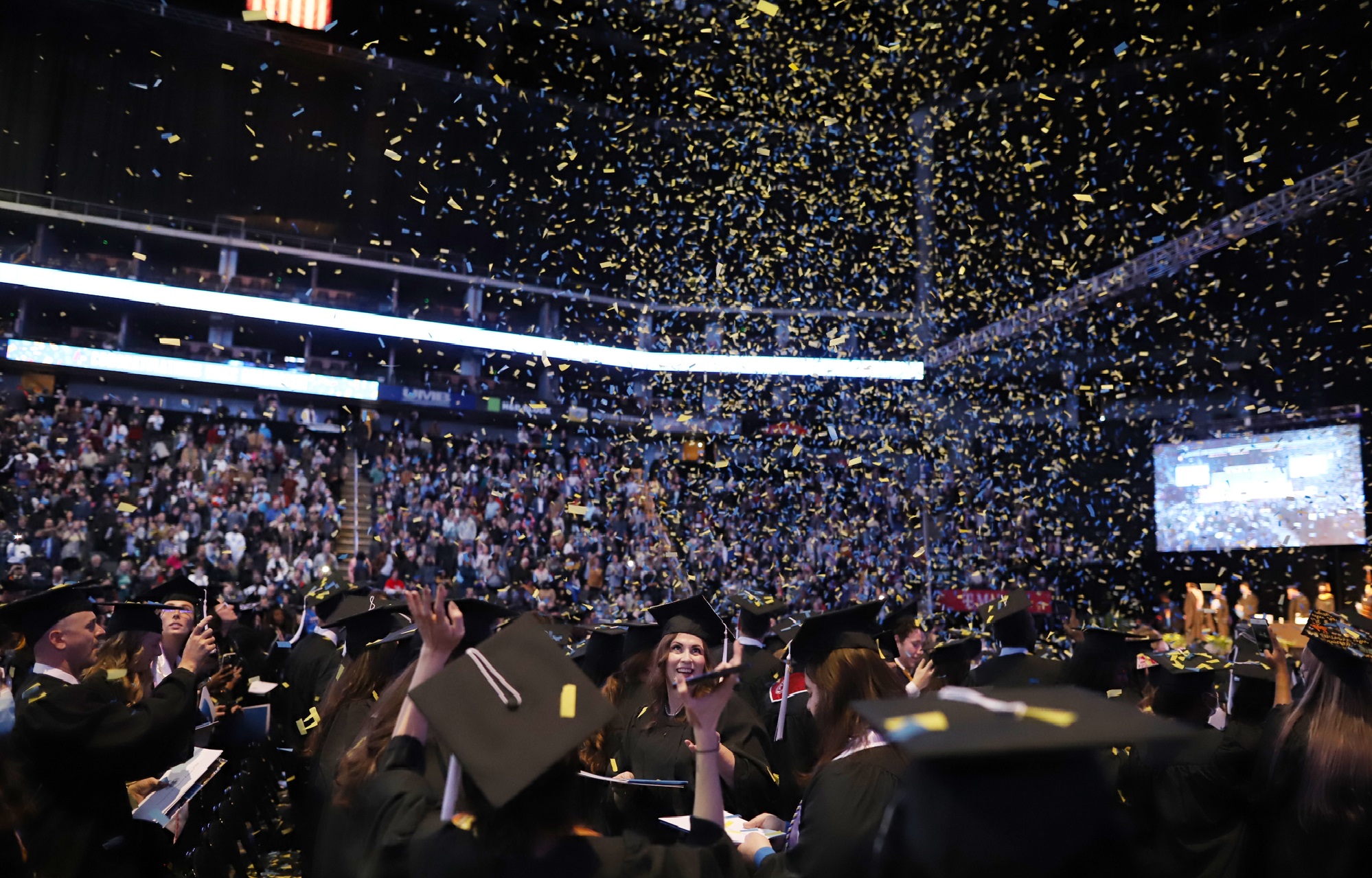
Students reflect on their hard work and achievements during their time at UMKC.
On Sunday, December 18, UMKC’s newest graduating class will walk across the stage, receiving their diplomas after years of hard work and dedication.
Each grad embarked on an individual journey full of professional and personal growth, culminating in a commencement celebration in front of family, friends and peers. Here’s an overview of two such journeys.
Amelia Hess – Master of Arts in Counseling – School of Education, Social Work & Psychological Sciences
Amelia Hess began her collegiate journey at another school, but didn’t find her place among that university community.
She switched to UMKC for her sophomore year and earned her undergrad and, eventually, her master’s degree.
“It’s a microcosm of the Kansas City community. You have all these different people coming here, different majors, different programs,” Hess said. “I was very, very much involved in high school and so I knew when I got to college, I wanted to continue that.”
She found her place at UMKC through involvement with campus organizations, including the Sexuality and Gender Alliance (SAGA), serving as president and the student MC for the Pride Breakfast; the National Alliance on Mental Illness (NAMI); and Roos for Mental Health. She also worked as a residential life coordinator at the Hospital Hill apartments.
“I found places where I could be my different selves,” Hess said. “I found places where I could really enjoy studying psychology and the professional world, but I also found the SAGA council where I could have a leadership position on a queer organization which is hard to find in other places.”
Throughout her career at UMKC, she met with professors, leaders and fellow classmates who have helped her set up her post-graduation plans at an area mental health facility as a therapist associate.
“I’m going to help them implement what they call a psychedelic assisted therapy program, which is kind of a new area of mental health and therapy where people are being administered medicinal treatments for depression, anxiety, PTSD,” Hess said. “I get to take leadership and apply some of those other skills I developed along the years to help create a program and hopefully get it to the point where hopefully one day new grads will come and work there with us.”
Hess credits her willingness to get involved in different groups at UMKC with helping her feel prepared for the next steps in her career.
“I think UMKC, since it is in the metropolitan area and it is a bigger school with more opportunities and connections to the city, is a great opportunity for someone who wants to change schools because you’re supported, but you’re also treated like an adult,” Hess said.
Christian Dang – Bachelor of Science in Biology – School of Science and Engineering
Originally from about 2.5 hours away in Springfield, Missouri, Christian Dang landed at UMKC after looking for an affordable education that also allowed for a change of environment.
“I love Kansas City because of the diversity and everything it provides,” Dang said. “I really like the size of UMKC. It’s like a medium sized institution so it’s not too small or too large and I feel like you can really make more meaningful connections with faculty members that way.”
Dang’s interest in biology started in high school, but when he got to UMKC, he gained a passion for research.
“I still am interested in medicine, but I’m also interested in research, which I’ve been involved a lot with at UMKC,” Dang said. “And I really do think UMKC provides a lot of ways to get involved in research no matter what discipline you are in.”
A four-year Honors Program student, Dang presented his project, “A Self-Directed Mutagenesis Approach for Examining the Drosophila Tribbles Recognition Degron in the C/EBP Transcription Factor SIBO,” at the Summer Undergraduate Research Opportunities (SUROP) Poster Symposium. He also served as a student reviewer and marketing and design coordinator for UMKC’s undergraduate research journal, Lucerna.
He said commencement “is going to be a surreal moment for me having spent these last four years here at UMKC and knowing what a difference it has made in my personal career and personal development.”
After graduation, Dang will travel to Bethesda, Maryland, where he will take part in fellowship at the National Institute of Health (NIH) where he will conduct biomedical research in the Muscle Energetics Laboratory. Only 24 percent of applicants were selected over the past year, according to the NIH.
“It’s definitely humbling, knowing that you’ve been given this opportunity that not everyone has been able to receive,” Dang said. “Knowing to acknowledge the work you’ve done to get this part of your life and knowing people have trust in you that you’re doing to do great things in your life, and you continue to put in the work and effort to be the best you can.”
Dang credits the opportunities provided by UMKC for setting him up to succeed after receiving his diploma and believes others can achieve the same whether they are from the area or from farther away.
“Even from outside Kansas City I would recommend going here for college just because of the community here and the ease of meeting faculty members and peer mentors who will help you and the wide range of student organizations that are available here,” Dang said. “There’s really a lot to offer at UMKC that I feel not a whole lot of people know about.”
Dec 15, 2022
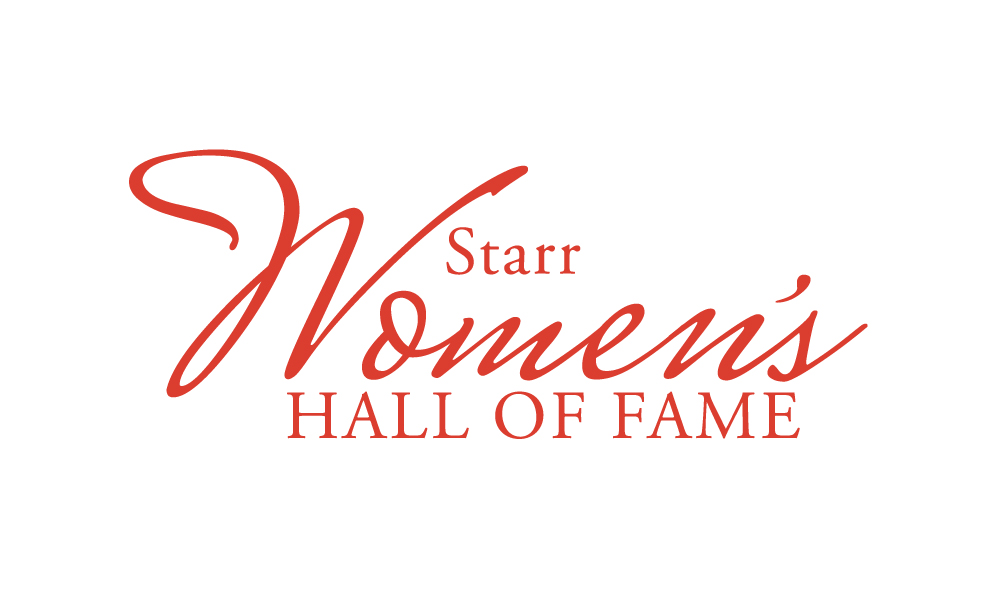
Organization honors Kansas City influential women, past and present
From a protector of parks to a pioneer in LGBTQIA advocacy, from a former U.S. senator to a Major League Baseball owner, from groundbreakers for women in finance to champions of human rights, neighborhoods and Latino issues – the 2023 inductees into the Starr Women’s Hall of Fame have made extraordinary and enduring contributions to their fields of work.
The UMKC Starr Women’s Hall of Fame will induct its fifth class honoring Kansas City women leaders on March 21, 2023, at the Kauffman Center for the Performing Arts. The Kansas City community has benefited from the work of outstanding women from its earliest beginnings, and the Starr Women’s Hall of Fame recognizes their extraordinary accomplishments.
The Hall of Fame recognizes women with noteworthy ties to the Kansas City area who have made important and enduring contributions in their fields of work. Alicia Starr and Michelle Wimes are co-chairs of the 2023 induction ceremony.
“We are honored and excited to recognize these remarkable women who dedicated their time and talents to improving Kansas City for all its citizens,” Starr says. “We celebrate their inclusion in the Hall of Fame so that their stories will inspire future generations of women in Kansas City and beyond.”
The Hall of Fame includes a Wall of Honor on display in the UMKC Miller Nichols Library, as well as an archive of important papers, images and artifacts of the enshrined members. Money raised from the induction event will assist in further development of the digitization and acquisition of materials for the Hall of Fame archives, ensuring that the works of these exceptional women will be accessible in perpetuity not only to community members, but also to researchers world-wide.
The eight outstanding women in the 2023 class of inductees will be honored in a ceremony on Tuesday, March 21. Festivities will commence at 4 p.m. at the Kauffman Center for the Performing Arts. Sponsor opportunities are available at www.umkc.edu/starrhalloffame/.
Event speaker and individual ticket information will be released in January 2023.
The new inductees are:
UMKC alumna Karen L. Daniel (MS ’81 accounting) is a recognized leader in Kansas City. The first African American woman to be a Major League Baseball owner since her addition to the Kansas City Royals ownership group in 2020, Daniel is retired executive director, CFO and president of Global Finance and Technology Solutions at Black and Veatch. She was the first African American female to chair the Kansas City Chamber of Commerce and has been a leader and advocate for restoration of the Liberty Memorial Tower at the National World War I Museum and Memorial. She has created a legacy fund for scholarships to support Black college students. President Barack Obama named Daniel vice chair of the Advisory Council on Doing Business in Africa in 2015.
Anita B. Gorman has been an advocate for area parks, recreation and conservation for six decades. She fought to save the Native American Hopewell archaeological site, which became a part of the Kansas City Parks system. In 1979, she was the first woman appointed to the Kansas City Parks and Recreation board. In this role she raised funds to establish a conservation center in the urban core of Kansas City. Gorman was the first woman to chair the Missouri Conservation Commission and helped establish the Missouri Conservation Heritage Foundation. She received the Pugsley Medal from the American Academy for Park and Recreation Administration in 2017 for her contribution to the promotion, development and conservation of public parks in the United States.
Lea Hopkins has been an advocate and activist for LGBTQIA communities for more than four decades. She co-founded the Christopher Street Association, a gay and lesbian advocacy organization, in 1977 and organized the first Pride parade in Kansas City in 1979. She founded the Kansas City Gay Injustices Fund, which provided legal support for LGBTQIA people who were arrested based on their orientation. She was a member of the inaugural leadership team of the UMKC Gay Students’ Union. Hopkins is an accomplished poet, watercolor artist and collagist.
UMKC alumna Alice Kitchen (MPA ’89) has been a longtime advocate for human rights, healthcare and children and women’s issues. She is co-founder of the Women Quality Coalition and the Child Protection Center. A longtime director of social services at Children’s Mercy Hospital, she was a board member of the Kansas City Housing Authority who helped with neighborhood cleanups and worked to help young mothers obtain health insurance. She was honored by the White House as a Champion of Change for her work on education for the Affordable Care Act in 2015.
Community activist and a leader for the Ivanhoe Neighborhood Council in Kansas City, Mo., Margaret J. May served as the executive director of the Ivanhoe Neighborhood Council from October 2001 to December 2017. During her tenure, the council became a community development corporation that develops new housing and rehabilitates existing homes. The Downtown Council of Kansas City recognized May in their first class of Urban Hero Awards in 2005. She has served on the City of Kansas City Plan Commission and the Kansas City, Missouri Community Development Entity, which is now known as Alt Cap.
Sen. Claire McCaskill has dedicated her life to serving women, families and her community. An accomplished attorney, she was the first woman elected as Jackson County, Missouri prosecutor, and the first woman to be elected U.S. Senator from Missouri. In 2004, she defeated incumbent Governor Bob Holden in the Democratic primary, becoming the first candidate to defeat an incumbent Governor in a primary election in state history, although she lost in the general election. She served as a U.S. senator from Missouri from 2007 to 2019. During her term in the Missouri House of Representatives, she chaired the civil and criminal justice committees. She is currently a political analyst for NBC News and MSNBC.
Barbara Pendleton paved the way for Kansas City women interested in careers in finance. She started her career in banking as a messenger with City National Bank. She became chairperson of City Bank at Crown Center and retired as an executive vice president of United Missouri Bancshares, Inc. An active volunteer in community organizations, she was often the first woman member, officer or president. A founding board member of the Central Exchange, she also chaired the UMKC Women’s Center Advisory Committee. She worked for several mayors, including Mayor Kay Barnes, who appointed her to work on downtown Kansas City revitalization.
UMKC alumna Freda Mendez Smith (BA ’80) is a champion and advocate for the Latino community in Kansas City. A current advisory board member for the Women’s Foundation of Kansas City, she has worked with MANA de Kansas City for four decades, serving as a board member of the national organization twice. Smith is an advocate and mentor to members of the Latino population who encourages people to become engaged in community service, including serving on local boards of directors. She has been a volunteer board member at many community organizations including the UMKC Hispanic Advisory Board, the UMKC Women’s Council, Greater KC Hispanic Heritage and Mattie Rhodes Center.
The Starr Women's Hall of Fame recognizes extraordinary Kansas City women and preserves the history of their accomplishments. To date, The Hall of Fame has inducted 37 Kansas City women, half of them posthumously.
“These women are social reformers, volunteers, philanthropists, business executives, civic leaders, activists and educators,” Wimes says. “They are neighborhood leaders and grassroots organizers, from yesterday and today, both famous and unsung. They are movers and shakers whose tireless commitment to community has made Kansas City a better place to live.”
The Hall of Fame is a repository for their legacies, offering an extensive archive of these women’s activities and achievements available to researchers, educators and historians.
Stuart Hinds, curator of special collections at the Miller Nichols Library, says it’s imperative to preserve these stories.
“These women have had a significant influence on the history and development of the region. Collecting these stories of Kansas City women ensures a more inclusive and thorough historical narrative. Preserving and more importantly, publicly sharing, these stories, allows girls and young women to learn how to overcome the challenges they encounter as they move forward in the world as women.”
A permanent display honoring Hall of Fame members is now open to the public on the third floor of the Miller Nichols Library at the University of Missouri-Kansas City. The library is at 800 E. 51 St., Kansas City, Missouri.
By sharing their stories, the Hall of Fame encourages and inspires women everywhere. Biographies of all of the inductees are available at www.umkc.edu/starrhalloffame/.
The Hall is named in honor of Martha Jane Phillips Starr, a legendary activist and philanthropist who blazed a trail for family issues and women's rights. She played an important role in establishing the university’s Women's Council and the Graduate Assistance Fund, which today provides financial assistance to female students. Starr died in 2011 at the age of 104.
The hall of fame is made possible through the Starr Education Committee, Martha Jane Starr’s family and the Starr Field of Interest Fund, which was established upon her death through the Greater Kansas City Community Foundation. The idea for the Starr Women’s Hall of Fame stemmed from Starr Education Committee members.
The civic organizations that advocate on behalf of women and family issues and have signed on in support of the Starr Women’s Hall of Fame include: American Association of University Women, American Business Women’s Association, Association for Women Lawyers of Greater Kansas City, Central Exchange, CBIZ Women’s Advantage, Girl Scouts of NE Kansas and NW Missouri, Greater Kansas City Chamber’s Executive Women’s Leadership Council, Greater Kansas City Women’s Political Caucus, Jackson County Missouri Chapter of the Links, Inc.; Junior League of Kansas City, Missouri; KC Metro Latinas, Kansas City Athenaeum, Kansas City Young Matrons, OneKC for Women, SkillBuilders Fund, Soroptimist International of Kansas City, Soroptimist Kansas City Foundation, UMKC, UMKC Women’s Center, UMKC Women’s Council, UMKC Women of Color Leadership Conference, United WE, WIN for KC, win|win, Women Leaders in College Sports, Women’s Public Service Network, Zonta International District 7 and Zonta Club of KC II.
Dec 14, 2022
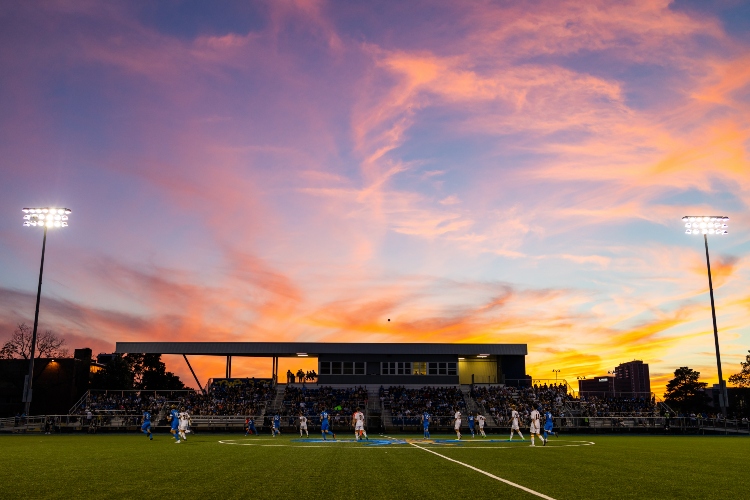
A look back at some of our favorite memories
Our campus photographers spend each day documenting the stories of our students, faculty, staff and community.
Each year they compile some of their favorite images of the connections formed, memories made and moments shared for us to enjoy. Here are the top photos of 2022.
Dec 09, 2022
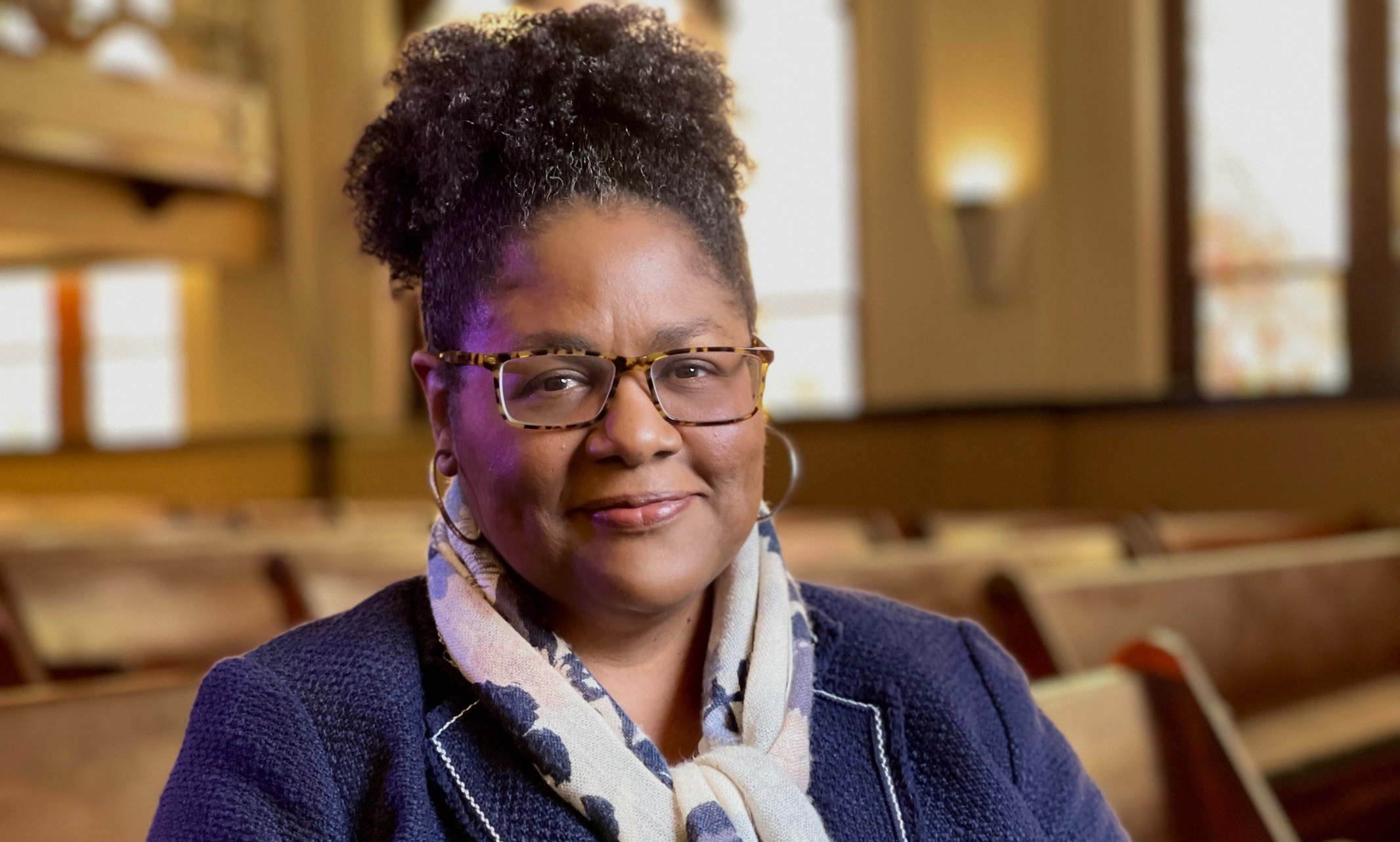
Trial is a continuation of Jannette Berkley-Patton’s Faithful Response to COVID-19 project.
Jannette Berkley-Patton, Ph.D., director of the UMKC Health Equity Institute and a professor in the Department of Biomedical and Health Informatics at the School of Medicine, has received a nearly $2.2 million, two-year grant from the National Institutes of Health for a project designed to increase testing and treatment for COVID-19 by partnering with African American churches and health agencies.
The effort is part of an NIH initiative called Rapid Acceleration of Diagnostics-Underserved Populations (RADx-Up); a consortium of community-engaged research projects designed to increase access to COVID testing in underserved communities.
The randomized trial will study the effectiveness of a religiously tailored intervention in motivating adult African American church and community members to be tested and to seek treatment for COVID-19.
Working with 12 community churches in the Kansas City area, the program will engage the help of pastors to promote testing and demonstrate to their congregations how testing works. Among other services, the churches will also offer rapid COVID testing and provide support and referrals to treatment to those who test positive.
“Our project will examine whether people really want to get tested and seek treatment if we use a religiously tailored approach,” Berkley-Patton said. “We will work collaboratively with our churches to encourage people to not only get the rapid COVID test, but to get treatment that could potentially help reduce their symptoms and likely keep them out of the hospital.
“We’re hoping this approach can be informative not only for this study but for other types of rapid diagnostics that can lead to treatment, especially if the referral is made quickly and support is provided.”
The new grant-funded study is a continuation of Berkley-Patton’s Faithful Response to COVID-19 project, a two-year, NIH-backed clinical trial that started in January 2021 to promote COVID-19 testing with the African American community with the support of churches and other faith-based and community organizations.
Those efforts were so successful in testing and raising awareness that the Jackson County Legislature awarded a $5 million grant to support Our Healthy Kansas City Eastside, another UMKC Health Equity Institute project that administered nearly 13,000 COVID vaccinations to members of Kansas City’s minority and underrepresented communities in just 18 months. The county recently extended that program as well with the support of an additional $5 million grant.
“In the early days of the pandemic, COVID testing was not available to everyone. Access to testing was particularly limited in underserved communities, which led to the NIH initiative RADxUP,” Berkley-Patton said. “In the initial project, we are demonstrating that people will take the test at a church site – and even more so when the efforts are religiously and culturally tailored.”
The new study will examine the beliefs and practices of those in underserved communities toward rapid COVID-19 self-testing. Researchers also will study the effectiveness of contact tracing as well as care services such as referrals to treatment, health insurance and community resources.
“With this model, many of our Faithful Response materials are packaged in an easy-to-use toolkit that our community partners helped to create, and can be disseminated in print or electronic formats,” Berkley-Patton said. “We’re hoping the toolkit can be widely disseminated across the country if we can show that the first Faithful Response project was effective and double that up with efficacy of the second project.”
Dec 08, 2022
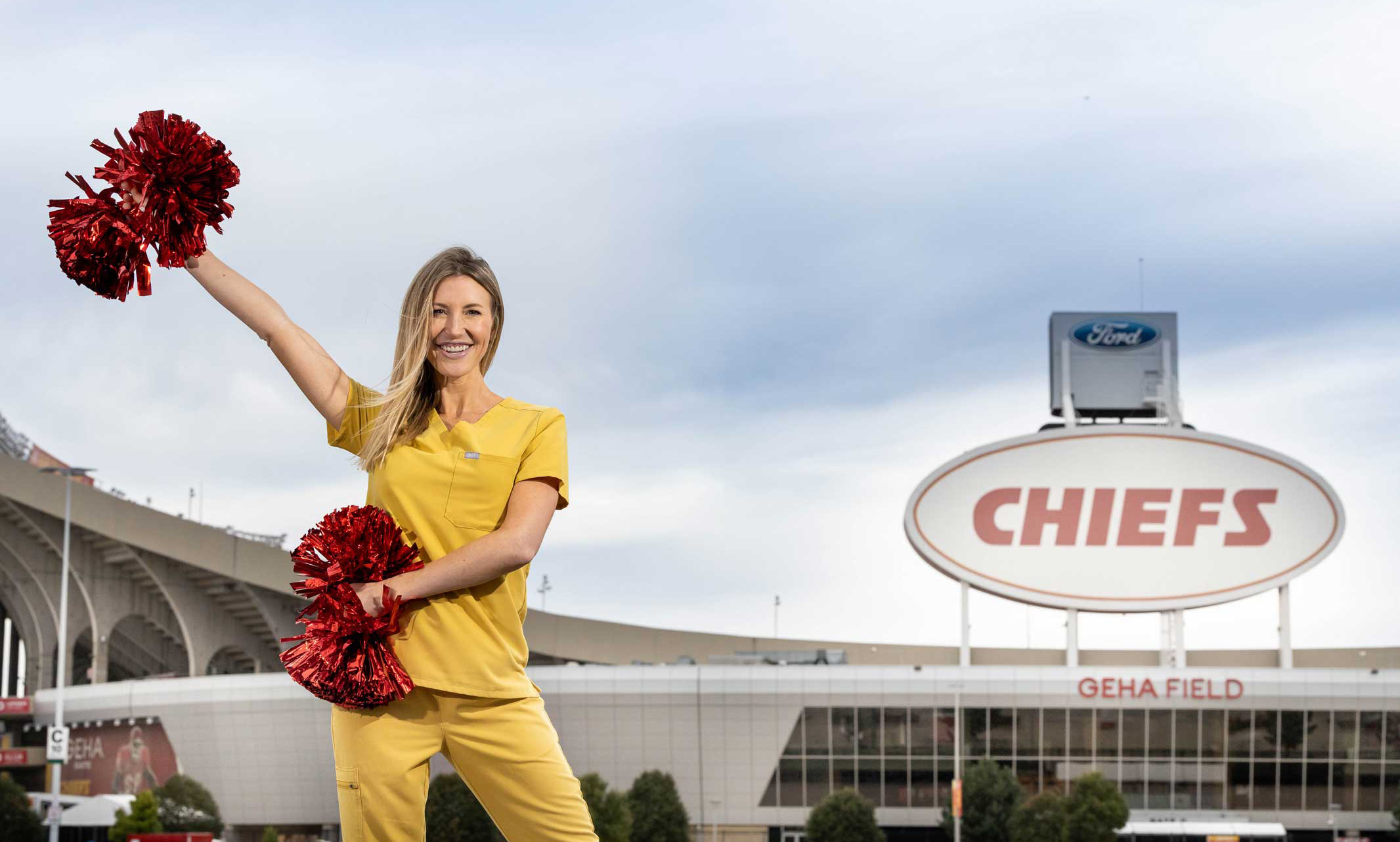
School of Dentistry alumni share a unique link to the Kansas City Chiefs
The connection between cheerleading and the field of dentistry is quite clear for Ashley Hobbs (B.S.D.H. ’11). As a member of the Kansas City Chiefs cheerleading squad, she used her athletic skills to pump up crowds and keep them smiling at Arrowhead Stadium. Now, as a dental hygienist, she’s still focused on bright smiles – but she’s using a different set of skills to motivate and engage with her patients.
“You are their oral health coach,” Hobbs said of her patients. “As a cheerleader, you bring positivity, and you lift everyone up. I do the same for my patients. You are encouraging them to not only improve their oral health, but their overall quality of life.”
Hobbs is a pediatric dental hygienist, a proud alumna and a faculty member at UMKC. And from 2013 to 2016, she was also a Chiefs cheerleader, a unique experience she shares with other School of Dentistry alumni. The school counts several former Chiefs cheerleaders and at least one Chiefs drumline member among its alumni ranks.
These alumni have taken valuable lessons into their careers from their days on the sidelines. For Hobbs, Tim Albright (D.D.S. ’21) and Kathryn Teruya (D.D.S. ’22), the experience reinforced the importance of discipline, teamwork and putting people first.
Smiles in the Crowd and in the Chair
As a member of the Chiefs drumline, the KC Rumble, from 2016 to 2020, Albright was energized by the crowd. Now he gets that feeling from the gratitude of his patients. Whether it’s an undetectable filling or a straightened Invisalign finish, the smiles of his patients take him back to his days drumming in front of 70,000 screaming fans.
“I still experience euphoria whenever I have a solid crown,” Albright said. “Your patient is happy, they’re gleaming. It’s the same look I would get playing music for people. It keeps me going.”
Time in front of fans was not limited to game day. The Rumble and the cheerleaders had public appearances throughout the week. These opportunities to connect with people prepared them for future chairside interactions.
“Everybody has something they’re passionate about. With people who may be apathetic about their dental care, you’re trying to find what sparks them,” Albright said. “Once you find their icebreaker, you’re able to make that connection.”
Public appearances also provided Hobbs an opportunity to hone her pediatric skills. There were often kids excited to meet the cheer squad. Those conversations laid the groundwork for the six years she’s practiced in pediatric dentistry.
“Just learning how to interact with them,” Hobbs said. “I took everything that I learned from the Chiefs and applied it to my work in pediatrics.”
Discipline in Dance, Drumming and Dentistry
Whether drumming or dancing, a common thread emerges: discipline. All three credit the discipline required to succeed in their respective crafts with helping them manage the rigors of dental school.
That discipline was formed back in seventh grade for Albright, when he took up drumming and would practice until midnight every night. Dental school changed his perspective, however.
“I don’t think you need 10,000 hours to master something anymore,” Albright said. “I learned in dental school about the importance of deliberate practice.”
Discipline is also essential in cheerleading because of the demanding schedule. For Hobbs, cheering for the Chiefs felt like a full-time job on top of her full-time job as a hygienist. She had weekly appearances and daily five-hour practices in addition to long game days. She also had fitness testing, mandatory training sessions and extra time in the gym.
“I was newly graduated and new to the dental hygiene profession,” Hobbs said. “It was a struggle juggling both lives.”
Hobbs and Teruya said their love of dance drove them to take on the arduous schedule. Hobbs has a degree in dance and lived in New York, performing with professional dance companies before coming to UMKC. She taught dance while in dental hygiene school.
Dance has been a presence in Teruya’s life since she was three. A former Miss Hawaii (she was crowned in 2017), she’s an experienced dancer in hula, ballet and jazz. She credits the perfectionist nature dancers have to her success in dentistry.
“We always joked on our (Chiefs) dance team that a lot of us are type-A people,” Teruya said. “That correlates well to dentistry. We like things orderly and in a particular way.”
Although the pull toward dance was strong for both Hobbs and Teruya, their priority was always UMKC. Hobbs was laser-focused on becoming a full-time faculty member. Teruya juggled many activities while at the dental school, including the Chiefs cheer squad from 2020 to 2021. But the pursuit she valued most was that of future dentist.
“First and foremost, I moved from Hawaii to Kansas City to be a dental student,” she said.
Team and Community in the Dental Practice
The cheerleading schedule was grueling, Hobbs and Teruya admitted. But they loved being part of a team of women who lifted each other up, both literally and figuratively.
“It’s much more than just dancing on the sidelines,” said Hobbs. “It became a sisterhood where you were supportive of one another and you were in it together.”
During Teruya’s time at UMKC, her two teams joined together for TeamSmile, an event at GEHA Field at Arrowhead Stadium with Chiefs players, coaches and cheerleaders during which UMKC students and faculty provide dental care to underserved children. She got to participate as both a student and a cheerleader.
“It was one of my favorite memories,” Teruya said. “It was really special to be able to celebrate my classmates and connect with the kids.”
The moments standing in front of a crowd at “the loudest stadium in the world” may now be only memories for Hobbs, Teruya and Albright, but those memories serve a purpose. The discipline formed, strong bonds made and feelings that come with energizing a crowd have all made an impact on who they are as dental professionals. The dedication, sense of community and drive to help people connects the worlds of cheer and dentistry.
“Every single year a student will ask, ‘were you really a Chiefs cheerleader?’ and every time I wonder, ‘when will this not be a thing anymore?’” Hobbs said. “But those are some of the best memories of my life and I wouldn’t change it.”
Dec 05, 2022
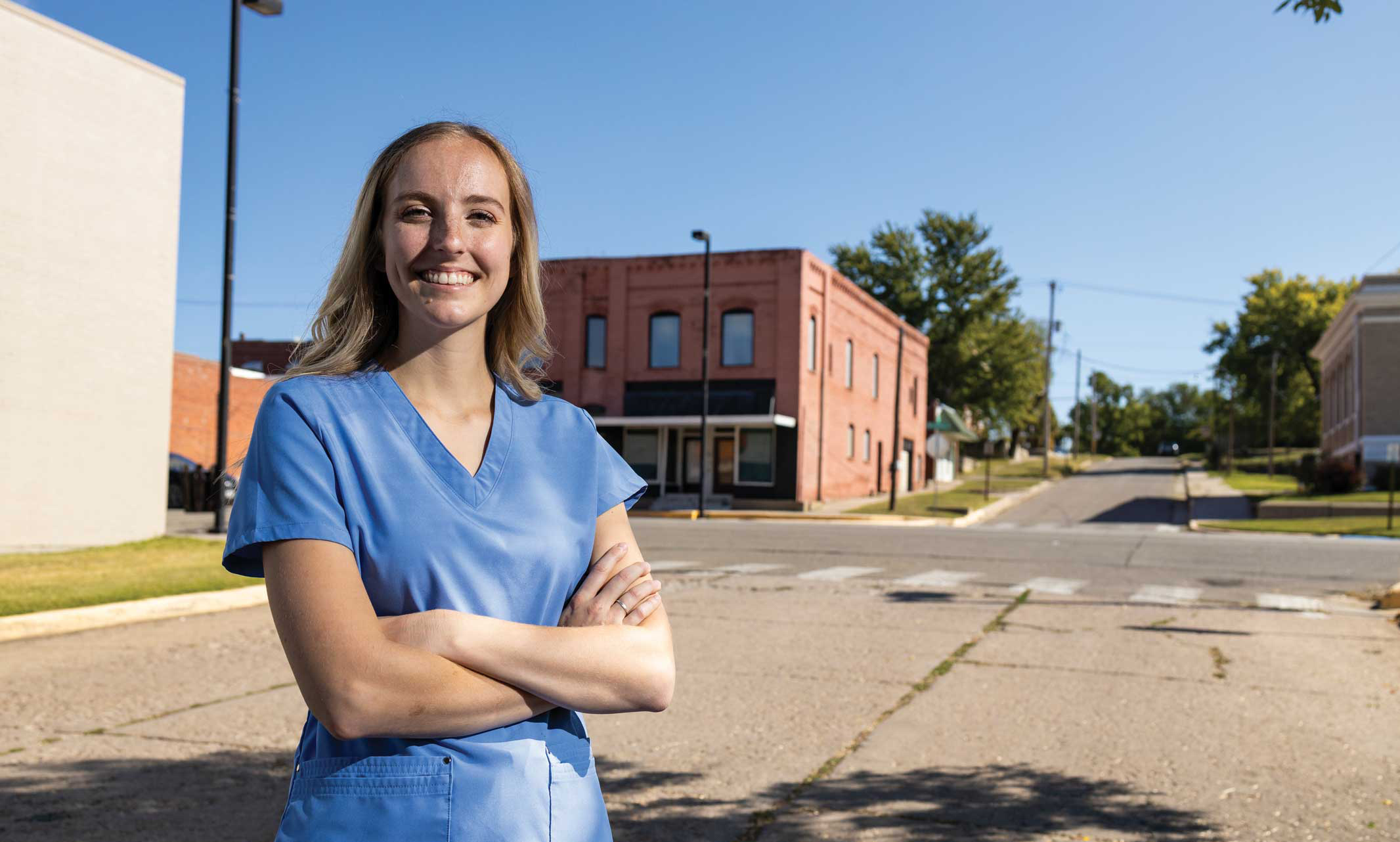
UMKC School of Dentistry and alumni rising to meet the need in rural communities
Only 10 of the 219 counties that make up Missouri and Kansas have enough dental care providers, according to the Rural Health Information Hub. The majority of these dental deserts are in rural communities, which, historically, face challenges in recruiting health-care professionals.
The UMKC School of Dentistry is working to end this dental drought through a number of measures, including a new scholarship aimed at students from rural areas. The scholarship is enabling its first recipient, third year dental student Katie Roe, to fulfill her dream of owning a practice back in her hometown.
Hometown homecoming
Roe’s path to a dental career began in middle school. She and her mother visited their town’s only dentist, Lynn Otte (D.D.S. ’79), to discuss what kind of opportunities the field of dentistry could hold for a young girl from Herington, Kansas.
Through the years, Roe and Otte formed a connection and began discussing plans for Roe to eventually take over Otte’s practice. Roe had always envisioned owning a practice in Herington, but was considering working for another dentist while she paid off her school costs. That is, until she found out she’d be the first recipient of the Dan Root Memorial Scholarship. Now she plans to buy the practice after she graduates.
“I still remember that first discussion we had about dentistry,” Otte said. “And Katie’s just kept working in that direction ever since, which has been wonderful.”
The scholarship was established by Glenda Root in honor of her late husband, Dan, who founded Root Dental Laboratory, where he worked closely with many UMKC dentistry alumni. The transformational scholarship will cover a full year of Roe’s tuition. It doesn’t end with her. Thanks to the Roots’ donation, UMKC estimates it will be able to award three or four full-tuition scholarships annually, beginning next year. The scholarships will go to students with a demonstrated financial need, with preference given to students from rural areas.
“This scholarship allows me to focus on what’s most important to me — helping people,” Roe said. “It doesn’t just impact me; it impacts my immediate family, my future family, the patients. The ripple effect of this scholarship is amazing.”
Roe has long been dedicated to her hometown of Herington, about 50 miles south of Manhattan, Kansas, population 2,129. Her loyalty was solidified when her brother was diagnosed with a serious health issue and the people in Herington rallied behind her family.
“Everyone in town stepped up to help us in our time of need,” she said.
Encouraging rural Roos
Richard Bigham, assistant dean for student programs at the UMKC School of Dentistry, said he hopes lifting some of the financial burden will make scholarship recipients more willing to return to their rural roots and fill the need. Many students worry whether they can maximize their earning potential in rural areas.
According to Dean Steven Haas, practices in rural areas show lower gross income compared to urban practices. The flip side is that urban practices can suffer greater losses and failure rates due to overhead costs and competition, among other things. Haas said that a newly opened rural practice can be financially successful in one year and subsequently generate a stable earning for a dentist.
These shortages are not limited to dentistry, as the entire health-care field is grappling with a maldistribution of health-care providers. Beyond scholarships, Haas said the school has incorporated courses into its curriculum that explore some of the challenges rural populations face, such as the Community-Based Dental Education course.
The school is also working to get students out to rural areas through some of these courses, particularly through externships at community health centers across Missouri and Kansas. According to Melanie Simmer-Beck (R.D.H. ’94, Ph.D. ’13), each year, about half of the third-and fourth-year students who take the class choose health-care centers based in rural communities, and a number of them come back with job offers in-hand.
Simmer-Beck is both the chair of Dental Public Health and Behavior Sciences and the director of the UMKC Students Training in Academia, Health and Research (STAHR) Dental Scholars program at the School of Dentistry. STAHR is a pipeline program that addresses shortages in both rural and urban areas of Missouri. The program also includes the schools of medicine and pharmacy, and focuses on increasing the number of students from economically and educationally disadvantaged backgrounds, while helping students better prepare for the rigors of health sciences programs.
“The dental school has always been committed to seeking out students who come from rural areas, hoping they have a strong desire to return and give back,” Haas said. “Scholarships like the Dan Root Memorial Scholarship are an amazing act of philanthropy.”
Ample opportunity for alumni
Justin (D.D.S. ’07) and Sadie (B.S.D.H. ’05) Ebersole began mapping out their plans for practicing in a rural area on their first date, when they were students at the UMKC School of Dentistry.
“He told me, ‘I’m a small-town boy and I’m going to a small town in Kansas, so if you want to live in the city, you should probably move on,’” Sadie said.
They’ve made for a great “small town team” ever since. The Ebersoles own Parsons Dental Care in Parsons, Kansas. Justin is the practicing dentist. Sadie started as a hygienist, but has transitioned to office manager, while still practicing one or two days a week.
The couple settled on Parsons, near Justin’s family farm in neighboring Chautauqua County, because they found a practice that met all their criteria. After graduation, they joined the practice in Parsons and acquired sole ownership in 2020.
“We did some serious research when evaluating practices,” Justin said. “I would strongly encourage people to look at all the numbers: how many active patients, how many dentists are in that town and the surrounding area.”
The Ebersoles agree the most rewarding part of owning a small-town practice is getting to know their patients. In the years they’ve been in Parsons, they’ve been able to watch families form and kids grow up.
“Those bonds that you build are so cool,” Justin said. “I see great-grandparents, grandparents and all the way down.”
It also doesn’t hurt that business is good. The Ebersoles hope practitioners realize the significant need in these rural areas also means opportunity.
“We have no need for an advertising budget,” Justin said. “There are more patients than you can ever handle. I never imagined how well we would do. That’s been a huge bonus.”
While it may be a bonus, Sadie stresses the decision to practice in a rural area shouldn’t only be a financial choice. According to her, a practitioner considering a rural setting needs to feel a personal connection to the area. The Ebersoles love how immersed they are in the Parsons community.
“I would just encourage people to maybe step outside their box and go to some of these places that are rural and are looking for a dentist. Just give it a chance,” Justin said. “Be open minded about all the benefits of living in a small town.”
Dec 01, 2022
Students are recognized for their outstanding scholastic performance, community leadership and service
These seven students’ accomplishments include being published in peer-reviewed journals, beginning new student programs at UMKC, involvement with student government, leadership in diversity-focused organizations on campus, extensive volunteer work with community organizations and more.
Every semester, exceptional graduating students are honored with this designation. These students maintain excellent scholastic performance while actively participating in university activities and community service outside of the classroom.
"Our students embody the values of UMKC with their dedication to their academic success and service to the university and surrounding communities," said Michele D. Smith, Ph.D., vice provost for student affairs and dean of students. “As the Dean of Students, I am proud to recognize their achievements and know without a doubt they all have successful futures ahead of them."
Students shared their memories of their college years at a special breakfast celebration in their honor. Some excerpts:
Francesca Moisson: “My proudest accomplishment has been the creation of the Peer Mentor Program for MD students. During my matriculation to medical school, I sought out a peer mentor to facilitate the jarring transition, including moving to a new city with few personal ties and preparing for the academic and mental challenges medical school presents. Realizing that a formal mentorship did not exist, I collaborated with administration and faculty to bring this need to fruition. We created a formal mentorship program for incoming MD students in which they are paired with a first- or second-year student based on interests, backgrounds and goals. This incoming class will serve as the third year of the mentorship program.”
Carlyn Euritt: “When I was choosing where I wanted to go to college, I was drawn to UMKC because I knew it was an institution where I could get access to the best opportunities to achieve my academic goals. As I reflect on these past four years, UMKC has exceeded my expectations for what I had expected my undergraduate years to look like. I have conducted ophthalmology research alongside Dr. Peter Koulen, gained an excellent education from passionate professors within the School of Science and Engineering and even learned Spanish. It is also through UMKC that I have achieved my proudest accomplishment yet, which is being published as a co-author alongside Dr. Koulen and other scientists within his lab.”
Congratulations to the Spring 2022 Dean of Students Honor Recipients!
Hailey Armbruster, School of Science and Engineering
Christian Dang, School of Science and Engineering
Carlyn Euritt, School of Science and Engineering
Karl Manoza, School of Science and Engineering
Nathan Meshau, School of Humanities and Social Sciences
Francesca Moisson, School of Medicine
Turquoise Templeton, School of Medicine
Nov 30, 2022
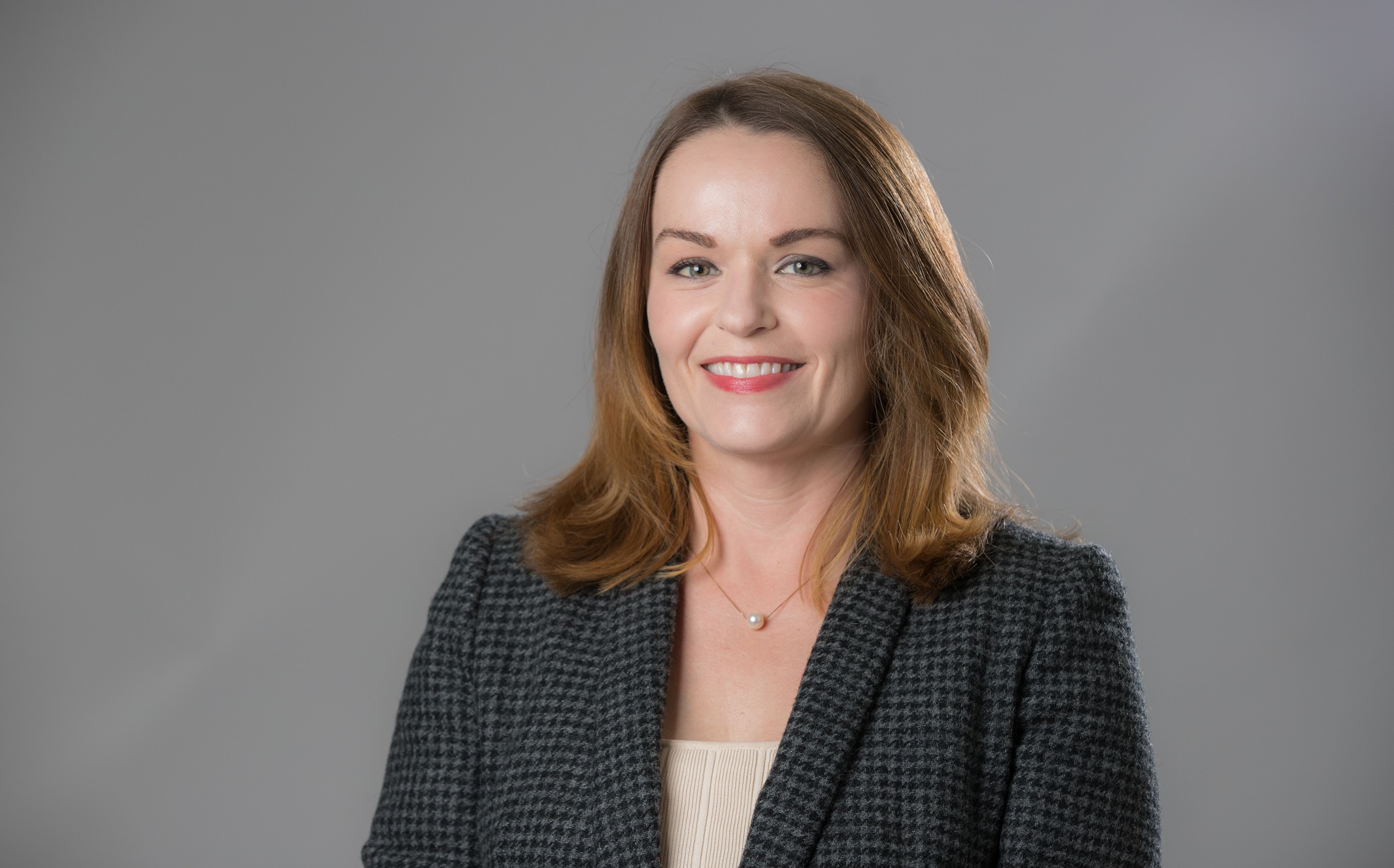
Meet the new UMKC Foundation president
Alumna Amanda Davis, (MPA ’02) begins her role as UMKC chief advancement officer and president of the UMKC Foundation this week. Her vision for the role is based on her history at the university.
Davis is a five-generation Missourian and an alumna of the UMKC Bloch School of Management where she earned her master’s in public administration. She was a fundraiser for the Red Cross in New Orleans and other nonprofits before falling in love with higher education and returning to Kansas City to work at the UMKC School of Law. Her most recent role was assistant vice president for campaign leadership at the University of Oklahoma Foundation, where she developed programs and policy to accelerate advancement outcomes. Her focus on identifying gift opportunities and prospects contributed to more than $300 million in annual fundraising results and the launch of a $2 billion comprehensive campaign for OU.
What are you most looking forward to in your new position as UMKC Foundation president?
I’m looking forward to having the opportunity to put the education that I received at the Bloch School of Management to good use to help the university grow and continue to succeed. Part of that is to improve the university’s advancement in an overarching sense, and also grow partnerships with existing donors and alumni.
As an alumna, how does it feel to be back on campus?
Honestly, it’s thrilling. There is so much going on at both campuses. It’s very exciting to come home to UMKC at this particular moment. The chancellor’s leadership is visionary, which dovetails with the visionary leadership we are seeing across Kansas City and complements the incredible strength of the UMKC Foundation board. It’s an exciting time for me to step back in and to be able to make positive change and continue to build UMKC.
How does your experience as a student impact your perspective as UMKC leadership?
I have an incredible enthusiasm for this institution, particularly in its current iteration. I came to UMKC at the exact time in my life that allowed me to discover philanthropy as a career. It's incredibly meaningful to be able to take a skill set that I learned from UMKC, and then come back and use those skills to benefit the institution. I hope my work at UMKC enables other students to feel at home here and have the opportunity to earn an education in their given field so they can go on to do great things.
When you think about the best teams that you’ve been a part of, what about them stands out in your mind?
Two things stand out to me. One, on the best teams there is a safe psychological space to take risks and to do the best you can do. And two, it’s important to have a cohesive direction from leadership so everyone knows what their role is and that they are all rowing in the same direction.
What do you think is the key – or keys – to successful fundraising?
Considering everything from the donors’ perspectives is essential. It’s important to recognize that many of our most engaged donors may be giving in different ways. Perhaps they give an annual gift, but have also planned an estate gift, or are passionate about supporting a specific program or student service. It’s essential to consider how their interests in giving intersect to understand how they feel about the university and how it feels to be the donor from outside the organization.
One more – what is something about you that would surprise people?
One of my passions is costume making. I inherited that gene from my mother, who always made us fabulous Halloween costumes. That’s where I learned the transformative power and fun of costumes. When I moved to New Orleans in my twenties, I was the person my friends came to for help with their Mardi Gras costumes.
Nov 30, 2022
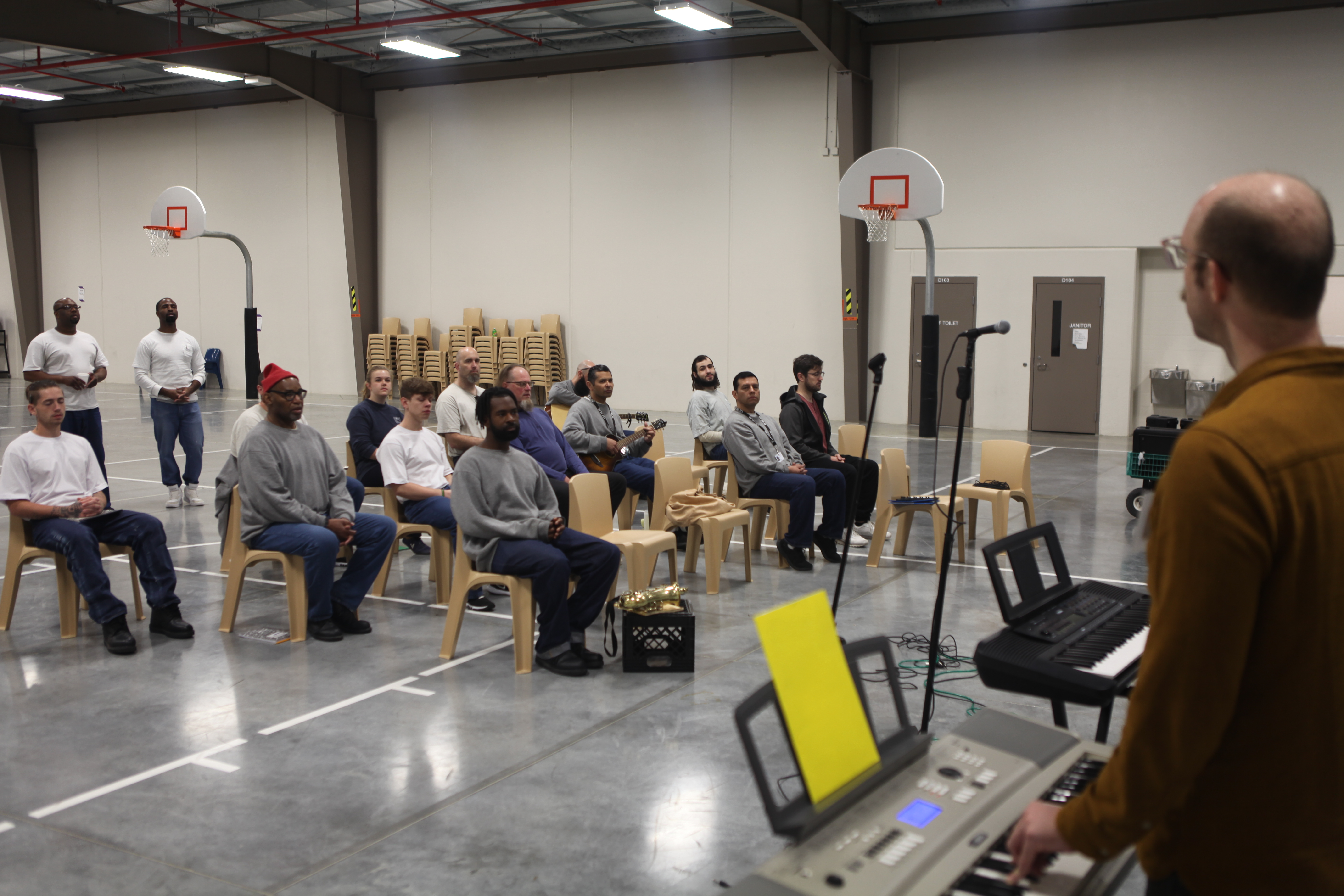
UMKC faculty bring music program to prison, inspiring hope
Faculty members Yotam Haber and Owen Belcher routinely step into a world apart from academic music, yet one that vividly demonstrates the universality of the art.
The pair formed a UMKC chapter of Musicambia, a New York-based nonprofit that works with incarcerated prisoners on composing and performing music. Twice a month, they cross the threshold of the Lansing Correctional Facility in Lansing, Kansas —about a 40-minute drive from campus —to make music with the men incarcerated there.
“Musicambia has been on my radar since about 2017. I’ve been wanting to work with them since my previous position (at the University of New Orleans),” Haber said. When he came to UMKC in Fall 2019, he met Belcher, another new member of the faculty who had a similar interest. Haber suggested they connect with Musicambia to launch the local program.
“It was thanks to my collaboration with Owen and a generous gift from the Kauffman Foundation that allowed us to bring Musicambia here and help us launch our program at Lansing,” Haber said.
Musicambia began as a branch of Carnegie Hall’s Musical Connections Program at Sing Sing Correctional Facility in 2013, and then incorporated as a separate non-profit in 2014.
The national Musicambia organization contacted the wardens at several prisons in the Kansas City region. “Lansing was both the closest and the most willing to work with us,” Belcher recalled.
Following the established Musicambia roadmap, the relationship began with the organization’s Founder/ Artistic Director Nathan Schram and Program.
Director Elliot Cole leading an intensive five-day songwriting session at Lansing along with Haber, Belcher and three of their students. Since then, Haber, Belcher and the students have been returning to Lansing twice a month to continue the music program.
“I was pretty nervous that first day,” Belcher recalled. “But due to the intense nature of the five-day schedule, you get over the nerves and initial shyness pretty quickly. I'd say it took about an hour or two to begin developing a sense of mutual trust. It's a lot to ask of a group of men to sing in front of each other and in front of strangers. It's a vulnerable thing to do, and the prison environment is not one that traditionally rewards vulnerability.”
The program involves creating music, as well as performing it.
"In our work at Lansing, we guide our participants in the process of creating, from the germination of a tiny musical kernal to a full concert. We are not playing music to the students; rather, we facilitate their own vision," Haber said. "It's deeply fulfilling to see this come into fruition. It's the reason I'm an educator, not just a composer."
As for the impact, "I don't want to speak for the participants, but I would hope that our program offers them an outlet to express themselves musically, a chance to work out their artistic ideas and develop their musical abilities," Belcher said. "Our program is designed to be collaborative. What this means in practice is that, although UMKC faculty and students often lead activities, we try to be more like musical partners rather than operating under a traditional teacher-student scenario. If we wind up giving advice or helping answer questions, that arises organically."
Belcher said his motivation stems naturally from his scholarship in music theory.
"My discipline stresses the need to become more inclusive and involve the community; this is also an important goal for the university," he explained. "Incarcerated people are not just underserved —in many cases they aren't served at all."
Haber also pursues a deeper purpose.
"Being in prison is, in large part, not a rehabilitative or positive experience. Most of the incarcerated population will eventually be released, and from my experiences and conversations, they want to build better lives for themselves and their families," Haber said. "Making music together can be a deeply fulfilling, shared, positive experience. I hope that in some small way, this project helps their wellbeing, their sense of purpose and brings some joy."
Nov 29, 2022
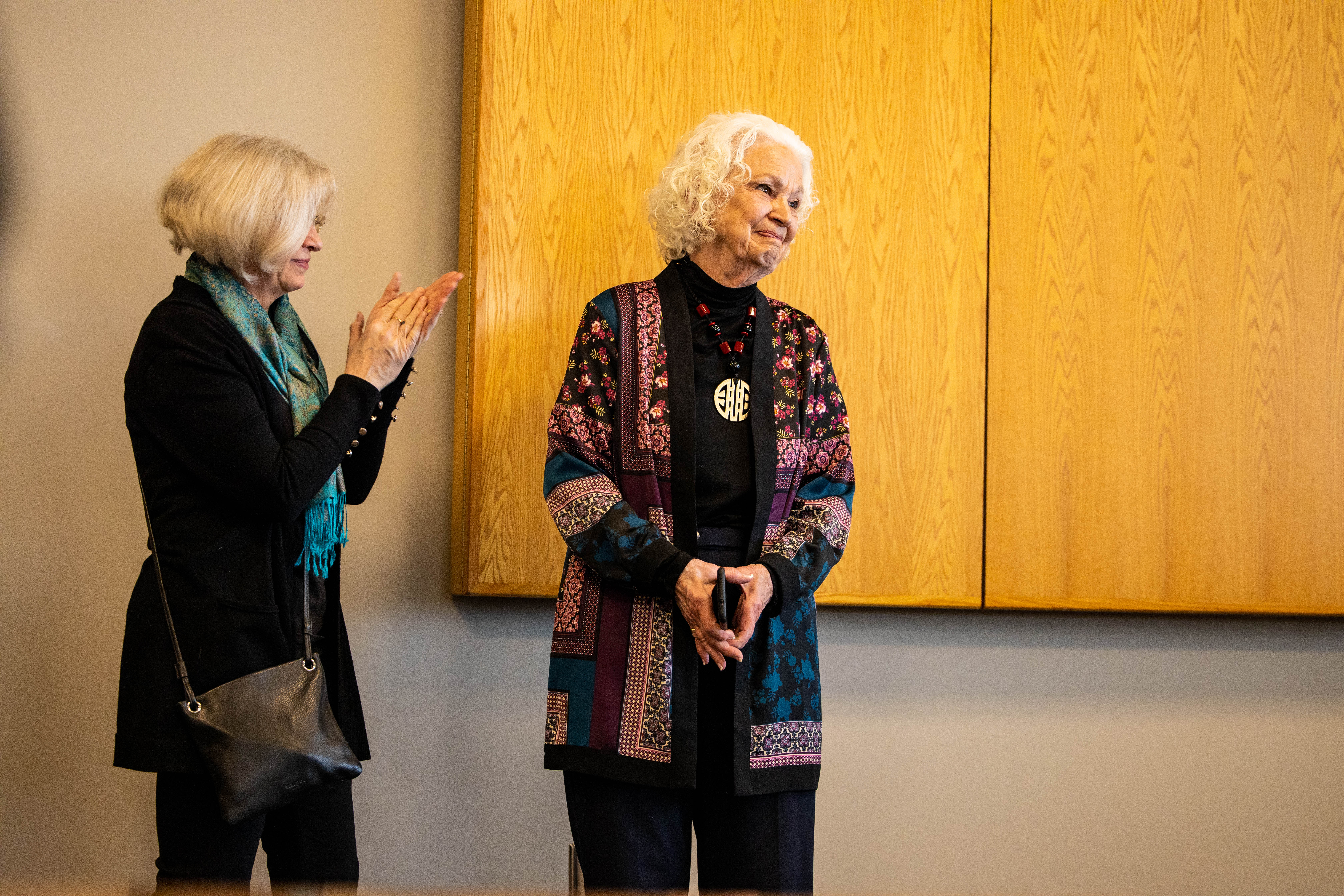
Annette Luyben continues her family’s history of supporting musicians
Anette Luyben, who grew up working in her family’s eponymous music store on Main Street in Kansas City, has lived her life surrounded by music and musicians. While the shop has moved online and narrowed its services, she continues to fuel the music community in Kansas City through gifts to the UMKC Conservatory.
In the past two years she has established four endowed scholarships for Conservatory students and contributed materials to the LaBudde Special Collections.
“My father opened the business in 1948,” Luyben said of the music shop.
"There should be a sign above the door that says, ‘The nicest people in the world walk through these doors.'”—Annette Luyben
While the first location of the store was farther south on 63rd Street, most people are familiar with the trim brick building on Main Street with the red door and red and white striped awning, with “Luyben” in distinct, linear black lettering.
“I was there from the time I was 5 years old. Later, when I went to Westport High School, I would walk over to the store to work after school. During college I worked there during the summers.”
Luyben’s sold sheet music, musical instruments and supplies, and also provided lessons for students. She remembers her parents hiring their first Conservatory student to work in the shop in 1955.
“They hired Don Shoberg, a student who had come in to buy a reed,” she says. “My mom liked him and asked if he wanted a job. He worked for us for 63 years.”
Shoberg (B.M. ’58; M.M. ’64, music composition) was the first of more than 200 students of the UMKC Conservatory who would come to work with the Luybens.
“It has been a strong bond,” she says.
Despite her respect for the business and the delight of the many friendships she made there, she did not start out to make music her life’s work.
“I have a degree in American history and economics, and I taught high school for 15 years,” said Luyben.
Luyben quit teaching and went to work in the shop when her father was diagnosed with Parkinson’s disease.
“I knew if the business was going to continue that my mother was going to need more help,” she says. “It was totally my choice. I was proud to be Bob Luyben’s daughter.”
The Luybens’ connection with the Conservatory included relationships with customers who had first come to the shop as children. American operatic tenor Vinson Cole, (B.M. ’72) would visit the shop as a child, Luyben recalls. As a high schooler, Grammy award-winning opera singer Joyce Di Donato was another regular visitor at the Luybens’ shop.
“We were blessed to have so many wonderful customers. I used to say, There should be a sign above the door that says, ‘The nicest people in the world walk through these doors.'”
That good will did not stop with the relationships that the Luyben family had with the students through employment and commerce. Annette Luyben is an enthusiastic and dedicated supporter of UMKC students and programs. She donated significant documentation from the shop archives to the UMKC LaBudde Special Collections this year. But her focus —and joy — is in supporting scholarships for students.
“When my mother passed away, we asked that people support a scholarship at the Conservatory in her name in lieu of flowers.”
When Robert Luyben died in 1993, she added his name to the scholarship and shifted the requirement to support students studying clarinet. But her generosity did not end there. She has established three named scholarships in the last two years.
Shoberg, who worked at the shop for those many years, died in May 2021. He remembered Annette Luyben in his estate, and her first thought was to use the money to honor Shoberg with an endowed scholarship in his name.
"I'm the messenger . . . I'm happy there’s scholarships in place that other people can give to."— Annette Luyben
“Don was very active at UMKC. He was on the UMKC Alumni Association Governing Board and was very active with the Conservatory Alumni and Friends Governing Board. A scholarship seemed like the best way to honor him.”
When Luyben’s close friend Richard Williams died six months later, she thought contributing to the scholarship in his name would be a fitting tribute to Williams’ dedication to the Conservatory for his work as assistant professor of piano and voice.
“When I called Mark Mattison and told him that I wanted to contribute to Richard’s scholarship, he let me know that there wasn’t a scholarship in Richard’s name,” said Luyben.
With some of the money remaining from Shoberg’s estate, Luyben committed to establishing the Richard L. Williams Memorial Scholarship, which is available to students studying percussion.
“Richard was in our store all the time. He’d been with the Conservatory for 40 years and was close friends with Don. The day I talked to Mark I went out to get the mail and there was another check from the settlement of Don’s estate. It was enough to endow the scholarship.”
Rather than seeing herself as the significant philanthropist she is, Luyben credits her late friends.
“I’m the messenger,” she says. “It’s Don and Richard up there doing this. I'm happy there’s scholarships in place that other people can give to.”
Her most recent gift is an endowment for the Karen Richie Greer Memorial Scholarship in Percussion in honor of Karen Ricci Greer, (B.M.E., ’63). Greer, a Kansas City native and gifted percussionist, was a part-time member of the Kansas City Philharmonic at the age of 15. By the time she was 20 years old, she had joined the philharmonic full time.
Greer and Luyben became close friends in their adulthoods and attended many Conservatory events together. After Greer’s death Luyben attended a performance by percussionist Isaiah Petrie.
“He blew my mind,” she remembers. “The following week I reached out to Walter Greer and said, ‘I saw this musician play and he’s remarkable. It made me think of Karen. Do you want to establish a scholarship with me in her name?' And he did.”
Luyben waves away the idea that she could be spending this money on herself.
“These people deserve to be remembered,” she says. “It’s important. Don was incredible. Richard Williams and Karen committed so much. They deserve to be remembered in some other way than on a tombstone.”
Nov 29, 2022
Generosity from donors enables the UMKC Conservatory to expand their Keyboard Area
The UMKC Conservatory has purchased two new Steinway & Sons pianos for performances by students, faculty and guest artists.
In September 2021, then-Interim Dean Dr. Andrew Granade traveled with keyboard faculty Alon Goldstein, Thomas Rosenkranz, and Karen Savage to the Steinway & Sons factory in Astoria, Queens to preview, test and select the pianos. The Conservatory also worked with Gordon McNelly, president and owner of the Steinway Piano Gallery in Lenexa, Kansas.
After careful consideration, the group selected a Hamburg Steinway D, purchased with funds from a generous grant by the Richard J. Stern Foundation for the Arts, and a Steinway model B, purchased with a gift from Mr. Michael Waterford.
Rosenkranz, associate professor of piano and coordinator of the Keyboard Area stated, “The keyboard area at UMKC is extremely grateful to the generosity of the donors that supported the purchase of two new Steinway grand pianos. Steinway pianos have a coloristic range and projection that is in a class all their own, and we believe that these new instruments will inspire and benefit our faculty and students for generations to come.”
Granade was also grateful to bring the prized new pianos home, noting, “The Conservatory is thankful for the many donors who also made contributions toward the purchase of these pianos, as their generosity made the selection possible. The Hamburg Steinway will be on White Recital Hall stage for performances by students, faculty and guest artists and is truly a world-class piano.”
Nov 29, 2022
Tensions have been rising between the two nations for generations over human rights abuses, nuclear facilities and women’s rights.
Despite the fact that his squad has played one of the World Cup’s top teams to a draw right before having to win or go home Tuesday, USA Head Coach Gregg Berhalter was fending off questions about the deeper political meaning of his team’s match against Iran. No matter how much he and his players want to frame it that way, UMKC associate political science professor Dr. Debra Leiter said it’s just not possible. “The United States has identified Iran as one of its rivals and Iran has certainly targeted the United States as its key geopolitical rival,” said Dr. Leiter. Read more.
Nov 29, 2022
The Jackson County Legislature approved another $5 million grant Monday for a group that's made an impact in improving the health of East Kansas Ci...
Dr. Jannette Berkley-Patton, UMKC School of Medicine professor and director of the UMKC Health Equity Project, is in charge of the effort. Read more.
Nov 22, 2022
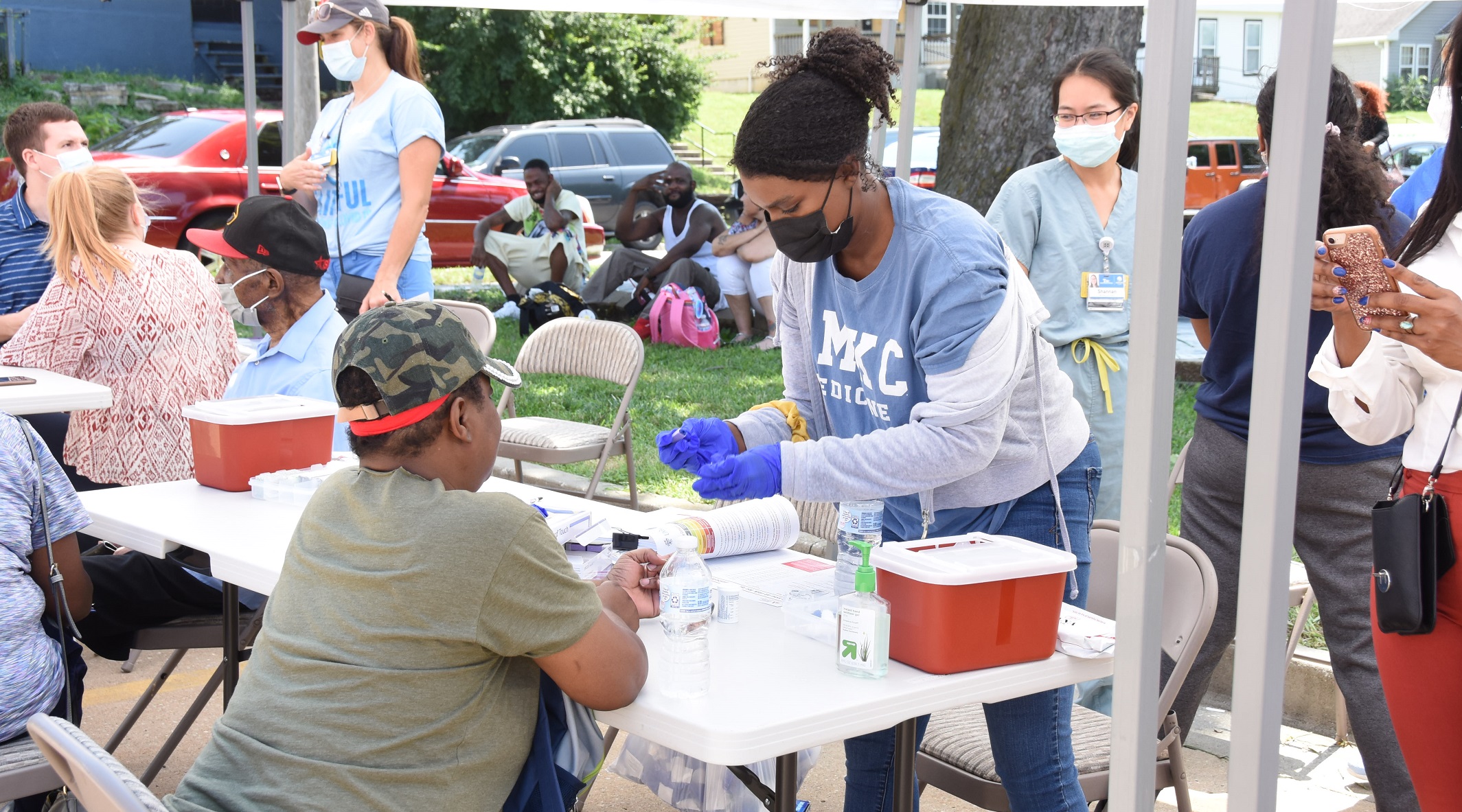
Funding from Jackson County will expand health services on Kansas City’s Eastside
The Jackson County Legislature approved $5 million to continue community health initiatives through Our Healthy Eastside Kansas City, based on the success of the coalition’s impact on COVID-19 and community health from its original funding in 2021.
Jannette Berkley-Patton, Ph.D., professor in the UMKC School of Medicine and director of the university’s Health Equity Institute, is leading the project. The funding will expand COVID-19 vaccinations, health screenings, reproductive services to address infant mortality and successful diabetes prevention programs in Kansas City’s Eastside. This funding is a continuation of the program’s initial $5 million grant.
Our Healthy KC Eastside is a community-wide initiative that promotes and delivers widespread COVID-19 vaccinations and other health services to residents on the east side of Kansas City. More than 60 community organizations and health agencies are partnering with OHKCE to support healthy lifestyles through vaccine events and health screenings such as blood pressure checks, diabetes screenings and dental education. OHKCE health agency partners include the UMKC schools of Dentistry, Medicine, Pharmacy and Nursing and Health Sciences, Children’s Mercy Hospital and University Health.
As part of the OHKCE initiative, more than 3,000 Kansas City residents completed surveys on their health beliefs, which showed that indifference or fear was not always behind low vaccination rates. Often, transportation or access to healthcare were factors. Providing healthcare delivery in community hubs on weekends and evenings provided better availability.
“This is a significant advance in assuring accessible and preventative health services are available to Jackson County residents,” Berkley-Patton says. “Our success with Our Healthy Eastside Kansas City is evidence that working collaboratively with community and health partners can greatly increase the reach of health care in the most underserved neighborhoods and have a positive impact on our entire community.”
“As a provider of community health and regional health education, UMKC recognizes the significance of this funding on our community,” UMKC Chancellor Mauli Agrawal says. “We thank the Jackson County Legislature for their leadership on this issue, and congratulate Dr. Berkley Patton on her dedication to high quality healthcare delivery to every citizen of Jackson County.”
Nov 21, 2022
Achievements noted by legal organizations representing diverse communities
Students and alumni from the School of Law at the University of Missouri-Kansas City were recently recognized with awards and scholarships by two local legal organizations with diverse memberships.
The Jackson County Bar Association, which primarily represents Black attorneys, has recognized State Sen. Barbara Anne Washington (J.D., ‘97), a UMKC School of Law alumna, with the 2022 Lewis W. Clymer Award. Clymer was an assistant prosecuting attorney, assistant attorney general for Missouri, municipal court judge and circuit court judge. The award recognizes a minority attorney for their service to the community and their promotion of the integrity of the legal profession.
The organization also awarded Kit Carson Roque, Jr. scholarships to third-year UMKC law students Sommari T. Muwwakkil II and Jamie Powell. The Roque scholarship is named in honor of UMKC School of Law alumnus the late Kit Carson Roque, Jr. (J.D., ‘76), who served as both a Jackson County Circuit Court judge and a civil rights attorney for the U.S. Dept. of Education.
The Hispanic Bar Association of Greater Kansas City awarded three scholarships to UMKC law students: Alejandro Villalobos, Julia Hernandez and Myriam Paniagua. The scholarships were awarded at the organization’s 30th anniversary scholarship reception, which featured a keynote address by UMKC alumna Judge Justine E. Del Muro (B.A. ’78, J.D. ’84), a Jackson County Circuit Court judge.
“Our School of Law is committed to providing opportunity for all to pursue an exceptional legal education,” said Dean Barbara Glesner Fines. “These awards demonstrate the strength of that commitment.”
Nov 17, 2022
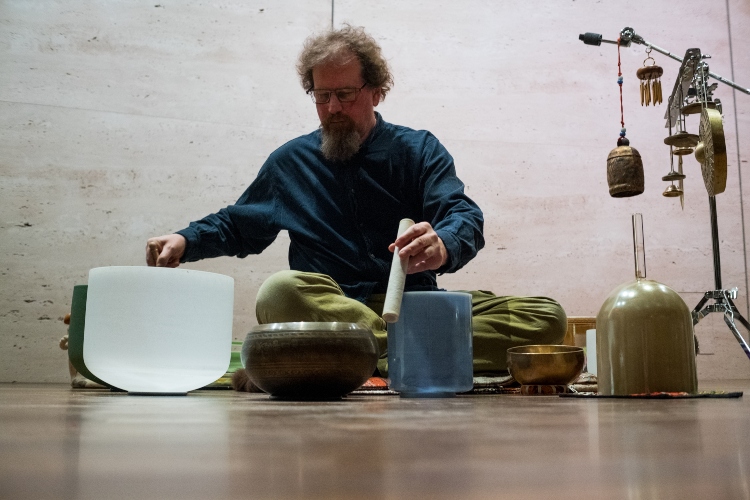
The fine-tuned eccentricities of Paul Rudy.
Paul Rudy has always been fascinated with sound. He’s ridden the sound waves to many impressive achievements as a composer, performer, Guggenheim Fellow, Fulbright Fellow, artist and sound healer. He’s currently the Curator’s Distinguished Professor, but his path to UMKC and the honorary title “High Priest of Sound” was as winding as the labyrinth he created on his Kansas farm.“I understood the power of sound when I was a kid,” Rudy recalled. “My sister was watching a horror movie, and I was behind the couch playing. I heard this sound, and I stood up and started watching. It totally sucked me in. That movie scared the crap out of me! But I knew it was that sounds that drew me in.”Rudy’s fascination with sound continued into his college career, even when he thought it wouldn’t.“I did a jazz trumpet degree at Bethel College in Newton, then I quit music altogether and became a mountain climber and carpenter for four or five years,” he said. “That wasn’t stimulating my brain enough, though. I’ve been chasing my tail my whole life.”The chase would bring him back to music in the late 80’s, when he joined a composition class at Wichita State University. It was there that he composed a piece of music his instructor described as graduate work. Invigorated by this taste of success, he applied for a music composition program at the University of Colorado and earned an assistantship in the program.
"Over the last ten years, I've started to love teaching. It went from being part of the job to something I really look forward to doing." — Paul Rudy
“I discovered the studio, and I fell in love with actually making and sculpting sound,” Rudy reminisced.“That’s why I went the electronic route.”It was this interest in electroacoustic music that would provide him with another opportunity in his academic career. This time, at UMKC’s Health Sciences Campus, working in tandem with Dr. Gary Sutkin, professor of surgery and associate dean of women’s health. Together, the two are studying how sounds in the operating room can affect health outcomes for patients during surgery.“Paul is a scientist,” said Sutkin of his colleague. “When I think of people in the Conservatory, I think of creators, musicians and artists, but I never think of science. And yet, Paul’s brain thinks like a scientist. He comes up with scientific principles, questions for us to analyze, and then he’s really good at analyzing data and distilling it down to what we need to answer our questions.”“I think my study with electroacoustics and knowing how the brain processes sound brought me to the operating room study,” Rudy says. “Sound is vibrating on us, acting upon us all the time. Every time we hear sound it’s not just hitting our ears; it’s hitting our whole body. There was a part of me that was excited about offering something other than just the study of music. This seemed to be an opportunity to take that work into a deeper, more significant arena, and it’s still unfolding.”“We’ve been studying it for about two or three years, and we’re going to study it for about another 20,” said Sutkin, only half-jokingly. “We’re not the first ones to measure the sound environment, but I think we are the first ones to really delve into what we call ‘speech communication interference,’ when someone says something, and the other person doesn’t hear them. There are so many machines that are making loud noises, multiple conversations going on. We’re measuring those interferences, then I think we can make recommendations.”Those recommendations could one day save lives by changing the very nature of how operating rooms are built and managed. For now, the pair are happy with the success they’ve seen, having been published in one medical journal, with a second article currently under review.Rudy considers research a part of his creative process, satisfying his analytical side so as not to hinder creative flow while making his art. “The brain is really good at cataloging and organizing things, but the spirit knows how to make the best use of it all.” That was the realization, Rudy says, when creating became fun. “I felt like I had all these resources starting to really work together and complement each other.”Rudy’s creative spirit carries well beyond music. Settled on 70 acres, north of Lawrence, Kansas, you’ll find Harmony Farm, a home as interesting and eccentric as the man who lives there.“It’s become a canvas, of sorts, that I photograph and that I use to make modern day ‘Nazca Lines,’” says Rudy, referring to massive and mysterious geoglyphs etched across Peru’s Nazca Desert. While Rudy openly admits to keeping a quiet social life outside of the farm, he’s ever eager to share his passions with students at UMKC.“Over the last ten years, I've started to love teaching,” Rudy says. “It went from being part of the job to something I really look forward to doing. Part of what I love is staying in touch with young people.”“Paul is one of the most generous people I know, and one of the most open thinkers,” said Andrew Granade, former interim dean of the Conservatory. “I’ve been on dissertation graduate committees with him many, many times with his students, and they all sound like themselves. He has a unique ability to listen to them, respond to them and help them grow into the artist they need to be.”Rudy challenges his students to find fresh perspectives, and he does so with zest, teaching a general education course he calls the artist in society. “I’ve had students tell me they’ve never seen a piece of art before, I’ve had students tell me they’ve never had a conversation with someone they disagreed with before,” Rudy says. “And I just love seeing what happens when they have those new experiences. Part of my job is mentoring them into those new experiences. I present them with some really uncomfortable stuff, sometimes purposefully, for them to learn how to witness what happens in them when things get uncomfortable.”"Paul is very Socratic in his teaching style,” said Granade, “I imagine the first couple of weeks it’s a little bit uncomfortable for them, because any time you have your beliefs or thoughts challenged, it’s uncomfortable. But what he’s doing is basically saying this is the role of the artist, literally the role of the artist in society is to open up these dialogues.”Rudy says he wants students to think about the ways they act and react. How do they navigate obstacles? How do they learn and grow?
It's a practice he recently had to exercise himself. But through a painful experience, he says he’s found one of his proudest moments.Rudy’s long-time friend, poet Jay Hopler was 51 years old when he lost his battle with cancer in June. The two had studied together at the American Academy of Rome in Italy.“In 2017, Jay was thinking about a poem that would describe himself, and he asked me, ‘If I were a piece of music, what would I be?’” Rudy says the melody was instant. “I heard the music in my head. That doesn’t happen often. Most of the time, it’s hard work, but I knew exactly what Jay sounds like.”Holding up a copy of still life, Hopler’s final published book of poetry, Rudy turned to the last page of the closing entry, where just a few bars of music were included with the poet’s words.“It’s the second-to-last line, even,” he notes. “I don’t think anybody’s ever done that before. A little piece of music, describing this poet, is part of his obituary poem. I didn’t know that until I saw the final copy of the book. I’m actually considering making a whole piece in memoriam of him to celebrate his amazing words and amazing life.”It's there Rudy shows his spirit again. His spirit for life, healing and creation through sound, even when faced with the loss of a friend. It’s this unique mindset that has pushed him to find success time and time again, both personally and professionally.“For me,” Rudy says, “the bottom line is, 'Is what I’m doing interesting?' If not, is it the thing I’m doing? Or the way I’m doing it?” Adding, “It’s usually the latter.”It’s this ability to reshape his own perspective that’s given Rudy new love for everything he does.“I think that’s when my academic career started to change. When I realized it’s not the responsibility of my job to give me fulfillment, that’s my responsibility to find fulfillment in what I’m doing. I love these interesting collaborations that I’m constantly on the lookout for. Teaching is one of those collaborations between me and the generation that’s going to rule the world someday. How cool is that?”
Nov 17, 2022

UMKC alumnus Bob Carpenter has done it all, from World Series to World Cup
UMKC alumnus and voice of the Washington Nationals Bob Carpenter (’75) will speak at the mid-year commencement celebration for the Class of 2022 at the T-Mobile Center.
The mid-year commencement will take place at 2 p.m. Sunday, Dec. 18 at Kansas City’s downtown arena. There will be a single ceremony for all academic units. More than 1,000 graduates are expected to participate.
Carpenter earned his bachelor’s degree in Radio-TV-Film from UMKC in 1975 and has fashioned a successful 47-year career in broadcasting. He will be announcing his 40th season of major league baseball in 2023, his 18th for the Nationals. Carpenter has also announced baseball for the St. Louis Cardinals, Texas Rangers, New York Mets and Minnesota Twins.
In 18 years with ESPN, he was a mainstay of their baseball, college basketball and football coverage. He announced seven NCAA basketball tournaments and the Final Four in 2005 for NCAA International. He hosted College Gameday and was one of ESPN’s primary soccer commentators for the 1982 and 1994 World Cups.
Bob and his wife of 43 years, Debbie, have raised more than a half-million dollars for charity in their hometown of Tulsa, Oklahoma. Bob says his two best life decisions have been 1) marrying Debbie and 2) coming to UMKC sight-unseen in January of 1974.
Nov 16, 2022
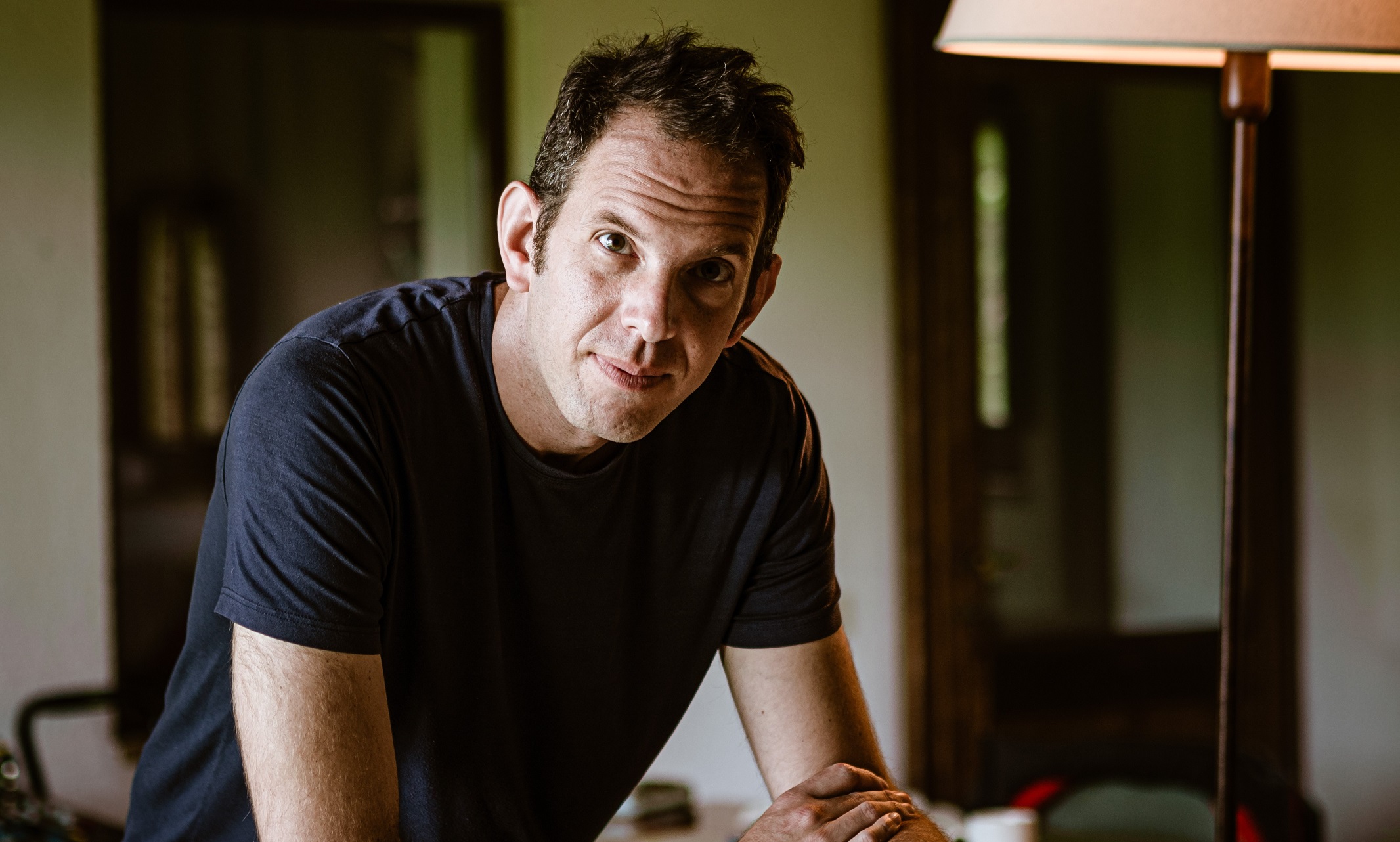
Yotam Haber wins $15,000 to write a major new work
Yotam Haber, associate professor of music composition, was awarded a $15,000 commission to write a new work for the Kahl and Nyce Duo.
Haber’s commission is through Chamber Music America’s (CMA) Classical Commissioning program, which supports U.S.-based composers and ensembles who perform classical and contemporary music. The grants provided through the program support the creation and performance of new works by American composers.
“The CMA’s Classical Commissioning program is prestigious and extremely competitive,” said Haber. “Receiving a grant from CMA is deeply coveted and I’m incredibly honored to have gotten one to write for the Kahl & Nyce Duo, two magnificent artists.”
Haber’s commission will support his work composing a large-scale piece of music for saxophone, piano and electronics. This work will expand on ideas he first explored in “Resistance,” a trumpet piece he wrote for Don-Paul Kahl of the Kahl & Nyce Duo.
“This recognition demonstrates how highly regarded Yotam is as a composer and our students benefit greatly from his knowledge as a professor,” said Conservatory dean Courtney Crappell. “We’re excited to see what he creates with this significant new commission.”
Haber has earned several prestigious awards in the past, including the 2021 Benjamin Danks Award from the American Academy of Arts and Letters, a 2017 Koussevitzky Commission from the Library of Congress, a 2013 Fromm Music Foundation Commission, a 2013 NYFA award, the 2008 Rome Prize and a 2005 John Simon Guggenheim Memorial Foundation Fellowship.
Nov 15, 2022
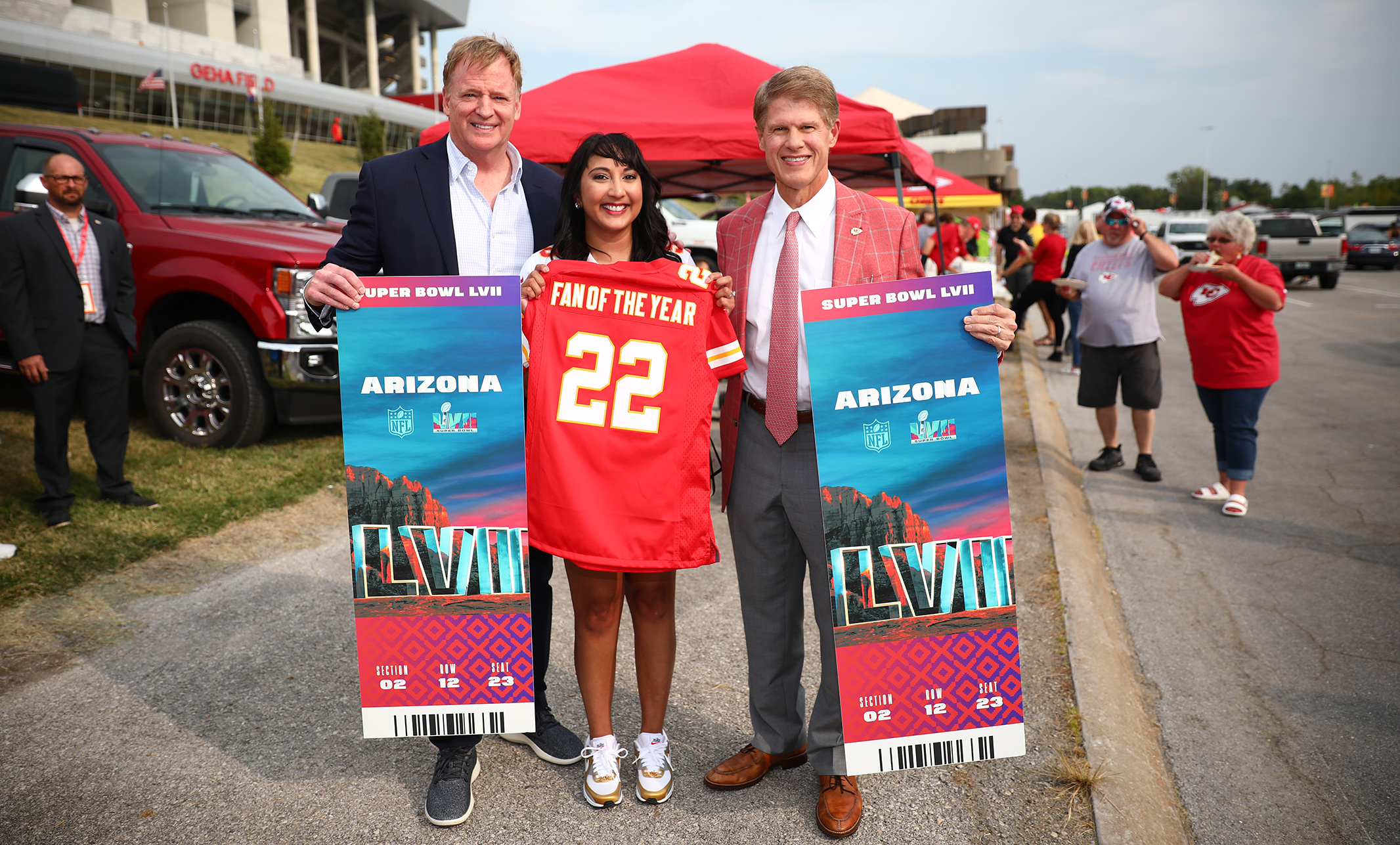
Amy Patel is headed to the Super Bowl as Chiefs’ nominee for NFL Fan of the Year
The Kansas City Chiefs are on a roll in the National Football League and UMKC School of Medicine alumna and faculty member Amy Patel, M.D., is now part of the excitement surrounding Chiefs Kingdom.
Patel, a 2011 graduate and assistant professor of radiology at the School of Medicine, is celebrating the team’s success as its 2022 Fan of the Year. With that, Patel is now the Chiefs’ nominee for 2022 NFL Fan of the Year.
Patel learned of the honor earlier this year before the Chiefs’ home-opening game against the Los Angeles Chargers when she was awarded the game’s Lamar Hunt Legacy Seat that recognizes a community member who represents the spirit of Lamar Hunt, the team’s founder.
“I got to meet (Chiefs’ owner) Clark Hunt and NFL Commissioner Roger Goodell who shared the news with me,” Patel said at the time. “I am still in shock! But I feel so honored to have my work recognized as well as my love of the Chiefs.”
As Chiefs Fan of the Year, Patel will receive two tickets to the Super Bowl in Glendale, Arizona, on Feb. 12 and will be invited to take in all of the game’s surrounding activities.
Each of the NFL’s 32 teams selects a Fan of the Year. Through a combination of fan voting on the league’s web site that began this week and scoring by a panel of judges based on the individual’s enthusiasm, team fandom, inspirational story and community spirit, the NFL will select and announce its Fan of the Year at the Super Bowl.
Patel is a breast imaging specialist and medical director of the Breast Care Center at Liberty Hospital. With a primary focus on breast radiology and research in breast health equity, artificial intelligence, and digital breast tomosynthesis, she helped to build a comprehensive breast care program in Liberty.
Her love for the Chiefs began at an early age growing up in Chillicothe, Missouri. After earning her medical degree, she went to Harvard University, where she helped build a comprehensive breast care program at a local hospital. In 2018, Patel returned to Kansas City, where she is recognized as a champion of helping women achieve equitable access to breast care and a loyal fan of the Chiefs.
Nov 11, 2022
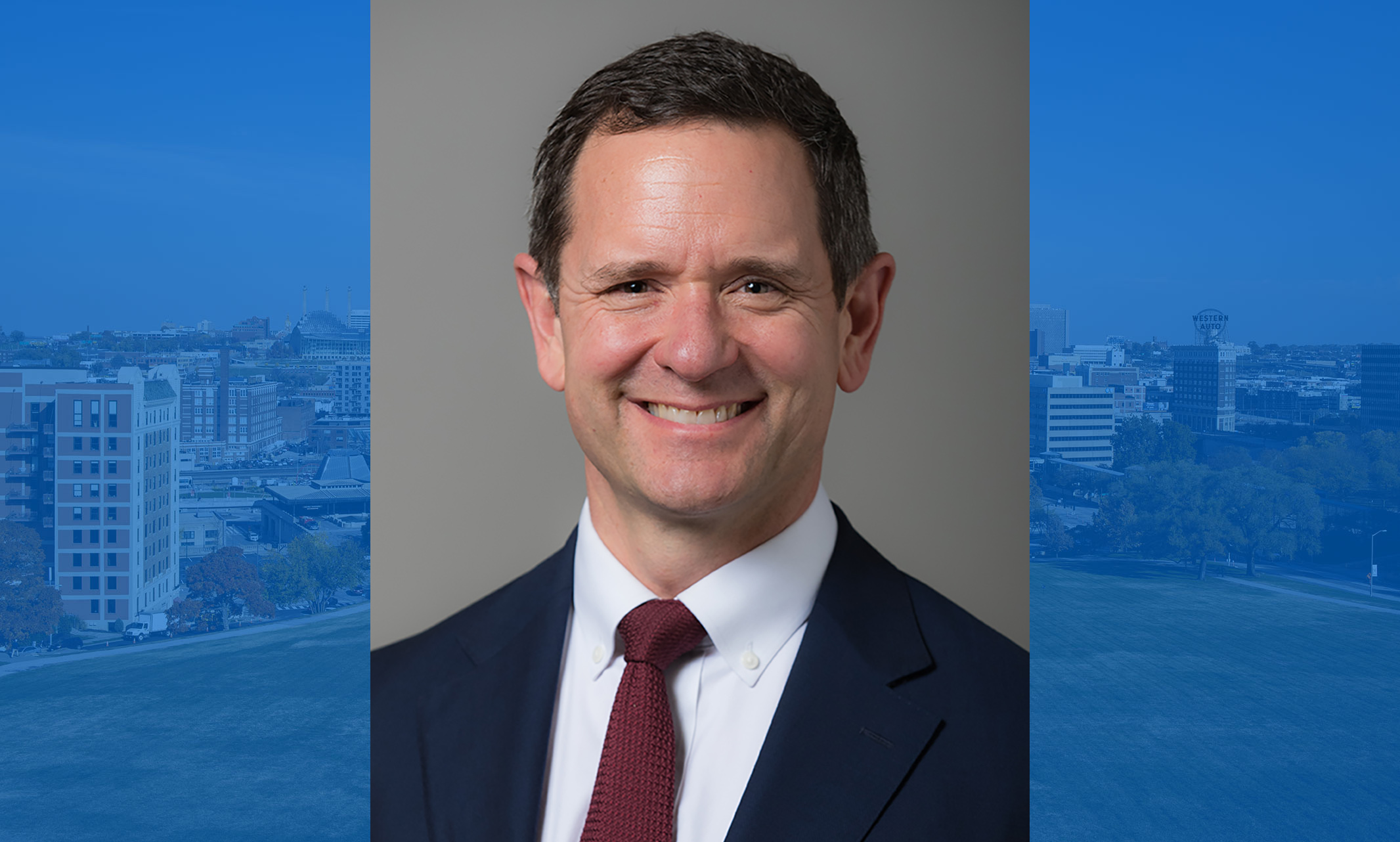
Gus Sonnenberg is a 1997 graduate of the UMKC School of Law
Gus Sonnenberg, a 15-year fundraising veteran, has joined the UMKC Foundation as senior director of major gifts for the Health Sciences Campus. He will work specifically with the schools of Nursing and Health Studies, Medicine and Pharmacy.
Sonnenberg will work with the schools’ leadership to identify, cultivate, solicit and steward those who want to make an impact on student’s lives. He said he is making plans to meet with leadership, faculty and donors to understand the schools’ priorities and create a plan to move forward.
He brings with him a strong record of success managing capital campaigns, having secured six- and seven-figure gifts. He has also led continuing education conferences and taught courses on educational foundation fundraising and leadership.
Sonnenberg, a 1997 graduate of the UMKC School of Law, said he understands the role UMKC plays in serving the greater Kansas City area, and is excited about the work that can be done to advance programs and provide financial support for students.
Sonnenberg is a Kansas City native who attended Rockhurst High School and Creighton University on an Army ROTC scholarship before law school. He started his legal career as an assistant prosecuting attorney in Cass and Jackson counties, working on everything from traffic tickets to felony trials. He was recruited to become general counsel for the General American Mutual Holding Company Receivership, where he managed the distribution of $1.2 billion dollars to individuals and companies around the world.
After wrapping up the receivership, Sonnenberg changed careers and became director of development for Rockhurst High School.
He has been active in the Kansas City Bar Association, St. Elizabeth Parish, Cub Scouts, Brookside Soccer, and the Jesuit Schools Network. He and his wife Julie, a physical therapist and founder of Empower Physical Therapy in Prairie Village, have four children and live in Leawood, Kansas.
Nov 10, 2022
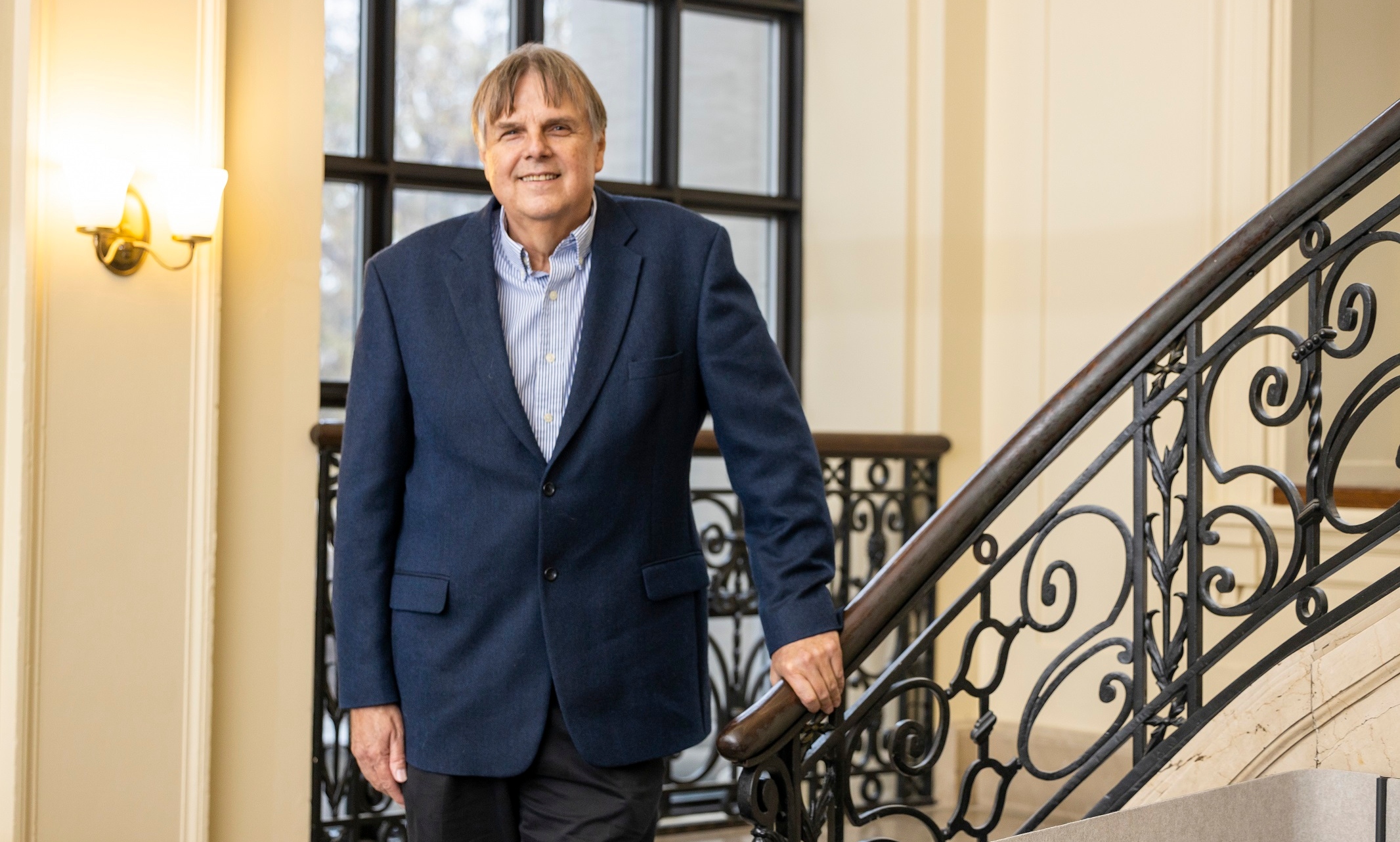
UMKC alumnus and physics professor honors father’s dedication
John Shaw, Jr., Ph.D. (M.S. physics ’76), watched his father go to night school and do his homework at the kitchen table to earn a college degree as he worked and raised a family.
Shaw, a retired physics professor, established a scholarship in his father’s name to give other students the opportunity for academic achievement.
“My father liked to be busy from the minute he got up in the morning to the minute he went to bed,” Shaw says.
John Shaw, Sr. took correspondence courses early in his career as a technician with the Federal Aviation Administration. When he became a FAA instructor, Shaw’s mother suggested that he attend night school.
“I never felt neglected by the fact that he went to school,” Shaw says. “When I was young, he would play catch with me, and read to me and my sister before we went to bed at night.”
In addition, Shaw’s father, who was the first person in his family to graduate from college, was teaching him the value of education and perseverance through his own academic goals. He graduated from college two months before Shaw turned twelve. When Shaw’s father retired, he was deputy regional director for the FAA.
“When I asked him of all the jobs that he had, which was his favorite, he said, ‘Teaching,’” Shaw says.
“Urban universities offer opportunities that are out of reach for other schools. If you’re in Kansas City, the large employer base means it’s easier to get a job while you go to school." - John Shaw, Jr.
This is something Shaw and his father had in common. By the time Shaw started college, he knew that he wanted to earn his doctorate and be a college professor; he taught physics at Northwest Missouri State until he retired in 2016.
“Seeing my dad graduate was an extremely important event in my life,” he says. “I’d always loved learning, but when I saw him graduate and the professors in their full regalia, I began to realize that there was more to education than I’d realized. That was when I became more goal oriented.”
Shaw is a proponent of urban higher education. He says that people may not understand that even students who receive scholarships and aid struggle to meet the financial demands of college.
“Urban universities offer opportunities that are out of reach for other schools,” he says. “If you’re in Kansas City, the large employer base means it’s easier to get a job while you go to school. My father wouldn’t have been eligible for a scholarship in that situation. Urban universities offer paths to education with which rural schools can't compete.”
Nov 09, 2022
Conservatory graduate Douglas Enderle makes surprise announcement at Crescendo reception
Douglas Enderle (M.F.A. '81), the 2010 UMKC Alumnus of the Year, has endowed two new scholarships for UMKC Conservatory students, honoring two longtime friends.
The Debra Joan Tucci scholarship will be awarded to a student in the Edelman Graduate Certificate in Performing Arts Management program. The Pamela Ann Carver scholarship will be awarded to a student majoring in Costume Design, the field in which Enderle built a stellar, Emmy-winning career as a senior costume designer for Walt Disney Entertainment.
Enderle said he read an item in the E-Roos alumni newsletter about the new Performing Arts Management program, intended to prepare students for management positions at not-for-profit performing arts organizations. It immediately made him think of Tucci, a friend of more than 30 years, “who was always willing to help me in whatever I needed to do.”
“I thought, what better thing could I do than to endow a scholarship in her name,” Enderle said. He decided to add a second scholarship in honor of Carver, who hired him to launch his career at Disney.
“She has guided me throughout my career,” he said of Carver. “I thought this would be a good way for me to give back.”
He is endowing the scholarships at UMKC because of the strong relationships he has formed here over the years, starting with Vincent Scassellati, the professor of costume design who hired Enderle as a graduate assistant. When Enderle was nominated for Alumnus of the Year in 2010, he formed new bonds with several people, particularly Curt Crespino, vice chancellor for external relations and constituent engagement; and Karen English, director of advancement for the School of Humanities and Social Sciences.
“These people have been instrumental in making my relationship with UMKC a huge success,” Enderle said. “They are the people who give of themselves. They are gems in this world, and that resonates with me because it seems that there are fewer and fewer of them to be found these days.”
Nov 08, 2022
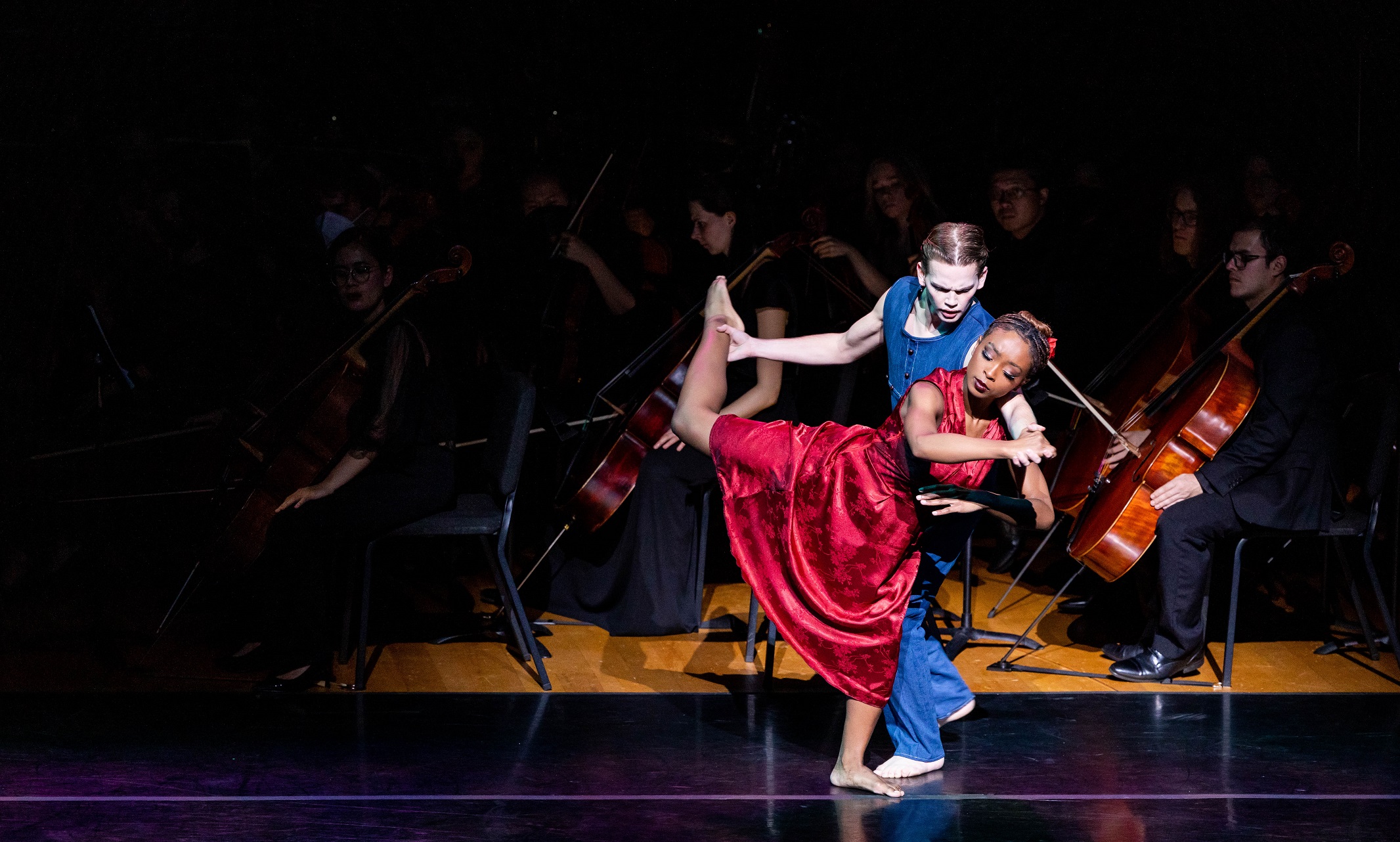
Annual benefit performance is the Conservatory’s largest fundraising event
The 2022 Crescendo event raised more than $650,000 to support Conservatory student scholarships. Approximately 1,000 people attended the gala and performance Friday evening.
Crescendo is a collage-style show, with performances from musicians, dancers and actors. Each piece flows into the next as a continuous performance. This year’s Crescendo included jazz, a strings solo, a piano solo, opera, dance, singers, various ensembles, a scene from the film “The 39 Steps” and more.
“The Crescendo performance is the ultimate exercise in team effort,” said James Snell, Ph.D., associate dean for performance. “We start planning about one year out. In August, we establish the program repertoire and students begin to work on their pieces.”
More than 250 students, faculty members and alumni performed in the show, held in the Kauffman Center for the Performing Arts. This was the 26th annual Crescendo event.
Alumni performers this year included trumpeter Hermon Mehari, operatic bass Scott Conner, operatic tenor Ben Gulley, pianist Crystal Jiang and dancer Caroline Dahm.
Nov 07, 2022
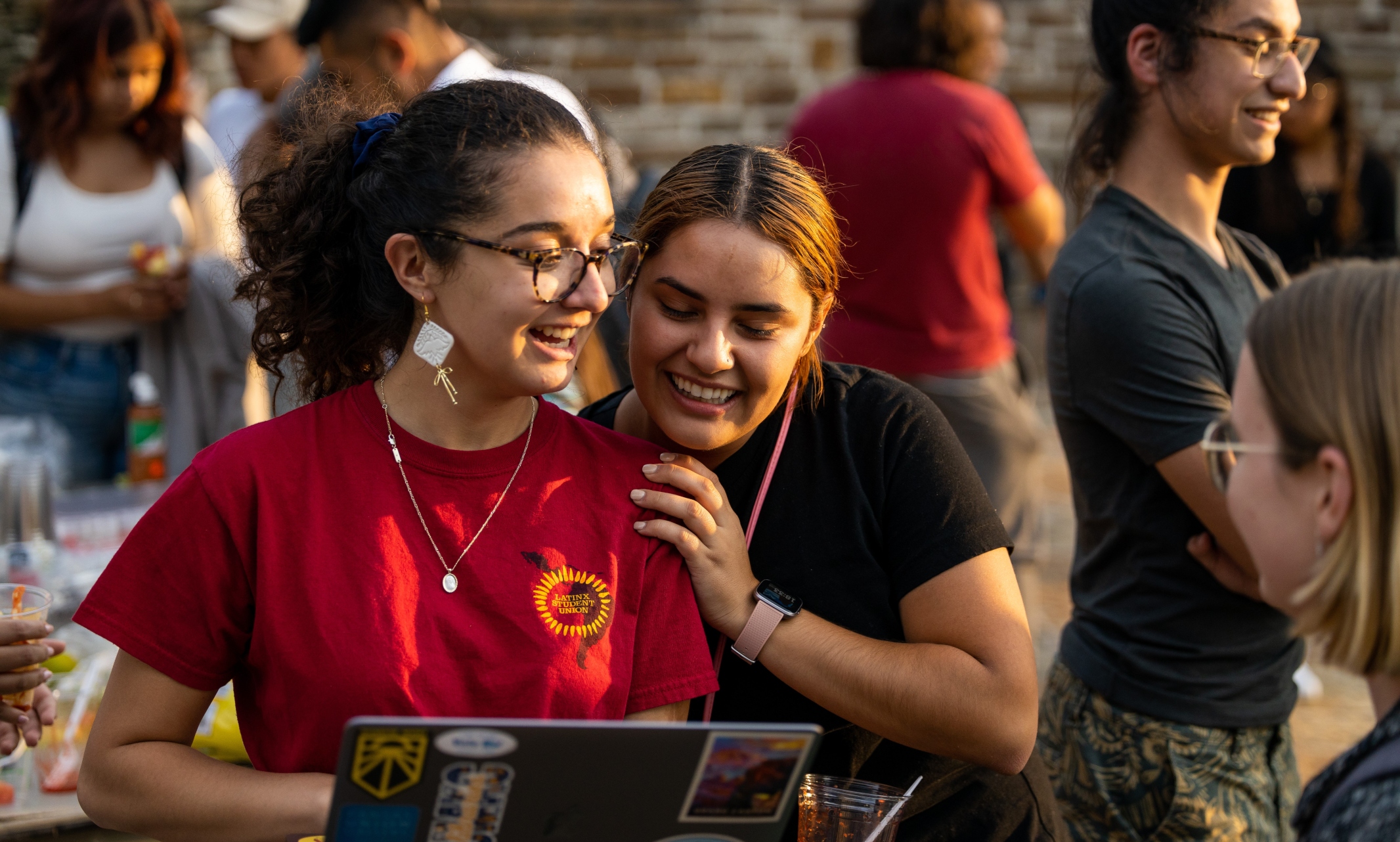
Greater Kansas City Hispanic Development Fund competition raises funds to support Latinx scholarships
The UMKC Latinx Student Union raised more than $18,000 to support Latinx college scholarships in the Cambio para Cambio fundraiser competition, hosted by the Greater Kansas City Hispanic Development Fund. UMKC LSU was the leading college team for the fifth year in a row.
Lauren Orozco, president, UMKC Latinx Student Union, is excited about her team’s accomplishments.
“The most important thing to me about raising money for scholarships is that it reflects that UMKC is a home for Latinx students. We say we are Kansas City’s university, but it's the connections people make – with students, faculty, staff and alumni – at UMKC that build our community. The Latinx Student Union has built a strong community within UMKC.”
To raise funds, Orozco and her team solicited community donations and raffled items that included a professional photo shoot, pumpkin patch tickets, AirPods and a 65-inch Roku television. They organized events, including a dance with a DJ in collaboration with the Latinx Education Collaborative, but Orozco was particularly excited that they were able to hold the Latinx Student Union Excelencia Breakfast this year.
“For half a decade we have provided scholarships that help make a home for Latinx students at UMKC. It shows that the students here care about providing a safe and welcoming space for Latinx students coming to the university.” - Lauren Orozco
“Even if we hadn’t raised the most funds this year, having the breakfast for our community was important to me. I felt the breakfast would be my legacy as president.”
Orozco says collaboration with UMKC LSU members and partners has been critical to their success in raising funds for Cambio para Cambio.
“Café Ollama, a Latinx owned coffee shop, did a promotion for us. I think that speaks to how present UMKC is in the community, especially with Latinx students. UMKC is home to so many different types of people, and being in the heart of the city makes it even more diverse.”
She thinks providing scholarships for Latinx students is both important and exciting.
“For half a decade we have provided scholarships that help make a home for Latinx students at UMKC. It shows that the students here care about providing a safe and welcoming space for Latinx students coming to the university.”
Alex Perez (M.A. ’17), director of scholarship program at the Hispanic Development Fund, says Cambio Para Cambio funds two-thirds of the scholarships the organization awards, but the impact is even broader.
“For many of our scholars, these scholarships provide hope and validation,” Perez says. “We are sending a message that their community has their back and supports their academic goals. All Cambio funds are raised with so much love, bringing to light the philanthropic power the Latina/o/x Hispanic community has when we come together.”
The Greater Kansas City Hispanic Development Fund developed Cambio para Cambio (Change for Change) in 2017 to support college scholarships for Hispanic students. In 1984, HDF awarded $100 scholarships to 100 students. This year the organization raised $425,984 to support scholarships that they will award this spring.
Nov 02, 2022
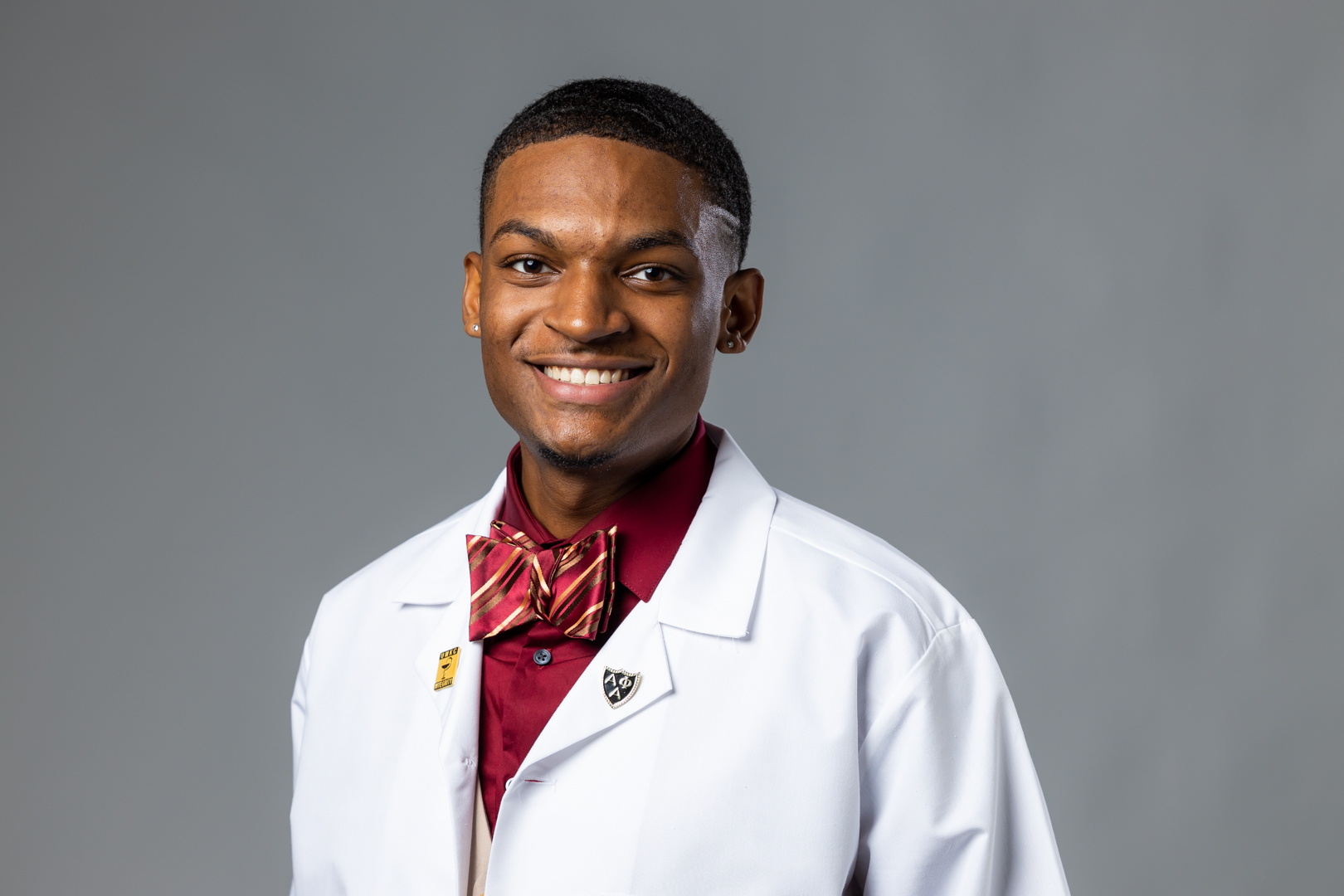
Rewards come from caring for patients and connecting with colleagues
Roos don’t just dream, they do. Our students turn ideas into action every day. Get to know our people, and you’ll know what UMKC is all about.
Calvin FlemonsAnticipated graduation: 2025Academic program: PharmDHometown: St. Louis
Why did you choose UMKC?
I initially chose UMKC for two reasons: It was close to home, and it had a six-year pharmacyprogram compared to seven years at many other universities. I wanted to attend a universitythat was affordable and would allow me to get away from home, but not too far. UMKC isthe perfect distance that allows for independence and a college experience. The six-yearprogram was the big ticket that drew me to campus because I could obtain my PharmD in lesstime and for less money!
Why did you choose your field of study?
Believe it or not, I did not always want to become a pharmacist. Originally, I wanted to become an engineer, but the math courses made me rethink my decisionquickly. However, I still liked math and also loved helping and caring for people. Afterresearching a multitude of careers in healthcare, I felt that pharmacy gave me that perfectbalance.
What are the challenges of the program?
No program is easy, but I would say time management and the heavy course load is challenging. In pharmacy school, there are some weeks when you have three exams, quizzes and homework all due in the same week. It never slows down. The load of the material and amount of studying is the most rewarding, but also the most challenging. You must figure out how to study effectively and utilize all your time efficiently.
What are the benefits of the program?
The biggest benefit of the PharmD program is knowing all this material will equip you to carefor patients in the future. Knowing that people’s lives will be in your hands makes you excitedto learn new things every day and to challenge yourself to a new level. Another benefit ishaving the opportunity to work alongside other programs on the Health Sciences campus. Getting to interact with medical, dental and nursing students allows me to see multiple aspects of healthcare and how we all fit into this large puzzle.
How has your college program inspired you?
My college program has inspired me to never give up and to not only represent myself, but allthose around me and coming after me. Attending a PWI (predominantly white institution),feeling like you belong and feel included can be a challenge sometimes. In this program thereare very few students who look like me, so I am inspired to encourage other students of colorto go into healthcare. Our representation is vital, and if my presence can help someone elsefeel inspired or interested in healthcare, then I am doing my part.
Since entering college, what have you learned about yourself?
Comparing freshman year to me today is a 0 - 100 experience. During my journey in school, Ihave learned that I am very ambitious and want to get the most out of my experience here. Ilove being involved and interacting with others on campus whether it is students, faculty oradministration. I have also learned that I am - and want to continue to be - impactful on and offcampus. I believe the best way to make an impact is to give back and serve those around you.Through my time working with organizations, I learned that I could impact and help those around me,which is very fulfilling.
Are you a first-generation college student? If so, what does that mean to you?
I am not a first-generation college student, but I am a first-generation pharmacy student. Mymother and father paved the way for me and my sister, and education has always been important. Being a first-generation pharmacy student however means everything to me because I amdoing this for myself, my family and my community. Knowing that Black men in healthcare arescarce, we need more of us to represent and make an impact and difference. Having theknowledge to improve and possibly change someone’s life is mind-blowing and I am gratefulevery day of the journey.
Who/What do you admire most at UMKC and why?
I admire all of the student leaders that I get the privilege to work alongside. Seeing thesestudents show up to the task every time with no complaints and still uphold their academicsis motivational. There are many students who have taught me so much during my journey and Ihope to do the same for others around me.
What other extracurricular activities are you involved in at UMKC?
I am very involved on both the Volker campus and Hospital Hill campus at UMKC. Being a partof these organizations allows me to challenge myself and give back to my campus and community! I am involved in 7 organizations: President of Alpha Phi Alpha Fraternity, Inc. – Delta Rho Chapter; Vice-President of The National Society of Leadership and Success; President-Elect of The Student National Pharmaceutical Association; UMKC STAHR Ambassador; Treasurer of The Student College of Clinical Pharmacists; Treasurer of Black Student Pharmacists Organization; Financial Recorder of National Pan-Hellenic Council.
What do you hope to take from your experiences at UMKC into your professional career?
I hope to make new connections with other UMKC students and faculty around me. I believe that lifelong connections with others is more important than any amount of coursework you could learn.
Nov 02, 2022
While the Federal Communication Commission estimates that 16 million people in rural America go without broadband Internet access, that number may ...
Researchers Nick Mathews, assistant professor of digital journalism at the University of Missouri-Kansas City, and Christopher Ali, the Pioneers Chair in Telecommunications and Professor of Telecommunications in the Bellisario College of Communications at Pennsylvania State University, conducted 19 interviews with families in a rural county in the East Coast who lacked adequate broadband connections. Read more.
Nov 02, 2022
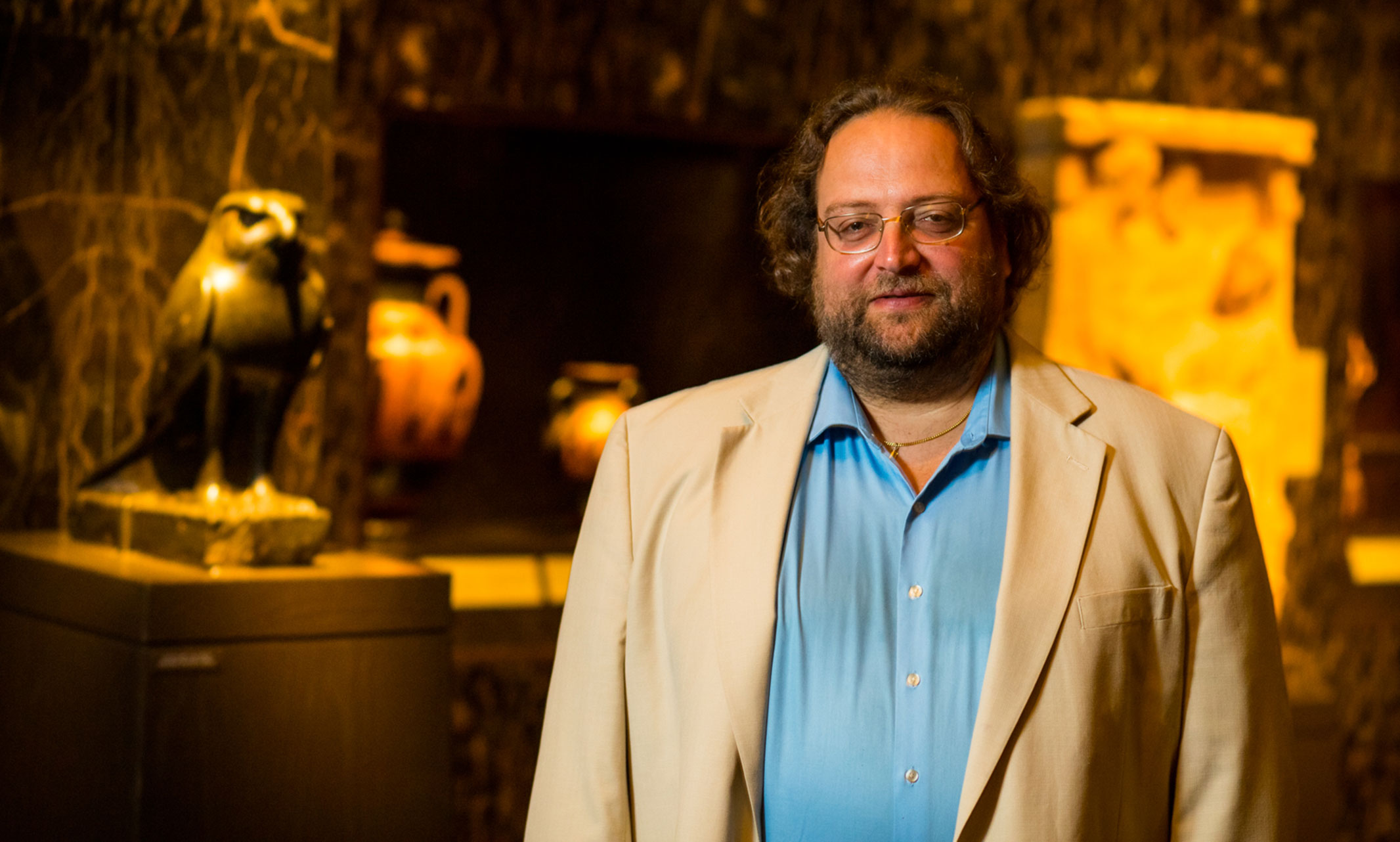
Massimiliano Vitiello, Ph.D., one of two UMKC faculty honored
The University of Missouri Board of Curators recently named Massimiliano Vitiello, Ph.D., of the School of Humanities and Social Sciences a Curators' Distinguished Professor.
Vitiello conducts research on ancient history, Late Antiquity, Byzantium and the early Middle Ages, with an emphasis in Roman History. He is the M.A. program adviser for the history department and a faculty member in the Humanities Consortium.
“The period I work on is the migration, the barbarian invasions for the Roman Empire,” Vitiello said. “This is all in the fifth, the sixth and the beginning of the seventh century AD. It's one of the fields, especially in the United States, that was established in the 1970s. It’s actually a fairly new field of study.”
Vitiello was born in Rome, Italy. He earned his Ph.D. from the University of Messina in Sicily in 2001 and a postdoctoral License in Mediaeval Studies from the Pontifical Institute of Mediaeval Studies in Toronto, Canada, in 2009. He has worked as a researcher in Germany, where he has held such awards as the Alexander Von Humboldt Fellowship, the DAAD Fellowship and the Heinrich Hertz Fellowship.
He began teaching at UMKC in 2010 and quickly joined the tenure track. While at UMKC, he has been awarded the Trustees’ Faculty Scholar Award in 2015, the UMRBand the Norman Royall Professorship. He was also awarded early tenure in 2015.
“The environment at UMKC has always been very nice,” Vitiello said. “You feel that you are supported. If there is any issue, you can always talk to the people above you and rely on the advice. They put you in a very relaxing atmosphere, which actually is very productive for the research.”
Though already a highly decorated researcher, Vitiello feels very fortunate to receive this recognition from the Board of Curators.
“To reach this point, especially like in a field like mine that’s a little bit less known than other fields, it makes me feel that what I've been doing matters,” he said. “I’m leaving a legacy that goes outside of the department, and that makes me feel good.”
He also hopes this draws attention to the importance of Humanities across the University of Missouri System.
“Our society is an expression of the way we understand the present, the way we understand the past, how we understand the legacies and humanity,” Vitiello said. “The humanities should not be underestimated. They don’t generate the big money, but they definitely generate good people, which is very important, especially now.”
Oct 31, 2022
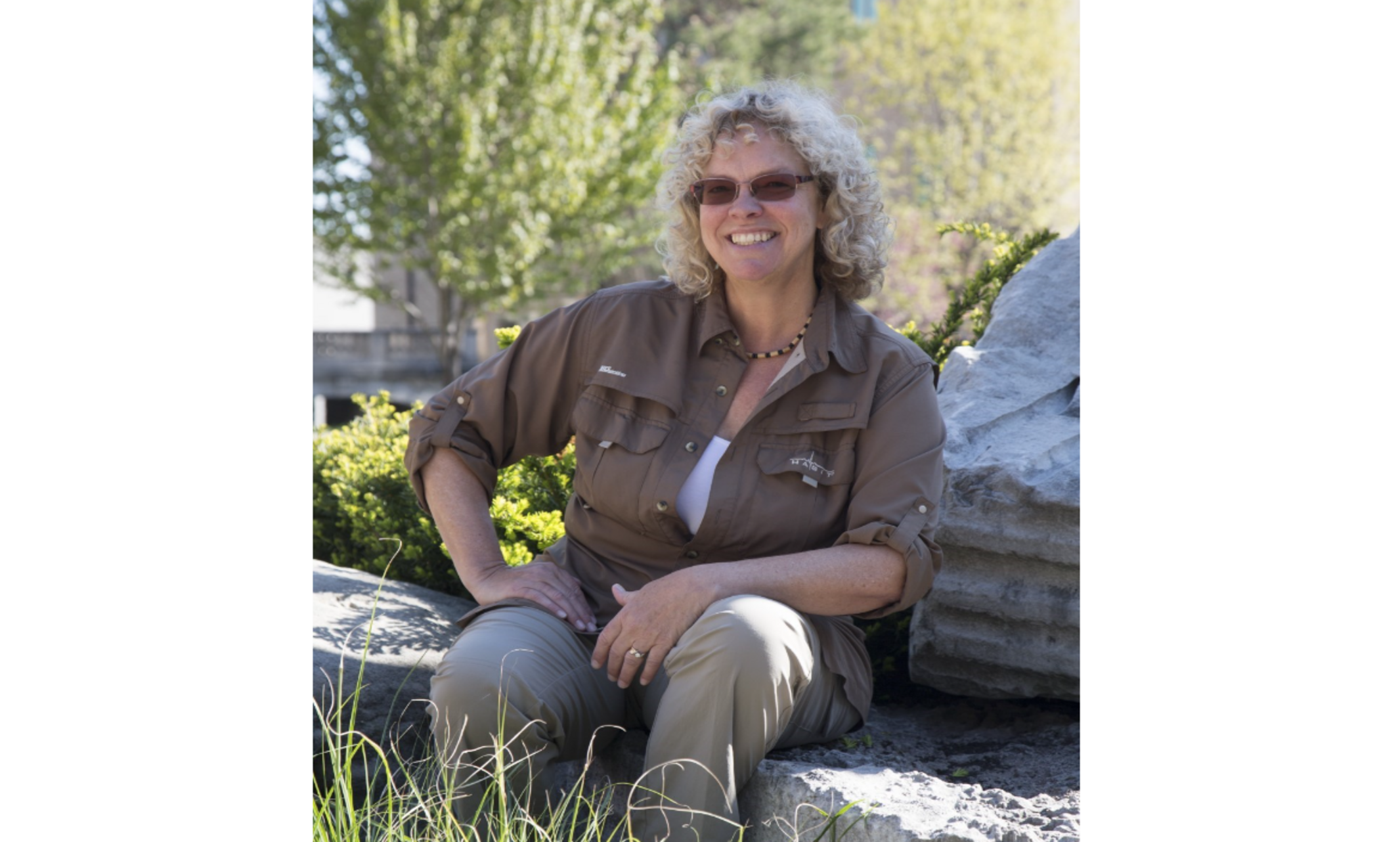
Niemi named Curators’ Distinguished Professor
Tina Niemi, Ph.D., knew she wanted to be an archeologist or a geologist from a young age. Now, as an Earth and Environmental Science professor at UMKC, she is inspiring the next generation of scientists.
Niemi, who teaches in the School of Science and Engineering, was recently named a Curators’ Distinguished Professor by the University of Missouri Board of Curators. It is the highest and most prestigious academic rank awarded by the Curators, and it is given to a select few outstanding scholars with established reputations.
Growing up, Niemi said her mother kept a large rock garden in their backyard filled with all kinds of souvenirs from time spent hunting arrowheads on her grandfather’s farm. This started her love of archeology and geology.
She went on to study both archelogy and geology for her undergraduate degree, geo-archelogy for her master’s and earthquakes for her Ph.D. Niemi specializes in geoarchaeology, sedimentology and active tectonics.
Specifically, Neimi’s scientific interests include studying active faults, earthquake recurrence in the geologic and archaeological records, reconstructions of ancient environments, analyses of high-resolution geophysical data and the study of recent hurricane and tsunami sediment deposits.
“It’s crazy to think I’m doing exactly what I dreamed about as a kid,” Niemi said.
As a field geologist, Niemi and her students collect aerial imagery using drones and stratigraphic (rock-layering) data from outcrops, trench excavations and cores to build a deeper understanding of the history and nature of tectonic, climate and anthropogenic (human-influenced) environmental changes through time.
One of Niemi’s favorite parts of being a professor is her connection with her students and research her student-led teams have conducted. Under her supervision, students have had the chance to participate in real-world research in Mexico, Guatemala, the Bahamas, India, Jordan, Turkey and on the San Andreas fault and New Madrid seismic zone.
“I’m very proud to have mentored nearly 60 undergraduate research projects and have facilitated probably another 40 with my NSF [National Science Foundation] student research projects,” Niemi said. “I’ve had students put in their evaluations that it was life-changing – that it changed the trajectory of their careers.”
Along with Niemi, Massimiliano Vitiello, Ph.D., of the School of Humanities and Social Sciences, was also given the award. Both were celebrated at the UMKC Promotion and Tenure event earlier this month.
Oct 31, 2022
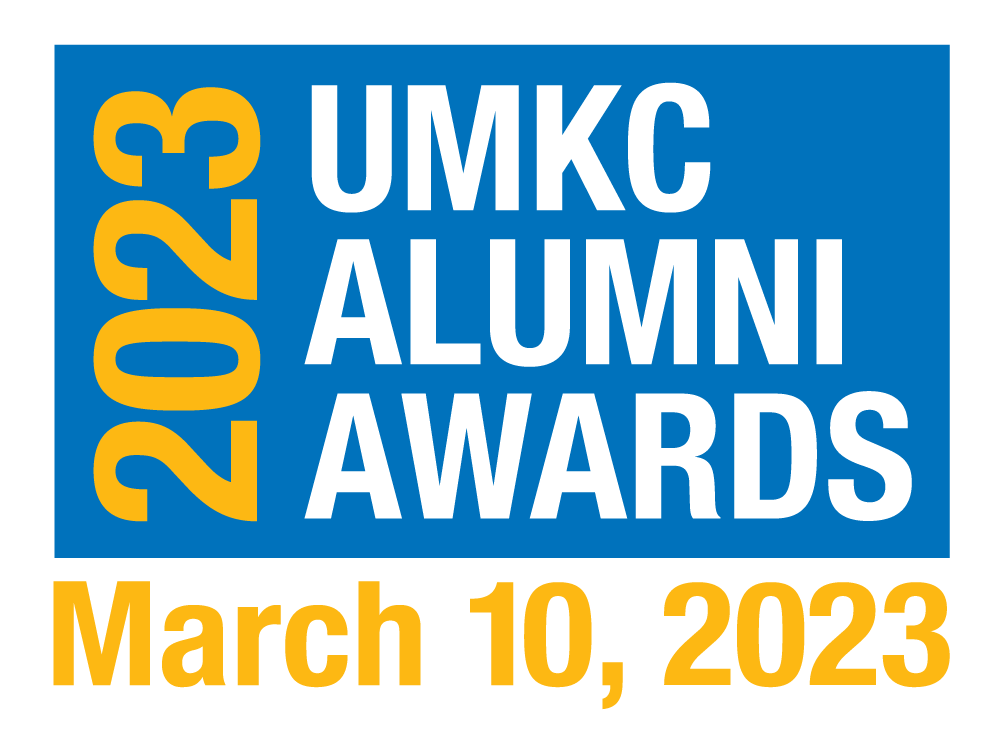
Sixteen alumni and one family will be honored March 10
The University of Missouri-Kansas City Class of 2023 Alumni Achievement Award recipients includes a criminal defense lawyer who has argued (and won) before the United States Supreme Court, a civil rights activist, a national CEO and a legacy family whose name is well-recognized in the Kansas City legal community.
Each year, UMKC recognizes a select group of alumni for their amazing and inspirational accomplishments. The event offers a chance to share the achievements and successes of graduates UMKC sends out into the world each year at Commencement.
The Alumni Awards ceremony is one of the university's largest events to support student scholarships. In the last decade, the Alumni Awards event has garnered more than $1 million in scholarships and immediate aid for UMKC students.
Join us in honoring the Class of 2023 awardees at a celebration at 5 p.m. on March 10 at the Westport Commons. Visit UMKC's Alumni Association website to learn more about this year's event. If you are unable to attend the event but would like to donate to student scholarships, contributions can be made online.
University-Wide Alumni Awardees
Alumnus of the Year: Sean O'Brien (JD '80)
O'Brien is a nationally recognized criminal defense lawyer, with successes in the United States Supreme Court and federal and state courts across the country. At least 17 innocent and wrongfully convicted individuals have been exonerated largely due to his efforts, and he has personally been responsible for at least 24 individuals being removed from death row.
Prior to returning to UMKC to teach in the early 2000s, he served as the chief public defender in Kansas City, Missouri. From 1985 through 1989, he served as executive director of the Missouri Capital Punishment Resource Center, now the Public Interest Litigation Clinic.
In addition to teaching Criminal Law, Criminal Procedure and Wrongful convictions at the UMKC School of Law, O'Brien is the director of various pro bono criminal defense clinics, including the Death Penalty Representation Clinic, Public Defender Appeals Clinic and the Public Defender Trial Clinic. He continues his work in criminal defense through these clinics.
Spotlight Award: Bruce Bubacz
This year, Bubacz will celebrate his 50th year of teaching at UMKC. He has touched the lives of more than 5,000 students over the course of his tenure.
He is a Curators' Teaching Professor of Philosophy and professor of Philosophy and Law. He joined UMKC in 1973 and served as founding director of the College Honors Program, a program for academically talented undergraduates, from 1979 until 1985. He chaired the Philosophy Department from 1987 until 2000 and served as dean of the College of Arts and Sciences between 2000 and 2002, served as chair of the Department of Mathematics and Statistics from 2004-2005 and as provost and vice chancellor for Academic Affairs from 2005 until 2007. He was also the chair of the Philosophy Department to UMKC Forward academic realignment in 2022.
The Bill French Alumni Service Award: Patricia Macdonald (BLA)
Macdonald has a long history in nonprofit management, research, strategic planning and resources development. She is the Director of Strategic Ventures and Operations for the Healthcare Institute for Innovations and Quality at UMKC, the past president of the Mid-American chapter of the Association of Fundraising Professionals, chair of the UMKC Alumni Association Multicultural and Community Affairs Committee and a past president of the UMKC Alumni Association.
She has participated in numerous campus activities, from search and selection committees to gala planning. In 2016, she was awarded the CASE VI Volunteer Service Award given to those who have demonstrated tremendous service for higher education institutions in the Midwest.
Defying the Odds Award: Rev. Carl Moore (BME '68)
While attending college at Alabama State in the spring of 1960, Rev. Moore was arrested for protesting racial inequality. As a result, he could not return to the university in the fall -- so his mother put him on a train to Kansas City, where he began attending UMKC.
After graduating with a degree in music education, Rev. Moore taught high school music for three years before taking a job as a sales representative for IBM, where he stayed for the next 24 years. At the age of 40, Rev. Moore felt called to ministry and began taking courses at the New Orleans Seminary and the Interdenominational Theological Center in Atlanta and accepted his first pastorate at a small church. Rev. Moore continues in ministry today at Allen Temple AME Church in Woodstock, Georgia, where he has consistently grown his congregation yearly.
Legacy Award: The Accurso Family
The Accurso Family's legacy at UMKC dates back generations. Joseph C. Accurso attended what was then Kansas City University and laid the path for many generations that followed to become Roos.
Family members include Joseph’s nephew, Louis Accurso, who earned his BA from UMKC in 1978 and his JD in 1981. Just seven years later, he founded one of Kansas City's most well-recognized law firms: the Accurso Law Firm. His sons, Christopher (BA '11, JD '17); Anthony (BLA '12, MD '12) and Patrick Accurso (JD '18), went on to continue the legacy.
Countless other family members have also attended including Michael C. Accurso (BBA '82), Melissa Accurso (BA '88), Joseph M. Accurso (BA '96), Tammy Dickinson (JD '98), Terri Accurso (BA '02, MA '12), Danielle Roy (MS '09) and Nicholas Accurso (BBA ’20).Members of the family have graduated from nearly every program on campus, including the College of Arts and Sciences, Henry W. Bloch School of Management, School of Biological and Chemical Sciences, School of Education, School of Law and School of Medicine. School Alumni Achievement Awardees *
School of Biological and Chemical Sciences: Beth Harville (Ph.D. '95)
Senior Executive Vice President and Provost, Drury University
Henry W. Bloch School of Management: Ramin Cherafat (MBA '02)
CEO, McCownGordon Construction
School of Computing and Engineering: Ken Gerling (BSCE '91)
Vice President Transmission & Distribution, Burns and McDonnell
Conservatory: Charlie Corcoran (MFA '01)
Award-winning scenic designer
School of Dentistry: Cesar Sabates (DDS '87, AEGD '88)
Former President, American Dental Association. Dental Practice, Solo General Dentistry
School of Dentistry- Dental Hygiene: Heather Samuel (BSDH '90, MSDH '91)
Retired Professor of Dental Hygiene, Johnson County Community College
School of Education: Chris Brown (Ph.D. '93)
Chair, Division of Counseling and Psychology, UMKC
School of Law: Scott Bethune (JD '88)
Founding member, Davis, Bethune & Jones, LLC
School of Medicine: Arif Kamal (MD '05)
Chief Patient Officer, American Cancer Society
School of Nursing and Health Studies: Shweta Palakkode (BHS '15)
Health Policy Analyst, U.S. Department of Health and Human Services
School of Pharmacy: Craig Norman (BS '83)
Senior Vice President of Pharmacy, H-E-B
*Nominations were collected before UMKC Forward realigned academic units. Next year, some awardees will be named in their new academic units: School of Science and Engineering, School of Humanities and Social Sciences and School of Education, Social Work and Psychological Sciences.
Oct 27, 2022
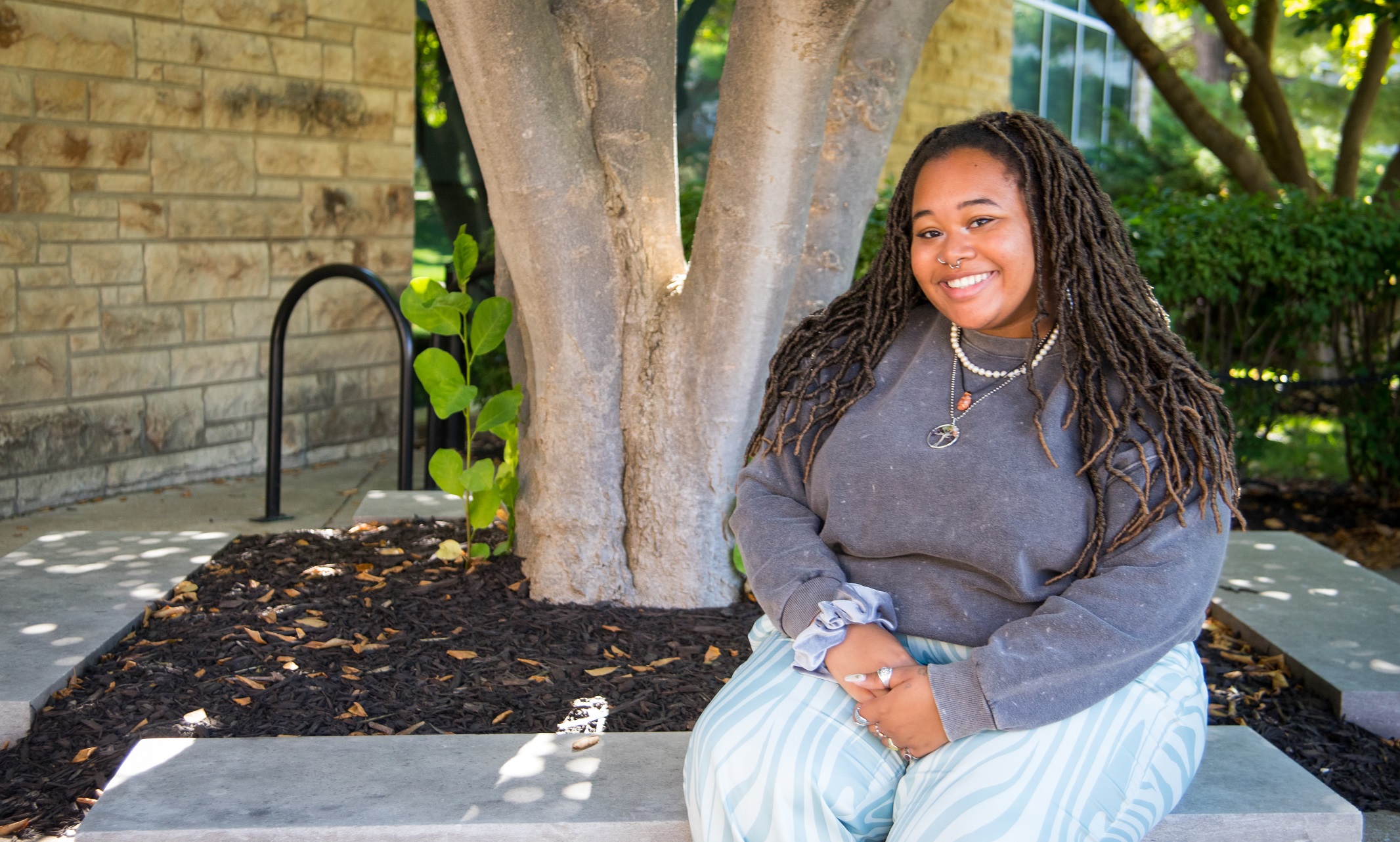
Ophelia Griffin chose UMKC and discovered their passion and self
Roos don’t just dream, they do. Our students turn ideas into action every day. Get to know our people, and you’ll know what UMKC is all about.
Ophelia GriffinAnticipated graduation: 2025Academic program: University College, moving into communicationsHometown: Lee’s Summit, MO
Why did you choose UMKC?
I took a gap year after high school graduation because of COVID. I had a plan for college, but I knew I couldn’t mentally do it under quarantine. I was working during my gap year and some of my friends were going to UMKC. They said it was a great place to be yourself, so I applied and now I’m here! I love it, it’s such a good place to be.
You are currently an exploratory student in University College and plan to major in communications. Why did you choose communications?
I love making connections with people and just talking with them. I hope to be a business manager, or maybe own my own business one day!
What are the challenges of being an exploratory student in University College?
Understanding myself and the type of person I am, coming to terms with what I’m good and not so good at, has been a challenge for me. Just learning about who I am as a person has been a journey.
What are the benefits of being an exploratory student?
Exploring everything UMKC offers has been really cool. I love hearing from other students what they want to go into; a lot of my classmates want to do really cool things that I didn’t even know were possible. I just think it’s great to see people having different interests and exploring their options.
How has University College inspired you?
I was an orientation leader, and I tell students going into University College that they’ll find out what they’re supposed to do and where they’re supposed to be. The College planted a seed in me and allowed me to blossom into the person that I am. It helped me understand who I am and what I can accomplish here. I love it.
What do you think you’ve learned about yourself since being at UMKC?
I’m a really hard worker and that I try to succeed in everything I can. I’ve also learned that it’s okay to have slip-ups; it’s not the end of the world and I can bounce back.
You’re vice president of the University Theatre Association, a senator in Student Government Association, member of UMKC Democrats and a member of Alpha Sigma Alpha sorority. What inspired you to get involved in so many organizations?
I have no sense of time management and love saying yes to things. My first year at UMKC, my advisor, Rachel, sat me down and told me that getting involved is key to a good college experience. I’ve met so many people here who inspire me to get more involved because I love having so many connections on campus.
Who do you admire most at UMKC?
As a whole, the theatre group really inspires me. Everyone contributes to making theatre a good, safe place to be. Our president, Hannah, is one of the most hard-working people in the program. She gives 110% and I feel so lucky to be her vice president. I’m just inspired by what she does and how she does things.
What are you most proud of during your time at UMKC?
My grades - I was worried about taking a gap year before starting college. But I’ve realized that I’m a smart and capable person, and my grades have never been better.
Is there anyone who is a mentor to you on campus?
Rachel Hughes, she was my boss when I was an orientation leader. All summer during orientation, she made sure that we had fun and made students feel at home.
What do you hope to take from your time here into your professional career?
I hope to start my own inclusive business one day, mainly because of the experience I’ve had here at UMKC. It’s so diverse and so inclusive to everybody. I want a business that shares the same amount of love for people.
Oct 21, 2022
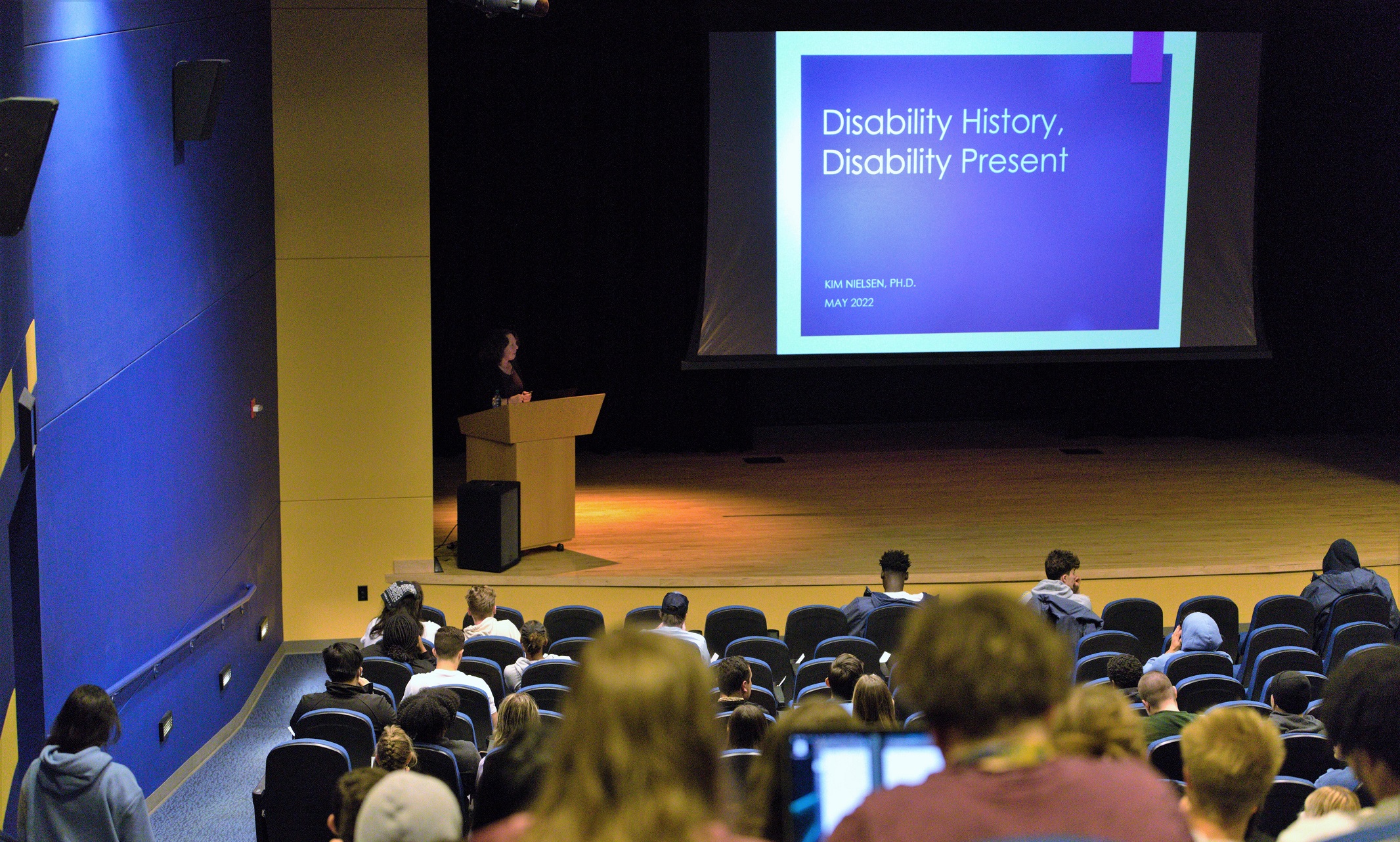
Kim Nielsen, Ph.D., spoke about the history of disability in the United States and why it matters to all of us
Disability is central to U.S. history and shaped the body of the nation, according to Kim Nielsen, Ph.D., an award-winning historian and disability justice advocate.
Nielsen, a distinguished professor of disability studies at the University of Toledo, delivered the 2022 Social Justice Lecture at UMKC on Oct. 20.
She spoke about the history of disability in the United States, why it matters at this moment in time and what disability justice really looks like. She illustrated her talk with stories from history and her personal life.
Nielsen first became interested in disability history when writing - or, as she said, procrastinating on - her dissertation. She was reading far-right-wing publications from the early 1900s when she came across lists of the most dangerous women in America. To her surprise, Helen Keller was on several of these lists. Keller was an author, outspoken advocate for disabled and marginalized peoples and a co-founder of the American Civil Liberties Union. She was wary of being too involved in politics because she was viewed in terms of her deafness and blindness.
“The assumption that disability equated political incompetency effectively silenced her, while her disability did not. It was attitudes, not disability, that was the problem,” said Nielsen. “The story of U.S. history is the story of independence, autonomy and ruggedness. But it’s also a story in which dependence is bad, including any weakness or reliance on others. Disability is stigmatized partly because of this.”
“Disability is not the end of the world. In fact, it can be quite fine. Letting go of ableism will make life easier for all of us."
- Kim Nielsen
Helen Keller’s story was just one example Nielsen gave of the times throughout history that disability was used to stigmatize, silence or exclude people. Several of her stories made the point that disability was used in history to justify racism, sexism, homophobia and more. At different points in history, the concept of disability was used to control immigration, legitimize homophobia and keep women from attending college.
“The categorization of bodies as disabled has always been entwined with other power hierarchies,” said Nielsen. “The definition of disability was shaped by homophobia, antisemitism and classism.”
This moment in time is pivotal for disability justice, Nielsen says. Covid left approximately 19 million people disabled, either temporarily or permanently. The pandemic also contributed to mental health needs for many people. Additionally, experiencing racism can leave physical, emotional and psychological trauma.
“This is our contradiction and our crisis. We are at this national, and perhaps global, moment in which disability justice and activism are flourishing, but ableism and disregard for people with disabilities is also flourishing.”
When speaking on disability justice, Nielsen gave a statement she described as simple but radical.
“Disability is not the end of the world. In fact, it can be quite fine. Letting go of ableism will make life easier for all of us. I believe that if we’re comfortable with disability and dependence, we can more easily ask for help. None of us can do everything. Knowing when and how to ask for help is a really good thing.”
Nielsen is a historian focused on disability history and justice. She is a distinguished professor of disability studies at the University of Toledo. Nielsen is the author of the widely used “A Disability History of the United States,” multiple other books and articles, and co-editor of the award-winning “Oxford Handbook of Disability History.”
In addition, Nielsen has received two Fulbright appointments, numerous scholarly prizes, and a National Endowment for the Humanities Fellowship. She received her Ph.D. at the University of Iowa.
About the lecture series:
The Social Justice Book and Lecture series invites participants to think critically about the historical context of social justice issues and foster a sense of community and dialogue surrounding the issues. Students, particularly first-year students, engage with the chosen book through related coursework, projects and initiatives.
The series is part of Social Justice Month, a time for thought-provoking reflection and engagement for the campus community. A series of events throughout the month focuses on social justice issues at both the local and national level.
Oct 21, 2022
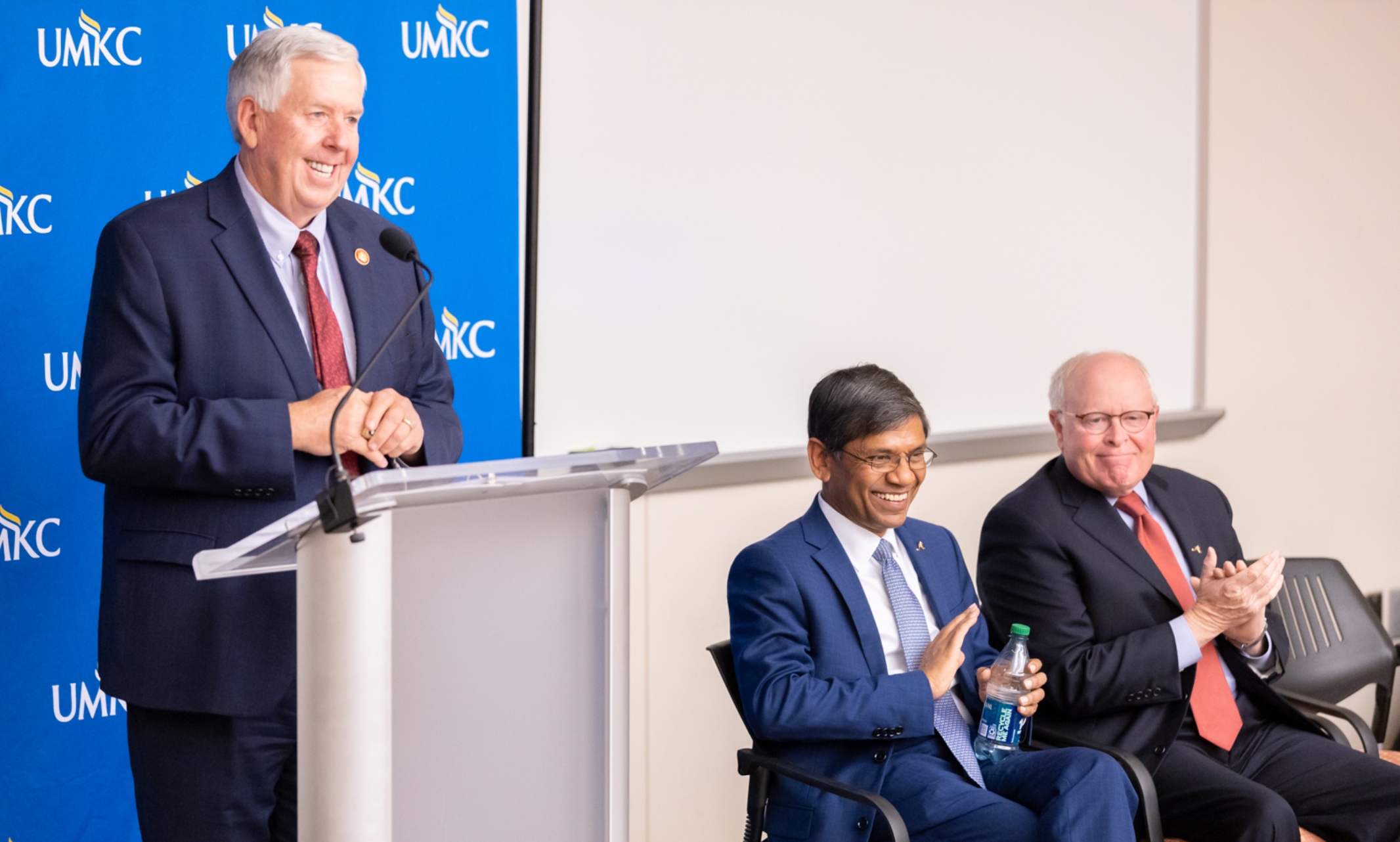
New cutting-edge educational facility will serve as a catalyst for growth and position the district to become a premier academic medical district
The University of Missouri-Kansas City announced a $30 million gift today from the Sunderland Foundation to help fund a new state-of-the-art medical and dentistry building in the UMKC Health Sciences District. The project will escalate momentum for expanding the district into a major regional academic medical center that can provide innovative health care, attract top medical students and researchers and generate billions of dollars in jobs and economic development, while advancing care for the underserved.
The multi-story, $120 million Healthcare Delivery and Innovation Building will house new dental teaching clinics and expanded medical school teaching facilities. In addition, it will provide space for the UMKC Health Equity Institute, the university’s Data Science and Analytics Innovation Center and its new biomedical engineering program.
“We are grateful to the Sunderland Foundation for their investment in taking the Health Sciences District to the next level, spearheading an academic medical center with extraordinary community benefits,” said UMKC Chancellor Mauli Agrawal. “This gift -- by a local foundation that supports making big positive change in Kansas City -- is an investment not just in a building, but in a truly big, longer-term vision. We believe our new building will escalate momentum to exponentially expand the Health Sciences District in coming years to become the major regional academic medical center that we know it can be.”
On hand to help announce the gift was Gov. Mike Parson, who in July signed legislation from the state of Missouri to appropriate $40 million for the building. This appropriation came with a challenge to the Kansas City community to raise the additional funds needed.
“We are proud to support the efforts of UMKC to improve educational opportunities in science, technology, engineering and math to expand health-care access in the state of Missouri, particularly in rural areas,” Parson said. “Missourians will reap the benefits of increased collaboration between health-care services and the data science and biomedical engineering programs that will share the building. This partnership could help further health outcomes through new, innovative solutions right here in Missouri.”
Grants from the Sunderland Foundation focus on brick-and-mortar projects for established organizations to foster a stronger, safer and more vibrant future for the communities it serves.
“The Sunderland Foundation is proud to give to UMKC’s efforts to transform the Health Science District,” said Kent Sunderland, chairman of the Sunderland Foundation. “The cutting-edge facilities will provide innovative training opportunities for tomorrow’s doctors, dentists and health-care leaders who will improve prosperity in our neighborhoods, cities and state. The Sunderland Foundation and UMKC share a mission of caring for the underserved and lifting neighborhoods.”
UMKC is one of only 20 universities in the country where schools of Dentistry, Medicine, Nursing and Health Studies and Pharmacy share a single, walkable campus, an arrangement that facilitates interprofessional training for students and opportunities for research collaboration among the health sciences.
Additionally, the new building will create opportunities for increased collaboration among UMKC and its health district partners including University Health and Children’s Mercy, which allows for a greater capacity for finding health solutions and providing patient care. This project will expand UMKC’s mission to elevate health equity across Kansas City, including many initiatives that work with the underserved including UMKC’s dental clinics, the Sojourner Clinic and the Center for Health Equity, which works through a network of churches in the urban core.
Oct 19, 2022
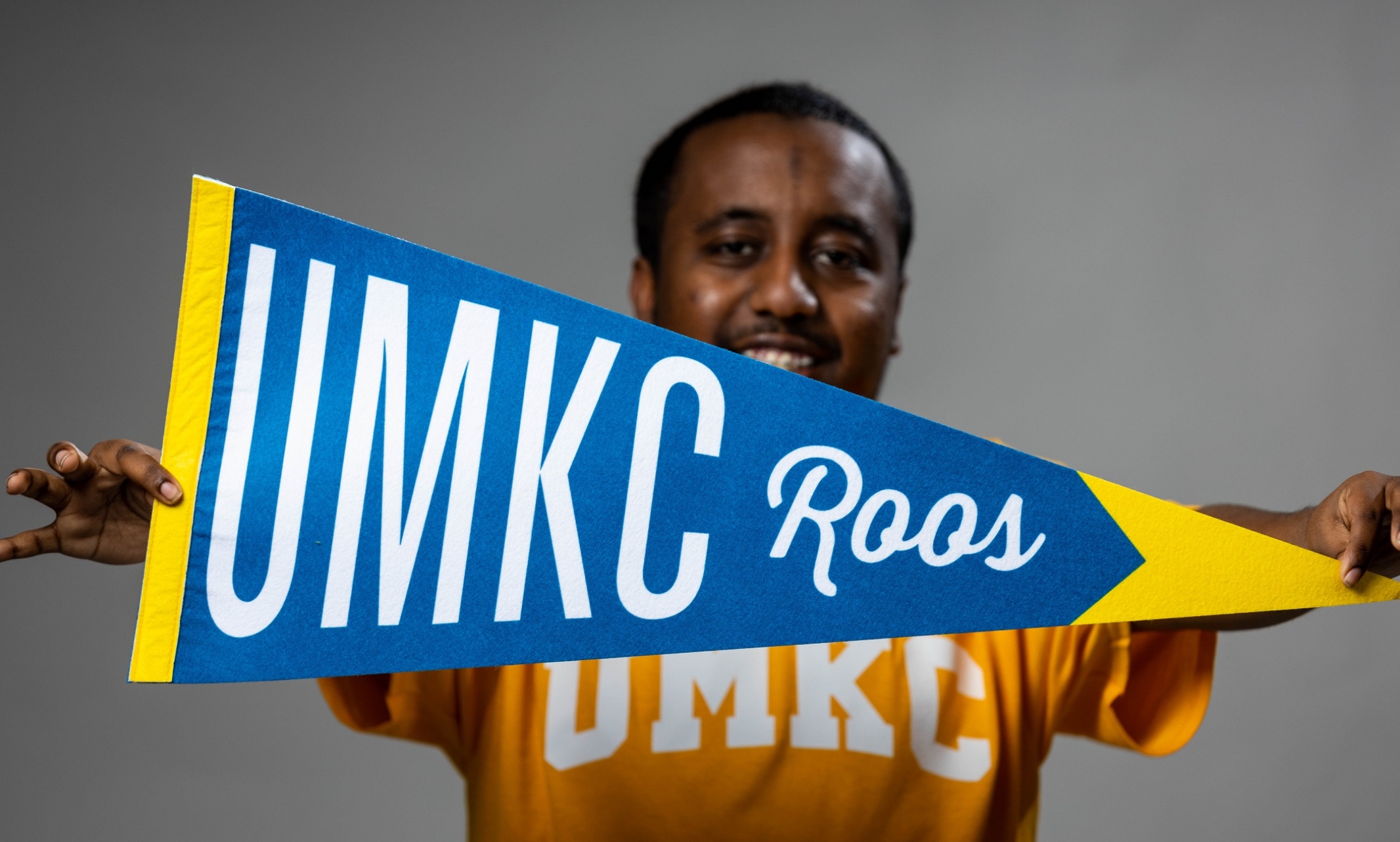
Resources are available year round
All Roos are welcome, and we want to make sure our transfer students have what they need. Even if you’re a new student, you’re already part of the UMKC family.
National Transfer Student Week celebrates transfer students at UMKC and provides critical resources for academic and career success. Supported by the Office of Student Involvement, the Honors Program and Admissions transfer students have the opportunity to work with people in these organizations to help students find their fit and their future at UMKC. But resources for transfer students are not limited to one week; we support our Roos from the first day they’re on campus until they move their tassels at graduation and beyond.
Center for Transfer Students and Adult Learners
The Center for Transfer Students and Adult Learners is a one stop shop for students coming to UMKC to find help with transferring their existing credits, learning about available scholarships and on-campus housing and anything else they may need to become a Roo!
Transfer Student Network
The Transfer Student Network helps new Roos connect with the UMKC and Kansas City communities by connecting them with other transfer students, informing students about student organizations and supporting professional development.
Academic Support and Mentoring
UMKC Academic Support and Mentoring meets students where they are and supports them academically and personally. Supplemental Instruction is a core component for student success in hi-risk courses. SI targets historically challenging courses by teaching students how to increase their performance.
RooUP Seminars are a component of ASM that provides informational on-demand videos covering topics such as exam preparation, goal setting and overcoming procrastination.
The Writing Studio offers free one-on-one peer consultation to help students focus on organization and presentation of content in their writing assignments.
First Gen Roos create a community-within-a-community with events geared toward first generation college students. Register today!
Financial Wellness Center
Staying on budget – even figuring out what your budget can be – can be challenging. Personalized money management coaching is available through the UMKC Financial Wellness Center. Resources on creating a personal money plan, building your credit history and finding a place to live, are conveniently in one place. Individual coaching sessions and emergency resources are also available.
Financial Aid
Finding financial aid and scholarships can also seem challenging, but coordinators are available to help you identify resources. Appointments are available online and in-person to help accommodate your schedule.
Oct 19, 2022
Interim dean of the UMKC School of Nursing and Health Studies discusses nursing shortage
Missouri hospitals are seeing the highest vacancy rate of nurses ever, up more than 12% from 2018, according to the Missouri Hospital Association. Joy Roberts, interim dean of the School of Nursing and Health Studies for the University of Missouri-Kansas City, said the problem isn’t only a lack of nursing students. Finding faculty to teach the profession is also a struggle. Read more.
Oct 18, 2022
UMKC Economics and Law Professor provides inflation insight
Interview with William Black, an UMKC economics and law professor, explores impact of latest inflation data on Kansas City-area. Read more.
Oct 18, 2022
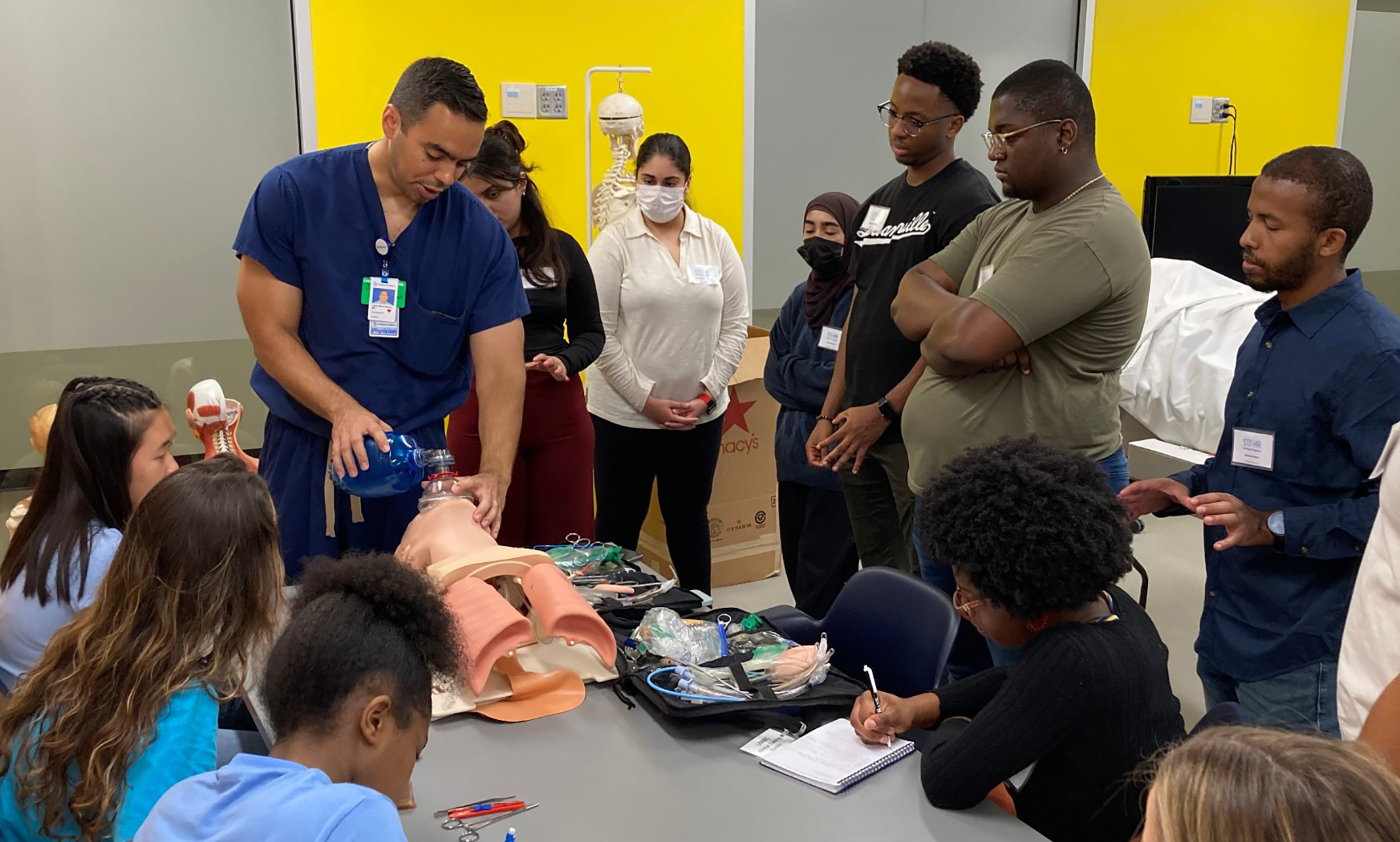
National magazine recognizes UMKC medical school for second time for diversity and inclusion efforts
INSIGHT into Diversity, the oldest and largest diversity publication for higher education, has recognized the UMKC School of Medicine with its Health Professions Higher Education Excellence in Diversity award for the second time.
One of only two schools in Missouri to receive this year’s national honor, the School of Medicine also received the award in 2018.
“We are proud of the work at our SOM that allowed us to be recognized with the 2022 HEED award,” School of Medicine Dean Mary Anne Jackson said. “Our DEI efforts are made possible through not only the passion and commitment of our staff and faculty who lead initiatives, programs, and outreach, but we see these efforts translate to a positive impact on student recruitment, retention, completion and ultimately to benefit the health and welfare within our community and beyond.”
INSIGHT Into Diversity selected the School of Medicine for its efforts supporting diversity, equity and inclusion. Among those are new programs such as UNITED (Uniting Numerous Medical Trainees in Equity and Diversity), a program to support resident and fellowship trainees, an anti-racism and cultural bias program for medical students, a summer success seminar series for incoming B.A.-M.D. students, and expansion of the school’s successful STAHR (Students in Training, Academia, Research and Health) program.
The school’s Office of Diversity, Equity and Inclusion has also received an increase in its budget to support programming and initiatives, has added an assistant dean to the office, and has been an active part of a care team for students in academic risk as well as admissions and selection committees for the school’s academic programs.
Dean Jackson praised her staff.
“Congratulations to Dr. Tyler Smith and Ms. Doris Agwu, our associate and assistant dean respectively, Drs. Ayanda Chakawa and Wail Hassan, who lead our Diversity Council, and all of the staff and faculty who work tirelessly to envision, promote and expand the DEI footprint at our medical school,” she said.
Smith said, “We are honored and humbled. Receiving the HEED Award recognizes our programs and initiatives that embrace the medical school’s mission towards creating a diverse, equitable and inclusive culture within the learning and clinical environments for graduate and medical students, residents, fellows, faculty, and staff. As a top priority at UMKC School of Medicine, we strive to infuse DEI into all academic units while ensuring that all identities feel seen, heard, valued and respected.”
The School of Medicine, as well as 64 other recipients, will be featured in the December 2022 issue of INSIGHT Into Diversity magazine. A.T. Still University College of Graduate Health Sciences, an osteopathic medical school with a campus in Kirksville, is the only other Missouri college to receive this year’s honor.
UMKC received the HEED Award in 2019 and the UMKC School of Dentistry received the award for health professions schools in 2016.
“The Health Professions HEED Award process consists of a comprehensive and rigorous application that includes questions relating to the recruitment and retention of students and employees — and best practices for both — continued leadership support for diversity, and other aspects of campus diversity and inclusion,” said Lenore Pearlstein, publisher of INSIGHT Into Diversity. “We take a detailed approach to reviewing each application in deciding who will be named a Health Professions HEED Award recipient. Our standards are high, and we look for schools where diversity and inclusion are woven into the work being done every day across their campus.”
Oct 17, 2022
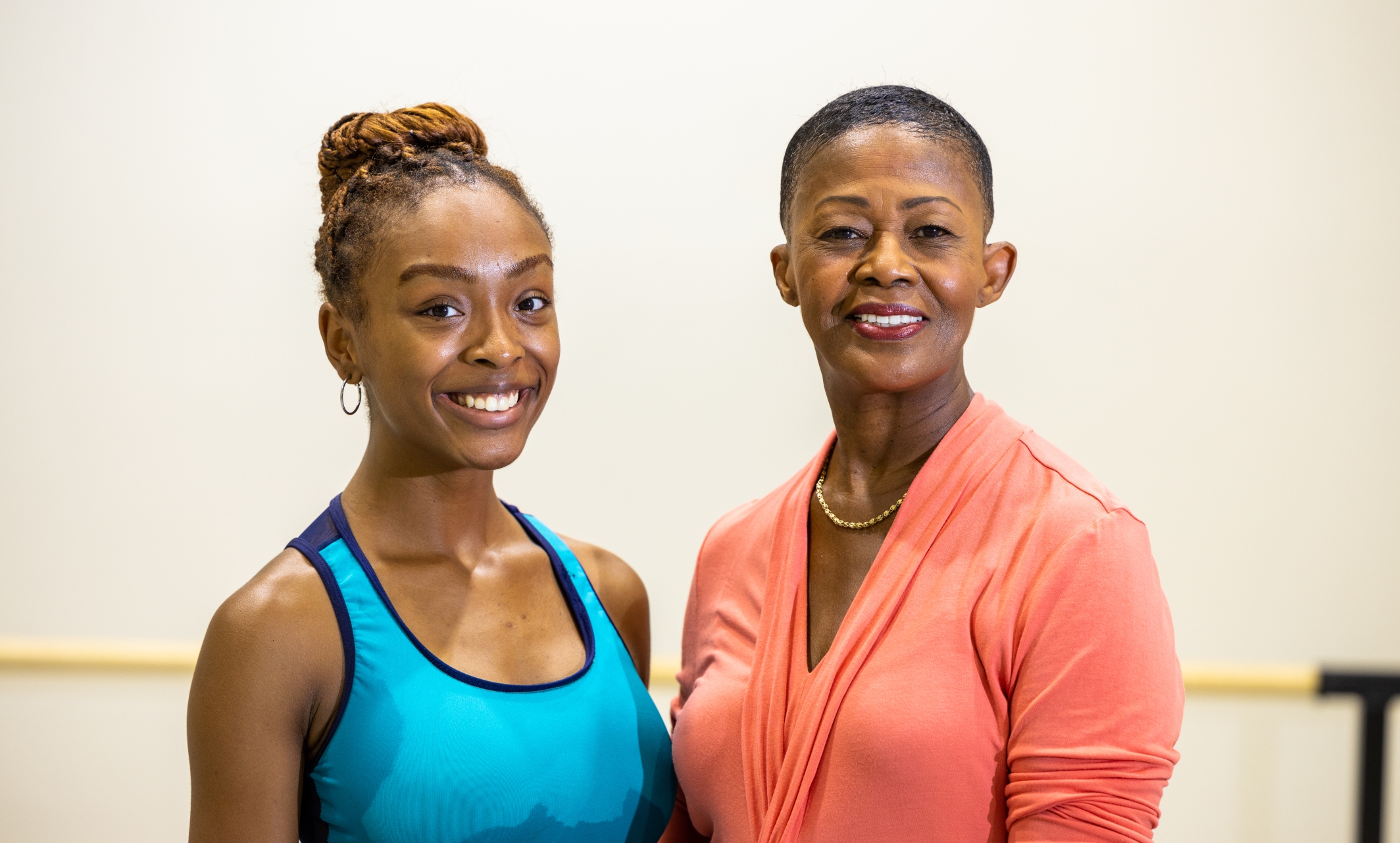
World-renowned professor mentors UMKC ballet student
The heart of UMKC is our campus community. With lots of opportunities, it’s easy to develop student mentorship teams. And these rich relationships—our Dynamic Duos—are some of our best success stories.
Simone Davis (BFA ’23, dance) chose the UMKC Conservatory because she knew that the training curriculum and the faculty were renowned, and she relished the opportunity to study with them. While she has been a student at UMKC, she has performed as a guest artist with various dance companies including Wylliams Henry Contemporary Dance Company, Störling Dance Theater, Tristian Griffin Dance Company and Kansas City Friends of Alvin Ailey.
Despite her professional success, she still maintains a vigorous instructional practice in addition to her classes. She and Karen Brown, assistant professor of dance, work together regularly.
“Karen and I began working together last summer. Before she came on campus I learned more about her career. I was very excited to work with her.”
Brown is well-known in the dance world. She danced as the principal ballerina with the internationally renowned Dance Theatre of Harlem from 1973-1995, served as artistic director of the Oakland Ballet, and assistant professor at the University of the Arts in Philadelphia. She is certified in all levels of the American Ballet Theatre National Training Curriculum.
Brown founded En Pointe Plus Dance Mastery Institute to optimize motion analysis technology in teaching sessions to improve dancers’ form and prevent injuries.
While Davis was not familiar with Brown, she was excited to learn from her when she knew more about Brown’s career. It turned out to be a good fit professionally and personally.
“The connection was natural,” Davis says. “KB has an intensity in teaching that helps push students further, which is very beneficial.”
Brown was thrilled when Davis reached out for private lessons. She offered Davis the opportunity to work as her assistant during her Master Classes. Brown notes that Davis has a strong sense of technique and a good sense of her body. She is working with Davis on moving beyond her comfort zone, as well as fine tuning her form to avoid injury.
“Much of dance is a science, and I’m teaching her to set herself up for the same outcome every time,” Brown says. “When a dancer gets better in the studio, they manifest that on stage because they are confident with their technique.”
She says that Davis is at that point in her practice.
“Simone is ready to go. She’s going to try new things. Because of her talent, she has already had a lot of opportunities to perform.”
Davis admires Brown’s intensity.
“Most dancers and dance educators have similar personalities,” Davis says. “So that’s what I respond to. As an emerging artist, having a mentor is important.”
“Most dancers and dance educators have similar personalities. So that’s what I respond to. As an emerging artist, having a mentor is important.” - Simone Davis
Brown respects Davis for her focus and her work ethic in return.
“She’s been out in the world performing and making money with her craft. She's a good performer. She presents well, she's beautiful. Her work is fine tuning her technique.”
Currently, Davis is dancing professionally with Quixotic Fusion in Kansas City. There, she’s been able to participate in immersive performances, where the fourth wall is broken. She feels this offers a new connection with the audience. She plans to live in Kansas City following graduation, while she continues to travel and perform on a freelance basis throughout the country.
Brown is confident in Davis’s success.
“She’s very kind. She has a great work ethic. Her aesthetic, her creativity, the way that she learns and studies, these are the important things that take longer to teach. If someone doesn’t understand this, they might not even think to learn them. We have a great deal of respect for one another.”
Oct 14, 2022
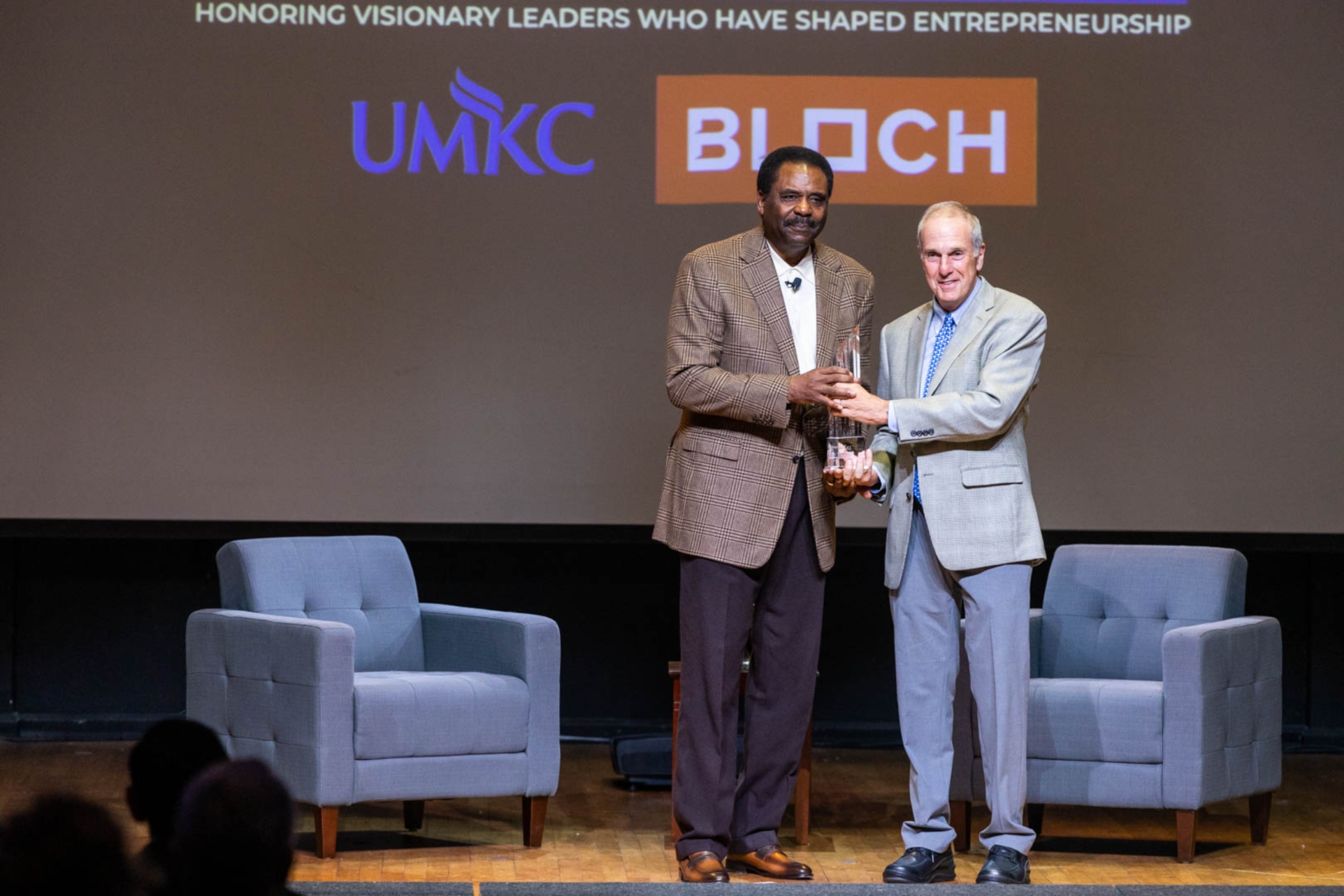
Honorees included tech giants and artists
Six innovators were awarded during the Henry W. Bloch School of Management Regnier Institute’s annual Entrepreneur of the Year Awards.
Started in 1985, the event celebrates the contributions of entrepreneurs in Kansas City and beyond by recognizing the work of Kansas City entrepreneurs and leaders, global industry leaders and students.
The 2022 awardees:
Henry W. Bloch International Entrepreneur of the Year Award: David Steward, founder and chairman of World Wide Technology.
David Steward began WWT in 1990 with a handful of employees and a 4,000-square-foot office. WWT now employs more than 9,000 people at more than 20 facilities around the world. It generates more than $16 billion in annual revenue. Steward is a civic leader and philanthropist committed to expanding opportunities for Black people and others from historically under-represented and underserved communities.
Kansas City Entrepreneur of the Year: Justin Davis, co-founder and CEO, BacklotCars.
Justin Davis has never taken no for an answer. When he launched BacklotCars in 2015, Davis said he was criticized by those who did not see his vision to create a new model for wholesale automotive auctions, replacing scheduled events with a 24/7 online marketplace for dealers. However, he persisted.
“Entrepreneurship is about being bold,” said Davis. “It’s about brining an unlikely group together and building something special.”
Just five years after it launched, BacklotCars sold for $425 million. Davis stayed on as CEO.
Marion and John Kreamer Award for Social Entrepreneurship: Bart Houlahan, Jay Coen Gilbert and Andrew Kassoy, co-founders of B Lab
Founded in 2006, B Lab provides a corporate certification program to companies that meet rigorous standards in addressing social and environmental problems through their businesses. It has now grown to include nearly 6,000 companies around the world who have committed to using business for good.
Student Entrepreneur of the Year: Tate Berry
Tate Berry is a double major in jazz studies and business administration. He previously won the Honorable Mention Creative Venture prize in the Regnier Venture Creation Challenge with his concept for a big band and is also working on launching an online music entrepreneurship studio that also serves as a more affordable alternative to music school. As part of his honor, Berry will receive a $2,500 scholarship.
Prior to the event, attendees learned about business ventures by students from Bloch and the Kansas City Art Institute at the Student Venture Showcase. “Kansas City has a long history of creating and supporting entrepreneurs, and UMKC is committed to bolstering that culture by both providing resources for entrepreneurs and providing our students with hands-on learning experiences - on campus and in the community,” said Chancellor Mauli Agrawal.All proceeds from this event directly benefit the Regnier Institute for Entrepreneurship and Innovation’s student and community programs. The Regnier Institute at the Bloch School focuses on connecting students and community members with a comprehensive combination of world-class research, renowned faculty, cutting-edge curriculum and experimental programs driven to deliver results and nurture the next generation of entrepreneurs.
Oct 13, 2022
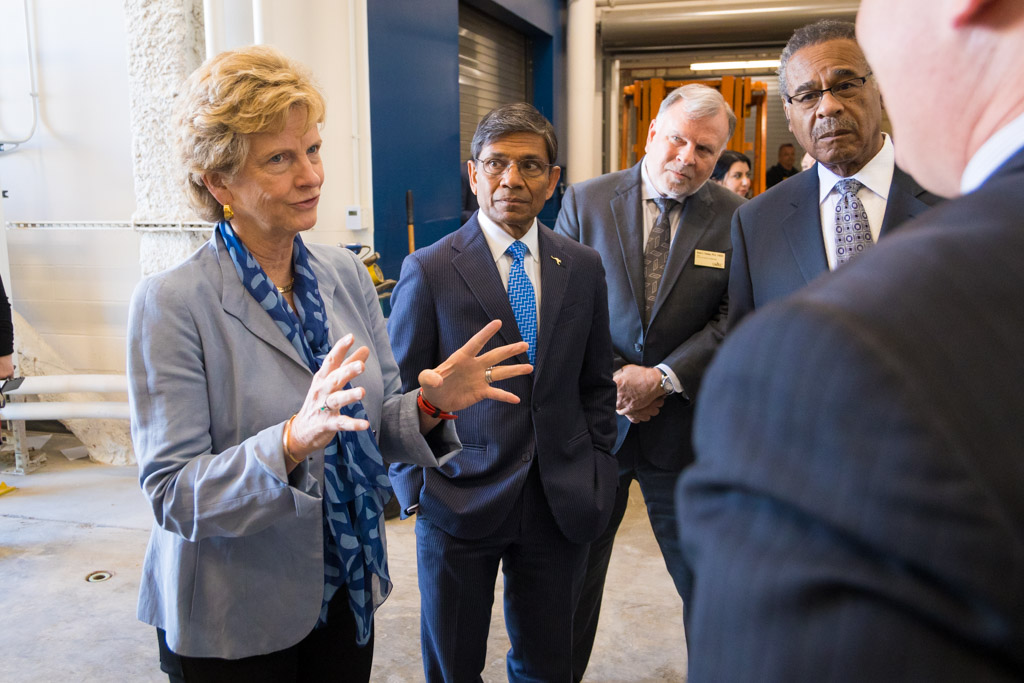
The group saw insights into UMKC's environmentally friendly emerging technologies
Former Missouri Secretary of State Robin Carnahan, Congressman Emanuel Cleaver II, Mayor Quinton Lucas and members of the General Services Administration toured the Robert W. Plaster Free Enterprise and Research Center to learn more about how UMKC's research on renewable energy could be used in government facilities.
The goal of the group's visit was for the GSA to learn more about emerging technologies at UMKC and how ongoing research here could assist the federal government in making federal buildings greener. Led by Chancellor Mauli Agrawal and School of Science and Engineering Dean Kevin Truman, they also had an opportunity to see the solar panels on the roof of the Plaster Center and hear first-hand from students about their work.
"It's always a pleasure to visit UMKC," Carnahan said. "A lot of people think that if we are going to combat climate change it's going to be by planting trees. But really what it comes down to is looking at different ways we can reimagine basic construction materials like concrete and asphalt, and they are doing a lot of that great research right here."
The Plaster Center, which opened in fall of 2021, is a $32 million, five-story, 57,800 square-foot high-tech research center. It features 11 state-of-the-art research labs and is the largest privately funded capital project in UMKC history, with more than 25 donors.
The labs within the Plaster Center contain a 3D printing lab and fabrication studio to build prototypes, high-performing computing and analytics equipment and software, an FAA-approved flight simulator, a two-story drone flight-testing bay and $3 million of augmented and virtual reality equipment.
The labs aren't just for UMKC faculty and students -- the facility is also a community hub where people from across the university, city and region can come together to discuss, design, build and innovate while propelling economic activity in the region through free enterprise.
Some of the technology within the labs is not available anywhere else in Kansas City, allowing UMKC to remain state-of-the-art in research and education while helping our community partners do the same.
Oct 13, 2022
Leader will maintain and enhance the school’s established record of excellence
The university has launched a search for an inspiring and innovative leader to serve as Dean of the School of Law.
The new dean will be responsible for providing academic, strategic and administrative leadership for the school in the context of a diverse and vibrant urban-serving public research university. The dean also will be tasked with articulating a vision for 21st-century legal education and for enhancing the school’s already strong relationships with its alumni and the legal, business, non-profit and government communities.
“Our goal is to hire an inspirational leader for the Law School who can maintain the high standards in place, recruit and retain a diverse group of students and faculty, and set a bold vision for student and faculty success in alignment with our University Strategic plan,” said Jenny Lundgren, provost and executive vice chancellor.
The new dean will be building on a legacy of excellence at the School of Law, including:
An academic program with national rankings for bar passage, employment rates, practical skills training, trial advocacy, legal writing, family law and more. The entrepreneurial and scholarly faculty
Entrepreneurial and scholarly faculty, whose innovative interdisciplinary courses and research stay at the cutting edge of the law.
Community connections and service, with ten clinics, dozens of field placements, and hundreds of community partners.
“Please join me in expressing our sincere appreciation to Dean Barbara Glesner Fines for providing superb leadership for our School of Law during her tenure as dean,” Lundgren said.
Dean Glesner Fines will continue to lead the School of Law as Dean until her successor is appointed, when she will return to the full-time faculty.
The search committee is chaired by Bruce Bubacz, Curators’ Teaching Professor of Philosophy in the Department of Political Science and Philosophy in the School of Humanities and Social Sciences and Professor in the School of Law. The full roster of the search committee is listed below. Others will have the opportunity to provide input during the campus interview portion of the search process. The committee aims to conclude the search in the spring semester for a summer 2023 leadership transition.
Full search committee
Bruce Bubacz, Curators’ Teaching Professor of Philosophy in the Department of Political Science and Philosophy in the School of Humanities and Social Sciences and Professor in the School of Law
Ashley Swanson-Hoye, Director of Law Student Services
Chadayne Clive Lloyd Antonio Walker, Law Student and Student Bar Association President
Timothy Lynch, Professor of Law
Allen Rostron, Associate Dean of Students, William R. Jacques Constitutional Law Scholar and Professor of Law
Mikah Thompson, Associate Dean for Diversity, Equity and Inclusion and Professor of Law
Jasmine Abdel-khalik, Professor of Law
Randall Johnson, Professor of Law
Ayyoub Ajmi, Associate Director of the Leon E. Bloch Law Library
Lisa Weixelman, Senior Partner, Polsinelli; UMKC Trustee
Honorable Ann Mesle, UMKC Law alumna and retired Judge, 16th Judicial Circuit Court of Jackson County (retired)
Danielle Merrick, Clinical Professor and Director of the Entrepreneurial Legal Services Clinic
Marie Dispenza, Director of Major Gifts, School of Law and Executive Director, UMKC Law Foundation
Oct 13, 2022
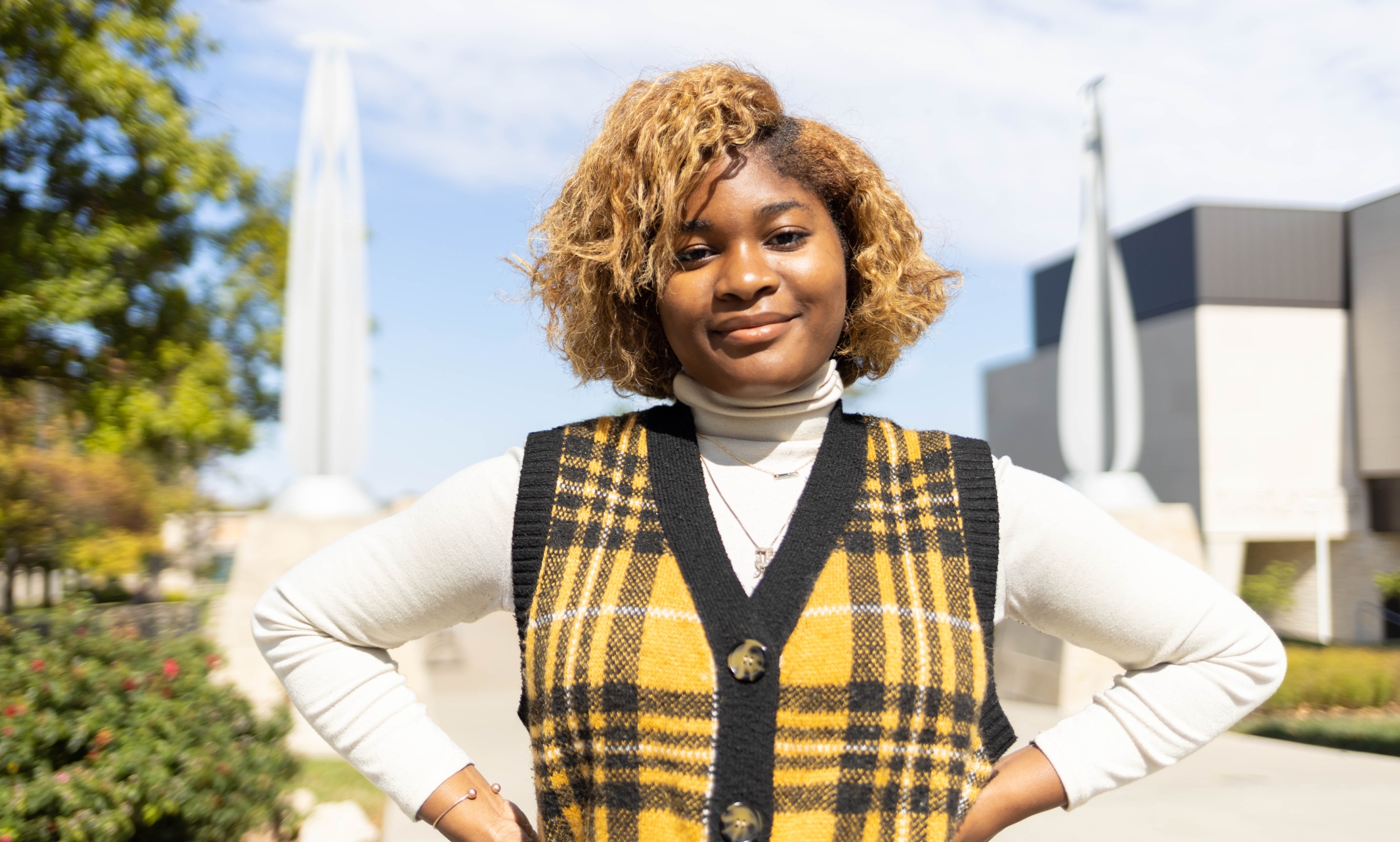
Participating students could save thousands on a college degree
The University of Missouri-Kansas City has launched new partnerships with Kansas City Public Schools and North Kansas City Public Schools that will save families thousands of dollars on a college degree. UMKC will provide automatic, renewable scholarships for any student who enrolls from those two districts. Furthermore, students from both districts can earn college credit on the UMKC campus before high school graduation for added savings.
The initiative is a huge win for the Kansas City community – and for students and their families.
“As Kansas City’s university, we’re committed to increasing college access to students here at home,” said Kristi Holsinger, senior vice provost for student success at UMKC. “Through this partnership, students will save money, earn their degree sooner after high school graduation and go on to serve our community through rewarding careers.”
UMKC has introduced a new, automatic $1,500 scholarship for up to five years for any student from the KCPS or NKC school districts. The scholarship is stackable – meaning it can also be combined with any other award.
And UMKC’s Early College Academy allows eligible high school students to attend classes on campus during the school day. It is open to qualifying juniors and seniors at KCPS and qualifying seniors at NKC. Students earn both high school and college credits from their UMKC courses. Tuition, at a reduced rate, is covered by KCPS and NKC.
“The Early College Academy model makes so much sense for our scholars,” Jennifer Collier, Ed.D., KCPS interim superintendent, said. “We know partnering with UMKC will open doors for KCPS students.”
Jayla Williams is one of the first KCPS students to participate in the program. Williams, who is in her first semester, said within the first few weeks she has already had a chance to connect with her professors and meet friends in her classes.
“It’s been an easy adjustment because my school prepared me,” said Williams. “I’m doing something that many people don’t get to do. I’m doing something that is bettering my future.”
Her mom, Janese Williams, said she is proud of Jayla and what her participation will provide.
“It means opportunity. It means elevation. She’s only 16 and she’s a college student,” said Williams. “I love that this is an opportunity that kids in Kansas City get to do. To give them a step ahead is priceless.”
Jayla and Janese Williams
North Kansas City Schools College and Career Readiness Assistant Director Shannon Gilliland said the new partnership will increase students’ course options and help them acclimate to college life.
“This will be an opportunity to learn how to navigate a large academic environment, while still having guidance as a high school student,” said Gilliland. “UMKC has about 16,000 students and getting comfortable in this environment can help our students gain confidence.”
UMKC offers more than 125 undergraduate programs, with small class sizes and real-world experiences to help students gain practical knowledge to prepare them for careers. In addition, its location in Kansas City provides strong relationships with some of the region’s top employers for internship and job opportunities.
“We are excited to see our students take advantage of the exceptional educational experience UMKC provides,” said North Kansas City Schools superintendent, Dan Clemens, Ed.D.
Students in the Early College Academy will have access to support services such as Academic Advising, Academic Support and Mentoring, Career Services and the Financial Wellness Center.
Early college programs have been shown to have a positive impact on student performance both in high school and in college, according to a 2020 policy report from the American Institutes for Research.
Additionally, the report indicates early college programs have lasting impact on communities by increasing college degree attainment, individual earning potential and tax revenue. In fact, UMKC alumni contributed $7.8 billion to Missouri’s economy in 2021, according to the university’s February 2022 Economic Impact Report.
Oct 11, 2022
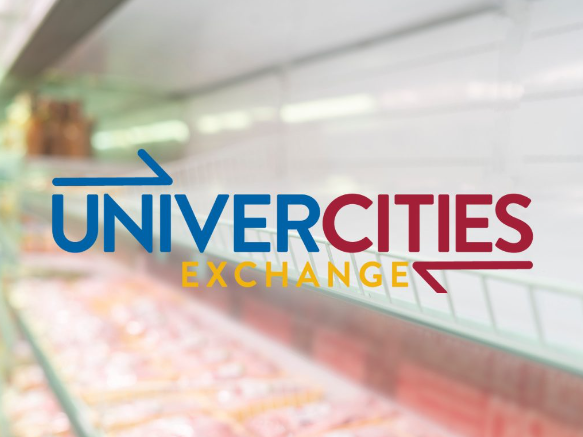
The discussion was a part of the continuing collaborative, UniverCities Exchange
Academic and community leaders from Kansas City and St. Louis met virtually to discuss issues combating Missouri’s urban food deserts during this year’s UniverCities Exchange.
UniverCities Exchange is an ongoing collaborative project between the University of Missouri-Kansas City and the University of Missouri-St. Louis and gathers community leaders and academic experts to discuss problems and possible solutions affecting the Kansas City and St. Louis metro areas.
The project began in fall 2020 with a discussion of health disparities during the COVID pandemic. The goal of the conversations is to foster a connection for future collaborations across Missouri.
In this year’s installment, the panel discussed the current state of resource availability and historical events that have led to food shortages.
Steve Kraske, host of KCUR’s Up to Date and UMKC journalism professor, served as moderator. Panelists included:
Dina Newman, Director of UMKC’s Center for Neighborhoods
Aimee Dunlap, UMSL Associate Professor of Biology
Erica Williams, Executive Director of Red Circle
Max Kaniger, CEO of Kanbe’s Markets
Here are some highlights of the panel’s conversation regarding the problems and how communities are addressing them:
“The Kansas City food landscape has really changed – literally and figuratively – over these last few years. I don’t think you can get a lot for $200 or less. You can drive through these communities of concern and see small, medium and large urban gardens and urban farms. And you can see the diversity of things these people are growing. If the pandemic showed us one thing, it’s about the affordability and the accessibility of food and people are beginning to realize how vital the food system can be.” -Dina Newman
“Living in a food desert can affect your life in many ways. From the not being able to get enough food to feed your family in a way that is affordable, accessible, and attractive, but it also affects the region itself. Grocery stores provide a lot of jobs and sales tax revenue to a region. When you have an area that does not have a grocery store, you are taking all your sales tax revenue dollars and putting those somewhere else.” -Erica Williams
“I think there is lots of potential for success in things like canning and cooking demonstrations. It’s great to grow kale, but then what do you do with it? I think sharing knowledge about cooking and making food in a healthy way, can help to inspire people.” -Aimlee Dunlap
“With Kanbe’s, we wanted to come up with a model that supported small businesses that are already here and supported the infrastructure in our communities while, in the best way possible, supporting the local farm system and reducing waste on the massive wholesale farming industry. We wanted to fill a gap. From there, we have grown, and we are now distributing to over 40 convenience stores, five days a week, and getting a whole lot of healthy food into the community.” -Max Kaniger
To watch last year’s UniverCities Exchange, click here.
Oct 11, 2022
Interview with James McKusick, a researcher at the University of Missouri-Kansas City and a member of the board of directors of the Edgar Snow Memo...
Since 2016, McKusick has visited China three times and traveled to a number of cities and villages. He said that the development achievements China has made over the last decade are remarkable and exemplary. McKusick gained an interest in China from U.S. journalist Edgar Snow's 1937 book "Red Star Over China."
Oct 10, 2022
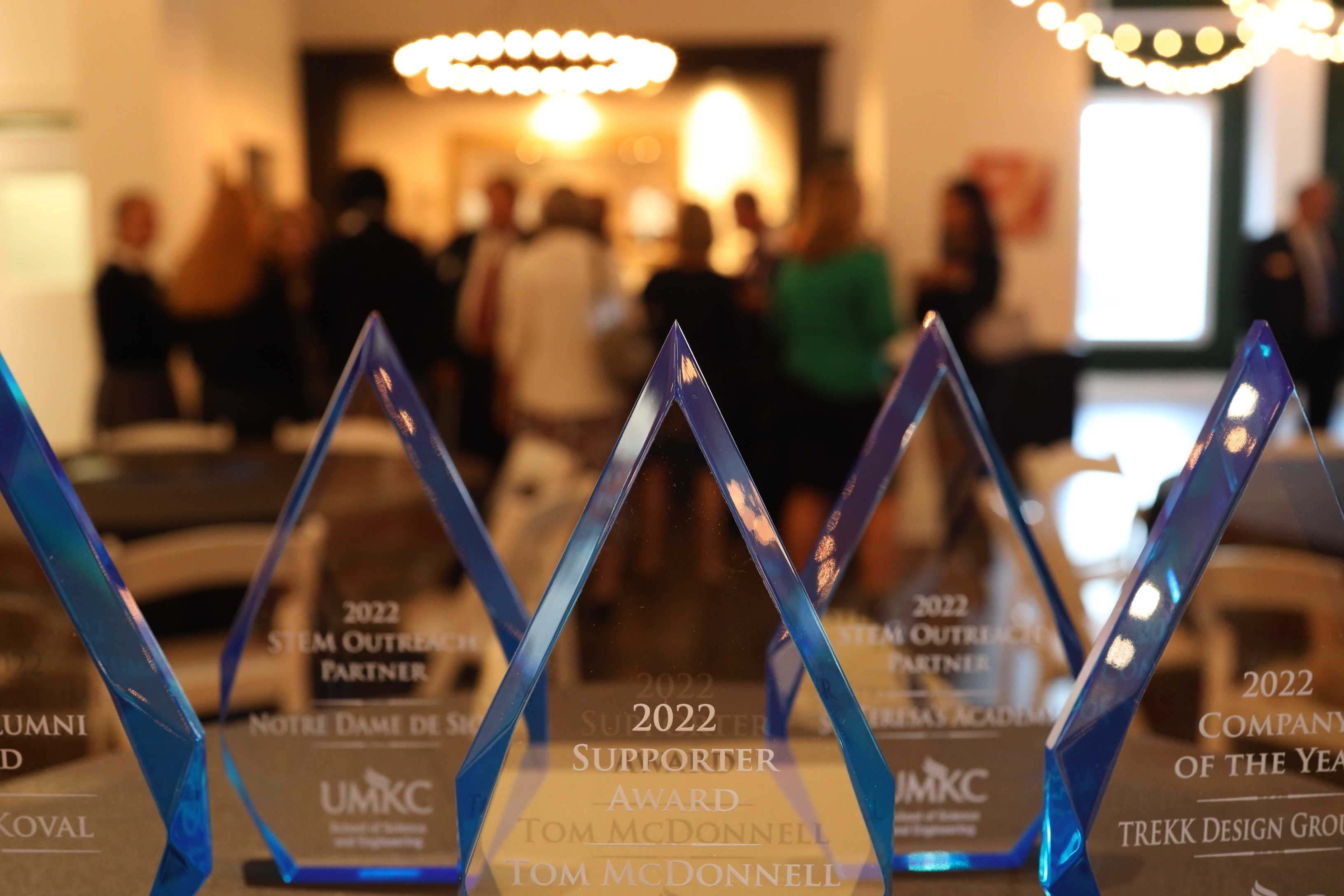
TREKK, McDonnell among this year’s Vanguard Award winners
The School of Science and Engineering recognized this year’s top donors, alumni and organizations at the 2022 Vanguard Awards.
The annual awards program is an opportunity to spotlight those who help expand STEM education and outreach in Kansas City.
2022 Vanguard Recipients
Young Alumni Award: Lauren Koval (BSCE ’17)
After her graduation in 2017, she joined McCownGordon Construction, where she progressed from a project engineer to an engineering manager and was responsible for many high-profile projects locally and regionally. In 2020, she received the Rising Trendsetter STEMMY award.
At UMKC, Koval was an exemplary student, playing for the UMKC Division 1 women’s soccer team, and being named academic all-conference for all four years in the program, all while also being a UMKC Trustee’s scholar. Koval continues to mentor UMKC Trustee’s scholars. She joined the Civil and Mechanical Engineering Advisory board in 2020 and was named chair in 2021.
Supporter Award: Tom McDonnell
McDonnell has been one of the biggest supporters of SSE over the years. Recently, he was among the first donors to sign on to support the Robert W. Plaster Free Enterprise and Research Center.
STEM Outreach Partner of the Year: Notre Dame de Sion and St. Teresa’s Academy
Notre Dame de Sion High School and St. Teresa’s Academy are committed to engaging young women in STEM in a variety of different ways. Last year, Sion’s students toured the Plaster Center and applied the concepts they learned in math into a CAD/3D printing project.
St. Teresa’s students visited campus and spent a whole day immersed in learning about aerospace engineering or augmented and virtual reality, taking their knowledge back to school to create independent projects.
These trips give students hands-on experiences and allow them to develop an enthusiasm for pursuing STEM degrees.
Company of the Year: TREKK Design Group, LLC
Founders Kimberly and Trent Robinett met as students at the formerly known School of Computing and Engineering, where, in 1995, Kimberly received a degree in electrical engineering and Trent a degree in civil engineering.
In 2002, the two launched TREKK Design Group. TREKK’s early projects focused primarily on transportation and site development work across Kansas City and later transitioned to focus on wastewater field services. In 2014, Kimberly and Trent were honored with the UMKC Alumni Achievement Award.
TREKK continues to support SSE through its sponsorship of the structural lab overlook and study areas within the Plaster Center. Trent also serves as a practitioner for the civil senior design class.
To view last year’s Vanguard winners, click here.
Oct 07, 2022
Board of Curators selects two faculty members to receive Curators’ Distinguished Professorship, the university’s highest academic honor
UMKC celebrated the promotion and tenure of more than 30 faculty members Sept. 20.
“Achieving promotion and tenure requires significant focus and dedication. In addition to the rigorous academic review required to be promoted and or tenured, you persevered through the challenges that the pandemic has brought over the past few years,” Jenny Lundgren, UMKC provost, said. “You shifted to remote learning, and sometimes shifted back again, modified curricula, reconfigured research studies and performances, and supported students in distress – all while handling the disruption in your personal lives. Your accomplishments are nothing short of remarkable.”
Lundgren noted the depth and commitment to their students and academic disciplines were admirable.
“We are fortunate that you have invested your time and talent here at UMKC. Your achievements are your own, but your colleagues, students, and the world benefit from them.”
Lundgren announced that the UM System Board of Curators approved two UMKC faculty members for the System’s highest academic honor. Max Vitiello, Ph.D., from the Department of History in the School of Humanities and Social Sciences, was appointed Curators’ Distinguished Professor. Tina Niemi, Ph.D., Earth and Environmental Sciences in the School of Science and Engineering, has been appointed as Curators’ Distinguished Teaching Professor.
Other faculty awards and honors – such as new Curators’ Distinguished Professors, and Trustees’, Governor’s and Chancellor’s awards for research, teaching, mentoring, community engagement and commitment to diversity and inclusion – will be presented at a separate event in the spring semester.
The promotion and tenure process at UMKC involves a lengthy and rigorous review of academic performance in the areas of teaching, scholarship and service. Each of the academics recognized at the celebration has demonstrated to their peers and to the administration that they have met high standards for sustained contributions and outstanding performance.
UMKC 2022 Promotion and Tenure
Alison Graettinger, School of Science and Engineering, tenure with promotion to associate professor
Oh Ha, School of Education, Social Work and Psychological Sciences, tenure with promotion to associate professor
Erin Hambrick, School of Education, Social Work and Psychological Sciences, tenure with promotion to associate professor
Bryan Hong, Bloch School of Management, tenure with promotion to associate professor
Ryan Mohan, School of Science and Engineering, tenure with promotion to associate professor
Mostafizur Rahman, School of Science and Engineering, tenure with promotion to associate professor
Roozmehr Safi, Bloch School of Management, tenure with promotion to associate professor
Joanna Scott, School of Dentistry, tenure with promotion to associate professor
Fengpeng Sun, School of Science and Engineering, tenure with promotion to associate professor
Sarah Cox, School of Pharmacy, promotion to associate clinical professor
Elizabeth Englin, School of Pharmacy, promotion to associate clinical professor
Kristin Lee, School of Nursing and Health Studies, promotion to associate clinical professor
Juliana Redford, School of Dentistry, promotion to associate clinical professor
Linda Seabaugh, School of Dentistry, promotion to associate clinical professor
Holly Hagle, School of Nursing and Health Studies, promotion to associate research professor
Paul Barron, School of Science and Engineering, promotion to associate teaching professor
Bryan Boots, Bloch School of Management, promotion to associate teaching professor
Lena Hoober-Burkhardt, School of Science and Engineering. promotion to associate teaching professor
Preetham Goli, School of Science and Engineering, promotion to associate teaching professor
Bill Keeton, Bloch School of Management promotion to associate teaching professor
Julie Kline, Bloch School of Management, promotion to associate teaching professor
Melisa Schulte, Bloch School of Management, promotion to associate teaching professor
Amy Simmons, School of Education, Social Work and Psychological Sciences, promotion to associate teaching professor
Pat Welsh, Bloch School of Management, promotion to associate teaching professor
Larry Wigger, Bloch School of Management, promotion to associate teaching professor
Michael Wizniak, Bloch School of Management, promotion to associate teaching professor
Cynthia Flanagan, promoted to librarian II
Stuart Hinds, University Libraries, promoted to librarian III
Tracey Hughes, University Libraries, promotion to librarian III
Mardi Mahaffy, University Libraries, promotion to librarian IV
Sandy Rodriguez, University Libraries, promoted to librarian IV
Lindy Smith, University Libraries, Promoted to Librarian III
Marie Thompson, University Libraries, Promoted to Librarian III
Cydney McQueen, School of Pharmacy, promotion to clinical professor
Eileen Cocjin, School of Dentistry, promotion to clinical professor
Cydney E. McQueen, School of Pharmacy, promoted to clinical professor
Erica Ottis, School of Pharmacy, promotion to clinical professor
Andrew Smith, School of Pharmacy, promotion to clinical professor
Rebeca Weisleder, School of Dentistry, promotion to clinical professor
Brenda Bethman, School of Humanities and Social Sciences, promotion to teaching professor
John Eck, School of Science and Engineering, promotion to teaching professor
Beth Elswick, UMKC Conservatory, promotion to teaching professor
Phillip Gonsher, Bloch School of Management, promotion to teaching professor
Brian Hare, School of Science and Engineering, promotion to teaching professor
Margaret Kincaid, School of Science and Engineering, promotion to teaching professor
Kevin Kirkpatrick, School of Science and Engineering, promotion to teaching professor
Rana Lehr-Lehnardt, School of Law, promotion to teaching professor
Brian Frehner, School of Humanities and Social Sciences, promotion to professor
DeAnna Hiett, UMKC Conservatory, promotion to professor
Zhu Li, School of Science and Engineering, promotion to professor
Tim Lynch, School of Law, promotion to professor
Cynthia Petrie, School of Dentistry, promotion to professor
Melisa Rempfer, School of Social Work and Psychological Sciences, promotion to professor
Tom Rosenkranz, UMKC Conservatory, promotion to professor
Zach Shemon, UMKC Conservatory, promotion to professor
Mikah Thompson, School of Law, promotion to professor
Michael Wacker, School of Medicine, promotion to professor
Ye Wang, School of Humanities and Social Sciences, promotion to professor
Oct 06, 2022
Interdisciplinary team receives CDC grant to develop a new generation of mathematical and computational models of infectious diseases
In the last months of 2019, Majid Bani Yaghoub, Ph.D., planned his mathematics curriculum to study a new virus that was beginning to spread in China. He knew mathematical modeling and analysis based on a real-world situation would be a good fit with his students in Graduate Differential Equations.
Even then, before COVID-19 became a common topic of global study, Bani’ s students were using optimal control theory to predict the best way to minimize spread. Bani is furthering his work through interdisciplinary research to develop and implement mathematical and computational models to optimize control and prevention of infection in healthcare settings.
Bani has assembled researchers from the UMKC Division of Computing, Analytics and Mathematics; the UMKC Department of Biomedical and Health Informatics; the UMKC School of Medicine; University Health; the Kansas City, Missouri, Health Department; and the University of California-Davis School of Veterinary Medicine to form the Midwest Virtual Laboratory of Pathogen Transmission in Healthcare Settings (MVL-PATHS), an interdisciplinary research collaborative.
The Center for Disease Control awarded MVL-PATHS a three year $879,162 grant to develop a new generation of mathematical and computational models of infectious diseases. The team will use the One Health modeling approach, which incorporates interconnections between people, animals, plants and their shared environment.
Bani believes the One Health approach – a process that recognizes the health interconnections among people, animals, plants and their shared environment – is crucial to identify risk factors for transmission of healthcare-associated infections.
The research team will be working with healthcare providers to record their movements, how much time they spend with patients and other factors in order to collect data that will make models more accurate than the current models.
“We’re not interested in watching individuals,” he says. “The models will identify high-risk movement patterns and hotspots at a hospital so that we can have better control of asymptomatic spread of infection.”
The research could foster a healthier general population, but the team is paying special attention to vulnerable populations.
“Already, the research shows that people who are working in nursing homes may work at multiple locations, so it’s possible they are taking infections from one nursing home to another. This is not about laying blame. The research can help us discover ways that we can improve the situation.”
The interdisciplinary team is critical to the research success.
“This is a great start for the UMKC School of Science and Engineering and a direct result of the university’s restructuring through UMKC Forward,” Bani said. “The COVID-19 pandemic taught us many lessons, and one of the key lessons was that math models are useful, though they are far from perfect. There is a need to create a new generation of math models, computational models and tools that can become more accurate, more reliable.”
But the work goes beyond research of what has already occurred.
“The essence of this project is to develop a virtual laboratory for simulation of disease spread, and at the same time train PhDs who can implement the virtual laboratory in health institutes, and work with the Center for Disease Control and health departments,” Bani said.
“There were many things that we could have done to lessen the impact of COVID-19. The key now is to learn from that experience and use the One Health modeling approach rather than looking at an individual farm or hospital. We must recognize that the world is fully connected, and we need to look at these problems as one big picture and see how these different units and communities can work together.”
Oct 04, 2022
Program looks to increase underrepresented students getting STEM degrees
A UMKC program aimed at providing early-college STEM experiences to underrepresented high school students celebrates a decade of accomplishments this year.
Aptly titled A Bridge to the Stars, the program allows the selected students to participate in one of Professor Daniel McIntosh’s 100-level astronomy courses, with the help of UMKC faculty and student near-peer mentors. These Bridge Scholars receive scholarships that cover tuition and fees and the course workbook. They also receive all resources available to UMKC students for the semester.
Daniel H. McIntosh, Ph.D., distinguished professor of physics and astronomy and founder of A Bridge to the Stars, is proud of what the program has accomplished over the years.
“In the decade that we have run this program, we've awarded 81 scholarships to 73 different high school kids,” McIntosh said. “Ninety-five percent of those students completed the class for college credit. There is no gap in their learning outcomes compared to roughly 1,000 UMKC students enrolled in the same classes.”
McIntosh notes that 80% of participants have been students of color, and nearly all come from low-income households. “What’s even more amazing about these outcomes is that the Bridge Scholars have been selected based solely on their stated aspirations to go to college and on their interest in astronomy. This program is truly equitable in that our selection is not based on academic performance.”
In an effort to grow the program into the next decade, McIntosh has brought on Lauren Higgins (MS ’22) as Program Coordinator. Higgins was a peer mentor for A Bridge to the Stars and said the opportunity was formative to her college career.
“It’s more than just helping the students, which is also great,” Higgins said. “Undergraduates from across many different departments are given an opportunity to help students get a higher education experience. These Roos get experience collaborating with a team and giving a presentation. They get to go to a conference and network. For UMKC students, too, it's great program.”
With Higgins’ help, McIntosh hopes he can spread the concept of A Bridge to the Stars to other departments and other universities.
“My motivation from the very beginning was recruiting more underserved kids into STEM degree programs and ultimately careers to broaden stem,” he said. “I always summarize when I give high level talks that there are huge national, regional and local challenges to increasing and broadening the future STEM workforce. I believe that intentional programs like A Bridge to the Stars can provide a way to inspire and empower many students who are historically less likely to self-identify with STEM careers yet can succeed in STEM if encouraged.”
Sep 28, 2022
Funds support redesign and development of new academic assessment resources
The Kansas City Regional Professional Development Center (RPDC) at the University of Missouri-Kansas City received a contract for up to two years and $29 million from the Missouri Department of Elementary and Secondary Education to re-design academic assessment resources to help teachers identify and address gaps in student learning in a more timely and effective manner.
The Kansas City RPDC, housed in the UMKC School of Education, Social Work and Psychological Sciences, will provide staffing, design, content development and project implementation to support research in learning loss from Kindergarten through high school. The project was born from a need to understand how the effects of the COVID-19 pandemic disrupted elementary and secondary education in Missouri, but also has a larger purpose of developing a tool that will provide teachers data on student comprehension within the year they are teaching, so the gaps in learning can be addressed before the summer break.
“Based on scientific knowledge this is a huge step,” Michael Pragman, Ed.D. senior program director at the RPDC, says. “Typically, in the state of Missouri there are assessments that are officially measured starting with third grade. At that point you may be receiving data on a student entering fourth grade who is already behind.”
Providing teachers with data on whether they are meeting the goals for the students within the academic year will be a difference-maker, because teachers will receive information for their current students and have time to address them before the students move on to a new grade and teacher.
Pragman anticipates that addressing learning challenges earlier may have long term academic effects.
“If we wait until the end of third grade, a lot of students who are frustrated don’t care about school anymore. We know from research that by fourth grade students either have a love of learning and want to continue or are bored, and their behavior is to act out. We think the results of this testing may abate some of that.”
Carolyn Barber, Ph.D., interim dean of the School of Education, Social Work and Psychological Sciences, says the focus on individual learning is an important part of this research.
“I think it's a testament to the work that the RPDC and the school has done to be a partner, not only in the Kansas City Metro, but to the state of Missouri. We are recognized for our expertise,” Barber says. “We didn’t start working with assessments like these because there was a crisis. Dr. Pragman and members of his team have been active in this area for years, which is what made us an attractive partner for the state of Missouri.”
Sep 27, 2022
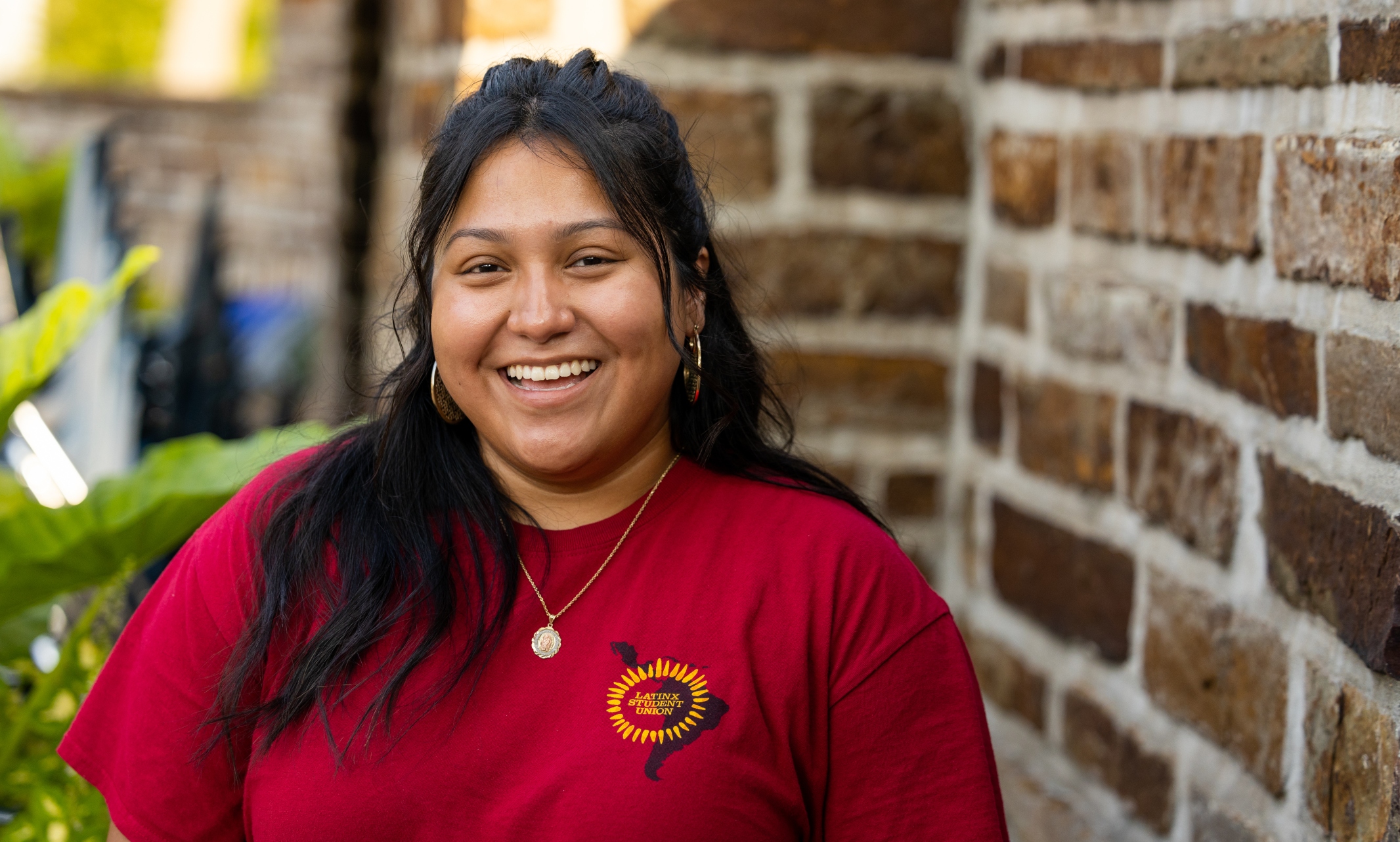
Lauren Orozco decided to attend UMKC for the vibrant community
Roos don’t just dream, they do. Our students turn ideas into action every day. Get to know our people, and you’ll know what UMKC is all about.
Lauren Orozco Anticipated graduation: 2022Academic program: B.A. business, marketing; minor Latin American StudiesHometown: Kansas City, Kansas
Why did you choose UMKC?
I was thinking about going further away, but I decided to stay close to home. UMKC allowed me to have a secure place in the community that’s so vibrant. That was a big draw.
Why did you decide to major in marketing?
I would like to create and provide resources for my Latinx community. I think the greatest way to do that is making sure that people are informed. Marketing is all about information and creating resources for people. So, combining that with my Latin American Studies minor, I am able to do both.
What are the challenges of the program?
I have such a nonprofit focus with my marketing degree. Differentiating the needs of the corporate and nonprofit sectors is definitely hard, especially in marketing, just because it can be so corporate.
What are the benefits of the program?
Being a student at the Henry W. Bloch School of Management puts you on a higher pedestal in Kansas City in general. As Bloch students we have so many resources. I've had the opportunity to meet great people, not only through my professors, but through the events that Bloch offers.
UMKC is impacting the community in such different and diverse ways. When I say I am a UMKC student, it typically puts a glow on everyone’s faces.
How has the program inspired you?
I think being a Latina in the business sector is hard. So, I found people that identify this way, and as other minorities, within the business program and through the Multicultural Student Affairs office during my first semester at UMKC. That really gave me a base to work with through the rest of my college career.
My three passions really came to light at UMKC: my focus on my community, marketing and higher education. I've been able to combine all three. and I don't think I would have been able to have this clear path for myself had I gone to any other school.
Also, I work extensively with the Academic Support and Mentoring (ASM) office. It's a great resource for students, and I’ve realized how many opportunities and resources I can provide for my higher education community through my experience with ASM.
Now that I'm finishing up, I realize how many resources and opportunities I opened up for myself by just relying on a community that I found here.
You’re president of the Latinx Student Union. How did you get involved?
The Latinx Student Union is how I got involved with UMKC in the first place. I was at the Fiesta Hispana in Barney Allis Plaza, and I met someone who said she was involved with LSU at UMKC and that they were fundraising for new student scholarships. I thought it was great that this was something I could get involved in at UMKC. Throughout Hispanic Heritage Month we work with community partners to raise awareness about this home away from home at UMKC.
What would you tell someone who doesn't have the experience that you had in getting exposed to the Hispanic student union so organically, especially if they were a little intimidated?
I think it's definitely scary to just be put into such a large atmosphere and expect to make friends and be a part of this community. But when I first meet students, I always say, “We're not just acquaintances, we're friends. Follow me on social media, we'll DM each other, and you ask me any question that you want to.” I make myself an open resource for them.
Do you feel as if you are a resource for other people?
Yes, I work with both the higher ed and the Latin X communities here on campus, and I’m able to become a resource for all parts of campus. I opened myself up to the students as well, which provides peer-to-peer contact versus just faculty or supervisor. I feel like it makes people feel a lot more comfortable coming to me, a student, and asking questions.
Who do you admire most at UMKC?
Jessica Brooks (director of ASM) and Megan Elsen (associate director of ASM) have really shined a light on what it's like to be a diverse first gen student at UMKC, and they've given me a pathway to feel seen and heard on campus. I felt at first like I was at an automatic disadvantage but having resources like ASM and its faculty and staff, I felt that I had a dictionary to this really diverse vocabulary that is the university lifestyle.
What do you have to take from your experiences here into your professional career?
I want to work in higher ed, and I think UMKC gave me a great baseline of what it means to be a part of a huge family in a big city. UMKC is Kansas City's university. And I don't think I'll ever get that experience anywhere else.
Sep 26, 2022
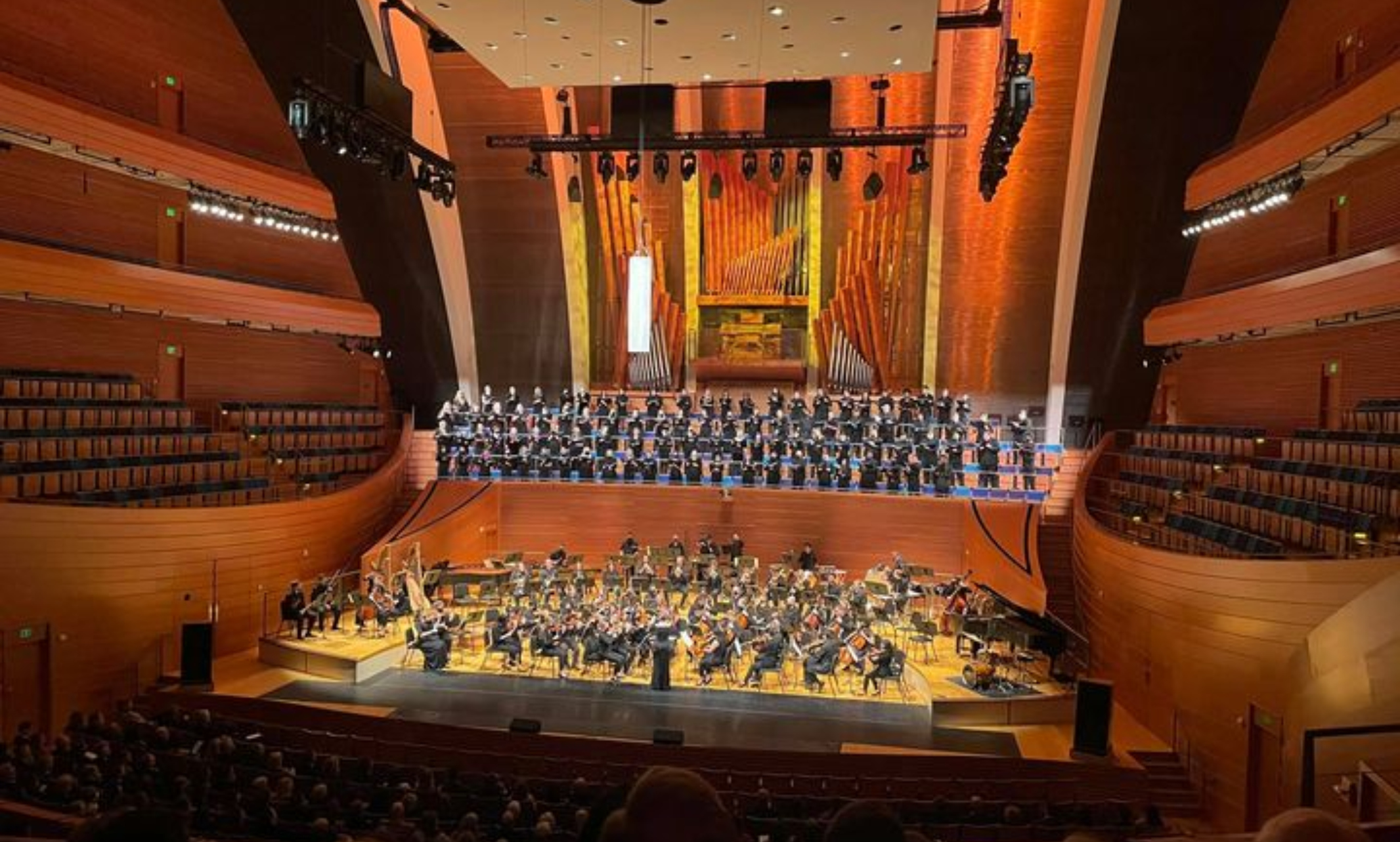
From soccer to the symphony to service projects, there’s something for everyone
Once again, it’s time to celebrate UMKC Engagement Month, a 31-day celebration of all the ways our UMKC students, faculty, staff, alumni and friends contribute to the Kansas City community and beyond.
UMKC and the University of Missouri System are dedicated to providing teaching, research and service to our community and state year-round; during October, we celebrate that commitment with an array of special events. This year, from soccer to the symphony to service projects, there are numerous opportunities to join in the celebration of our commitment to transform our community and region with impactful engagement.
UMKC Engagement Month activities are produced by the Division of External Relations and Constituent Engagement. Click here for UM System Extension and Engagement Week information.
The full schedule of UMKC events is available at this page. Here’s a look at some of the highlights.
UMKC Day at the Kansas City Symphony
Sunday, Oct. 9 | 2 p.m.| Kauffman Performing Arts Center, 1601 Broadway
The Kansas City Symphony is generously providing the UMKC Community with discounted tickets at a rate of $12 per ticket (parking at additional cost). Visitorg or call (816) 471-0400 and ask for the UMKC discount for this performance.
The performance will feature multiple pieces revolving around the theme of nature and the environment, including a performance by Principal Percussionist Josh Jones of Adam Schoenberg's percussion concerto, "Losing Earth."
More information at https://community.umkc.edu/engagements/umkc-day-at-the-kansas-city-symphony/
“ART of Being Me” mental health exhibit
19 through Nov. 30 | Throughout Miller Nichols Library
UMKC is partnering with the Burrell Foundation to display the exhibit created by artist Randy Bacon. It consists of multiple forms of media, including inspiring portrait artwork, personal written stories and a series of short films.
The collection showcases the personal stories of more than 20 individuals who have lived experiences with mental health conditions or diagnoses.
A UMKC student will be adding a new piece to the exhibit that will be on display here and then continue on with the exhibition.
More information at https://community.umkc.edu/engagements/umkc-to-host-the-burrell-foundations-art-of-being-me-mental-health-exhibit/
UMKC Night at Sporting KC
Sunday, Oct. 2 | 4 p.m.| Children's Mercy Park
Sporting Kansas City takes on conference rivals Seattle Sounders
Before the game, stop by the Mazuma Plaza to visit with representatives from Athletics, Admissions and Alumni Relations. There will be giveaways, photo opportunities with KC Roo and more.
More information at https://www.umkcalumni.com/s/1236/16/index.aspx?sid=1236&gid=1&pgid=4559&content_id=6032
Troostapalooza
Saturday, Oct. 8 | noon-6 p.m. | 30th and Troost
Celebrates the local community by bringing together neighbors, small businesses and entrepreneurs to engage with their community and highlight the Troost Corridor.
UMKC is the lead sponsor of the event.
More information at https://community.umkc.edu/engagements/troostapalooza/
UniverCities Exchange
Topic: Combating Missouri’s Urban Food Deserts
Monday, Oct. 10 | 2-3 p.m.
UniverCities Exchange, an ongoing collaborative project between UMKC and UMSL, gathers community leadership alongside academic expertise to discuss problems and possible solutions to issues affecting the Kansas City and St. Louis Metro Areas.
Panelists Include:
Dina Newman, Director of the UMKC Center for Neighborhoods
Aimee Dunlap, UMSL Associate Professor of Biology
Erica Williams, Executive Director, A Red Circle
Max Kaniger, CEO, Kanbe's Markets
Moderated by Steve Kraske of KCUR
More information at https://community.umkc.edu/engagements/univercities-exchange-combating-missouris-urban-food-deserts/
Hungry for Trivia: A Hungry for MO Season 2 Launch Party
Oct. 19 | 6:30 p.m.| Casual Animal Brewery, 1725 McGee St.
UMKC, KCUR, and the Missouri Humanities Council sponsor a food-based trivia contest to support KCUR and UMKC’s Kangaroo Pantry at the Dr. Raj Bala Agrawal CARE Center.
The event is a launch party for Season Two of "Hungry for MO," a podcast that brings you the stories behind iconic foods in the state of Missouri.
More information at https://community.umkc.edu/engagements/hungry-for-trivia-a-hungry-for-mo-season-2-launch-party/
Sep 22, 2022
Alumna Amanda Davis begins her role as president Nov. 2
Amanda Davis (MPA ’02) has been named the new University of Missouri-Kansas City chief advancement officer and president of the UMKC Foundation beginning Nov. 2. Davis has extensive experience in university fundraising, including the creation of advancement infrastructure and the development and execution of a comprehensive $2 billion campaign.
Davis began her fundraising career in Kansas City in 2002, generating more than $600,000 annually for Genesis School. She has extensive knowledge of UMKC and the UMKC Foundation through her work as director of advancement for the UMKC Law Foundation from 2009-2011.
Continuing to build her career in university advancement, her most recent role was assistant vice president for campaign leadership at the University of Oklahoma Foundation, where she developed programs and policy to accelerate advancement outcomes. Her focus on identifying gift opportunities and prospects contributed to more than $300 million in annual fundraising results.
Davis brings a deep understanding of the Kansas City and UMKC communities. She will have dual reporting responsibilities to UMKC Chancellor Mauli Agrawal and the UMKC Foundation Board of Directors. She will also serve on the university Executive Council and have broad authority to shape and build an advancement program supporting UMKC and UMKC Athletics through annual giving, corporate and foundation relations, major gifts and gift planning programs, endowment, capital campaigns, stewardship and advancement services.
“Amanda has significant experience and success at large universities that will be key to taking our UMKC Foundation to the next level,” Chancellor Agrawal says. “She has a passion for cultivating new donors and bringing advancements in technology to improve the way we do business. In addition, we are thrilled that she knows and understands our Kansas City community and we will be excited to incorporate her ideas here at UMKC.”
She is ready to leverage the existing strengths of the UMKC Foundation for long-term university and community growth and success.
“With the successful staff that is already in place, and the support of the UMKC Foundation board members who are passionate about the community as a whole and the accomplishments of individual students, I know we can execute the vision for accelerating student success, generating significant growth in research and the commitment to further healthcare delivery for the region,” Davis says.
Jerry Reece, chair of the UMKC Foundation Board, says he has high expectations for Davis.
“We are confident that under Amanda’s leadership the UMKC Foundation will continue to be a trusted community partner and exceed its goals for the development of the university,” he says. “We look forward to her engagement with the university and Kansas City communities.”
Co-chairs for the search were Warren Erdman, executive vice president Kansas City Southern Railway and UMKC Trustee and Sheri Gormley, chief of staff, office of the chancellor at UMKC.
Davis is excited to be back in Kansas City and ready to reestablish her community ties.
“One of my favorite quotes is from Horace. ‘Begin, be bold, but venture to be wise.’ This corresponds with my view of UMKC. There’s a vision and an opportunity to be exceptional,” she says.
Sep 21, 2022
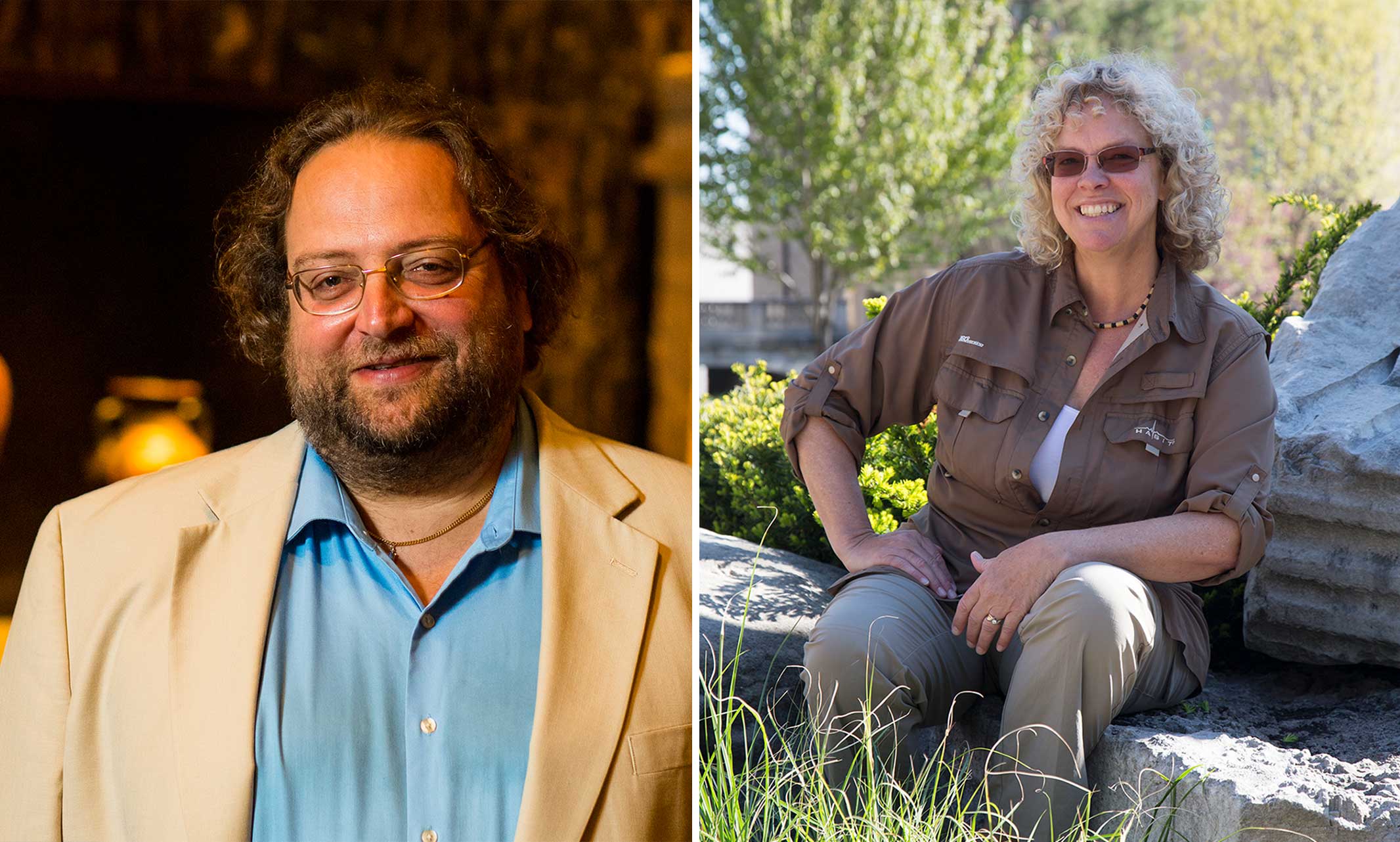
The award is the highest and most prestigious academic rank in UM System
The University of Missouri Board of Curators recently named two University of Missouri-Kansas City faculty members Curators' Distinguished Professors.
A Curators' Distinguished Professorship is the highest and most prestigious academic rank awarded by the Board of Curators. It is given to a select few outstanding scholars with established reputations.
This year, Tina Niemi, Ph.D., of the School of Science and Engineering, and Massimiliano Vitiello, Ph.D., of the School of Humanities and Social Sciences, were selected for the honor.
"Tina and Massimiliano are exemplary role models for what it means to be a UMKC faculty member. They both have accomplished so much and we could not be more proud," said Jenny Lundgren, Ph.D., Provost and Executive Vice Chancellor.
Niemi is a geologist who specializes in geoarchaeology, sedimentology and active tectonics. She and her students collect aerial imagery using drones and stratigraphic data from outcrops, trench excavations and cores in order to build a deeper understanding of the history and nature of tectonic, climate and anthropogenic environmental changes through time.
"I am honored to have been awarded a Curators' Distinguished Professorship and I thank my colleagues, collaborators and students both for supporting my nomination, and even more, for so many wonderful years of working together," Niemi said.
Vitiello is a scholar of ancient history, Late Antiquity, Byzantium and the early Middle Ages, with an emphasis in Roman History. He specializes in the history of the late Roman Empire and the transformation of the Mediterranean World, and works on classical philology, historiography, epigraphy, numismatics and the material culture of the classical world.
"I am deeply honored by this appointment and I am determined to continue my research with dedication and passion," Vitiello said. "The University's commitment to scholarship that this distinction represents is both humbling and inspiring."
In addition to Niemi and Vitiello, this year's recipients also include:
Curators' Distinguished Professor Emeritus, John C. Walker, MU
Curators' Distinguished Teaching Professor, Dorina Kosztin, MU
Curators' Distinguished Teaching Professor, David Westenberg, S&T
Curators' Distinguished Professor, Sajal Das, S&T
Curators' Distinguished Professor, Rajiv Mohan, MU
Curators' Distinguished Professor, Ron Mittler, MU
Curators' Distinguished Professor, Kannappan Palaniappan, MU
Curators' Distinguished Professor, Robert Paul, UMSL
Curators' Distinguished Professor, Thomas Sewell, MU
Sep 20, 2022
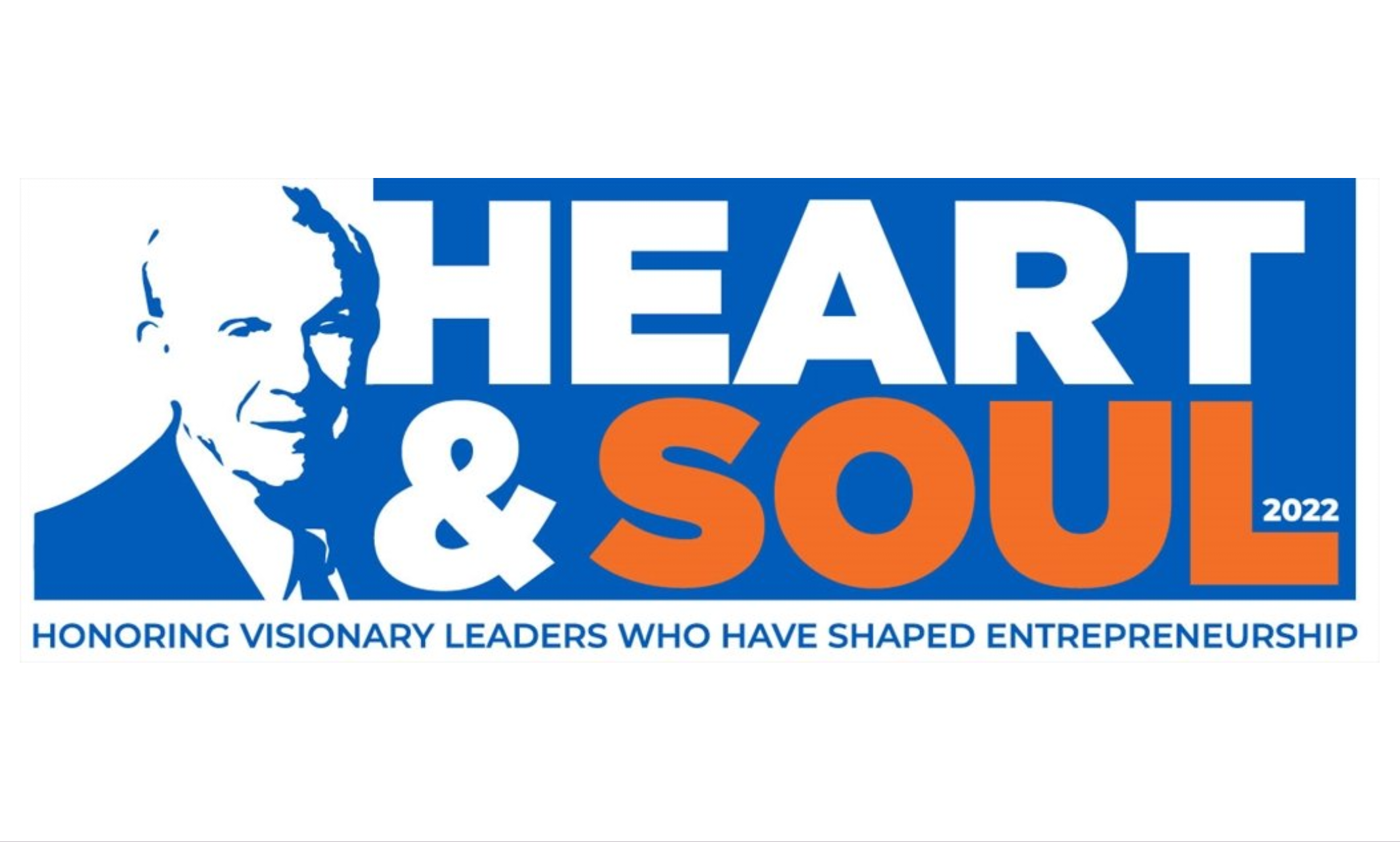
Six to receive Entrepreneur of the Year awards
Honorees for the annual Entrepreneur of the Year awards from the University of Missouri-Kansas City include the founder and chairman of the largest Black-owned company in the United States, and the person who launched wholesale automobile auctions into 21st century cyberspace.
The celebration is sponsored by the Regnier Institute for Entrepreneurship and Innovation at the university’s Henry W. Bloch School of Management.
The 2022 event will return to the traditional in-person format, and at a new location: Plexpod Westport Commons 300 E. 39th St., Kansas City. The event begins at 5 p.m. Oct. 12 with the Student Venture Showcase; the awards program begins at 7 p.m. Tickets may be purchased at this page.
The full list of 2022 honorees includes:
Henry W. Bloch International Entrepreneur of the Year Award: David Steward, founder and chairman of World Wide Technology. After being named the top sales executive for FedEx, Steward set out to fulfill a lifelong dream: own a company. He began WWT in 1990 with a handful of employees and a 4,000-square-foot office. WWT currently operates in 4 million square feet of space in more than 20 facilities throughout the world. The company employs more than 9,000 people globally and generates more than $14.5 billion in annual revenue. Steward is a civic leader and philanthropist committed to expanding opportunities for Black people and others from historically under-represented and underserved communities.
Kansas City Entrepreneur of the Year: Justin Davis, co-founder and CEO, BacklotCars.BacklotCars created a new model for wholesale automotive auctions, replacing scheduled events with a 24/7 online marketplace for dealers. BacklotCars, which launched in 2015, provides vehicle inspections, transportation and inventory finance services to dealers. The founders sold the company for $425 million five years after launch, with Davis staying on as CEO.
Marion and John Kreamer Award for Social Entrepreneurship: Bart Houlahan, Jay Coen Gilbert and Andrew Kassoy, co-founders of B The trio co-founded B Lab in 2006 to drive systemic change to address social and environmental problems. They created a corporate certification program that recognizes organizations maintaining high standards of social and environmental performance.
Student Entrepreneur of the Year: To Be Announced Each year the Bloch School’s Regnier Institute Advisory Council gives a $2500 scholarship to a Bloch School student for significant entrepreneurial achievement. The recipient will be announced at the event.
The Entrepreneur of the Year Awards event is an iconic Kansas City tradition started in 1985. Beyond its philanthropic cause, this event is a valuable forum where Kansas City CEOs, entrepreneurs, business owners, industry legends, world-class faculty and students alike are able to celebrate a common passion. The event celebrates entrepreneurial spirit and serves as a source of inspiration to future generations of innovative entrepreneurs.
All proceeds from this event directly benefit the Regnier Institute for Entrepreneurship and Innovation’s student and community programs. The Regnier Institute at the Bloch School focuses on connecting students and community members with a comprehensive combination of world-class research, renowned faculty, cutting-edge curriculum and experimental programs driven to deliver results and nurture the next generation of entrepreneurs.
Sep 16, 2022
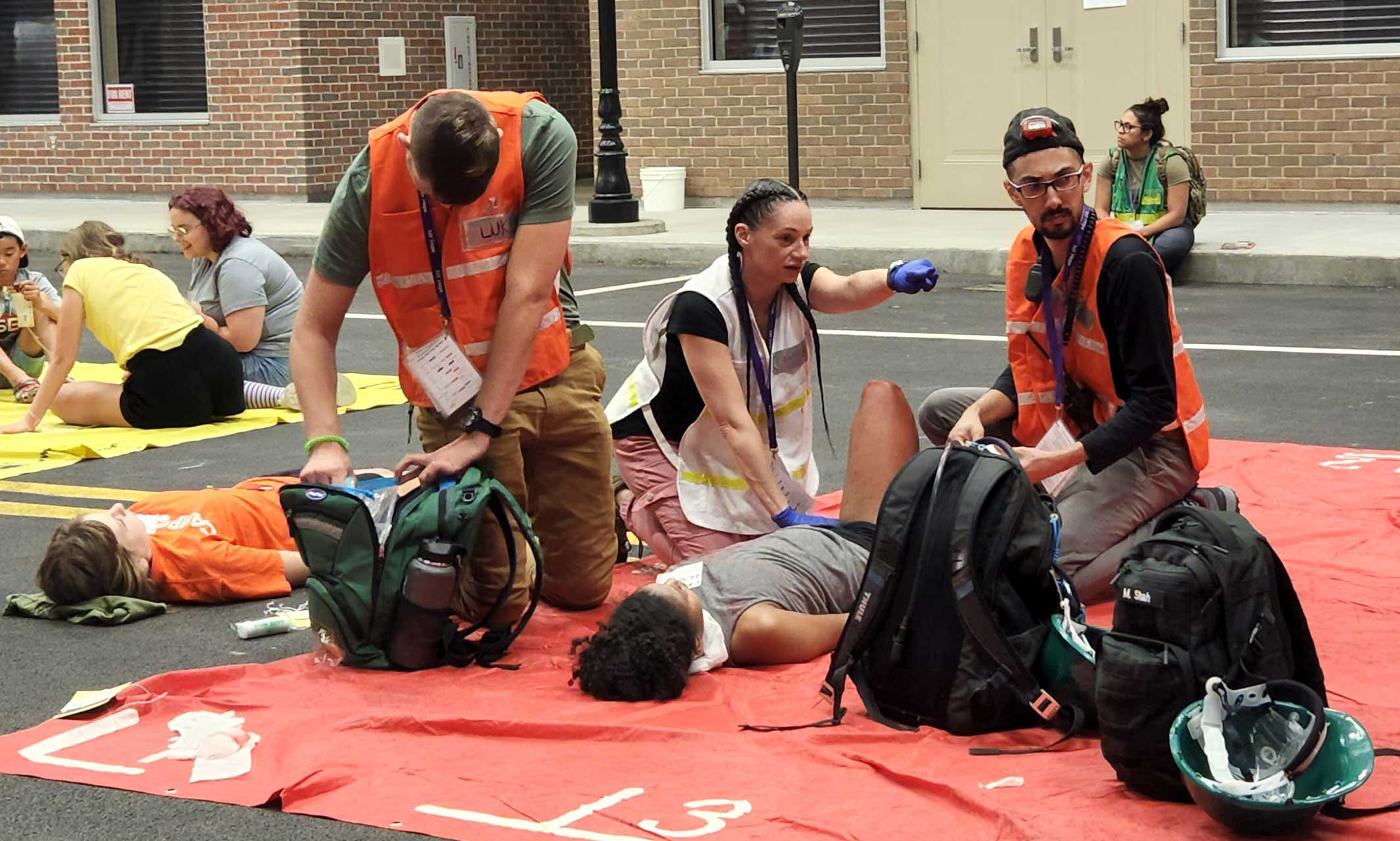
New York Hope challenged participants with earthquake aftermath simulation
Nursing student Faheem Rehman can add white water rescue to the skills he’s developed during his time at UMKC. Rehman was part of a group from the UMKC School of Nursing and Health Studies that participated in New York Hope, a national domestic disaster response exercise where participants hone their skills as emergency responders.
Held over four days at the Department of Homeland Security Training Facility in Oriskany, New York, the training partners college students in nursing, emergency management and homeland security with first responders for a simulated disaster similar to an earthquake. That included experience with swift water rescue, search and rescue in a demolished building and a mass casualty event in a shopping center.
Only three nursing schools were represented and of those just ten nursing students attended. In her role as assistant professor in the UMKC School of Nursing and Health Studies, Sharon White-Lewis has long been a champion of the Hope Exercises, which also include Missouri and Florida, where she has taken dozens of college students through the years.
In his second year as a nursing student, Rehman was excited for the opportunity to test his skills in such a unique environment.
“I’ve been in inpatient units where it’s a more controlled environment where you have a certain level of understanding of what’s going to occur,” Rehman said. “With the nature of a disaster or crisis, you don’t have that luxury.”
When he first arrived at the event, everything seemed foreign. There were four days without access to his phone or even a shower, sleeping on a cot next to people he’d never met. Once he settled in, Rehman was surprised how quickly he adjusted to this new normal.
"It really was incredible how quickly your mind adjusts to a setting like that,” Rehman said. “By the second day, it really did feel like my new home.”
That also meant teaming up with a group of complete strangers for the exercise. But Rehman said he and his teammates quickly developed an understanding of each other’s strengths and weaknesses and delegated accordingly.
“It felt like trauma bonding,” Rehman said. “By the end of our time together, I felt an inseparable bond with my team members. Even now we’re keeping in touch, texting each other.”
Rehman said the mass casualty exercise offered the most significant stress test on the nursing skills that he’s developed at UMKC. One of the more elaborate scenarios, which involves dozens of actors role-playing a wide range of injuries across a mock shopping mall.
“We set up a triage system where we prioritized people by walking wounded, delay care, immediate care and deceased,” Rehman said. “Doing all that quickly and efficiently really helped me hone my assessment skills.”
Triage wasn’t new for Rehman. White-Lewis took the students through a four-hour class before they departed for New York. In the training she covered the triage techniques unique to disaster response as well as other in-the-field medical treatments like spine mobilization and splints.
Rehman said he enjoyed the swift water rescue exercise most as it looked both “scary and fun.” The scenario put the participants in a pool with a fast-flowing current at a speed Rehman said he’d never experience before. According to White-Lewis, participants train in a level one current but the rapids can be pushed to a level four.
With his fellow participants, Rehman worked on both rescuing and being rescued. The local fire department taught them techniques for throwing ropes to someone in the current and skills to stay afloat while navigating a fast-moving current. White-Lewis said it’s a critical experience for the Kansas City area. “We’ve had a number of floods and emergency responders have had to rescue lots and lots of people.”
According to Rehman, the event left an indelible impression that has expanded his outlook on what nurses are capable of.
“It showed me that nursing isn’t limited to the walls of a hospital or a doctor’s office,” he said. “The preparation we were doing – readying ourselves for future disasters – this is for the greater good of society.”
White-Lewis will continue to provide students with this life altering opportunity when Missouri Hope will be held in the fall in Joplin, Missouri. She plans to bring 35 students with her. That scenario mirrors the aftermath of a tornado and she says it’s important experience for UMKC students. According to White-Lewis, after the devastating Joplin tornado in 2011, 135 nurses were deployed to the area to provide care.
“Students tell me these events change their lives,” she said. “They actually have to rely on themselves and they’re proud of themselves for utilizing their nursing skills. In nursing school it’s a lot of input, input, input, with all the studying. With this experience they get to output all of their knowledge.”
Sep 13, 2022

Leader will set priorities for establishing the new school
The dean of the School of Education, Social Work and Psychological Sciences will play a key leadership role in establishing the newly realigned school, with a focus on high-quality educational experience, impactful scholarship, a commitment to collaboration on university goals for student success, research growth, advancement of diversity and inclusion and active community engagement.
SESWPS combines education, psychological sciences and social work programs into a newly reimagined academic unit that will create new education and research synergies for students and faculty.
“The dean will set the tone, pace and priorities for the new school’s success,” said Jenny Lungren, provost and executive vice chancellor. “In addition, ideal candidates will have high impact engagement with community partners — with regional and state leaders in K-12 education, with social service and health care partners and with donors and civic leaders, among others.”
The person selected for this position will work closely with the provost, other senior leaders, faculty, staff and students to chart a bold and successful future for the School of Education, Social Work and Psychological Sciences.
The full roster of the search committee is listed below. Others will have the opportunity to provide input during the campus interview portion of the search process. The committee aims to conclude the search in early spring 2023, for a summer 2023 start date.
Full search committee
Michele D. Smith, vice provost for student affairs, dean of students and associate professor
Jennifer Waddell, Sprint Foundation Endowed Professor in Urban Education, associate professor, Division Co-Chair and Director
Louis Odom, professor, Teacher Education and Curriculum Studies
Tiffani Riggers Piehl, assistant professor, Educational Leadership, Policy and Foundations
Donna Davis, professor, Educational Leadership, Policy and Foundations
Ile Haggins, director of field education, advisor, field and practicum advisor, Social Work
Steven Onken, associate professor, chair of Social Work
Jake Marszalek, professor, Psychology; interim associate dean, SESWPS
Erin Hambrick, associate professor, Psychology
Shewit Abai, student
Michael Pragman, director, Kansas City Regional Professional Development Center
Irene Caudillo, president and CEO, El Centro
Brandon Martin, vice chancellor and athletics director, executive in residence in SESWPS
Sep 09, 2022
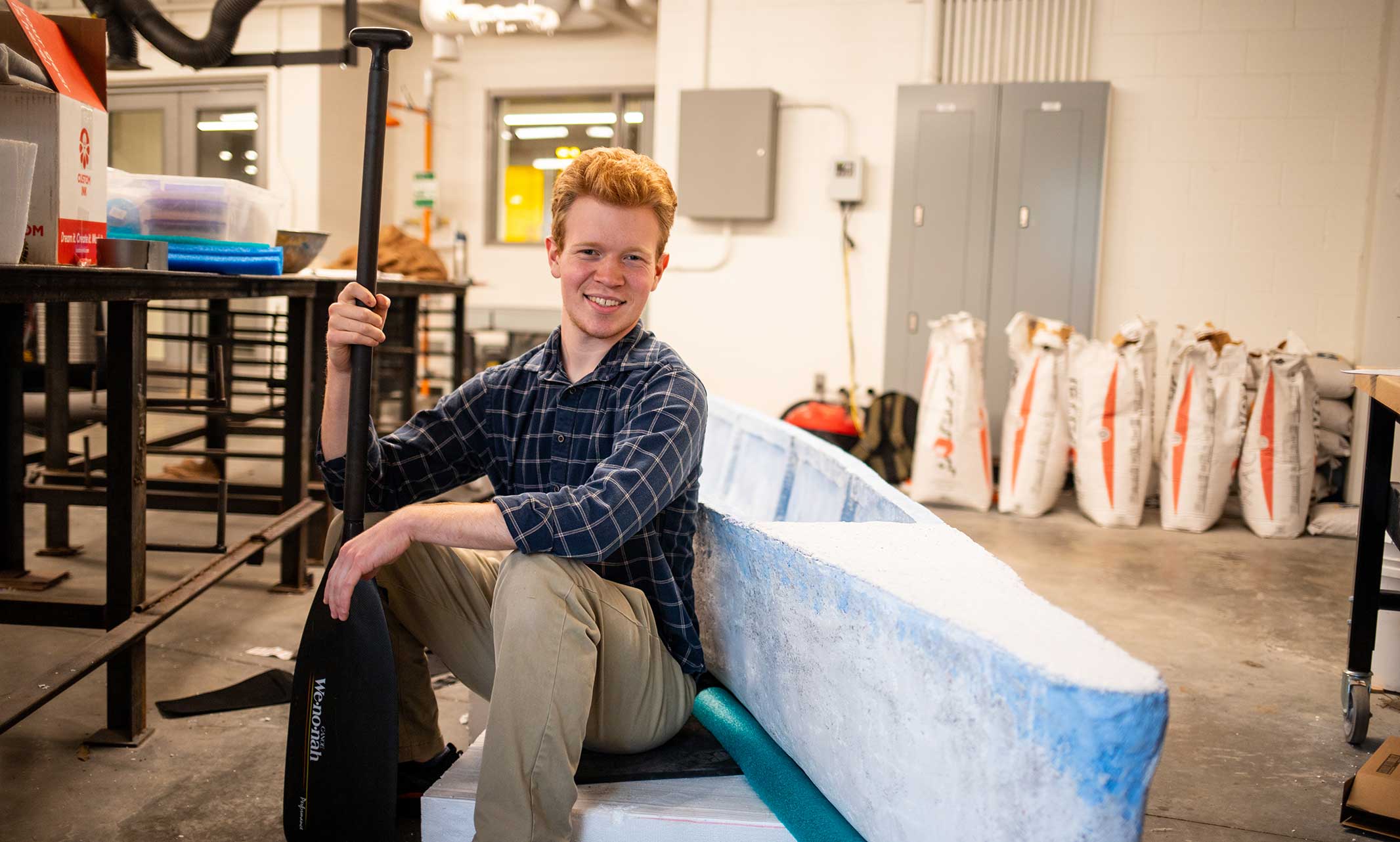
Concrete Canoe competitor finds value in work-life balance
Roos don’t just dream, they do. Our students turn ideas into action every day. Get to know our people, and you’ll know what UMKC is all about.
Sean PurdueAnticipated Graduation Year: December 2023UMKC degree program: Civil Engineering, minor in historyHometown: Liberty, Missouri
Looking to study civil engineering close to home, Sean Purdue chose UMKC for a balance of academic and student life opportunities. He’s a student ambassador of the Honors Program, the president of the UMKC chapter of the American Society of Civil Engineers and competes on the school’s Concrete Canoe team.
Why did you choose your field of study?
I chose civil engineering because it is a very broad field, and it gives me a lot of options for when I decide what I want to do as a career. My grandfather was a civil engineer, so that also inspired me. The history minor is just because I love history.
How has your college program inspired you?
I’ve definitely been inspired by learning about how much the world revolves around civil engineering. Water, transportation, buildings, we play a part in everything. It’s also amazing how much good engineering can improve the world.
Who do you admire most at UMKC and why?
My friend Brett Keegan, who is also a civil engineering student. He commutes to campus from St. Joseph (about an hour one way) and has a young child, but he still finds time to help out with Concrete Canoe and to just be a great friend. I probably could not do what he does, and I find it very admirable.
Since entering college, what have you learned about yourself?
I’ve learned that I want a life that is centered on family and activities that interest me outside of work. Still trying to figure out how to balance everything. I’ve also learned a ton about my leadership style and how I react to stress.
What do you hope to take from your experiences at UMKC into your professional career?
Knowledge on how to manage teams and people. Also that information about my own nature (see the previous question) will be pretty important to not burn out. I also want to always remember those that helped me throughout my college career and try my best to be similarly helpful wherever I go.
What are you most proud of during your time at UMKC?
Making a concrete canoe is certainly up there. It’s not the prettiest or the lightest or the strongest, but it is a canoe and it is made of concrete. I am also happy that I know a lot of the people in my classes. I think it’s very easy to just go to class and leave without making connections, but I’m proud of the connections I’ve made.
Sep 08, 2022
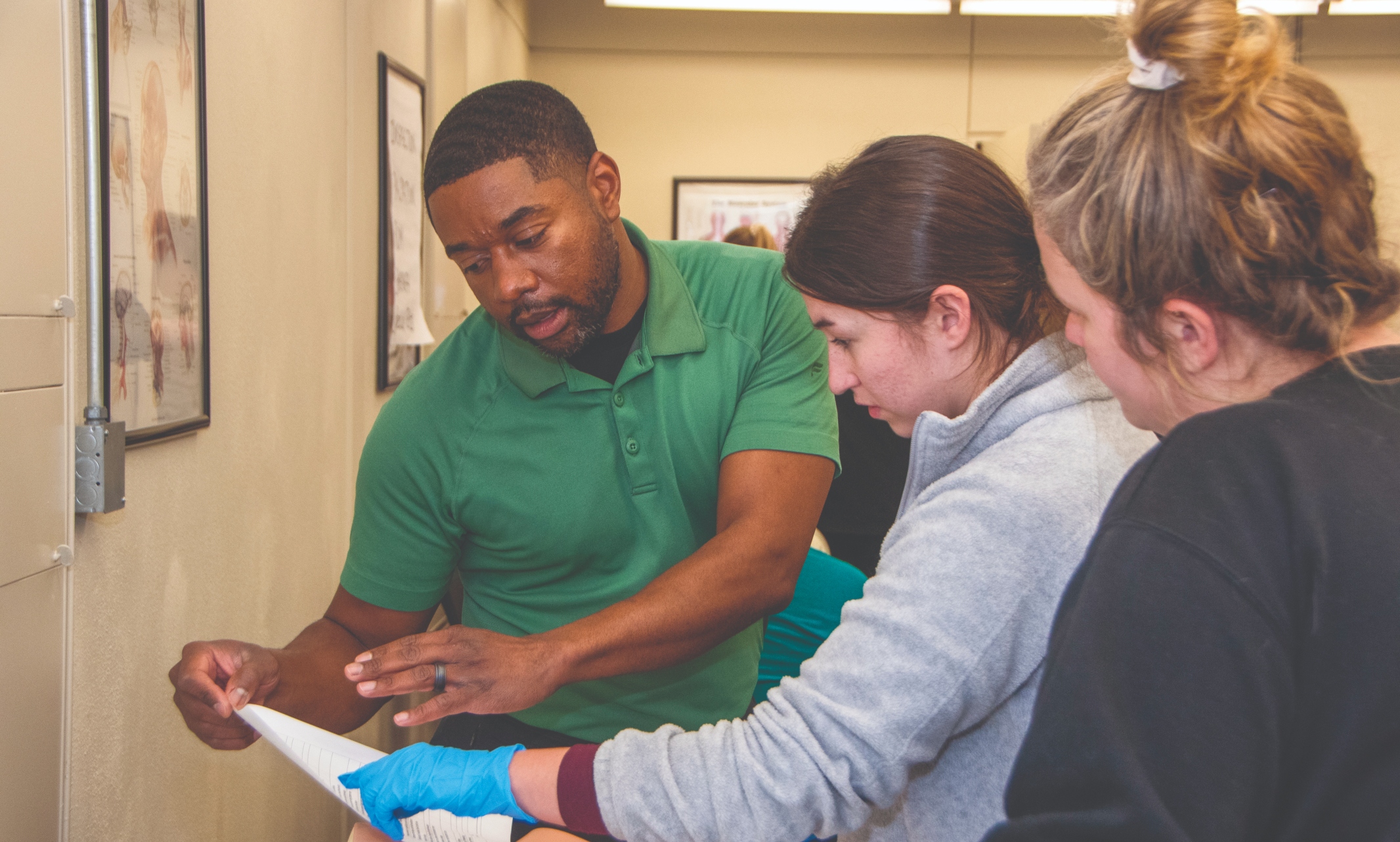
Major David Walker joins the School of Medicine faculty, bringing his Army experience to UMKC's Physician Assistant program.
Major David Walker has been added as a new faculty member to the Physician Assistant (PA) program at the UMKC School of Medicine. Walker’s path to UMKC was a bit unique.
Initially, Walker came to the department for an internship through the Army Career Skills Program, which sponsored his time at UMKC. The Army initiative helps veterans transition to civilian careers. During the internship, Walker worked closely with the PA faculty on day-to-day delivery of the curriculum, while he was involved in all aspects in the classroom, including skills instruction and assessment.
Julie Banderas, assistant dean, Graduate Health and Professions, said it’s the first time the Physician Assistant program has worked with the Army Skills Program. “We saw this as an excellent opportunity with mutual benefits,” she said.
Walker said he experienced many teaching opportunities in the military. “As you move up the ranks in the military, you’re always looking behind you to train your subordinates and bring them up as well,” he said. “Those opportunities gave me a great deal of experience with the student-teacher and mentor-mentee dynamic.” According to Walker, there was much to like about UMKC and its PA program. “I was drawn to the mission at UMKC– how involved they are with the community,” he said. “The program’s emphasis on diversity, equity and inclusion was important as well, and their focus on recruiting students with diverse backgrounds.”
Walker enlisted straight out of high school, two weeks after graduation, to be exact. “With my birthday in July,” he said, “I wasn’t even 18 yet at the start of basic training.”
He originally served as a military intelligence technician. According to Walker, the job sounds like a big deal, but he adds, “I was basically an IT guy.” An “IT guy” with top security clearance, nonetheless. He worked the first couple of years for the National Security Agency, deployed in Iraq. That’s where he met his wife, and after their son was born, he began looking at his future after the military.
He landed on the physician assistant program through the military, an inter-service PA program accredited through the University of Nebraska. Through the program, he not only received his bachelor’s degree, but a master’s degree and then a commissioning to officer as a first lieutenant.
“I wasn’t even 18 yet at the start of basic training.” — David Walker
Walker was drawn to the problem-solving aspect of a career as a physician assistant. “I like putting puzzles together,” he said. “My patient is telling me their symptoms; I’m performing the physical exam. I’m finding the pieces to put together to figure out a diagnosis and develop a treatment plan with them.”
According to Eric Johnson, program director for the PA program, Walker is a great addition to the team.“Major Walker’s military experience, while significant, is not the only contribution he brings to the PA program,” Johnson said. “He brings racial and gender diversity to the program faculty, as well as a role model to all our students, but especially to those whose background and experience may be similar. Often overlooked is David’s correctional medicine experience, which presents unique complexities that few clinicians encounter.”
The UMKC Master of Medical Science Physician Assistant Program is a seven-semester program based in the UMKC School of Medicine and has been accredited since 2014, with more than 100 alumni PAs. Walker joins a faculty team of three other full-time PA faculty members and nearly 60 current students.
Sep 08, 2022
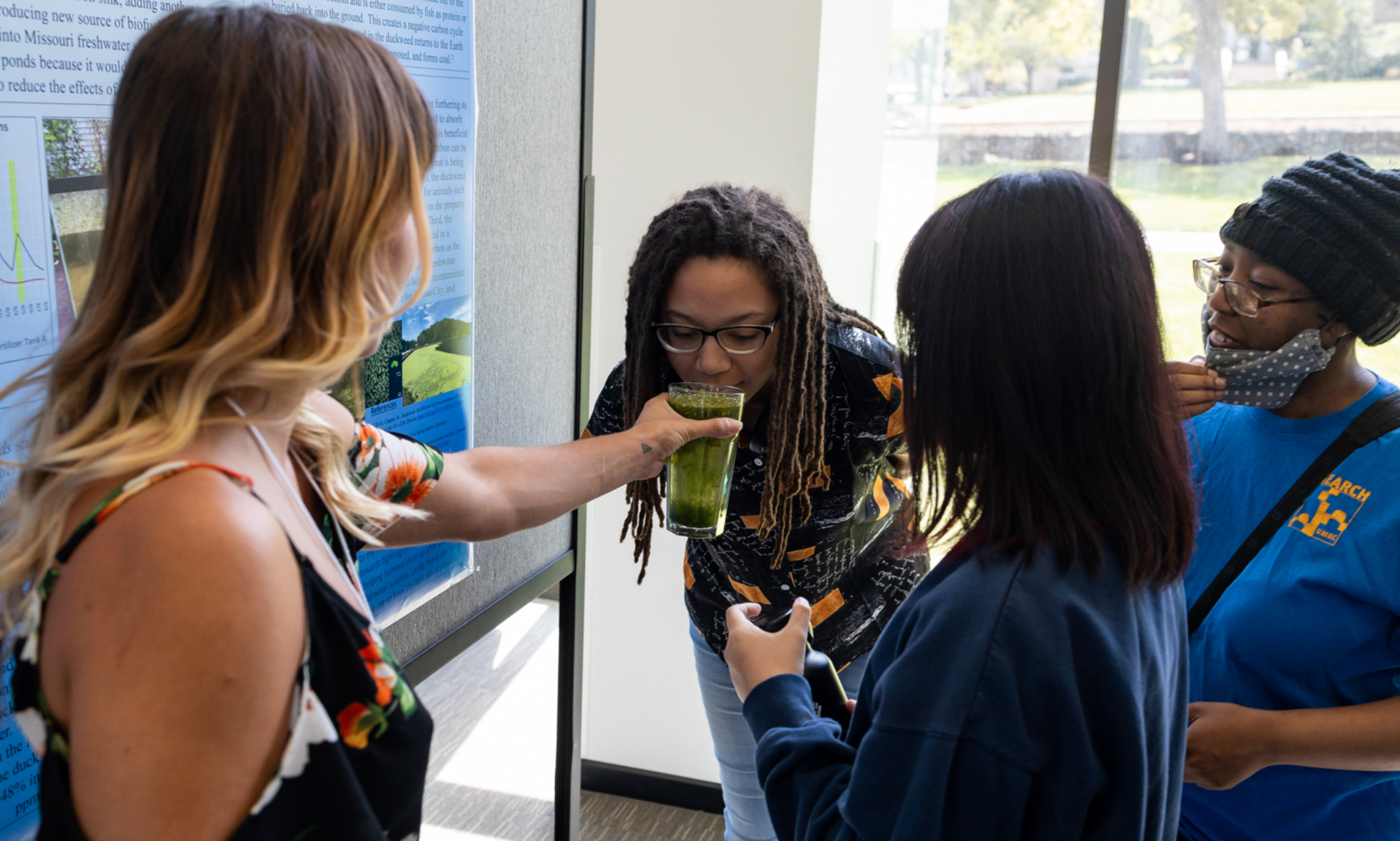
Undergraduate research symposium demonstrates students making the most of opportunities to excel
Amanda Pierce had already launched her professional career at EcoSafe Environmental Services in the Crossroads District after finishing her degree requirements at the end of July. So, what was she doing back on campus in August, standing in front of a poster in Miller Nichols Library and Learning Center?
Living her passion.
The poster described her research into duckweed, an innocuous-looking but environmentally powerful plant. She earned her final credits for her degree in earth and environmental science researching the ability of duckweed to do double duty sequestering carbon dioxide while removing contaminants in waterways. She had the credits, the degree and the professional career, but she came back to present and discuss her findings at the annual UMKC SUROP Poster Symposium.
“I’m very passionate about my research,” she explained. “At first, I wasn’t really even doing (the research) for school. I put my time and energy into it, and I was proud of it, and I wanted to share this cool information with people.”
That’s the secret of SUROP (Summer Undergraduate Research Opportunity), one of several UMKC programs that encourage undergrads to dive deep into their studies by funding research expenses for approved projects. The programs create a bridge linking passion to tangible performance.
SUROP grants provide students with a $2,000 tuition grant and up to $1,250 in reimbursable research expenses for projects undertaken during the summer. The SUROP Poster Symposium celebrates the work that undergraduate researchers, scholars and artists and their faculty mentors have accomplished during the summer months.
Information about undergraduate research opportunities, funding and application deadlines is available at the Undergraduate Research and Creative Scholarship page.
Pierce was one of 19 students who received funding for summer research projects this year, on topics ranging from the urban heat island effect in Kansas City, to health policies related to child obesity, to using 3-D printing to create structures that mimic living tissue.
Another was Laura Munoz-Baroja, who also competes as a scholarship athlete on the UMKC women’s tennis team. She tested techniques for improving the efficiency and performance of solar energy panels.
Current panels convert only about 20 percent of the solar radiation they receive into electricity, and the rest gets converted into heat, which limits the performance of the panel. Munoz-Baroja investigated coatings that can convert more of the light entering the panel into wavelengths that produce electricity instead of heat. By using external coatings, the enhancement can be applied to existing panels without expensive and time-consuming internal design changes. She tested coating materials that are durable enough to last as long as the panels, even under exposed outdoor conditions.
Sam Sisk also focused his research on keeping things cool, but his medium was semiconductor computer chips. At temperatures above 80 degrees C., the speed and accuracy of chips declines significantly, so cooling has always been a key element of the design of computerized equipment. Cooling systems integrated into chips is the modern solution, but those systems create less than ideal interaction between the chip and the coolant. Sam’s solution: go small. He designed a miniaturized system for injecting liquid coolant directly onto the surface of individual chips, generating more direct contact with the coolant while requiring minimal energy to pump the liquid.
2022 SUROP Presenters
Shuyuan Tian, Chemistry
Chirality-Driven Self-Assembly: In Situ Preparation of Structurally Distinct Janus
Dendrimers
Faculty Mentor: Shin Moteki
Kate Larberg, Earth and Environmental Science
Making the Kansas City Urban Heat Island Effect Approachable
Faculty Mentor: Fengpeng Sun
Kaitie Butler, Mechanical Engineering, Honors Program
Fabrication of Color-Changing Materials Using Liquid-in-Liquid 3D Printing Methods
Faculty Mentor: Zahra Niroobakhsh
Laura Munoz-Baroja, Energy, Matter and Systems
Performance Enhancement of PV/T Systems Integrated with Nanofluids
Faculty Mentor: Sarvenaz Sobhansarbandi
Christian Dang, Biology, Honors Program
A Self-Directed Mutagenesis Approach for Examining the Drosophila Tribbles
Recognition Degron in the C/EBP Transcription Factor Slbo
Faculty Mentor: Leonard Dobens
Jay Vanderslice, Physics
Creating Continuous and Universal Paths for Crystal Structures
Faculty Mentor: Paul Rulis
Charlotte Rooney, Earth and Environmental Science
Assessment of Urban Prairie and Phytoremediation Plants as a Means to Regenerate
Urban Soil
Faculty Mentor: Caroline Davies
Amanda Pierce, Earth and Environmental Science
Decontamination and Carbon Sequestration of Missouri Freshwater by Duckweed
Faculty Mentor: Alison Graettinger
MaAh Kyi, English/History
The Missouri Bicentennial Project: Recent Immigration
Faculty Mentor: Diane Mutti Burke
Judy Vun, Nursing
A Secondary Data Analysis of the Child Obesity and Health Messaging Preferences
among Missouri Policymakers (CHAMP) Study
Faculty Mentor: Anita Skarbe
Sam Sisk, Mechanical Engineering
In-Chip Cooling Technology within Semiconductor Switches
Faculty Mentor: Sarvenaz Sobhansarbandi
Saivagmita Kantheti, Six-Year BA/MD
A Text Mining Approach to Determine Correlations between the Spanish Flu and
COVID-19
Faculty Mentor: Billie Anderson, Ph.D.
Britton Needham, Biology/Chemistry
Probing Biological Redox Chemistry with Microelectrodes
Faculty Mentor: Mohammad Rafiee
Drew Nelson, Mechanical Engineering
Small Rifle Primer Characterization
Faculty Mentor: Travis Fields
India Fernandez, Biology
Creation and Repair of Educational Anatomy Models
Mentor: Rachael Allen
Michael Englert, Mechanical Engineering
Development of a Highly Thermal Conductive Nanofluid for the Application in Solar
Thermal Technologies
Faculty Mentor: Sarvenaz Sobhansarbandi
Hannah Briggs, Biology
Chirality-Driven Self-Assembly: Application toward Renewable/Exchangeable
Resin-Immobilized Catalysts
Faculty Mentor: Shin Moteki
Luke Romang, Earth and Environmental Science
Depositional Setting, Provenance, and Tectonic Implications of the Carmen Formation
on San Marcos Island, Baja California Sur, México
Faculty Mentor: Tina Niemi
Austin Cass, Mechanical Engineering, Honors Program
Creating Soft, Gel-Like Tubes for Biomimicking Tubular Tissues Using Liquid-in-Liquid
3D Printing
Faculty Mentor: Zahra Niroobakhsh
Sep 08, 2022
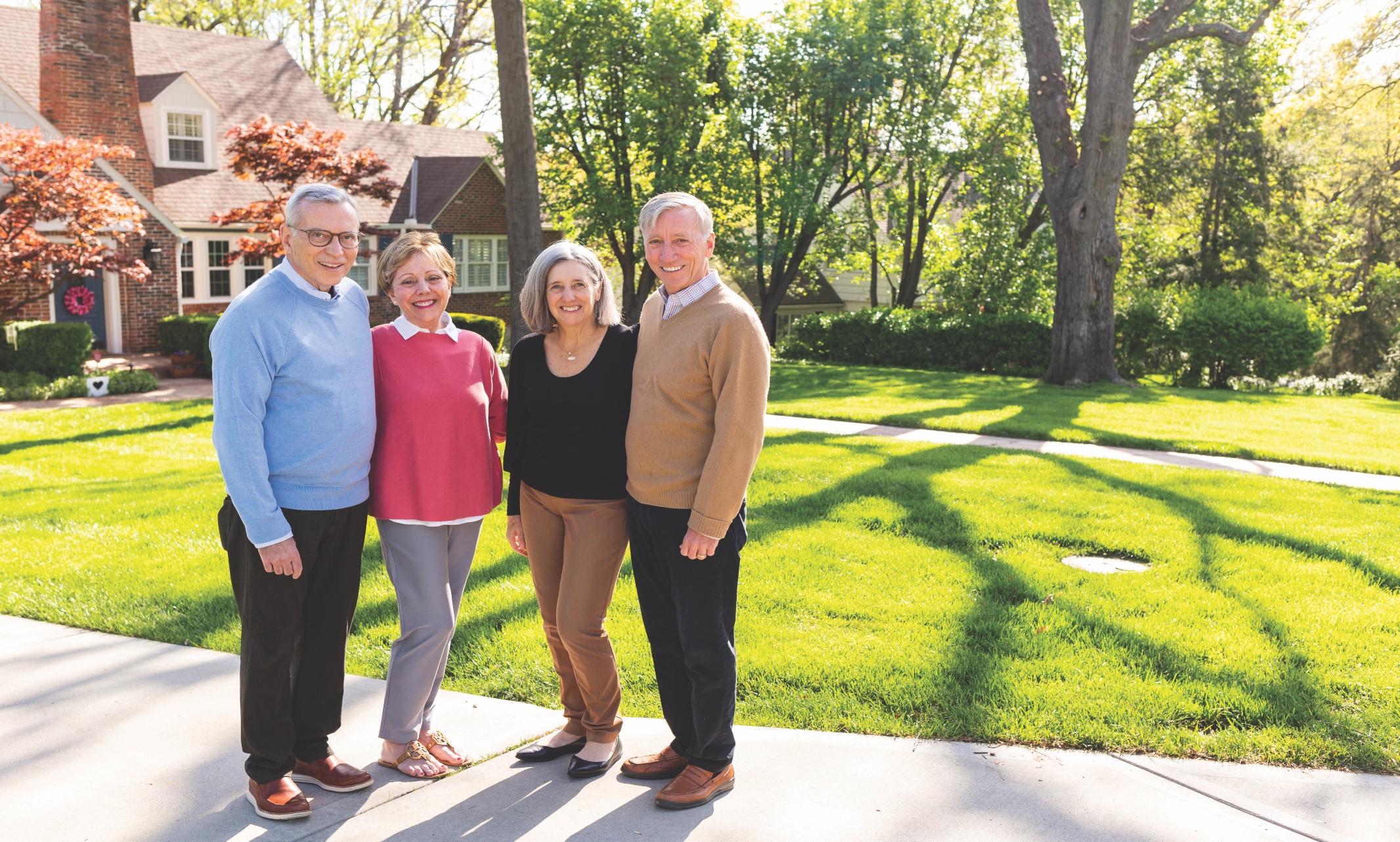
Alumni share their experience as couples in the School of Medicine
The bonds built within the UMKC School of Medicine community are strong and long-lasting. Friendships are forged, but often families, too, take shape. Spanning 40-plus years, these alumni couples are a testament to that connection. Some are just beginning their lives together, and some have celebrated several milestone anniversaries.
Teammates and soulmates
Blake and Katy (Nichols) Montgomery’s relationship, and their medical careers, have taken them all over the country. But first, it was basketball that brought the 2015 and 2016 M.D. graduates together. They met their first year of medical school while playing on a three-on-three team, and they stayed teammates throughout their time at UMKC. “The best part of finding your spouse in med school is you have a nonstop cheerleader,” Katy said. “You’re rooting for each other every step of the way, and it’s a shared gratification when the other succeeds.”
Although they started at UMKC at the same time, Blake was accepted to the Medical Research Scholars program at the National Institutes of Health in 2013. That meant Katy would end up graduating a year ahead of him.
In 2015, the same year the couple tied the knot, Katy matched in pediatrics at Children’s Mercy. Soon after, Blake matched at Stanford University in orthopedic surgery and moved to Palo Alto, California, while Katy stayed in Kansas City.
“Both of us being in medicine, I feel like we have a complete understanding of the other person’s life,” Blake said, “and that’s made our relationship that much stronger.”
Katy was able to transfer her pediatric residency to Children’s Hospital Los Angeles to finish up her final two years. Although the couple was still separated by a six-hour drive, they took advantage of their more frequent reunions.
“Having limited time together made us cherish every moment,” Katy said.
The couple is now together in Boston, where Blake began his first pediatric orthopedic fellowship and where their family grew to three. They welcomed a baby girl in January 2022.
“You’re rooting for each other every step of the way, and it’s a shared gratification when the other succeeds.” —Katy Montgomery
The couple’s next adventure will take them to Auckland, New Zealand, where Blake will start a fellowship specializing in pediatric orthopedic spine surgery. Katy plans to pursue an international certification in lactation.
The time they have spent apart has made the couple grateful for the everyday things many take for granted.
“It sounds cheesy, but once we finally moved in together, all the little things seemed so much better,” Katy said. “Like, wow, we get to go to the grocery store … together.”
“When we were apart it felt like something was always missing, like half your heart is across the country,” Blake said. “Now that we’re back together, you just feel complete.”
From high school to med school
Chizitam and Ginika Ibezim’s connection started even before they were medical students. The 2020 and 2021 M.D. graduates met in 2013 in the UMKC Summer Scholars Program (now the STAHR program) for high schoolers exploring medical careers. Chizitam was a senior from Austin, Texas, and Ginika a junior from Chicago.
The two were in an anatomy class together when Ginika tried to strike up a conversation with Chizitam. But he was all business.
“I had tunnel vision, thinking, ‘If I can do well in Summer Scholars, I can get in the program,’” Chizitam said.
It would take two years for Ginika and Chizitam to cross paths again. And Chizitam wasn’t going to miss out this time. He was helping at a student organization event when he recognized Ginika in the crowd.
“I remember coming up with a bunch of excuses for us to meet up,” said Chizitam. “I was selling my first-year text books and I offered to just give them to her.”
The two exchanged text messages nonstop that summer and soon were a power couple, frequently commandeering a table at Starbucks, studying for several hours of the day.
“We were learning the same things and going through the same experiences,” said Chizitam. “It made that aspect of med school kind of fun.”
The couple got engaged in the Summer of 2019 and tied the knot in April 2020 with a small ceremony in Chizitam’s hometown of Austin. But Ginika still had another year of medical school before the couple could finalize their future together.
“We couldn’t do the couple’s match because we weren’t in the same class,” Ginika said. “We just had to hope and pray that we matched together.”
Ginika’s residency search took her nearly everywhere in Texas: 26 interviews in total. She narrowed her list to three family medicine residencies, and ended up matching in Austin at the same hospital as Chizitam.
“I was selling my first-year text books and I offered to just give them to her.” —Chizitam Ibezim
The couple’s conversations used to focus on work, especially since they were in the same hospital and program, but that’s changed with the addition of their now 4-month-old daughter.
“We’ve transitioned to talking about our aspirations outside of medicine, and that’s been really refreshing,” said Chizitam. “We’re talking about where we want to travel and things we want to see.”
‘Really good waltz partners’
School of Medicine founder E. Grey Dimond, M.D., left quite an impression on Stan and Kathleen Shaffer, 1979 M.D. graduates, when he spoke to their medical school class in the summer of 1973.
“He gave us a stern talk where he told us we wouldn’t have time for dating,” Stan said. “Unless we look around the room and find someone as serious as us about being a physician.”
Stan and Kathleen knew each other in passing, until their second year in the program, when they were in a social dance class together. Although they rotated dance partners, Stan and Kathleen figured out early on where they clicked.
“It turned out we were really good waltz partners,” Stan said. “And we have said: It’s really wonderful to marry your waltz partner.”
Any medical student knows the residency match is a huge step in becoming a doctor. But it was even bigger for the Shaffers. On top of navigating the next stage of their careers, they were also considering the next stage of their relationship: marriage. To match as a pair, they had to be married. Dating or engaged wouldn’t cut it. So, in February 1979, the Shaffers wed, and a few months later they matched together at Children’s Mercy Hospital in Kansas City.
“Going into medical school, I didn’t have dreams of weddings or anything,” Kathleen said. “At that time, women in medicine weren’t thought to have time to get married. So, I thought becoming a doctor and getting married was a double win for me.”
Kathleen has stayed in pediatric medicine for 36 years in Kansas City. Stan moved into neonatal medicine, where he established the intensive care nursery at Saint Luke’s Hospital. In 2014, he transitioned his focus to global health.
His interest in global health and Kathleen’s expertise in pediatrics have taken center stage in their work providing health care in Haiti for more than 35 years. Their two children even joined them on mission trips, a tradition that has continued into their adulthood.
"It’s really wonderful to marry your waltz partner.” —Stan Shaffer
According to Stan, the trips to Haiti also consumed a great deal of their discussions. Those talks – as well as the trips themselves – instilled in their children the incredible scope of what health care can provide to those in need.
“We weren’t talking about insurance plans or paperwork,” said Kathleen. “It was about larger medical issues and the philosophy of medicine.”
The groundwork they laid helped inspire both children to follow in their parents’ footsteps. Their daughter, Brynn, graduated from the University of Kansas School of Medicine in 2010, and their son, Christopher, graduated from the UMKC School of Medicine in 2006.
The family the Shaffers built together may certainly last a lifetime, but the friendships they’ve built have lasted almost as long. A couple they became close friends with at UMKC — current School of Medicine Dean Mary Anne Jackson (M.D. ’78) and her husband, Jay Jackson (M.D. ’78) – were the Shaffers’ neighbors for more than three decades.
Working and learning together
According to Jay, he and Mary Anne had finally given up on their house hunt when the Shaffers told them the house next door in their Kansas City suburb was going on the market.
“They found our house for us,” said Jay. “We’ve been there probably 34 years, so we’re obviously thrilled to have been their neighbors.”
Just as the Shaffers received relationship advice from Dimond that first summer, Jay said he and Mary Anne heard the same message. In 1978, during their fifth year of medical school, the Jacksons got married so they could also match together.
The Jacksons coupled up early on in their time at UMKC. Jay recalled many days and nights studying together. He was the expert on humanities, and Mary Anne, ever the educator, helped him with some of his sciences.
“I struggled with chemistry in particular,” said Jay, “but she made it light up for me.”
All those study sessions paid off. Mary Anne has a successful career in infectious diseases and medical education and Jay is a recently-retired cardiologist.
The hours Mary Anne and Jay put into their careers have been long, but the choice to become doctors was an easy decision for both of them.
“Medicine is what we were called to do,” Jay said.
With the 50th anniversary celebrations continuing, many alumni are reminiscing about their time at UMKC and all it has given them, including the Jacksons.
“I look back on our time at UMKC, and as hard as we worked, they were really fun times,” Jay said. “Mary Anne asked me what my best memory was from that time. I told her, ‘Well that’s easy. The best thing that happened to me in med school was meeting you.’”
Sep 08, 2022
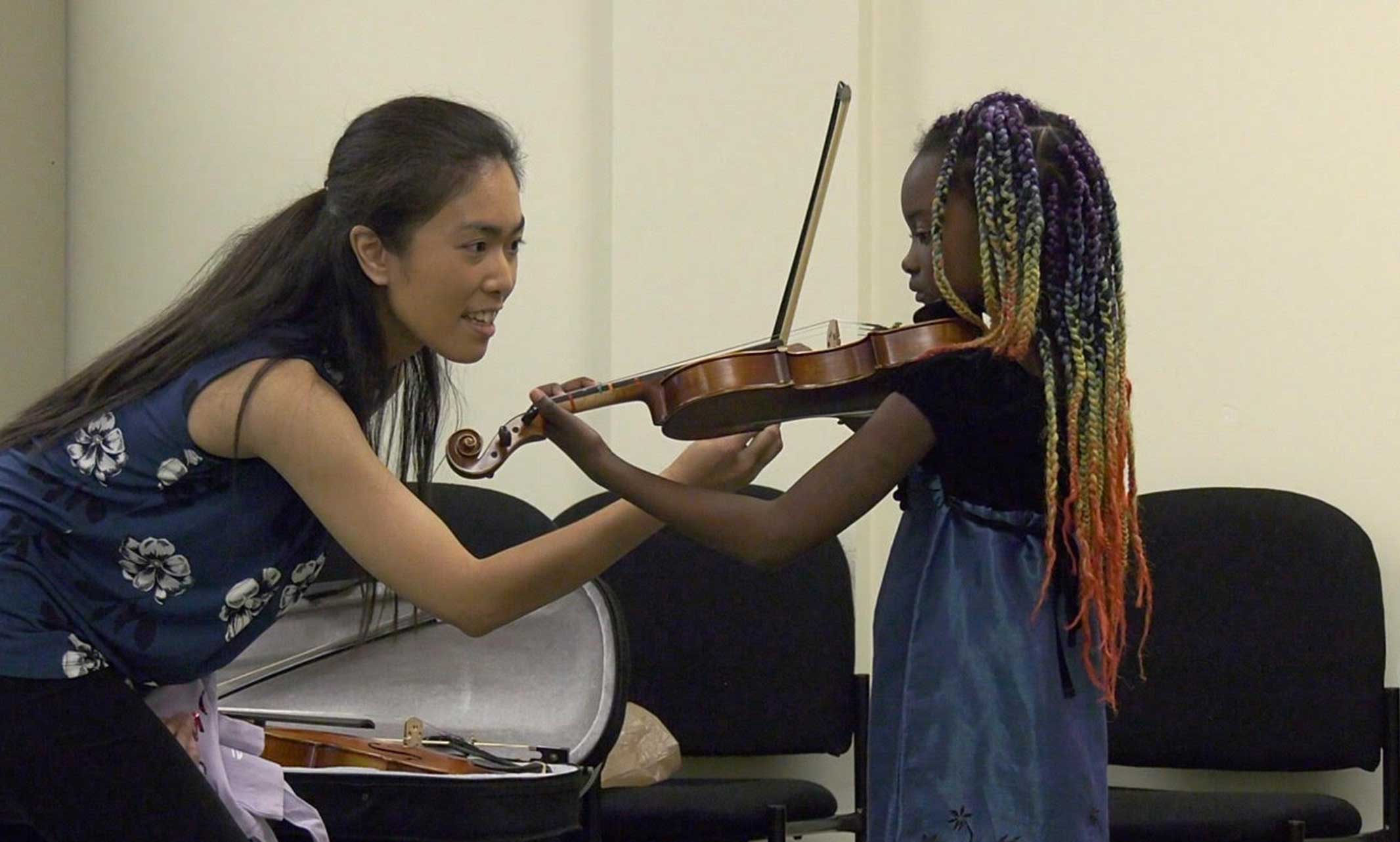
Doctoral student En-Ting Hsu is helping Kansas City children embrace her art
Roos don’t just dream, they do. Our students turn ideas into action every day. Get to know our people, and you’ll know what UMKC is all about.
En-Ting HsuAnticipated graduation year: May 2023UMKC degree program: DMA in viola performanceHometown: Tainan City, Taiwan
En-Ting Hsu discovered at a young age the power of exposure to music and the way it can change a life.
It happened for her as a child in Taiwan. Now she is making it happen for children in Kansas City.
Her parents, both music lovers, took her to sit in the audience for a Master Class being conducted there by Scott Lee, now associate professor of viola at the UMKC Conservatory.
The 12-year-old En-Ting was awestruck – and launched onto a musical career that led her to pursue an undergraduate music degree at National Taiwan Normal University, then a Master of Music from Indiana University Bloomington.
When it came time to choose a doctoral program, “I Googled to see where (Lee) teaches.”
Once she enrolled at UMKC, Lee introduced her to his brother, Jackie Lee, a UMKC alumnus and artistic director of Heartland Chamber Music. She participated in the organization’s summer music festivals. Five years ago, when Heartland launched its String Sprouts program, a free music education program designed for underserved children ages 3 - 8, Hsu was hired as the lead violin teacher.
Bev Chapman, a former local television news reporter, has spent the past five years tracking the progress of the youngsters under Hsu’s tutelage for a recently completed documentary film.
Sep 07, 2022
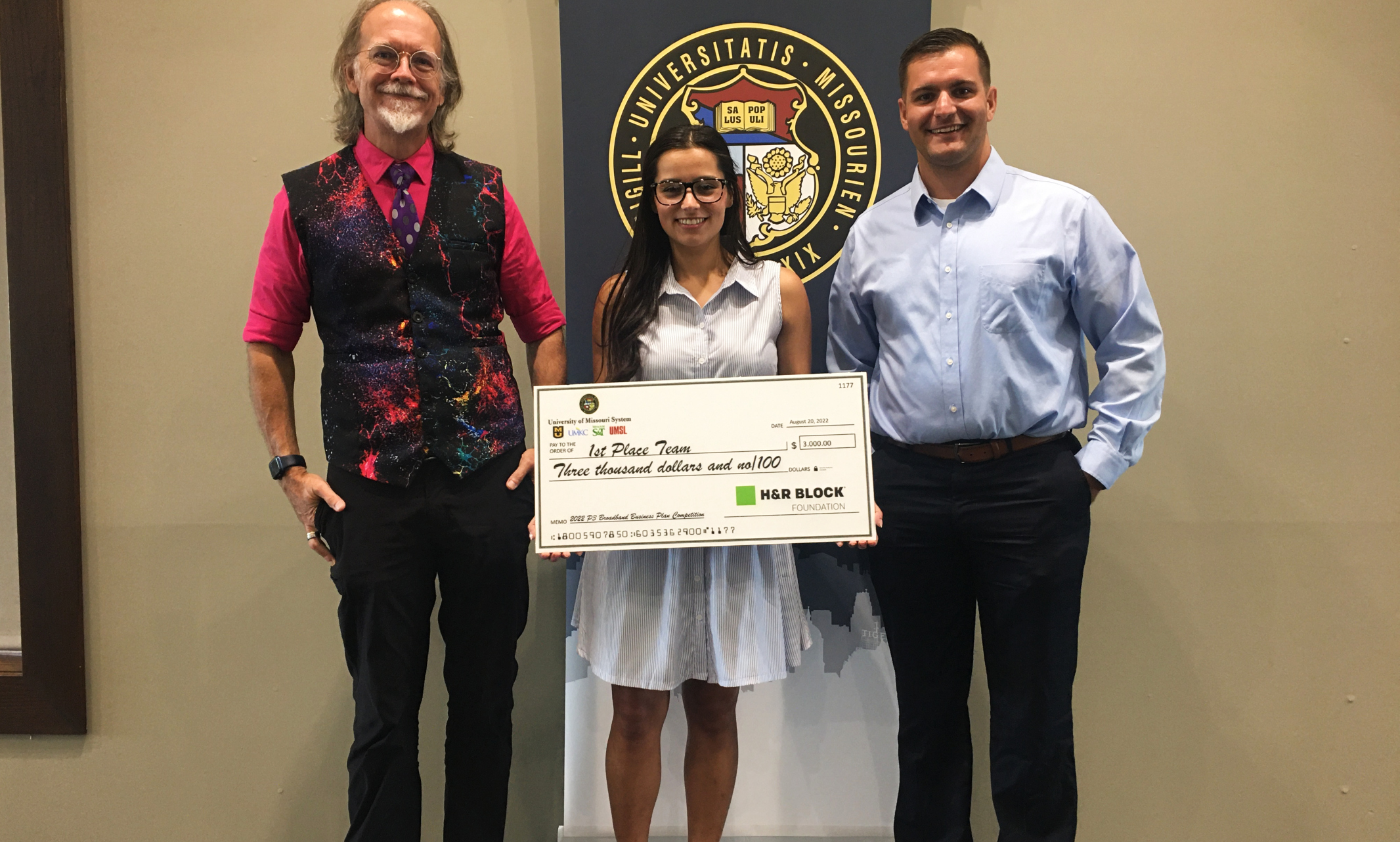
UMKC students win System-wide competition to design a possible public-private partnership internet utility
A team of University of Missouri-Kansas City students took first place in a UM System competition to design a public-private partnership plan to extend broadband internet service to a five-county region in northwestern Missouri.
The competition was open to students at all four UM System universities. The competing teams combined undergraduate and graduate students from an array of majors and disciplines, including Law, Computer Science, Business and Engineering. The students used surveys, research, data and information from local stakeholders to develop proposals to use private-public partnership business models to create affordable, feasible and economically sustainable plans to bring broadband service to Atchison, Gentry, Holt, Nodaway and Worth counties in Missouri.
The team of Daniel Foose, UMKC Law; Sofia Hadley, UMKC Law; and John Welch, UMKC School of Science and Engineering won the top prize of $3,000 for a plan that suggested consideration of a fiber optic system built on top of existing power utility infrastructure, along with other components regarding broadband infrastructure, access and adoption and potential sources of funding.
Foose, who earned his undergraduate degree from Northwest Missouri State University, was intrigued by the idea of bringing broadband coverage to the underserved northwest counties.
“I sort of saw it as a way to give a little bit back to a community that had done so much to help shape me into who I am today,” he said.
The H&R Block Foundation donated a total of $5,000 in prize money for the competition.
The second-place team included:
Ankit Agarwal, Missouri University of Science and Technology Engineering Management
Alasia Buschkopf, University of Missouri-St. Louis, Computer Science
Clifton Holly, UMKC Law
Tara Ogoti, UMKC Science and Engineering
Third place:
Chandrashekar Akkenapally, S&T Computer Science
Anna Heetmann, UMKC Law
Emilie Moyer, UMKC Bloch School of Management
Tarun Sai Naregudam, S&T Computer Science
Oluwatosin Waleola, S&T Information Science and Technology.
The presentation event in the competition took place Aug. 20 in Maryville.
The competition was initiated by Anthony Luppino, Rubey M. Hulen Professor of Law and Director of Entrepreneurship Programs at the UMKC School of Law, and a member of the UM System Broadband Initiative Steering Committee. That steering committee evolved from a 2019 proposal for a UM System-wide broadband initiative put together by Luppino; Marcus McCarty, UMKC adjunct law faculty; and Casey Canfield, an engineering professor at S&T. The proposal was adopted at the System level and refined, further developed and implemented by faculty and staff from all four System universities, KCSourceLink, MU Extension and UM System Engagement and Outreach.
The student competition was the latest addition to the UM System Broadband Initiative, which also includes the Digitally Connected Community Guide.
“It occurred to me that the concept of the Regnier Venture Creation Challenge (an entrepreneurship competition run by the Bloch School) could be applied to broadband access challenges,”Luppino said. “Instead of independent ventures, the student teams would be developing concepts for public-private partnerships.”
He called the competition a great example of “the power of multidisciplinary and inter-institutional collaborations,” with contributing organizations providing an opportunity for students to “demonstrate their knowledge, talents, and teamwork in a service-learning experience focused on a critically important subject.”
Sep 06, 2022
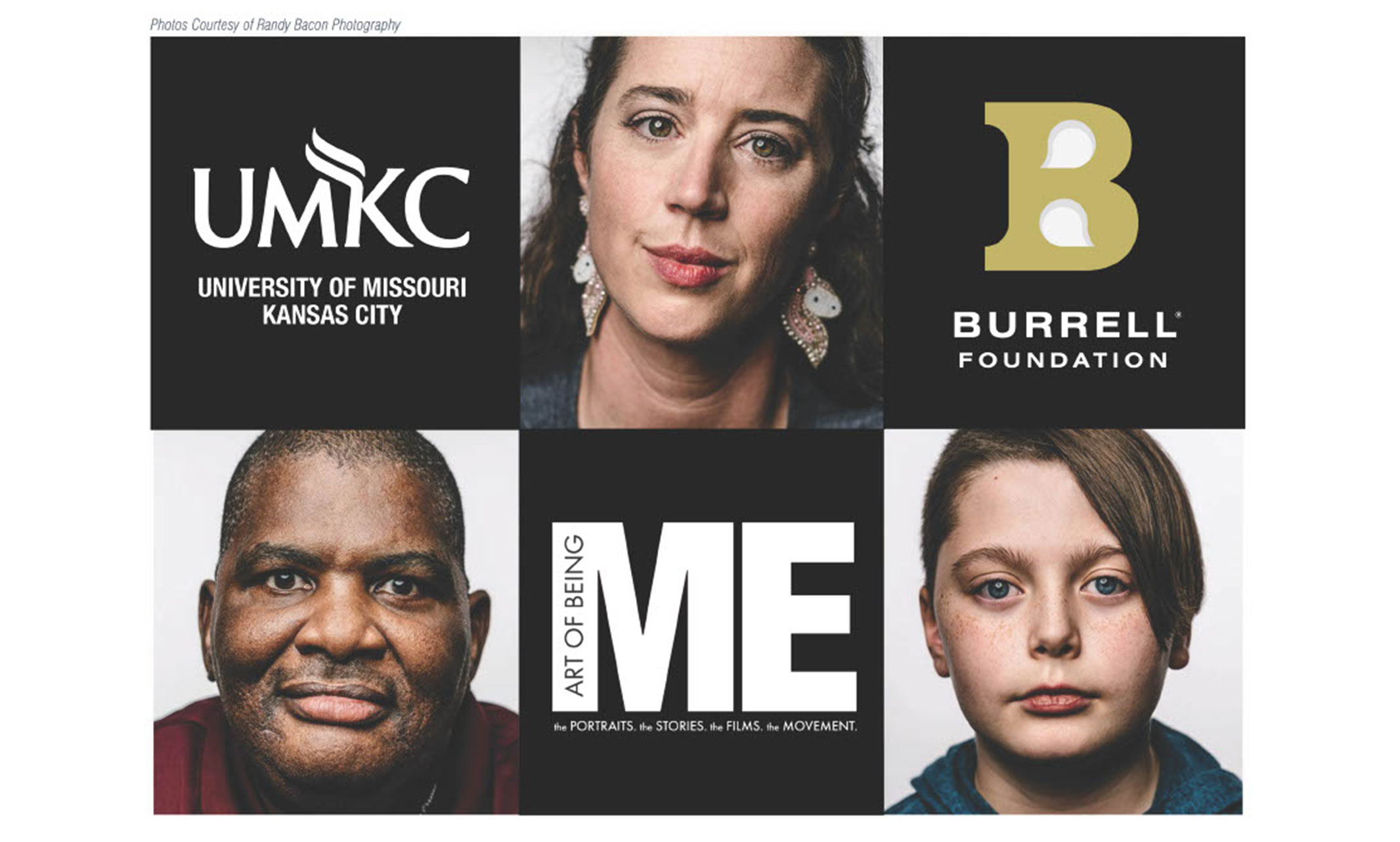
‘The Art of Being ME’ will spend seven weeks in Miller Nichols Library
A multi-media art exhibit, “created to ignite important conversations around mental health” according to the artist, will be on display at the University of Missouri-Kansas City Oct. 19 through Nov. 30.
“The Art of Being ME,” created by Springfield-based artist Randy Bacon, incorporates video, still photography and text. The collection showcases the personal stories of more than 20 individuals who have lived experiences with mental health conditions or diagnoses. It includes inspiring portrait artwork, personal written stories and a series of short films that focus on various behavioral health challenges. The exhibit is sponsored by the Burrell Foundation.
The exhibit will be on display throughout Miller Nichols Library, with free access for campus and community available during the library's operational hours.
During the exhibit’s stay on campus, Bacon hopes to incorporate the mental health journey of a member of the UMKC campus community into the project.
“The Art of Being ME is an extraordinary project created to ignite important conversations around mental health, and to amplify the human experience as we traverse it both individually and collectively,” Bacon writes. “We are never alone, and this is a conversation that must be normalized and talked about in all spaces with total transparency.”
The exhibit is being brought to UMKC by the Department of External Relations and Constituent Engagement as part of the department’s extensive Engagement Month programming.
Aug 31, 2022
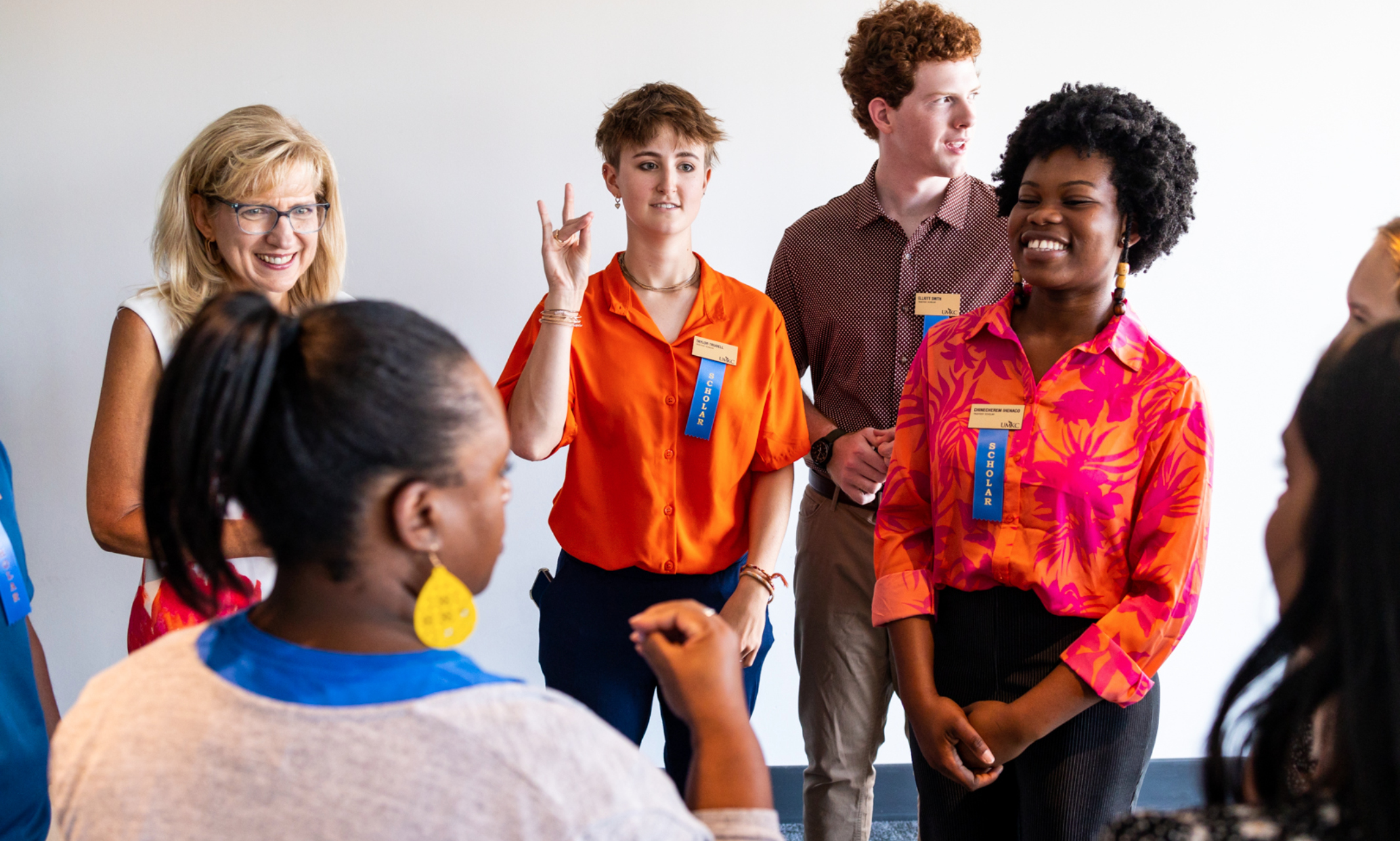
New class of Trustees’ Scholars set out to make their mark
They’re the kind of students in demand at prestigious universities across the country. High school class presidents, A+ scholars, National Honor Society members, committed volunteers. These multi-talented young people combined top high school grades with success in athletics, arts, debate, music and other extracurricular activities. They have chosen to launch their futures at UMKC.
These students are UMKC Trustees’ Scholars, who will have their four years of college fully funded by civic leaders who will also provide them with invaluable mentorship, access, networking and experiential learning opportunities.
Trustee Donna Ward, chair of the group’s scholarship committee, said this year’s cohort of seven students was selected from a pool of about 200 applicants.
“They are the best of the best,” Ward said.
Larry Smith, from St. Louis, didn’t know Kansas City very well, but came away from a visit convinced that UMKC was right for him.
“There’s not a lot of diversity where I’m from,” he said. “I thought I would enjoy being with the wide variety of people here.”
For Elliott Smith of Parkville, the university’s urban environment is a major advantage.
“There are lots of opportunities to explore the city, and the network that the university can provide.”
Taylor Trudell of Knob Noster said UMKC was her first-choice school well before learning she had won the coveted scholarship. “I think the mentorship and the opportunities to learn how to handle yourself in professional situations is really the cream of the crop from this scholarship.”
When Judy Batts of Kansas City got word about the scholarship while at Raytown High School, “I just started crying. I never thought that I could get access to all these opportunities.”
The UMKC Board of Trustees is a nonprofit organization established by civic and community leaders to support the university. Their mission is to strengthen Kansas City’s future by advocating for and supporting UMKC and its students. Since 2001, the Trustees have sponsored the Trustees’ Scholars Program, which provides high-achieving students from our region with a fully funded educational and experiential program, worth more than $60,000 over four years.
Each scholar is individually mentored during their four years by a UMKC Trustee. The program gives students access to the Trustees’ knowledge, experience and network, as well as specialized guidance from key UMKC staff. Today, more than 120 program alumni are making their marks as business and civic leaders, entrepreneurs and professionals in healthcare, entertainment and law.
Meet the 2022 incoming class of UMKC Trustees’ Scholars.
Judy Batts’ goal is to become a genetic counselor and use that skill to bridge the large existing gaps in health care access and outcomes.
Intended Major: Biology with double minors in Spanish and Chemistry
Hometown/High School: Kansas City, Missouri; Raytown High School
Trustee Mentor: Jay Kim
Mauricio Bernal intends to become an engineer focused on mentoring the next generation. “I want to give back to my community by sharing my experiences with students in the Kansas City area that have a similar background as me. I greatly benefitted from having mentors that looked like me and shared similar experiences, and I value giving that back to the next generation.”
Intended Major: Civil Engineering
Hometown/High School: Kansas City, Kansas; Wyandotte High School
Trustee Mentor: Gabe Hernandez
Chinecherem Ihenacho plans to become an addiction psychiatrist in the UMKC School of Medicine and open clinics in both the U.S. and Nigeria “where people won’t be turned away because of money.”
Intended Major: Psychology (pre-med)
Hometown/High School: Raytown, Missouri; Raytown South High School
Trustee Mentor: Dana Nelson
Vari Patel will pursue an MBA and a law degree after graduation, to prepare for a career as an international corporate lawyer – and a seat in the U.S. Senate representing Missouri. She has already become founder and first president of a new campus student organization, Future Business Leaders of America-Phi Beta Lambda.
Intended Major: Finance with a minor in International Affairs
Hometown/High School: Lee’s Summit, Missouri; Blue Springs South
Trustee Mentor: Suzanne Shank
Elliott Smith is mapping out a future in urban affairs, “working in a city hall and having a direct impact on municipal priorities or coming up with ideas to better equip communities for future endeavors.”
Intended Major: Urban Planning + Design
Hometown/High School: Parkville, Missouri; Park Hill South High School
Mentor: Bob Strom
Larry Smith intends to be a dentist with his own practice, that “provides quality care in a positive and family-oriented environment.”
Intended Major: Biology (pre-dental)
Hometown/High School: St. Louis, Missouri; Lindbergh High School
Trustee Mentor: Emmet Pierson
Taylor Trudell is studying Environmental Science to prepare for a career with the EPA or as a natural resource specialist for the U.S. Forest Service.
Intended Major: Environmental Science, minor in Studio Art
Hometown/High School: Knob Noster, Missouri; Knob Noster High School
Trustee Mentor: Patti Phillips
Aug 31, 2022
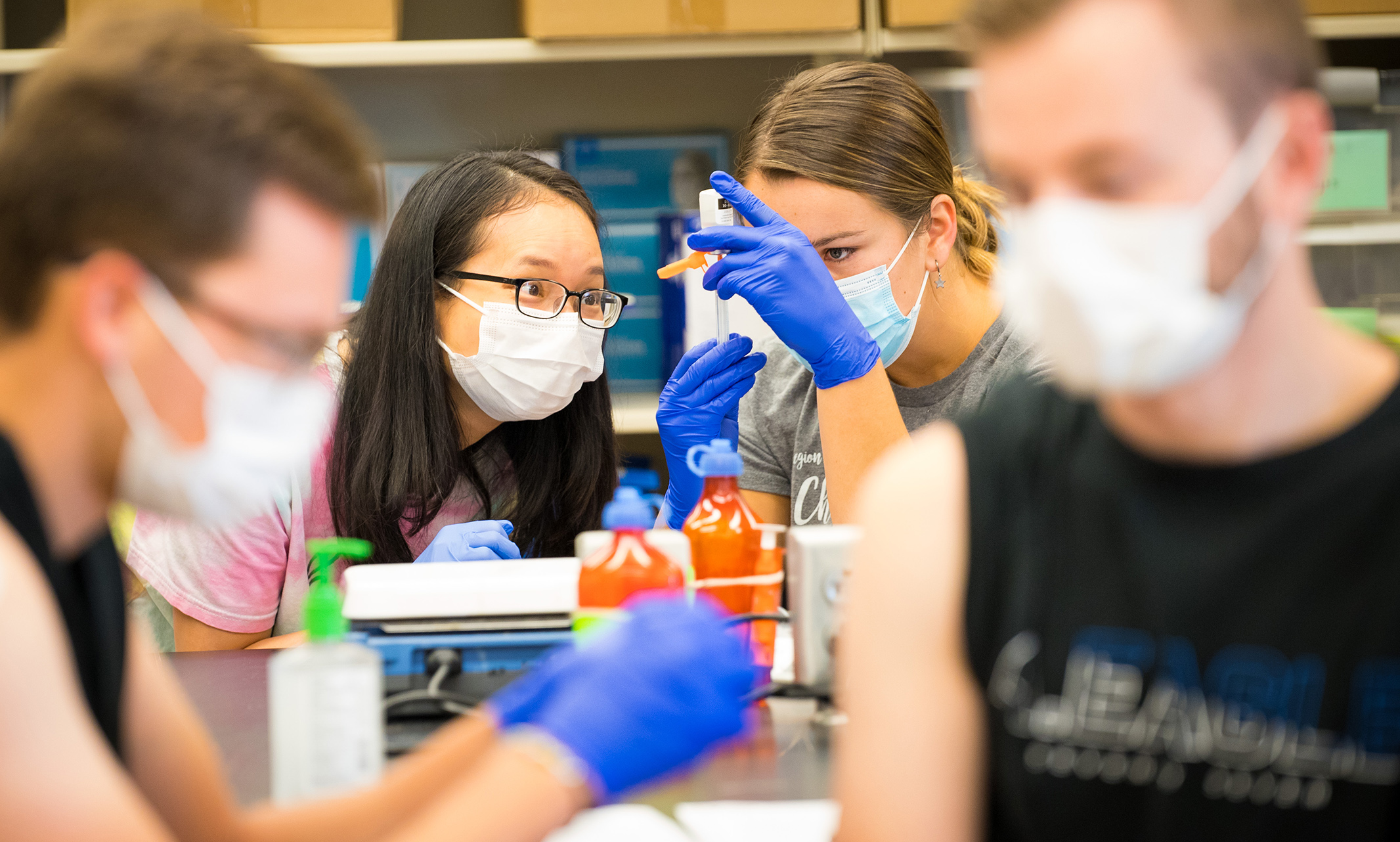
Immunization training will allow student phamacists additional opportunities to help meet public health needs
Jessica Thomas, a second-year UMKC School of Pharmacy student, braced herself as her classmate, Sheel Patel, gently plunged a syringe into her arm.
“Wow, that didn’t hurt whatsoever,” Thomas exclaimed.
Thomas and Patel are two of the more than 180 first- and second-year students across UMKC’s three pharmacy school campuses in Kansas City, Columbia and Springfield who participated in an all-day training the week before classes started and then two days of immunization injection training during the first week of the school year.
The training has been part of the School of Pharmacy’s curriculum for more than a decade. Until this year, however, it took place as students transitioned from their second to third years of the program, just prior to beginning their second introductory clinical experiences.
Now, all UMKC student pharmacists will get the training at the start of their first year in pharmacy school.
Cameron Lindsey, chair of the school’s Division of Pharmacy Practice and Administration, said the school moved the immunization training to the beginning of the curriculum in order to give students more opportunities to help with public health needs such as administering COVID vaccines as well as other necessary vaccines.
“Now they’ll have that skill before they go out on their first (clinical) experience,” Lindsey said. “We look at this as an opportunity for our students to learn a skill, practice it and be able to help the pharmacists, and actually, the whole health care system.”
Thomas and Patel said they’ll see an immediate benefit. Thomas currently works in the pharmacy at University Health-Truman Medical Center. Patel works at a local Walmart pharmacy. Under the previous schedule, they would have received the immunization training next spring. Now all UMKC pharmacy students will have the training and be certified immunizers as they start pharmacy school.
“I’m really excited,” Thomas said. “Working in retail pharmacy, you can’t have enough people who give immunizations. I’ve been asked several times, ‘Can you do them? We need someone to do them.’ There’s a need out there and I’m glad that we can help meet it. I’m glad we don’t have to wait another year to get the training.”
Patel admitted being a little nervous about sticking a needle in someone’s arm. After the first practice injection, the nerves subsided. Now, he says he’s ready to take on added responsibilities at work.
“When we work in retail (and administer vaccines under pharmacist supervision), it gives the pharmacists more time to do other things than give shots all day long, and that helps them out,” Patel said.
Vaccination training is one of the first patient-care experiences in which many student pharmacists participate. The hope is that by providing that training before they start their first year of pharmacy school, students will feel more engaged with patient care early in their education.
“Those first semesters are very science heavy, and now our students are going to be right in the midst of doing something that’s hands-on, that can be applied to patient care, and they can be more involved with patients early on,” Lindsey said.
First-year student Madison Crawford said she wasn’t expecting to learn immunization skills so quickly when she enrolled in pharmacy school.
“I’m really excited to be able to do it so soon,” she said. “I feel like I’ll be able to get more involved in the community by giving vaccinations early on.”
Aug 30, 2022
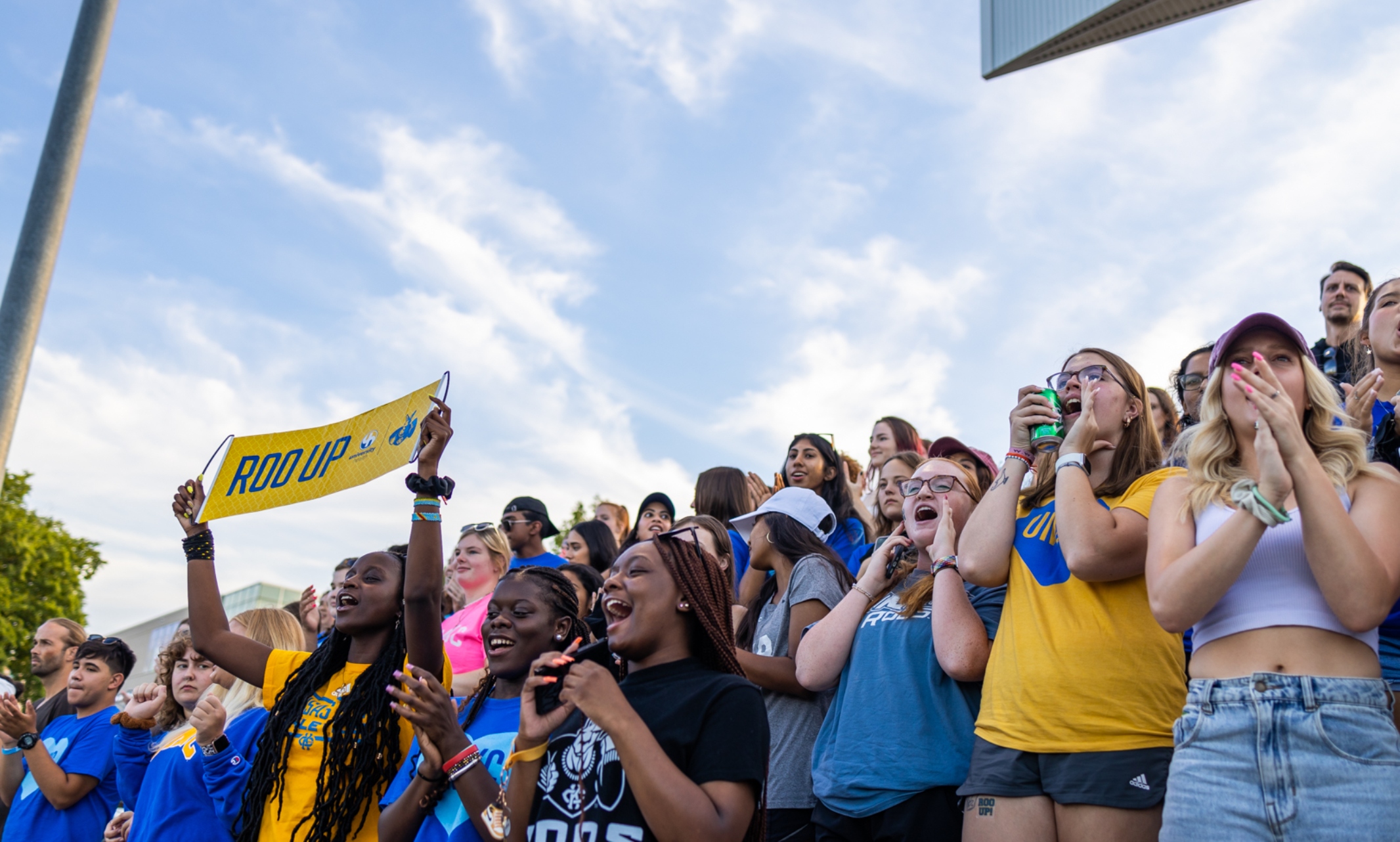
Convocation, Roo Welcome and soccer headlined the first week of the semester
The University of Missouri-Kansas City welcomed new and returning students, faculty and staff with a series of special events and activities. From move-in to the first Roo Blue Friday, here’s a look at highlights from the first week on campus.
A student pushes a bin during move in at Oak Street Residence Hall
Students move in to the Hospital Hill Apartments
Chancellor Agrawal was there to greet families and lend a hand as students moved in
Late Night with the Greeks is one of the first events of the weekend
The annual tradition is a chance for students to learn about Greek Life organizations at UMKC
UMKC is home to 13 Greek letter organizations
The event has a variety of activities and food vendors
The Paint a Pig event introduces students to services available through the Financial Wellness Center
Convocation was held on Saturday afternoon
New students learned UMKC traditions such as the fight song and the alma mater
Following Convocation, students attended the Welcome Block Party
Students enjoyed food, games and caricatures
The men's soccer team won the Battle of Rockhill 2-1
The exhibition match is a tradition where the Roos face off against neighboring Rockhurst University
Donuts with the Dean is an opportunity for students to get to know Dean of Students Michele Smith
Students used color powder to decorate shirts ahead of the women's soccer match
Union Fest is an opportunity for students to learn about campus resources and activities
The first day of class was Aug. 22
Pharmacy students learned about opportunities at the student organization fair
Students don their blue on Roo Blue Friday
Aug 26, 2022
Virtual event offers CLE credit, or free for non-credit attendees
The UMKC School of Law and Athletics Department are co-sponsoring “The Arc of Race in Professional & Collegiate Sports,” a two-day virtual symposium featuring national and local experts.
Topics ranging from the hiring of coaches of color, to name-image-likeness deals, to race norming in the NFL’s brain-injury lawsuit’s claims settlement process will be covered during the Sept. 9-10 event.
The symposium is co-chaired by Brandon Martin, Ed.D., UMKC Vice Chancellor and Director of Athletics; and Prof. Kenneth D. Ferguson, UMKC School of Law. Featured speakers will include:
Keith Harrison, Ed.D., chief academic officer, DeVos Sport Business Management Graduate Program, University of Central Florida
Ann McKee, M.D., neuropathologist and director of the Brain Banks for Boston University Alzheimer’s Disease Center, Center for the Study of Traumatic Encephalopathy and Framingham Heart Study
Jennifer Hunter, J.D., senior director of Diversity, Equity and Inclusion for the Portland Trail Blazers
Jannette Berkley-Patton, Ph.D. professor in the UMKC School of Medicine and director, UMKC Health Equity Institute
Tracie Canada, Ph.D. assistant professor of anthropology, Duke University
Vincent Key, head team physician for the Kansas City Royals and president of the Major League Baseball Team Physicians Association
Meg Gibson, M.D., head team physician, UMKC Athletics
Mikah Thompson, J.D., associate dean for Diversity, Equity, and Inclusion, UMKC School of Law
Deron Cherry, retired Kansas City Chief, president of United Beverage Company and a commissioner for the Jackson County Sports Authority
The symposium offers up to 12.6 hours Elimination of Bias Missouri Continuing Legal Education credit. Fee is $100 for those seeking CLE credits; attendance is free to all others. To register, go to sportslawsymposium.org.
The opening session on Sept. 9 will focus on “Race Norming and Sports Concussion Litigation including NFL Concussion Settlement and Claims Process.” The initial settlement by the NFL for Chronic Traumatic Encephalopathy (CTE) injuries implemented a formula (i.e., race-norming) that discriminated against Black retired players. In effect, Black players were treated as having worse cognitive functioning than white players (in their pre-morbid stage). As a result, if a Black player and a white player received the exact same score on a battery of neurocognitive tests, the Black player was automatically assumed to have suffered less impairment. Two members of the panel for that session, attorneys J.R. Wyatt and Cy Smith, successfully sued the NFL to remove race-norming from the settlement.
Other discussion topics will include:
Will Race and Gender Affect which Student Athletes Profit from their Name, Image and Likeness?
The Intersection of Race and Gender in Professional Sports Hiring
The Intersection of Race and Gender in Mental Health of Professional and Collegiate Athletes
Race Norming in Medical Treatment and Clinical Diagnostics and its Impacts
Aug 25, 2022
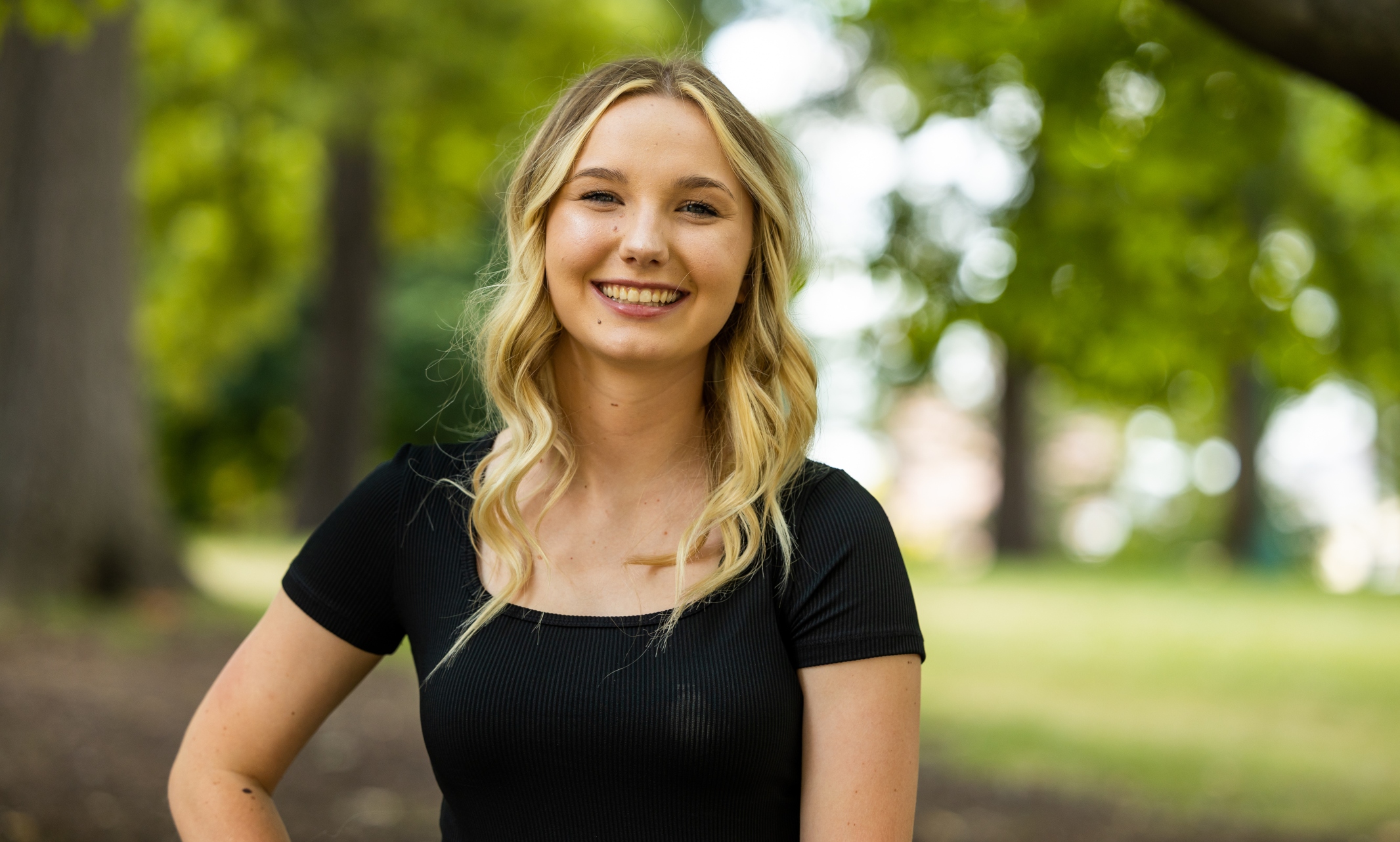
Awardees from southwest Missouri demonstrate academic excellence and financial need
Jose Dominguez (B.A.’88, M.D. ’89) remembers that his father, Emilio Dominguez, M.D., wanted his sons to have careers in medicine as well.
He and his younger brother Victor (B.A. ’89, M.D. ’90) saw the value in their father’s dream for them and graduated from the UMKC School of Medicine. When Victor died of cancer in 1997, a scholarship was established in his name.
“Victor had such a strong work ethic,” Jose says. “He was in the Missouri National Guard and the Army Reserves.”
A natural leader, Victor established the Bi Theta Pi fraternity at UMKC while he worked toward his degree in medicine. He was a member of the Alpha Omega Alpha Medical Honor Society and served as chief resident at the University of Texas Medical Branch in Galveston, Texas. At the time of his death, his friend and fraternity brother, Jim Burke (B.A. ’88, M.D. ’89) recognized Victor for his character.
“I remember him as one of the best friends I have ever had,” Burke said. “He was accepting [of people] at their best and their worst. His loyalty to his friends and family are something we should aspire to.”
In 2007 Carlotta and Emilio Dominguez made the initial gift and pledge to endow the scholarship established in Victor’s memory, which allows students to pursue their dream of earning their degree in medicine at UMKC. Students from southwest Missouri who demonstrate both academic excellence and financial need are eligible to apply. They have made additional donations, as has Jose.
Macy Baugh (B.A./M.D. ‘27), the current recipient of the Victor E. Dominguez, M.D. Memorial Scholarship, knew she wanted a career in the health care field from a young age. It wasn’t until the outbreak of the COVID-19 pandemic, however, that she was certain that she wanted to be a physician.
“Being awarded the scholarship motivates me to be the best student I can be and eventually the best physician I can be." - Macy Baugh
“I watched as doctors worked tirelessly on the front lines and risked their own health to care for their communities,” she says. “People come to see doctors in their most vulnerable times. I want to be there for people during their greatest time of need.”
Baugh chose the UMKC six-year medicine program to help fulfill her dream.
“Once I decided to be a doctor, I wanted to achieve this goal as soon as possible. Also, I loved that UMKC allows us exposure to the field so early in our education through hands-on clinical experience in our docent system.”
Baugh wants to stay close to home once she graduates and hopes to match to a residency program in Missouri. She’s grateful for the Victor E. Dominguez, M.D. Scholarship for making her dreams possible.
“Being awarded the scholarship motivates me to be the best student I can be and eventually the best physician I can be. The cost of attending this program was a very important factor in my decision to attend UMKC, and this scholarship helped reduce the financial burden. Instead of worrying about the amount of debt I am accruing, I am able to focus on my studies.”
She is grateful to Emilio Dominguez for establishing the scholarship in Victor’s honor.
“I sincerely thank him for his generosity and willingness to help students achieve their goals. I hope that one day I am able to help students in the way that he has helped me. Thanks to him, I am one step closer to being a doctor.”
Aug 23, 2022
Office hours, coffee breaks, campus strolls are all ways to forge valuable connections with professors
UMKC faculty have a great deal more to offer students beyond classroom lectures. Things like mentoring, career networking and guidance, research partnerships, internships and deeper explorations of subject matter outside of class time.
At UMKC, faculty are particularly eager and willing to forge helpful relationships with students outside the classroom, including undergraduates.
“It’s part of the culture here,” said Alexis Petri, director of faculty support at the UMKC Center for the Advancement of Faculty Excellence (CAFE). “The benefits to students from these relationships can be profound.”
Talking to faculty outside of class helps students discover opportunities, but there are deeper benefits as well, Petri said.
“It also leads to a sense of belonging, of feeling connected to a major, and to a community that has made that discipline their life’s work,” she said.
“Undergraduate research, internships, all of the experiential learning opportunities that make a discipline come alive in a concrete way – that’s all faculty-driven,” she continued. “Faculty are also the people who will write letters of recommendation for you, and be a reference in your initial job search. And the better they know you, the more good things they can say.”
Some faculty are more prone than others to project that willingness, however. Even for those who advertise it openly, though, it’s up to the student to take the initial step.
“The best way to start is with office hours,” Petri said. “Faculty are required to have office hours and to post them on the syllabus.” If a student feels a need to break the ice before that, “just go up and say ‘hi’ after class.”
“Undergraduate research, internships, all of the experiential learning opportunities that make a discipline come alive in a concrete way – that’s all faculty-driven.”
– Alexis Petri
Petri recalled being introverted as an undergraduate, and forging a plan to overcome that tendency.
“I had to force myself, but I would make a point of saying something in the very first class, be recognized, and get myself in the habit,” she said. “I had a system I tried to follow. Talk in the first three classes, and go to office hours within the first month. There were times I didn’t do it, and I wasn’t as successful in those classes.”
Students from underrepresented backgrounds can sometimes find it difficult to initiate conversations with faculty who don’t look like them. Petri suggests starting off with a visit to the Multicultural Student Affairs office, where the staff can help students find a comfort level and a sense of community at UMKC as a first step in the process.
“Then, ask yourself, ‘Who do I feel welcomed by?’ A lot of our faculty work hard at giving cues of openness, and creating broad classroom participation,” Petri said. “Look for that, and make that faculty member your first experience in reaching out.”
As for her advice to faculty through CAFE, Petri said the most important ingredient can be organization.
“Students who are anxious or nervous tend to follow the rules, so a really well-organized syllabus makes those students feel more confident,” she said. “Being really organized shows students you care.”
Aug 19, 2022
Kansas City Business Journal reports new Roo Nation Award and Roo Advantage Scholarships.
The Roo Nation Award gives students outside Missouri and Kansas an in-state tuition rate. Students must have at least at 3.0 high school GPA and be a U.S. citizen enrolled at UMKC. Roo Advantage Scholarship gives a full ride to Missouri and Kansas residents that are eligible for Pell Grants.
Aug 18, 2022

Roo Advantage Scholarship ensures free college education for the students who need it most while Roo Nation Award offers in-state tuition scholarships
Financial aid assistance plays a big role in helping many students decide where to attend college and UMKC just unveiled a new scholarship lineup aimed at making college even more affordable.
The Roo Advantage Scholarship makes college free for full-time Missouri and Kansas first-time and transfer students who are Pell Grant-eligible. The scholarship covers any remaining full-time tuition and fees not covered by other student scholarships or grants.
The new Roo Nation Award extends in-state tuition scholarships to non-Missouri residents.
Roo Advantage is available beginning now, Fall 2022, while Roo Nation will begin Fall 2023. Both scholarships are renewable yearly.
“We are committed to making higher education affordable to the Kansas City community, all of Missouri and Kansas and beyond,” said Jenny Lundgren, Ph.D., provost and executive vice chancellor. “These programs remove financial barriers that stand in the way of people earning the credentials needed to launch a professional career.”
Roo Advantage
To be eligible for Roo Advantage, students must have completed a FAFSA and been declared eligible for a Pell Grant. Transfer students must have earned an associate degree prior to transferring to UMKC.
Madison Atkins, a junior at UMKC studying education, started her college career at a community college to save money. She said the Roo Advantage Scholarship relieved her of “a huge burden.”
“It was a no-brainer about accepting it because I’m basically getting college for free,” Atkins said. “I did community college to save money, and my family planned to take out loans for UMKC. So when this scholarship came along, it felt like a weight had been lifted.”
Atkins said she and her family feel extremely grateful for the opportunities the scholarship will provide for her during her time at UMKC.
“This really opens the door for me to think about things like continuing school and getting my master’s degree. I was really worried about the student loans from my bachelor’s, and so I had planned to graduate and then work a couple of years before coming back. Now I can work right through,” Atkins said. “That just wouldn’t have been an option for me before.”
Roo Nation Award
To be eligible for the Roo Nation Award, students must be a U.S. citizen and a newly enrolled nonresident undergraduate student with a high school core or transfer GPA of at least a 3.0. Medical, Pharmacy, Dentistry and Law students are not eligible.
SGA President Tim Nguyen says scholarships can make or break the student experience – and he applauded UMKC’s ongoing efforts to make sure college can be affordable for students. For Nguyen (B.S., B.A. ’22), scholarships at UMKC helped ensure he could focus completely on his education as an undergrad and even to pursue a graduate degree.
“My scholarship at UMKC gave me countless opportunities that I could never possibly imagine. Or never thought I would be able to come across,” Nguyen said. “I had flexibility, where I didn’t have to work two or three other jobs, I could invest myself into giving back through different community service opportunities, different internships and be someone for my UMKC family, not just someone in it.”
Learn More About Roo Advantage and Roo Nation Scholarships
Aug 17, 2022
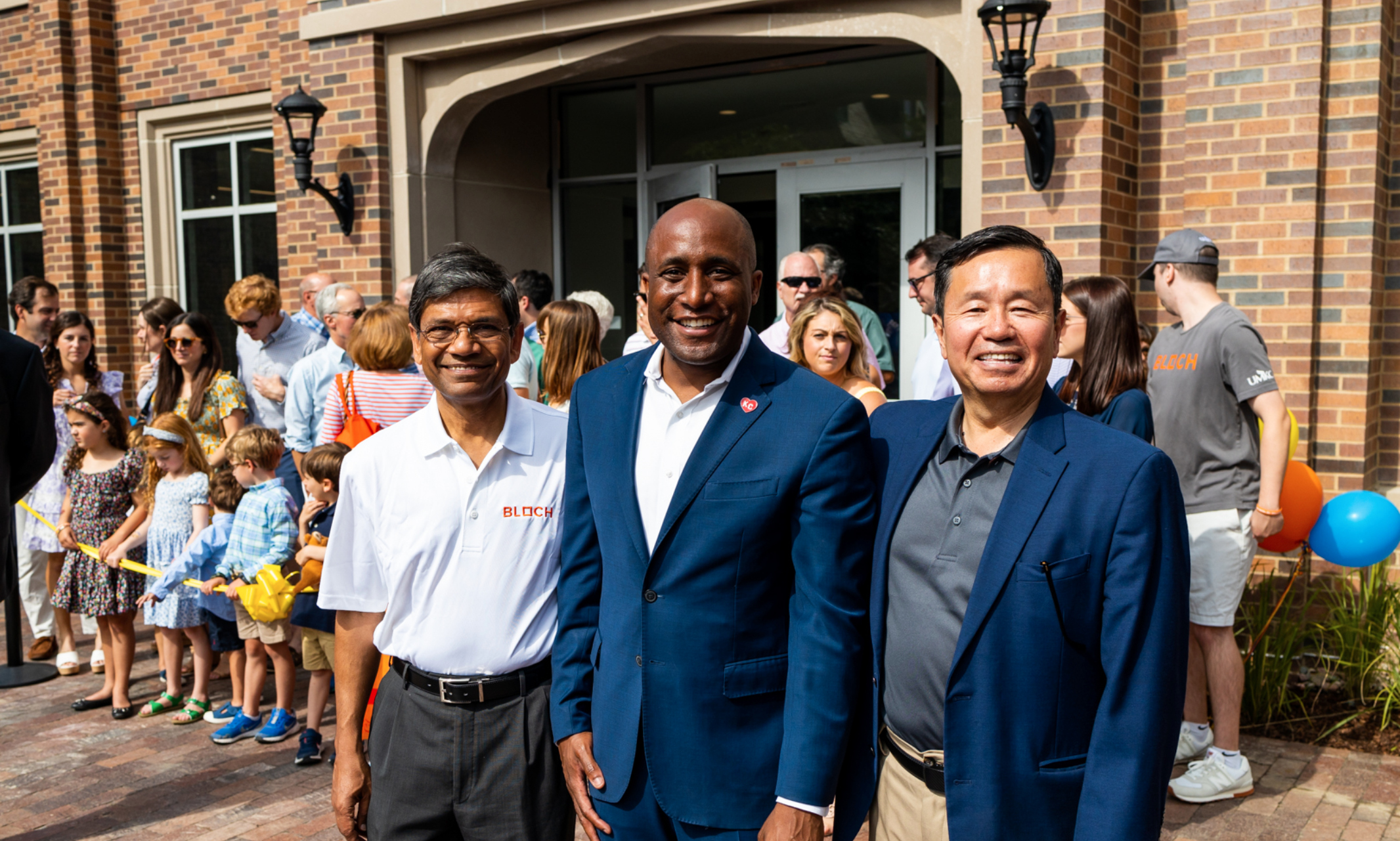
From academic realignment to new student-focused partnerships and more, it's been a busy summer on our campuses
Welcome to a new school year at UMKC! Campus may have seemed quiet the past three months, but major changes are in store. Here’s a look at what’s new around campus as well as some big news you may have missed over the summer:
New Homes and New Offices
Two key Academic Support and Mentoring departments are moving to Miller Nichols Library beginning in the fall semester to take advantage of space that is both larger and quieter than their former location.
Supplemental Instruction and UMKC Tutoring will now be located on the fourth floor of Miller Nichols Library, relocating from the Atterbury Student Success Center.
RooLearning+, an easy-to-use app already used for Supplemental Instruction scheduling, will also be the best way to schedule Tutoring and Writing Studio appointments and logging in for drop-ins. Access RooLearning+ by visiting the webpage at umkc.tedu.app/student or downloading the app from the Apple or Google Play app stores and signing in with your SSO.
Two new offices will be opening in the Student Success Center this fall: the headquarters of the new Professional Career Escalators program and an on-campus office for KC Scholars. Career Services will also have expanded space in the ASSC.
Music To Your Ears
The recital hall in Grant Hall has been renovated to make it into a high-quality venue for music performances, including new acoustic treatments and new sound equipment. This is part of a $4 million project to renovate spaces within White Hall and Grant Hall, including arts practice and teaching areas most needed by our Conservatory students and faculty. The project is focused on hearing safety, updated technology, increased usable space and ADA compliance.
UMKC Forward Launches Academic Realignment
The UMKC Forward academic realignment, designed to optimize resources and better serve UMKC students and community, began July 1. Significant progress on hiring and program development have laid the groundwork for collaborative research and student success.
In 2020, during the early days of the COVID-19 pandemic, Chancellor Mauli Agrawal announced the formation of UMKC Forward, a collaboration of faculty, staff and students across the university that would develop a new vision for the university’s future. Part of that vision was a realignment of the academic units at UMKC in order to optimize the strengths of the university and the opportunities for students’ career achievement.
The realignment created three new schools: the School of Education, Social Work and Psychological Sciences; the School of Humanities and Social Sciences; and the School of Science and Engineering.
Read More
$100 Million Project Planned for Health Sciences District
We are poised to begin work on a new interprofessional health sciences building in the UMKC Health Sciences District, housing new, state-of-the-art dental teaching clinics and expanded medical school teaching facilities.
The multi-story, $100 million project also will serve as a home for the university’s Data Science and Analytics Innovation Center and Biomedical Engineering program. This project will take the Health Sciences District to the next level, accelerating health care access and equity for the community and sparking development to turn the campus into a regional draw, igniting entrepreneurship and economic growth for the city and region.
Read More
University Partners with Boys & Girls Clubs
UMKC and the Boys & Girls Clubs of Greater Kansas City announced a new partnership in June that will extend scholarship opportunities to thousands of Kansas City students. The agreement creates the new UMKC Boys & Girls Clubs of Greater Kansas City Scholarship, which grants $1,000 in aid to students who are graduating from a Boys & Girls club program. In addition to scholarship funds, the partnership will also provide an on-campus introduction to campus and college life during the spring or summer prior to students’ freshman year. Once on campus, UMKC will provide students with programs to help connect them to peer mentors who will help navigate and support them throughout their college experience.
Read More
KC Celebrates Bloch Heritage Hall Reopening
The Henry W. Bloch School of Management welcomed alumni, students and community members to the newly remodeled Bloch Heritage Hall July 30 to celebrate the reopening of the building and the 100th anniversary of the birth of the school’s namesake.
“Henry Bloch, and the community leaders who came before him, created a heritage of investment in higher education and a dedication to innovation,” Chancellor Mauli Agrawal said. “Just as they joined together to support the university more than 90 years ago, UMKC has again witnessed the generosity of donors who value the importance of maintaining excellent educational opportunities close to home.”
The remodeling creates a vibrant student services hub, where students can easily connect to advisors, tutors, career resources and clubs. Classrooms now feature state-of-the-art technology and room design to provide flexibility for optimum virtual-class attendance. These upgrades will better serve students with work and childcare obligations, as well as travel schedules.
Read More
New Faces Among Leadership
Please join us in welcoming our new vice chancellor for diversity and inclusion and two new deans to campus.
J. Camille Hall, Ph.D., LCSW, has been appointed as the new vice chancellor for diversity and inclusion at UMKC. She comes to UMKC from the University of Tennessee-Knoxville, where she has served as a tenured professor and associate dean for equity and inclusion in the College of Social Work. Her research focuses on risk and resilience among Black Americans and multicultural competence.
Tamara L. Falicov, Ph.D., will be the inaugural dean of the new UMKC School of Humanities and Social Sciences. She brings to the job a history of interdisciplinary scholarship and a strong demonstrated commitment to student success and to diversity, equity and inclusion.
The new dean of the UMKC Conservatory, Courtney Crappell, DMA, comes from an arts leadership position at an urban-serving university, where he was deeply engaged with the local community and had experience collaborating across disciplines.
UMKC Hosts Area Employers for Talent Summit
Connecting with this generation of students and young professionals may require thinking outside of the box. The KC Early Talent Summit hosted hiring professionals from more than 90 local companies and organizations to discuss the opportunities and changing landscape when it comes to hiring and working with young professionals.
Topics included diversity, equity and inclusion; recruitment and retention, building a recognizable brand on campus and alternatives to traditional internships.
Read More
Aug 12, 2022
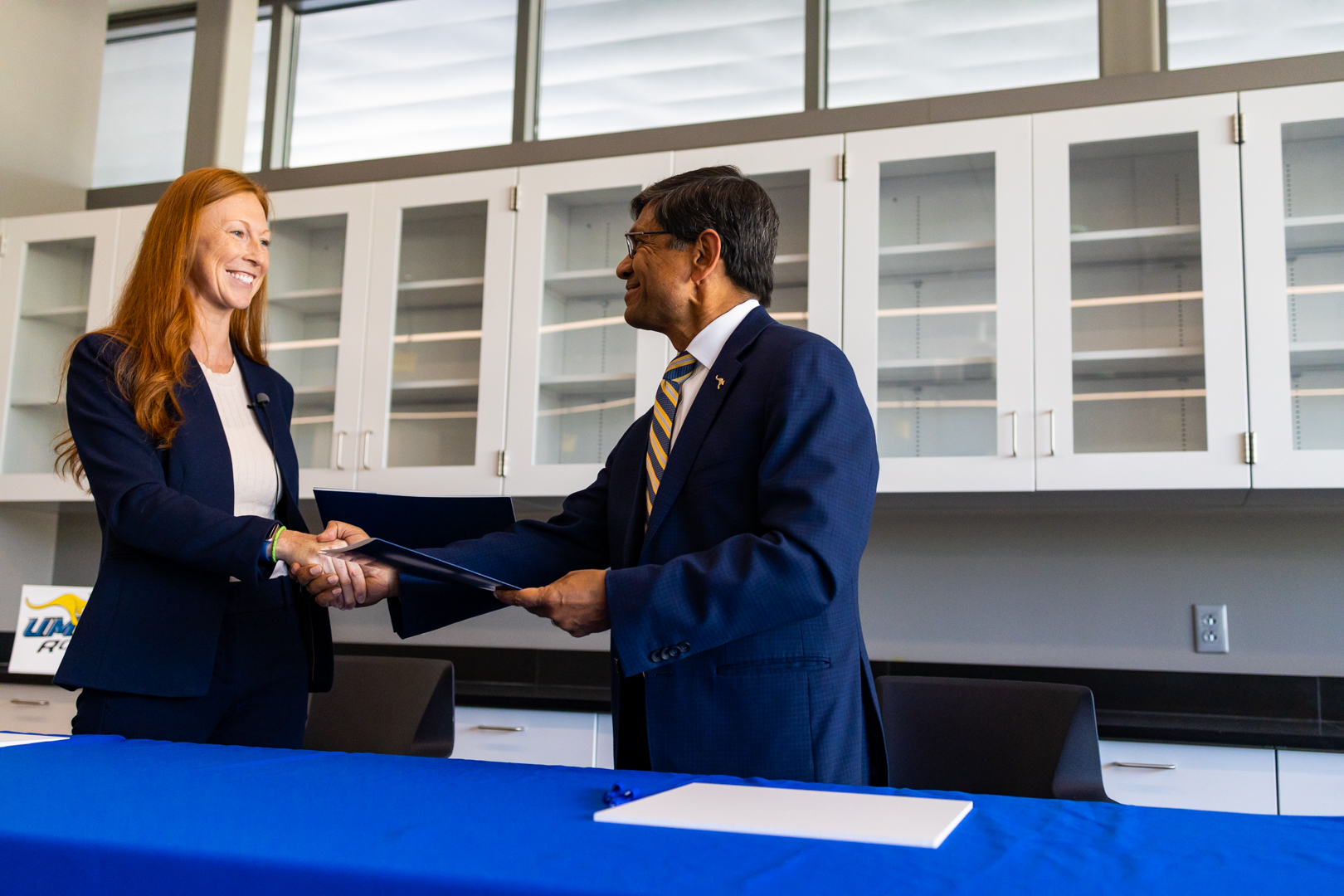
Partnership will include joint research projects, opportunities for EPA colleagues to participate in teaching and mentoring and internship opportun...
The University of Missouri-Kansas City and Environmental Protection Agency Region 7 have entered a partnership to prepare students for future careers and drive research in human and environmental health.
The two signed a Memorandum of Understanding, approved by the University of Missouri System Board of Curators. Under the MOU, the two will conduct joint research projects, UMKC will offer opportunities for EPA staff to participate in teaching and student mentorship and students will have opportunities for internships and career development.
Chancellor Mauli Agrawal said the mutually beneficial partnership will allow the EPA to participate in classroom workshops and career fairs while students will benefit from opportunities such as internships and training, employment and mentorship opportunities.
“We are excited to launch this partnership and look forward to the opportunities that will provide mutual advantages to both our organizations,” Agrawal said. “Research in science, technology, engineering, math and health science is one of our top priorities. It plays an important role in the education of our students, and it drives advances in partnerships, knowledge and technology that benefit our communities – whether they are local or global.”
The partnership was led by alumna Megan McCollister (J.D. ’11), who was appointed Regional Administrator for EPA Region 7 by President Biden earlier this year. McCollister said her time at UMKC was “life changing.”
“My experiences here laid the groundwork for the work that I now do at the EPA. I will always be grateful for the opportunity that UMKC gave me to make a difference,” McCollister said. “I know firsthand how well UMKC develops students into professionals who make impactful decisions, not only here in the region, but also across the world. I’m so excited for what’s next.”
Aug 11, 2022
Latest appointee to Stripp Professorship spent 13 years on Kansas Court of Appeals
Steve Leben has been named the Douglas R. Stripp Missouri Distinguished Professor of Law at the University of Missouri-Kansas City.
Leben joined the UMKC School of Law faculty in 2020 after 27 years as a Kansas judge, the last 13 as a member of the Kansas Court of Appeals. It is rare for an appeals court judge to move to a university faculty position.
“I’ve seen in the past two years the great training we give our students, and I’m glad to fully join UMKC’s well-recognized advocacy program,” Leben said.
Steve Leben
Advocacy—essentially the art and science of persuasion—takes many forms. UMKC School of Law has long had a strong reputation in both trial and appellate advocacy education. The school’s advocacy program is A-rated by National Jurist magazine, and the school is ranked 31st in the country for advocacy by U.S. News and World Report. At UMKC, Prof. L. Michaelle Tobin leads the trial court advocacy program. Patrick Brayer, a 33-year retired veteran of the Missouri State Public Defender System, serves as faculty advocacy fellow and teaches both trial and appellate practice courses.
Leben brings both expertise and scholarship to elevate the advocacy program. He is a nationally recognized expert on procedural justice, and he has trained judges around the United States on how to improve perceptions of fairness in court proceedings. The National Center for State Courts gave him its highest award for a judge, the Rehnquist Award for Judicial Excellence, in 2014 in recognition of his work on procedural-justice issues. Leben is an elected member of the American Law Institute, an officer of the American Bar Association Judicial Division’s Appellate Judges Conference and past president of the American Judges Association.
In his role as the Douglas Stripp Professor, Leben said he would focus primarily on enhancing the school’s appellate advocacy program. “I want to bring more appellate judges in from around the country to participate in our competitions and speak to our students,” he said. In addition to appellate advocacy, Leben teaches another important form of advocacy in his Legislation course, in which students learn about public policy advocacy and the legislative process.
The Douglas Stripp Professorship was created and funded by Bebe and R. Crosby Kemper through the R. Crosby Kemper Charitable Trust and Foundation. It is named for Bebe Kemper’s father, a lifelong Kansas City resident and internationally known trial lawyer, who practiced law in Kansas City for more than half a century until his death in 1983.
Stripp worked alongside Charles Evans Whittaker in Kansas City before Whittaker was appointed to the U.S. Supreme Court. Stripp’s passion was mentoring young attorneys in the art of persuasion and advocacy, and the Stripp professorship has carried on his legacy.
Aug 11, 2022
Fox 4 News reported on the UMKC working arrangement with the Environmental Protection Agency that centers on UMKC School of Science and Engineering.
A promising new partnership could result in new opportunities for students at the University of Missouri-Kansas City.
UMKC unveiled an agreement with the Environmental Protection Agency, a working arrangement that centers on UMKC’s school of engineering and research. Featured on Fox 4 News.
Aug 11, 2022
The Urban Music Scene reviews "Back Home in Kansas City" due out October 7 on Smoke Sessions Records
Bobby Watson, director of Jazz Studies at the University of Missouri-Kansas City’s Conservatory of Music & Dance, releases new album.
Aug 08, 2022
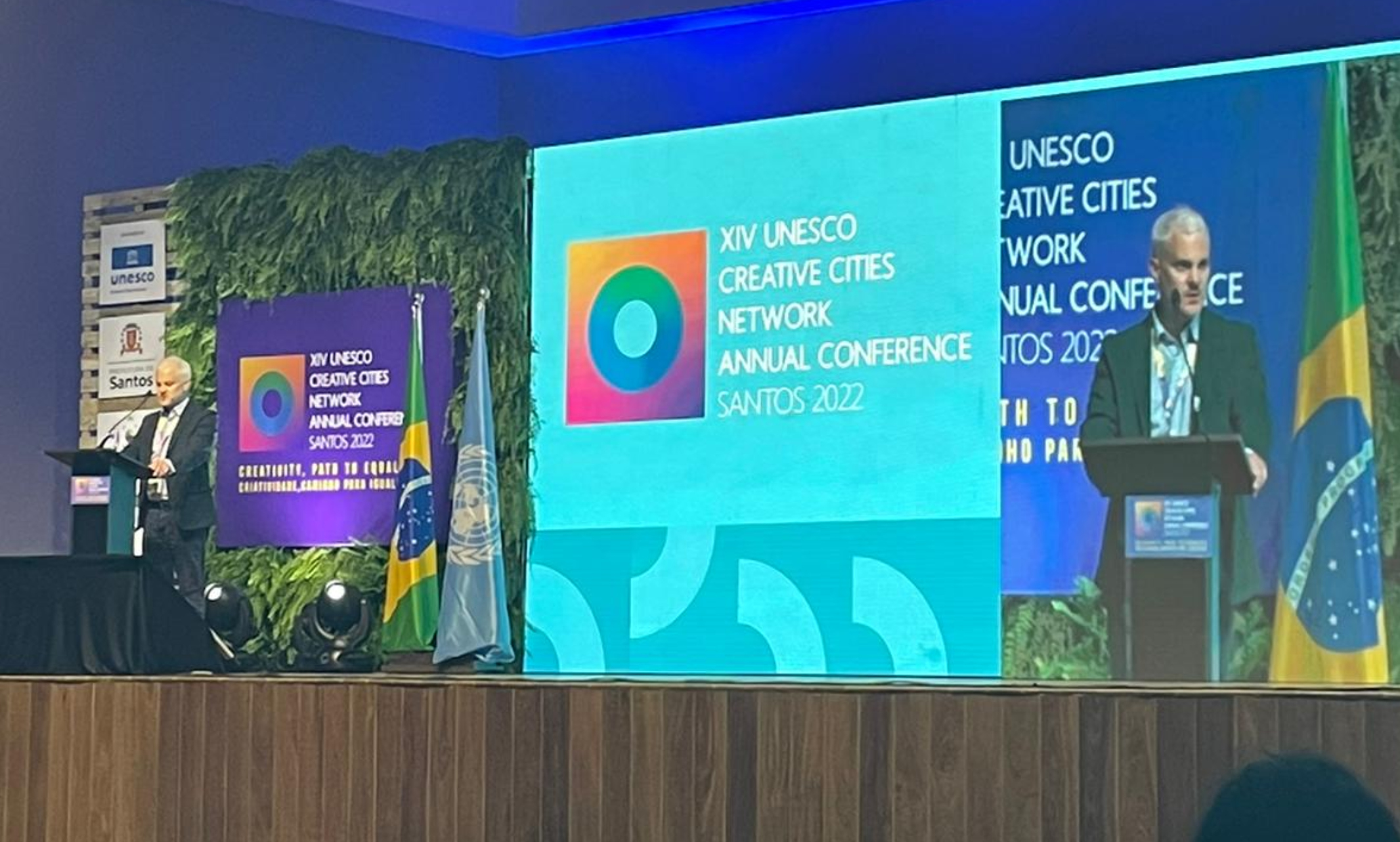
Stems from Kansas City’s designation as a UNESCO City of Music
UMKC faculty member Jacob A. Wagner, Ph.D., recently presented at the international conference of the UNESCO Creative Cities Network held in Santos, Brazil.
Wagner described his work in organizing the global Voyage of the Drum project, depicting the role of drumming across cities and cultures and the influence of the African diaspora on music cultures internationally. The United Nations Educational, Scientific and Cultural Organization (UNESCO) is the founder of the Creative Cities Network, which includes more than 250 cities around the world.
“For this year’s annual meeting, the UNESCO secretariat invited Kansas City to present the Voyage of the Drum project as a major effort, involving 18 different cities around the world, completed during the pandemic,” Wagner said.
A three-minute introduction to the project is available at this link. A full suite of individual music city videos is available here. The videos have had more than 4,500 global views, Wagner said.
The theme of the conference was “Creativity, Path to Equality.”
Wagner is an associate professor in the Department of Architecture, Urban Planning and Design (AUP+D), part of the Natural and Built Environment division of the new School of Science and Engineering.
“The project demonstrated the use of digital technology and creativity to bring cities together around a common theme, focused on music of the African diaspora, as well as the drum as a universal language,” Wagner said. The project was recognized by the UNESCO secretariat as a significant creative response to the challenges of the COVID19 pandemic.
Kansas City’s designation as a UNESCO City of Music resulted from a unique community partnership between Wagner and Anita Dixon-Brown, a cultural heritage expert and music advocate in Kansas City. In 2016, students from UMKC’s Urban Planning and Design program worked under the direction of Wagner and Dixon to produce research on Kansas City’s unique jazz and Black American musical heritage. This research provided support for Dixon’s application to the UNESCO Creative City Network.
Kansas City is the only UNESCO City of Music in the United States and one of 59 worldwide. Other U.S. cities have Creative Cities designations for Literature, Folk Art, Design, Gastronomy and other forms of cultural heritage. Each UNESCO Creative City Network member city must maintain active participation in the network through annual meetings, cooperative projects with other cities and by providing leadership on the use of creativity as a driver of sustainable urban development.
A new edition of the Voyage of the Drum is planned for next year’s annual meeting with new Creative Cities invited to participate in 2023.
Aug 04, 2022
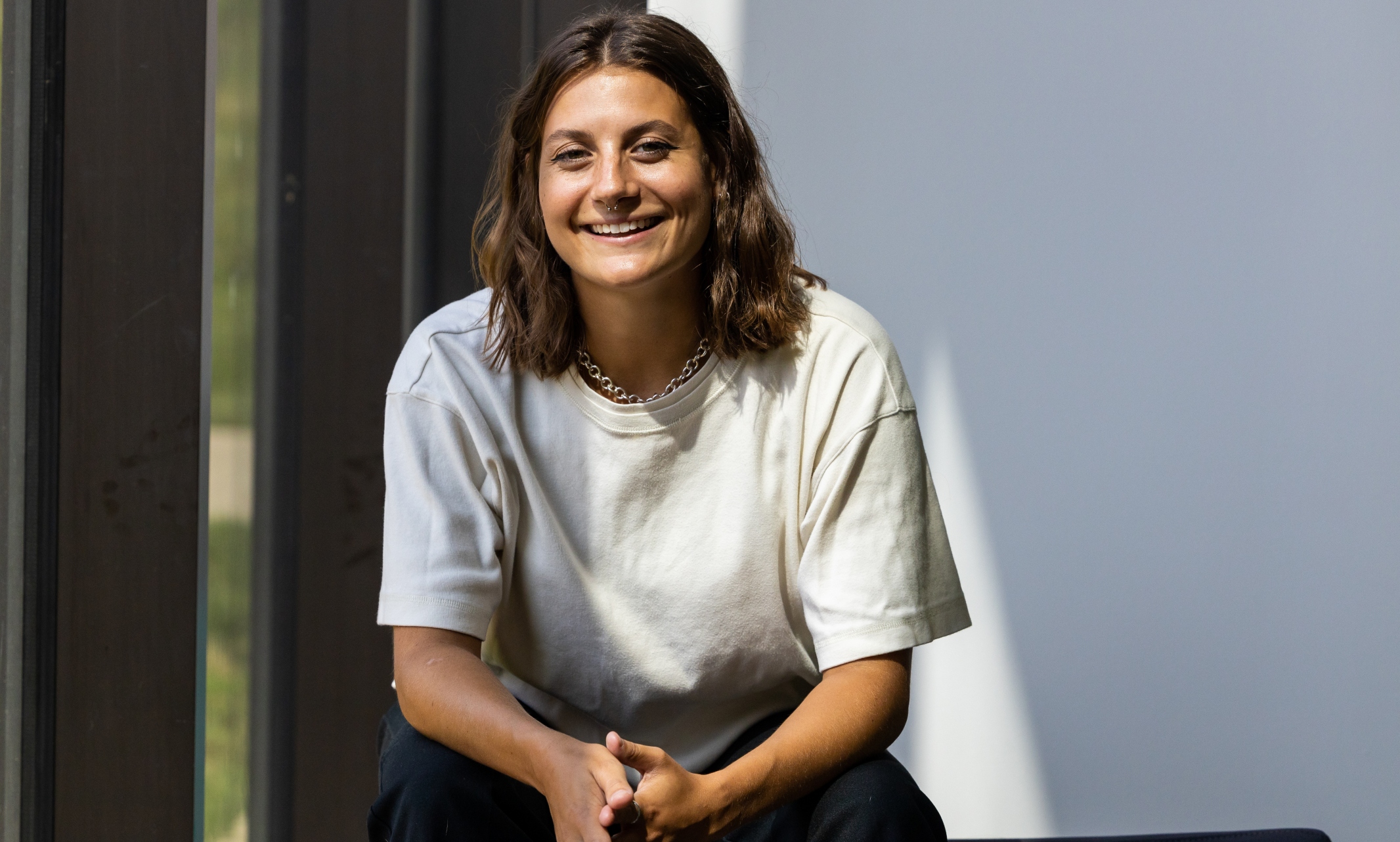
Education, urban setting are draws for graduate student
Roos don’t just dream, they do. Our students turn ideas into action every day. Get to know our people and you’ll know what UMKC is all about.
Elise Byers Graduation year: Summer 2022UMKC degree program: M.A. in Curriculum and Instruction — Emphasis in Art Education Hometown: Kansas City
Why did you choose UMKC?
I transferred to UMKC to be closer to family and friends. Also, I was attracted to UMKC's urban location and teacher education programs, as well as the many unique scholarships available to LGBTQIA+ students. Most schools say they support their students, but UMKC actually put action behind their words.
Why did you choose education as your field of study? And what led you to focus on urban education?
I've wanted to be an educator working with children since I was 14 years old. There's something intrinsically rewarding in the experience through the connections we form with our students, and in the sense of community impact education provides. I've always loved working and living in urban settings. It's truly been a privilege being so close to and engaging daily with the diverse cultures and perspectives of an urban setting.
What are the challenges of the program?
The coronavirus complicated much of the community-forming and the feelings of academic belongingness that surely would have characterized the program in previous years. I was hopeful to meet people, to attend study groups and connect with my peers. Though it saddens me to have been denied these opportunities, still I feel fortunate to have continued my education at UMKC, and during a period that for many of us surely felt intractable.
What are the benefits of the program?
The in-person classroom experience offered by the program was a major benefit. I'm also very much a hands-on, kinesthetic learner, and UMKC prioritizes placing their students in the right schools immediately to ensure they’re a good fit for this career. I came into my first year teaching feeling very confident, with no small thanks to the amount of experience and practice I’d had in KC schools during my undergraduate study.
How has your college program inspired you?
UMKC's Curriculum and Instruction program inspired me to begin educating myself on how to best serve English learners in the classroom and how to be culturally-sustaining in urban-setting schools. I learned the importance of connecting with families of students and constantly addressing my own bias. Seeing my professors in action was also a significant motivation to continue pursuing my master’s and eventually a doctorate degree in Education. Without the examples and guidance of the strong, intelligent and welcoming UMKC professors to lean on, many of them women notable in the field of research, I don’t know if I could have seen myself continuing my educational journey.
Since entering college, what have you learned about yourself?
Throughout high school I attached much of my self-worth to test scores. It's only since entering college that I gained a sense of academic ownership and the intellectual empowerment that followed my autonomy of class choice and the pursuit of my own research interests. I learned that I am intelligent, that I am worthy--unapologetically--of a place in educational settings. It has felt empowering to have built up confidence and a sense of belonging at UMKC.
What has the Women’s Council Graduate Assistance Fund support enabled you to do?
I attended the OMEP Conference in Athens, Greece where I had the honor to represent UMKC with my advisor, Dr. Ekaterina Strekalova-Hughes. We presented on Culturally Sustaining Creative Development in an Urban Project-Based and Arts-Integrated School, from my undergrad research with the UMKC Honors College.
The Women’s Council Graduate Assistance Fund enabled me to present at this conference free of financial stress, and to collaborate and confidently share my research with teachers from across the world.
What do you hope to take from your experiences at UMKC into your professional career?
I hope to maintain and build upon the relationships I’ve made with UMKC professors and peers. Relying on one another during good times and bad, knowing each of us understood the day in-and-out of being a teacher, taught me I need not look far for inspiration or motivation, or simple friendly support.
Aug 02, 2022
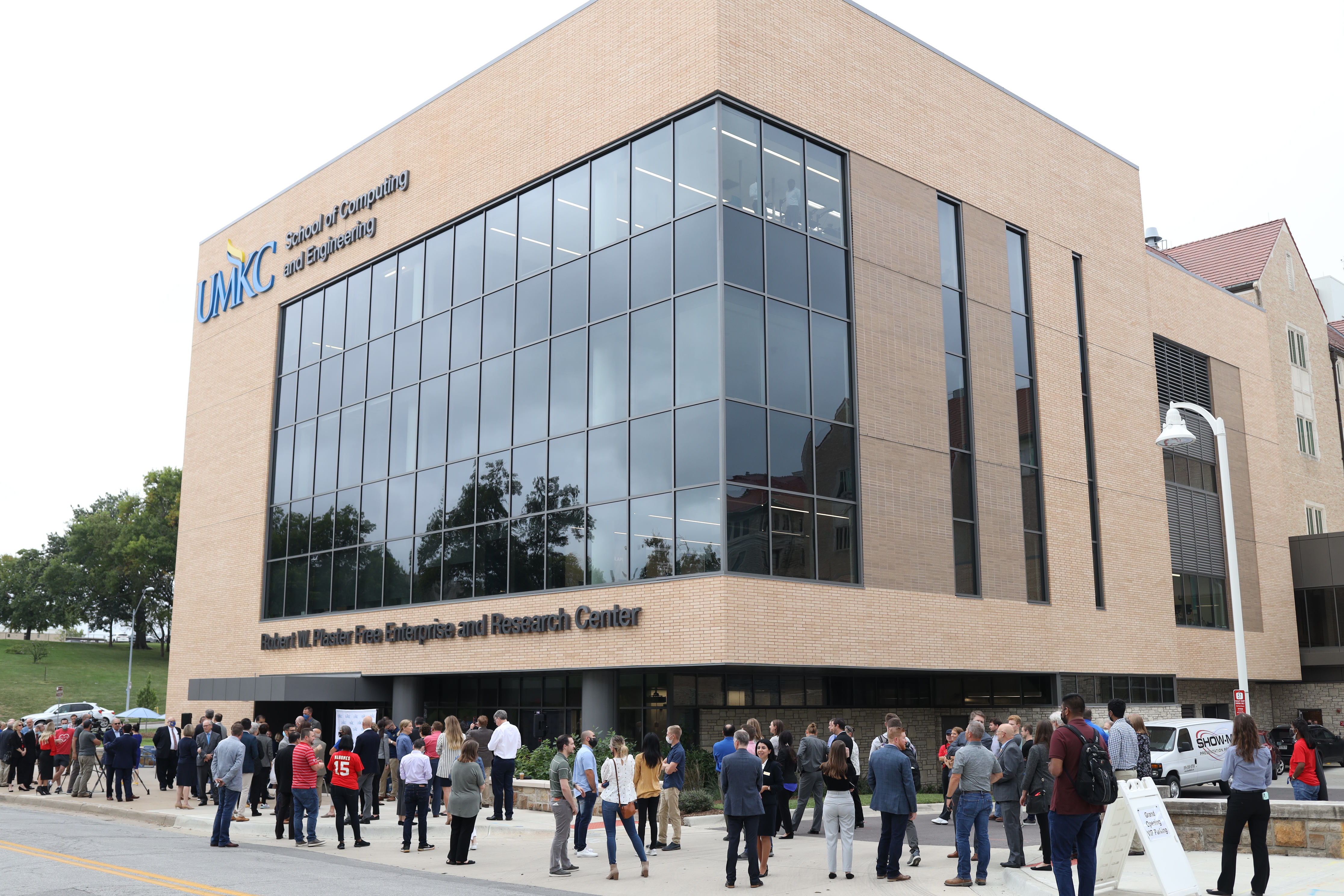
Mentoring is key piece of student’s research
Marouf Khan (MS ’13) came to UMKC to pursue his graduate degree at the School of Science and Engineering because he sought a career in the semiconductor industry and the program was a great fit. Khan had taken classes with Masud Chowdhury, Ph.D. and felt he would be an excellent doctoral advisor.
Khan was intrigued by one of the professor’s research projects. Chowdhury is working on improving the construction of transistors that are used in all computing devices. His goal is to improve speed, and to do that with as little energy as possible in order for the battery to run longer.
“If we could use our cell phones for three to four days without charging that would be ideal, but the current silicone-based conventional transistors have limitations on energy efficiency,” Chowdhury says. “So, we are exploring ideas about new materials and new technologies that can help us make the gradual transition to a new technology platform.”
Marouf Khan
Khan’s research is focused on the design of low-power-management integrated circuits (PMIC.) These are used in battery-powered devices like cell phones and applications where efficient power generation and consumption is essential.
“My work mostly involves coming up with new circuit architectures, which are compact and provide savings over existing designs – in both area and power consumption,” Khan says.
The efficiency and compactness are critical to device advancement.
“PMICs are more and more important in the expanding connected world,” Khan says. “They are operating in the low power domain that is an essential component of Internet of Things (IoT) devices that are connected to the ‘edge’ of the cloud.”
Khan says Chowdhury respects his autonomy in his research – he does not need to be involved in Khan’s day-to-day activities – but he can rely on Chowdhury for support and guidance when he needs it.
“Mentors can sometimes range between two extremes -- being too involved in a project where they drive the research, or they provide very little support to their students. Professor Chowdhury consistently strikes the right balance so that my research work is independently run by me, but he is always there to lend his knowledge, financial and emotional support when required.”
Khan thinks having a mentor is one of the most important choices a student can make.
Masud Chowdhury, Ph.D.
“The right advisor or mentor can make school a fun and enriching experience. It always helps to narrow down advisors based on your field, but it’s also smart to further the filter to include a potential advisor’s body of work and success in the field.”
The relationship is not purely academic.
“More importantly, he is also available to provide emotional support and advice at a human level to the challenges his students face beyond just academic ones,” Khan says.
He feels fortunate to have Chowdhury as a resource and ally. He notes that students should choose a mentor carefully, as they will be part of their lives for four to five years.
“The choice of mentor or advisor is the most important one a doctoral student can make. The right advisor can make graduate school a fun and enriching experience.”
Aug 01, 2022

The posthumous 100th birthday of Henry Bloch recognizes past and present achievements and anticipates future successes
The UMKC Henry W. Bloch School of Management welcomed alumni, students and community members to the newly remodeled Bloch Heritage Hall July 30 to celebrate the reopening of the building and the 100th anniversary of the birth of the school’s namesake.
“Henry Bloch, and the community leaders who came before him, created a heritage of investment in higher education and a dedication to innovation,” Chancellor Mauli Agrawal said. “Just as they joined together to support the university more than 90 years ago, UMKC has again witnessed the generosity of donors who value the importance of maintaining excellent educational opportunities close to home.”
Bloch’s children Bob Bloch, Mary Jo Brown, Tom Bloch, Liz Uhlmann and their spouses and children were on hand to celebrate, along with representatives from the Sunderland Foundation, William T. Kemper Foundation and Capital Federal Foundation. Alumni and fellow donors gathered to celebrate Henry Bloch’s legacy and the significance of the mission and success of the Bloch School.
The extended Bloch family gathered in front of the statue of Marion and Henry Bloch
Before the ribbon cutting Chancellor Agrawal recognized the importance of the contributors past and present.
“Henry and the community leaders who came before him created a heritage of investment in higher education and a dedication to innovation,” Agrawal said. “Just as they joined together to support the university years ago, UMKC has again witnessed the generosity of donors who value the importance of maintaining excellent educational opportunities close to home.”
Mun Choi, president of the University of Missouri System, said he was “blown away by the growth and development of this campus over the past few years,” thanks in large part to the generosity of donors such as the Bloch family. He also thanked Henry Bloch for focusing his philanthropy on his hometown.
“Henry knew that Kansas City, as a world-class city, needed a world-class business school,” Choi said.
Mayor Quinton Lucas announced that he would expand the city proclamation to make July 30 “Make Every Block Better Day” to recognize Henry Bloch’s focus on giving back to the community and his commitment to believing that entrepreneurship is the key to community growth and development.
“This is what Kansas City is all about, and what I have had the opportunity to learn that Henry Bloch was all about,” Lucas said. “He always believed in Kansas City as one of the great cities of the world. And thanks to him, the Bloch School is second to none among business schools in our country.”
Dean Brian Klaas underscored the importance of preserving the history and charm of the building, which was built in 1909, while bringing it into the 21st century in order to create a better experience for students, faculty and staff.
Klaas highlighted that the renovations were not cosmetic. They include a vibrant student services hub, where students can easily connect to advisors, tutors, career resources and clubs. The new configuration provides students a better way to build community within the school and promote collaborative learning.
The new configuration supports students’ experiences in building relationships, as well as making available the tools they need to empower them to graduate and launch successful careers and businesses. State-of-the-art classroom technology and room design now provide flexibility for optimum virtual-class attendance. These upgrades will better serve students with work and childcare obligations, as well as travel schedules.
Following the program, the Bloch family members, including Henry Bloch’s great grandchildren, cut the ribbon to welcome visitors in the newly renovated Bloch Heritage Hall. Fitting a birthday party, guests enjoyed yard games, face painting, live music, a scavenger hunt and cake.
More photos from the celebration:
Aug 01, 2022
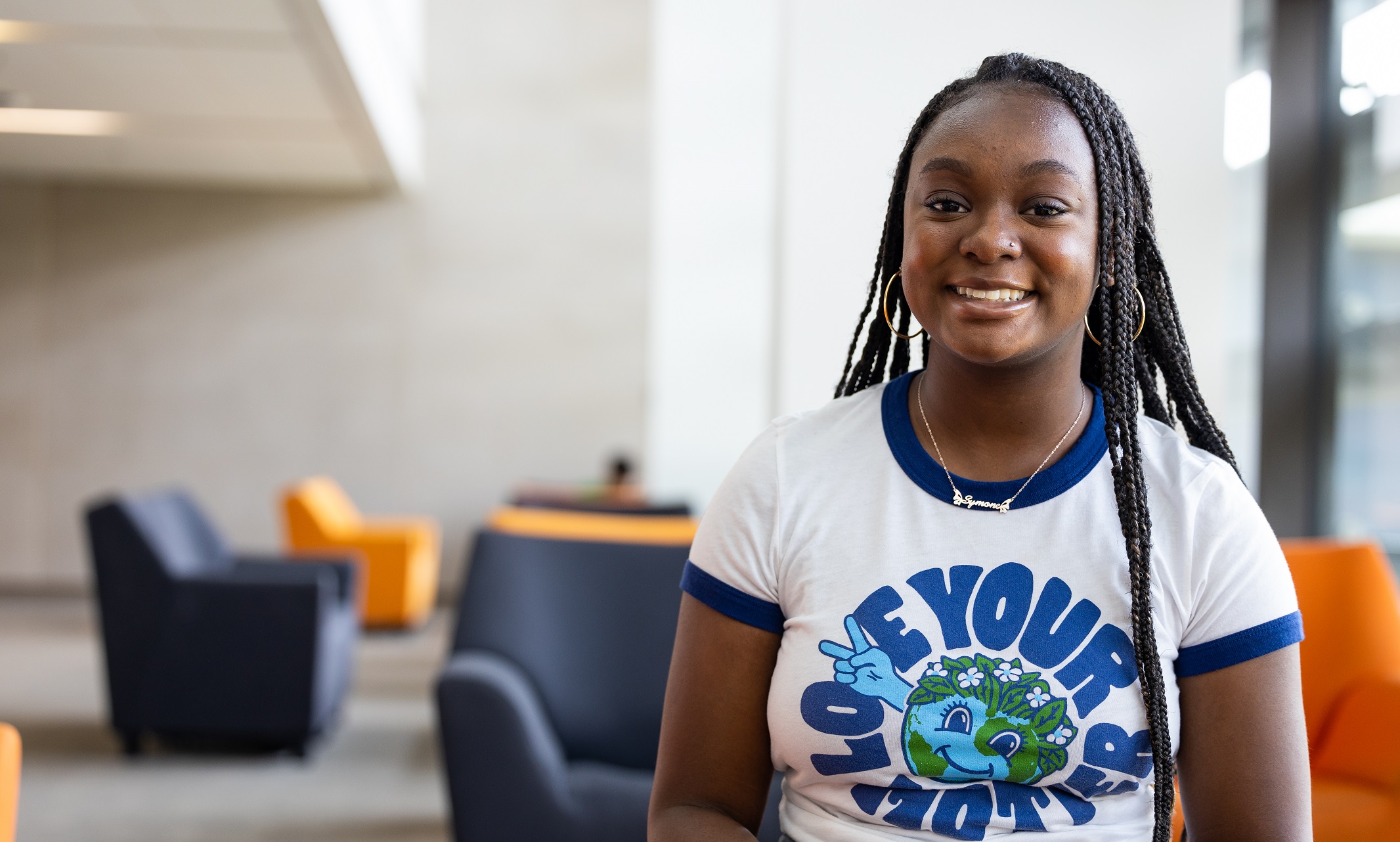
Symone Franks found her path at UMKC and hopes to inspire others
Roos don’t just dream, they do. Our students turn ideas into action every day. Get to know our people, and you’ll know what UMKC is all about.
Symone FranksAnticipated graduation year: Spring 2025UMKC degree program: B.S. Environmental Science, environmental sustainability minor, honors programHometown: Grandview, Missouri
Symone Franks chose to come to UMKC because of the undergraduate research opportunities and diverse student body. In her time here, Franks has been motivated and inspired by her fellow students and professors.
“I admire everyone’s goal for excellence here at UMKC,” said Franks. “When I talk to other students and faculty, everyone seems to have something big that they are working toward.”
A first-generation student, Franks is a KC Scholar and Marion Bloch Scholar. She says that without these scholarships, she would not have been able to fulfill her dream of attending college.
Why did you choose your field of study?
Environmental science has always interested me, and my dream job is working at the EPA. My degree program will give me a great foundation to get there.
What are the benefits and challenges of the program?
I love how tight knit the program is. I feel as if I can go to faculty members with any questions I have. The department also places a big emphasis on hands-on work, which has been beneficial to me.
The program can be challenging because it covers a broad area of study, so you are exposed to a lot of information.
How has your college program inspired you?
When I started college last year, I was sure I wanted to do something related to the environmental sciences, but I had no idea what I wanted to do specifically. After taking my first environmental science class, I was inspired by my professor's excitement about climate science. The program as a whole has inspired me to follow my dreams of working for the EPA and given me the confidence to know I can make it happen.
What does being a first-generation student mean to you?
Being a first-generation college student comes with a lot of responsibility. I am not just going to college for my own success but for my entire family’s success.
What other extracurricular activities are you involved in at UMKC?
I am involved with Kansas City Explores Earth and Environment (KC E3). This is a paid training program that is run through the earth and environmental science department.
I’m also in the Honors Program and am an honors ambassador. As an ambassador, I communicate and meet with potential students. I really enjoy the Honors Program; the connections I've made with other students and professors in those classes are unique. The important conversations we have in classes are something I've never experienced in a standard learning environment.
What are you most proud of during your time at UMKC?
I had the opportunity to be a part of a team that welcomed around 40 middle school girls to campus for Earth Day with KC E3! It was such an amazing experience to be the role model that I wanted when I was younger.
What do you hope to take from your experiences at UMKC into your professional career?
I hope to take the spirit of excellence into my professional career. I want to continue to always ask questions and aim for better things.
Since entering college, what have you learned about yourself?
I learned that fulfillment is something that I will always be chasing. Before I came to college, my main goal was to make enough money to be successful. Now I realize that I need to be doing a job that contributes to the good of other people, not just myself.
Aug 01, 2022
The School of Medicine Dean weighed in on parechovirus
The CDC shows that multiple health systems are reporting a potential increase in serious cases of parechovirus. While many kids experience mild symptoms, babies younger than three months old may develop severe symptoms.
UMKC School of Medicine Dean Mary Anne Jackson, M.D. spoke with CBS News about the virus and what parents should know. Read more
Jul 28, 2022
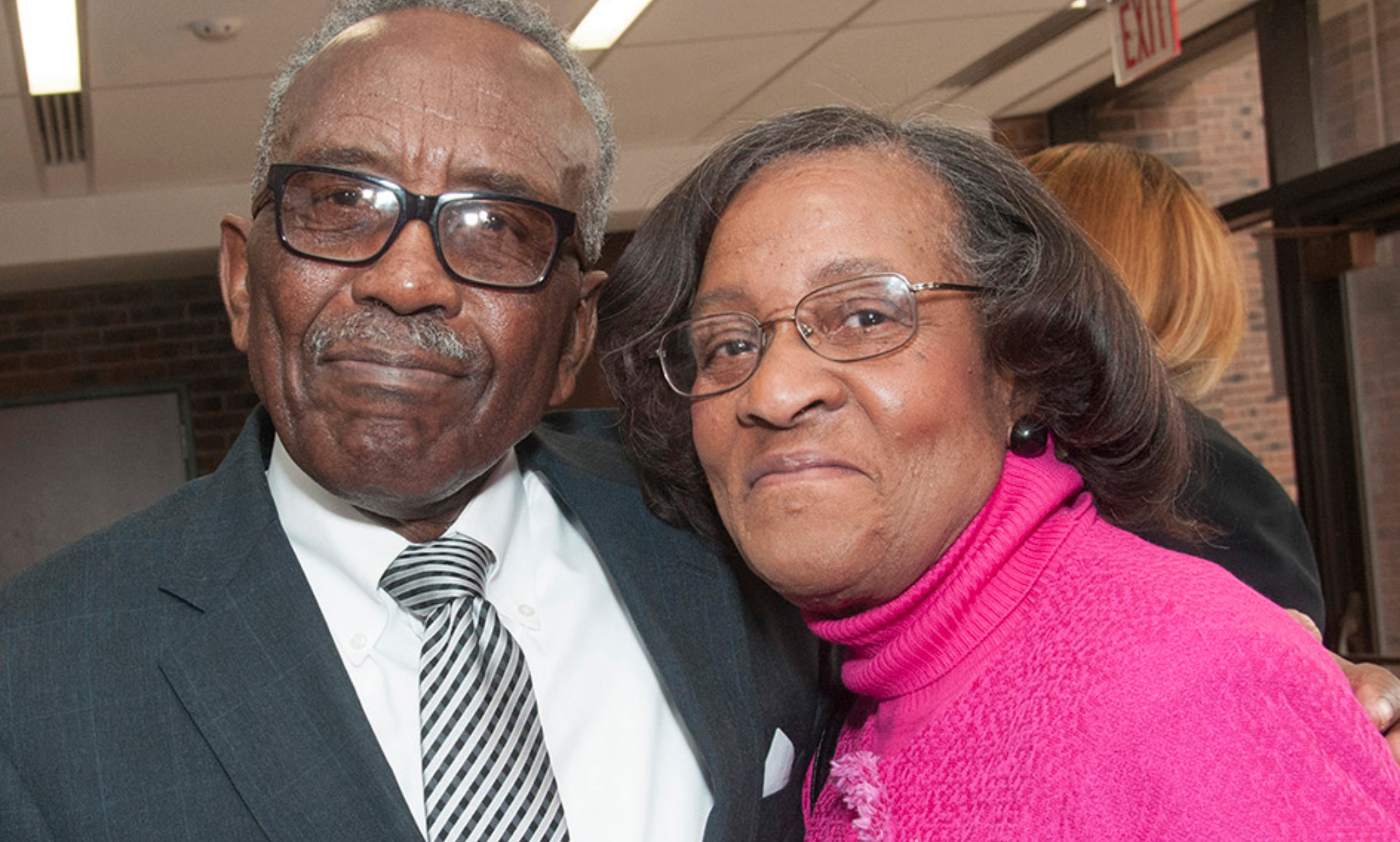
School of Medicine’s first associate dean for minority affairs
Reaner Shannon, Ph.D. (M.A. ’78, Ph.D. ’83), part of the UMKC School of Medicine for 34 years, died July 13 at the age of 85.
Shannon began her career at the school as the main research lab technologist. In 1990, she left the lab to become director of the minority affairs office at the school, becoming the school’s first associate dean for minority affairs in 1998, a post she held until she retired in 2008. That year, she was presented the Bill French Alumni Service Award.
Shannon and her husband, Henry Shannon, established the Dr. Reaner and Mr. Henry Shannon Lectureship in Minority Health in 2006. Speakers of local and national interest have presented the lecture each February since in conjunction with Black History Month, focusing on timely topics that impact underserved and minority communities.
Mike Weaver, M.D., ’77, a member of the UMKC School of Medicine’s first graduating class to complete the school’s six-year program, delivered the 2022 lecture.
"Reaner Shannon was an insightful, compassionate, and tireless advocate for URiM (Underrepresented in Medicine) students, who was well ahead of her time. Long before it was common to talk about health equity, Dr. Shannon recognized that the lack of attention to minority health was creating an ongoing healthcare disparities crisis. She raised awareness on these issues and encouraged the School of Medicine to bring these topics to medical education," Weaver said. "The Dr. Reaner and Mr. Henry Shannon Endowed Lectureship in Minority Health is a testament to that vision and her intention to ensure that medical students at UMKC would forever have access to thought leaders in this area."
"She recognized that URiM students experience unique challenges in medical school, and she was a mentor who helped hundreds of students mitigate those challenges and successfully graduate," he continued. "I am very grateful that I was one of those students when I met her back in 1973. She helped me navigate some difficult situations, was affirming, and always had an open door and a warm smile."
Shannon established the UMKC School of Medicine Diversity, Equity, and Inclusion Council in 2001 to promote a diverse, nondiscriminatory learning and working environment for the school. It was charged with promoting cultural competency, awareness, inclusion, respect and equity through education, training, programing and advancement. The Council hosts a Diversity Symposium bringing together all departments across the School of Medicine to create goals and recognize existing efforts towards more diverse, equitable, and inclusive environments and work execution.
Shannon also launched Saturday Academy, a free program designed to spark interest in and help prepare young people for potential careers in health care. The program provides students in grades six through 12 with two and a half hours of classes that focus on math and science as well as ACT prep.
2022 class of Summer Scholars view an intubation demonstration.
She started a similar program, Summer Scholars, that invites minority and disadvantaged students in the Kansas City metropolitan area to take part in a two-week session each July. They receive daily instruction in academic areas such as chemistry and language arts, and study anatomy and physiology in the school’s cadaver lab. Summer Scholars has grown from a single two-week experience for local underserved high school students that Shannon began more than 40 years ago to four different programs provided for high school and undergraduate college students.
“I’d like to think I made an impact in the lives of those students who, in some cases, might not have known that studying medicine was even an option,” she said when presented with the Bill French award. “It was important for me to build in the lives of young people, to help them in any way that I could to succeed.”
Shannon also served on the board of directors for the Black Health Care Coalition and the Edgar Snow Foundation.
Jul 27, 2022
Former faculty member at University of Tennessee served as associate dean for equity and inclusion in the College of Social Work there.
J. Camille Hall, Ph.D., LCSW, has been appointed as the new vice chancellor for diversity and inclusion at UMKC. She will begin work here Aug. 22.
Hall comes to UMKC from the University of Tennessee-Knoxville, where she has served as a tenured professor and associate dean for equity and inclusion in the College of Social Work. Her research focuses on risk and resilience among Black Americans and multicultural competence. Her more than 25 years of administrative and clinical social work experience includes private practice and service as a clinical social work officer in the United States Army Reserve.
“I am excited to become a part of the campus and Kansas City communities and am honored to be selected to lead our inclusion and diversity efforts,” Hall said. “I am impressed by the depth of expertise, commitment and community engagement shown by UMKC stakeholders towards inclusive excellence. My goal is to foster a community-developed vision for inclusion and diversity that ensures all members of the UMKC community can bring their authentic selves to campus every day. I will work to build strong relationships based on trust, honesty and transparency to advance this important work.”
J.Camille Hall
Hall received bachelor’s and master’s degrees in Social Work from New Mexico State University, Las Cruces; and a Ph.D. from Smith College, Northampton, Massachusetts. She is a 2011 Higher Education Resource Services Women's Leadership Institute alumna and a member of the National Coalition of 100 Black Women.
“As vice chancellor, Dr. Hall will play a vitally important role in the UMKC leadership team,” said Chancellor Mauli Agrawal. “She will guide the work we all share in maintaining and enhancing the commitment to diversity, equity and inclusion that is thoroughly woven into the fabric of our university community.”
The UMKC commitment to diversity and inclusion is featured prominently in the university’s Mission Statement and Statement of Values, and is one of five pillars in the UMKC Strategic Plan. The UMKC Division of Diversity and Inclusion promotes diversity and inclusion as a critical factor for student, staff and faculty success, and provides leadership and guidance to campus-wide efforts to ensure that commitment continues to be an important driver of excellence in higher education.
The division guides the work of multiple campus initiatives, including the Chancellor’s Diversity Council, the Diversity Advocates program and the Faculty Diversity Dialogues series. The division also sponsors multiple community engagement programs such as the Critical Conversations series, the Martin Luther King Jr., Pride and César Chávez lectures, and the Women of Color Leadership Conference.
Jul 25, 2022
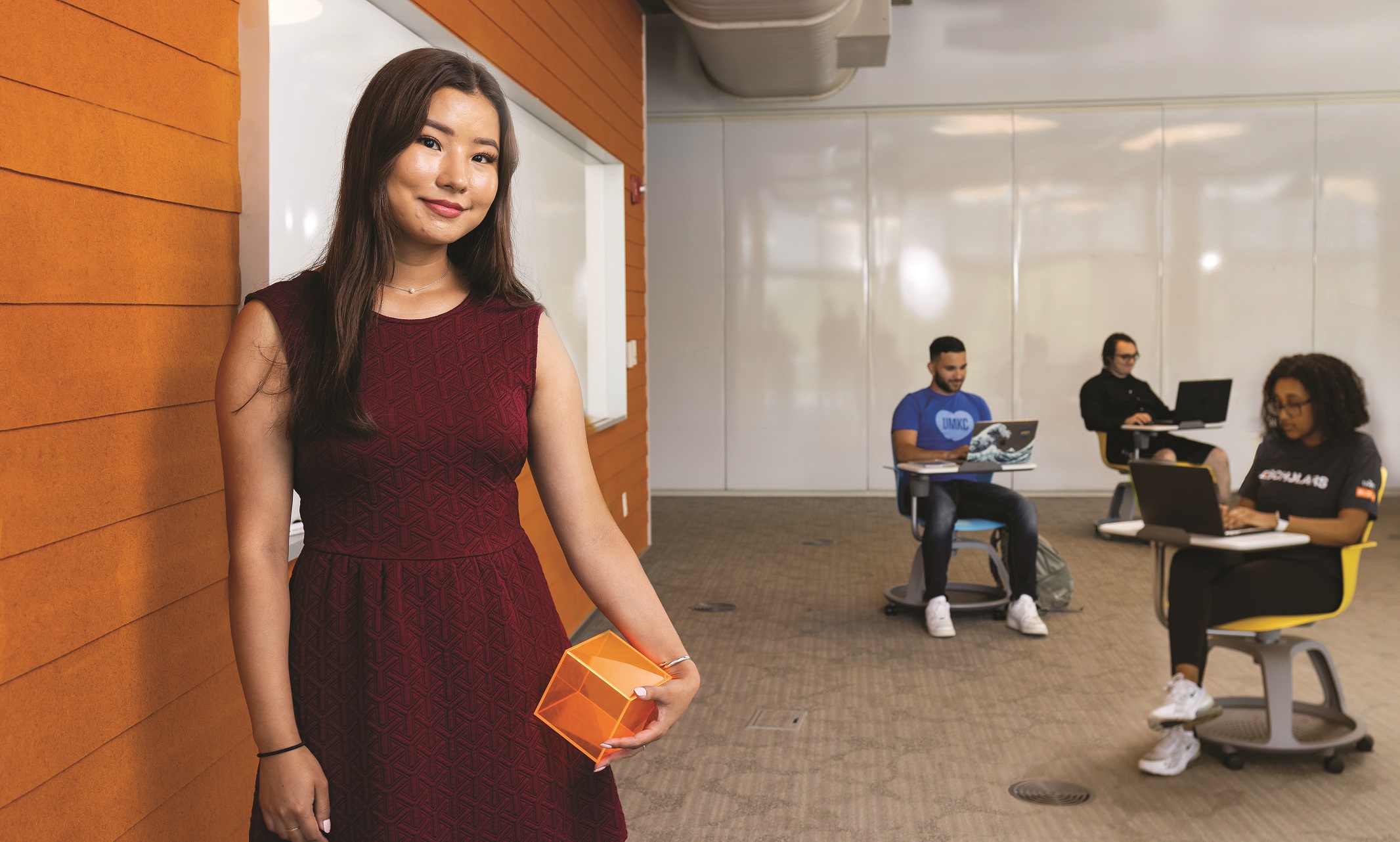
Upholding Henry’s vision for the Bloch School
Building on the Bloch School’s legacy of serving Kansas City, the Henry W. Bloch School of Management has more than doubled its enrollment of graduate students from underrepresented groups in the last four years.
Between 2017 and 2021, enrollment in Bloch graduate degree programs increased 170% for Asian students, 148% for Black students and 127% for Hispanic students.
“We want to be Kansas City’s business school. As part of this, we have focused on community engagement, outreach, and finding ways to make our programs more accessible and flexible. These efforts are helping us meet needs throughout our entire community for engaging, cutting-edge business education,” said Dean Brian Klaas.
Addressing the needs of students from across our entire community has been a long-standing priority at Bloch, dating back to Henry W. Bloch’s original 1986 endowment. Lately, 21st century tools have allowed the school to broaden its reach and become more accessible to students throughout this community.
The school has implemented several new tools that have created expanded opportunities, such as flexible class modality for people with unpredictable work hours or those with childcare responsibilities.
“We’ve found that moving from a largely on-campus and traditional program to more blended offerings has increased our ability to serve many working professionals and others who are juggling a complex life with a range of work and family obligations,” Klaas said.
According to Klaas, flexible classes have allowed students to find their own comfort levels while deciding which modalities work best for them.
Brian Anderson, associate dean of the Bloch School and associate professor of entrepreneurship, said by allowing students to take some classes remotely or on a hybrid model, or take extended periods off, the school has been able to expand its reach and appeal.
“Having a full range of modalities allows us to build engaging and inclusive classroom experiences that can better serve all of those within the Kansas City community,” Anderson said.
In addition to offering flexible classroom modalities, the school has also used digital marketing tools to share opportunities with a larger and a more diverse community.
“Back in the day, we often relied on word-of-mouth, networking and events to share information about our programs,” Klaas said. “Now with digital marketing and social media, we have more tools and more capacity to connect with candidates throughout this community. We are better positioned to highlight for candidates throughout this community the opportunities available here at Bloch and programs that could help meet their needs and achieve their goals.”
Technology and outreach aren’t the only factors that have played a role. One-on-one contact has been just as important.
“We aspire to offer concierge-level service for every student. Not everyone comes with that built-in network that some students do. We’re here to give you that network and then show you how to continue to build it,” Anderson said.
The resulting network needs to be diverse as well. Toward that end, the Bloch School has expanded experiential learning opportunities to organizations with diverse leadership and/or a mission to assist underserved communities. Students from Bloch graduate programs are working closely with organizations such as AltCap, Pipeline and The Porter House KC, participating on faculty-led consulting teams to provide services and assistance to entrepreneurs from underserved communities.
The Porter House KC was co-founded by Daniel Smith, who currently teaches a course at the Bloch School. Smith said it’s important to be intentional about the different needs students from underrepresented backgrounds bring with them to their MBA experience – and it’s important for students to get an opportunity to see themselves represented in the organizations they work with.
“It requires encouragement, doubling down and going into spaces universities don’t typically go into,” Smith said. “It’s beneficial for the university and the community they serve. The ability to counsel and walk alongside these students is invaluable.”
Melissa Vincent is the executive director of Pipeline Entrepreneurs, a professional development network for high-growth entrepreneurs in Kansas City. In an effort to better support entrepreneurs from underserved backgrounds, Pipeline recently created Pathfinder, a year-long virtual program partnered with Bloch’s E-Scholars program to help earlier-stage businesses develop resources and gain traction.
“We recognize that it’s not an even playing field right now in multiple senses,” Vincent said. “One of those is access to networks, resources and programming. The other side is funding. In order to be able to really change the trajectory for underserved entrepreneurs, we have to answer both sides of that equation.”
“At the Bloch School, they truly care about training their students, and with that comes a genuine belief that their students have the capacity to contribute to the community regardless of their age.” - Jennifer Alexander
Vincent said that the combination of Bloch education and outside support from organizations like Pipeline can be a winning combination for early-stage entrepreneurs, especially those from underserved communities.
Another key part of the Bloch School network is Central Exchange. Central Exchange was established as a non-profit in 1978 and since then has played a critical role in developing and offering professional development and leadership experiences for women in the region. It works closely with corporate members to provide impactful leadership development for women at key junctures in their career.
Throughout the past few years, the Bloch School has been partnering closely with Central Exchange. Assistant Teaching Professor Ann Hackett provides leadership and strategy support for Central Exchange as part of her role at the Bloch School, working to expand leadership development opportunities for women in the region, including students in the Bloch School. The partnership not only offers opportunities for Central Exchange members to participate in Bloch School programs, but it also provides opportunities for Bloch graduate students to engage with Central Exchange.
The school has long-prioritized Henry W. Bloch’s vision for being a community-centered school, according to Klaas, and the initiatives being implemented today are very much consistent with that long-standing priority.
Jennifer Alexander, a student in the MPA program, said her experience with mentorship within the Bloch School helped her feel valued.
“Throughout our careers, women under the age of 40 have had to prove we’re qualified in ways men under the age of 40 have not had to prove themselves. My experience at Bloch was that I never felt like I needed to prove myself as a young woman,” Alexander said.
Alexander, who is Chinese-American, said she felt supported by Bloch faculty and staff as a student in a way that exceeded her experiences in the working world during her mid-to-late twenties.
“At the Bloch School, they truly care about training their students, and with that comes a genuine belief that their students have the capacity to contribute to the community regardless of their age,” Alexander said. “It was such an encouragement to me in that I didn’t necessarily experience that trust in my earlier nonprofit experience. The Bloch School believes in giving you opportunities to advance and move forward. That’s the biggest impact they made on me.”
"I had a lot of professors who encouraged me to use my voice and speak up when I had an idea." -Gretchen Metzger
Recent PMBA graduate Gretchen Metzger said she felt her instructors made an effort to support all students voices in the classroom.
“Being a woman in an MBA program, I can say from personal experience that there’s a tendency for women to speak more timidly and less boldly,” Metzger said. “But I had a lot of professors who encouraged me to use my voice and speak up when I had an idea. I admired that a lot.”
None of the initiatives Bloch has implemented over the past four years have been particularly groundbreaking, Klaas said, in part because the school has always prioritized Henry W. Bloch’s idea of a community-centered school.
“Henry W. Bloch was deeply committed to efforts to support inclusive prosperity in Kansas City. This was his goal in helping to build a community focused school. Today, we are continuing to work on achieving the goals that Henry established for the school years ago,” explained Klaas.
“He wanted us to have great programs, but he also wanted us to get the word out to the whole community that there were opportunities here in business, entrepreneurship and the not-for-profit sector, no matter what your background,” Anderson said.
Klaas acknowledges there is always room for improvement, and the Bloch School is no different. Pursuing Henry’s vision for offering great programs that serve all of Kansas City is a work in progress. A key priority for us is attracting and serving a student body that looks like this community,” Klaas said. “Being Kansas City’s business school is a key part of our mission. As part of that, we are very much committed to serving all parts of the community.”
The enrollment numbers in Bloch’s graduate programs suggest that the school is finding ways to reach and serve the needs of students across our community, Anderson explained.
“We’re focused on fostering community and opportunities for engagement. We do so in a way that leverages new tools and new technology to meet students where they’re at and offers them a chance to engage,” Klaas said. “We recognize the success of this depends on having faculty that look like this community, as well as a student body that looks like this community. These are important priorities for us, and we’re striving to make significant progress in these areas.”
Jul 20, 2022
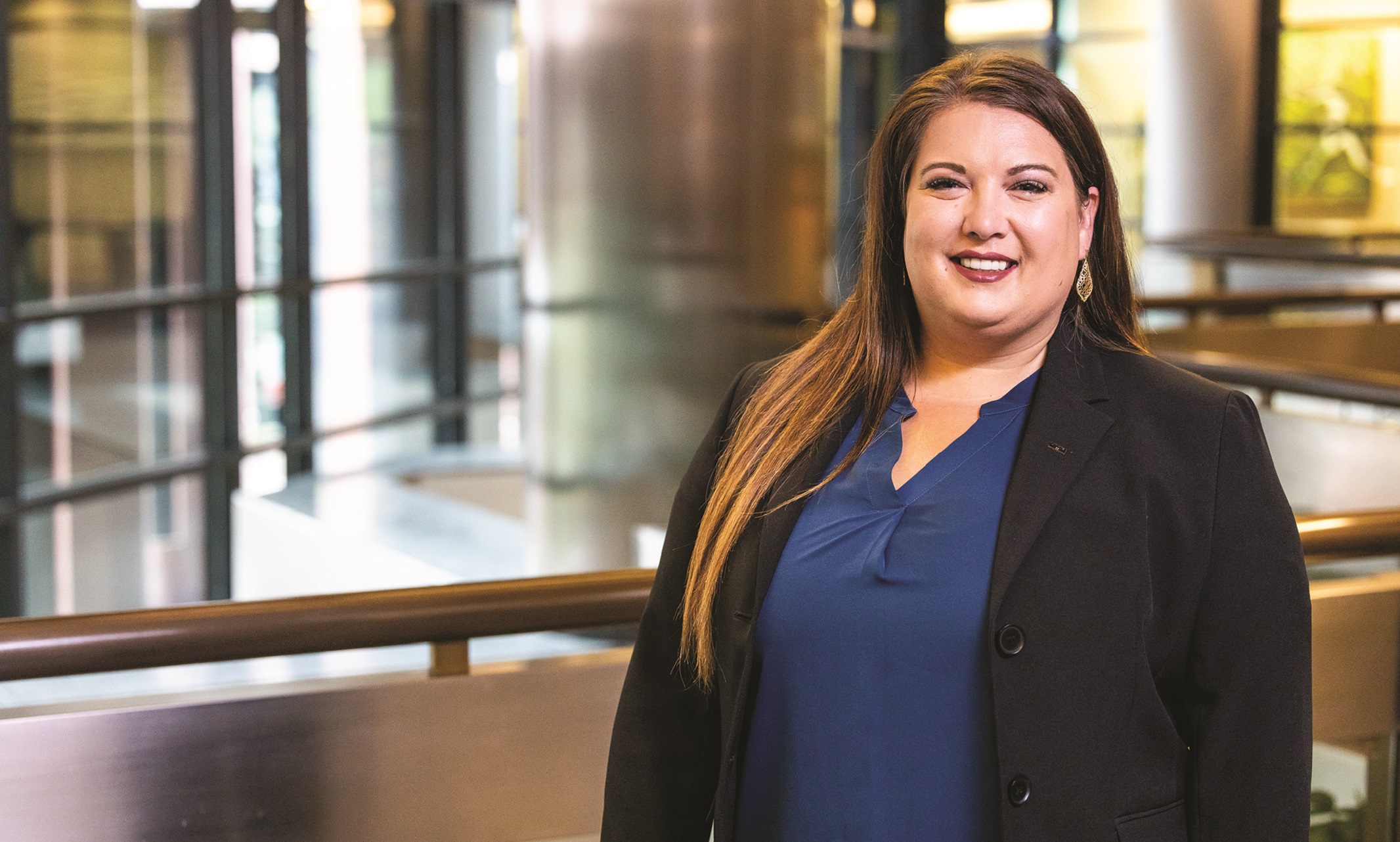
Alumna Jacquie Ward took her Bloch education all the way to the bank
Jacquie Ward, (MBA ’16), recently stepped into the role of director of private investments at UMB Family Wealth. She took this step relatively early in her career, but she felt prepared thanks in part to her education at the Henry W. Bloch School of Management and the student involvement opportunities that even a working student can join.
“I loved my time at UMKC, but I loved it that much more because I made a point to stretch and get involved,” Ward said. “That’s where I feel like my education became an actual game changer in my career. That’s where I met people that I still work with. I met some of my best friends. Some of the alumni that I met in those positions are the ones that I still call on and talk to on a regular basis. I see them at other industry events, and they now know me. That helps facilitate conversations.”
Though Ward now holds a master’s degree from UMKC, she began her career in finance immediately after completing her undergraduate degree in financial management, financial services and financial controllership at Kansas State University, following in her family’s footsteps. Her mother made a career in corporate finance during the 1980s, and Ward saw firsthand the struggles a working woman can face in a male-dominated field. However, Ward said she is optimistic about the current environment at UMB and in the field going forward.
“I see the world that I started in 10 years ago and the world I’m in now,” Ward said. “It’s definitely still a male-dominated space, but we do have women in really strong leadership positions as well. That’s something that, when I looked at my mom’s generation, she didn’t have, but I do. You have a chance to succeed when you have someone that knows exactly what it’s like in your situation and is in a position to be able to help guide you and the whole institution.”
One of the benefits of getting an MBA at UMKC, Ward found, was the real-world experience she could bring back to the office after each class.
“My UMKC education was top notch,” Ward said. “Within the classroom, we were doing things that were educational, but we were also doing things that I still tap into from a day-to-day basis for my job. We had a lot of professors that were great about aligning what we were doing with real life work. That prepared me for taking that next step in my career and expanding my network.”
Ward encourages anyone pursuing their MBA to get involved as well.
“You can go and show up to class, and you’re going to do just fine,” Ward said. “You’re going to get a great education, but you’re really not going to get everything that it can offer. Try to go that extra step.”
Jul 20, 2022
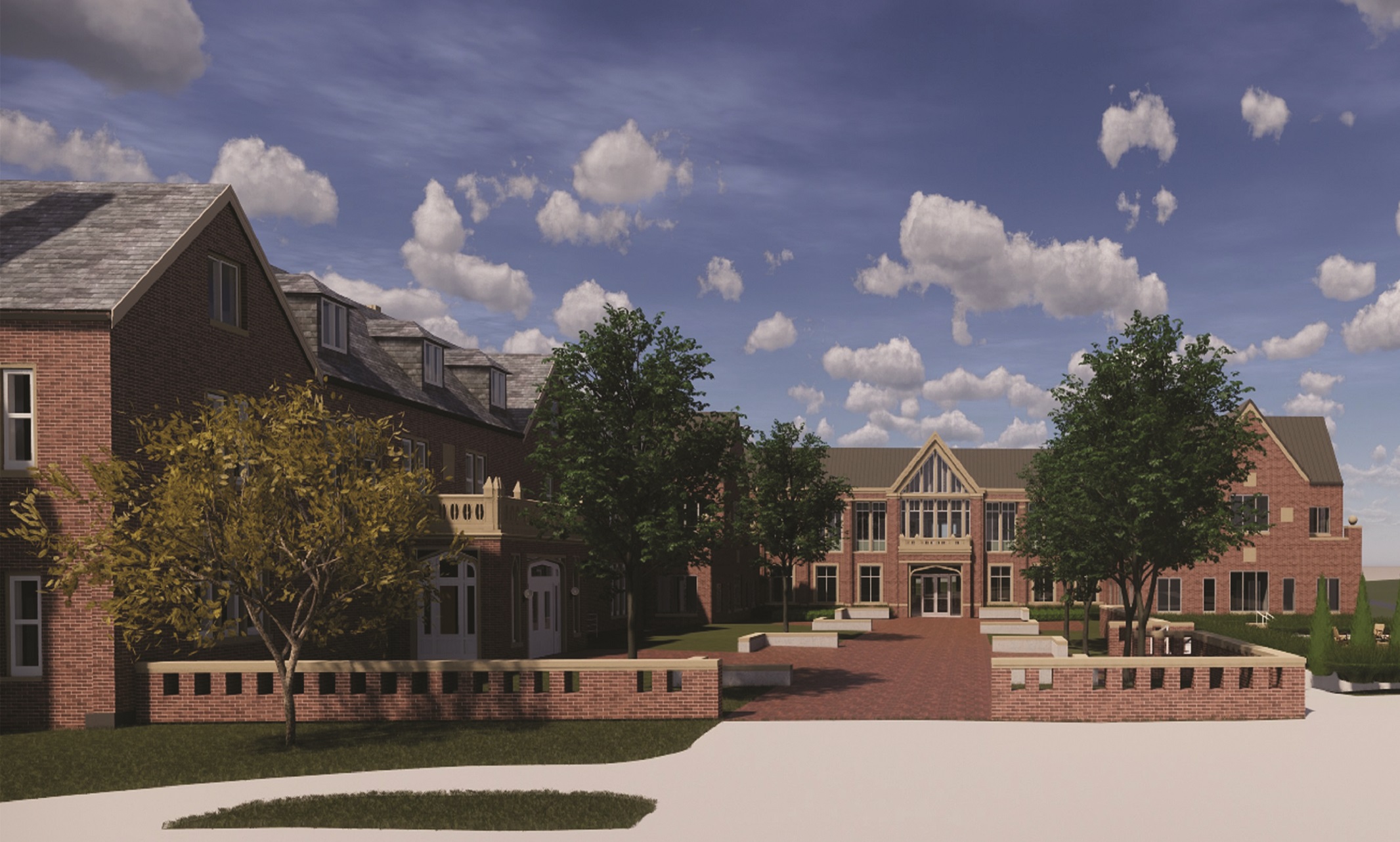
Special event also marks grand reopening of renovated Bloch Heritage Hall
A century after his birth in 1922, Henry Bloch continues to have a powerful impact on Kansas City’s entrepreneurial landscape and in shaping future generations of business leaders.
“Henry was a real presence at the Bloch School and remains a presence,” said Brian Klaas, Dean of the Henry W. Bloch School of Management. “I loved watching Henry with our students. He demonstrated such humility and kindness. He was so supportive and tried to give them a message that really would help them in life.”
This year, the Bloch School celebrates the 100th anniversary of Henry’s birth with yet another incredible milestone of his legacy, the grand reopening of Bloch Heritage Hall. The historic hall, located on UMKC’s Volker Campus, has been closed since early 2021 while undergoing a massive $17 million renovation. On July 30, the school will commemorate Henry’s 100th by unveiling their work and the new era of Bloch Heritage Hall.
“The grand reopening is a fitting way to honor Henry,” Associate Dean Sidne Ward said. “Like Henry himself, the redesign will be transformational. It will improve the student experience, enhance learning and student achievement, help students engage with the school and each other and launch their careers.”
Students, alumni, community partners, faculty and staff are all encouraged to join the celebration and tour the new facilities on Saturday, July 30, from 10 a.m.-12 p.m. The event is casual, family friendly, and as Henry would have wanted, there will be birthday cake, ice cream, food and activities for all ages.
The celebration will also feature special events throughout the Bloch campus to allow members of the Bloch School community to look back on many of Henry’s accomplishments and reflect on the ways his impact continues to be felt in the community.
Henry W. Bloch
“Celebrating the 100th anniversary of Henry’s birth gives us an opportunity to celebrate his special brand of entrepreneurship, which focused on achieving success and making the world a better place,” said Chancellor C. Mauli Agrawal.
“Henry’s generous gifts to UMKC and the Kansas City community at large have helped shape the landscape of the city and how business is done here,” Klaas said. “More than just financially, the way Henry chose to give back provides an example for others to follow. The lesson Henry offered was ‘work to be successful,’ but always work in a way that’s consistent with your values and in a way that makes a positive contribution to your community and to society.”
These values continue to inform the way the Bloch School prepares its students for success after graduation.
“Some of the things Henry demonstrated throughout his career were things like humility, modesty, integrity,” added Klaas. “He also demonstrated courage and a willingness to be bold. What we try to do throughout our programs is emphasize these kinds of virtues.”
For example, special scholarship programs such as Bloch Launchpad include elements of community service and community building, alongside conventional internship opportunities. Trevor Davis, a senior accounting major, said the program not only made college affordable, but also defined his entire student experience.
“It really took me out of the classroom and helped me know what’s to come after college,” Davis said.
Davis said he looked forward to meeting Henry — possibly running into him on one of his frequent campus visits — to personally thank him for his scholarship funded by the Bloch Family Foundation. Unfortunately, Davis never had the opportunity. Henry passed away in 2019 at age 96.
Still, Henry’s esteemed virtues live on in students like Davis as they transition into the business leaders of tomorrow.
“At a school surrounded by his legacy, you soak up some of what the professors speak about him,” Davis said. “The main thing I’ve learned is just to be genuine in your relationships with people, and that will carry you a long way in your career.”
Jul 20, 2022
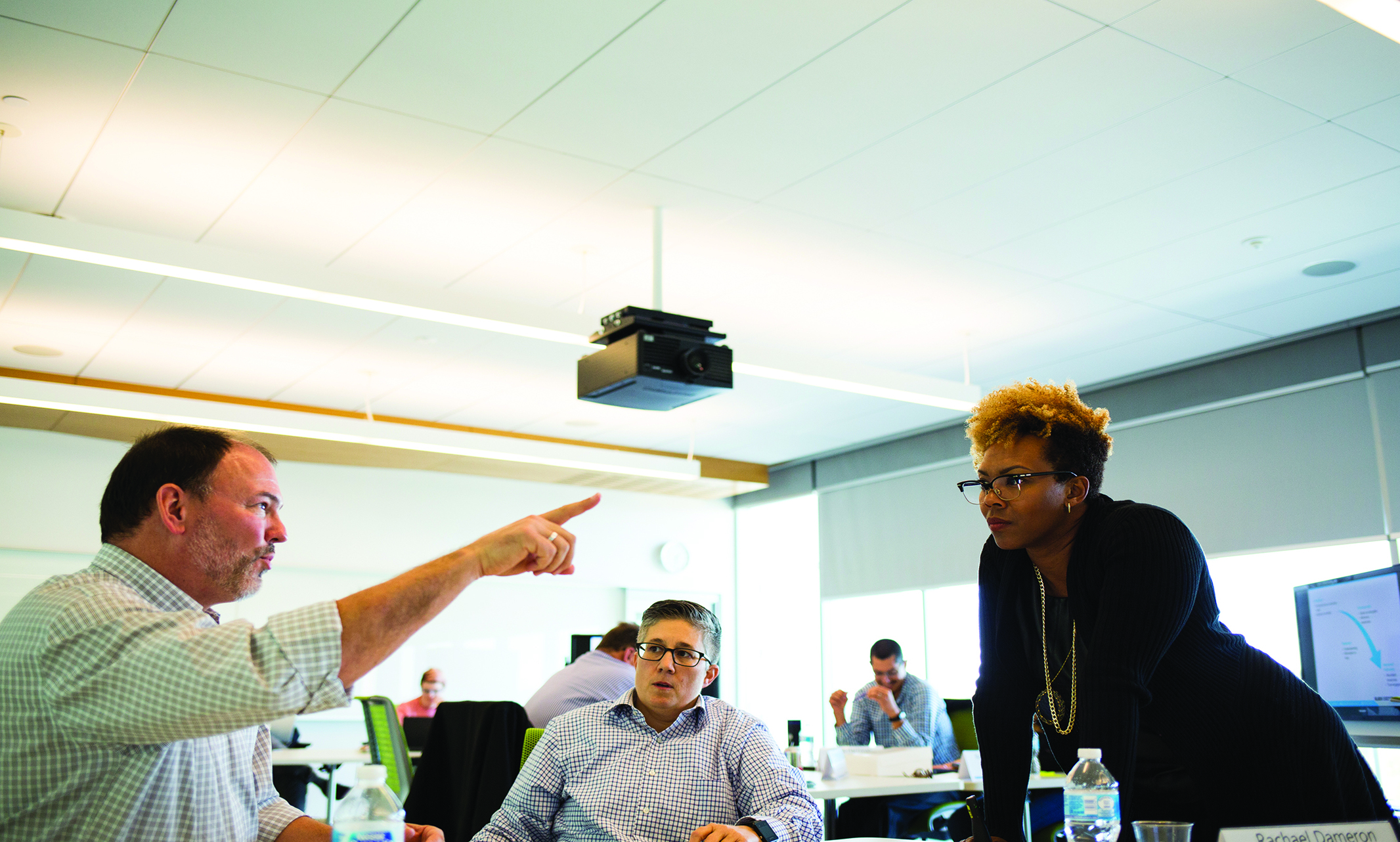
Flexibility puts students' needs first
For the third straight year, UMKC's Henry W. Bloch School of Management has topped the Kansas City Business Journal's ranking of enrollment in regional MBA programs.
The Bloch School had 429 students in Fall 2021, according to the list, with Rockhurst University's Helzberg School of Management (357 students) and Baker University's School of Professional and Graduate Studies (228 students) rounding out the top three.
A keen focus on meeting the needs of students and Kansas City-area employers helps the Bloch School outdraw its counterparts, said Dean Brian Klaas and Associate Dean Brian Anderson.
"We provide experiences that are very much focused on organizations in Kansas City," Klaas said. "And we are working to customize our program to really create stronger and stronger linkages with the industries that are here."
Those partnerships include major employers such as Burns & McDonnell, Cerner, Evergy and McCownGordon. Klass also noted "rich engagement" with startups through Bloch's Entrepreneurial Scholars program and work with entrepreneurs in underrepresented communities.
Flexible scheduling is a key way the Bloch School meets the needs of its MBA students, since many of them are pursuing their degrees while working. Students may switch between online and in-person classes, sometimes even week to week.
Significant investments in classroom technology facilitate this flexibility, including rooms specially designed to serve a hybrid audience. Screens in the front and back of the room integrate online participants with those attending in person.
Health and safety protocols necessitated by COVID-19 accelerated the move toward hybrid learning.
"Flexibility is something that has shifted from a desire to an expectation," Anderson said.
This fall, the school expects to create two Bloch Studio spaces that will give remote students "an even more immersive online experience," Anderson said. The rooms will have TV-studio-quality audio and lighting along with interactive whiteboards and multiple monitors.
"We are investing in Kansas City and being a talent development partner for the region," Anderson said. "I think creating programs, connections and opportunities for students to build their network in Kansas City has significant appeal to working professionals in the region."
Jul 20, 2022
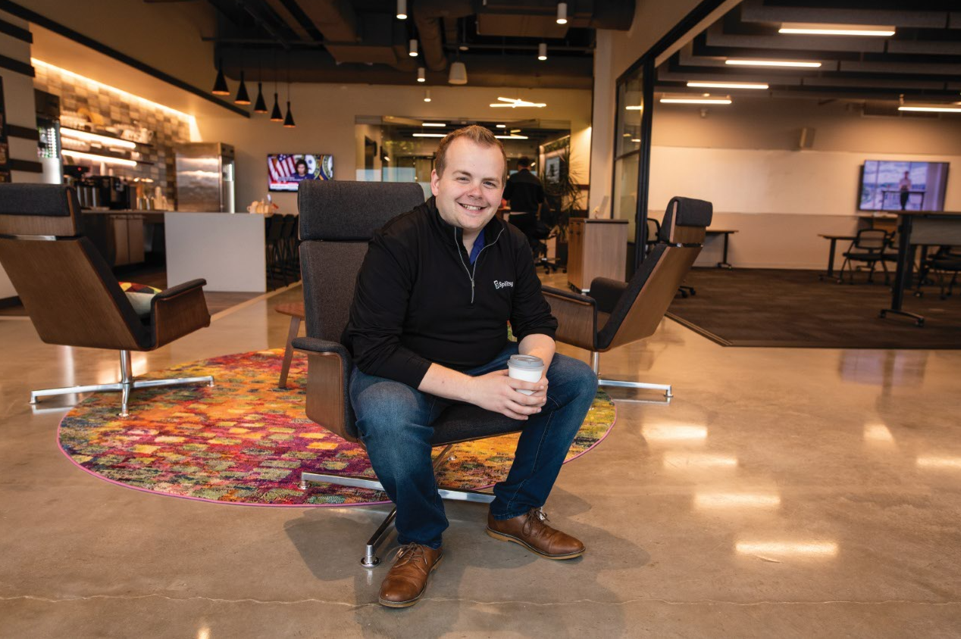
Brad Starnes hopes to make sharing bills easier, sparing friendships in the process
Student Entrepreneur of the Year Brad Starners's startup venture, Splitsy, began with a personal struggle.
Throughout college, Starnes recalls multiple occasions where sharing expenses with roommates and friends became problematic. Once on a summer trip, he covered dinner for 12 when the restaurant wouldn't split the bill. His friends paid him back, but it took weeks. After several years of trying multiple arrangements to share utility bills with roommates, his relationship with one of them became hopelessly strained.
"We actually spent two months where we weren't talking because of bills," recalls Starnes. "I almost lost a really good friend because of this problem."
He knew there had to be a better way. That's when he created Splitsy. Unlike existing payment apps, Splitsy allows roommates to be billed directly for their portion of the bills. It partners with 15,000 billers nationwide, including T-Mobile and Evergy. Each month, Splitsy collects each person's per-set portion and then pays the biller on the group's behalf.
In 2019, Starnes, a UMKC information and technology student at the time, enrolled in the Bloch E-Scholars program for credit. The Bloch School program supports entrepreneurs as they take their ideas from concepts to fully-fledged businesses.
Starnes graduated with his bachelor's degree in information technology in 2020. He had a job offer from health care company Centene Corp. in St. Louis, where he interned. However, he couldn't make peace with the idea of letting Splitsy sit idle.
"I was kind of getting irritated that I was not going to be doing what I wanted to do, which was Splitsy. At that point, I decided, 'I'm tired of this being an idea,'" said Starnes.
Starnes turned the offer down and enrolled in the Bloch MBA program. He focused his energy on growing Splitsy and finishing his MBA at an accelerated pace. By 2021, Splitsy had earned funding from Digital Sandbox KC and won the Regnier Venture Creation Challenge. Starnes was also honored as the 2021 Student Entrepreneur of the Year by the Bloch School.
While Starnes admits going to school full-time and building a startup at the same time can be challenging, it has its benefits.
"Every semester during my MBA, there were things I learned in my classes that I could directly apply to what we were doing with our team at Splitsy," Starnes said.
Of course, experience has been a teacher for Starnes, too. He has faced setbacks, including running out of cash and signing on with vendors at unmanageable terms. But now that he has overcome those barriers, Starnes is proud of what it has taught him.
"I'm just proud of all of the knowledge that I've gained so far and where we've gotten," Starnes said. "At this point, no matter if Splitsy works or not, I've gained the knowledge and expertise to prepare me for what's next."
Splitsy is actively growing its beta user base and raising funds for use for customer acquisition. Starnes plans to launch Splitsy on Google Play and the Apple Store in the coming months. He also hopes to add new features, like allowing users to split one-time costs.
As for the strained friendship that started it all, Starnes counts himself among the lucky ones.
"Thankfully, we're in a much better place now, actually much better than when we were roommates," he said. "Not everybody has the same opportunity to regain a friendship with a roommate that you almost lost."
After all, Starnes said, having close friends and family to share his successes with means the most.
"Not only was I being rewarded, so were family and friends who were supportive of me from the beginning," he said. "It was nice to be able to share that with the individuals who helped us for so long. Just to be able to say 'thank you.'"
Jul 20, 2022
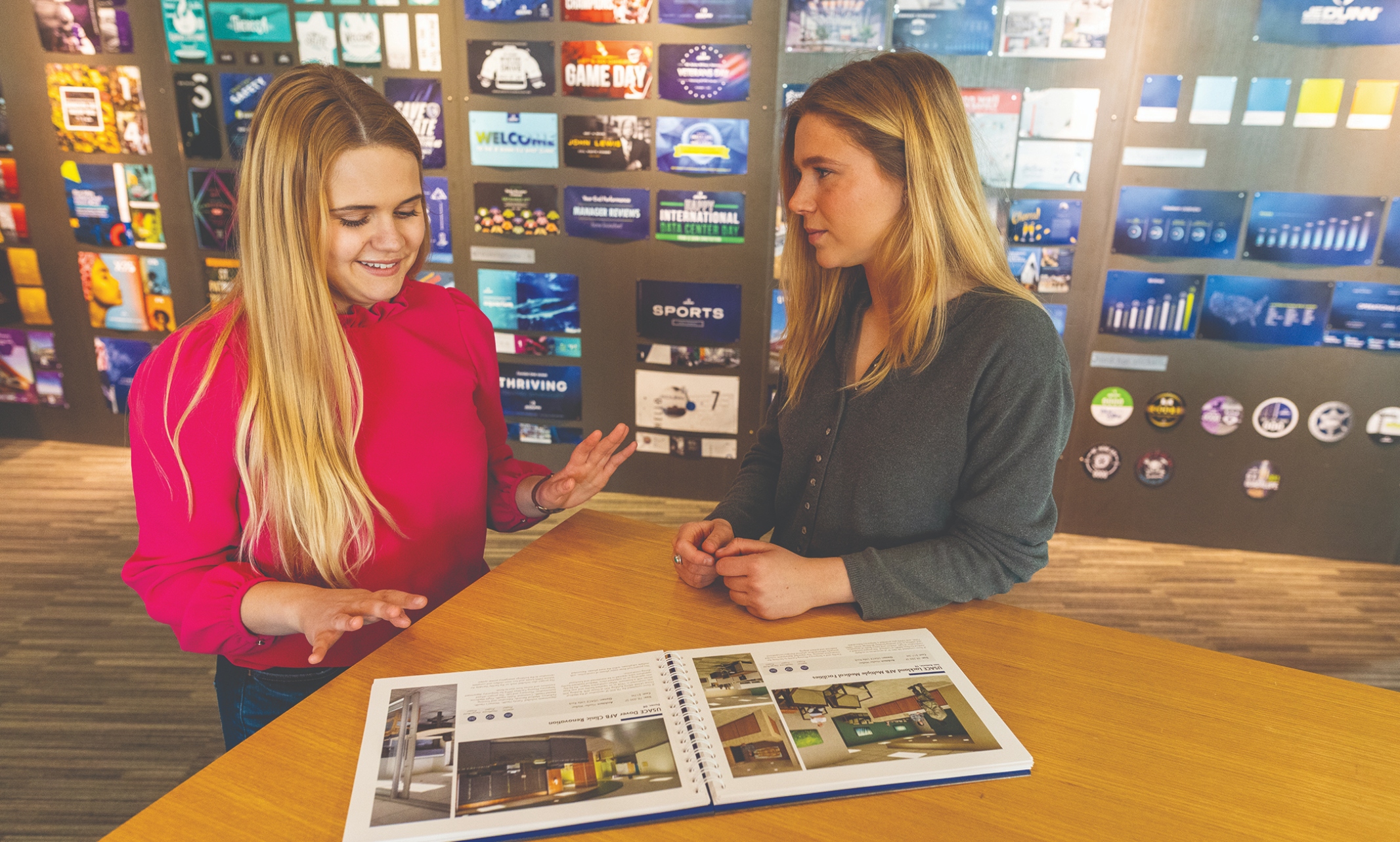
Program gives valuable insight into life after college
The Bloch School took its focus on mentoring opportunities to an exciting new level with the launch of a schoolwide mentoring program open to all students. This new initiative is designed to serve students from all walks of life, from first-generation college students to working professionals earning their MBA.
“Mentoring can be transformational with individuals across all industries and business functions, so it’s important that there are options for students interested in a variety of business areas,” said Ashley Nance, professional development manager for the Bloch School. “This program is also a fantastic way for alumni to give back to the university and pass along key lessons to future business leaders.”
The program launched as a pilot in Fall 2021, with 87 students and 68 mentors participating. The goals are to add 150 student matches each semester and create a pool of more than 500 mentors within the first year. The program uses a sophisticated algorithm through UMKC’s Roo Network alumni platform to match students and mentors, who then set up connections.
“Our mentors and mentees are encouraged to interact in whatever way it makes sense for them. A majority of pairs choose to communicate through phone, email, text or video chat, but some connect in person as well,” Nance said.
One of the initial matches paired student Elena Eckwall with mentor Sydney Manning, a marketing specialist at JE Dunn Construction.
“As a transfer student coming into UMKC, I wanted to get involved with a program that could help connect me to professionals in the Kansas City area,” Eckwall said. “Marketing is an area where the possibilities are endless, and I wanted to learn what it’s like navigating through this field right out of college.”
The algorithm matched Eckwall with a mentor who not only works in her field of study, but also shares other common interests and values.
“At our first meeting, it didn’t take long for me to feel comfortable with Sydney. I instantly felt that she was committed to developing the relationship,” Eckwall said. “She took the time to give thoughtful and meaningful answers to my questions. She also made it easy to bond and have fun in our meetings.”
When Manning first heard about the program, her immediate thought was “how much I wished I had this program when I was a student.”
“As a student, it was hard for me to see past college or what my life would look like in a few years. Everyone was so focused on what their dream job was or what their 10 year plan was, when I was still trying to figure out where I would be in six months,” Manning recalled. “Being able to offer my unique perspective as a young professional was very interesting to me.”
Eckwall derived significant value from the mentoring program.
“Learning about how Sydney navigated through college and onto work at JE Dunn helped me reflect on steps I need to take moving toward my future,” she said. “She taught me the value of networking and of taking opportunities when they arise.”
Mentor-mentee pairs are formally matched for four months, but manystudents and mentors have continued to meet beyond that period. The Bloch Mentoring Program is open to all, from early-career professionals to seasoned leaders.
Those interested can email Ashley Nance at amnance@umkc.edu for more information or sign up through the Roo Network alumni platform.
Jul 20, 2022
Alumni support Bloch scholarships to further opportunity for student success
Henry Bloch demonstrated commitment to building a stronger Kansas City through his support of education and future generations of entrepreneurs. Following the example of the Bloch School’s namesake, several successful Bloch alumni are now paying it forward, providing opportunities to students who follow in their footsteps.
Cory Smith (M.P.A. ’77) had worked at Black & Veatch in Kansas City for four years when he decided to pursue his master’s in public administration.
“The experience was a reawakening,” Smith says. “My organizational behavior class with Dick Heimovics, Theory of Communication with Tom Miller and so many other great instructors opened my eyes to a new world.”
Through these classes, Smith became more interested in national and local politics, economics and government, and ultimately the social issues and problems related to them.
“Ultimately, this led me to a career in city management,” said Smith.
Smith’s successful career started with an internship through the Kansas City Manager’s office. His wife, Marilyn (M.A. ’77), was a teacher and counselor in public schools, and together they became active in the community through the Mid-America Regional Council, Rotary Club and many local charities. The ability to give back and engage in the community has been both enlightening and inspiring for the couple. Their commitment to community involvement led to the establishment of a scholarship fund.
“We believe education should be for everyone who wants to learn and become future entrepreneurs, innovators and problem solvers, regardless of their financial ability,” Smith says. “We both came from working-class families who could not afford to pay for a college education for their children. Our scholarship fund is relatively small, but our hope is that over time it might help those students in need of financial support fulfill their dreams for lifelong careers — something we have been so fortunate to have done.”
Nate Hogan (MBA ’21) established a scholarship for students at the Bloch School following his election to the Kansas City Public School Board. Based on his personal experiences, the scholarship requirements do not include a minimum grade point average to apply.
“I want to help make schools that are designed to support kids who are like I was. I had no social or emotional support as a kid, and I started skipping school. No one would have given Nate Hogan a scholarship. I grew up in the Kansas City Public School district, and I know what it’s like not to be academically engaged. What I care the most about is that the student wants to go to school.”
These scholarships are instrumental in attracting students and helping them stay enrolled. Cassandra Queral (B.S. accounting ’22) chose the Bloch School because of its outstanding reputation and the opportunity to be surrounded with like-minded students. Her scholarship was essential to attending.
“I have supported myself financially since I was 18,” Queral says. “Receiving a scholarship provided extra incentive to dedicate myself completely to my studies; it boosted me beyond my own motivation. It allowed me to believe that someone outside of myself and my family saw capabilities in me. It allowed me to believe I had the potential to shoot for the stars with this experience.”
Cody Cook (B.S. accounting ’21) currently a financial analyst for T-Mobile, had a similar experience.
“Getting a scholarship allowed me to reduce my working hours and focus more on school and getting an education,” Cook says. “Growing up, my family didn’t have a lot of money. College was never an option for me. Without this funding, I wouldn’t have been able to get my degree.”
For more information on accelerating student success at the Henry W. Bloch School of Management, contact Matt McDonough, senior director of development, at 816-235-6623 or mmcdonough@umkcfoundation.org.
Jul 20, 2022
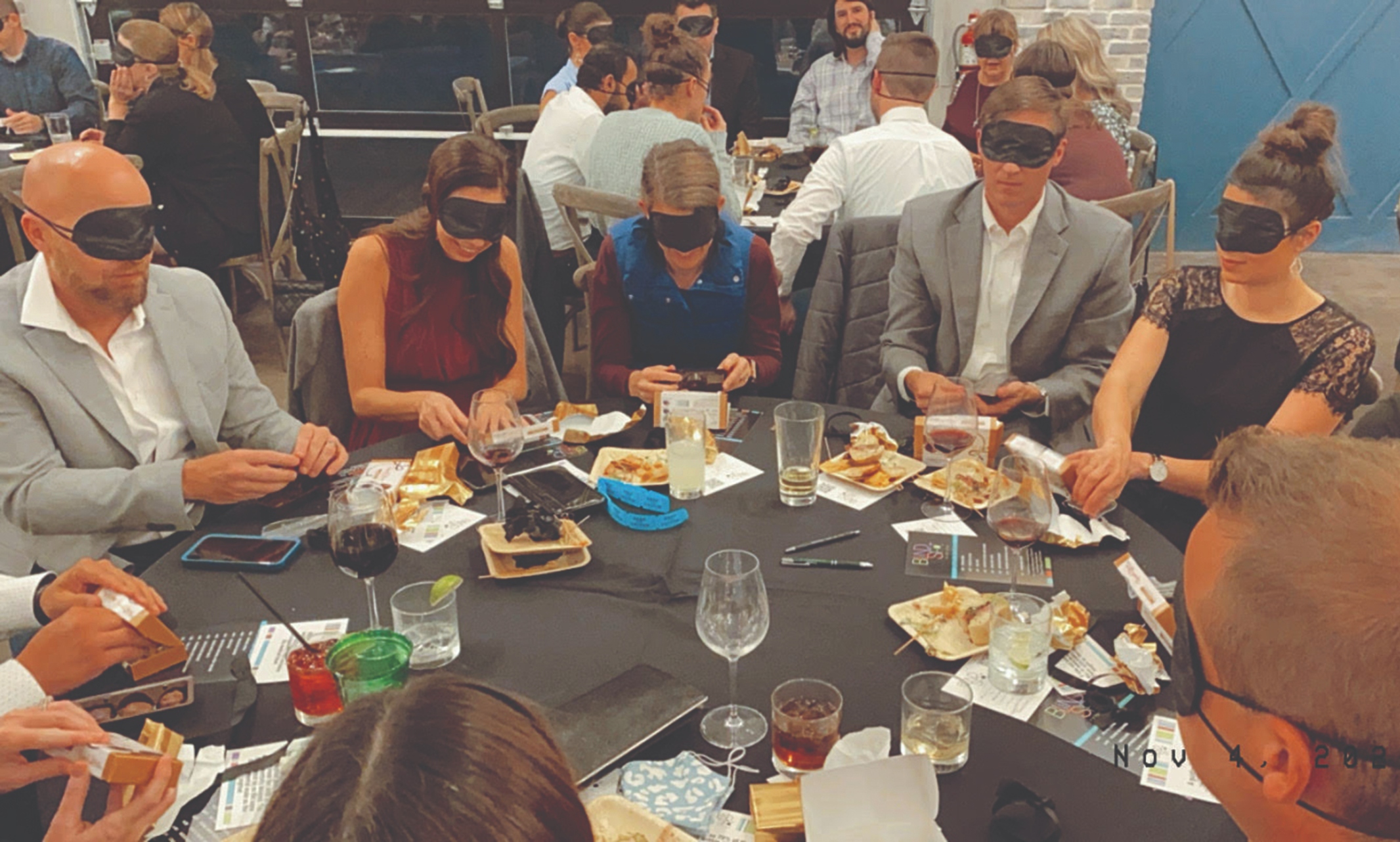
Chris and Nicole Carr are hoping to raise awareness and support for the blind community
It was a long 18 months for Chris and Nicole Carr, as they waited to learn exactly how much vision their third child, Mac, would have.
Diagnosed with optic nerve hypoplasia — a disorder that can range from partial to complete blindness — Mac was born without the ability to see, something his parents discovered through his unusual eye movements and the way Mac reacted when someone would pick him up as a newborn.
Nicole Carr (B.S.N. ’06) had three degrees in nursing, but she was unfamiliar with the diagnosis. Chris Carr (B.L.A. ’08, MBA ’17) shared in her concern as they waited to learn the severity of Mac’s ailment. In this case, Mac was lacking almost all of the nerve cells required for sight.
Chris had never met a blind person; Nicole had only once, at a nursing home when she was 16. Regardless, they met the unexpected challenge head-on. In the process, they not only helped their son, but found ways to aid the blind community through Blind Spot, the nonprofit they created together. After Mac’s diagnosis, Chris and Nicole got involved with Kansas City’s Children’s Center for the Visually Impaired. Mac began working with specialists. In the meantime, Chris and Nicole searched for community resources that could help them parent Mac.
“That’s when we kind of realized there isn’t a whole lot,” Chris said. “You’re visually impaired; you go one of two routes. You either take the school for the blind route, or you go the route of full, regular-world integration. That’s the way we went.”
Chris and Nicole wanted to do something for CCVI and asked about a gala-type fundraiser they could help with. Upon learning there wasn’t one, they decided to start their own. Chris leaned on his network— including his connections at the Bloch School — and the Carrs secured a deal from The Monarch Bar and Lounge on the Plaza to host an event. Chris and Nicole raised more than $40,000 for CCVI. They held the event again the next year and raised nearly $150,000.
Then came the idea for Blind Spot — which Chris credits Nicole as the brains behind. The nonprofit aims to help the visually impaired reach their highest potential and to teach sighted individuals how to be good allies to the blind.
Chris remains active in the UMKC community, serving on the Bloch Alumni Board and mentoring current students. His networking and business knowledge also help him manage the organization, securing federal identification and handling the financial aspects.
“He gives a very compelling speech, too,” Nicole added. “Blind Spot would not exist [without] the work he has put in. ... I have these crazy ideas. He’s kind of amazing how he’ll never sell me short, and he’ll never shut me down.” The Carrs held a launch event for Blind Spot on Nov. 4, 2021. They kept the event simple, aiming to build empathy with sighted members of the community by showing them what it’s like to not be able to see.
“At the launch event, we provided an opportunity for those in attendance to become a little bit vulnerable through an immersion experience,” Chris said. “The mission of Blind Spot and specifically the launch event was to enlighten the Kansas City community to how life for someone who is blind is different. Since blindness as an exclusive diagnosis is rare, there isn’t a lot of awareness with the general population on the abilities of the blind or how to become a good friend to the blind.”
Hands-on learning experiences continue to be a focus of Blind Spot.
At another recent event, attendees sat in a restaurant and experienced a meal while blindfolded. One of the challenges Nicole recalled was simply having difficulty hearing the person in front of her.
“It’s pretty amazing how your vision can help localize your hearing,” Nicole said. “I never knew that, and it really helped me understand why Mac struggles so much when he goes to birthday parties.”
Looking Ahead
Mac turned 5 in March and starts kindergarten in the fall. The Carrs’ plan has always been to help Mac be as independent as possible. Chris and Nicole have even had some support from Mac’s sisters, Nora and Aubrey, in helping him adapt to everyday life.
In fact, Nicole started to believe things would be OK while watching Nora and Aubrey guide Mac through daily activities.
“It was so simple and easy when they were articulating exactly what Mac needed to do in just the simplest way,” Nicole said. “It was so natural to them.”
The Carrs are also thinking about the future of Blind Spot. The nonprofit has partnered with the RoKC climbing gym and is planning an event with AMC Theatres where participants will experience a movie through a headset, among other events to come. A special moment, however, continues to be the first dinner, after all the guests removed their blindfolds and looked around.
“It sounds cliché,” Chris said, “but the eye-opening experience that it brings is just astounding when you do something like that.”
Jul 20, 2022
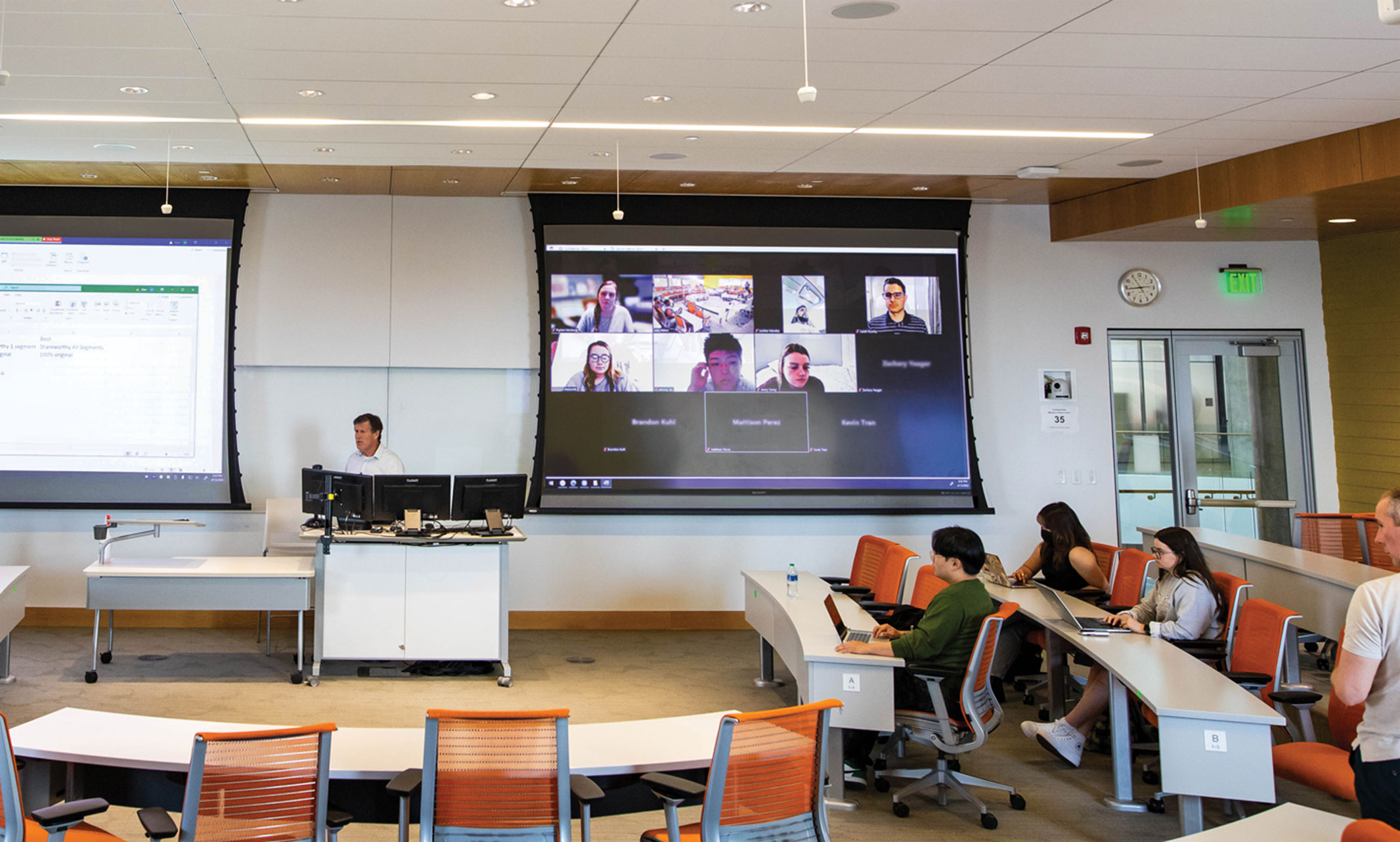
With RooFlex classrooms, Bloch is adapting to meet students’ evolving needs.
On Tuesday afternoons, when Alan Weber walks into Bloch Executive Hall to teach a 2:30 p.m. marketing class, he’s never sure where his students will be. They might be sitting in the classroom in front of him; perhaps they’ll be on a screen as they dial in through Zoom; most likely, he’ll have a mix of both.
Weber, an assistant teaching professor in the Bloch School, gives his undergraduate and graduate students a choice for each class: come in person or come online.
“It doesn’t matter, really,” Weber said. “I can see their face on the screen, and we can go back and forth with them and the students who come in person.”
This hybrid model — offering classes simultaneously online and in-person—is gaining traction at a number of prominent business schools, including at Bloch. The hybrid model allows the school to better serve students who need additional flexibility to complete their degree while managing other responsibilities at work and at home.
The school’s Bloch Executive Hall contains two “RooFlex” classrooms, equipped with more than $100,000 worth of technology — multiple microphones, cameras and monitors — designed to fully integrate online students with their in-person peers. These classrooms were designed and launched early during the pandemic and offered many benefits for students and faculty over the last few years. Further, the introduction of these classrooms provided an opportunity for the school to learn how best to deploy and use this new technology and this new classroom design.
As the Bloch School was experimenting with these new classrooms in Bloch Executive Hall, it also was working to renovate and redesign Bloch Heritage Hall. Heritage Hall was closed in 2020 for an extensive renovation project, one that was very much informed by what was being learned with the new hybrid technology being used in Bloch Executive Hall. When Bloch Heritage Hall reopens in July 2022, it also will feature this same type of hybrid classroom technology in a number of key locations within the building.
So when students return to a redesigned Bloch Heritage Hall in the fall, they will have a very different experience. In part, that new experience will be the result of a renovation that will feature a hub for student and career services, a new student commons, redesigned outdoor space for gathering and engagement and enhanced space for individual and group study. And in part, that new experience will be the result of new classroom designs and new hybrid instructional technology designed to encourage student success and engagement.
“The way that people work in general, and the different obligations on their time, meant that flexibility was something students were looking for,” Ward said. “That might mean time — do classwork on your own time. Or it could mean place — you don’t have to be on campus all the time to attend class.”
Since the pandemic, that flexibility is practically a requirement for students.
A 2019 Bloch School strategic plan anticipated offering 50 hybrid or online courses in 2022, 75 in 2024 and 150 by 2029. When the pandemic sent everyone into lockdown, the demand for online courses skyrocketed. This year, the school offers 230 sections online or as hybrid classes, so students can choose if they want to come to campus or log in from home or the office.
Executive MBA student Tracy Allen said returning to college wouldn’t have been possible without the flexibility the Bloch School offered. Allen, the founder and CEO of Brewed Behavior, a coffee consultancy based in Kansas City, had a busy career and two teenagers. Pursuing his MBA without the ability to dial in some of the time, Allen said, “would have been tough.”
“I did (class) last weekend on a cruise ship off the coast of Mexico. I’ve done it in three or four Latin American countries,” Allen said. “With my kids here, it’s nice to be home on Saturdays and still do class.”
At the same time, he has felt it was important to go to campus and interact with his fellow students sometimes, too. Having both options, he said, was key to making the program work for him.
Allen is not alone, especially among the Bloch School’s executive and professional MBA students who pursue their graduate degrees while managing a career and, in many cases, family life.
Brian Anderson, executive associate dean and associate professor of entrepreneurship, said prior to the pandemic, graduate students preferred online to on-campus instruction about 60% to 40%. Today, he said, it’s more like 85% to 15%.
“I think it is safe to say that students’ desire for flexibility will be a key consideration for schools over the next decade,” Anderson said.
Questions about what that flexibility will look like long-term are still being answered. In the early days of the pandemic, the Bloch School asked students if they wanted to return to campus. But that turned out to be the wrong question, Anderson said.
“The right question was not, ‘Do you want to come?’ The right question was, ‘How do you want to engage with your courses?’ ”
And the answer, Anderson said, was, “It depends.”
“Students want flexibility,” he said. “They want to be able to choose. Sometimes that choice is, ‘This semester, I have a really neat internship, and it’s going to take a lot of time and fixed hours, so I’d like to be online this semester. But next semester, I’d like to be on campus.’ ”
On the other hand, students might feel more comfortable meeting in person when certain courses or subjects are more challenging. Or they might want a chance to network and meet their peers.
Bloch School officials acknowledge that meeting this need for flexibility is a juggling act. It’s not as simple as flipping on some cameras and microphones. The evolution to online or hybrid course formats calls for not only changes in physical classrooms and faculty training, but also new approaches to how courses are structured and taught.
The Bloch School is working to tackle the changing landscape on a course-by-course basis. While more courses now have a remote option, Anderson said those options are dependent on the course content and available classrooms.
Not every course has the complete flexibility Weber’s marketing class offers, where students can choose for themselves how they want to engage each class period. Professors might ask students to choose if they’d like to be in person or remote and require that they stick to that option for the entire semester. Others may give students a limited number of times each semester they can dial in. Still other courses — like those requiring a lot of small-group work — may not have a remote option at all.
“It’s really created a far more challenging planning puzzle, but also one that really allows us to think about what the best way is to deliver this course for our students and what their expectations are,” Anderson said. “It’s a student-centric approach.”
One consideration is how much physical space is necessary. An even bigger one, however, is what that space should look like. While some courses benefit from many small breakout areas where students can gather to do group work, others work better as one central room.
Ward said the renovated Heritage Hall is designed to meet these many different needs. At least two RooFlex classrooms will be up and running when the building reopens, and other classrooms already have the wiring and infrastructure ready to add remote technology when the time is right. Ward said the expense — more than $100,000 per classroom — and the quickly evolving technology available for remote learning, mean those investments will be made conservatively.
“We’re constantly looking at newer technology to do this — just to upgrade the way that it works, making it easier for the students,” Ward said. “When you build an old-fashioned classroom — walls, windows, doors, desks — that works for a very long time. But outfitting one of these rooms doesn’t mean you’re not going to have to spend more (on upgrades) in couple of years.”
Bloch School officials point out remote learning technology is also bringing new changes and improvements in how instructors engage their students.
For example, a professor teaching in a RooFlex classroom could bring together subject matter experts from all over the country to speak to their students. Digital connections also allow for easy collaboration among students working together on problems or case studies. In his case, Weber said, the technology has made him completely reimagine how he taught his marketing classes.
Before adopting a hybrid model, Weber said he spent 90% of class time delivering a lecture — one he delivered to each section he taught. Now he records the lecture, asks students to watch it as homework, and uses class time to more directly engage with students.
“Before, I lectured twice a week and didn’t get much back and forth,” Weber said. “Now, class is nothing but engagement. It’s much more valuable to have face-to-face and one-on-one discussions.”
Importantly, officials say, the investments being made now to allow distance learning also give students a valuable lesson in the kinds of remote communication methods they will inevitably encounter in the business world.
“We’re preparing students to be successful in what is a very rapidly changing technology business environment,” Anderson said. “It’s incumbent upon us to make those investments and be innovative with our courses and how we use technology to be sure we’re delivering the value we need to.”
Jul 20, 2022
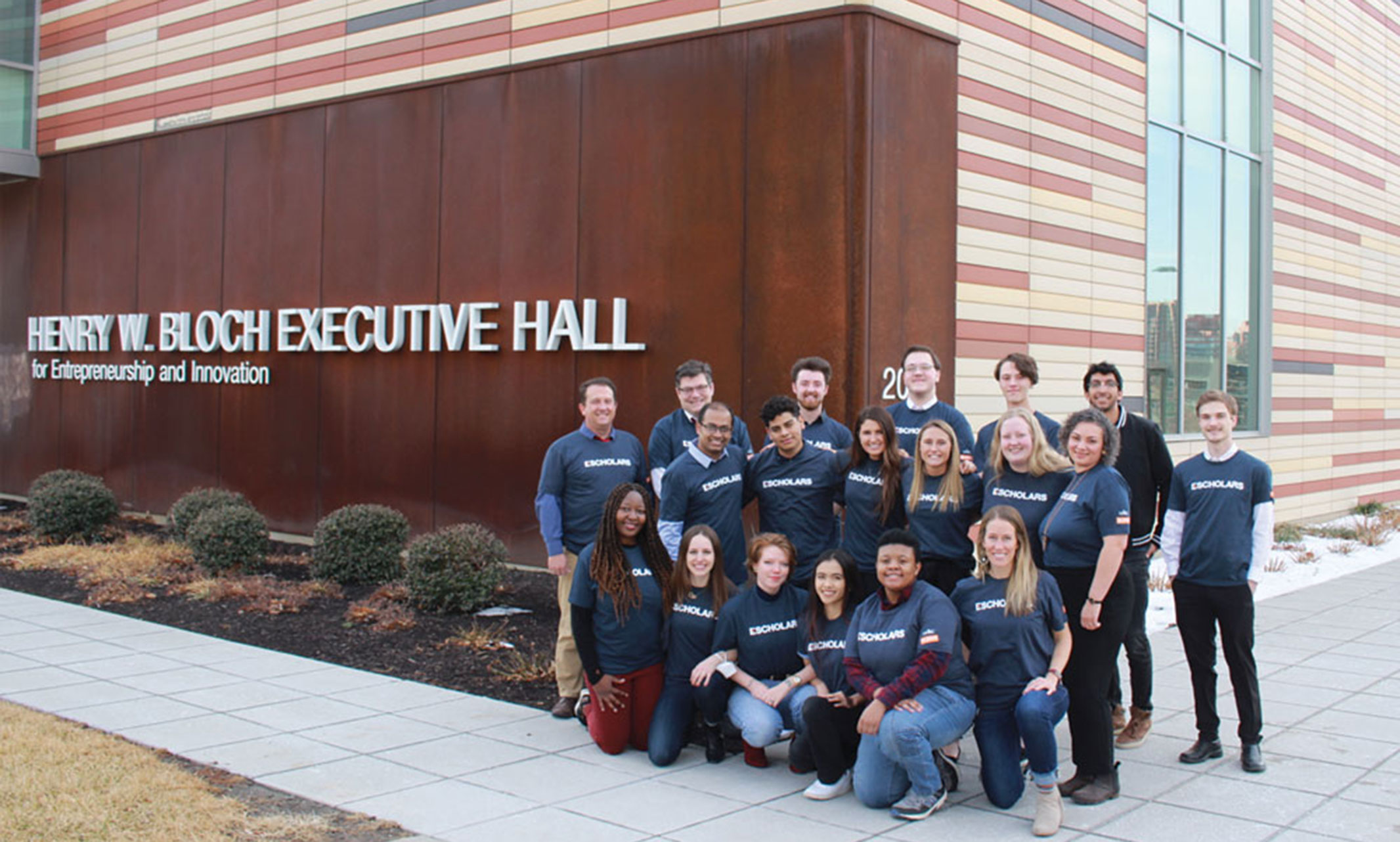
Program takes early-stage ventures from idea to business plan
The Bloch School’s Entrepreneurship Scholars, or E-Scholars, program has crossed a milestone, now helping more than 300 startup ventures find their footing in the business world.
“The research on how to help startups develop themselves suggests that startups should be treated like scientific experiments,” says Alex Matlack, director of the E-Scholars program. “We don’t tell them to go on their gut. We treat the company like an experiment, which allows them to be open about being wrong about their idea in some ways.”
The scientific approach was well-suited for A.J. Mellot, Ph.D., and his business partner Heather Decker, who went through the program in 2019.
“Heather and I are both scientists by trade, and the E-Scholars program really helped us get aligned with the business side of the things. When we started talking to partners and investors, we had the vocabulary to do so,” Mellot says. “Had we not gone through E-Scholars, I don’t think we could have done that.”
E-Scholars focuses on early-stage business ventures. Most participants begin the program in the idea stage, seeking to build their dreams into a business plan. In some cases, however, they have already launched their companies and are looking to create a plan for systemic growth.
The program supports ventures from all industries and technology types. Since its launch in 2011, E-Scholars has supported businesses developing mobile apps, enterprise software and medical devices, consulting businesses, retail, restaurants, fashion, nonprofits and education.
Participants spend the first months of the program testing their business hypothesis through customer interviews, product testing and prototyping. Following that, participants take part in “mentorship madness.” Matlack says to think of it like speed-dating for business relationships.
“We have them meet with 10 mentors and basically have the same conversation every 15 minutes. By the end of the day, you can already see their confidence growing. That’s when the fun really starts,” says Matlack.
With the help of the program, Mellot and Decker expanded and fleshed out their bioscience company, Ronawk, which has developed a technology to allow for rapid cell growth to be used for tissue and organ transfers. The company’s goal is to expand a patient’s healthy cells to engineer organoids, or grafts, that can be used in lifesaving surgeries.
“This program allowed us the opportunity to meet with so many other local businesses that were just starting, and we got to know a lot of peers and were able to support them from the beginning,” Mellot says. “Everyone in the class was supporting each other, and we have so many dear friends that we continue to champion.”
Since graduating from the program, Mellot says Ronawk has grown from Decker and himself to seven employees, with a likelihood of further expansion.
“We’ve grown our revenue every year. We’ve really started to see a lot of attention,” Mellot said. “We are engaged with over 70 companies that are either trying our products or piloting them.”
Jul 20, 2022
Local startup company hires multiple grads from UMKC’s Enactus program
Andrea Savage (B.B.A. ’19), Chad Feather (B.B.A. ’17), Brad New (B.A. ’13) and senior Riddhi Sharma all became involved in Enactus during their time at UMKC, and it led them to another common experience. They all now work for Daupler, a Kansas City-based startup company that uses intuitive technology to streamline internal and external communication for public utilities.
Working in a startup means frequently drawing upon knowledge about a wide range of business disciplines and, at the same time, leveraging entrepreneurial skills. The “Bloch team” now at Daupler all agree that Enactus helped them prepare for the challenges and opportunities offered at a new venture.
“The ability to identify a need, dissect a problem and figure out the resources and people you need to get the job done is something that Enactus really thrives at,” said Feather, currently director of operations at Daupler.
“One of the biggest things I learned at Enactus was how important it is to take initiative,” said Savage, a project manager. “You never know what you’ll need to do at a startup, so you might as well be a jack-of-all-trades.”
“I’ve worked with people from different backgrounds and cultures,” said Sharma, a former Daupler marketing and sales intern. “I’ve worked with people and on projects I never would have if it weren’t for Enactus.”
Ben Williams, faculty advisor for Enactus, said the organization encourages students to engage with the full entrepreneurial process, from inception to execution.
“It gives students a tremendous opportunity to make a real, sustainable impact on the world while building skills across many disciplines,” Williams said.
Brad New, a senior client success specialist at Daupler, agrees Enactus instills valuable, transferable skills in its members.
“Enactus helps prepare you to problem solve with limited resources,” said New. “In a startup environment, you might have to ‘fail fast’ to determine if an idea works or not, so you can focus on what will help reach your goals.”
Savage was Daupler’s fifth hire. She learned of the company after receiving a message from CEO John Bertrand on LinkedIn.
“I thought it was spam,” said Savage. “I didn’t reply at all the first time he messaged me, but after the second time I realized it probably wasn’t spam and decided to talk with him.”
Savage was considering the job when she heard from Feather, her former Enactus teammate. He encouraged her to take the job.
“I had done some research on Daupler, so I knew they were a great organization,” said Feather. “I didn’t know at the time that I’d end up joining the company nine months later.”
“I’m still close friends with a lot of my friends from Enactus, and occasionally we work on projects together,” Feather added. “It’s a great network beyond college.”
Jul 20, 2022
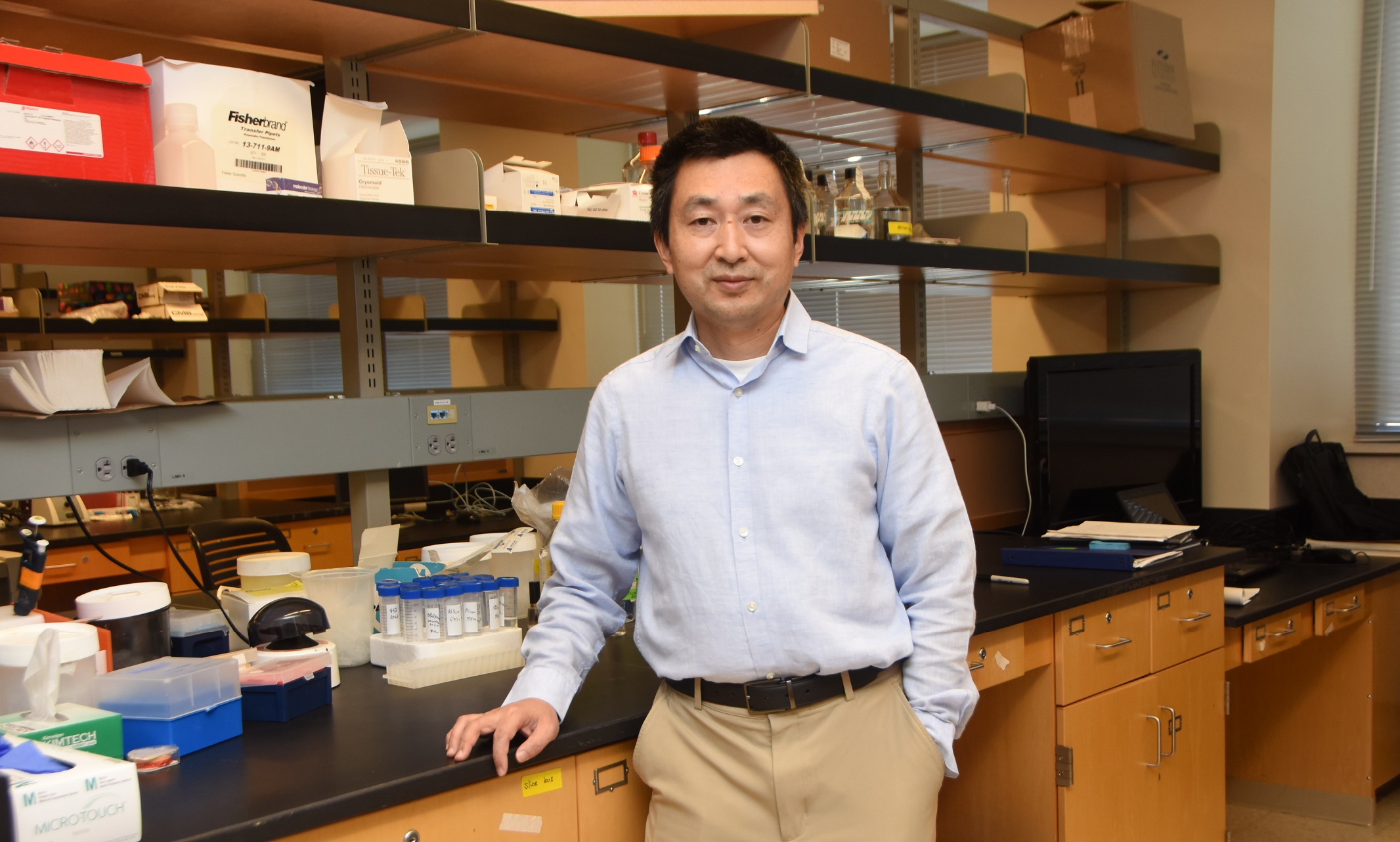
The grant funds research that could help develop better treatment for stroke recovery
Xiangming Zha, Ph.D., School of Pharmacy, received a five-year grant from the National Institutes of Health to study how part of the brain is affected during a stroke.
Zha will study how the GPR4 protein affects the blood-brain barrier during a stroke. The blood-brain barrier is a structure that regulates movement of nutrients and signals between the bloodstream and brain. Understanding how to protect this barrier may help us develop better therapeutic treatments for people recovering from strokes.
The grant, which is funded through the National Institute of Neurological Disorders and Stroke, includes $387,295 for the first year and a total of $1.94 million over five years.
“This NIH grant ensures support for this lab and our research for the next five years,” said Zha. “I am thankful for this team of collaborators and students; the research they are doing is important to help better understand the brain and improve outcomes in stroke patients.”
Zha has been researching the brain for years and has several projects in process at UMKC. School of Pharmacy faculty William Guthiel, Ph.D., and School of Medicine faculty Xiangping Chu, Ph.D., are collaborating on this research and will continue to do so, along with postdoctoral fellow and graduate students.
The National Institutes of Health, a federal medical research agency, is the largest public funder of biomedical research in the world. The organization invests more than $32 billion annually to reduce illness and disability and improve quality of life.
Jul 20, 2022
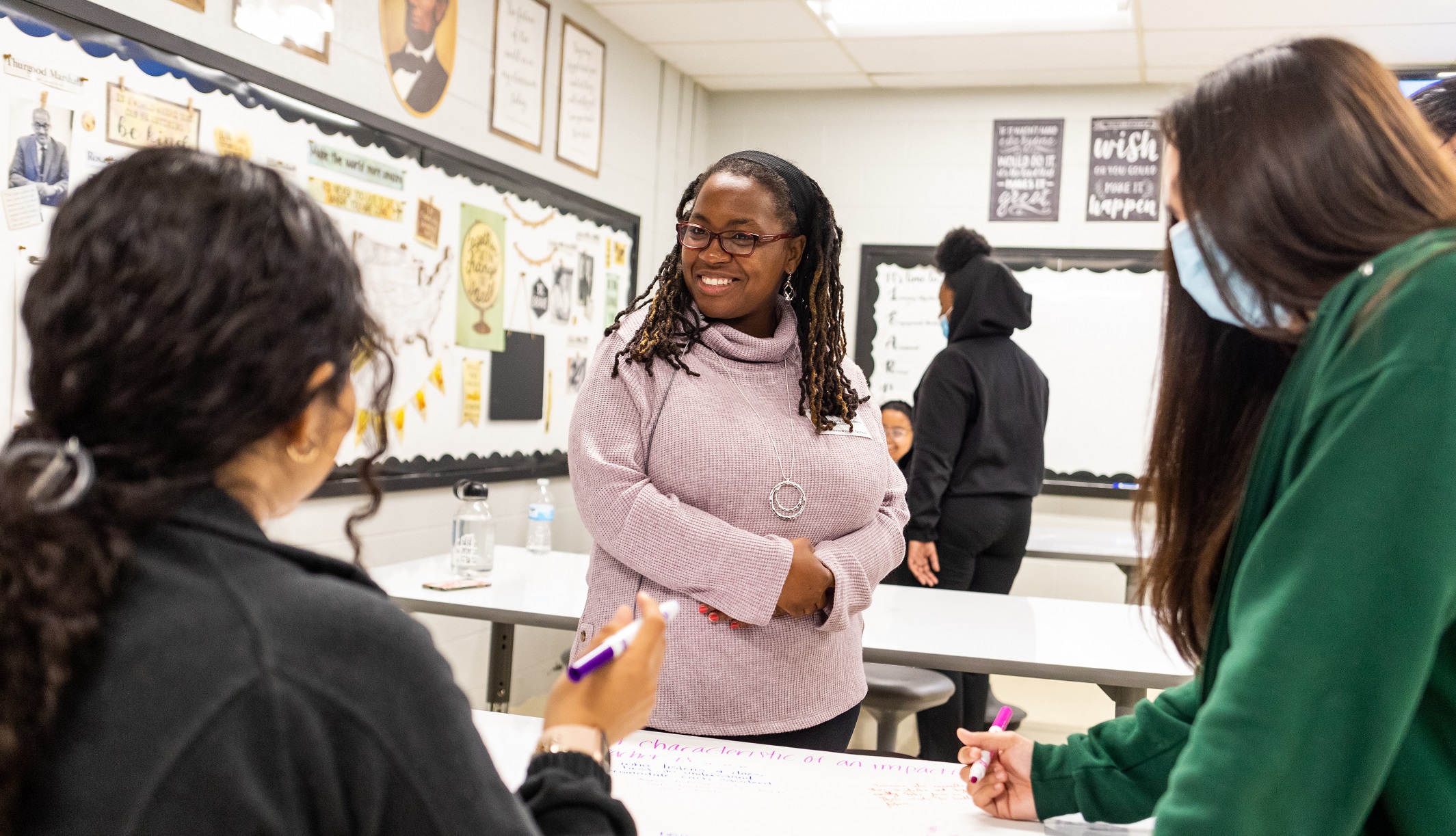
SchoolSmartKC funding accelerates student recruitment and program development
Funding from SchoolSmartKC supports the UMKC School of Education, Social Work and Psychological Sciences in growing programs to further meet the critical need for educators, particularly in the urban core.
SchoolSmartKC is a significant partner, both financially and philosophically, for the UMKC School of Education, Social Work and Psychological Sciences (SESWPS) and the Institute for Urban Education (IUE.) In the last year SchoolSmartKC (SSKC) has granted funds for the IUE’s Grow Your Own program as well as Project Recruit, Support, Retain, which bolsters student support and recruitment for the new 4 + 1 Master of Arts in Teaching (MAT) program. SSKC also provided support for Spring 2022 graduates who will teach in the Kansas City Public School System.
The partnership between IUE and SSKC is a natural one. Both organizations are working to optimize teacher and student success and eliminate the achievement gap for students in Kansas City, in addition to rethinking long-held tropes around teaching.
“I think everyone needs to keep in mind that teaching is very complex,” says Angelique Nedved, chief program officer for SSKC. “All of us come to learning with different backgrounds, different experiences and a different set of resources. However, when we have school as a structure, we tend to forget that, and we cluster people by their birthday, or maybe their interests.”
Nedved says it's imperative to talk about learners having individual needs. One reason SSKC partners with UMKC is because the SESPWS is actively tailoring curriculum to serve the individual student and the community. In addition, both organizations have goals to provide support that bolsters teacher pipelines, so that high school students have the opportunity to see what effective teaching looks like and demonstrate that being a teacher is impactful and fulfilling.
“We focus on entities like IUE and UMKC because they have evidence of not only attracting, but also recruiting students of color who are interesting in teaching, and then providing the supports students need to succeed in the program and stay within their community to give back through education,” Nedved says.
“IUE is fortunate to work with a group of funders who are committed to long-term support of the teaching profession, from recruitment to preparation and into teachers’ careers." - Jennifer Waddell, Ph.D.
Rebecca Williams, director of talent development at SSKC, notes that teaching during the last two years has highlighted that learning is not one-size-fits-all for students or educators.
“If we are going to continue to have strong pipelines of talent, and teachers who are relating to students – from those who have the most troubling experiences, to those who find success with ease – we need to recognize that everyone can benefit from understanding those who look different within these systems that have been in place for so long,” Williams says.
SSKC sees SESWPS and IUE as valuable partners in building those pipelines of teachers. The funder’s support of the IUE GYO program has helped the program expand to additional schools as well as celebrate current high school students at a GYO symposium on UMKC’s campus.
Williams says the investments is a strategy to avoid future teacher shortages.
“If we bolster these pipelines early on, to attract people to teaching and ensure they understand what teaching can be and demonstrate the feeling of ‘This is why I want to be a teacher, and this is where it can take me,’ when they are offered the opportunity, they will be likely to opt in,” Williams says. “Over a number of years, that creates a stronger pipeline.”
In addition to support for the GYO program, SSKC’s gift is supporting current teacher preparation programs at UMKC, including the Master of Arts in Teaching (MAT). The MAT is part of the Teacher Education Professional Program. A one-year program, the MAT is designed as a cohort-based program for anyone with an undergraduate degree who is interested in becoming certified as a teacher with an additional year of coursework.
The program is structured to provide students with foundational knowledge of classroom practices, lesson plan instruction and assessment and experience that enhances effective teaching. Students can earn certification for middle or high school as well as K-12 foreign languages and/or art certification.
Jennifer Waddell, Ph.D., associate professor and IUE director, knows committed funders and their support have more influence than through donations alone.
“IUE is fortunate to work with a group of funders who are committed to long-term support of the teaching profession, from recruitment to preparation and into teachers’ careers. SSKC is one such funder. We are grateful for their support.”
Jul 19, 2022
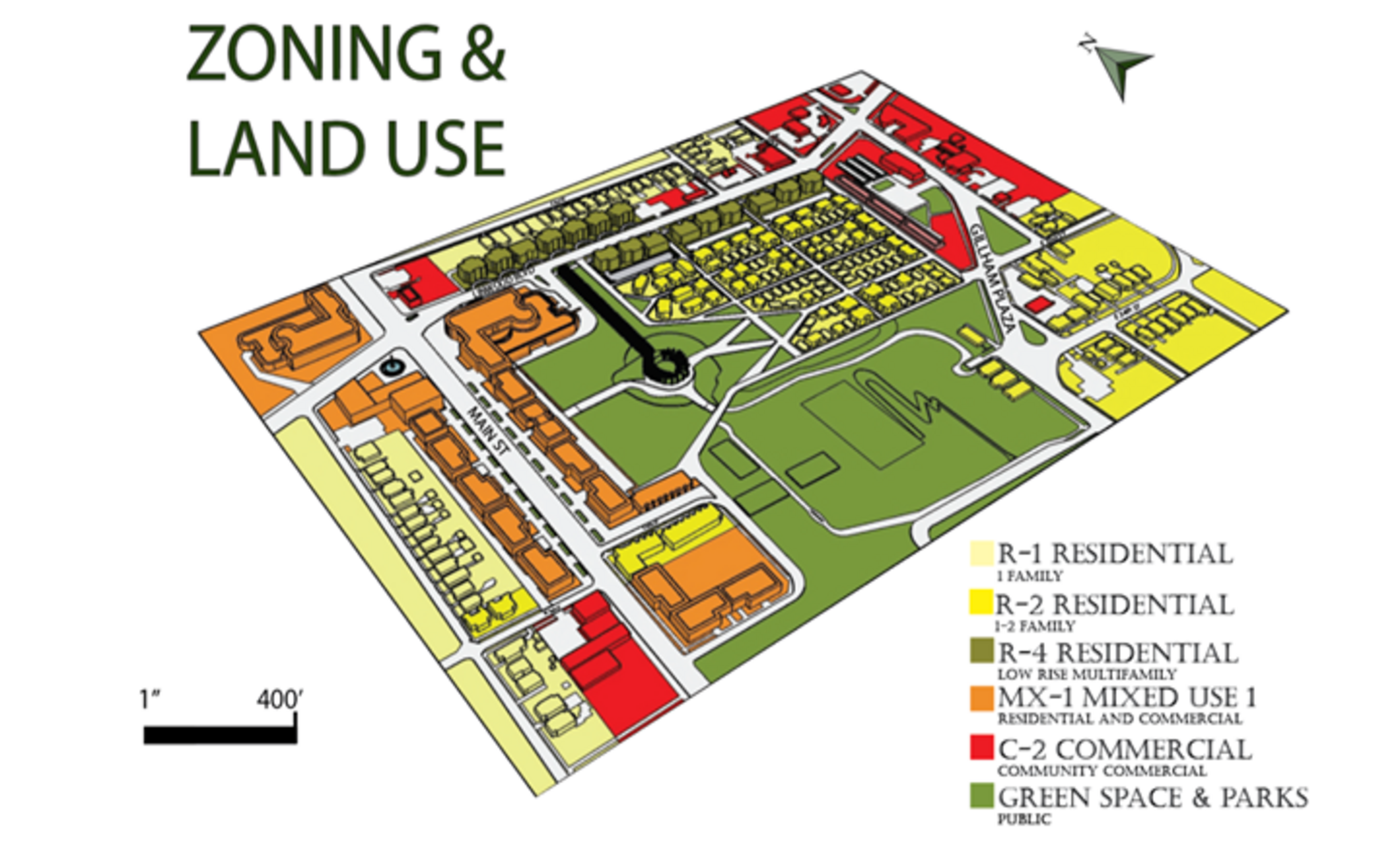
The project looked at redeveloping a popular intersection in Kansas City
Three seniors studying Urban Planning and Design at the University of Missouri-Kansas City School of Science and Engineering won the Nichols Student Prize for work on a fictional redesign of a Kansas City corridor.
The Nichols Student Prize recognizes students for developing innovative urban designs and developments as part of the UMKC Urban Planning + Design Program. This year, students were tasked with examing development at Main Street and Linwood Boulevard, a major corner along the extension of the KC Streetcar south line from Union Station to Westport.
Tianna Morton won the top prize for her design, "The Garden District." Morton's development focused on removing big-box retailers and instead replaced them with a mix of housing types and a new park.
"I felt that in place of Costco and Home Depot, what would benefit growth and promote accessible homeownership would be the addition of a new neighborhood," Morton said. "The neighborhood would consist of tiny homes, small single-family homes, duplexes and a small apartment building to accommodate a myriad of people."
Morton said the project was exciting for her as she used to live in Midtown near the fictional project's location.
"When it was announced that I had won, I was surprised and grateful," Morton said. "All the students proposed wonderful, creative and thoughtful projects."
In addition to Morton's win, Jazmin Bustos and Luke Bertram both took home second place in the competition.
The jury was impressed with Bustos's inclusion of community institutions, like a childcare facility and a library, as part of her plan for the site. Bertram's "appealing sense of urbanism" for a public square helped him place.
Jul 19, 2022
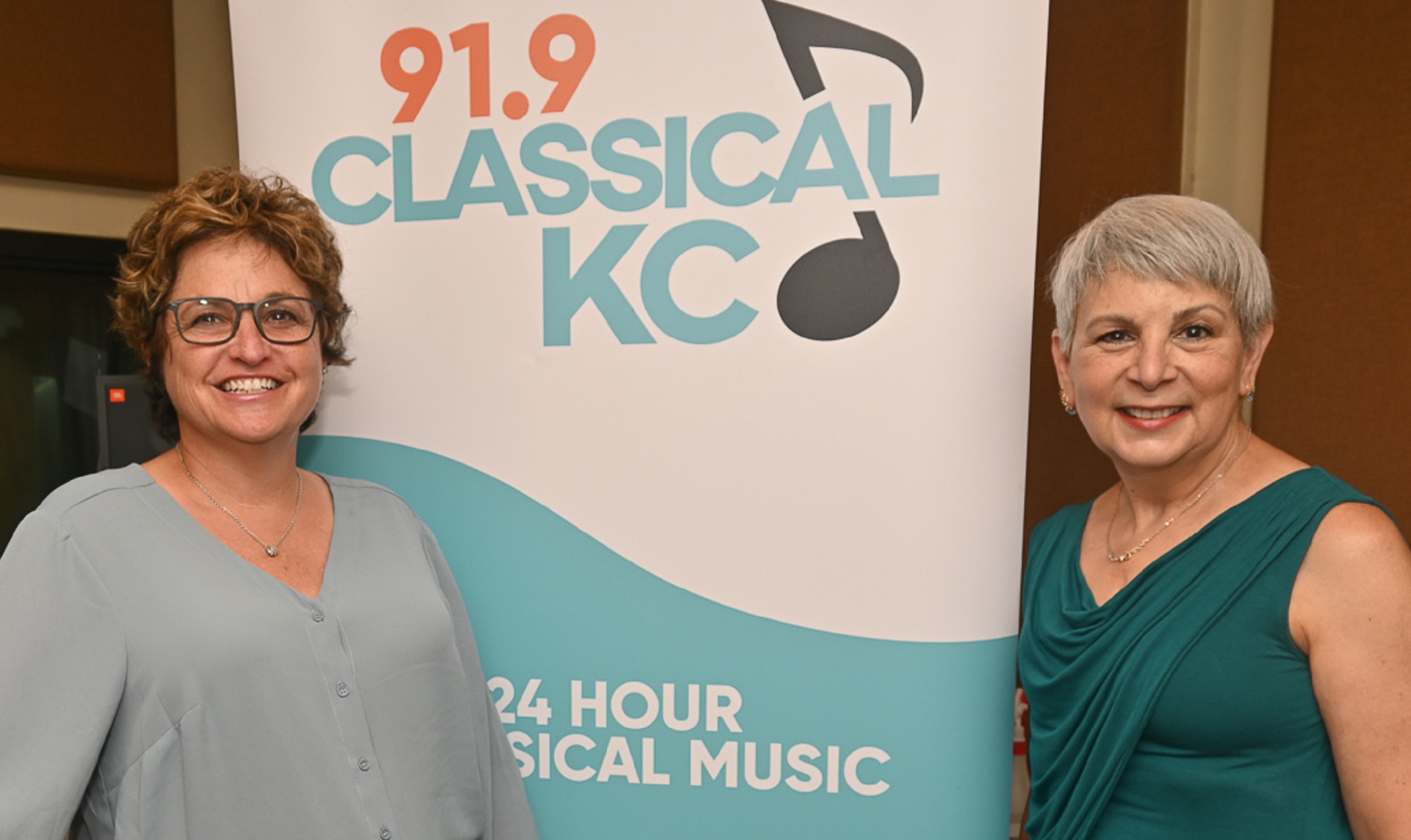
A lifelong love of classical music and original arts programming leads to endowment
UMKC Professor Emerita Linda Mitchell, Ph.D. grew up listening to classical music.
“We lived in the Philadelphia area, and we had wonderful classical music stations there, even before public radio,” she says. “I was a teenager when public radio started, and NPR’s programming became a lifeline for me.”
Mitchell, who has lived mostly on the east coast, was accustomed to having classical music available on the radio around the clock. She’s been in Kansas City since 2008 and has been a sustaining member of KCUR since she arrived. She relishes KCUR’s regular programming—especially Chuck Haddix’s Fish Fry—but missed that easy access to anytime classical music. So, when Mitchell learned about plans for 91.9 Classical KC, a sister station featuring classical music with a goal to create local programming that focused on the Kansas City culture and music scene, she was thrilled. That it launched in July of 2020, at the beginning of the COVID-19 pandemic, was a gift.
“It's not so much that classical music is always relaxing, but there's something about the cadences and structure and the technical aspects of classical music of all eras, that actually settle me down. It’s a wonderful accompaniment to work and a great thing to listen to as I fall asleep.”
While Classical KC’s regular programming was her original draw, Mitchell became more invested in the station once she found out that a goal of the station was to increase diversity in both staffing and programming selections. Already committed to supporting the station, conversations with the station’s development team led to her endowed gift supporting local programming.
“I think that philanthropy for public radio stations can be envisioned in two separate lanes. One is the bottom line fundraising – such as membership drives – that has to happen, but is focused on meeting immediate needs.”
Mitchell sees the other lane as long range solutions that provide security for institutions that create value for the community.
“The only way to do that is through endowments where the principal can grow and then the income can be used. With the growth of the fund, eventually it might replace some of that desperate fundraising that goes on every year.”
Mitchell sees an endowment as an optimistic testament that the organization is going to survive and thrive. David Fulk, director of philanthropic giving, confirms that gifts such as Michell’s do just that.
“The significance of Mitchell’s endowed fund is providing long term security for the station which, in turn, will ensure that future generations of listeners have access to local classical music programming,” he says.
Sarah Morris, general manager KCUR 89.3 and Classical KC 91.9, says support like Mitchell’s is essential to public radio in Kansas City.
“The vast majority of our funding comes from local donors like Linda, and we wouldn’t be here without them. Particularly with Classical KC, we rely on the people in our community with a passion for classical music who want to ensure that everyone has free access now—and in the future,” she says.
Mitchell sees herself as a pragmatist.
“This is the craziest center for art and culture I have lived in in my life,” Mitchell says. “Kansas City is bursting at the seams with all kinds of cultural events and spaces. It is actually a little overwhelming! It made sense that Classical KC wanted to tap into that energy and promote the diversity of the city as well the idea that classical music is for everyone.”
Jul 19, 2022
Larry Wigger spoke with KSHB about the surging demand
Local car dealers say thy are seeing an increase in electric vehicle sales in the face of rising gas prices.
Larry Wigger, an assistant teaching professor at the Henry W. Bloch School of Management, spoke with KSHB about the pros and cons of going electric. Read more
Jul 14, 2022
Dean Mary Anne Jackson, MD weighed in on rising COVID cases
The new COVID-19 variant, BA.5. is contributing to an increase of cases in the Kansas City area.
School of Medicine Dean Mary Anne Jackson, MD spoke with KCUR's Nomin Ujiyediin about the new variant and its impact. Read more
Jul 14, 2022
Beth Vonnahme, Ph.D., associate dean of political science and philosophy spoke with KMBC
According to new voter registration figures from the Secretary of State, more Kansas voters are opting not to affiliate with either major political party.
Beth Vonnahme, Ph.D., associate dean of political science and philosophy, spoke with KMBC about the increase in unaffiliated registered voters in Kansas and across the country. Read more
Jul 14, 2022
Fengpeng Sun, Ph.D. and Irma Russell J.D. weighed in on KCUR
Law Professor Irma Russell and Assistant Professor and Climate Scientist Fengpeng Sun, Ph.D. were guests on KCUR's Up To Date.
The pair dicussed the recent Supreme Court decision, which limits the Environmental Protection Agency's authority on limiting carbon emissions. Read more
Jul 14, 2022
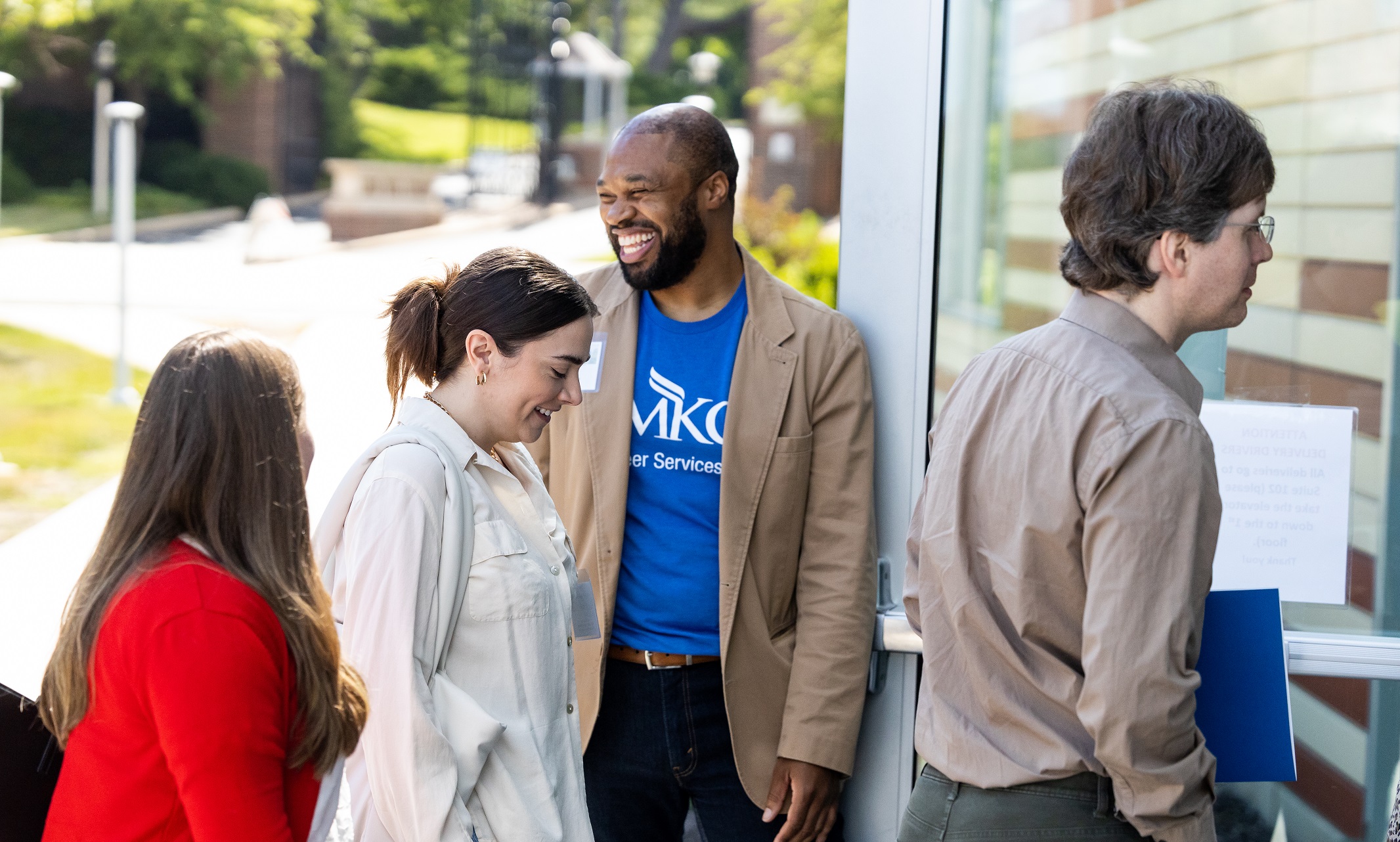
Nearly 200 people attended the summit to collaborate and learn about hiring the next generation of professionals
Connecting with this generation of students and young professionals may require thinking outside of the box. The KC Early Talent Summit hosted hiring professionals from more than 90 local companies and organizations to discuss the opportunities and changing landscape when it comes to hiring and working with young professionals.
Topics included diversity, equity and inclusion, recruitment and retention, building a recognizable brand on campus and alternatives to traditional internships.
“We hope this Early Talent Summit will benefit our students and organizations in town,” said Goldie Gildehaus, assistant director of UMKC Career Services. “We want to build talent pipelines and early connections between students and professionals to help everyone be successful.”
Several UMKC students and recent alumni had the chance to talk to attendees about the hiring process from a potential employee’s perspective. They noted how important communication and flexibility are to them, as well as the role that networking and career services can play.
“I was at Bloch Career Center all the time,” said Kyle Potts (BBA ’22). “I can’t count how many times they looked over a resume for me or connected me with someone they knew. The internship I got in college is actually one I heard about through them. You never know where you’ll learn about an opportunity.”
This is the first year UMKC has hosted the KC Early Talent Summit. It developed as a partnership between several UMKC entities, including Career Services, Bloch Career Center, the UMKC Board of Trustees and Professional Career Escalators.
Jul 14, 2022
One of the first times a Missouri institution has been awarded a graduate education and research grant from the NSF
The University of Missouri-Kansas City has received a $3 million grant from the National Science Foundation Research Traineeship Program to study and mitigate alcohol and drug abuse using AI and Secure Networked Sensing.
It is one of the first times a Missouri institution has been awarded a graduate education grant from the NSF.
"This is a fantastic project, not only for the research team and graduate-level students involved, but also for the university as a whole, which will receive national attention for this groundbreaking work," said Chris Liu, Ph.D., vice chancellor of research and dean of the School of Graduate Studies.
The research team will be led by Farid Nait-Abdesselam, Ph.D., a professor in the School of Science and Engineering, and includes Masud Chowdhury, Ph.D., Mostafizur Rahman, Ph.D., Dianxiang Xu, Ph.D., Yugyung Lee, Ph.D., Ahmed Hassan, Ph.D., and Yusuf Uddin, Ph.D., all professors at the School of Science and Engineering. The team will also include Ye Wang, Ph.D., Ryan Copus, Ph.D., Arif Ahmed, Ph.D., George Gotto IV, Ph.D., Martha B. McCabe, Arnold Abels, Ph.D., Brent Never, Ph.D., and Alexis Petri, Ph.D.
The project will hire and support 20 Ph.D./MS students and impacts over 100 additional graduate students. Students will come from several different programs across campus.
"Students involved in this research will be exposed to so many faculty members from different disciplines. Interdisciplinary study is extremely critical to our students in today's graduate education," Liu said. "This project is not only an opportunity to learn, but to expose students to a real-world research project to address crucial societal issues."
The research is slated to last at least five years and begin in July.
The NSF is an independent agency of the United States government that supports fundamental research and education in all non-medical fields of science and engineering. Yearly, the agency gives out roughly 12,000 new grants.
Jul 11, 2022
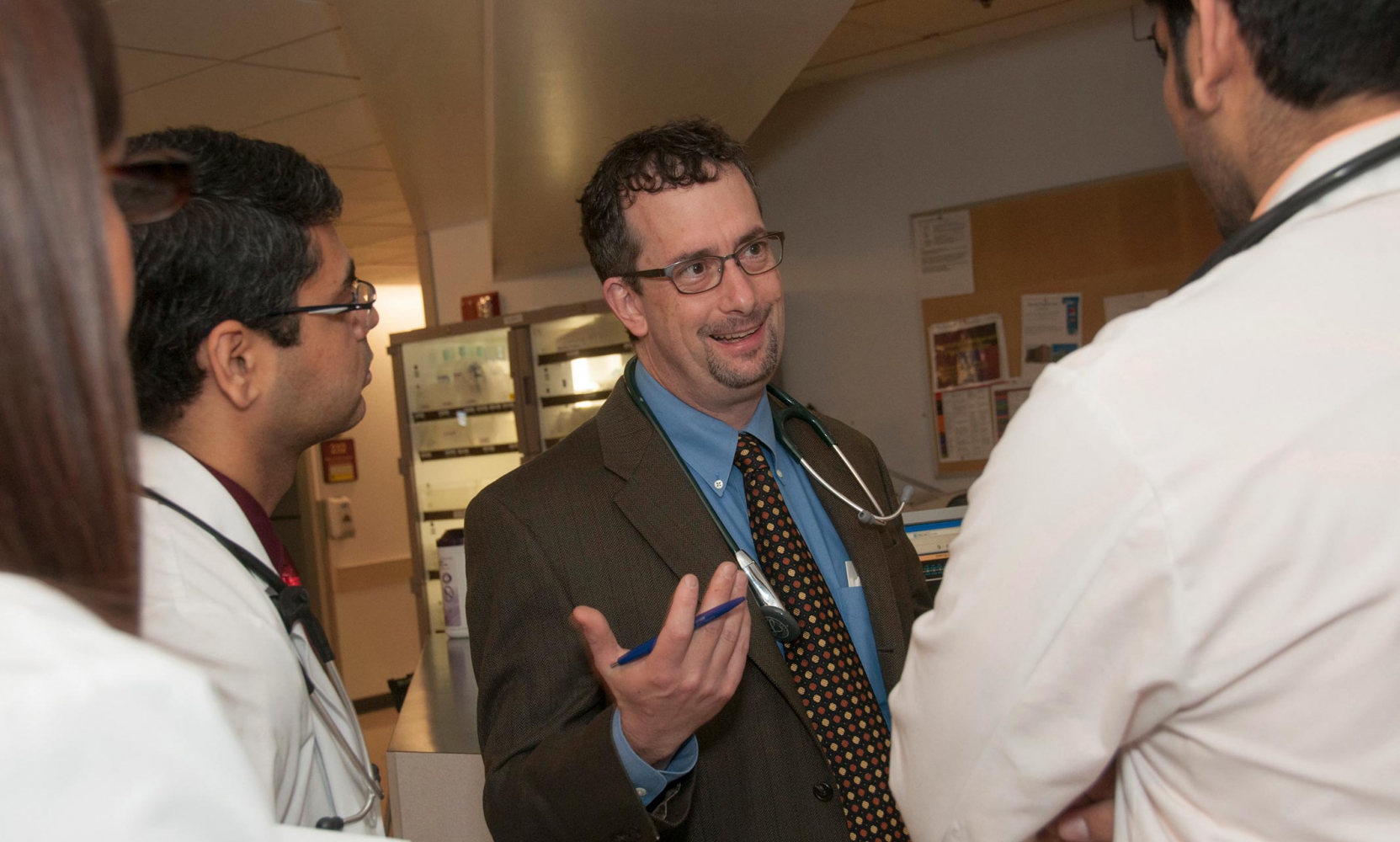
Grant for nearly $2 million will support formal training, mentorship and research experiences
The UMKC School of Medicine has received a nearly $400,000 grant from the National Institutes of Health to continue and build upon a successful two-year training program in clinically oriented cardiovascular disease outcomes research through the Department of Biomedical and Health Informatics and UMKC’s new Healthcare Institute for Innovations in Quality (HI-IQ). The funding covers the first of five years of support through the National Heart, Lung and Blood Institute, bringing the total grant funding to just less than $2 million.
Immense research investments have improved the care of patients afflicted with cardiovascular disease, the leading cause of death and disability in the United States. But continued evaluation of patient-centered outcomes, including patient symptoms, function and quality of life and how to apply that knowledge in clinical settings is needed, said John Spertus, M.D., professor, clinical director and endowed chair in metabolic and vascular disease research.“Collectively, our committed team will provide formal training, mentorship and research experiences for trainees to make significant contributions to the scientific literature, embark on successful academic careers, and improve the value and patient-centeredness of medical care,” Spertus said.Hands-on research is one of the key components of the program that provides a basic foundation in clinical research, including a master’s degree in bioinformatics with a clinical research emphasis, and specialized skills for outcomes research, coupled with academic survival skills.Hallmarks of the research experiences include multi-disciplinary group and individualized mentorship to meet each trainee’s needs, as well as access to numerous existing data. Clinical populations for primary data collection and implementation, training in entrepreneurship and highly experienced statistical support are provided to support trainees’ success.Program enhancements are also planned that include a more robust collaboration with the University of Missouri system, increased engagement in clinical trial design and a growing focus on implementation science with access to HI-IQ’s multistakeholder collaboration of 19 regional hospitals.
Jul 08, 2022
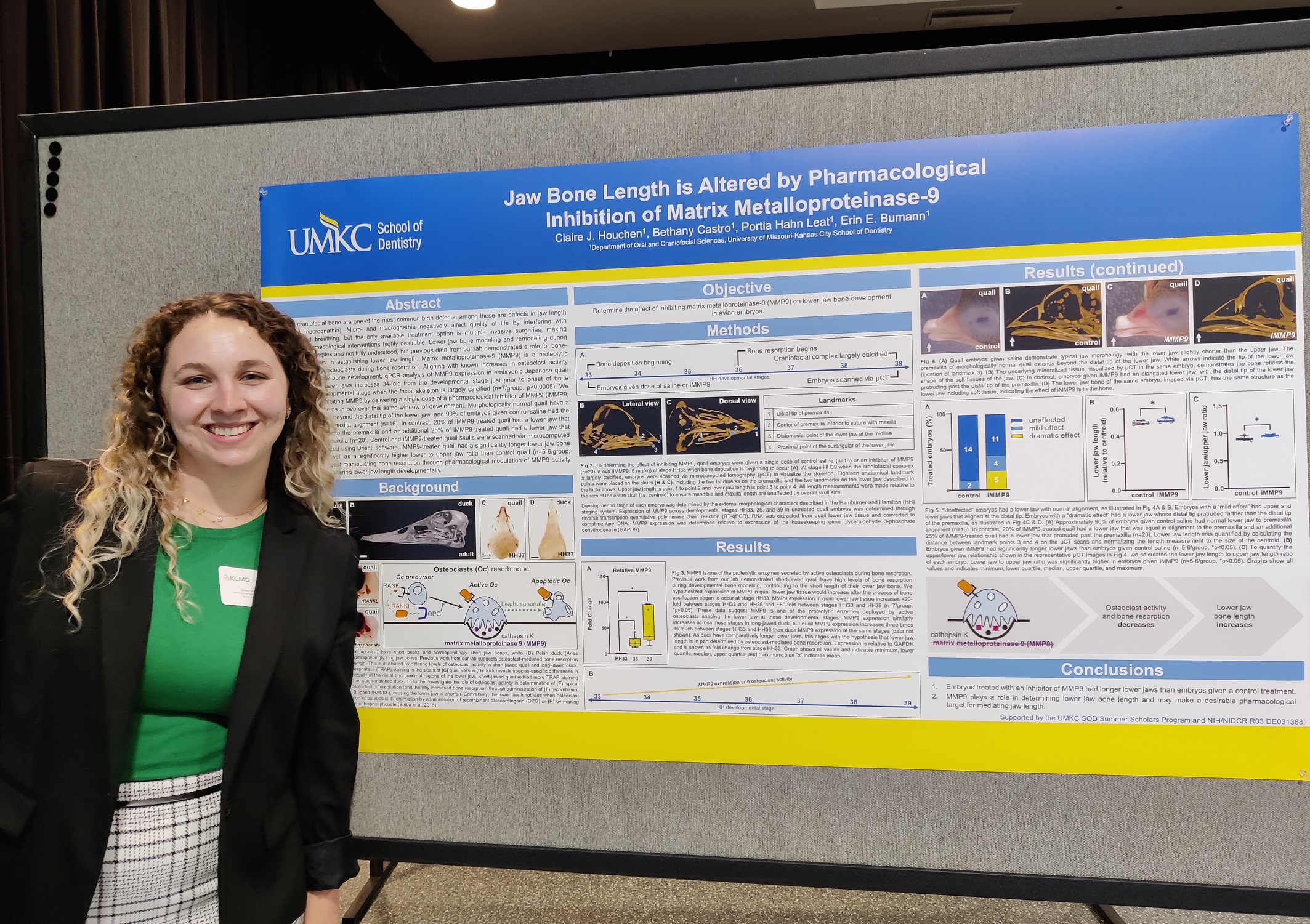
Student, professor share focus, outlook
Roos don’t just dream, they do. Our students turn ideas into action every day. Get to know our people and you’ll know what UMKC is all about.
Claire HouchenGraduation year: Spring 2024UMKC degree program: M.S. InformaticsHometown: Louisburg, Kansas
In the final year of her undergraduate studies, Claire Houchen was looking to expand her research experience. She recognized the value of mentorship early in her career, so she emailed a former professor who helped her make a valuable connection.
Houchen, M.S. bioinformatics ’24, was able to meet with Erin Bumann, D.D.S., Ph.D., assistant professor, Department of Oral and Craniofacial Sciences just before the COVID-19 pandemic shutdown.
“I had a good feeling,” Houchen says. “I felt like this was the right place for me and the right time.”
Bumann was impressed by Houchen’s accomplishments, which included working in a research lab immediately after high school.
Erin Bumann
“You could tell that Claire was someone who was really ambitious, dedicated and interested. All of those things are very important when getting started in a research lab,” Bumann says.
Bumann had mentors who were instrumental to her success when she was a student.
“Without the mentorship I received during my undergraduate studies, dental school and post doctoral training, I wouldn’t be in the position that I’m in today,” Bumann says.
Both women agree that a strong connection between the mentor and mentee is important to the relationship.
“Dr. Bumann and I have a constant flow of conversation,” Houchen says. “We are always talking about everything related to our careers. I think this impacts my professional journey as well as my educational one.”
Bumann notes that one of the keys to a successful mentor/mentee relationship is that both sides are willing to invest significant time and focus to make the experience successful.
“Compassion, honesty and an investment in growth are important, and I think that needs to come from both sides,” Bumann says. “And this is true of Claire, but in general one of the most wonderful things about having students in the lab is the energy it brings.”
Despite the camaraderie, biomedical science is challenging. Mentor support can make a difference.
“When we’re doing experiments on the bench, failure is inevitable and that’s tough,” Houchen says. “Sometimes it’s discouraging and overwhelming, but you learn from it and move forward. In addition, navigating science culture can be challenging, especially if your position is underrepresented. At times, I think the way that Dr. Bumann challenges me is just by telling me to hang in there. It’s easier said than done, but it’s helpful to have someone walk you through what it looks like.”
While there are formal mentoring programs in place, Bumann encourages students not to wait for a professor or someone else to suggest it.
Clare Houchen
“Lots of people are willing to mentor students, but the student may need to initiate. Just put yourself out there. You never know how a mentoring relationship might change your life.”
Houchen has reached out to potential mentors throughout her education. She agrees that students may need to take the initiative, but they are likely to benefit.
“As an undergraduate I had a biology professor who I respected. I really enjoyed talking to her and would go to her office hours. I’m still in touch with her.”
Bumann has witnessed Houchen in the mentoring role as well.
“Claire helps the undergraduates in the lab with their projects, so not only is she growing from mentoring herself, but she is taking it to the next level and being a mentor for others.”
Jul 05, 2022
Part of the funding was appropriated by the state
The University of Missouri-Kansas City unveiled plans for a new $100 million addition to its Health Sciences District.
This new project will take the Health Sciences District to the next level, sparking development to turn the campus into a regional draw while igniting entrepreneurship and economic growth for the city and region.
Read more
Jul 05, 2022
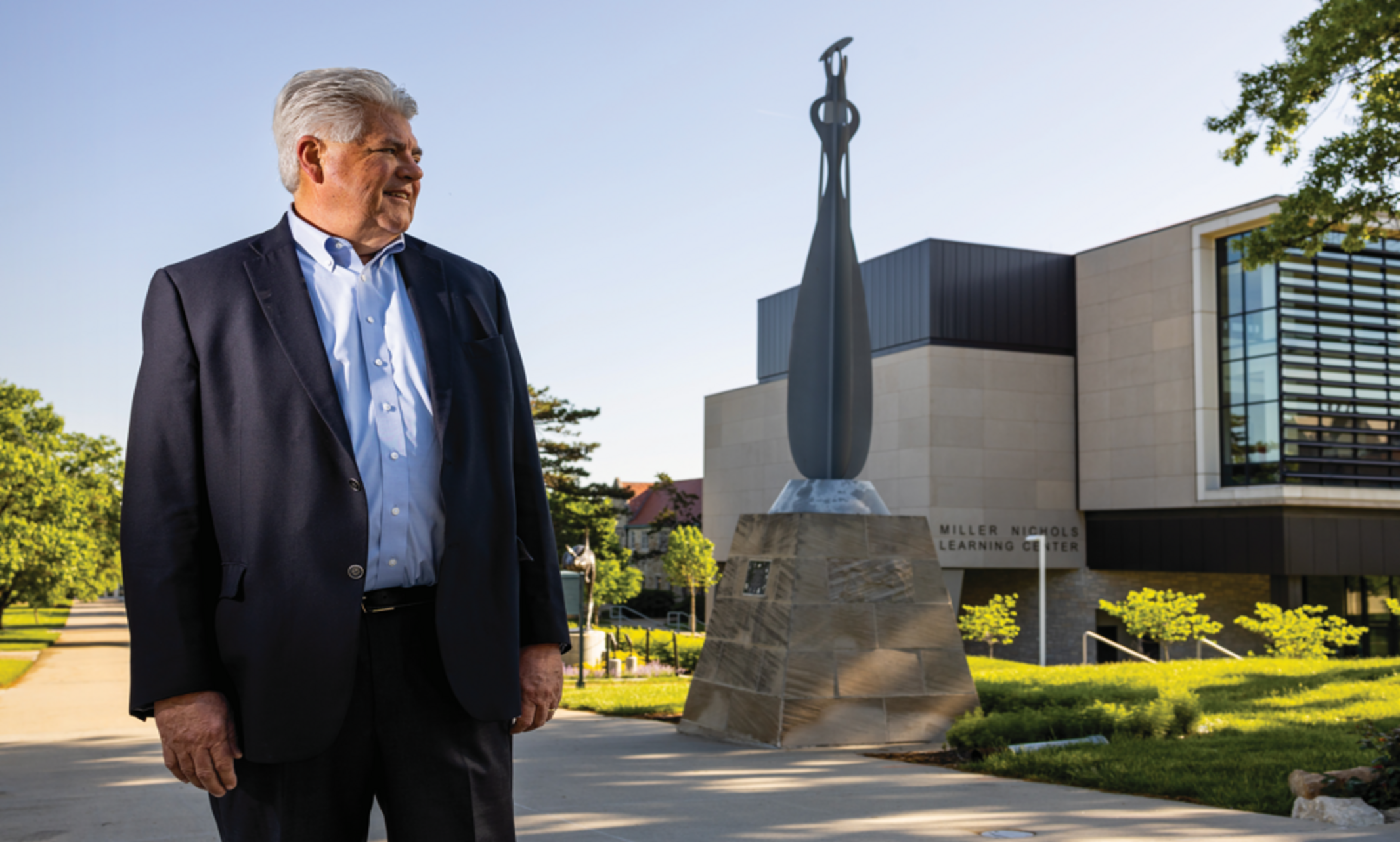
Hard work and persistence paved Judge Robert Altice Jr.'s path to the bench
As a young man, Judge Robert R. Altice Jr. (J.D. '87) was so unfamiliar with entering law school that he submitted his application too late to be accepted.
But that slight misstep early on did not keep him from a distinguished career that led to a seat on the Indiana Court of Appeals, the second-highest court in the state. Support from his family and a tenacious spirit allowed Altice to overcome the challenges he faced as a first-generation college student and rise to the top of his field.
Ascending the Legal Ranks
Altice began his legal career in Kansas City handling felony cases under Jackson County Prosecutor Albert Riederer. He remembers starting in the office his first day after passing the bar. Sitting at his desk, the boss came up with a stack of papers saying, "These are yours. There's a couple of murders in there. Get 'em worked up and get 'em ready for trial," Altice recalled. "They really kind of threw you in there."
After leaving the prosecutor's office, Altice focused on medical malpractice defense at the Kansas City law firm of Shughart Thomson & Kilroy, which later merged with the firm that is now Polsinello. Altice's memories from Kansas City include learning the ropes from assistant prosecutor Patrick Hall and taking law school classes taught by Professor Jack Balkin.
Altice and his family moved to Indianapolis in 1992. After a stint in private practice, Altice joined the Marion County prosecutor's office in 1994. He later won election and served on the Marion County Superior Court when then-Gov. Mike Pence appointed him to the court of appeals in 2015.
Altice had applied for a seat on the court of appeals twice before and had already decided his third attempt would be his last. Altice got to share high-fives and leaps of joy with friends upon getting word of his appointment when the governor's call came while Altice was on the golf course.
After calling his wife and parents, Altice had time to reflect. "I felt like my hard work and my parents' many sacrifices had paid off," he recalled. "I also thought about the huge responsibility I was about to take on and what an honor it was to be selected."
Altice's parents robed him at his investiture.
Humble Beginning
After missing that law school application deadline, Altice took a detour and earned a master's in criminal justice administration at what is now the University of Central Missouri. The silver lining to that change of plans, he said, is that he improved his grades from his undergraduate years and gained the confidence to succeed in law school.
Altice's parents, Robert and Louis, both from Rocky Mount, Virginia, instilled that drive to succeed in their son. Altice's father parlayed postsecondary training at an electronics school in Springfield, Missouri, into a long career repairing business equipment -- everything from calculators to computers. His dad's promotions kept the family on the move, including stops in New Jersey, Ohio and Kansas.
"They talked about their struggles and their lack of education," he said. "I just think they say (college) as the way to be more successful than they were, (and) when you eventually raise a family, to be successful at that as well."
Personal Success
In addition to pursuing his college education, Altice also prioritized his family life. He met his wide, Kris Altice (J.D. '89) when they were undergraduates at Miami University in Oxford, Ohio. Later, Kris joined him in Kansas City and she pursued a law career herself. Kris currently works as general counsel at the Indianapolis construction company Shiel Sexton.
Kris' appreciation for her husband's accomplishments stems in part from their contrasting upbringing, starting with the fact that she lived in the same house throughout her entire childhood.
The world of college was hardly a mystery to her when it came time to apply. Her parents met while attending Purdue University, and her mother served on the board of trustees at DePauw University. At age 33, and as the mother of five children, Kris' mom went back to school to earn her law degree, landing a position at a large Indianapolis law firm.
Small-town success stories typically involve kids whose parents were community leaders, like the sheriff of the superintendent or the principal, Kris said. Less frequent, Kris continued, is the tale of a boy who came from a family where the dad fixed typewriters and the mom prided herself on how she folded the laundry and cleaned the house.
"He came from nothing," she said. "He has an appreciation for all walks of life. He can befriend the wallflower, and he knows how to connect with people and reach out. He works hard, and when he says he is going to do something, he gets it done."
Her husband's transient childhood molded him into an extrovert, Kris said. He's the kind of guy who would befriend the elevator operator when such positions still existed, she said. The "overwhelming delight" of the overflow crowd at the ceremony marking his appointment to the court of appeals demonstrated the friendship and respect her husband enjoys.
The couple has two children: Kathleen, 27, and Jack, 30. Both kids followed in their parents' footsteps to attend Miami University. The Altices also have a niece who graduated from the UMKC School of Law this year.
An Honorable Achievement
Altice's parents are now retired and living in Tulsa, Oklahoma. All three of their children graduated from college, an accomplishment that brings them great pride.
Kris said it's likely that if you run into her mother-in-law at the grocery store, she will find a way to work in that she has a son who is a judge. And notes or cards from her always come addressed to the Hon. Robert R. Altice Jr.
"It's hysterical," Kris said. "There's no 'Bob.' She is so darn proud. It is just absolutely amazing. It brings tears to her eyes thinking about it."
Jun 30, 2022
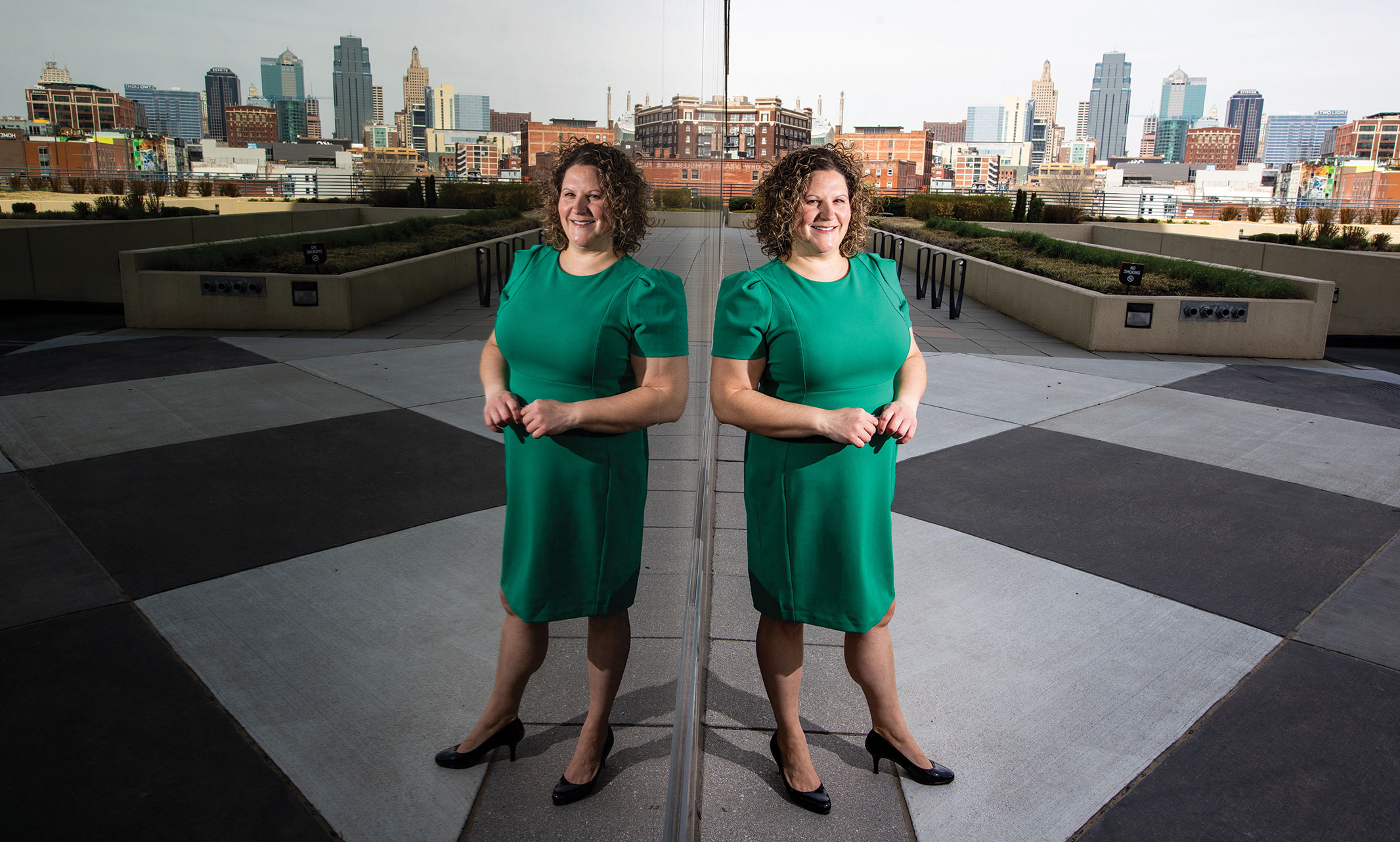
Associate city prosecutor adds significant volunteer work to demanding job and single parenthood
A mentor’s suggestion sent Jesse Sendejas (B.L.A. ’03, J.D. ’05) on the road to law school and a career dedicated to criminal justice in Kansas City, Missouri. Despite her demanding schedule, she finds time to volunteer in the community.
Sendejas worked at a doctors’ office during her first couple years of college at UMKC. When the practice split, she spent time with the attorneys who worked on the establishment of one of the doctor’s new practice. While observing Sendejas’s interaction with the team, her boss suggested her future career path.
“She asked me what I was planning to do, and I said I was interested in business,” Sendejas said. “She said, ‘I think law school would be a good idea for you.’ Even though I knew I wanted to go to college because I wanted a career, I didn’t know anyone personally who was an attorney growing up. But after her suggestion, I hit the ground running. Within six months I had taken the LSAT.”
Following graduation, Sendejas pursued civic work. Over time, she joined the Kansas City Prosecutor’s office. Shortly after, she began to pursue volunteer opportunities.
“After I started my permanent position with the City of Kansas City, I wanted to do more volunteering in the community, so I started volunteering at Big Brothers and Big Sisters of Kansas City and the Kansas City Metropolitan Bar Association Young Lawyer's Section, Public Service Committee.”
Her volunteer work with Big Brothers and Big Sisters led to a long-term relationship with her Little Sister, Jasmine, who is now an adult. Sendejas was a critical component of emotional and physical support of Jasmine through high school, including taking her to school when Jasmine’s mother was unavailable. She helped Jasmine apply and get accepted to college.
“Based on my experiences as a first-gen law student, I remembered how hard it was to do all of that alone and not know what resources were available. Probably subconsciously, that is why I have always wanted to mentor kids. I’ve seen the positive impact just a little encouragement can do. I wanted Jasmine to know that she could go to college – and a college away from home.”
The two are still in touch, even though Jasmine is in her early twenties.
Her volunteer work with the KCMBA has been equally rewarding.
“I volunteered and attended meetings for a few years until I became the co-vice chair of the committee. Then I worked my way up in the KCMBA leadership.”
Over the years, she’s found that KCMBA makes valuable contributions to the community, as well as connecting attorneys from all practice areas, and working for justice in the legal system.
“I think all of that is important to promote and be involved in,” she said. “In addition, being able to connect with attorneys I otherwise wouldn't have the opportunity to has really helped me both in my career and on a personal level.”
Recently, she has collaborated with other KCMBA members at large at the board’s annual, “Board Forward.”
“Board Forward is our annual board meeting. We don’t ‘retreat.’ We move forward,” she said. “This year we worked with different sections of the organization to see if proposed ideas were feasible. And, if they were, how we could make them happen.”
One proposed project was to see if the organization could provide free first year memberships for recent law school graduates.
“We were able to make this happen for first year graduates by restructuring fees for all members.”
Outcomes like this are satisfying and keep Sendejas involved despite her busy schedule as a single parent.
“Being an attorney is hard work and at times extremely stressful, so being able to step away from that stress and see the joy you can bring to others is so fulfilling. And now that I am a single mother, I want to be a good example for my son and hope he will do the same one day.”
Sendejas loves Kansas City and being able to make a difference has always provided her joy.
“I like the collaborative work that we do here,” she says. “I like helping people figure out the solutions to their problems and get back on track. It’s always interesting, because every person is different in the challenges they’re facing and what they need to address them.”
There are days when Sendejas is frustrated with a case’s outcome, but she has confidence in the system. Her relationships with her colleagues often provide insight.
“Our judges are thoughtful and willing to share their perspectives. I’ve been in the prosecutor’s office for more than ten years, so I’ve established good relationships. It’s helpful for me to understand their process.”
The job is demanding, and there are times when there is more need than the time to address it. But Sendejas’s commitment is significant.
“I love my job,” she says. “It’s very demanding, and we have a lot of cases going on at all times, but there is reward at the end of each case knowing that you’ve helped someone. It may be the defendant or the victim – or both – but to help someone get on the right path and seeing that kind of work through to the finale and making sure justice is served is satisfying.”
She is aware that defense attorneys may hear more success stories and receive client appreciation, but she does hear success stories.
“A lot of people just make mistakes, like getting too many traffic tickets, and these are not reasons to ruin someone’s career or impede their ability to get a job. There needs to be consequences, but it’s not necessary to ruin their whole life.
Sometimes I get a call from a victim letting me know that the process was helpful for them, or that their concerns were addressed. That is the most rewarding feedback.”
Jun 30, 2022
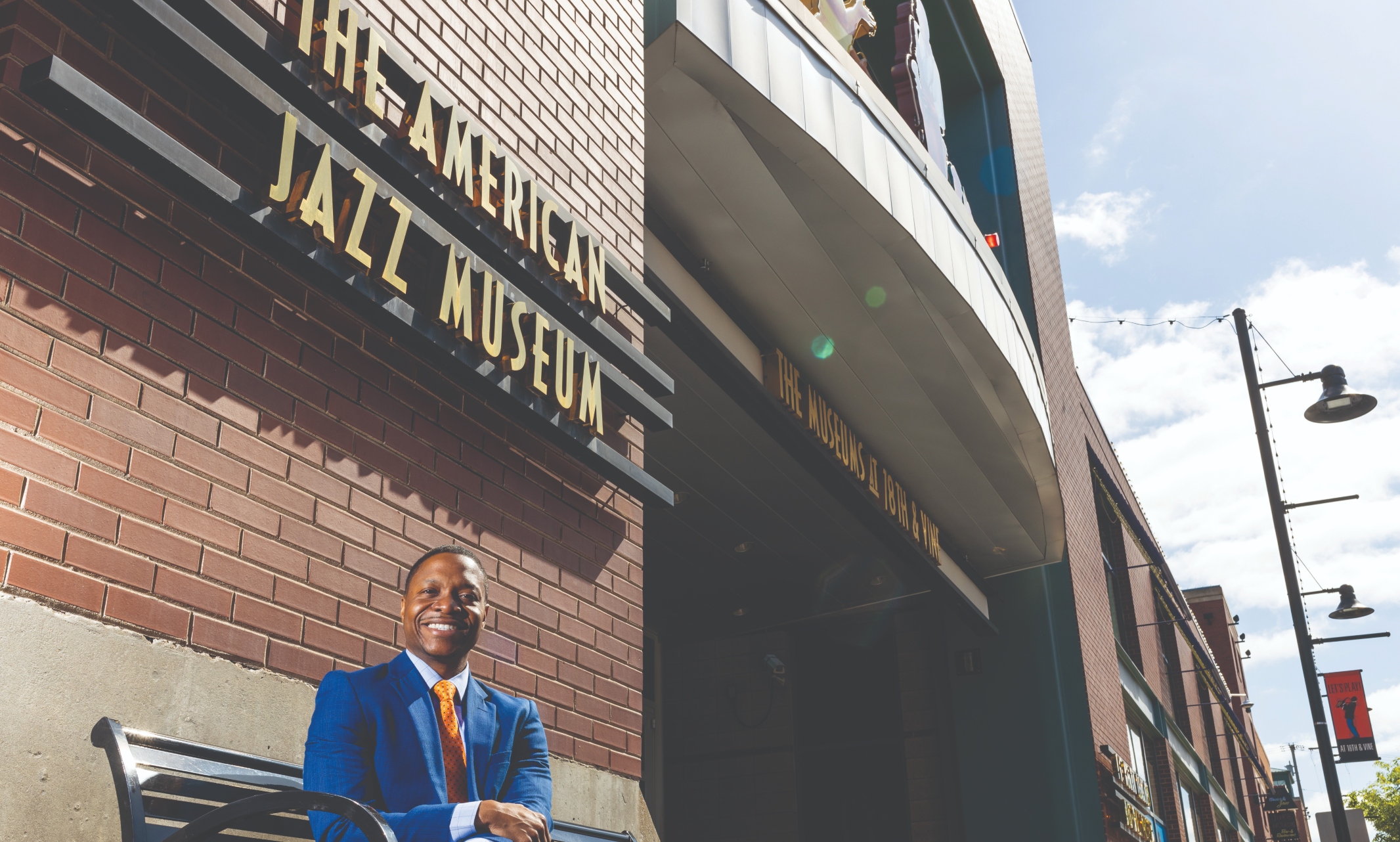
Attorney Shaun Stallworth found his calling advocating for underrepresented law students and plaintiffs
Shaun Stallworth’s (J.D. ’08) passion for advocacy developed partially out of the discomfort he sometimes felt as one of only four people of color in his first-year class of nearly 200 students at the UMKC School of Law. “I don't know if some folks realize that's a big deal until you walk in those shoes as a first year, with all the other stress you're dealing with,” Stallworth said. “And then add on that you're the only person of color — that's tough.” Although he said he has many fond memories of law school and wouldn’t trade his experience for anything, Stallworth recognizes that his experience may have been atypical. “I'm used to being in places where I may be the only person of color — maybe one of two or three,” he explained. “I've been blessed to have a ton of Black friends, white friends, friends of different colors. But at the same time, it always is still something that is unique to you, when you're one of only a few or the only one. I didn't have a bad experience, but it's different when you're the ‘other than’ in the room.” That feeling of being “other than” can be especially prevalent among students like Stallworth, who are the first in their family to attend law school. Many of these first-generation law students belong to racial minority groups, which often adds an additional layer of challenge to their educational journey. Those challenges they face don’t simply disappear the moment they arrive on campus. Stallworth remembers feeling a unique pressure in the classroom environment at times, for example, when discussing historic segregation cases. “When there's a question that kind of touches on the race thing, your friends and classmates look to you to be the monolith for all things Black,” Stallworth said. “Even though I don't mind expressing my opinion, that's some additional stress that maybe some others don't have.” Stallworth’s experience led him to begin his enduring work of breaking down the barriers that cause people to feel excluded, marginalized or “other than.” During his third year of law school, Stallworth served as president of the Black Law Students Association. Frustrated by the lack of diversity he had noticed within the law school, Stallworth decided to take action. He contacted leaders of the Hispanic Law Students Association and Asian American Law Students Association to discuss solutions to attract and support students of color. Stallworth led the small group of student leaders in planning a banquet at the Kansas City Marriott Country Club Plaza, raising an impressive $30,000 and establishing the first Pipeline Scholarship at the UMKC School of Law. Stallworth said he takes pride in having initiated the annual student-run scholarship that helped create opportunities specifically for individuals of color. “Being the leader of that effort definitely meant and means a lot to me,” he said. “To be able to give scholarship money back to other students who look like you and get more people in that position to see more (similar) faces in the classroom — that was something special to me.” The complex issues of inclusion and representation persist within higher education, but Stallworth said he applauds the law school for making concerted efforts to increase diversity over the years. Those efforts include the formation of a new alumni diversity committee and the Ellen Y. Suni Opening Doors Scholarship Endowment to support a first-generation law student each year. “I think efforts in the school have been so committed to this,” said Stallworth. “I'm currently on the UMKC Law School Alumni Board, so I can certainly attest to the efforts that (former) Dean Suni and Dean Glesner Fines have made. They’re doing some great things with the students.”
A native of Slidell, Louisiana, Stallworth grew up surrounded by the rich sights, smells, tastes and sounds of a region that is world-renowned for its cross-cultural and multilingual heritage. “I always tell people I’m extremely blessed that I got the best of both worlds,” Stallworth said. “On one hand, I grew up in the suburbs of New Orleans, so I was able to go to some of the better schools in one of the better parishes in a state not known for its education. At the same time, I was close enough to be able to partake of everything that was part of that Southeast Louisiana culture.” Stallworth and his parents, a teacher and a computer programmer, lived only about 30 minutes away from Bourbon Street. But they were far enough away from the urban core to allow Stallworth to have plenty of what he calls “Tom Sawyer moments” — jumping off train trestles into the Mississippi River and swinging on tires suspended by ropes while alligators lurked below. Stallworth remained in Louisiana while earning his undergraduate degree in communications with minors in French and business administration at LSU. A few years before Stallworth applied to law school, his mother suffered a medical malpractice ordeal that would shape her son’s future career path. She injured her back in an accidental fall and needed surgery to repair the damaged disc. Unfortunately, the surgeons left pieces of sponge in her back, where they remained for nearly two months causing infections and other complications throughout her entire body. Watching his mother suffer so much through no fault of her own was a “big jolt” to Stallworth that sparked his initial interest into becoming an attorney. “I always thought that was kind of messed up what happened to a regular person like my mother, who works hard and does what she needs to do,” he said. That experience led Stallworth to pursue a law degree and become the first lawyer in his family. Years later, Stallworth, currently working as of counsel with Holman Schiavone, LLC, has built a successful law practice seeking justice for individuals who, like his mother, have been wronged in some way and need assistance. It took some time for Stallworth to settle into his niche within the legal profession. Throughout law school at UMKC, Stallworth clerked with the large international firm Sonnenschein Nath Rosenthal, LLP (now Dentons US LLP) and briefly with the Missouri Court of Appeals. At that time, Stallworth considered becoming a prosecutor. Then, as Stallworth’s studies were winding down, Sonnenschein presented him with a profitable opportunity he couldn’t refuse. “They certainly were offering more money than I had ever made before, or my parents had ever made, so I took the opportunity to go to do big law,” Stallworth said. Over the course of the next five years — from 2008 to 2013 — he represented large companies like Walmart, Lowe's, Sam’s Club and Harris Bank. While lucrative, the dense nature of large commercial litigation didn’t hold Stallworth’s interest for long. He became captivated by the stories fellow UMKC School of Law alumnus Tom Ralston (J.D. ’08) shared with him during their workout sessions at the gym. “He'd always have these great stories about doing employment law,” Stallworth said. “And he told me this really interesting story about what happened in this case and that case. And I thought, ‘Man, that seemed like so much fun.’ ” When Stallworth eventually met Ralston’s colleague Kirk Holman (J.D. ’99) at an Inns of Court event in 2012, the two struck up a spirited conversation about plaintiff work and bonded over similarities in their upbringings. Holman, known as one of the most well-respected plaintiff attorneys in the region, inspired Stallworth to seriously consider making a career change. “(Holman) had a lot of passion for what he was doing, and that mattered to me,” Stallworth said. Months later, Stallworth met with Anne Schiavone (J.D. ’99), Holman’s partner at the firm. Schiavone convinced him that he could do more enjoyable, less stressful work without sacrificing the kind of income he earned at the large defense firm. That leap of faith to the opposite end of the legal spectrum paid off for Stallworth. The supportive, collaborative environment at Holman Schiavone, a firm made up almost exclusively of UMKC School of Law graduates, has allowed Stallworth to thrive while finding greater purpose in his work. “On the plaintiff side, it's a lot of emotion, a lot of times, because this is someone that feels like they've been wronged — they've been treated differently — on the basis of their race, their sex, their age, their gender, whatever,” Stallworth said. “Sometimes you get a really good result of potentially, if used correctly, life-changing money for some people. You're able to take something that was a really bad event that happened in their life that they’d probably rather forget about, and then get them some type of compensation — something that will help them push past that particular point in their life.” His positive energy and willingness to take on cases other attorneys reject sets Stallworth apart in the eyes of his clients. He once represented a Black man alleging race discrimination and retaliation in a lengthy case against a casino. Overcome with gratitude, Stallworth’s client broke down crying when the resolution finally came down in his favor. “He said, ‘This has just been so stressful for me and my family. I feel like I lost my I lost my livelihood for a company I've been with for 15 years. You got me here. You stuck with me, and I appreciate that. God bless.’” His client’s emotional reaction touched Stallworth deeply. “That was something right there,” Stallworth said. “That was coming from his soul, so that meant a lot. I've had a number of those reactions over the years, and it's something that I'm always appreciative of. I don't take that lightly for someone to put their emotions and their feelings on their sleeve like that.” Nearly two decades later, Stallworth remains dedicated to the objective he established as a student at the UMKC School of Law — increasing diversity within the legal profession. Past president of Jackson County Bar Association, one of the oldest African American bar associations in the country, Stallworth remains actively involved in community enrichment efforts by mentoring potential law students, fundraising for scholarships and conducting legal writing workshops. Knowing he may have contributed to somebody's professional success brings Stallworth immeasurable joy. “I've been able to stay in touch with potential law students that have gone on to become law students, and then gone on to become lawyers,” Stallworth said. “And that's been really cool to see.”
Jun 30, 2022
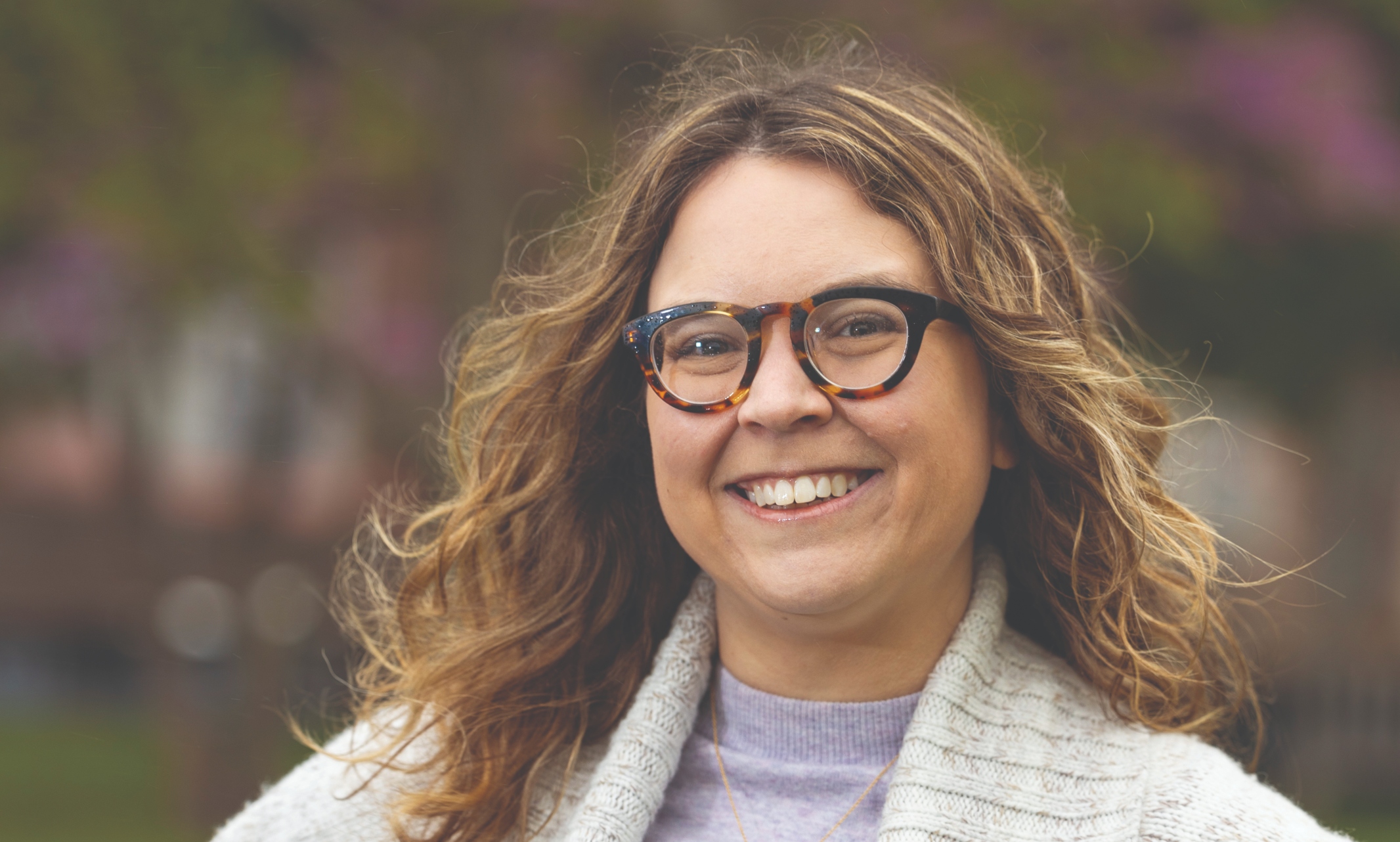
UMKC Law Foundation executive director Marie Dispenza helps position students to succeed by increasing their access to financial support
Marie Dispenza, J.D. ('05), enrolled in law school with the dream of becoming an entertainment lawyer – but now enjoys helping law students achieve their dreams through philanthropy and mentoring. “I had no idea what it took to become an entertainment lawyer,” Dispenza said. “I knew about networking, but I didn't know how to do it. I just didn't know what I was doing.” Instead of practicing law, Dispenza found a new calling close to home. “I am kind of a do-gooder deep down,” Dispenza said. “That is what ultimately led to me to the non-profit sector.” Dispenza found the most value in the personal connections made at UMKC. Many School of Law alumni with practices nearby are willing to mentor the next generation. It’s a tight-knit community in the big city. She didn’t need legacy connections to build her success. She could build them with the help of the UMKC family. “Whether I actually know someone, or someone who can introduce me, it's very helpful in fundraising activities simply because relationship building is so important,” she said. Dispenza returned to her alma mater in 2020 as the director of major gifts and now also executive director for the UMKC Law Foundation. She saw first-hand that additional resources and support are necessary for students to be positioned to succeed, and she is determined to make sure UMKC students, especially first-generation students, have access to both. “People often come to law school because they want to make a difference,” Dispenza said. “I want to support the person who wants to do good work but maybe doesn't come from a privileged family or one with a legacy in the legal community.” Barbara Glesner Fines, dean of the law school, was one of Dispenza’s professors when she was a student. Both expressed joy at the opportunity to work together again. "Marie is leading the law school’s effort to expand scholarships that open the doors to a legal education, especially for the nearly one-third of our students who are first-generation college graduates. For our many students who dedicate their careers to public service, these scholarships permit them to follow that career path free of crushing student loan debt,” said Glesner Fines. “Marie’s talent and passion is engaging donors and volunteers to realize their own visions for making our community more compassionate and inclusive.” Even all this time after earning her law degree, Dispenza still has her sights set high. She wants to see the non-profit sector flourish and innovate to see greater gains for their causes. She’s excited to continue with the Law Foundation to bring a diverse group of difference-making lawyers into the fold. “I think that it's really important to me to be a part of changing that narrative — to build foundations for nonprofits that need a little bit more stability and efficiency,” she said. “Tying up loose business ends like that is the boring stuff that nobody really wants to talk about, but that is what jazzes me up.”
Jun 30, 2022
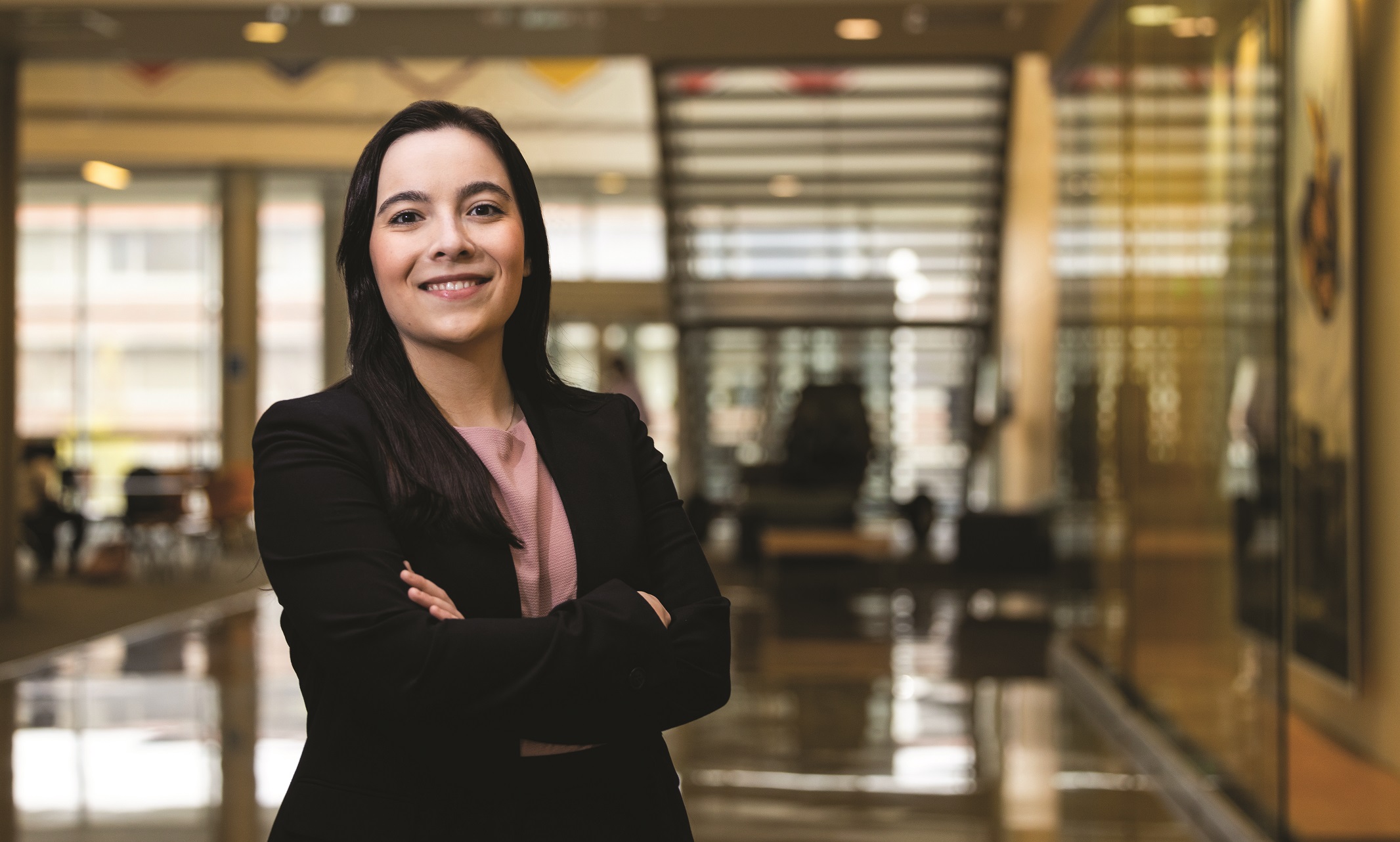
First-generation law student Kylee Gomez found her niche in helping people find rehabilitation and second chances
Kylee Gomez found her niche in the UMKC School of Law helping people who have faced criminal charges find second chances.
It was a natural fit for a law student who earned a double major as an undergrad in criminal justice/criminology and political science.
“Like many Americans, I have loved ones who have struggled with substance abuse disorder,” said Gomez. “I care about individuals that have been through the criminal justice system and others that were close to it. I believe our system should give second chances and provide better opportunities for rehabilitation.”
As an undergraduate, Gomez volunteered with local organizations focused on criminal justice reform and rehabilitation. One of those volunteer opportunities was the School of Law’s Clear My Record Project. Gomez points out that for many in Missouri with criminal records, their convictions have become “the punishment that never ends.” Despite having fully paid their debt to society, they find the impact of their record lingers, blocking educational, employment and housing opportunities. The persistence of criminal records also takes a heavy toll on a person’s health.
She volunteered for the Clear My Record project and then was given permission to enroll in the Law, Tech and Public Policy law school course in order to help lead the project.
“My interactions with the law school faculty and staff during the Clear My Record Project are what really encouraged me to apply for UMKC’s law school,” said Gomez. “As a first-generation student, the decision to pursue a professional degree was nerve-wracking because no one in my family had that experience. However, my family's support and the guidance I received from my UMKC professors made the process easier.”
Gomez now works with clients at the UMKC Law Expungement Clinic – which developed out of the 2019 Clear My Record Project.
“I have a passion for public interest law and public policy and want to establish my career aiding in the expansion of equal justice for all,” said Gomez. “The expungement clinic gives me the opportunity to do that, while helping those right here in the Kansas City community.”
Individuals may request the sealing of criminal records under Missouri’s expungement law, but the process is complex and expensive. As a result, only 125 individuals were able to expunge their criminal records in 2019, despite the fact that an estimated 1.3-1.8 million Missourians possess criminal records. According to a recent study of a similar jurisdiction, the expungement process is so complex that only 6.5% of people eligible for record clearance actually filed petitions. The benefit of expungement is profound. Once expungement is granted, an individual may truthfully answer “no” to questions seeking information about the existence of prior eligible convictions, including housing and employment applications.
“As a first-generation student, the decision to pursue a professional degree was nerve-wracking because no one in my family had that experience. However, my family's support and the guidance I received from my UMKC professors made the process easier.” — Kylee Gomez
Gomez, about to enter her third year of law school, is a first-generation student. Resources on campus and volunteer opportunities helped her find her path in school.
“Like many other first-gen students, I navigated my own way through higher education,” said Gomez. “The resources on campus, especially peer mentorship, career services and academic advising, were extremely helpful. My family supported me but couldn’t always guide me through the process of being a college student.”
In addition to working at the expungement clinic, Gomez is a student emissary, teaching assistant and UMKC Law Review comment editor.
Gomez’s ability to, not only balance her various responsibilities, but also excel at them, caught the eye of Professor Wanda Temm.
“Kylee was a student in my first-year Lawyering Skills course. She received the Joseph E. Stevens Memorial Prize, given to the top first-year student who shows the most promise in legal writing,” said Temm. “Some years, we agonize over the decision of whom to select. Not that year. Kylee was a unanimous choice.”
After having her in class, Temm encouraged Gomez to apply to be a teaching assistant. She says Gomez possesses all the right characteristics – maturity, good judgment, a calm demeanor, the ability to relate to others, patience and willingness to work hard.
“Helping other students begin their legal writing journey has been a really rewarding experience,” said Gomez.
Temm’s Lawyering Skills class isn’t the first experience Gomez has as a teaching assistant; she helped construct and teach an LSAT prep class with Dean Barbara Glesner Fines.
“Given that my last exposure to the LSAT was decades earlier, I knew I needed a teaching assistant to help,” said Glesner Fines. “I needed a student who did well on the LSAT and could help me find ways to prepare other students to do the same. I asked admissions, career services staff, fellow faculty members and administrators for recommendations. They all recommended Kylee.”
Gomez’s work for the LSAT prep class and her work as a student emissary are both focused on helping other students learn about law school, and the UMKC School of Law in particular. Student emissaries and the UMKC law school admissions team were an important part of her journey.
“I got to know Kylee during the Clear My Record project and the law school admissions process,” said Lauren Butler, director of admissions at the School of Law. “I could see how excited she was about the project and the possibility of law school. She has a passion for helping people, and I have no doubt that excitement will follow her into her legal practice.”
So, what does Gomez envision for her future?
“I’m hoping to clerk for a judge after I graduate," Gomez said. "I think clerking is the best way to gain mentorship and continue my legal writing and advocacy capabilities before entering practice.”
Jun 30, 2022
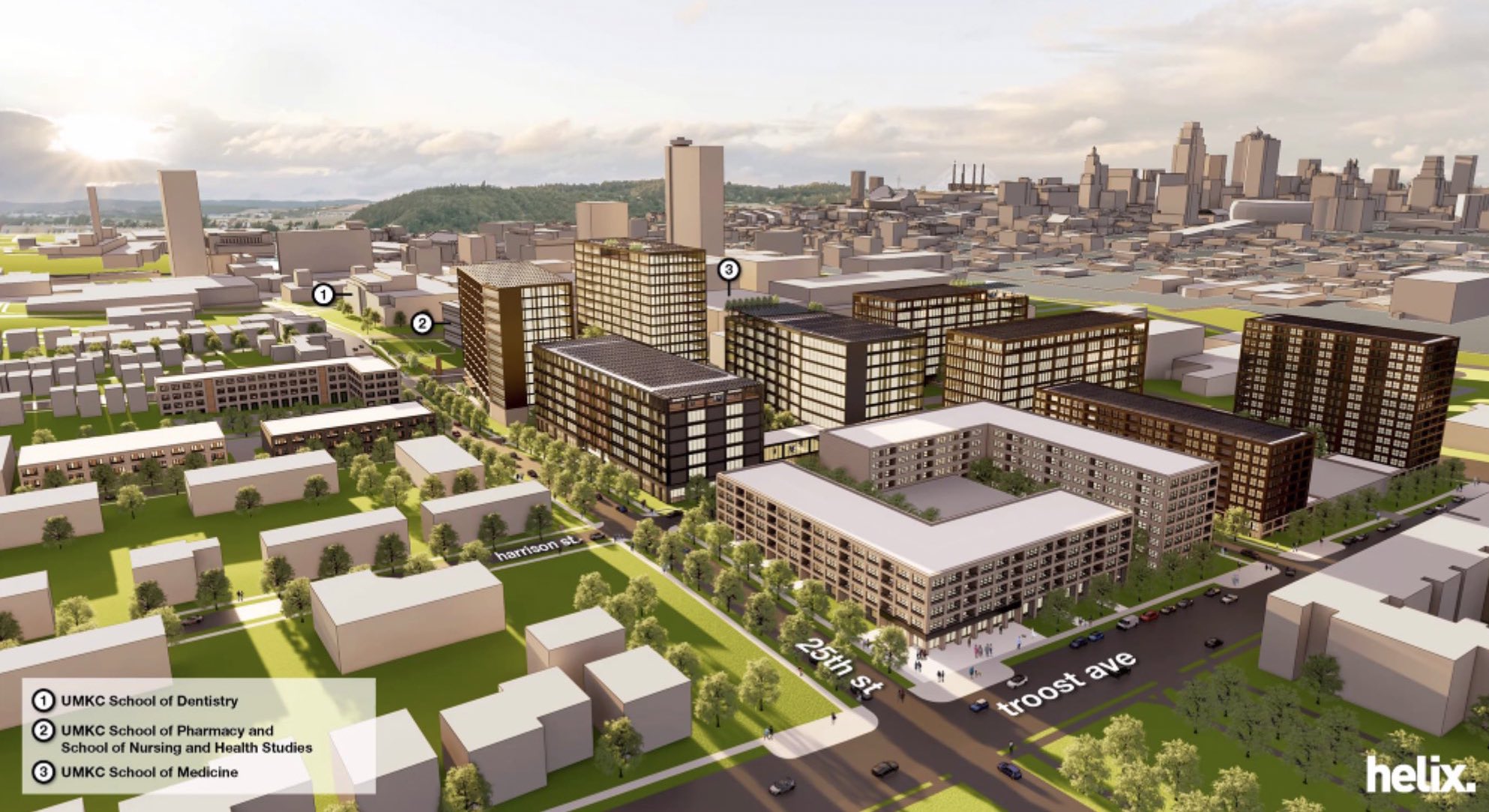
New multi-story building will expand classrooms and teaching clinics, spur research and development
The University of Missouri-Kansas City is poised to begin work on a new interprofessional health sciences building in the UMKC Health Sciences District, housing new, state-of-the-art dental teaching clinics and expanded medical school teaching facilities.
The multi-story, $100 million project also will serve as a home for the university’s Data Science and Analytics Innovation Center and Biomedical Engineering program. This project will take the Health Sciences District to the next level, accelerating health care access and equity for the community and sparking development to turn the campus into a regional draw, igniting entrepreneurship and economic growth for the city and region.
The state of Missouri has appropriated $40 million for the building in legislation signed by Gov. Mike Parson on July 1. This appropriation comes with a challenge to the Kansas City community to raise the additional $60 million to build the $100 million project.
The project has broad and enthusiastic support from the City of Kansas City, Jackson County and multiple business, civic and economic development organizations. The project will add impact and momentum to the burgeoning growth underway in the district – including recent additions such as Children’s Mercy Kansas City’s $200 million Research Institute tower, the $70 million University Health 2 medical office building and the $45 million University Health 1 building.
Civic leaders view the UMKC project as a next step toward the launch of a comprehensive development plan for the district.
“A united medical and dental building will be a signature facility, as there is only one such institution in the country with this combined learning and clinical environment,” said Chancellor Mauli Agrawal. “The project will spark an expansion of the entire UMKC Health Sciences District that could dramatically expand health care in Kansas City, attract top faculty and researchers and new private investment that could create new jobs and eventually contribute billions to the Kansas City economy.”
Academic medical centers in San Antonio, Memphis and Denver, among others across the country, have transformed districts with an estimated multibillion regional economic impact annually.
Additionally, an interprofessional health building allows for increased collaboration among health care fields, which creates a greater capacity for developing health solutions and providing patient care. UMKC is one of only 20 universities in the country where dentistry, medicine, nursing and health studies, and pharmacy share a single, walkable campus, which underscores the need to continue to provide opportunities for collaboration among the health sciences.
UMKC will occupy the first several floors of the project and additional floors may be available to public partners for medical office space, clinical space and other uses. Here’s what will be housed in the UMKC space:
School of Dentistry
These state-of-the-art clinics will attract some of the best students and faculty from the region, making UMKC competitive with top schools across the country. In addition, UMKC will have increased space to continue its important work in serving the underserved – delivering almost $1 million in uncompensated care to those who otherwise might not get treatment. With a new interprofessional medical building, the next generation of dentists can be taught to deliver better dental care at a lower cost. Another benefit will be the expansion of dental emergency services, which will lower the number of dental emergencies seen at hospital emergency rooms and continue to make first-rate dental care more accessible to the community.
School of Medicine
The new building will provide state of the art educational facilities for UMKC medical students and programs, such as space for more simulation labs, which lead to better training for students and better care for the community. The expansion also will allow for necessary infrastructure changes to improve the school, including increased capacity for digitization with additional space for fiberoptic cables, improved air flow throughout the building and expanded classroom space.
Biomedical Engineering
Proximity between doctors and developers of medical devices is paramount, and this new building will foster faster, more effective collaboration between engineers and medical professionals to accelerate product development in areas such as imaging technology, implants and microsurgery tools. UMKC will expand its ability for creating new technology, generating innovations for products and patents with the potential to work with companies to develop and produce them.
Data Science and Analytics Innovation Center
Through its expertise in data science, UMKC and its clinical partners are ushering forward a new era of personalized health care — one that will treat diseases based on individual variability in genes, environment and lifestyle, rather than a traditional one-size-fits-all approach. The data center’s work will drive innovation in a variety of domains, ranging from health care and business intelligence to agriculture and digital humanities.
Jun 30, 2022
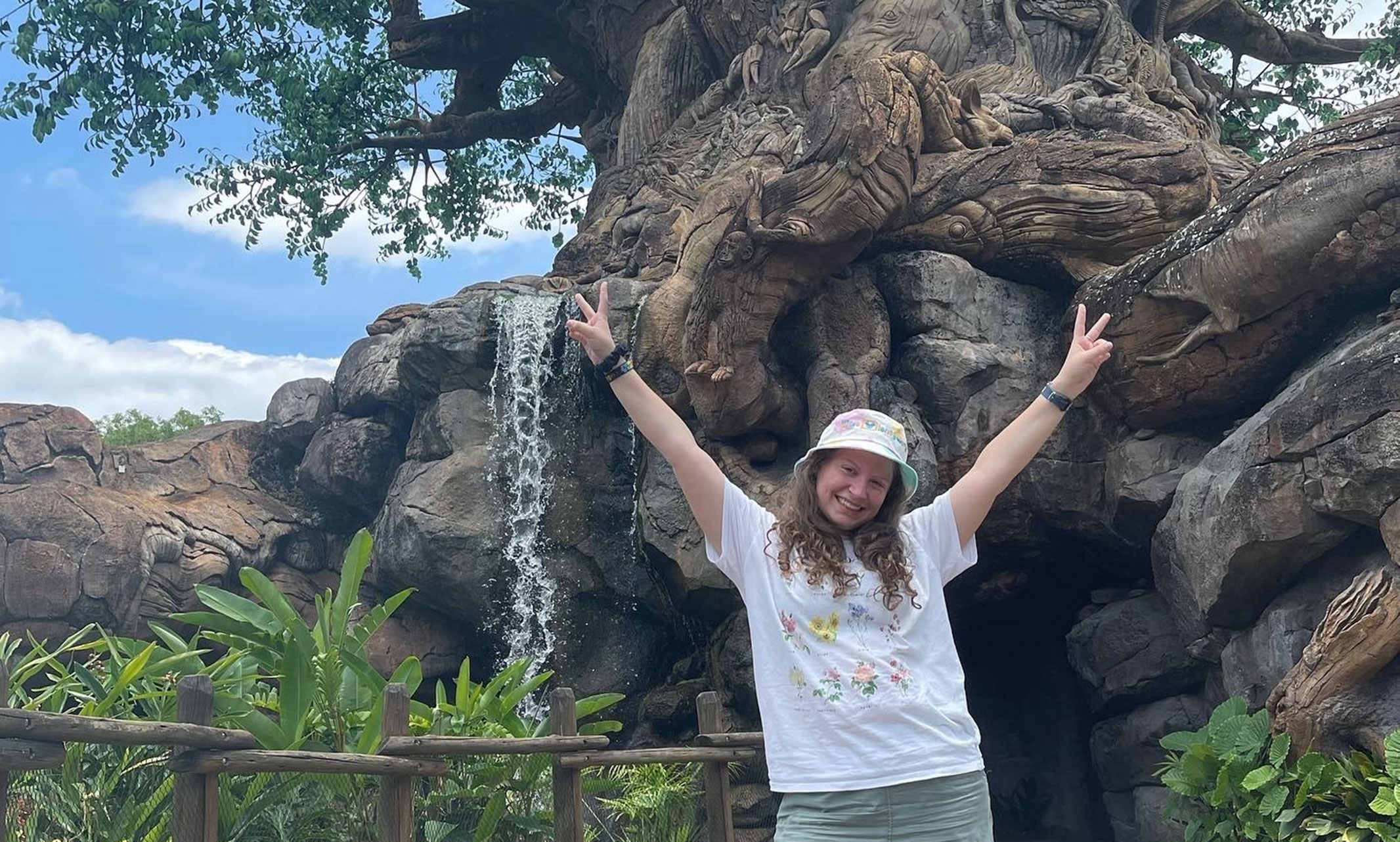
Psychology student makes magic with her internship
Alyssa Schulz (’25) wanted to participate in an internship while she was studying psychology and criminal justice at UMKC. That’s when she decided “I’m going to Disney World!”
The Disney College Program offers a variety of employment and learning opportunities for college students from across the country. These students are still called “cast members,” like everyone else who works for the Walt Disney Company. Schulz was accepted for the Fall Advantage program in a merchandise role at the Port Orleans Riverside resort, which means she will work with the company from May until January. Schulz sat down with us to share some of the magic she gets to experience as a Disney College Program cast member.
What gave you the idea to apply for the Disney College Program?
I heard about it first at one of my jobs. Someone said they had applied, but it was during COVID. The program got canceled that year, but that's when I first heard about it. At my other job, my managers used to work at the Disney Store near me, and they knew about it. That’s when I really looked into it because it sounded so fun. I thought you had to live in Orlando already and work there forever. When I found out I could just be there for seven months, it seemed really cool.
Looking ahead, what are you hoping to get out of your program?
I’ve found out I really want a career in hospitality. Disney is a big company, and I’d love to continue in it. Working at the resorts is so chill and fun, so I’d love to stay on that path after I get my degree.
What would you say your time at UMKC has done to prepare you for an opportunity like this?
I think UMKC is such an inclusive university. I've seen so many different types of people, and all the professors are very open to whoever, and so is Disney. I know UMKC encourages students to do internships, and I even talked with the chair of the psychology department while I was applying. Even though it doesn't technically align with my major, she was so excited for me. Everyone's so kind and supportive, and I'm grateful about that.
What is your favorite part about working at Disney World?
I love interacting with so many different people from all around the world. And again, it's a very inclusive company. Those two things mean a lot to me: meeting new people and being very inclusive.
What's your favorite part of going to the theme parks?
I love the rides. The new Guardians of the Galaxy roller coaster in Epcot is amazing. Rise of the Resistance in Hollywood Studios is a good one. Also, the Peter Pan ride in Magic Kingdom is a classic.
Jun 29, 2022
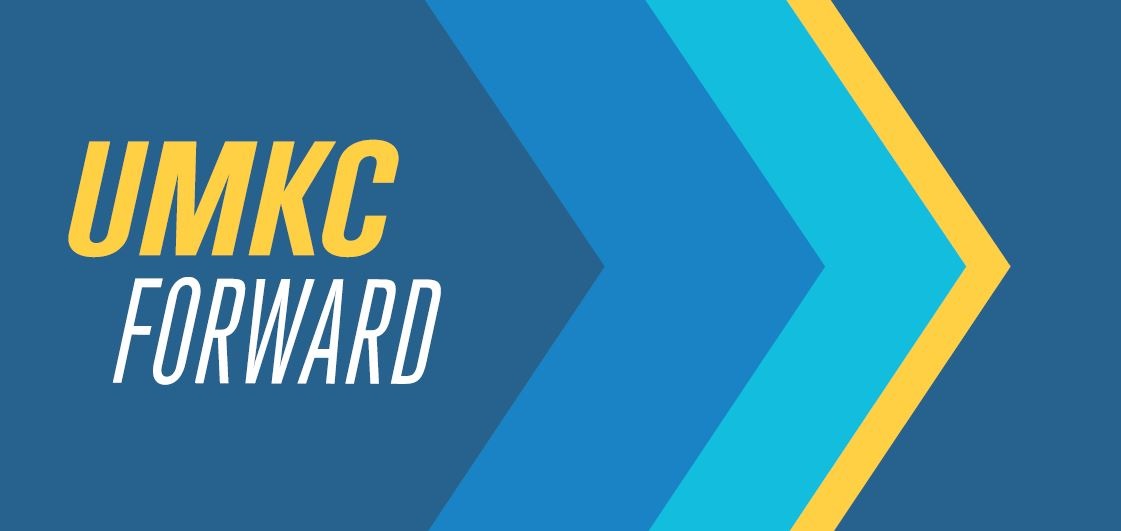
Schools and departments realign for stronger future
The UMKC Forward academic realignment, designed to optimize resources and better serve UMKC students and community, will begin on July 1. Significant progress on hiring and program development have laid the groundwork for collaborative research and student success.
In 2020, during the early days of the COVID-19 pandemic, Chancellor Mauli Agrawal announced the formation of UMKC Forward, a collaboration of faculty, staff and students across the university that would develop a new vision for the university’s future. Part of that vision was a realignment of the academic units at UMKC in order to optimize the strengths of the university and the opportunities for students’ career achievement. The official launch of the academic units begins this summer.
Kevin Truman, Ph.D.
The School of Science and Engineering (SSE) will include the divisions of Biological and Biomedical Systems; Computing, Analytics and Mathematics; Energy, Matter and Systems; and Natural and Built Environments. Kevin Truman, current dean of the School of Computing and Engineering, will take the role of dean of SSE.
“We are already seeing significant effects on faculty recruitment and collaborative research as a result of the new structure of SSE,” Truman says. “In addition, our current faculty are forming partnerships across department lines. While this is exciting, the expanded opportunity for our students is limitless.”
Tamara Falicov, Ph.D.
The School of Humanities and Social Sciences (SHSS) will include the departments of Media, Art and Design; Communication and Journalism; English Language and Literature; Foreign Languages and Literatures; History; Sociology and Anthropology; Economics; Political Science and Philosophy; Race, Ethnic and Gender Studies; and Criminal Justice and Criminology.
The SHSS inaugural dean is Tamara L. Falicov, who previously served as associate dean in Arts, Humanities and Area Studies in the College of Liberal Arts and Sciences at the University of Kansas, where she was also a professor in the Department of Film and Media Studies and the Center of Latin American and Caribbean Studies. She will begin work at the School of Humanities and Social Sciences on Aug. 1.
“The focus on undergraduate research at UMKC was a critical component in my decision to pursue the position of dean of SHSS,” Falicov says. “We will continue to expand opportunities for student research in the humanities, social sciences and the arts and amplify the message that the study of human history and experience is critical to our future.”
The School of Education, Social Work and Psychological Sciences (SESWPS) will include the departments of Education Leadership Policy and Foundations, Teacher Education and Curriculum Studies, Social Work Counseling and Counseling Psychology, and Psychology. Carolyn Barber will continue as interim dean for the upcoming academic year while a national search for a new dean is conducted.
Carolyn Barber, Ph.D.
“Through the creation of SESWPS, we are strengthening existing connections among programs committed to supporting the development and well-being of individuals across the life span,” Barber says. “By effectively addressing the social and educational needs of our communities through teaching, research and practice, our new school will have a broad, long term impact that will span across generations.”
Existing units that will remain unchanged are the Henry W. Bloch School of Management, Conservatory, School of Dentistry, School of Law, School of Medicine, School of Nursing and Health Sciences and the School of Pharmacy.
“After months of planning we are excited to see UMKC Forward energize our community,” Mauli Agrawal, UMKC chancellor says. “This is the beginning of a new generation of Roos, who will be immersed in exposure to different disciplines and a new philosophy on what a college education is. It will change the way our students think, the way they act and accelerate their potential in a new era of problem-solving as we emerge from the changes of the past two years.”
Jun 28, 2022
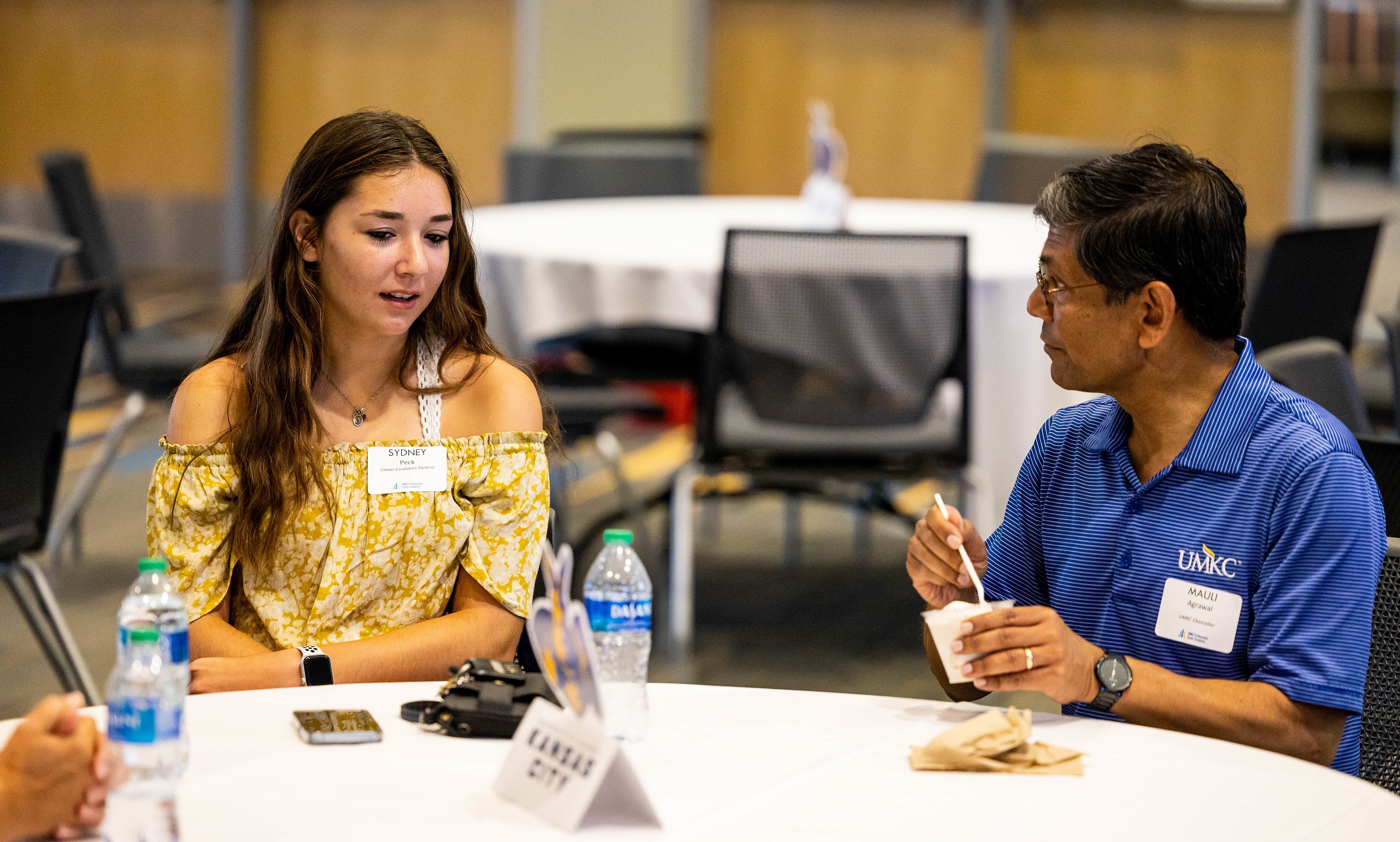
UMKC welcomed students from the first Escalators cohort to campus
UMKC’s new initiative, Professional Career Escalators, kicked off last Saturday with an ice cream social and welcome event.
Students in the inaugural cohort were invited to campus to get to know each other and meet community members, faculty and staff they’ll engage with during the program. Betty Rae’s ice cream truck provided sweet treats.
“We’re so excited to finally kick off the first year of the Professional Career Escalators program,” said Mako Miller, director of the program. “We’re helping students bridge the gap between academics and the professional world. They’ll have a better understanding of life after graduation and what they want to do with their careers.”
The signature Professional Career Escalators program is a unique, trademarked system of personalized support and services unlike anything being offered across the U.S. It is designed to propel students from their academic studies to good-paying careers by providing a dedicated, GPS-guided path from enrollment to workforce. The program involves mentors from local business and organizations, internships, networking and employment preparation in key areas of workforce demand: health care, engineering, business, education and law and justice.
There are 100 students in this cohort, all of whom will begin their time at UMKC this fall as first-time freshmen or transfer students. Through the Escalators program, they’ll have opportunities to explore their interests through applied learning experiences and mentoring, as well as develop their career and leadership skills.
We asked some of these students what attracted them to the Professional Career Escalators program.
Michael Viermann, second from right
Michael Viermann, Raymore-Peculiar High School: “I saw the big headlines that said $1,500 scholarship. Money is always an issue. I want to be a doctor, which is a little scary, and I thought the program would help me. And my brother goes here, and I love Pizza 51.”
Aaliyah Daniels, left, and friend.
Aaliyah Daniels, Sumner Academy High School: “I saw that there was a law and justice option and I want to learn more about that, for when I go out into the community to help people.”
Paris Yates
Paris Yates, Hermitage High School: “I liked the health care aspect. I think it can help me with communications skills and leadership skills, and help my career path.”
Dunia Qakei, far right
Dunia Qakei, Lee’s Summit High School: “I saw the information about the escalators on my application status page, and I feel like I could fit in. I’m excited for the applied learning experiences.”
Lily Lefferd, left, with her mom Rhonda
Lily Lefferd, Royal Valley High School: “I like the idea of getting the opportunity to explore internships while I’m in college for business administration.”
Sydney Peck, far right, with her family
Sydney Peck, Staley High School: “I am very involved in music and I am interested in health care as a career. I like that UMKC has joint research with the Conservatory and School of Medicine.”
Jun 28, 2022
The young professionals are all from different schools at UMKC
Juliana Alvey, a graduate student at the University of Missouri-Kansas City, Myles Howell (MBA '14) and John McGurk (JD '06) have all been named to the Kansas City Business Journal's 2022 Class of NextGen Leaders.
The NextGen Leaders Awards honor 25 rising stars in the Kansas City business community. Winners are selected by a panel of six judges.
Alvey manages internal and external communications for CBIZ's employee benefits division.
McGurk is the vice president of development at Milhaus Kansas City, a development and construction company. Howell is the owner and vice president of strategy for Bardavon Health Innovations Inc., a workers' compensation digital health partner.
To read more about the leaders, click here.
Jun 27, 2022
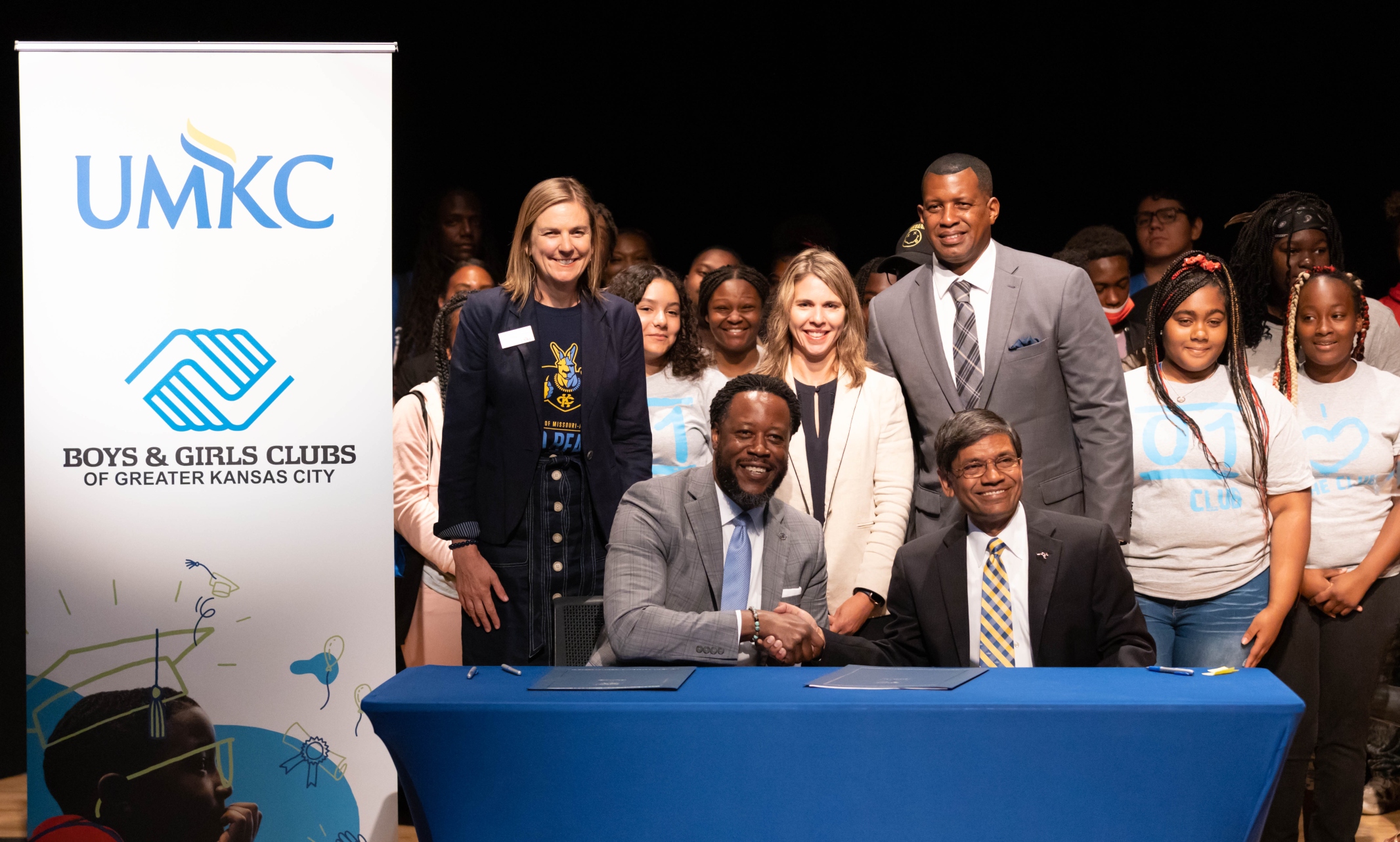
The new agreement provides opportunities for club participants in Greater Kansas City
The University of Missouri-Kansas City and the Boys & Girls Clubs of Greater Kansas City announced a new partnership on Friday that will extend scholarship opportunities to thousands of Kansas City students. The agreement creates the new UMKC Boys & Girls Clubs of Greater Kansas City Scholarship, which grants $1,000 in aid to students who are graduating from a Boys & Girls club program.In addition to scholarship funds, the partnership will also provide an on-campus introduction to campus and college life during the spring or summer prior to students’ freshman year. Once on campus, UMKC will provide students with programs to help connect them to peer mentors who will help navigate and support them throughout their college experience. “I’m proud to be part of this significant and historic partnership,” said Dr. Dred Scott, President and CEO of the Boys and Girls Clubs of Greater Kansas City. In order to be eligible students must be an active member of a club their senior year of high school and have been a member for at least one year prior. At UMKC, students must take 24 credit hours per academic year, maintain at least a 2.5 grade point average and participate in the UMKC Peer Academic Leaders Program their freshman year. During the announcement, Chancellor C. Mauli Agrawal, Ph.D. told Boys & Girls Clubs participants in addition to financial support, UMKC provides support for students making the transition from high school to college. “While the transition to college from high school is exciting, we know it can make some students nervous. At UMKC, we understand that, and we make sure that you will not be alone. UMKC has proven, successful programs that support new students as they transition into college and make sure they succeed,” said Agrawal. UMKC Boys & Girls Clubs of Greater Kansas City Scholarship is renewable up to five years and can be combined with additional awards.
Jun 24, 2022
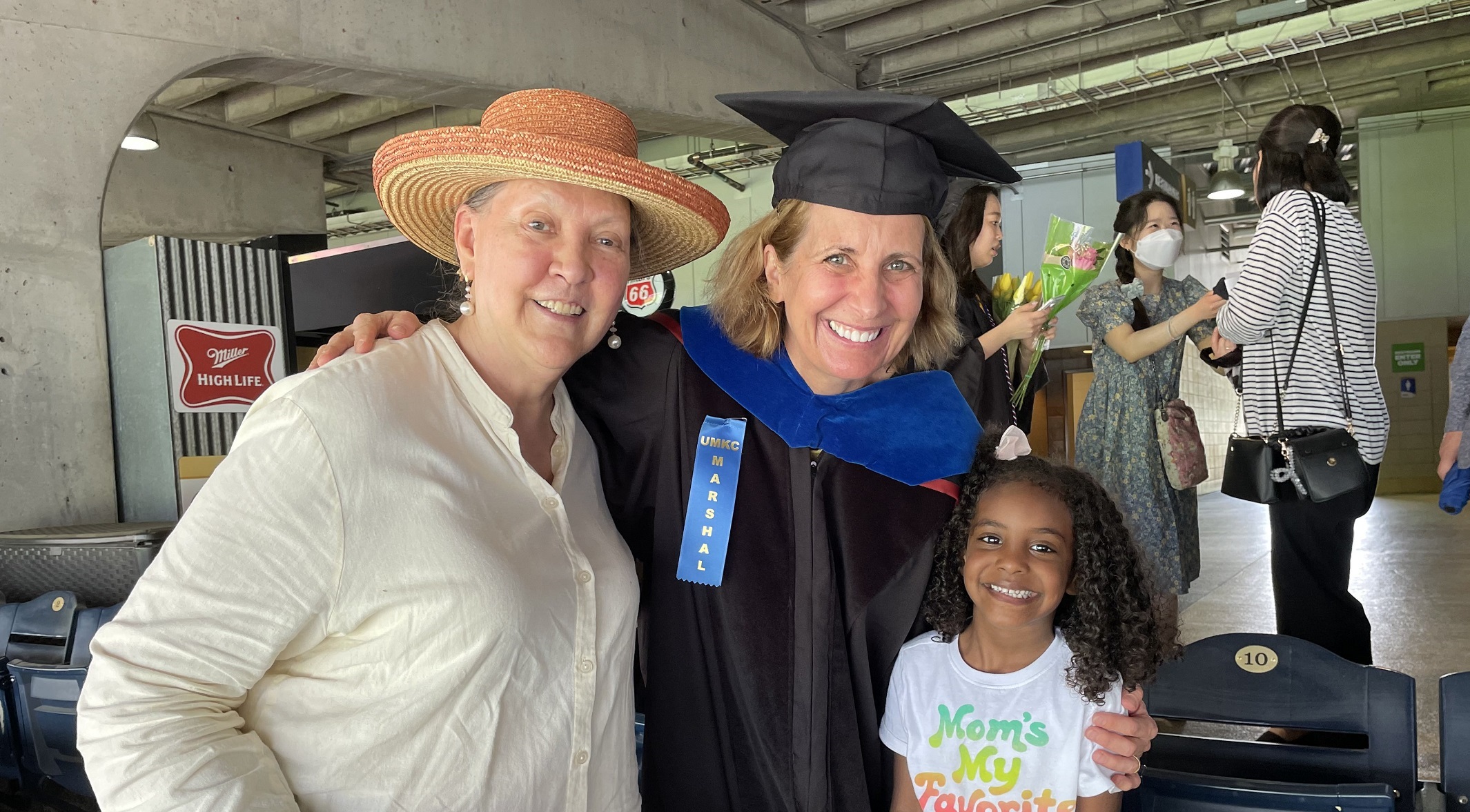
A new profession led to mentoring relationship, gift
Martha Childers, M.A. ‘08, EDSP ‘13 decided to become a counselor after working in libraries for 38 years. An influential relationship with Johanna Nilsson, Ph.D., a professor in counseling psychology, led to a gift to UMKC to establish the Johanna E. Nilsson Scholarship for Diversity and Courage in Psychology.
“I read an article that mentioned that in midlife one of the ways to ward off dementia is to do something completely different with your life,” Childers says. “I remembered that in high school I’d wanted to be a counselor, so I thought I’d pursue that.”
Sixty hours of academic work seemed like a significant commitment, but Childers was determined.
“Once I started the program, I understood why you would need that much coursework. There’s a lot more to counseling than meets the eye.”
During her studies, Childers took a class from Johanna Nilsson, Ph.D. At the end of the semester Nilsson brought her husband and children, who are twins, to meet her students.
“I just thought that was really nice,” Childers says. “After that I asked her to be my advisor. It was totally spontaneous, and she said, ‘yes!’”
It turned out that Childers’s instincts were good.
“Johanna never steered me wrong,” Childers says. “There were times that she made suggestions and I was unsure. For instance, she recommended that I take gerontology. And I said, ‘I am old!’ But she was right. I took two classes, and they were very valuable.”
Childers decided to honor Nilsson in an interesting way by establishing the Johanna E. Nilsson Scholarship for Diversity and Courage in Psychology.
“It’s the first thing I do at the end of the month – figure out my income and what I’m going to do with that 10 percent. It feels good to not be thinking just about myself. I’m thinking about others, which is really healthy.” — Martha Childers
“I donate 10 percent of my income every month,” she says. “I’ve worked in library science and as a counselor. I don’t make a lot of money, but I realized a few years ago that I could set up an endowment and that would honor people who are important to me and provide more security to the organization. A little bit every month adds up.”
Childers enjoys the practice because it is the manifestation of her focus on thinking about helping others.
“It’s the first thing I do at the end of the month – figure out my income and what I’m going to do with that 10 percent. It feels good to not be thinking just about myself. I’m thinking about others, which is really healthy.”
Nilsson was surprised by Childers’s gift in her honor.
“Honestly, I didn’t think I had a big impact,” Nilsson says. “Martha is fun to work with. She is a non-traditional student who has traveled a lot. Her kindness is overwhelming. I’m very honored by Martha’s gift.”
Childers and Nilsson worked on the parameters of the scholarship together. Nilsson often works with students who are refugees or have disabilities, who have to work harder to achieve their goals. For this reason, the pair settled on including “diversity and courage” in the name of the scholarship.
“We both agreed that we wanted to encourage and provide opportunity to students who are not ‘set up’ to get an undergrad degree,” Nilsson says.
For more information on endowments and other ways to support UMKC students, please visit UMKC Foundation, or contact Angela Machetta at amachetta@umkc.edu.
Jun 23, 2022
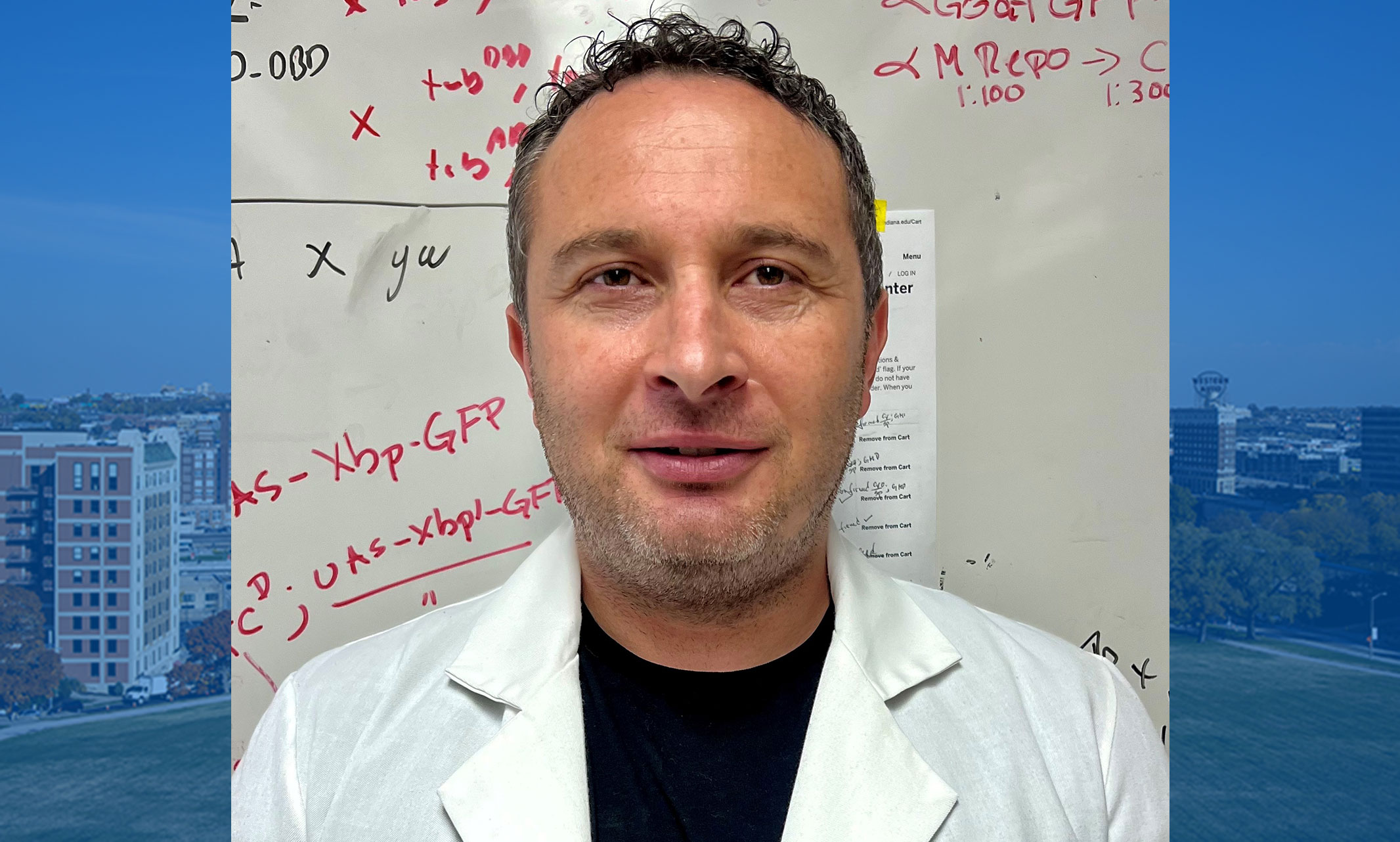
New faculty member attracted by collaboration opportunities
Haluk Lacin, Ph.D., decided to join the UMKC faculty based on his interactions with researchers and staff, and the possibility of departmental collaboration. His research focuses on neural circuit formation and animal behavior.
What brought you to UMKC?
The main reason that attracted me to UMKC is its collegiality. Everyone I interacted with at UMKC during my visits was easily approachable and put in extra effort to be helpful.
Recent changes bringing the School of Biological and Chemical Sciences together with the School of Computing and Engineering into the School of Science and Engineering will be very useful for me and other biologists who want to bring quantitative approaches to their field. Lastly, the school has become a vibrant place for research and teaching with the hiring of several new investigators in recent years.
What is the focus of your research?
In a nutshell, my research aims to understand how a complex nervous system is built during development. Each neural stem cell generates a unique population of neurons, which we call neuronal lineages. In our nervous system, neurons from millions of distinct neuronal lineages interact with one another to form functional networks. Each network - called a neuronal circuit - controls a unique human behavior, e.g., decoding visual information coming from the eyes or commanding quadriceps muscles for kicking a soccer ball. My research investigates how each neuronal lineage is generated and how they come together to form neuronal circuits controlling vital behaviors.
To address these questions, I study the assembly of the nerve cord (equivalent to our spinal cord) of the humble fruit fly, Drosophila. Similar to our spinal cord, the fly nerve cord shows lineage-based organization, but with neuronal lineages whose number is reduced by several magnitudes. In total, 34 distinct neuronal lineages form the fly nerve cord. Over the years, I have generated genetic handles to target and study individual neuronal lineages and with these tools, I have started elucidating the genetic, cellular and molecular control of neuronal connectivity and animal behavior.
What are your research priorities?
I recently have been awarded a research project grant from the National Institute of Health. First, we will investigate how a select group of genes dictate the neuronal lineages where these genes are expressed to form functionally meaningful neuronal circuits. Second, we will investigate how these neuronal lineages control animal behavior, i.e., are they required for walking or flying? We will also study how the removal of each of these genes from individual lineages where they are expressed affects the animal behavior. Lastly, we will complete the missing pieces in our genetic library with which we can target each neuronal lineage individually in the fly nerve cord.
What are you hoping to accomplish with this research?
Millions of people in the U.S. suffer from at least one neurological disease, many of which arise from perturbations in neuronal differentiation and/or circuit formation. Our research leverages the powerful fly genetic model system to uncover the cellular, developmental and genetic basis of neuronal differentiation, neural circuit formation and behavior. Given the highly conserved nature of nervous system development from flies to humans, our research aims to uncover conserved genetic principles that underlie neural circuit formation and behavior from flies to humans, which will inform on the cellular, developmental and genetic basis of neurological diseases in humans.
How involved are research assistants in your work?
I have been working together with a team of talented research assistants and my work would not be at its current level without their input. We have had opportunities to learn from one another. What I observed from my experiences is that working with others results in creativity, innovation, and most importantly better engagement.
Jun 22, 2022
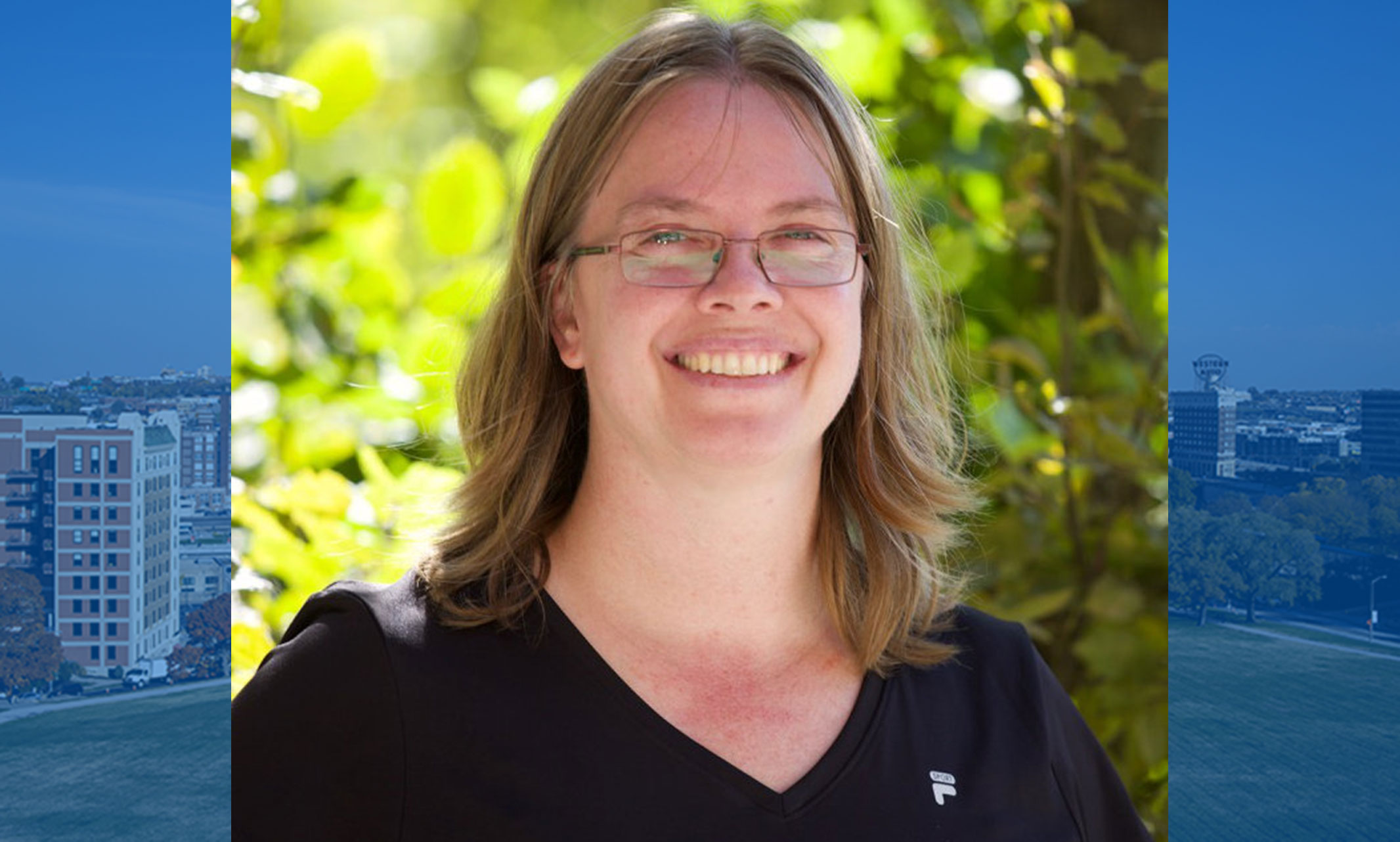
New researcher’s focus is microscopy, transcriptomics
Maria Spletter, Ph.D. is originally from the Midwest. She was thrilled when her expertise in microscopy, transcriptomics and muscle biology made her an ideal fit with the new School of Science and Engineering.
Spletter’s research focuses on how muscles attain different contractile properties during development. The proteins that build muscles are encoded by genes in our DNA, and one way muscles can fine-tune their function is by producing different versions, or isoforms, of the same gene through alternative splicing.
This process is important, and it is often disrupted in muscle diseases, leading to a loss of muscle function.
“My research interests are focused on understanding the regulation and function of RNA-processing during muscle development,” Spletter says. “To do this, we employ diverse techniques from developmental genetics and cell biology to transcriptomics, bioinformatics and biochemistry.”
Spletter’s background in Drosophila (fruit fly) genetics will integrate well with the diverse model organisms currently in use at UMKC. In addition, her lab uses Drosophila to study the proteins that regulate alternative splicing and determine which isoforms are expressed in different muscles.
Her team studies the role of the Bruno 1, Rbfox1, Scaf6 and Ime4 proteins in normal muscle development, and also how misregulation of these proteins leads to malfunction and muscle disease.
“Our long-term goal is to build a comprehensive understanding of the regulatory network of RNA-binding proteins that influence cytoskeletal assembly during the formation of skeletal muscular tissue during development, and that ultimately define the contractile properties of different muscle fiber types,” Spletter says. “This work is human disease relevant, as misregulation of RNA processing is observed in muscle disease, and a deeper understanding of RNA-binding protein function may lead to new therapies or drug targets.”
Spletter will begin her work at UMKC Sept. 1.
Jun 17, 2022
Sungyop Kim, University of Missouri-Kansas City professor of urban planning and design, said that the agency probably needs a more dependable fundi...
Although Kansas City’s bus system, RideKC, has celebrated accomplishments such as spearheading free fares and introducing electric buses, many riders say that only goes so far if there isn’t enough service, or if it’s not dependable.
Any solutions to RideKC’s problems become more complicated because they lie in the hands of 10 different jurisdictions that contract KCATA to offer service to residents.
“Transit service improvement requires more significant and more reliable transit funding,” Professor Sungyop Kim wrote the Kansas City Star in an email. “Funding-wise, I find state funding for KCATA is an area to push.”Read the full article from the Star here.
Jun 16, 2022
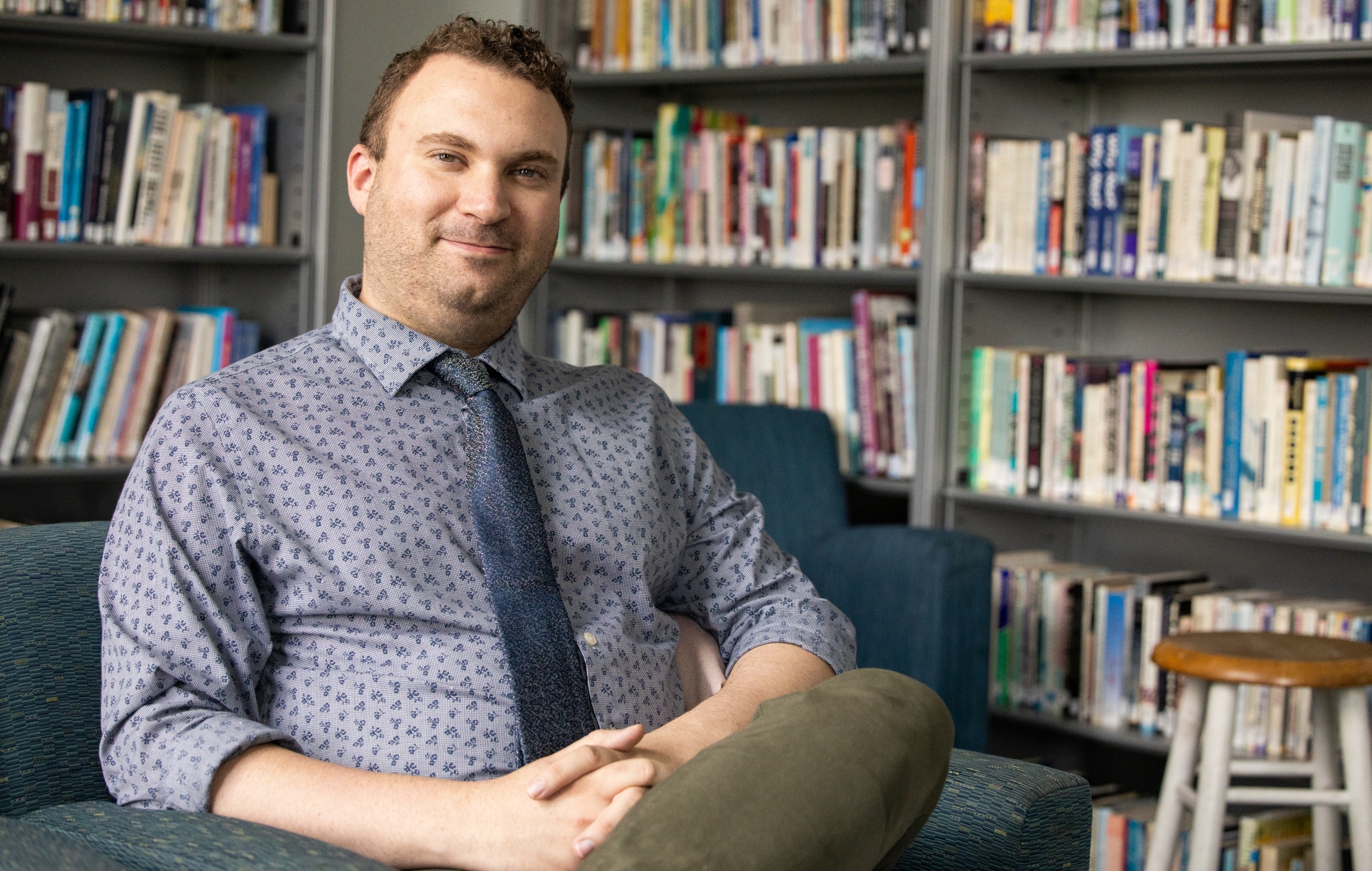
Storytelling leads to career in research and student services
When Zach Parker, assistant director LBGTQIA programs and services, completed an academically intense high school career, he decided to take a gap year. He worked at Disney World to pursue his dream to perform on Broadway. But his experience there revealed that he enjoyed storytelling and working with people more than he realized.
“After Disney I went back to school and began to work with stories and storytelling,” Parker says. “That led me to think about LGBTQIA stories and the research into those pieces.”
Parker was active in LGBTQIA organizations while he was in college at Wichita State University. When he started his graduate work, he moved past participation and worked in the center at WSU in addition to teaching the school’s first LGBTQIA literature course.
“I had students tell me, ‘I’ve never seen myself in a course before.’ That was wonderful and exciting for me as a professional.”
One of Parker’s priorities in his current position is focusing on reconnecting students and helping them find community again following the shutdowns of the COVID-19 pandemic.
“Hopefully we are moving toward more of an ‘endemic,’ and we can regroup around making friends, finding community and building resilience together.”
For Parker, part of that regrouping is reengaging students with the Rainbow Lounge in the UMKC Student Union.
“I’m excited to see students together building communities, because I know from experience that those communities will last beyond their four years here. Forming strong relationships creates resiliency for our students that will last past graduation.”
“It’s important to have a space for folks to be able to go to feel like they don't have to perform for others, and that they can really be authentic.” - Zach Parker
Parker recognizes that the ongoing media attention to gender identity and the varying views on recognition and accommodation can be overwhelming.
“It’s exhausting to have your existence and the fibers of your being debated on national television by folks who don't understand your experience, and who might not ever be able to understand your experience,” Parker says. “There's some really good research coming out right now, about the damage that happens to kids, even if a law never passes, of having divisive information on TV and having that debate go on.”
Parker responds to this pressure by creating a space where people feel that they don’t have to perform for others.
“It’s important for folks to have the opportunity to really be authentic. Sometimes that authenticity shows up as being really exhausted or angry. Those reactions are valid for all of us, especially for our students to understand that we have space for them and they're not alone.”
Jun 13, 2022
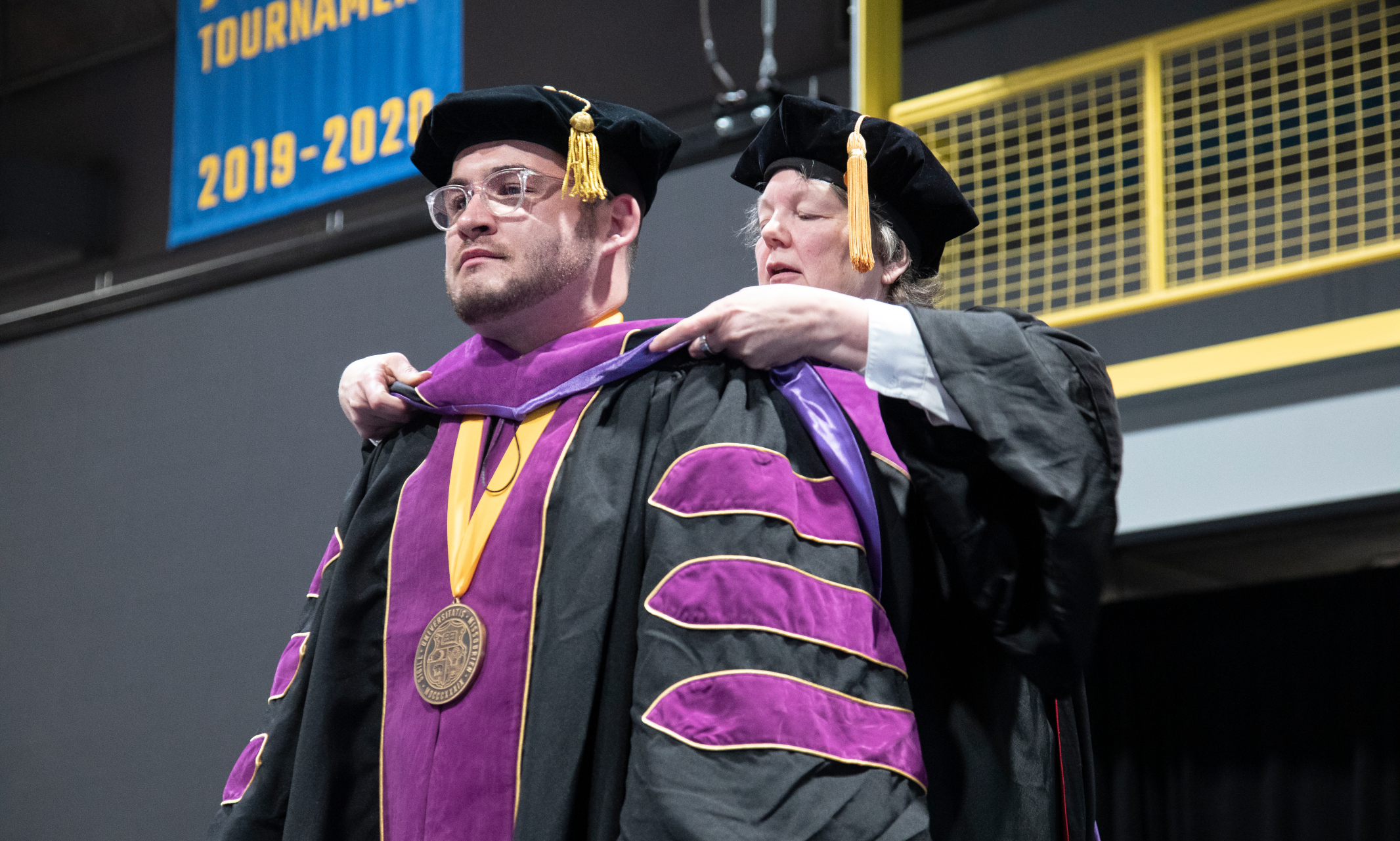
Remington Williams lived a life of service
Remington Williams (J.D. ’22) was a natural leader and caring human being who accomplished much, driven by a passion for helping others.
Williams, the student representative to the University of Missouri Board of Curators, died in a car accident June 8 on his way to get some food after a night of studying for the bar exam. He was 25 years old and had just graduated from the UMKC School of Law, where he was a member of the Law Review and Honor Court.
As student representative to the board of curators, Williams served as the students’ voice to the governing body of the University of Missouri System, which includes UMKC, the University of Missouri-Columbia, Missouri University of Science and Technology and the University of Missouri-St. Louis. He was enrolled in the MBA program at UMSL.
People came from across Missouri, and beyond, for his June 15 funeral at St. Andrew's Episcopal Church in Kansas City. A reception was held afterward at the UMKC Student Union. Curator Robin Wenneker and UM System President Mun Choi were among those who spoke at the church service.
“I think Remington would be so pleased that we have come together to support each other. He always had a way of bringing people together. And that makes me smile. Our presence today is a testament to that,” Wenneker said.
She lauded the way he made everyone he encountered feel seen and heard.
“He cherished each of his many relationships, spanning from childhood through high school and on through Georgetown College and stints at two different UM universities. His friends would come in from Kentucky, Ohio and Tennessee, among other places, to visit him in Missouri because they knew how important they were to him, and he was to them.”
She concluded, “I encourage all of us to do our utmost to live up to the high bar Remington set for kindness, compassion and striving to be our best selves. In doing so we pay tribute to the amazing life Remington led and the amazing life that was ahead of him.”
Choi shared a message from Gov. Mike Parson: “Remington was a great young man and impressive leader who was taken far too soon. We thank him for his service to his peers, the UM System Board of Curators and the State of Missouri,” Choi quoted the governor.
In his own remarks, Choi said Williams lived a life dedicated to service.
“His presence made this state, our communities – and each of us – better,” Choi said. “He was a passionate advocate for student interests to the Board of Curators. He was also a trusted advisor who helped advance our mission of service and excellence.”
“What I will remember most is his signature smile. It was always warm and inviting,” Choi said. “He was a student of life, and he kept exploring and expanding his horizons.”
Friends and associates remember him as involved, committed and upbeat, emanating an infectiously positive and optimistic attitude.
“Remington was a true role model who set an example for student leadership in a way that impressed students, faculty and staff,” said UMKC Chancellor Mauli Agrawal. “He accomplished so much and impacted the lives of so many in his all too brief time with us.” Williams was honored with a moment of silence at the UMKC Board of Trustees meeting June 13.
Claire Shipp, a 2022 graduate of Mizzou, served as executive director of the Associated Students of the University of Missouri, the student-led organization that advocates for student interests at the state level.
“We were really the only two people with system-wide student leadership roles, and we bonded over that. But we also became great friends outside of that,” Shipp said. “He was so well put together, so intelligent, but still a real human being. He made sure that everyone was comfortable in whatever spaces he was in.”
Shipp said Williams took his responsibilities as a student leader very seriously.
“He cared about the people that he was in the trenches for. He carried the burdens of all those 75,000 students, but he would overcome those challenges with such grace and still maintain a fun-loving attitude,” she said. “He was the person I would go to, to fill my cup back up and find hope.”
Remington had a lifelong history of taking on leadership roles and taking personal responsibility for making a difference in people’s lives. His mother, Colette Jones, recalled his resolve at the age of about 10 to help turn around the life of a homeless man he encountered on a church mission trip.
Their church youth group would make sandwiches and take them to encampments of homeless people. On one visit, a man known as “Sonny” ran away in fear when the church group stopped by.
Young Remington took off after him.
“Sonny told me later that he finally stopped and turned around, and when he looked into Remy’s eyes, he knew Remy was safe,” Jones said. Sonny stopped, they talked, and that launched a three-year effort by Williams and his family to get Sonny off the streets and into an apartment. Sonny has remained housed ever since, paying rent with Social Security and pension payments that Williams helped him obtain and volunteering on homeless outreach by the Salvation Army. He remains a close friend of the Williams family.
Williams went on to high school at the Pembroke Hill School, where he went on school-sponsored service trips to small villages in Guatemala, doing manual labor such as digging latrines.
“That’s why he got a degree in Spanish as well as business (at Georgetown College in Georgetown, Kentucky) – so he could go back there and continue working directly with the villagers,” Jones said. While an undergraduate, he continued to make regular trips to Guatemala, on his own, to work in the poorest villages.
His father, Marty Williams, was his baseball coach and helped ignite Remington’s lifelong love for sports. Marty Williams also guided his son’s path to becoming an Eagle Scout.
Williams’ passion for sports led to an autograph-seeking hobby that he pursued with typical zeal. It eventually evolved into a profitable online business selling autographs to other collectors.
At Georgetown, Remington served as student body president (2017-2018), president of his fraternity (2018-2019) and vice president of the Georgetown Activities Council (2018-2019). Williams also served in various capacities for the men’s basketball team and was an active member of both the Accountability Board and Honor Council.
Each year’s graduating class at Georgetown elects one of their own to be commencement speaker. The class of 2019 chose Williams.
He was also a proud graduate of the National Leadership Conference in Shelby, Michigan.
As much as the limelight shone on him, he always looked to share it freely and widely, friends said.
Curator Michael A. Williams, an attorney, knew Remington Williams as both a student representative and as an aspiring law student.
“Remington was the most dedicated and focused young man I have ever met,” Michael Williams said. “Whenever he was talking to someone, he would make them feel like they were the only person in the room.”
“It was awesome to see someone working so hard, trying to be the best that they could be, and still be committed to helping other people be the best that they could be as well.”
At Board of Curators meetings, Wenneker said, he loved to present examples of the accomplishments of other students from the four universities.
"He brought other people along with him. It was never just about him,” Wenneker said.
Wenneker said it was his commitment to representing the entire student body of the system that led him to enroll in the online MBA program at UMSL in 2021. He believed he would be a better representative by being enrolled in multiple universities.
Wenneker recalled Williams deciding to bring the student government presidents from the four universities, and Shipp, all together for a football game at Mizzou.
“They had so much fun being together. He was so proud of them. They were all undergraduates and he was in law school, so he took on kind of an advisory role with them,” Wenneker said.
Williams was appointed as student representative to the Curators by Gov. Mike Parson in July 2020. The UM System’s Office of General Counsel had recently extended an offer of a fellowship to him for the summer.
Jun 10, 2022
UMKC School of Law Class of 2022
The University of Missouri Board of Curators is mourning the death of Student Representative Remington Williams, who died in a car accident June 8.
“Remington was an outstanding individual and a tremendous asset to the Board of Curators,” Board Chair Darryl Chatman said. “He was actively engaged with the students at each of our four universities and worked to amplify their successes, promote their stories and ensure their concerns were heard. Remington was the best of us, and our thoughts are with his family and friends.”
“Remington dedicated himself to the service of the University of Missouri,” UM President Mun Choi said. “As a student of not one, but two System universities, Remington was deeply connected to his fellow students and advocated for their interests to the Board of Curators. He was committed to advancing the mission of the university and ensuring all students had the opportunity to receive an excellent education and an outstanding experience. He will be sorely missed.”
Williams was appointed by Gov. Mike Parson in July 2020. He was a recent graduate of the University of Missouri-Kansas City School of Law, where he was a member of the Law Review and Honor Court. He was also completing a Master of Business Administration degree from the University of Missouri-St. Louis. The System’s Office of General Counsel had recently extended an offer for him to serve as a fellow.
Williams earned a Bachelor of Science degree in Business Administration and Spanish from Georgetown College in 2019. As an undergraduate at Georgetown, he served as student body president, president of his fraternity and vice president of the Georgetown Activities Council. Williams was also a proud graduate of the National Leadership Conference in Shelby, Michigan.
The student representative to the UM Board of Curators serves as the students’ voice to the governing body of the University of Missouri System, which includes the University of Missouri-Columbia, UMKC, Missouri University of Science and Technology and UMSL. The student representative is appointed by the governor of Missouri and confirmed by the Missouri Senate, and serves a two-year term. Appointments rotate among the System’s four universities, so students at each institution have a rotating opportunity to represent the more than 77,000 students enrolled at UM universities.
Jun 09, 2022
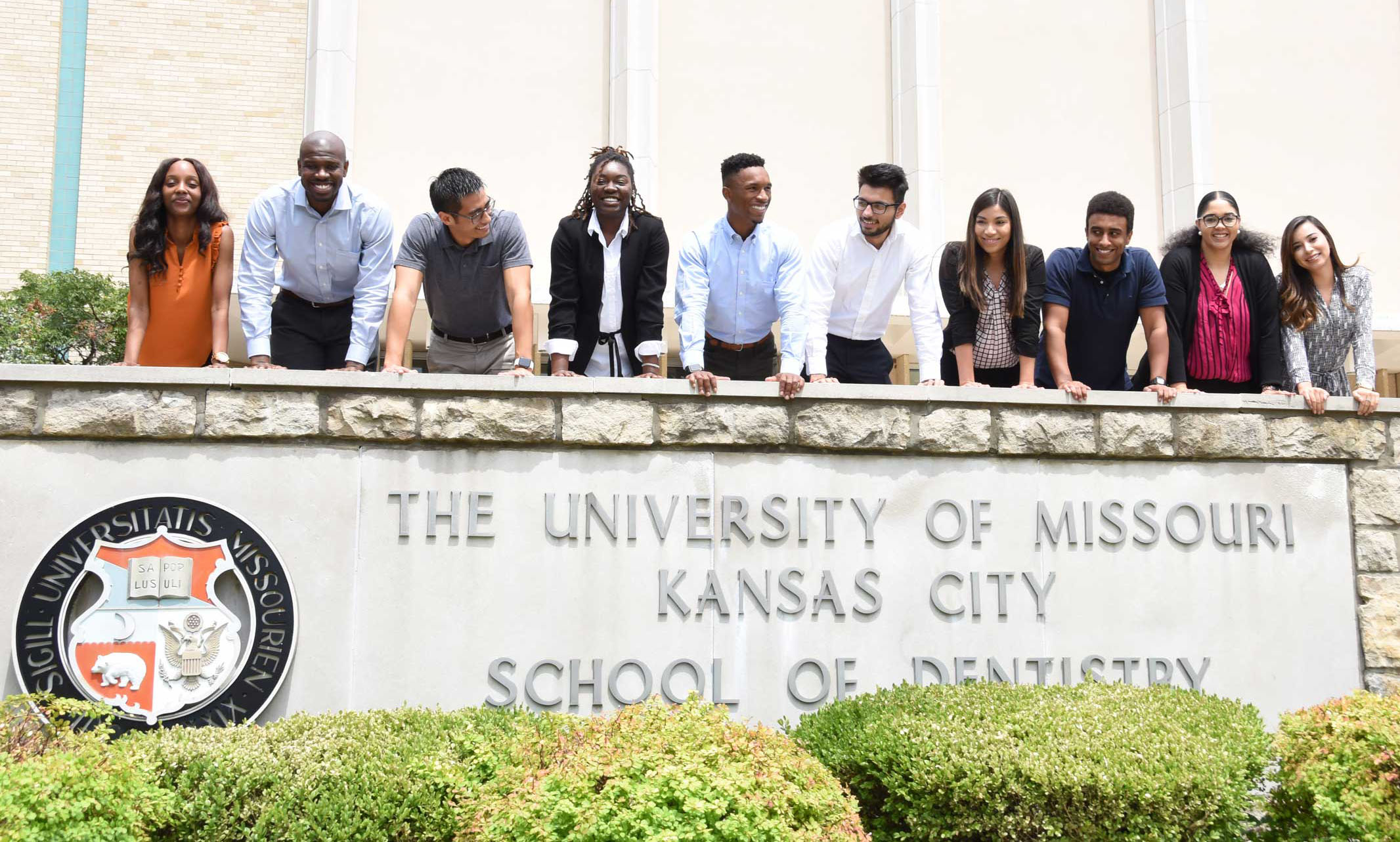
Partnerships with the University of Missouri-Kansas City’s School of Dentistry; BrownGirl, RDH; and Chiefs Flag Football, Powered By GEHA address h...
GEHA (Government Employees Health Association, Inc., pronounced G.E.H.A.) has a storied history of supporting its community with intentional giving, starting in 1937 when the organization was created to help fellow postal clerks after the Great Depression.
This spirit carries through to today, where philanthropic efforts are focused around health equity and positively impacting the social determinants of health. The oral health focus of GEHA Solutions, Inc., a wholly owned for-profit subsidiary of GEHA, has provided an opportunity to make a significant vote toward change by investing in three areas that affect community health.
Within the dental and dental hygiene fields, many communities of color are underrepresented within these industries. According to the American Dental Association, fewer than 11% of American dentists come from African American/Black, Hispanic/Latinx and American Indian/Alaska Native/Pacific Islander backgrounds, compared with these groups comprising 34.4% of the U.S. population. This can affect long-term health outcomes in many ways: apprehension and omission of care appointments, cultural and language misunderstandings and peer-to-peer dentist learning opportunities to better serve patients. To create meaningful, sustainable change, GEHA Solutions has created a $150,000 scholarship and fellowship investment with the University of Missouri–Kansas City’s (UMKC) School of Dentistry to fund opportunities for students representing historically marginalized communities to advance within these industries.
Representing the largest gift of its kind to the UMKC’s School of Dentistry’s Dr. Roy James Rinehart Memorial Foundation in more than a decade, these investments include five $20,000 dental scholarships, five $5,000 dental hygiene scholarships, and five $5,000 pre-dental fellowships to prepare rising dental school students for testing and interviews. Engagement opportunities throughout the school year with GEHA leaders will also assist in preparing these students for future successes. “GEHA Solutions and the School of Dentistry share a mutual interest in culturally diversifying the oral health workforce through the dental and dental hygiene programs at UMKC,” said Steven E. Haas, DMD, JD, MBA, UMKC School of Dentistry dean. “GEHA Solutions’ generosity will help alleviate some of our potential and current students’ financial burdens and allow them to better focus on their goals. The scholarships GEHA Solutions is providing also will help us to attract and retain the best qualified and most strongly motivated historically marginalized students who seek to represent their communities. We are so very grateful for this unique partnership.”
Consistent with this theme, GEHA Solutions has partnered with national nonprofit BrownGirl, RDH for a $50,000 investment in scholarships and continuing education opportunities for historically marginalized communities pursuing a career in dental hygiene. When most of a patient’s dental experience is spent with a dental hygienist, the opportunity for impact toward health equity was a strategic investment for industry growth. These 16 need-based scholarships will be provided to students throughout the United States, ranging from coverage of tuition to dental loupes and equipment. GEHA Solutions will also be the first presenting partner of the 2022 BrownGirl, RDH Leadership Conference, Presented by GEHA Solutions, held in Charlotte, North Carolina, from November 11–13. “Four years ago, an organization like BrownGirl, RDH did not exist. Today, not only are we nationally recognized, but we have brought to the forefront the lack of diversity in dentistry and the importance of introducing the field of dental hygiene to minority students,” said Martelle Coke, founder of BrownGirl, RDH. “BrownGirl, RDH is proud to partner with GEHA Solutions to continue propelling our mission forward.”
Youth sports communities offer great experiences for wellness and mobility, but with this comes a risk for oral impact injuries. According to the American Academy of Pediatrics, athletes are 60 times more likely to suffer harm to the teeth if they are not wearing a mouthguard. In the spirit of using GEHA’s partnership with the Kansas City Chiefs as an intentional tool for health equity and community collaboration, GEHA Solutions will provide 20,000 GEHA/Chiefs co-branded mouthguards to the youth participants of the Chiefs Flag Football, Powered By GEHA program this summer. Providing these safety tools allows for participating families to experience one less expense as an entry point to physical team activities.
“From minimizing youth sports injuries to allowing more communities to see themselves in dental and dental hygiene care, GEHA Solutions is committed to being a bridge toward improved oral health and inclusive oral health practices,” said Richard Bierman, J.D., GEHA Solutions President. “Through these intentional partnerships, our investments can evolve population health through students’ lived and academic experiences. We hope that this diversified strategy around health equity inspires others to take action, as well.”
About GEHA
GEHA (Government Employees Health Association, Inc., pronounced G.E.H.A.), founded in 1937, is a nonprofit member association and the largest dental and second largest medical benefit provider of federal employees exclusively serving 2 million current employees and retirees, military retirees and their families. GEHA’s mission, to empower members to be healthy and well, is demonstrated through its focus on innovation as well as providing members with access to one of the largest medical provider networks nationwide.
Headquartered in Lee’s Summit, Missouri, GEHA is one of the largest employers in the Kansas City metro area. For more information, visit www.geha.com.
About GEHA Solutions, Inc.
GEHA Solutions is an indirect, wholly owned subsidiary of GEHA established in 1997 to market GEHA's Connection Dental® Network as a solution to lower claims costs for dental payers. Today, GEHA Solutions offers multiple dental PPO networks for lease, as well as a Medicare Advantage Network Option. As one of the nation’s leading dental network leasing companies, GEHA Solutions’ dental networks improve accessibility for clients such as third-party administrators, insurance companies and self-insured employer groups.
About the University of Missouri-Kansas City (UMKC) School of Dentistry
Located in Kansas City, Missouri, UMKC School of Dentistry serves as a leader in the advancement of oral health care through exceptional educational programs, scientific inquiry, patient care and service to society. For more information, visit dentistry.umkc.edu.
About BrownGirl, RDH
Founded in 2018, BrownGirl, RDH (Registered Dental Hygienist) is a non-profit organization promoting cultural diversity within the dental hygiene field. BrownGirl, RDH offers scholarships and supplemental support to dental hygiene students covering costs outside of tuition. These include clinical supplies, equipment, loupes and national and clinical board fees. For more information, visit browngirlrdh.org.
Jun 08, 2022
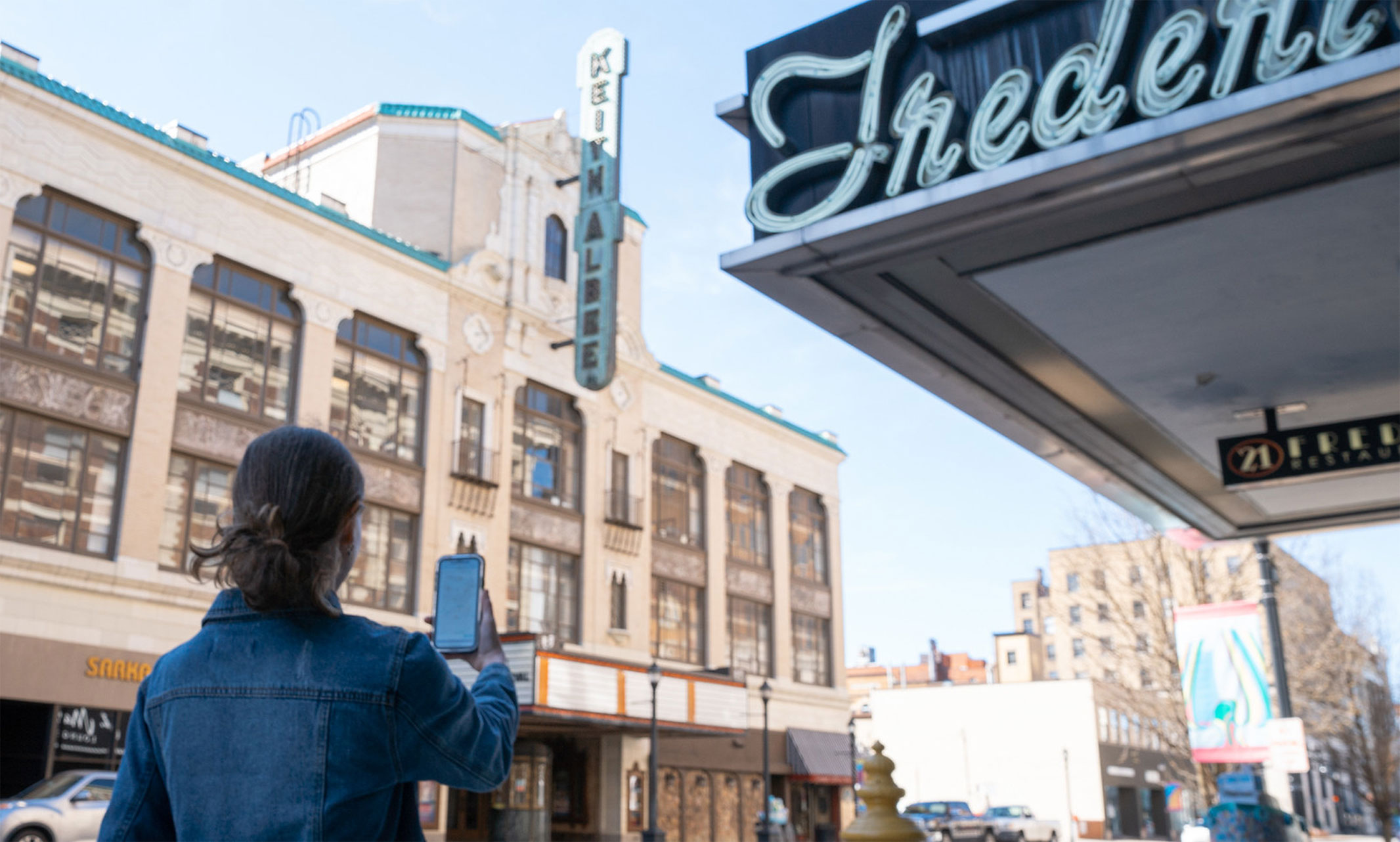
App developed by UMKC history professor now includes immersive virtual tours
Imagine if all you could discover the history behind buildings and other landmarks as you move through a city, or with the touch of a button, you could experience a guided walking tour that included first-hand accounts. Thanks to the work of over 500 museums, historical societies, universities, libraries and other organizations around the country, that’s now a possibility in the free mobile application, Clio.
“Clio picks up your location when you're in the app,” said David Trowbridge, a professor of history at UMKC and the app’s developer. “There's an arrow that will guide you and tell you how many feet you need to go. You can take a walking tour, browse nearby landmarks or even create and save your own itinerary based on a growing library of over 35,000 landmarks throughout the U.S.”
David Trowbridge, developer of Clio
Clio began as a local history project at Marshall University, where Trowbridge was teaching at the time.
“I was just trying to figure out a way to really reach my students,” Trowbridge said. “They had a very strong sense of place, of things in their hometown, things in their county. So, I said ‘Let's start with that. Tell me the history of a place that matters to you.’”
Students embraced the challenge, and before long, draft articles that began with online research inspired students to visit libraries and archives, make phone calls, and record interviews of people in their community.
“When students found one source, it led them to another and they cared so deeply about getting the history right that they often edit their Clio entries after the semester ends,” Trowbridge said. “Can you imagine a school project you want to keep working on the project when the class is over?”
Eventually the project outgrew his technology skills, but Trowbridge and his students wanted to keep it going.
“At that time, I barely used a smart phone, but when I saw the way my students dug in to the project, I knew I had to keep building,” he said.
Trowbridge formed a non-profit so that Clio would always be free and open, and soon, what began as a class project turned into a website and app used by other historians to share the history of their communities. He named the platform Clio in honor of the ancient muse of history. Funded by donations and grants, the app grew from the entries of one class to more than 38,000 entries all across the nation, including 1,400 walking tours that allow users to experience the history around them in real time. No cell phone to download the app? No problem. Anyone with internet access can browse the entries in a web browser as well.
As museums and historical sites around the country were working to deliver their experience in a virtual world, Trowbridge worked to build a free platform that was intentionally designed for museums and sites.
“I looked at the virtual tours that were being created during the pandemic, and they were pretty good,” Trowbridge said, “but I knew we could build something a little better that could work both virtually and in-person.” The solution was a 360° immersive experience, complete with museum maps and interactive content that allowed you to see extra materials and videos from museum experts, something you do not always experience at museums when you visit in-person. Trowbridge uses a LiDAR scanner connected to a 360° camera to build an interactive map and then records and embeds text, video, photos and links related to each artifact and exhibit.
Even after this huge addition to the app, Trowbridge isn’t going to stop there. In addition to expanding into STEM and Art exhibits, next steps for Clio include geofencing, so users can get push notifications about entries when they’re out and about on vacation or in their hometown.
“One of the major points is the serendipity factor,” Trowbridge said. “You can’t search on Google for what you don’t know. It works a lot better if you just open up the app and it shows you what's nearby.”
If you are interested in exploring Clio for yourself, it is available in app stores and online at theclio.com.
Jun 07, 2022
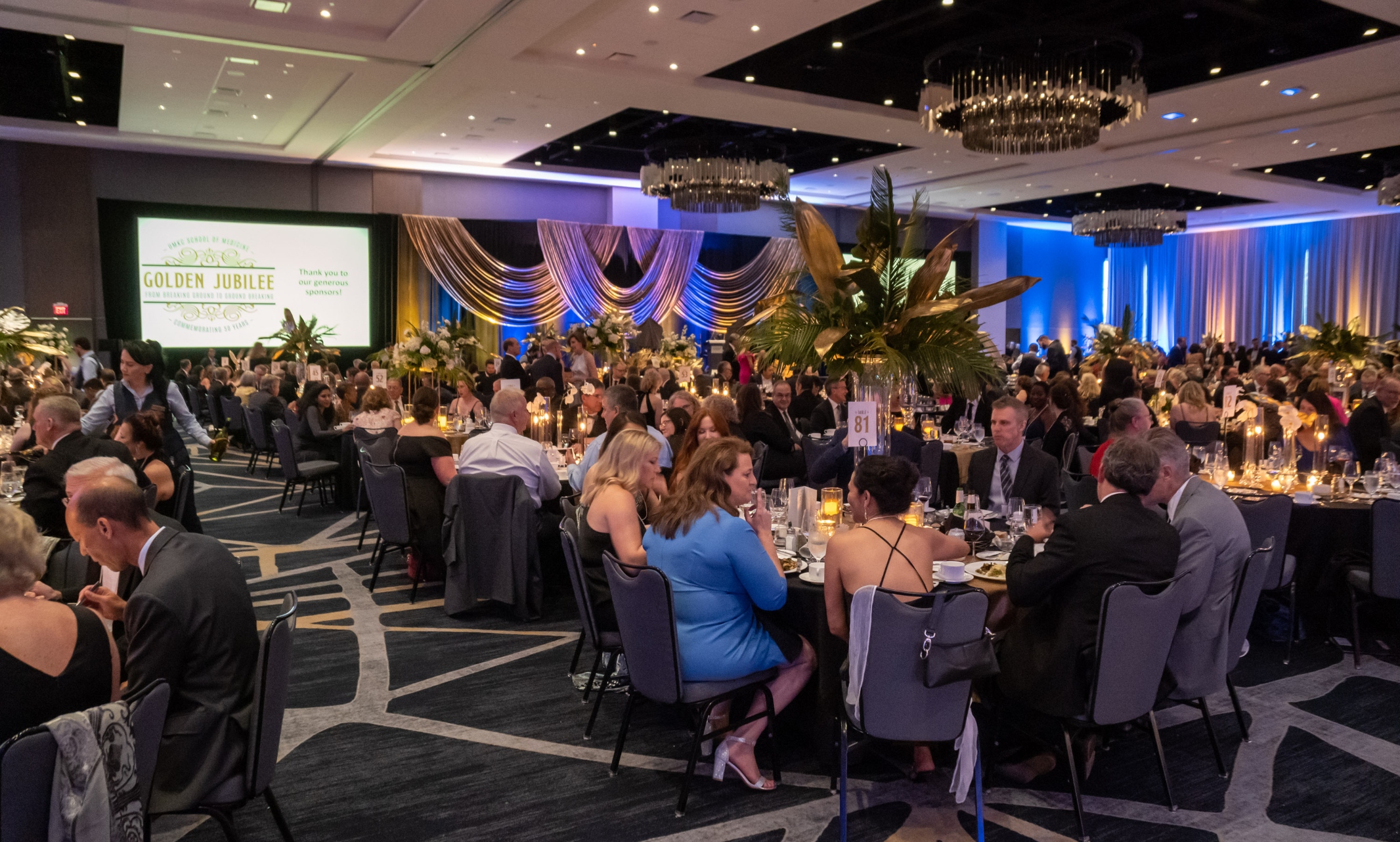
Alumni and community leaders honor successful past and promising future
The University of Missouri-Kansas City School of Medicine this weekend celebrated its rich 50-year history as a leader in innovative healthcare education and delivery in the urban core of Kansas City, and its future potential.
Event chairs Rachael and Nelson Sabates, (B.A. ’83, M.D. ’86) and honorary chairs the Honorable Brenda Shields and Charlie Shields, president and CEO of University Health, welcomed more than 800 guests including community supporters to the event, which raised close to $600,000. Michele Kilo, M.D. ‘84 and her team of alumni liaisons were critical to raising alumni awareness of the event. Nearly 400 UMKC School of Medicine alumni attended to celebrate 50 years of excellence.
Mary Anne Jackson (M.D. ’78), dean of the medical school, recognized Lucky Chopra (B.A.’91, M.D.’92), as the recipient of the 2022 UMKC School of Medicine Alumni Achievement Award.
“Dr. Chopra’s entrepreneurial career began while he was still in his final year of radiology residency,” Jackson said. “Working out of his garage, he purchased an old milk truck and converted it to carry a ‘barely portable’ radiology X-ray machine and began contracting with local Houston nursing homes to provide imaging services without the patient having to travel. His company, Advanced Diagnostics Healthcare, was born.”
"Four thousand alumni strong, we are the backbone for health care in a multitude of communities, serving as innovators and leaders in clinical care, as educators, department chairs, section chiefs and medical school faculty, as leaders in diversity and advocacy, and national leaders in research.” - Mary Anne Jackson, M.D., dean UMKC School of Medicine
Jackson celebrated the school’s outstanding legacy beginning with the first dean, Richardson K. Noback, M.D., who will be 99 years old this year, and the late E. Grey Dimond, M.D., who developed the accelerated curriculum and docent concept that is now a part of medical programs across the county.
Jackson acknowledged the tight connection between the school and Kansas City.
“We are the anchor to healthcare in the urban core and beyond,” Jackson said. “Teaching students how to use information, how to approach ambiguity and uncertainty and to think critically about challenges in medicine and biomedical science, continues to be part of our DNA. Four thousand alumni strong, we are the backbone for health care in a multitude of communities, serving as innovators and leaders in clinical care, as educators, department chairs, section chiefs and medical school faculty, as leaders in diversity and advocacy, and national leaders in research.”
Jackson noted the significant contribution of the school’s clinical affiliates and their dedication to student education by providing opportunities for students to participate in care for diverse patient populations and to see cutting edge medical care and its affects.
“We are grateful for the strong partnerships with University Health, Children’s Mercy, St. Luke’s Health System, Research Medical Center, the Center for Behavioral Medicine, the Kansas City VA, Advent Health and Liberty Hospital.”
New partnerships have led to the student opportunities and advancement of health care statewide.
“In 2021 we launched our additional campus in St. Joseph, Missouri and welcomed our newest affiliate, Mosaic Life Care, to recruit, prepare and encourage these students to become part of the primary health community in rural Missouri counties,” Jackson said.
After highlighting the outstanding successes of alumni, UMKC chancellor Mauli Agrawal recognized the event chairs for their untiring leadership and support of the School of Medicine.
“This spectacular event is much more than a party,” Agrawal said. “This evening represents and celebrates generations and decades – literally five decades – of students, graduates, critical health care providers and their teachers. Just as the UMKC School of Medicine was launched with an innovative vision of healthcare education five decades ago, we move into the next fifty years with an exciting vision for the future of the school.”
Jun 06, 2022
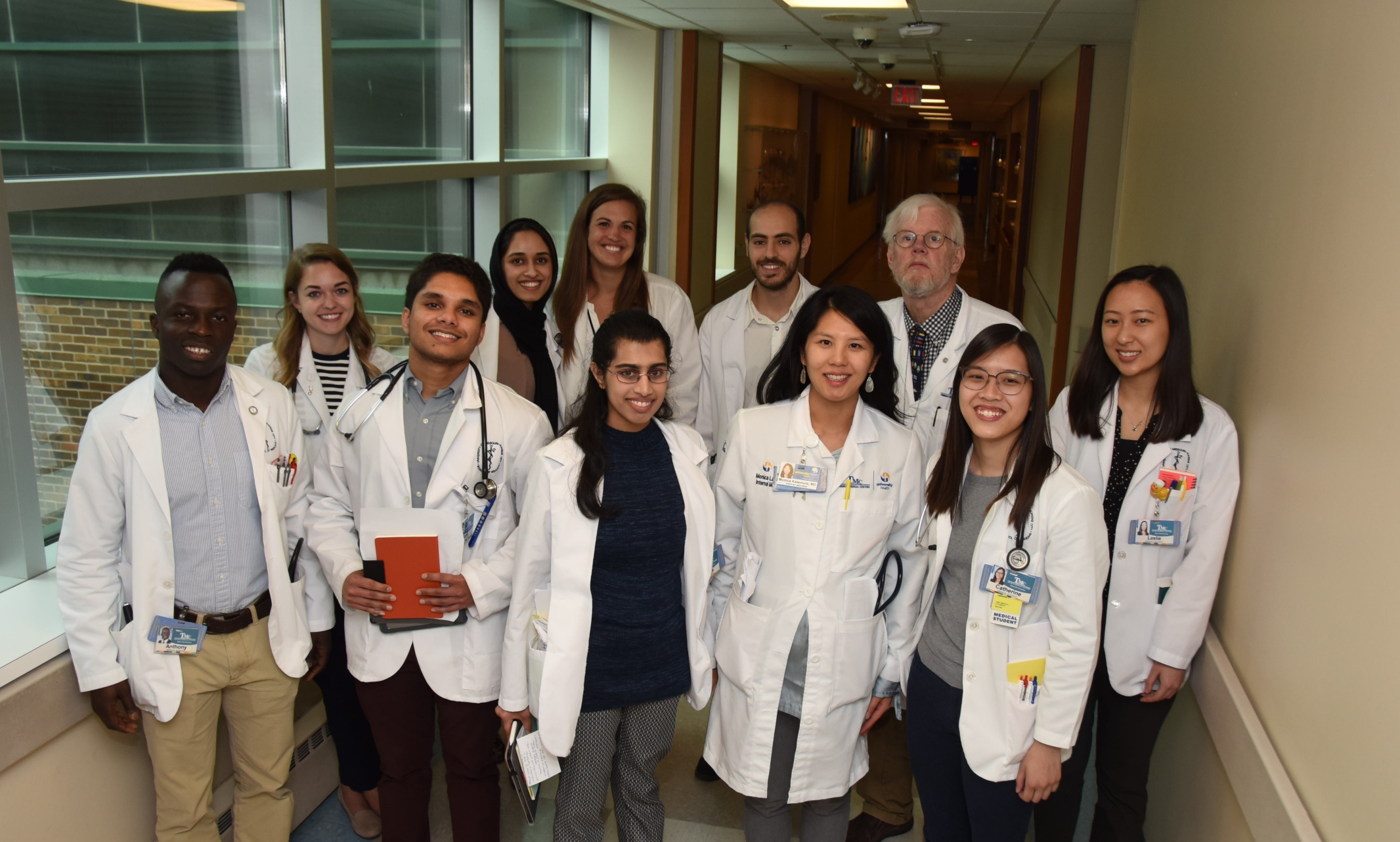
A look at the unique qualities, accomplishments of the UMKC School of Medicine
Fifty years ago, UMKC launched a bold experiment in educating the medical leaders of the future. Today, the UMKC School of Medicine is a cornerstone of Kansas City’s medical community.
Along the way, the school has grown into a national leader and trend-setter in medical education with innovative research that has improved the health and well-being of Kansas City, the state of Missouri and beyond.
Here are 5 things that make UMKC’s School of Medicine so special:
The UMKC School of Medicine is one of only two medical schools nationally that accepts students upon high school graduation and puts them through a rigorous program that earns them B.A. and M.D. degrees in just six years. Upon entering the B.A./M.D. program, students are classified as professional students. They begin studying medicine on their first day and clinical experience begins immediately. The initial two years also include courses leading to bachelor’s degrees in liberal arts, chemistry or biology. Clinical experiences increase in the third year, when students work together one-half day a week in an outpatient continuing care clinic. They also work on two-month internal medicine rotations throughout each of their final three years.This unique and innovative curriculum provides students with early and continuous patient-care experience and fully integrates liberal arts/humanities, basic sciences and clinical medicine. The learning environment de-emphasizes competition and encourages learning through close faculty-student interaction and student partnerships.
As a foundation of UMKC’s medical education program, the docent system takes the best of apprenticeship learning and combines it with small-group teaching, mentoring, peer coaching and other techniques. Students start their education by joining a docent team, where they learn from one another, as well as from faculty physicians known as docents. In this setting, docents provide clinical instruction while also guiding students’ personal and professional development. The system develops the attitudes, beliefs, competencies, habits and standards students need to be the best physicians possible.
In 2021, the school expanded its program to St. Joseph to address the state’s rural physician shortage. The new campus is a partnership with Mosaic Life Care and is aimed at increasing primary care providers to improve patient access throughout Missouri. The disparities in care in rural areas result in higher rates of death, disability and chronic disease for rural Americans, and have intensified during the COVID-19 pandemic. Expansion of the UMKC medical school to the northwestern region of the state will serve to bridge this gap, knowing that students training in rural programs are three times as likely to remain in practice in those areas.
Throughout its history, the UMKC School of Medicine has established a strong tradition of community outreach – a practice its students engage in early on and one that graduates carry with them into their careers.
Our Healthy Kansas City Eastside, a community health collaborative created to address COVID-19 in underserved neighborhoods, administered more than 11,000 vaccinations in Kansas City neighborhoods with high health care disparity. Backed by nearly $5 million in CARES Act funding through Jackson County, Jannette Berkley-Patton, Ph.D., professor of biomedical and health informatics and director of the UMKC Health Equity Institute, took up the challenge to bring the message as well as the needed vaccines to Kansas City communities with some of the lowest vaccination rates in the city.
The Sojourner Health Clinic was founded by a group of medical students in 2004. Students have organized this program as a service-learning project: Students from across the health sciences campus learn about working with vulnerable populations outside of the hospital setting and how to create and sustain a free health clinic, while providing a needed service to the Kansas City community.
Students Training in Academia, Health and Research (STAHR) Partnership is a two-part program to increase the number of students from disadvantaged backgrounds entering health-care programs and to better prepare them for success.
UMKC is one of 20 universities in the country where Dentistry, Medicine, Nursing and Health Studies, and Pharmacy share a single, walkable campus, fostering exceptional student learning opportunities. Why does that matter? That co-location encourages interprofessional collaboration on clinical care and research from the get-go. Together, our four health sciences schools share the vision and spirit, along with the resources and academic programs, to launch you into the right health professions career. Our unique structure positions UMKC as a leader in interprofessional education -- a cross-discipline approach that prepares students to provide the best patient care in a collaborative team environment. UMKC is Kansas City’s top provider of health care professionals.
More information on the School of Medicine’s 50th Anniversary
Jun 03, 2022
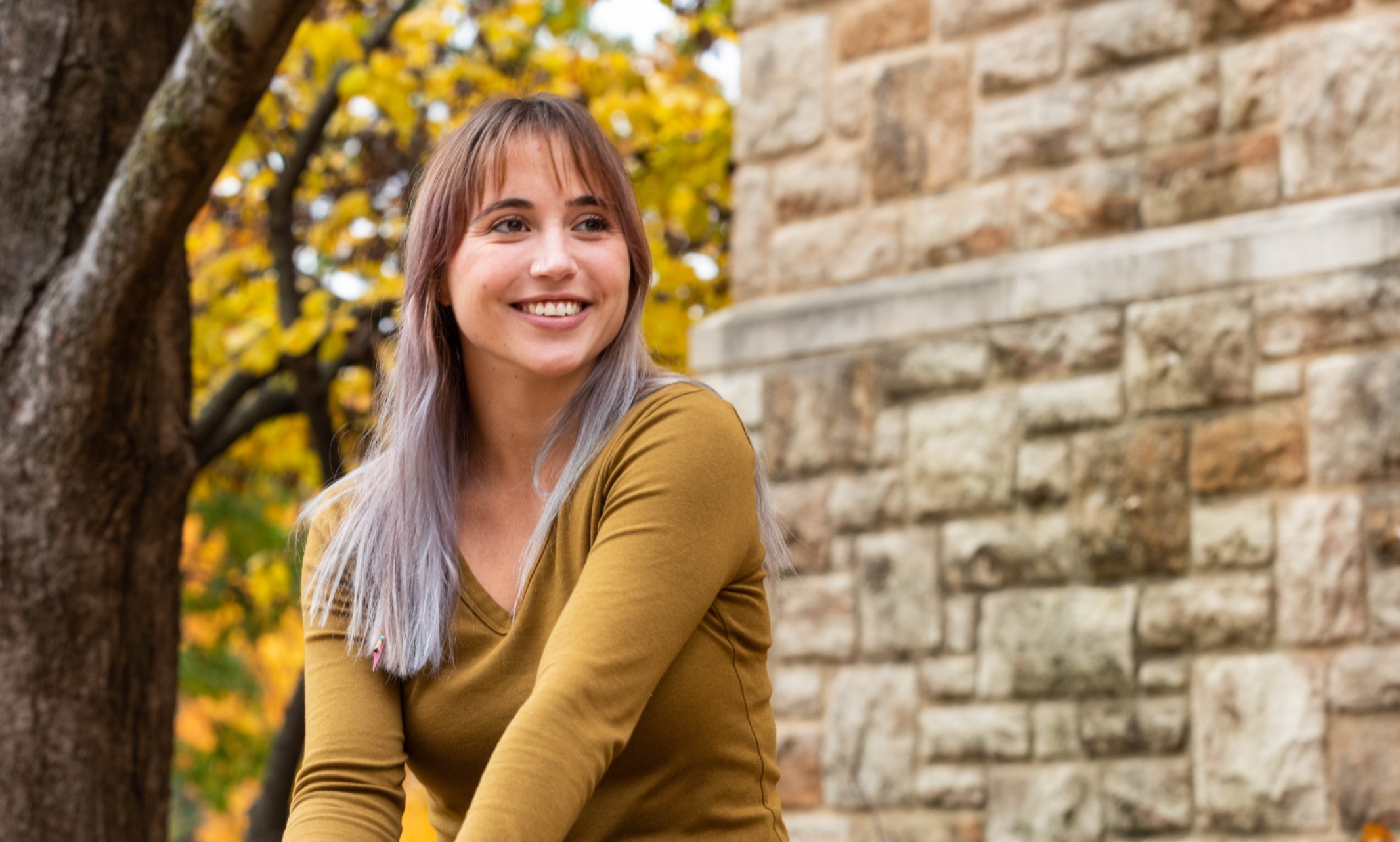
Amanda Pierce has dedicated her adult life to making more sustainable communities, on the ground and in the lab
Roos don’t just dream, they do. Our students turn ideas into action every day. Get to know our people and you’ll know what UMKC is all about.
Amanda PierceGraduation year: Spring 2022UMKC degree program: B.S. Environmental ScienceHometown: Leawood, Kansas
Amanda Pierce (B.S. ’22) lives her commitment to environmentalism. Literally. While pursuing projects, she has lived in her car, and in a tent on the beach in Tulum, Mexico.
Before enrolling at UMKC, Pierce spent five years traveling across Peru, Belize, Mexico, Florida, Alabama, Louisiana and Texas working on environmental projects. She built gardens and houses, saved animals from fishing nets, volunteered on nature reserves, cleaned trash from beaches and dug wells.
Pierce during her volunteer trip in Mexico. Photo courtesy of Amanda Pierce
After several years of seeing the effects of climate change up close, she wanted to do more. So, she moved back home to Kansas City and enrolled in the environmental science program at UMKC.
“I saw people in these underdeveloped and unprivileged countries who wanted to live cleaner and healthier, but did not have the means. I saw things like plastic and fossil fuels and driving our cars were the problem,” said Pierce. “I knew I had to do something about it. It’s now or never and we’re running out of time.”
Just like she did with her volunteer work, Pierce poured herself into her studies. In addition to her coursework, Pierce took part in the inaugural Emerging Research Scholars cohort, a UMKC program launched in 2021 to support undergraduate research.
“That was really cool. I highly recommend it for anyone researching at UMKC,” said Pierce.
She secured grant funding to conduct two undergraduate research projects. The first study was conducted in the 2021-2022 academic year. Pierce found that a certain type of moss removed carbon dioxide and balanced the pH level in water samples collected from Indian Creek in Johnson County to near drinking-water level. She presented her findings at the 22nd Annual Symposium of Undergraduate Research and Creative Scholarship where she received a Presentation of Distinction, which recognizes excellence in research.
Pierce was awarded a Presentation of Distinction for her research in Spring 2022. Photo courtesy of Amanda Pierce
“I’m a real scientist now,” Pierce said. “I had the opportunity to share my findings and get over the fear of not being able to talk about stuff because I was still a student. It made it feel more professional.”
Pierce went to two other colleges before coming to UMKC. She said her professors at UMKC were supportive and made her feel like she was part of something bigger, something she said she had not had in her previous college experiences.
“Dr. Sun is great, I love his classes. Professor Davies was my mentor and I had so much fun in her class. She’s just like that really cool aunt that everybody wants to go hiking with. I love Professor Graettinger. I didn’t want to graduate because I didn’t want to leave her class,” said Pierce.
She’s now pursuing her Geographic Information System (GIS) certification and conducting a Summer Undergraduate Research Opportunity research project focused on alternative ways to grow duckweed, which is the fastest-growing plant on earth and effective at removing carbon dioxide.
“My whole career future is wetland-related,” said Pierce. “Definitely all of my research is going to be related to removing carbon from the atmosphere.”
Pierce graduated in 2022. Photo courtesty of Amanda Pierce
In addition to all the knowledge she has gained through her classes and research, Pierce said she has also learned about herself in college. Her goal is to take what she has learned and be a lab technician or a field worker.
“I’m excited to use the skills that I’ve worked so hard for. I used to think so globally, but now I’m more realistic. More locally, wherever I go, I want to make a difference,” said Pierce. “I’ve learned that if you really care about it and you really want it and you put in the time for it, it will pay off.”
Jun 02, 2022
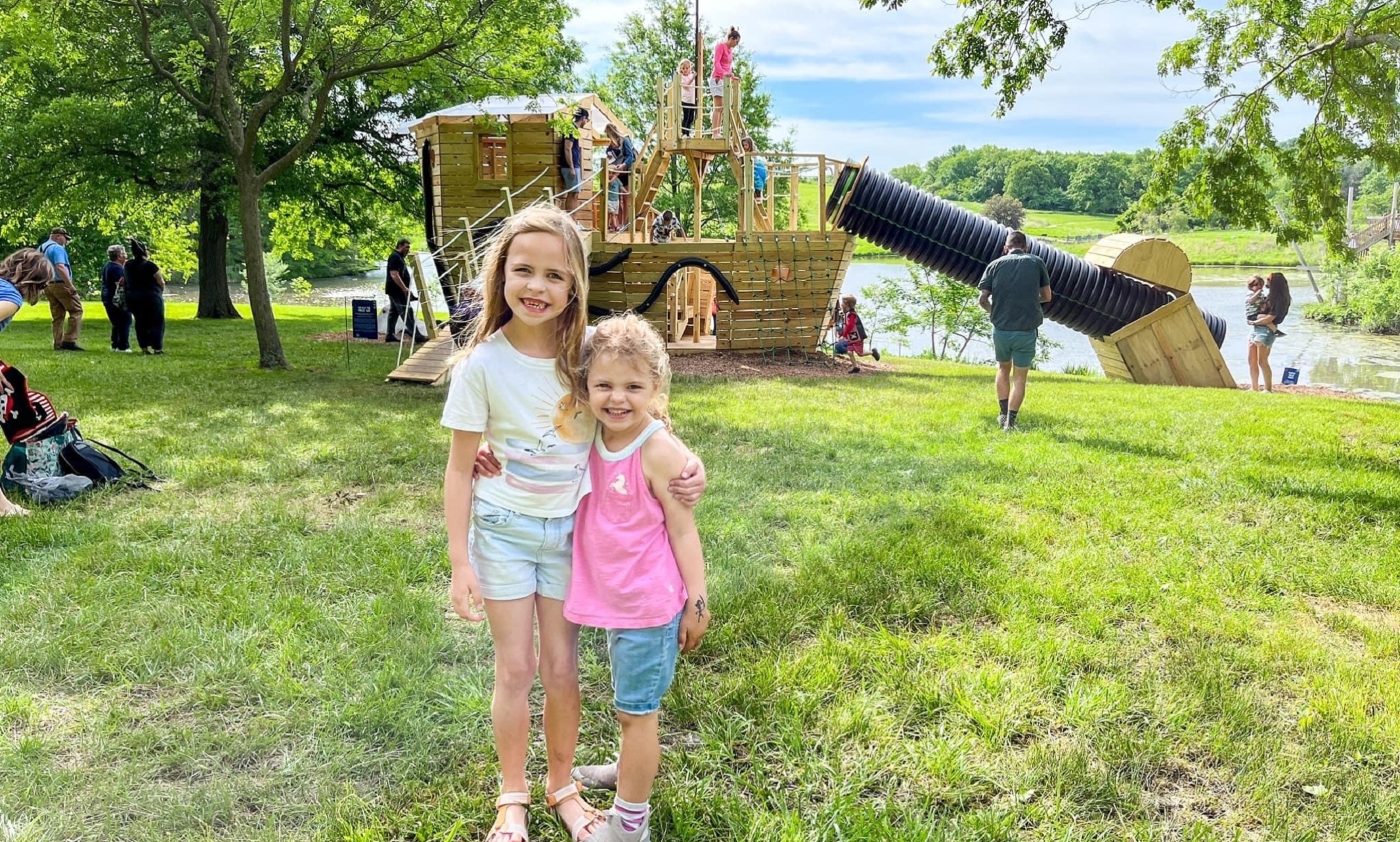
UMKC School of Education students and children at the Berkley Center create winning entries for Fortopia
Students in the UMKC School of Education and children of the Edgar L. and Rita A. Berkley Child and Family Development Center produced two of the eight winning entries for Fortopia, Powell Gardens outdoor exhibit of forts.
The other six designs chosen by a juried selection process were created by professional garden designers, architects and artists, all adults.
The Fortopia exhibits designed by the two teams are “The Lucky Woodland Find: Morel Fort” and “Skully the Pirate Ship.” Ekaterina Strekalova-Hughes, associate professor of teacher education and curriculum studies, is the team lead for the School of Education Early Childhood Program which produced “Lucky Woodland.”
“’Lucky Woodland’ is a fort inspired by memories of Missouri childhoods that were spent hunting coveted morel mushrooms and playing in forts,” Strekalova-Hughes says. “We wanted to acknowledge the strong connections between childhood play and nature. This resulted in design elements that include a secret reading hideout, see-through mushroom caps that provide a view of the surrounding landscape and log seating area and sculptural leaves for climbing.”
“The children enjoyed creating something out of their collective imagination that they can use and share with other children. They were excited that everyone, even children they don’t know, would get a chance to play.” — Kelly McDonald
“Lucky Woodland” is designed to engage visitors of all ages. The four-foot-tall chalk wall in Morel 1 allows toddlers and taller visitors to draw at their own height. The interactive sound wall in Morel 2 features music production at different heights as well, so even children who are crawling will have the opportunity to participate in making music.
The team at Powell Gardens has taken the engagement with “Lucky Woodland” a step further.
“We have been so inspired by “The Lucky Woodland Find: Morel Fort” that we are developing a collections tour based on foraging that premiers in alignment with Fortopia. The tour content will be published online through our botanic collection database.”
The concept for “Skully the Pirate Ship” was created by the children in the Zoo Room at the Berkley Center, a component of the School of Education that serves as a learning laboratory for students in early childhood education. Teachers Asia Whisenhunt and Kelly McDonald noticed that the children in their classroom were playing “pirates” almost every day and had been building pirate ships on the playground and in the classroom. They thought it was a natural next step to let the children take the lead in designing a fort based on their play.
“They were in charge of each step of the process,” Whisenhunt says. “They sketched designs, had design meetings, discussed building materials, built prototypes, ultimately agreed on a single plan and approved the final proposal. They were in charge, and we made changes as needed based on their feedback.”
The Berkley Center classrooms engage in project learning, so fort design and construction was a natural fit. There were strong learning components as well.
“This project supported mathematical concepts, language and literacy, communication, social interactions, conduct in a group, among other things,” McDonald says. “The children enjoyed creating something out of their collective imagination that they can use and share with other children. They were excited that everyone, even children they don’t know, would get a chance to play.”
The Fortopia exhibit at Powell Gardens runs from May 26 through October 16, with a member preview May 25.
May 31, 2022
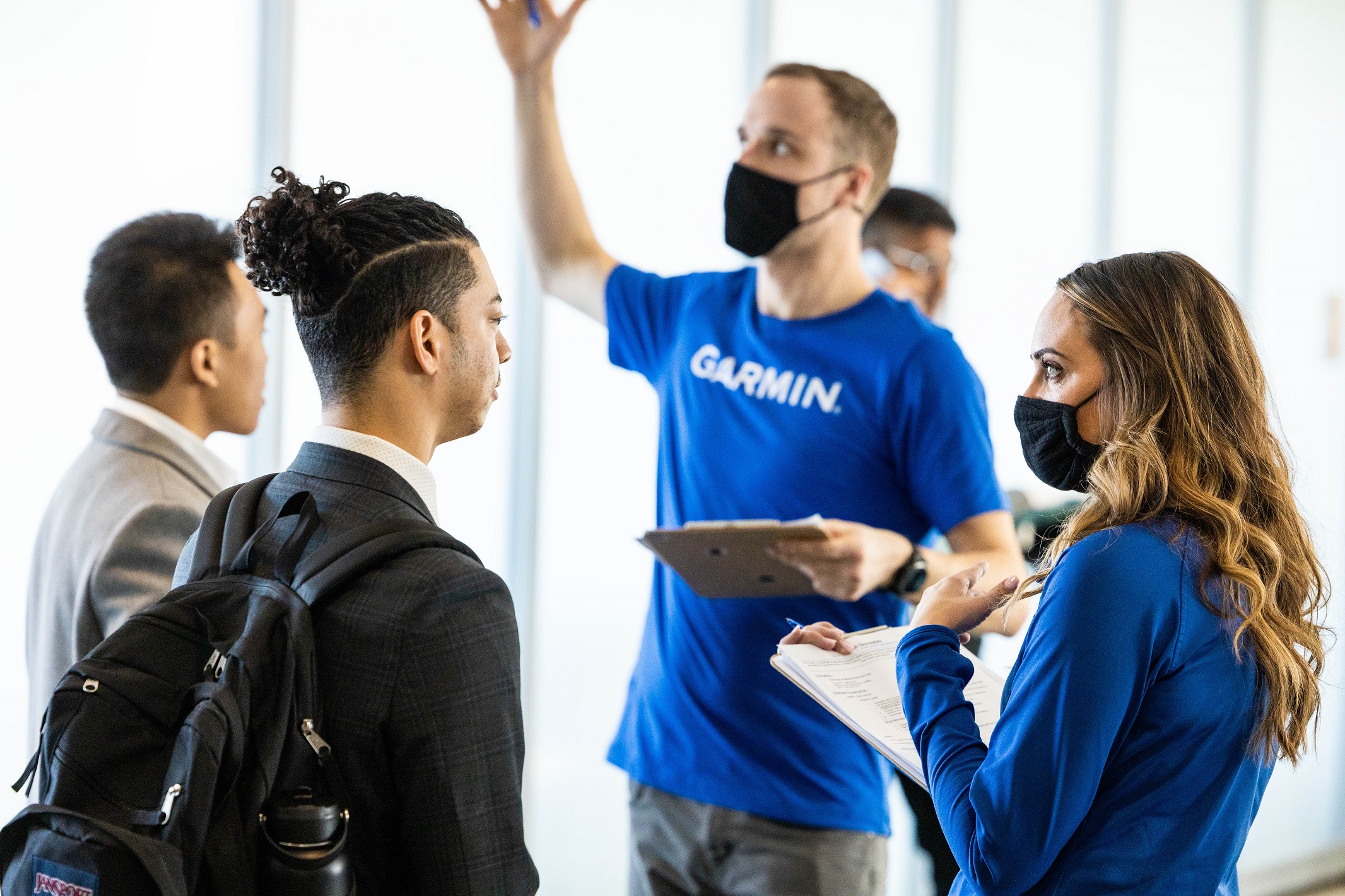
Kao Family Foundation Establishes Garmin Scholars Program at UMKC
The Kao Family Foundation has donated $50,000 to establish a new scholarship program at the UMKC School of Computing and Engineering to increase opportunities for underrepresented students and escalate innovation in the field.
Min H. Kao, the co-founder and executive chairman of Garmin, and his wife, Fan, established the Kao Family Foundation to improve education standards, promote social welfare activities and enhance civic morality. The organization is focused on a results-driven approach to long term sustainable development.
The Garmin Scholars Program establishes scholarships to fund five full-time underrepresented students with a GPA of 3.0 or higher for up to $2,000 a year for five years.
“One of our goals of this partnership was to increase career awareness in engineering,” says Laurie Minard, vice president, human resources at Garmin. “We have career opportunities in electrical, mechanical and software engineering, and we want to be an employer of choice. Partnering with UMKC makes sense. The university is right here in our backyard. We want to invest in students and give them exposure to a local company that is doing amazing things. We are hoping they will appreciate what it’s like to work here and want to be a part of Garmin on a full-time basis once they graduate.”
Participating in career fairs for internships is one way Garmin is escalating intern recruitment at the university.
“We want to get in front of UMKC students and let them know that there are opportunities – right here in Kansas City – available for them at Garmin.”
“The relationship between UMKC and Garmin is already strong and mutually beneficial. We look forward to more and more of our students having the opportunity to intern and work for Garmin.” — Kevin Truman, dean, School of Computing and Engineering
Minard says their five different business segments allow Garmin to provide experience in areas as broad as aviation, automotive, fitness, marine and outdoor recreation.
“We want to connect engineers who are passionate about the products we make with the opportunity to contribute to innovation in the features and functionality of those products.”
Minard notes that the growing demand for technology that is increasingly complex – and able to be used in smaller and smaller devices – escalates their need for well-trained associates.
“We have great people in leadership positions at Garmin who graduated from UMKC,” Minard says. “And we’ve seen that under Dean Truman’s leadership, the programs are increasingly better.”
The development of the Robert W. Plaster Free Enterprise and Research Center furthered Garmin’s enthusiasm for UMKC graduates.
“We’ve toured the labs and seen the new technology being used,” she says. “Having that level of experience in Kansas City is a huge plus, as our interns and associates wouldn’t need to relocate.”
Kevin Truman, dean of the School of Computing and Engineering, says expanding the relationship with Garmin benefits UMKC as well.
“There’s increased opportunity on both sides,” Truman says. “UMKC gains through our students’ exposure to Garmin’s experience with commercializing technology, in biometrics and wearables, all the way up to their auto-land and aviation flight simulator. Garmin has access to our research teams, who are doing cutting-edge research, particularly in the defense sector.”
Minard says that seeing the technology at the Plaster Center in person and talking to students studying there expanded Garmin’s perception of the opportunities with UMKC.
“I wanted our engineering and IT leaders to take time out and see how advanced and exciting the technologies at the Plaster Center are,” she says. “Seeing the scope of projects that the students are working on really opened their eyes.”
Minard notes that Garmin’s great benefits and educational assistance for their associates who want to pursue advanced degrees are additional benefits for UMKC graduates.
“The relationship between UMKC and Garmin is already strong and mutually beneficial,” Truman says. “This scholarship is a critical next step. We look forward to more and more of our students having the opportunity to intern and work for Garmin. Beyond that, we see mutual value in strengthening our relationship with their product developers to provide state-of-the-art research to benefit their products and further their success as well.”
May 25, 2022
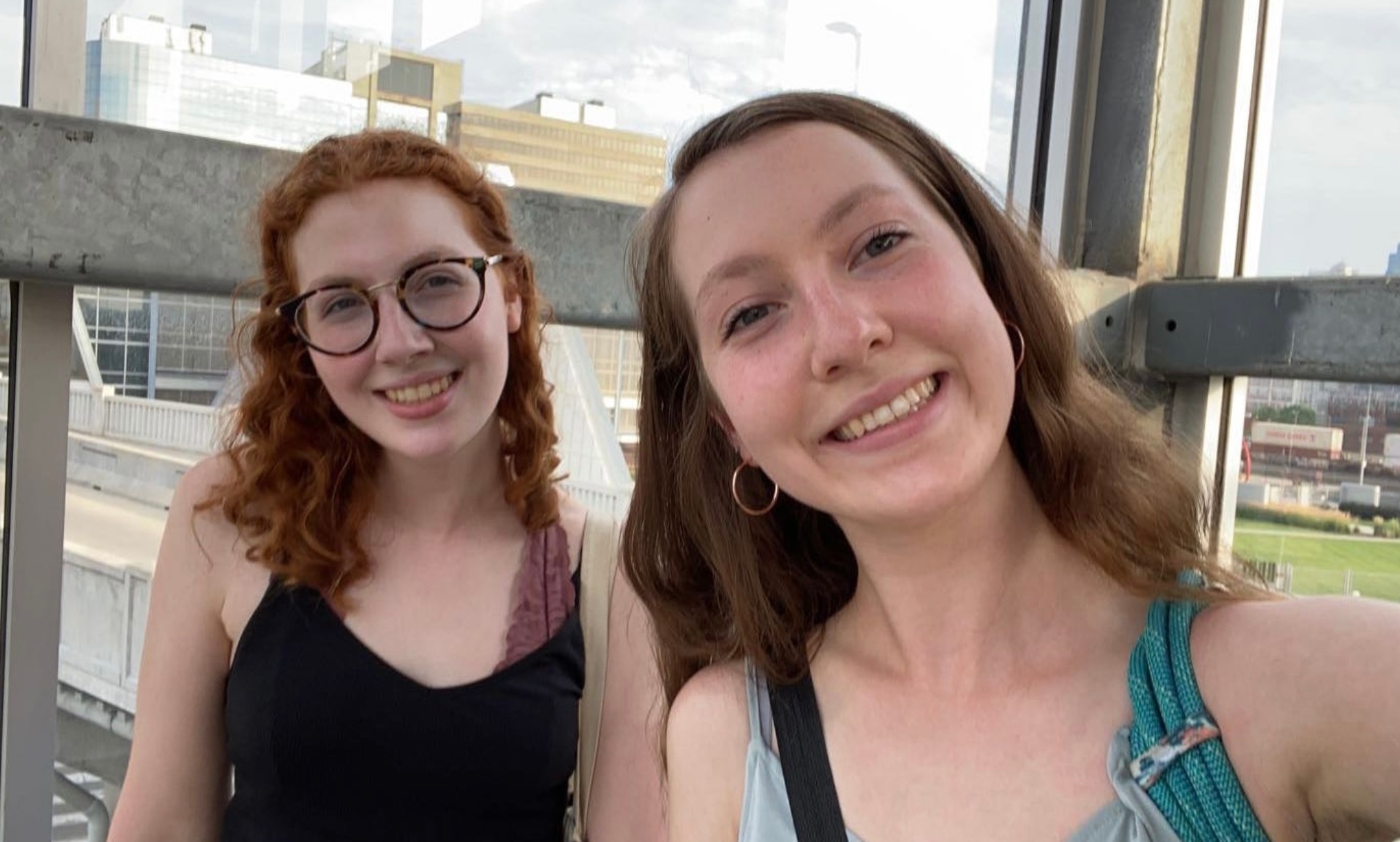
Partnership between UMKC and KC Scholars worth $10,000 a year
Lauren and Ana Textor are no strangers to hard work. As high school students, both worked nearly full-time while attending Piper High School in Kansas City, Kansas. These days, both still work just as hard, but thanks to a scholarship from KC Scholars and UMKC, they are focusing their efforts on their education.
Both sisters received a scholarship worth $10,000 per year, which covers their tuition at UMKC. Lauren, the elder sister, got her award in 2018, with Ana receiving the same award in 2019.“In high school I was working so much and taking AP classes because I was always worried about how I was going to afford college. I wasn’t really taking care of myself,” said Ana. “Since I have tuition taken care of, it’s allowed me to slow down a lot, which has been really nice.”She now majors in sociology and environmental studies with a minor in anthropology. She is involved in the Peer Academic Leadership (PALS) program, Honors Program and First Gen Roos. In addition to her courses and extracurricular activities, Ana also conducted independent study. Ana said her scholarship has allowed her to spend more time with her friends and family and focus on her academics.“My grades have been a lot better than they were in high school, and it’s been a lot less stressful,” said Ana. “I feel like I’m able to enjoy classes more because I’m not just rushing through assignments. I can actually absorb the information.” Lauren is a junior majoring in English with a minor in sociology. She is the co-president for the UMKC chapter of Her Campus, a national online women’s publication for college students. She is also a residential assistant, a First Gen Roo student mentor and an Honors Program student. This year her undergraduate research, which focused on art programs in prisons, was featured in the UMKC undergraduate research magazine Lucerna. She is also currently conducting research on the first lesbian press in the United States, which was started in Kansas City.“I think if I had to work almost full-time hours, like I did in high school, I would not have been able to do as much as I have been here. I definitely don’t think I would have gotten into undergraduate research,” said Lauren. “My research on art programs took me a year and a half, so I wouldn’t have been able to do that intensive of a study if I had to worry about paying my entire way through school.” Having shared nearly everything with her younger sisters for most of her life, Lauren is the first to admit that, initially, she was not eager to share a campus with one, but both sisters say they’ve grown closer in college.“I definitely think it’s given us a better relationship than we would have had otherwise,” said Ana.
May 20, 2022
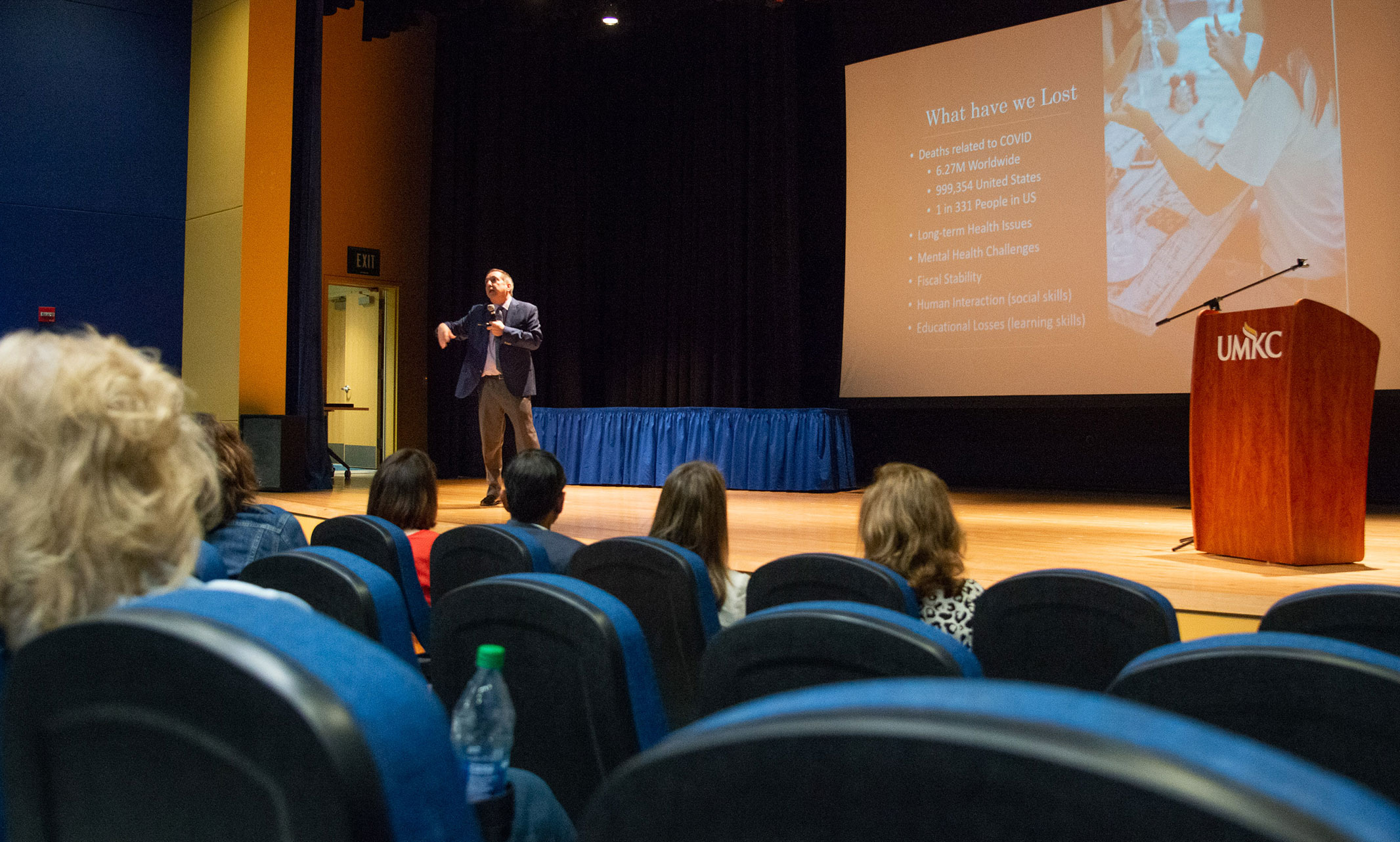
Award Ceremony Honors Two Years of Faculty Excellence
After virtual ceremonies for two years due to the pandemic, the UMKC Faculty Recognition Event returned to an in-person celebration yesterday afternoon at the Student Union.
“In my role as chief academic officer for the university, I am proud to be part of such an inspiring group of academic leaders,” said UMKC Provost Jenny Lundgren. “I am honored to celebrate the award winners being recognized this evening and to also recognize the contributions of all of our amazing faculty for their contributes to the university, especially over the past two years.”
In addition to honoring UMKC’s distinguished faculty, the event featured a keynote speech from Todd Zakrajsek, Ph.D., associate research professor and associate director of fellowship programs in the Department of Family Medicine at the University of North Carolina.
UMKC Chancellor Mauli Agrawal also spoke and praised all the award recipients.
“We are grateful that you choose to work and research here,” said Agrawal. “It’s an honor to be here to celebrate your outstanding accomplishments today.”
The Faculty Awards presented were:
UM System Presidential Fellows
2022 Awardees:
Hadara Bar-Nadav – Professor, Department of English Language & Literature
Amanda Grimes – Assistant Professor, School of Nursing and Health Sciences
Yotam Haber – Associate Professor of Music Composition Department of Music Studies
2021 Awardees:
Joan McDowd – Professor & Chair, Department of Psychology
Jamila Jefferson-Jones – Professor, School of Law
Joey Lightner – Assistant Professor, School of Nursing and Health Sciences
2021 Governor’s Award for Teaching
Michael Wacker – Associate Professor and Vice Chair of Biomedical Sciences
N.T. Veatch Award for Distinguished Research & Creativity
2022 Awardee:
Sean O’Brien – Professor, School of Law
2021 Awardee:
Gary Sutkin – Associate Dean of Women's Health, Victor and Caroline Schutte Chair in Women’s Health
Trustees Faculty Scholar Award
2022 Awardee:
Antonio Byrd – Assistant Professor, Department of English Language & Literature
2021 Awardee:
Alison Graettinger – Assistant Professor, Department of Earth and Environmental Sciences
2021 Trustees Faculty Fellow Award
Jennifer Huberman – Professor, Department of Sociology
Award for Excellence in Mentoring Undergraduate Researchers, Scholars and Artists
Virginia Blanton – Professor, Department of English Language & Literature
Majid Bani-Yaghoub – Associate Professor and Chair, Department of Mathematics and Statistics
Amanda Grimes – Assistant Professor, School of Nursing and Health Sciences
Chancellor's Award for Excellence in Graduate Mentoring
Tanya Villapando Mitchell – Professor and Chair, Division of Dental Hygiene
Chancellor's Award for Excellence in Teaching
Mikah Thompson – Associate Professor, School of Law
Thiagarajan Ganesh – Professor, Department of Civil and Mechanical Engineering
Chancellor's Early Career Award for Excellence in Teaching
Tiffani Riggers-Piel – Assistant Professor, Department of Educational Leadership, Policy and Foundations
Christopher Madden – Assistant Professor of Piano Pedagogy, Department of Music Performance
Provost's Award for Excellence in Teaching
Lena Hoober-Burkhardt – Assistant Teaching Professor, Department of Chemistry
Diana Tamer – Assistant Clinical Professor, Division of Pharmacy Practice and Administration
Elmore F. Pierson Good Teaching Awards
2022 Awardees:
Larry Wigger – Assistant Teaching Professor, Department of Marketing & Supply Chain Management
Narayanan Sreenivasan – Associate Clinical Professor and Director of Pre-Doctoral Oral Surgery
Mary Kay O'Malley – Clinical Professor, School of Law
Tim Cole – Teaching Professor, Department of Biomedical Sciences
2021 Awardees:
Jeff Johnson – Associate Professor, Department of Marketing & Supply Chain Management
Simon MacNeill – Professor and Interim Director of Advanced Education for Periodontics
Allen Rostron – Professor, School of Law
Lance Carter – Associate Teaching Professor, Department of Graduate Health Professions
Chancellor's Award for Embracing Diversity
Tyler Smith – Assistant Professor, Department of Pediatrics
Student National Dental Association/Hispanic Dental Association
Chancellor's Award for Excellence in Community Engagement
Dr. Kenneth J. LaBudde Special Collections Department of University Libraries
Brent Never – Associate Professor, Department of Public Affairs
Chancellor's Award for Career Contributions to the University
Mark Johnson – Professor and Chair, Oral and Craniofacial Sciences
Patricia Marken – Professor Emerita, Division of Pharmacy Practice and Administration
Also honored were the UMKC winners of the 2021 UM Presidential Awards.
May 19, 2022
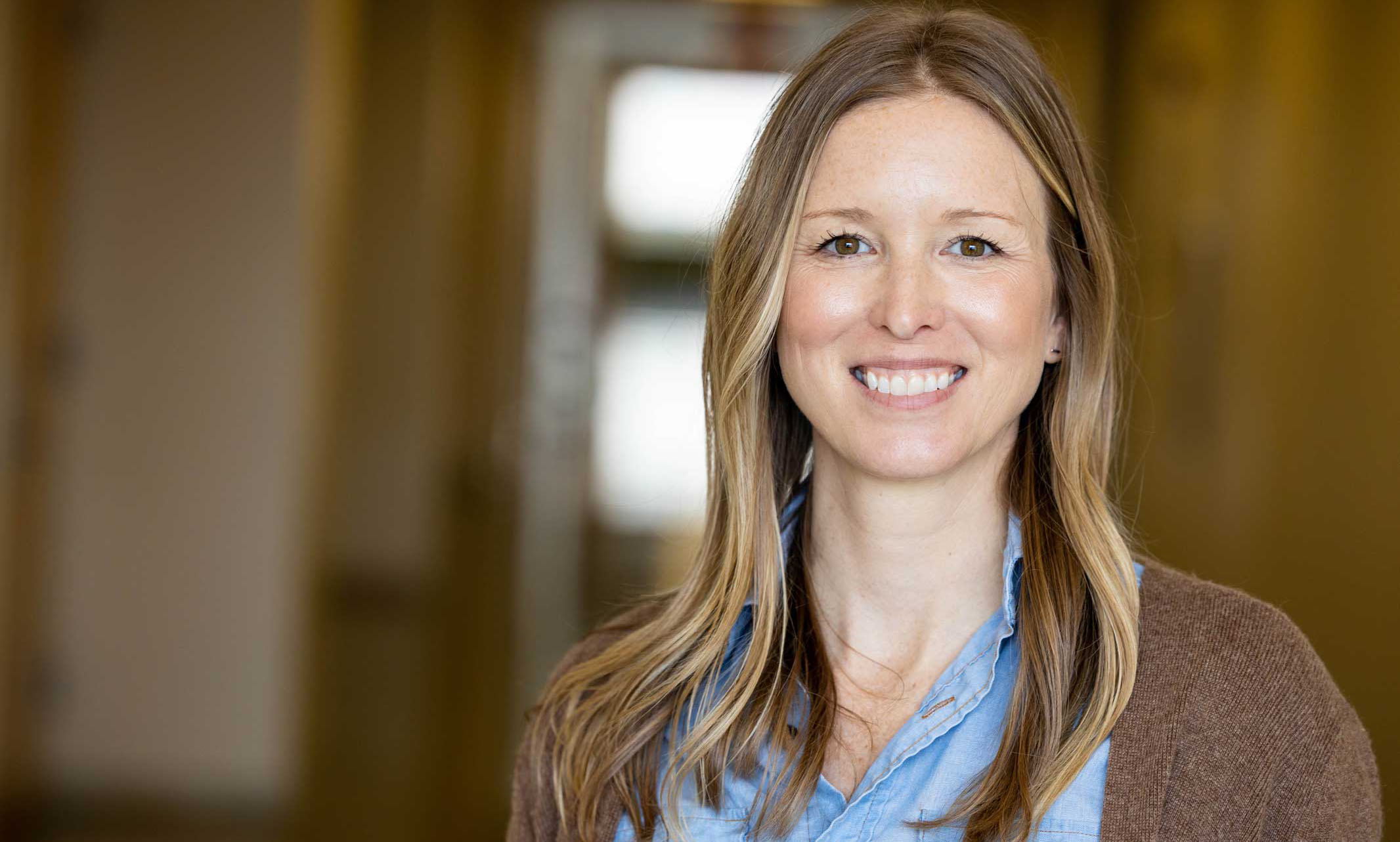
Amanda Grimes receives funding from the Environmental Protection Agency
With help from UMKC public health researcher Amanda Grimes, Kansas City’s push to a zero-fare bus policy could be a catalyst for change nationwide. The city eliminated bus fare across the city during the pandemic and will continue through 2023.
Over the next two years, Grimes will be studying how the new policy impacts the number of bus riders, as well as physical activity levels and how that relates to bus ridership. The study is funded by an environmental justice grant through the Environmental Protection Agency (EPA).
“We think this can have a huge impact across the nation,” Grimes said. “There are so many different transit organizations in cities looking to see how fares impact health.”
The policy is already gaining national attention. During a recent visit to Kansas City, President Joe Biden praised the policy while promoting a recent federal infrastructure law.
Grimes is an associate professor in the UMKC School of Nursing and Health Studies. The research focuses on active transportation and the health and social influences associated with physical activity. It has shown that it is difficult to get people to change their behaviors.
“The idea of this study is that public transit riders get more physical activity per day, adding five-to-ten minutes of additional activity,” Grimes said. “In the physical activity world, just increasing someone’s activity level by a couple minutes a day is considered a success.”
Grimes is collaborating on the study with Children’s Mercy Hospital and BikeWalkKC, a local non-profit that advocates for active and alternative modes of transportation. Grimes and the team will recruit 50 participants through community organizations that work with residents on the eastside of Kansas City.
For a week, study participants will wear a GPS tracker and an accelerometer, a tool researchers use that measures activity more accurately then personal fitness trackers. With that data, Grimes will be able to track what bus stops participants use, bus routes they take and all the physical activity in-between.
“We hope that we'll see a connection with increased physical activity and bus use because we want to see the policy continue,” said Grimes. “If we can provide evidence that it has these positive health impacts on these vulnerable communities, particularly those living in zip codes with lower life expectancies, that will help with finding funding to sustain the policy.”
May 18, 2022
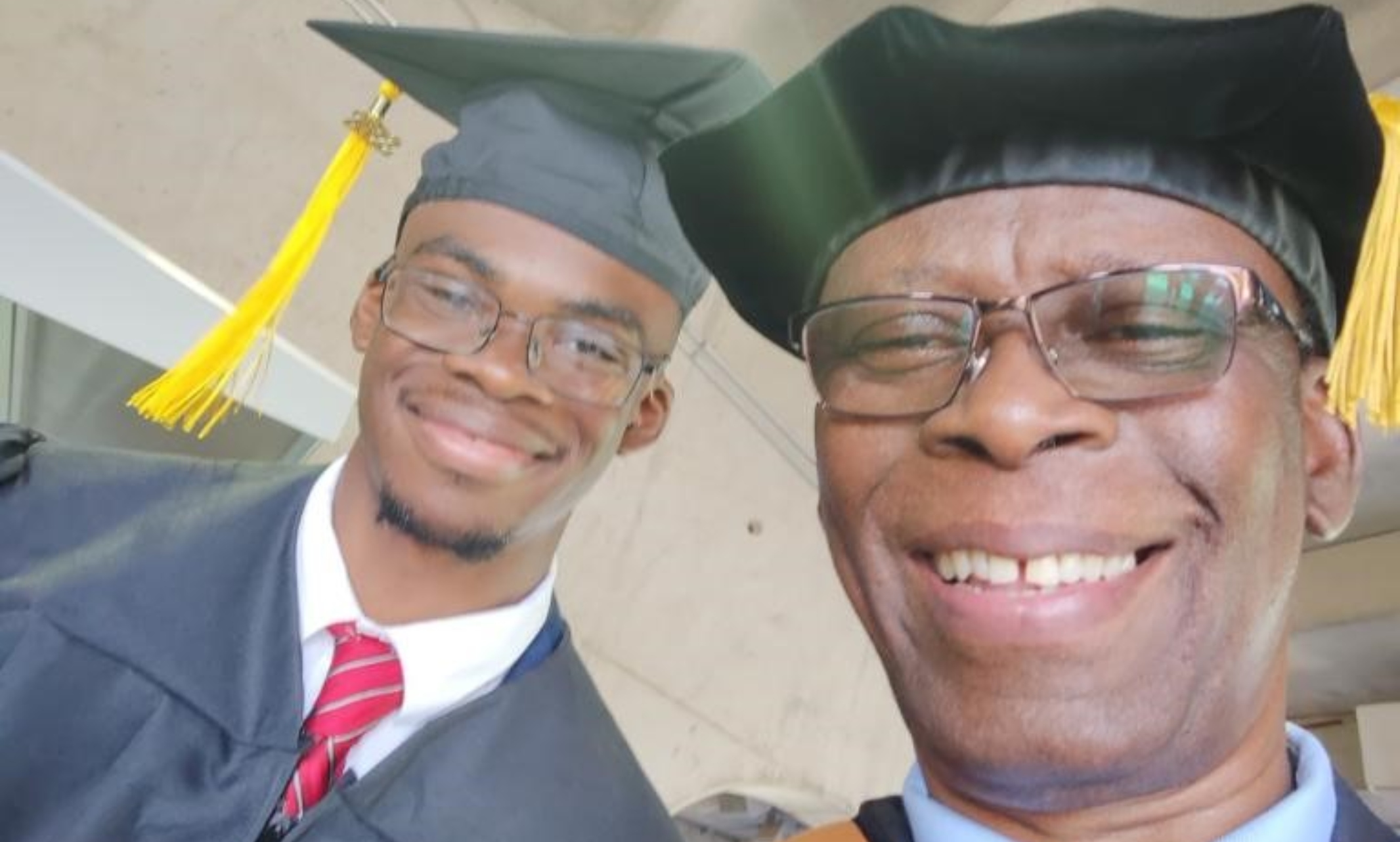
Both credit faculty for their success
Despite graduating with different degrees in different fields, father and son Alex and A.J. Omorodion use the same words to describe their UMKC experience: accessible and helpful.
“When I think of my UMKC experience, I think about the accessibility of the teaching faculty. Many of them are personally helpful to you to achieve your goals,” said Alex, who will be graduating with his interdisciplinary Ph.D. in curriculum and instruction, and physics.
A.J., who will receive his bachelor’s degree in computer science, also praised the faculty and their approach to teaching.
“The professors are very in touch with what it’s like to learn these things for the first time,” A.J. said. “I think sometimes there is a disconnect (for) certain people who are very knowledgeable remembering what it’s like to be new to the material.”
Alex began his affiliation with UMKC in 1995 and previously earned a master’s degree and taught as an adjunct instructor here. He also has been a math and physics teacher at the high school level for 25 years in the United States and taught for 10 years in his native Nigeria. A.J. was born in the U.S. and attended Raytown schools. However, he also spent a year in school in Nigeria, which offered a different model of education that he described as much more like college – even at the high school level.
“There was a lot more emphasis on individual learning. The teachers were more there to facilitate,” A.J. said. “It took some time to get used to a different workload, but I was able to transition easily to UMKC.”
A.J. took advantage of going to school near his family and lived at home and was an active student in a variety of activities.
“My fondest memories of UMKC are the extracurricular things that go on,” he said. “I’ve done intramural sports every year, and that’s always been a lot of fun.”
A.J. will begin work in June as a software engineer for American Century Investments in Kansas City. Alex plans to remain a teacher, but he is preparing to work fulltime on the college level in either physics or curriculum and instruction.
May 18, 2022
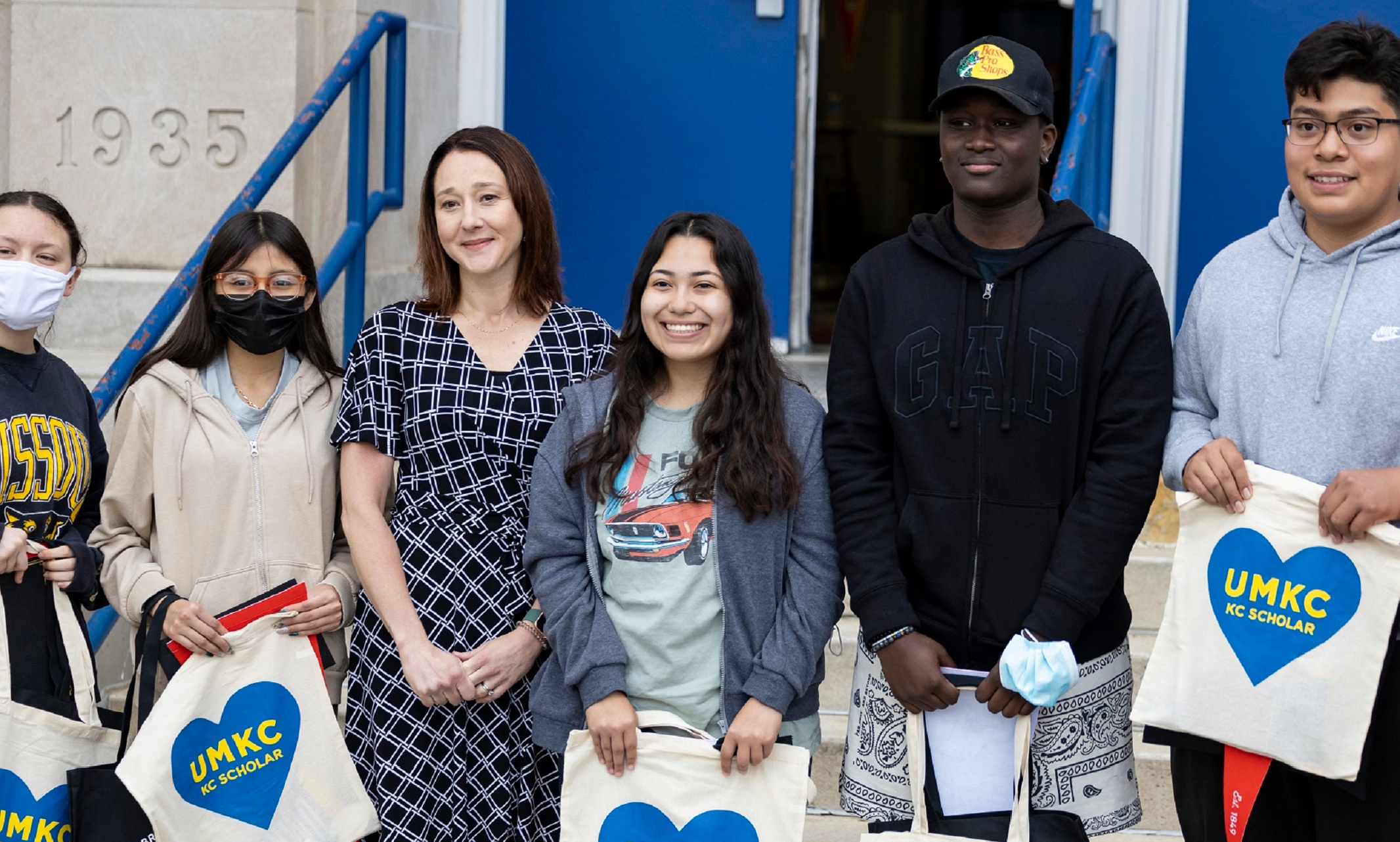
UMKC a popular choice for recipients
KC Scholars changed the future of 695 Kansas City students by awarding college scholarships and awards to area high school students. UMKC is a popular choice for KC Scholars award recipients.
Aaron Belaustegui, a KC Scholar and new UMKC Roo, received his diploma from Lincoln College Preparatory Academy in a May ceremony at Swinney Recreation Center. He will be back in the fall as a UMKC student. The KC Scholars scholarship has made a big difference in his future.
“The scholarship means a lot,” Belaustegui says. “It’s presented me with many opportunities and goes a long way to helping with college.”
Besides the opportunities at UMKC, Belaustegui has a personal connection to UMKC.
“My father used to work here as a Spanish professor, and he would bring us to campus,” Belaustegui says. “I fell in love with UMKC as a kid. I knew I wanted to spend time here.”
Kristian Foster (BA history ‘00, MA sociology ’03) is the principal of Lincoln College Preparatory Academy, one of KC Scholars’ partner schools. She says scholarships escalate students’ potential for success.
“Scholarships such as KC Scholars help our students to get one step closer to the post-high school goals of a college education,” Foster says. “While Lincoln prepares all students to be academically successful in college, providing financial support allows them to focus on the learning and preparation needed at the university level.”
“The scholarship means a lot. It’s presented me with many opportunities and goes a long way to helping with college.” — Aaron Belaustegui
She notes that while most of her students receive some form of financial aid for college, they would incur a significant amount of student loan debt without the award.
“To have the opportunity to earn a college degree and start their career nearly debt-free puts our students ahead of the curve,” Foster says.
KC Scholars, launched in 2016, currently awards approximately 700 college scholarships annually for students from the KC metro area to attend one of 17 partner colleges and universities in Missouri and Kansas, including UMKC. There are 46 recipients of KC Scholars grants currently enrolled at UMKC.
As a UMKC alumna and legacy – her mother was a first generation graduate from UMKC - Foster knows her students who choose UMKC will have a life-changing experience.
“I know the benefits that earning my education from UMKC has offered both myself and my family,” Foster says. “I was able to get first-hand classroom experience during my undergraduate program and college teaching experience during my master’s program. As a graduate student I have been exposed to people from all walks of life and I’ve had the chance to learn more than what we studied in class.”
May 18, 2022
Graduate Certificate in Performing Arts Management prepares next generation of leaders for performing arts organizations
The University of Missouri-Kansas City will celebrate the launch of a new graduate-level arts management certificate program, named for Theatre League founder and President Mark Edelman, at a May 24 campus event.
The new certificate program is funded by a $1 million grant from the Theater League Inc., donated in Edelman’s honor. The launch event will take place at 5 p.m. May 24 in the lobby of the James C. Olsen Performing Arts Center, 4949 Cherry St.
The UMKC Conservatory and the Henry W. Bloch School of Management have partnered to offer the program, designed to help students align their artistry, passion and vision to create career opportunities in the arts.
The goal of the Graduate Certificate in Performing Arts Management is to help artists understand the arts industry as a whole and how they can work to create and to lead arts programs that align with their own passions and desires as artists. Students enrolled in the Edelman Performing Arts Management Certificate will take classes in managing nonprofit organizations and leading teams through the Bloch School, then enter internships with local arts nonprofits through the UMKC Conservatory. These courses and internship opportunities will help students prepare for careers in arts administration.
Speakers at the event will be Edelman; Dana Knapp, President of Arts KC; Bloch School Dean Brian Klaas; and Conservatory Interim Dean Andrew Granade.
“There is a real need for box office, marketing, development and leadership skills to help our local performing arts organizations grow and thrive,” Edelman said. “Through this Graduate Certificate program, the Conservatory and Bloch School will join forces to develop the skilled future leaders who can lead our performing arts community for decades to come.”
The Edelman family has a long history of involvement and support for UMKC. The UMKC Alumni Association honored the Edelman Family with the Class of 2020 Legacy Award. The family’s involvement with the university spans seven decades, beginning with Doris Tager Edelman (’54), a Jewish refugee who fled Nazi Germany. Her husband, William, earned a psychology degree from the university in 1954 while supporting the family as a practicing physician. She instilled the value of education into her three sons, Mark, Alan and Ron, who have established an endowed scholarship in her name designed to support college educations for refugees like her.
Mark Edelman (J.D. ’75), founded the Theater League, Inc., a not-for-profit community-based performing arts organization that has presented the best of Broadway to Kansas City audiences for 42 years. He built the Quality Hill Playhouse and produced 12th Street Jump, a syndicated public radio show hosted on KCUR-FM for several years.
Mark recalled his first foray into theatre production came during his law school years.
“My first presentation in Kansas City—while I was still in law school—involved a student activities-funded presentation of an off-Broadway show called ’Lemmings.’ After the show, the cast came to my apartment at 44th and Walnut, where my neighbors joined me in welcoming them. Three of the actors there were Chevy Chase, John Belushi and Christopher Guest. The following year, they were all on or writing SNL.”
May 18, 2022
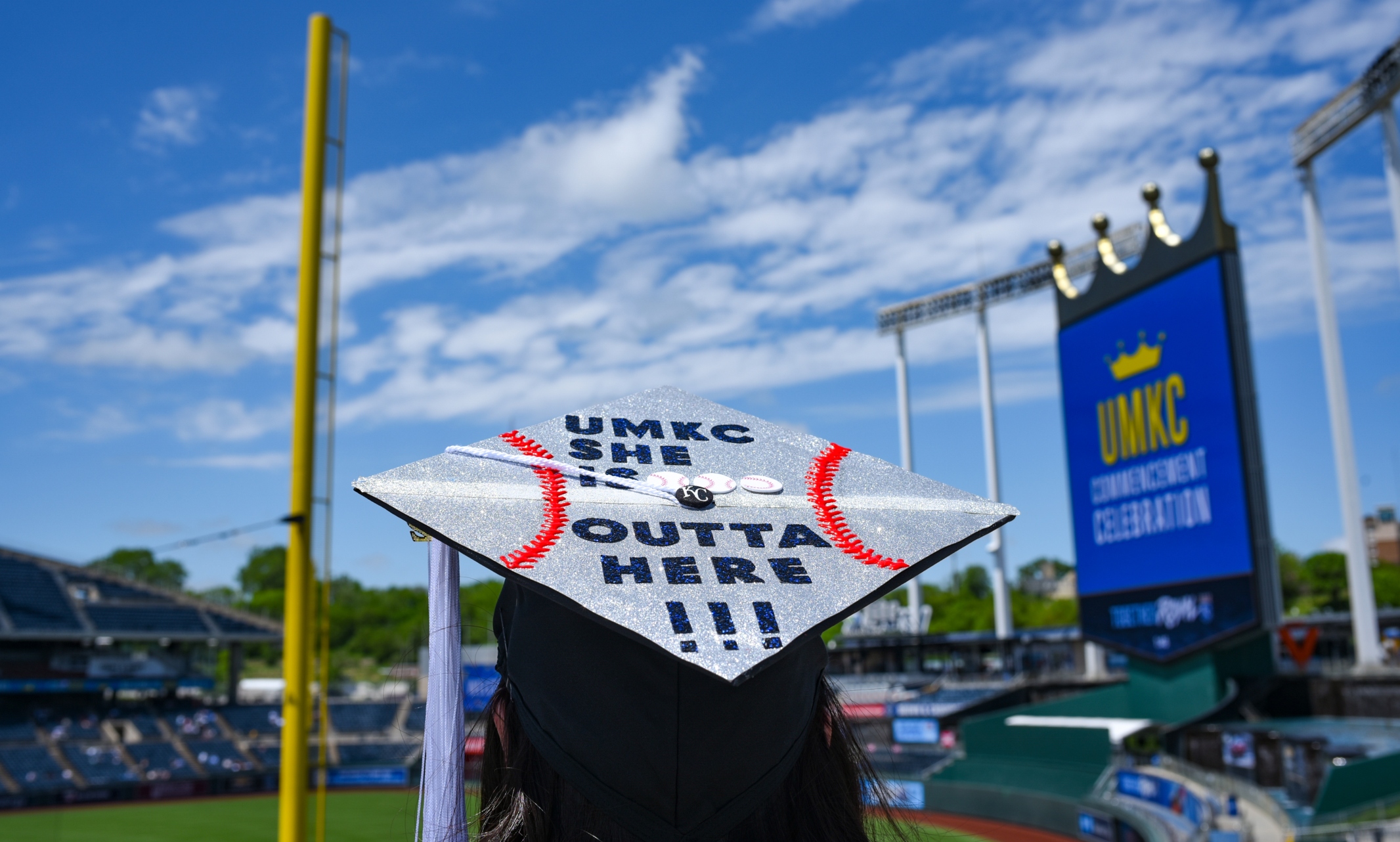
More than 2,300 degrees conferred at second consecutive spring stadium celebration
The University of Missouri-Kansas City returned to Kauffman Stadium for its second consecutive spring Commencement at the home of the Kansas City Royals, celebrating the degrees earned by more than 2,300 graduates.
The event was spread over two ceremonies on May 15. Thousands of guests cheered as they watched their loved ones cross the stage on the giant Crown Vision screen.
Graduates and their loved ones basked in brilliant sunshine. A late decision to shift the scheduled 10 a.m. ceremony to 6 p.m. to dodge a furious downpour kept everyone dry.
Photo by Brandon Parigo
“Through your experience at an urban-serving university, and as students at UMKC, you’ve been introduced to the critical issues in the greater Kansas City area and beyond,” said Chancellor Mauli Agrawal. “Through your experiences, you have learned the importance of giving back and the value of commitment and community. Through your experiences, you have acquired the knowledge, confidence and skills you’ll need to navigate an ever-shifting landscape in the days to come.“More challenges surely await you. But I know, and you know, that you are up to those challenges because you have a degree from UMKC. You are ready for what comes next.”
Photo by Tyler Wirken
UMKC Provost Jennifer Lundgren acted as grand marshal of the ceremony."We’d like to thank John Sherman and the Kansas City Royals for giving us this opportunity to celebrate in majestic Kauffman Stadium again this year," Lundgren said. "We certainly feel at home surrounded by blue and gold.”During the ceremony, Agrawal presented the UMKC Chancellor’s Medal – the university’s highest non-academic award – to U.S. Sen Roy Blunt of Missouri. Agrawal thanked Blunt for his work to generate critical investments in higher education.“Senator Blunt created the grant that allowed UMKC to receive funding to improve COVID-19 testing and vaccine access in underserved communities in Kansas City. His advocacy for the Kansas City Streetcar broadens opportunities for our students and our campus as a whole,” Agrawal said. “Senator Blunt’s leadership brought us more than $15 million to expand the UMKC School Of Medicine to our new St. Joseph campus, which allows us to train even more doctors to benefit the state of Missouri.”
Photo by Tyler Wirken
Blunt then delivered a commencement address in which he reminded the graduates of the power of the example they have set.“People have been watching you – people you didn’t even know were watching you,” Blunt said. “These people have been inspired by what you have managed to accomplish.”
Photo by Brandon Parigo
Blunt said that each of the professional fields that the graduates were about to enter, from medicine to management, had changed dramatically over the past few years. “What a great time to commence. What a great time to begin,” he said. “There’s an economy out there that is desperately looking for people. You are prepared to adapt to a rapidly changing world.”
May 15, 2022
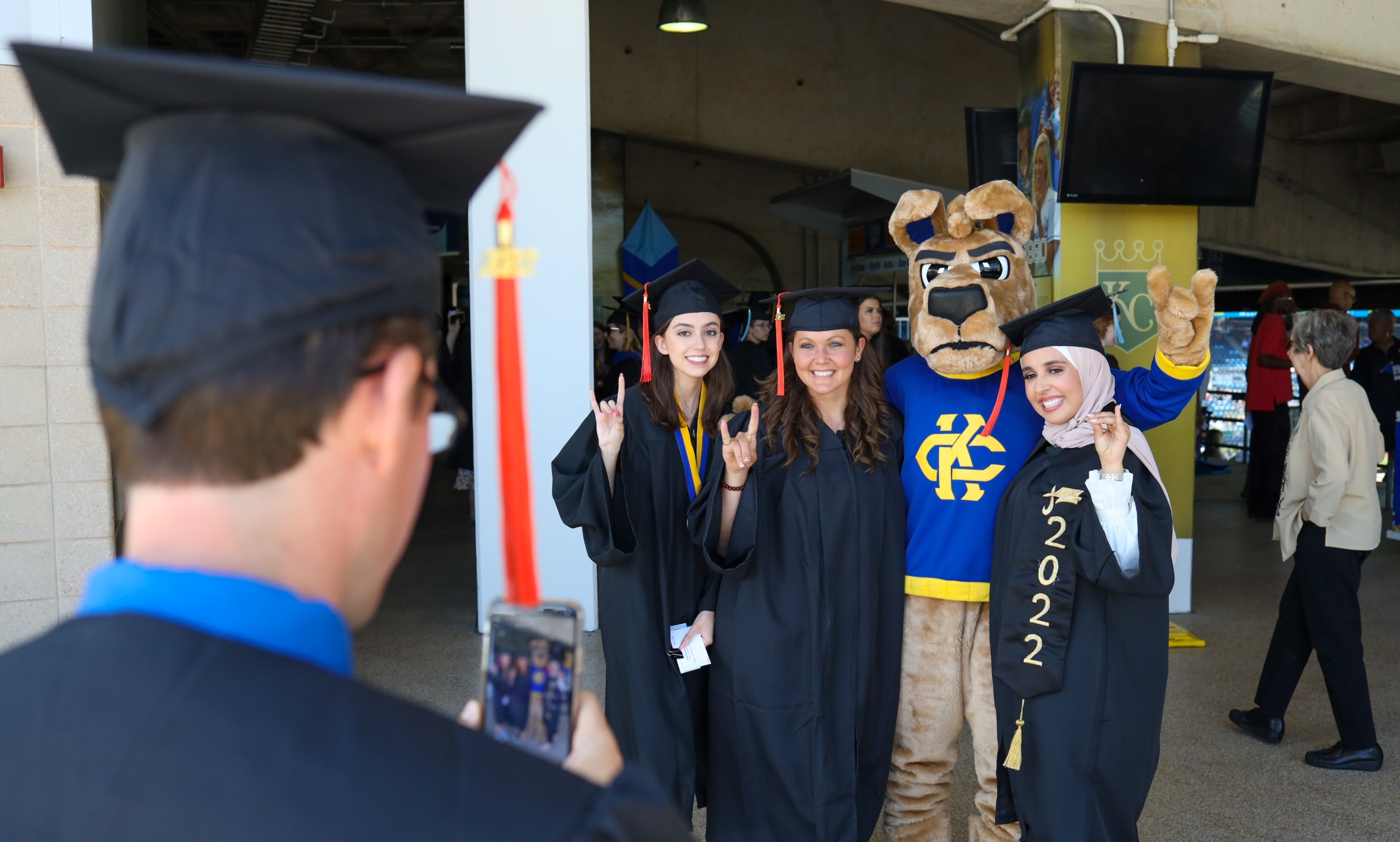
The ceremonies were held May 15, 2022
More than 2,300 students became alumni on Sunday as the University of Missouri-Kansas City held its May 2022 commencement ceremony. For the second year, the ceremonies were held at Kauffman Stadium.
Photo by Brandon Parigo
Photo by Tyler Wirken
Photo by Brandon Parigo
Photo by Tyler Wirken
Photo by Brandon Parigo
Photo by Brandon Parigo
May 15, 2022
Twenty-two students recognized for scholastic performance, community leadership and service
Graduating students who have excelled in both academic achievement and service may be nominated as a Dean of Students Honor Recipient.
Every semester, exceptional graduating students are recognized as Dean of Students Honor Recipients. These students maintain excellent scholastic performance while actively participating in university activities and community service outside of the classroom.
“These students represent what it truly means to be a Roo with their dedication to learning and service,” said Michele Smith, dean of students. “I’m proud to recognize them and I have no doubt they all have successful careers ahead of them.”
Students shared their memories of their college years at a special breakfast celebration in their honor. Some excerpts:
Avleen Bhandal: “UMKC has inspired me through many ways, but particularly the people I have met here. From my best friends and family to my professors and mentors, I have been honored to work with some wonderful people who inspire me every day and who have kept me motivated throughout this journey. This journey has not been without its struggles, but I am lucky to have so many people standing behind me and wishing me success through those challenges.”
Michael Brancato: “When I think of UMKC students or faculty, I think of compassion and humanitarianism. The students and faculty who take it upon themselves to teach and volunteer make me want to do more for the community. I am most proud of the student-run free clinic we have worked to establish here in Kansas City. I find inspiration through the people who are a part of the UMKC community and who choose to give of themselves to make our community better.“
Eric Honea: “UMKC has given me the opportunity to learn, grow and excel. While this may be the end of my educational journey at UMKC, it is only the beginning of my journey of being a voice for others. “
Tim Nguyen: “I’ll remember two lessons which I have learned over the past two years. First, rejection is redirection, and second, when you fail or fall, stay down for as long as you need to in order to both understand and to learn, before you immediately jump back up.”
Dev Patel: “My proudest accomplishment while at UMKC has been my work achieving this goal of reaching underserved populations. The JayDoc Free Dental Clinic is a biweekly free dental clinic that provides treatment for patients with dental pain who cannot afford treatment elsewhere. For two years I worked as an Executive Director of the clinic. Right as I started this position, the COVID pandemic hit, and we were forced to close down. I’m most proud of the months of work our executive board did to reopen the clinic in a way where we could prioritize the safety of our volunteers while providing much needed dental care to the community.”
Congratulations to the Spring 2022 Dean of Students Honor Recipients!
Samar Azzaidani - School of Medicine
Nominated by Julie Banderas
Allison Baker - School of Pharmacy
Nominated by Roger Sommi
Avleen Bhandal - School of Medicine
Nominated by Brent McCoy
Winston Bowles - College of Arts & Sciences
Nominated by Katie Garey
Michael Brancato - School of Medicine
Nominated by Alison Scholes
Abigail Castle - College of Arts & Sciences
Nominated by Ken Novak
Alyssa Corley - School of Biological & Chemical Sciences
Nominated by Katie Garey and Jeff Price
Anna Davis - School of Medicine
Nominated by Betsy Hendrick and Kathleen Moburg
Samantha Hays - College of Arts & Sciences
Nominated by Katie Garey
Eric Honea - School of Law
Nominated by Barbara Glesner Fines, Nancy Levit, Lauren Butler, Timothy Lynch, and Meg Reuter
Anna Hwang - School of Medicine
Nominated by Brent McCoy
Amanda Malone - College of Arts & Sciences
Nominated by Becky Bergman and Misty Campbell
Abigail Murphy - School of Medicine
Nominated by Brent McCoy
Tim Nguyen - School of Biological & Chemical Sciences
Nominated by Kathleen Kilway, Katie Garey, and Joe Constantino
Toluwanimi Olatunde-Salawu - School of Computing & Engineering
Nominated by Julie Myer
Caroline Olson - School of Medicine
Nominated by Peter Koulen
Dakota Owens - School of Medicine
Nominated by Krisana West
Dev Patel - School of Dentistry
Nominated by Richie Bigham
Kyle Potts - Bloch School of Management
Nominated by Jeina Stoumbaugh
Casey Rose - School of Medicine
Nominated by Krisana West
Marcus Thieu - School of Biological & Chemical Sciences
Nominated by Tammy Welchert, Rachel Hughes, and Todd Wells
Genesis Zuniga - School of Education
Nominated by Lynne O’Dell
May 13, 2022
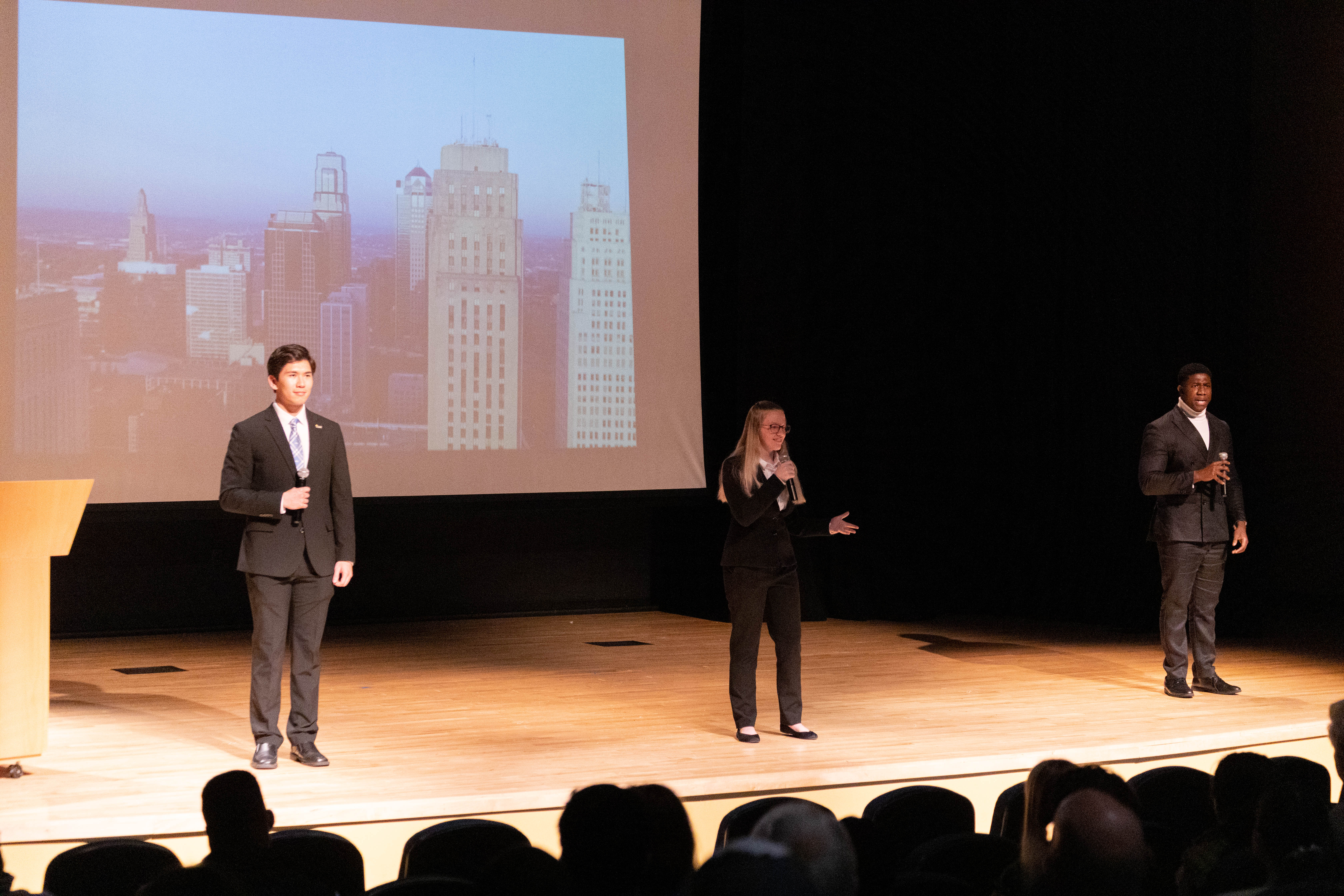
Student organization celebrates another big year of accomplishment, service
The UMKC Enactus team has wrapped up another year of high national honors and high local – and global – impact.
Enactus is a global organization for college students who volunteer to develop projects that create positive change through entrepreneurial action. UMKC Enactus placed among the top eight teams in the country during April’s National Expo at Long Island University in New York and garnered multiple individual awards as well.
It’s familiar territory; the UMKC team has placed in the top 10 nationally for four consecutive years and consistently wins top individual awards as well. The competition result was earned through student projects that have produced meaningful results from Kansas City to Mexico to Nigeria.
On campus, Enactus was named Student Organization of the Year at the UMKC Student Organization and University Leadership (SOUL) Awards. While the team is headquartered at the Henry W. Bloch School of Management, it draws students from multiple majors and academic programs across campus, an example of how UMKC emphasizes entrepreneurship and innovation campus-wide.
The team’s projects included:
FeedKC, which connects local food vendors to local food banks, directing leftover food to people instead of landfills. Students developed the FeedKC Web App – feed-kc.com – connecting businesses and soup kitchens directly to eliminate the need for a middleman.
Fashionnovation, an initiative to reduce the environmental effects of fast fashion; 85% of clothing ends up in landfills. The initiative reduces fashion waste by repurposing used clothing into commercial products.
Generation Green, a project dedicated to repurposing plastic waste and encouraging interactive learning by recycling plastic into colorful, durable dry-erase boards. The boards are welcomed by local teachers as replacements for school supplies that are frequently broken, while preventing new plastic production and reducing waste.
Cultura En Tus Manos, an initiative for artisans in Oaxaca, Mexico, who depended on street sales of their crafts to tourists but were left without a market because of the COVID pandemic. Enactus created an online marketplace for them and a training module to learn to use it.
Project AIR (Achieve Inspire Rise), an initiative to provide post-high school training in resume-building, how to apply for jobs and other professional development skills to young people living in underserved Kansas City communities.
Educate to Elevate, an initiative that raised tens of thousands of dollars to build a well, bathrooms and a new classroom building for the Ogwuokwu Community School in Ogwuokwu, Nigeria. Incidence of water-borne illnesses dropped dramatically after the project was completed.
Several students received individual honors at the National Expo. Club President Hannah Case won the top Jules and Gwen Knapp Scholarship of $10,000. Students Sophia Ho and Aaron Winter won $3,000 scholarships. Drew Childs – who won the $10,000 Knapp scholarship last year – was named national project leader of the year. Ellyssa Gallinger was named national finance leader of the year.
May 13, 2022
Larry Wigger, UMKC assistant teaching professor of supply chain management, Henry W. Bloch School of Management, is an expert contributor to Wallet...
His recent WalletHub article explores the benefits of gap insurance and discusses which buyers should purchase gap insurance, the best resources from which to purchase this insurance and how to determine when a driver no longer needs it.
The complete article is available here.
May 11, 2022
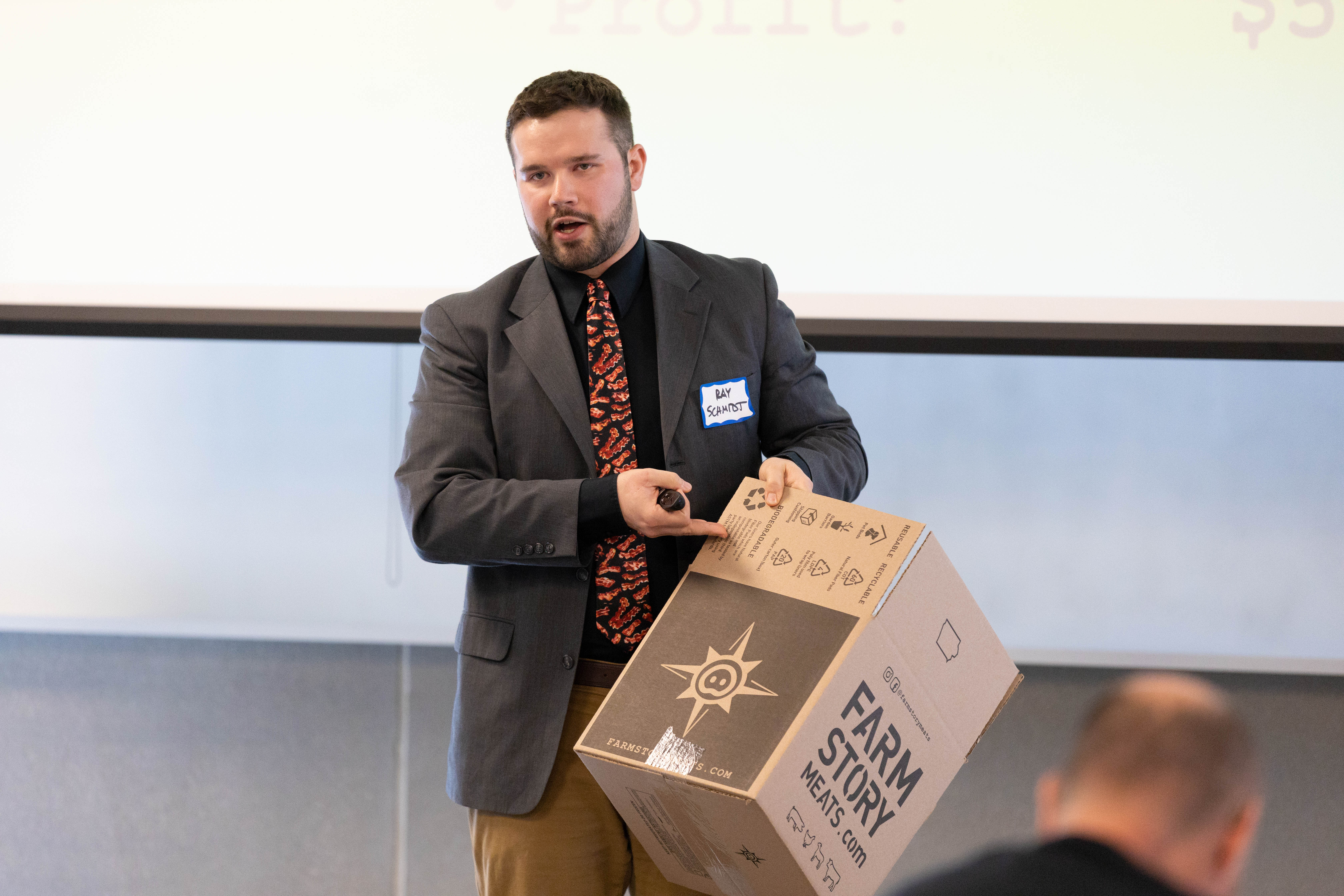
Regnier Venture Creation Challenge supports student and community entrepreneurs
The UMKC Regnier Institute for Entrepreneurship and Innovation awarded more than $93,000 in prizes at the 2022 Regnier Venture Creation Challenge.
The challenge is an annual business plan and pitch competition for new startups. The Regnier Institute is a program of the UMKC Henry W. Bloch School of Management. This year’s competition included three separate tracks, including a new one for non-students from the Kansas City startup community. The competition also includes two tracks open to college students from Missouri, Kansas, Iowa or Nebraska. There were 73 total applicants this year, representing 14 universities in the four-state region.
Sponsors providing prize funding included Bob Regnier and Regnier Family Foundations; Blue Cross Blue Shield of Kansas City; and David M. Block, President of Block & Company Inc. Realtors along with his two sisters, Candace Block and Cynthia Kosoglad.
The 2022 winners include:
Regnier College Startup Awards
Open to any student from any area of study enrolled at a university or college in Missouri, Iowa, Nebraska or Kansas
First Place - $15,000: Farm Story Meats – Ray Schmidt (Iowa State University)
Farm Story Meats brings our customers transparency about the locations, farms and people that supply their food, through subscription or individually chosen boxes of sustainable and locally sourced meats. We share the stories of the farmers that raise the animals, and we strive to make the supply chain of farm to customer as short as possible.
Second Place - $10,000: Crib Coaching – Jill Bertelsen and Justin Bertelsen (UMKC E-Scholars)
Crib Coaching uses a human-centered design to engage parents with children up to age 5. Every day parents watch a short video and have a reading passage, journal activity and/or game.
Third Place - $5,000: ALLTER - Michelle Gershkovich, Gabriella Meisner, Ebuka Akubilo (University of Missouri)
ALLTER is a platform that collects and translates customer data to deliver accurate clothing sizes.
BlueKC Health Care Innovation Awards – Open to health care-related ventures started by degree-seeking college students (undergraduate or graduate) from any area of study enrolled at a university or college in Missouri, Iowa, Nebraska or Kansas.
First Place - $15,000: Speak Information Technology (SpeakIT) - Julian Lu, Madison Singleton, Ajla Salic, Max Popper, Kai Skallerud (Washington University in St. Louis)
Speak Information Technologies is a software company that specializes in voice-enabled assistance tools for healthcare providers. The technology empowers healthcare providers with the ability to automate keyboard and mouse tasks with their voice, leading to comprehensive workflow automation in electronic health records.
Second Place - $10,000: MiDoc - Linda Wu, Lili Hostetler, Shivaen Ahuja, Ben Graue, Darren Lee (Washington University in St. Louis)
In a time of telemedicine, doctors are unable to perform heart and lung exams, and this lack of vital information results in ineffective care. MiDoc is an at-home wearable product that the patient wears like a vest, equipped with sensors for a remote heart and lung exam.
James and Rae Block Kansas City Startup Awards – This track was open to new starts or early-stage businesses with annual revenue between $0-250,000 from the Kansas City MARC Region.
First Place - $15,000: Cafe Ca Phe - Jacqueline Nguyen, Madoka Day, Jason Izquierdo, Rebekah Leininger
Cafe Ca Phe is Kansas City's first Vietnamese coffee shop. They serve coffee that is farmed in Vietnam, roasted by first-generation, Vietnamese-American women. All drinks are influenced directly by Vietnamese culture.
Second Place - $10,000: SeeInMe - Risa Stein
SeeInMe addresses care inequities resulting from an inability to connect with communication-challenged individuals. Instant Connector cards employ NFC technology and QR codes to ensure instant access to an individual’s Personality Profile.
Honorable Mentions
Outstanding Undergraduate Award - $2,500: Sky Sprayers - John Gamez-Ramos, Tyler Preisser, Chance Fuhrman (Fort Hays State University)
Sky Sprayers is an innovative, brand-new way to spray your crops. It is a fully autonomous drone and trailer setup that not only can fly on its own but actually can spray your field all by itself.
Outstanding Social Venture Award - $2,500: Hormonetopia – Najjuwah Walden (Washington University in St. Louis)
Hormonetopia teaches the lifestyles that cause menstrual symptoms and provides steps to prevent them. Our web-based curriculum is for K-12 health and science classrooms during their menstruation instruction.
Outstanding Creative Enterprise Award - $2,500: Tate’s Burnin’ Big Band – Tate Berry (University of Missouri-Kansas City)
A 17-piece progressive big band merging multiple genres of music and is dedicated to progressing the musical art form. It offers a variety of services, including live performances, merchandise and event creation.
Russ & Melanie Cline Family Foundation Outstanding Community Business Award - $5,000: Aya Coffee and Books - Jahna Riley (Kansas City-based business)
Aya Coffee + Books is growing into a coffee shop and bookstore that celebrates coffee’s African origins, and the bookstore highlights books by and for Black, Brown and Indigenous people.
May 11, 2022
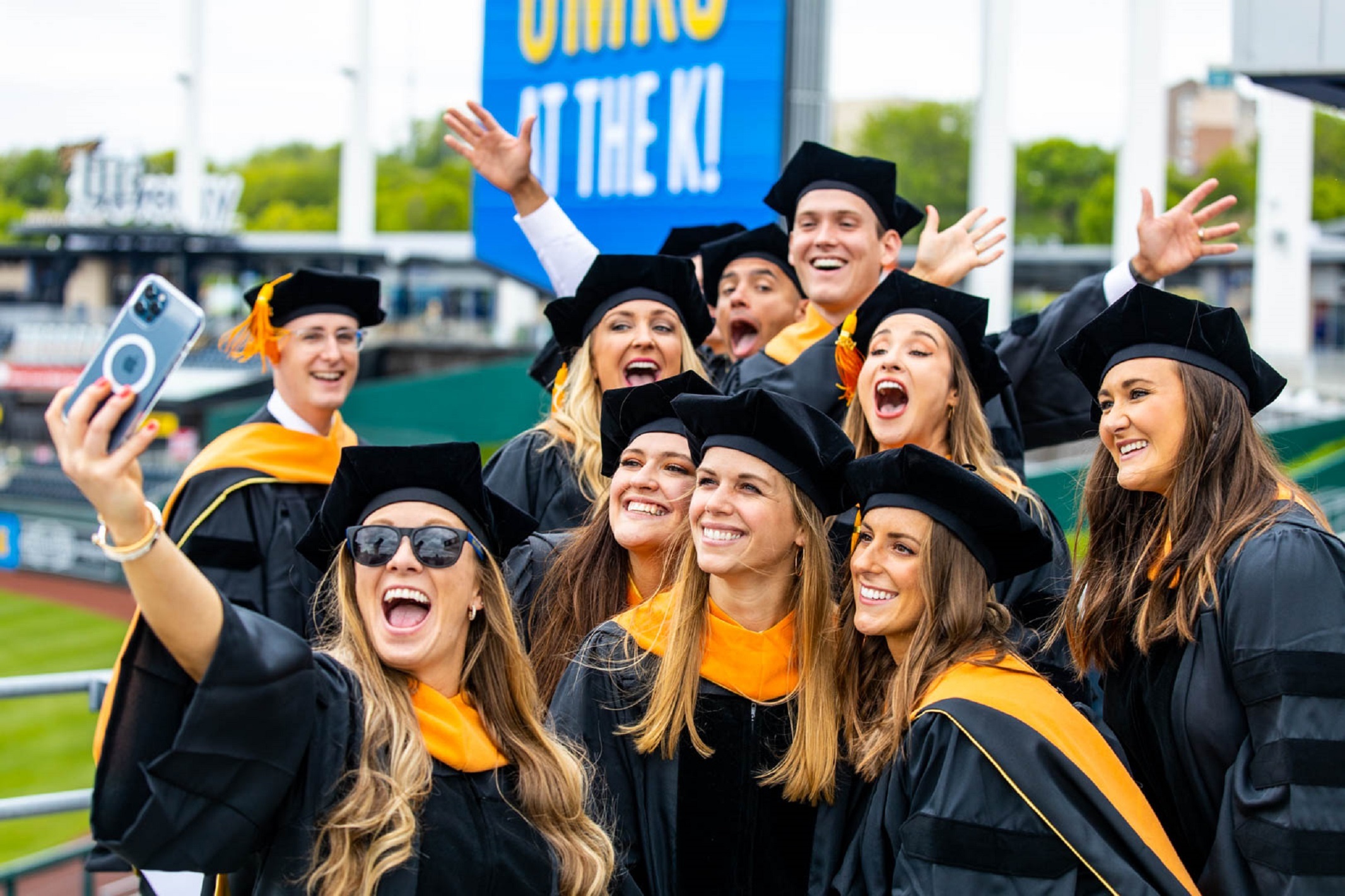
Ceremonies for 2022 graduates will be May 15
The University of Missouri-Kansas City is pleased to announce two ceremonies honoring its more than 2,300 2022 graduates on Sunday, May 15, at Kauffman Stadium.
UMKC is continuing the recent tradition of celebrating commencement in signature Kansas City locations.
“We are Kansas City’s university,” UMKC Chancellor Mauli Agrawal said. “Celebrating our graduates in an iconic Kansas City location such as Kauffman Stadium reflects our history and our future as a component of Kansas City’s growth and success. We know our graduates are honored to receive their diplomas on the field at The K.”
This year’s commencement speaker is U.S. Sen. Roy Blunt of Missouri. He has served as majority leader and whip during his tenure in the U.S. House. Blunt currently serves on the Committee on Appropriations; the Committee on Commerce, Science and Transportation; the Joint Committee on Printing; Joint Committee on the Library and Select Committee on Intelligence. The Roy Blunt NextGen Precision Health building in Columbia, Missouri, a regional research hub, is named in his honor.
Blunt will receive the UMKC Chancellor’s Medal, the university’s highest non-academic honor. The medal honors those who have shown UMKC extraordinary support and service. First awarded in 1961, the university awards the Chancellor’s Medal to people in a range of fields including art, education, law, politics, religion, child welfare, urban design, sports, music, health care and journalism.
Agrawal said Blunt’s efforts specifically on behalf of UMKC have been both broad and deep, with positive impacts in areas ranging from health care to student financial aid.
Blunt led efforts to increase the maximum Pell Grant award over the past five years, and to restore year-round Pell Grants to help students stay in school and graduate. His legislation created the grant program that supported UMKC efforts to improve COVID-19 testing and vaccine access in underserved communities. This funding led to the development of the Our Healthy Kansas City Eastside initiative in which UMKC partnered with Jackson County, churches, business and community organizations in Kansas City to improve health outcomes in underserved neighborhoods.
Blunt’s efforts were instrumental in providing funding for the expansion of the UMKC School of Medicine to a second campus in St. Joseph, in partnership with Mosaic Life Care. As a result, the university is training more doctors who are prepared to serve in rural areas, impacting healthcare services across the state.
The 2 p.m. ceremony will recognize graduates of the College of Arts and Sciences, School of Biological and Chemical Sciences, School of Computing and Engineering, the UMKC Conservatory and the School of Education.
The 6 p.m. ceremony will recognize graduates from the Henry W. Bloch School of Management, School of Dentistry, School of Law, School of Medicine, School of Nursing and Health Sciences and the School of Pharmacy.
There is no guest limit, but graduates need to register their guests online.
UMKC Commencement at The K will be a rain-or-shine event. Graduates and guests are advised to monitor weather forecasts and be prepared to participate amid light rain showers if they occur. Guests may bring small umbrellas (no golf umbrellas) into Kauffman Stadium as long as they do not interfere with other guests’ enjoyment of the ceremony. For the comfort and consideration of all guests, it is requested that those using umbrellas be considerate of those around them.
In case of heavy downpours or other severe weather, UMKC will follow the Royals’ standard weather protocol. The team will make the call as to whether the ceremony must be delayed; that information will be shared within the stadium, on the MLB Ballpark app and on the UMKC 2022 Commencement web page and the university’s Twitter and Facebook accounts.
May 09, 2022
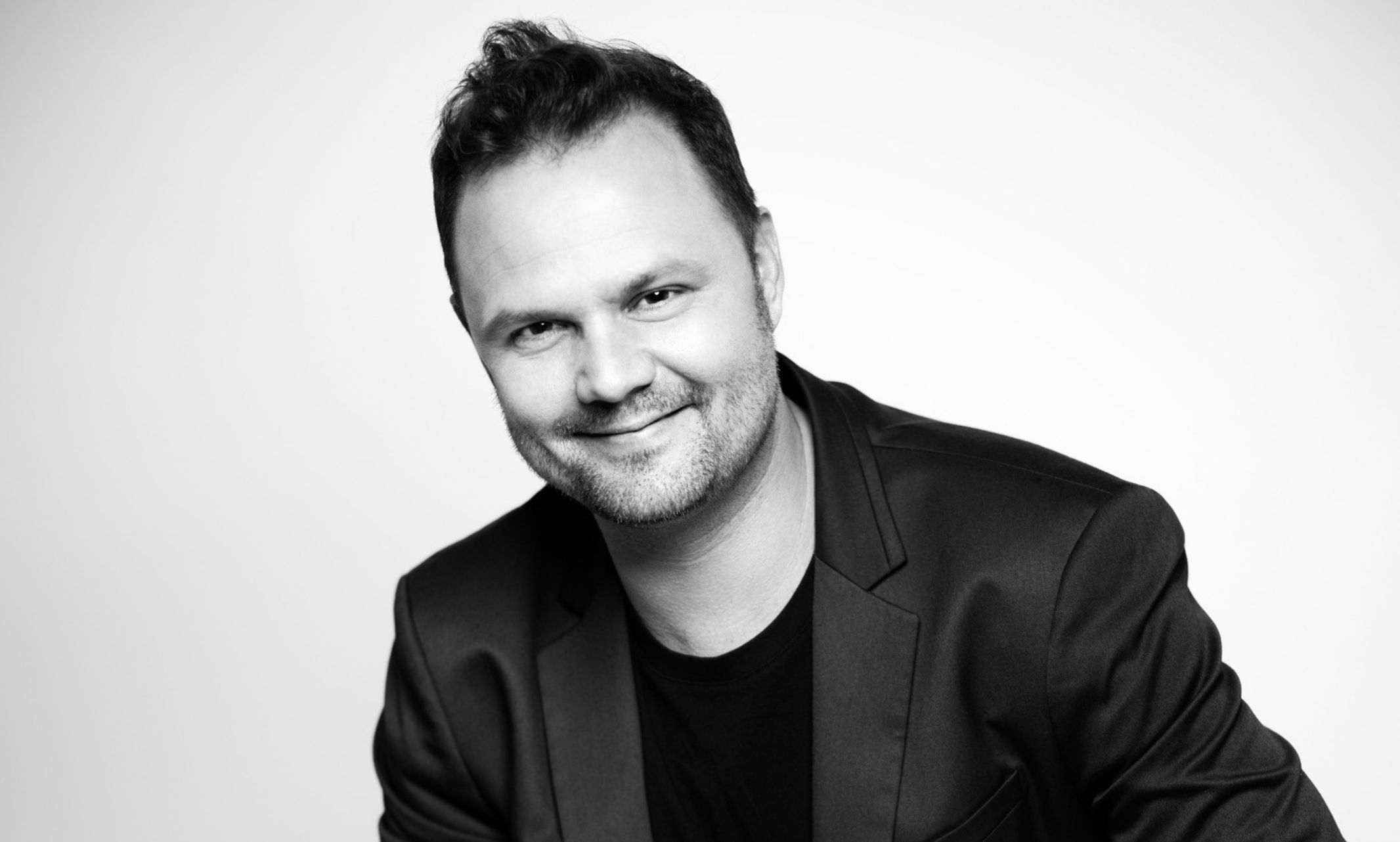
Thomas Rosenkranz headed to Taiwan
Thomas Rosenkranz, associate professor of piano, recently was named a 2022 Fulbright Scholar. As part of the award, Rosenkranz will be an artist-in-residence at Tunghai University in Taichung, Taiwan in the Fall 2022 semester.
The Fulbright U.S. Scholar Program offers awards in more than 130 countries for participants to teach, conduct research and carry out professional projects around the world. The competitive program is the largest in the United States, with approximately 800 fellowships awarded annually.
“Dr. Rosenkranz’s Fulbright Scholar Award is further confirmation of his artistry and teaching,” said Andrew Granade, interim dean of the Conservatory. “He continues the legacy of our piano area while taking it in bold new directions. We are thrilled for him and the well-deserved recognition this award represents.”
Rosenkranz, who has been at the Conservatory since 2018, is familiar with the Fulbright Scholar program’s mission to increase international understanding. He has performed around the world, including Mongolia, Borneo, Yunnan Province in China, North Africa and the Middle East.
“Some of the most meaningful musical experiences for me has been to perform in places where western classical music is rarely performed,” said Rosenkranz. “I’ve always seen music as a kind of passport to access people’s cultures. You can break down a lot of walls by finding common ground through music.”
Rosenkranz has been to Taiwan on several occasions, making it an obvious choice as his host country during the application process. Rosenkranz will teach two courses at Tunghai University, in addition to performing concerts and master classes on campus and around the country.
“I love Taiwan’s rich culture and welcoming people,” said Rosenkranz. “From the beginning of the Fulbright application process, the faculty at Tunghai University have been very enthusiastic about having a Fulbright scholar in residence. It will be a great place for my family and I to spend a semester.”
May 06, 2022
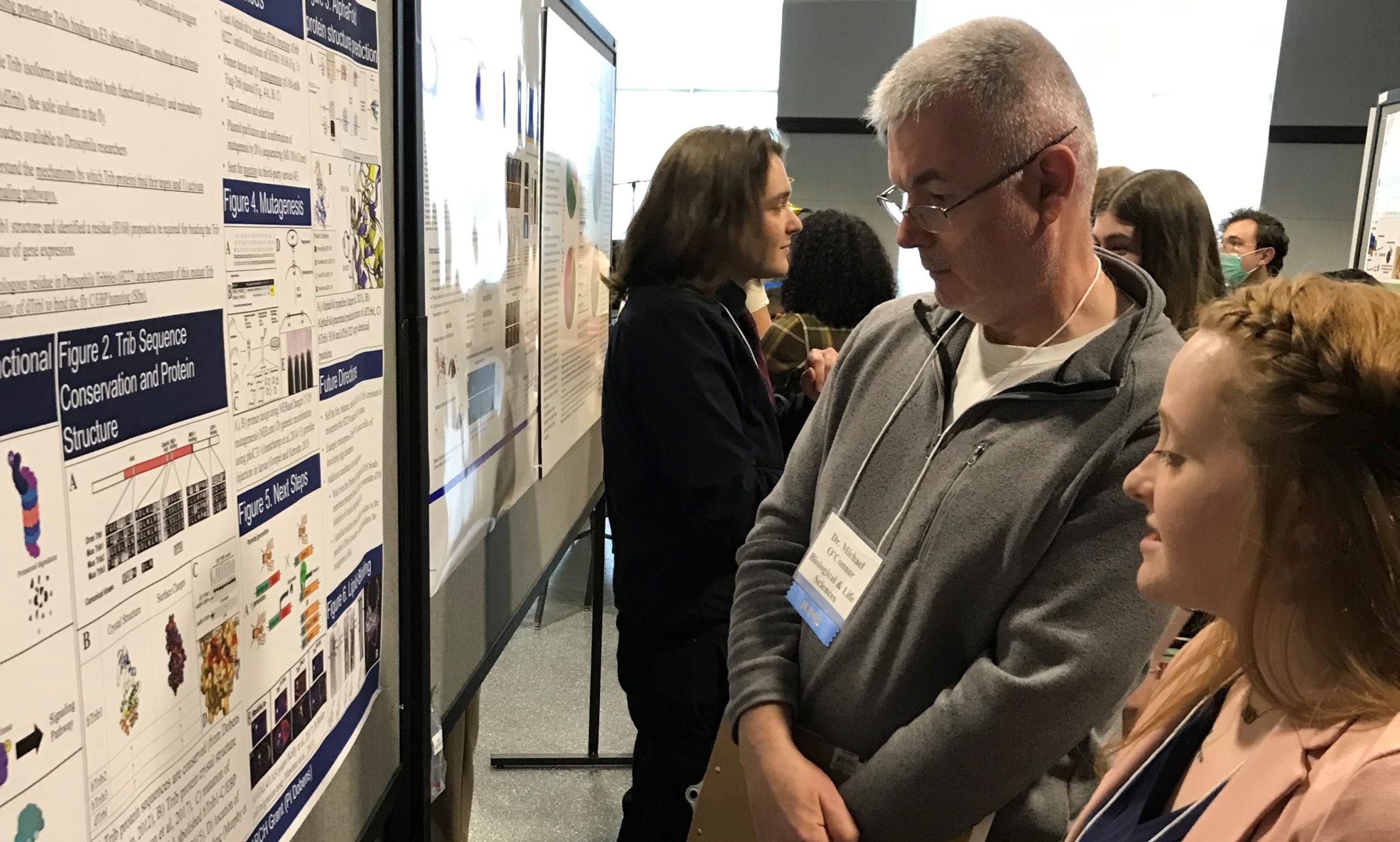
Work from variety of disciplines showcased at annual symposium
More than 200 undergraduate students presented their research at the 22nd Annual Symposium of Undergraduate Research and Creative Scholarship. The April event allowed students at UMKC to share their research, scholarship and creativity. It also provided an opportunity for them to receive feedback on their work. Director of Undergraduate Research Jane Greer, Ph.D. said providing undergraduate students with research opportunities benefits them in more ways than one."Students at UMKC have the unique opportunity to work with faculty in archives, laboratories, studio and in the community. Through these mentored experiences, students gain the skills and confidence to succeed academically and professionally,” said Greer.In addition to the presentations, six students were awarded Presentations of Distinction, which recognize excellence in undergraduate research.
More than 200 students presented research at the annual symposium
Presentations of Distinction recipients:
Emma Leonard
SeniorCategory: Arts and HumanitiesProject Title: Sports and Gender: A Comparative Historical Analysis of Men’s and Women’s Sports in the United States
Shea O'Connor
SeniorCategory: Biological and Life SciencesProject Title: AI and The Fly
Karah Chappel
SeniorCategory: Behavioral and Social SciencesProject Title: Exploration of the Education and Experiences of Music Therapists in Trauma Care
Dan Caron
Senior Category: Computing and EngineeringProject Title: Augmenting BIM with Real Time 3D and Damage Analytics
Amanda Pierce
Senior Category: Physical and Natural SciencesProject Title: The Effectiveness of Sphagnum subsecundum Moss Removal of Dissolved Carbon Dioxide and pH Balancing of Missouri Freshwater
Alejandra Frias Fraire
Junior Category: KC WorksProject Title: Armourdale's Correlation Between Industry Pollution and Health Inequity
Learn more about undergraduate research opportunities
May 05, 2022
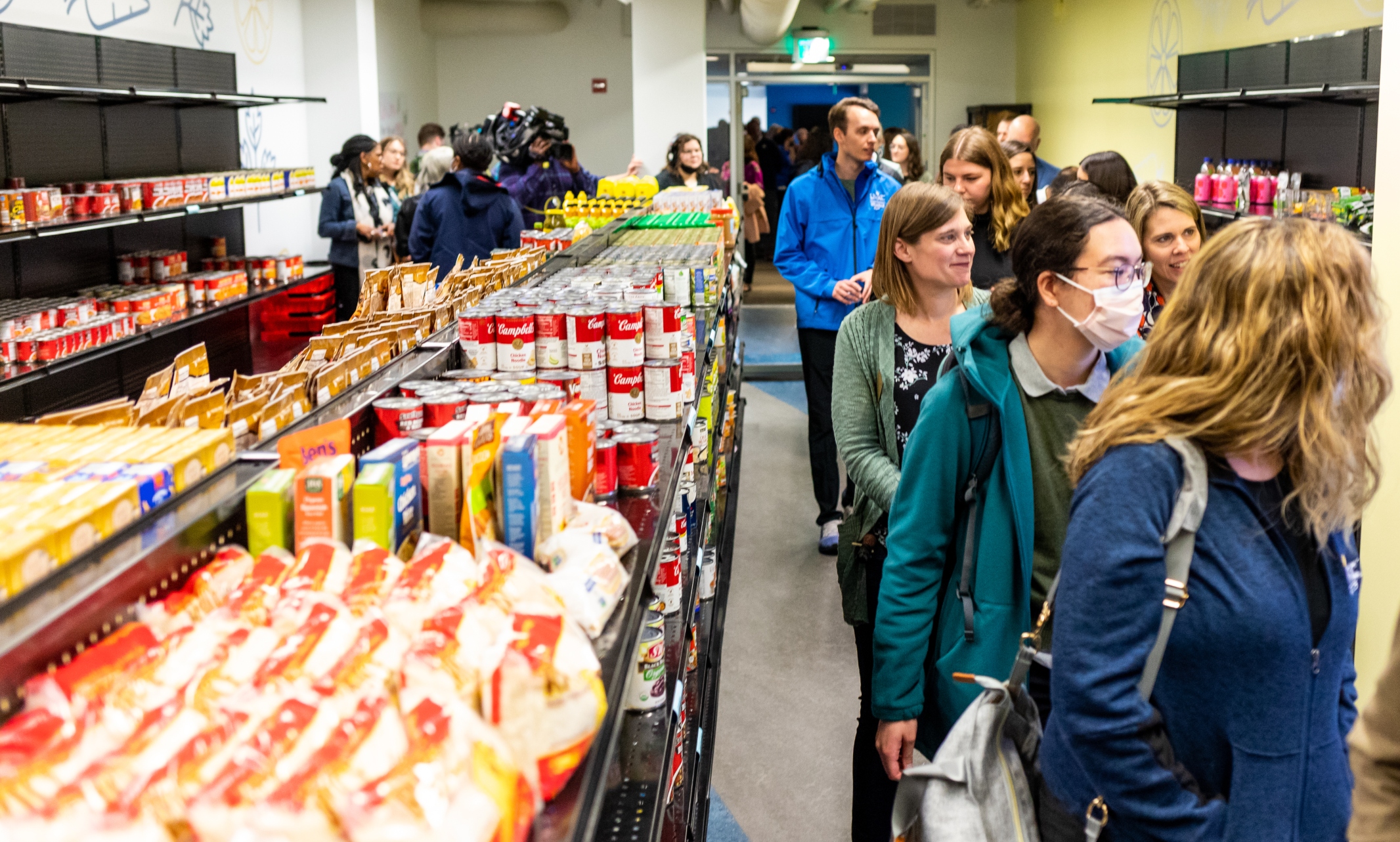
Move to UMKC Student Union allows easier access to critical resources
The new UMKC Dr. Raj Bala Agrawal Care Center opened in the Student Union today with a ceremony to celebrate enhanced access to support services for the university community.
The Agrawal Care Center provides resources for students to address food and housing insecurity, financial wellness and mental health services. The Roo Pantry is located within the center on the first floor of the Student Union and is designed to ensure students’ basic needs are met. The Care Center is designed to be a welcoming place.
“When a student walks through our door, the first thing I do is listen,” Taylor Blackmon, student basic needs coordinator for the Care Center, said. “In our initial meeting, I give them the time to talk through their story.”
Blackmon noted that when students have the resources they need, they can focus on achieving their personal definitions of success.
“The Dr. Raj Bala Agrawal Care Center is a reflection of the university’s commitment to supporting the whole student,” Blackmon said. “That goes beyond earning a diploma and getting a good job. Establishing the Agrawal Care Center in the heart of campus helps to grow a culture where everyone understands that there is no shame in asking for help. It assures our students that we are here for them – from the first day of orientation, until they move their tassels at graduation.”
“The Dr. Raj Bala Agrawal Care Center is a reflection of the university’s commitment to supporting the whole student.” - Taylor Blackmon
Sue Agrawal, wife of Chancellor Mauli Agrawal, offered a tribute to her mother-in-law and the Care Center’s namesake, Dr. Raj Bala Agrawal. Raj Agrawal opened a private elementary school with her husband, and Sue Agrawal praised her dedication to supporting the whole student on the path to education.
“She made sure the students had healthy lunches,” Sue Agrawal said. “She supplemented packed lunches if a student was lacking. She spoke to the parents about healthy habits and children’s development. She understood what student success really meant, and you may understand a little better now the origins of the Chancellor’s holistic view of student success.”
Chancellor Agrawal noted that the center is addressing a critical need, though many people may be surprised by the level of food insecurity among college students.
“More than a quarter of all college students report some level of food insecurity,” he said. “The number is higher – 32 percent – among undergraduates. Indeed, some students are helping to support their families,” he said. “In addition, their available resources are scarce. The majority of students are not eligible for food stamps. In our survey, we discovered that half the respondents were lacking a basic need in some form – food or housing.”
“I talk about UMKC being a family, and I mean it. At your worst moments, your family should be there for you. That is what we will do here – help." - Chancellor Agrawal
He noted that many students are not aware that emergency funds are available. In other cases, students knew about aid resources but deferred to others.
“Some students did not apply – despite their own need – because they thought other students needed it more. Let’s think about that for a minute. Students did not ask for help, because they thought others needed it more.”
Agrawal assured the crowd that that there is no stigma in needing help, and that is part of the mission of the center.
“I talk about UMKC being a family, and I mean it. At your worst moments, your family should be there for you. That is what we will do here – help. There is strength in being able to ask for help. When students come here and let us know what they need, we will work to help them, because we are bound together – through our search for knowledge, through our need for human connection, but most of all, because we are Roos, and we are family.”
The establishment of the Dr. Raj Bala Agrawal Care Center was made possible through donations to the Dr. Raj Bala Agrawal Memorial Fund established December 2020. The fund recognizes and honors the life of Chancellor Agrawal’s mother, who was grateful for the opportunity to engage with the many generous friends and alumni of the university and cheer on UMKC students.
May 04, 2022
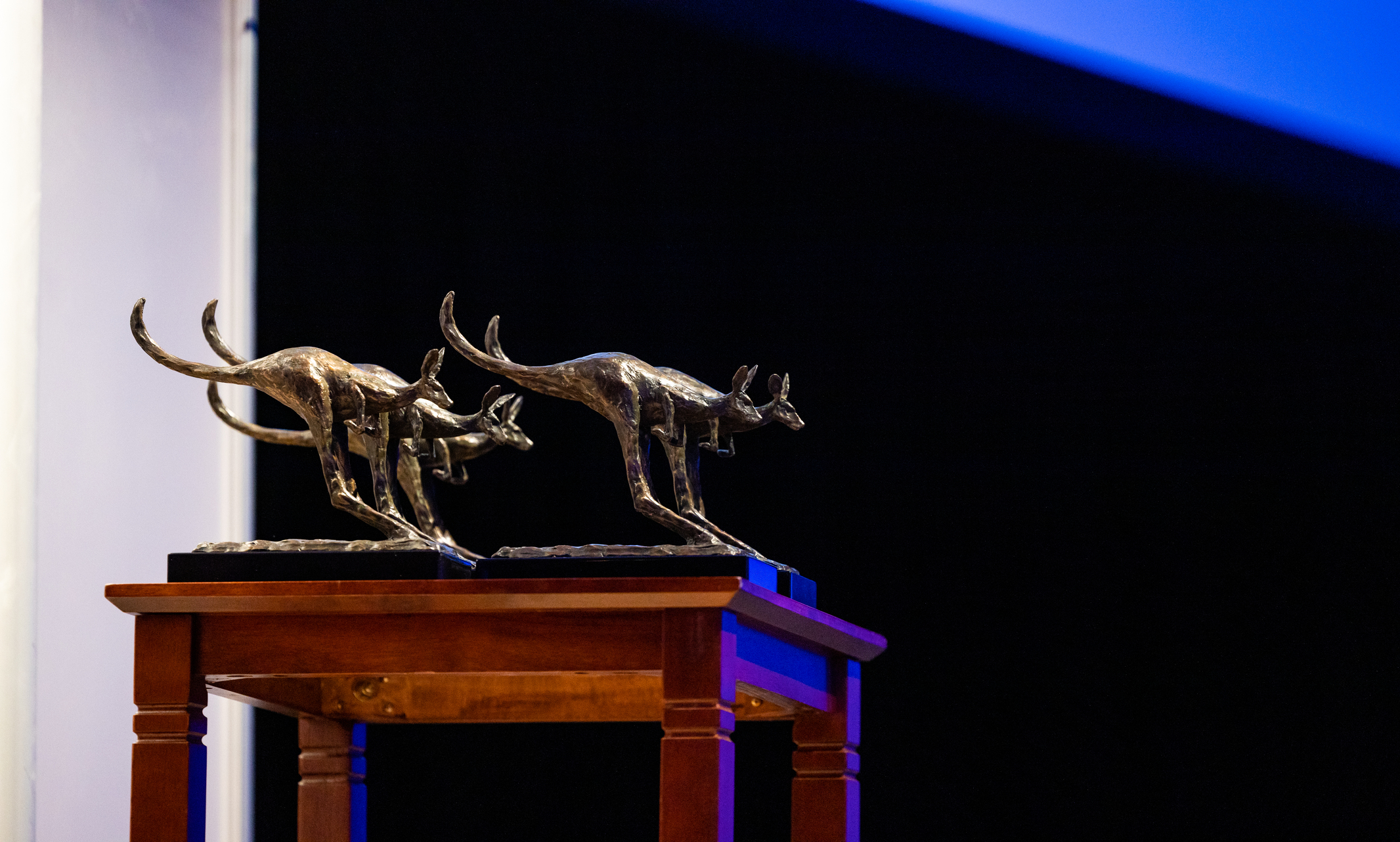
Sixteen alumni and one family were honored at the April event
The University of Missouri-Kansas City Class of 2022 Alumni Achievement Award recipients included the founder of a veterans housing program, a judge, a national CEO and a legacy family whose education and contributions to UMKC have spanned generations.
Sixteen alumni and one family were honored on April 29 at the James C. Olson Performing Arts Center. This year’s event was back in-person after the pandemic kept the last two year’s ceremonies virtual.
The Alumni Awards ceremony is one of the university’s largest events to support student scholarships. In the last decade, the Alumni Awards event has garnered more than $1 million in scholarships and immediate student aid for UMKC.
“When our alumni return to campus, it is always an exciting reunion. Whether the faces we see are familiar or not, we share the connection of walking the same halls, developing similar goals and being united as UMKC Roos,” said Chancellor Mauli Agrawal.
The night’s biggest honor, Alumnus of the Year, went to Bryan Meyer (B.A. ’11, M.P.A. ’15, J.D.’15), co-founder of the Veterans Community Project. Located at 89th and Troost in Kansas City, the Veterans Project is an innovative non-profit that provides housing for homeless veterans in tiny home villages.
“UMKC consistently reminded me there is always more to learn. For example, when I was pursuing my Masters, I took a class in leadership. I served five years in the Marine Corps and led other Marines in two different combat deployments – so I attended class confident there wasn’t anything I could learn on leadership from a classroom. I was wrong,” Meyer said. “I know the knowledge gained from my M.P.A. and law degree have been instrumental in my ability to provide a benefit to my community.”
Complete list of awardees:
Alumnus of the Year: Bryan Meyer (B.A. ’11, M.P.A ’15, J.D. ’15)
Spotlight Award: Riddhiman Das (B.S. ’12, M.S. ’19)
The Bill French Alumni Service Award: Ann Mesle (J.D. ’72)
Defying the Odds Award: Susan B. Wilson, Ph.D. (MBA ’05)
Legacy Award: North/Cheadle Family
College of Arts and Sciences: Melissa Zarda (B.A. ’02, M.A. ’07)
School of Biological and Chemical Sciences: Joseph Lambing (Ph.D. ’90)
Henry W. Bloch School of Management: Mike Perry (B.B.A ’89)
School of Computing and Engineering: Jungwoo Ryoo (B.S. ’96, M.S. ’98)
Conservatory: Xi Wang (M.M. ’03)
School of Dentistry: Brenda Bohaty (Ph.D. ’09)
School of Dentistry–Dental Hygiene: Jo Ann Weatherwax (B.S.D.H ’06, M.S. ’12)
School of Education: Lucero Garibay (M.A. ’16)
School of Law: J. Kent Emison (J.D. ’81)
School of Medicine: Lucky Chopra (B.A. ’91, M.D. ’92)
School of Nursing and Health Studies: Leslie Luke (M.S.N. ’00)
School of Pharmacy: Janelle Sabo (Pharm.D. ’00)
Co-chairs for this year's event were Joseph Spalitoo (B.S. '68, D.D.S. '72), president of the UMKC Alumni Association, and Debbie Thompson (B.S.D.H. '81).
If you were unable to attend the event but would like to donate to student scholarships, contributions can be made online.
May 02, 2022
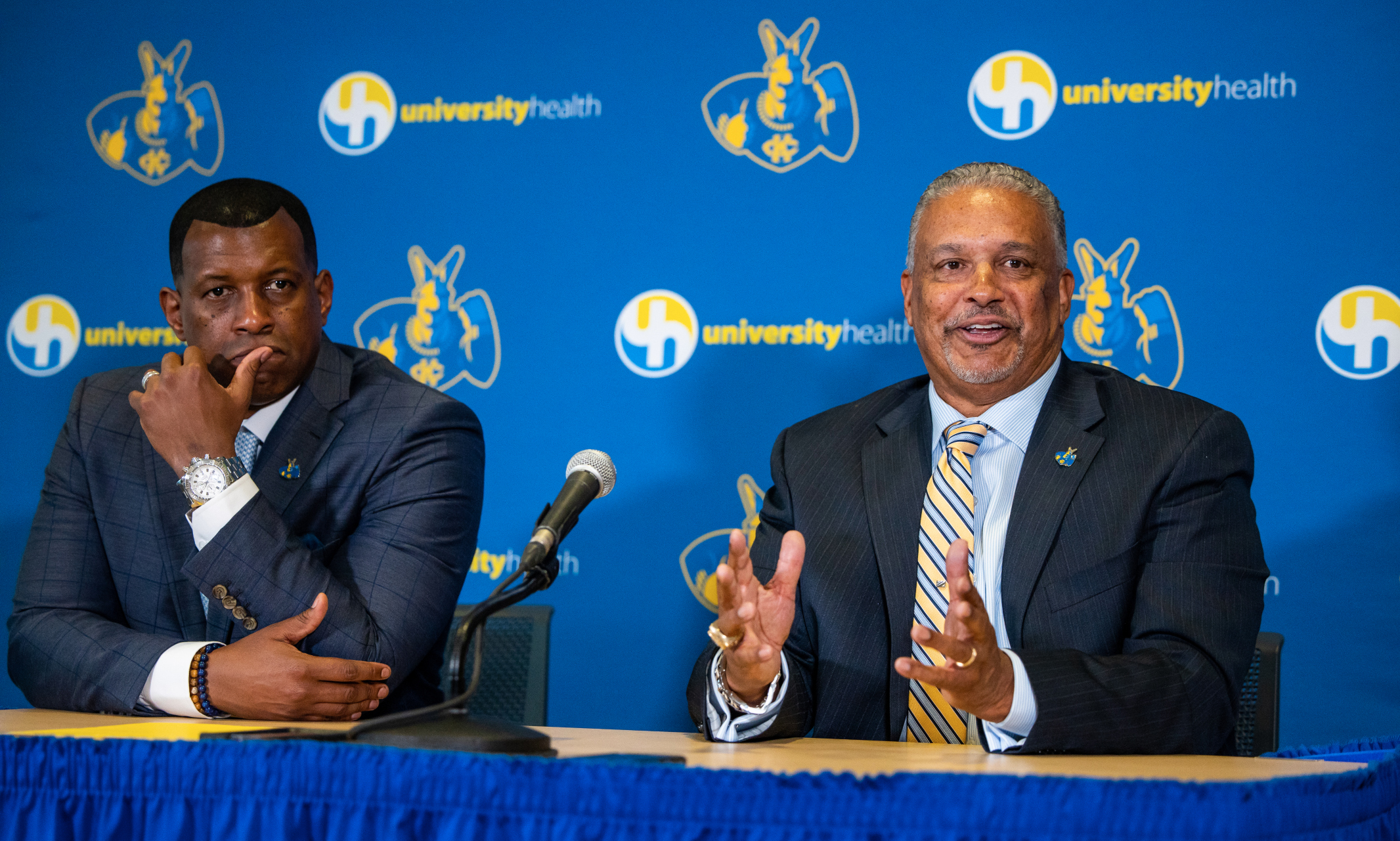
New coach Marvin Menzies will stress “winning the right way”
There was nothing timid about the first public appearance on campus for new men’s basketball head coach Marvin Menzies, an April 30 press conference in the Student Union.
Menzies wasted no time addressing the elephant in the room – the team’s lack of appearances in the NCAA Tournament over three decades of Division I athletics. He embraced the challenge of moving past a token appearance as a bottom-level seed in the “Big Dance.”
“We’re not just going to get there,” he vowed. “We’re gonna shock the world.”
And Menzies promised that the program was committed to more than just game victories.
“We’re going to be all about winning the right way,” he said. “Winning on the court, winning in the classroom, with players who will engage with the whole campus.”
Menzies has made winning promises before – and delivered on them. He has a strong record for building successful programs as a head coach at New Mexico State and the University of Nevada-Las Vegas. He coached New Mexico State to five NCAA tournament appearances. At UNLV, his teams won 20 games and held a 3.0 team GPA in back-to-back years for the first time in program history.
Chancellor Mauli Agrawal lauded Menzies’ dual focus on academic and athletic success.
“We know he’ll be a great fit for UMKC Athletics,” Agrawal said. “We want leaders who can inspire our players to achieve.”
Athletics Director Brandon Martin said Menzies and his wife, Tammy, work together to forge a strong family atmosphere among players and coaches.
“We were looking for a mentor, a guide and a champion for our student athletes,” Martin said. “Marvin and Tammy live by the values of faith, love, integrity, service and respect.”
May 02, 2022
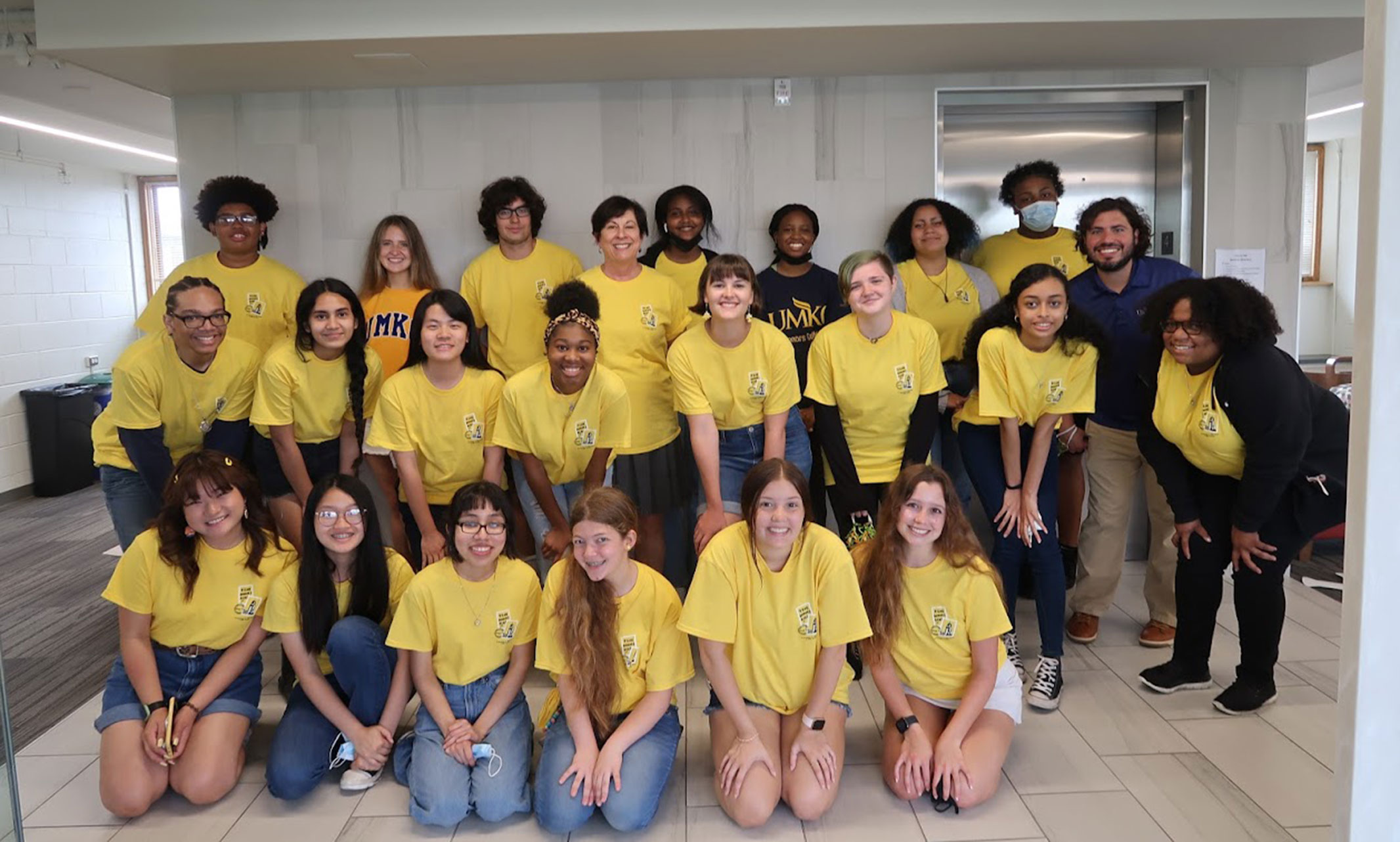
UMKC Honors Program hosts unique enrichment opportunity for high school students
The Roo Honors Academy invites high school students to participate in a fun and intellectually engaging one-week summer enrichment program, June 20-24, 2022, sponsored by the Honors Program of the University of Missouri-Kansas City.
This selective program will offer non-credit classes on criminal justice, urban health, effective personal communication and sports in society. Participants choose one morning course and one afternoon course taught by UMKC faculty members. On June 24, participants and their families are invited to a dinner and student exhibition.
“The Roo Honors Academy gives students the chance to dig into a subject they are interested in but haven’t been able to explore in high school yet,” said Margo Gamache, director of Student Services for the UMKC Honors Program. “It is about curiosity and expanding students’ minds.”
Students who successfully complete each course will receive a Recognition of Achievement certificate from the UMKC Honors Program and a Roo Honors Academy T-shirt. Tuition is $275; children of UMKC employees are eligible for a $20 discount. Need-based scholarships may be available. Participating students also have the option of staying in the UMKC dormitories for the week. The add-on cost for this option is $295.
“Other summer enrichment programs for high achieving high school students in the area focus on STEM, so this allows us to fill that need in the community,” Gamache said. “The Academy also helps students see UMKC in a new way. Students can experience innovative Honors Program classes and meet our passionate, engaged faculty. They will also get to know other bright and committed students from across the country—peers who could be future classmates at UMKC.”
Students can apply to attend the Roo Honors Academy online. The application deadline for Roos Honor Academy 2022 is June 1, 2022, and applications will be reviewed on a rolling basis.
Apr 29, 2022
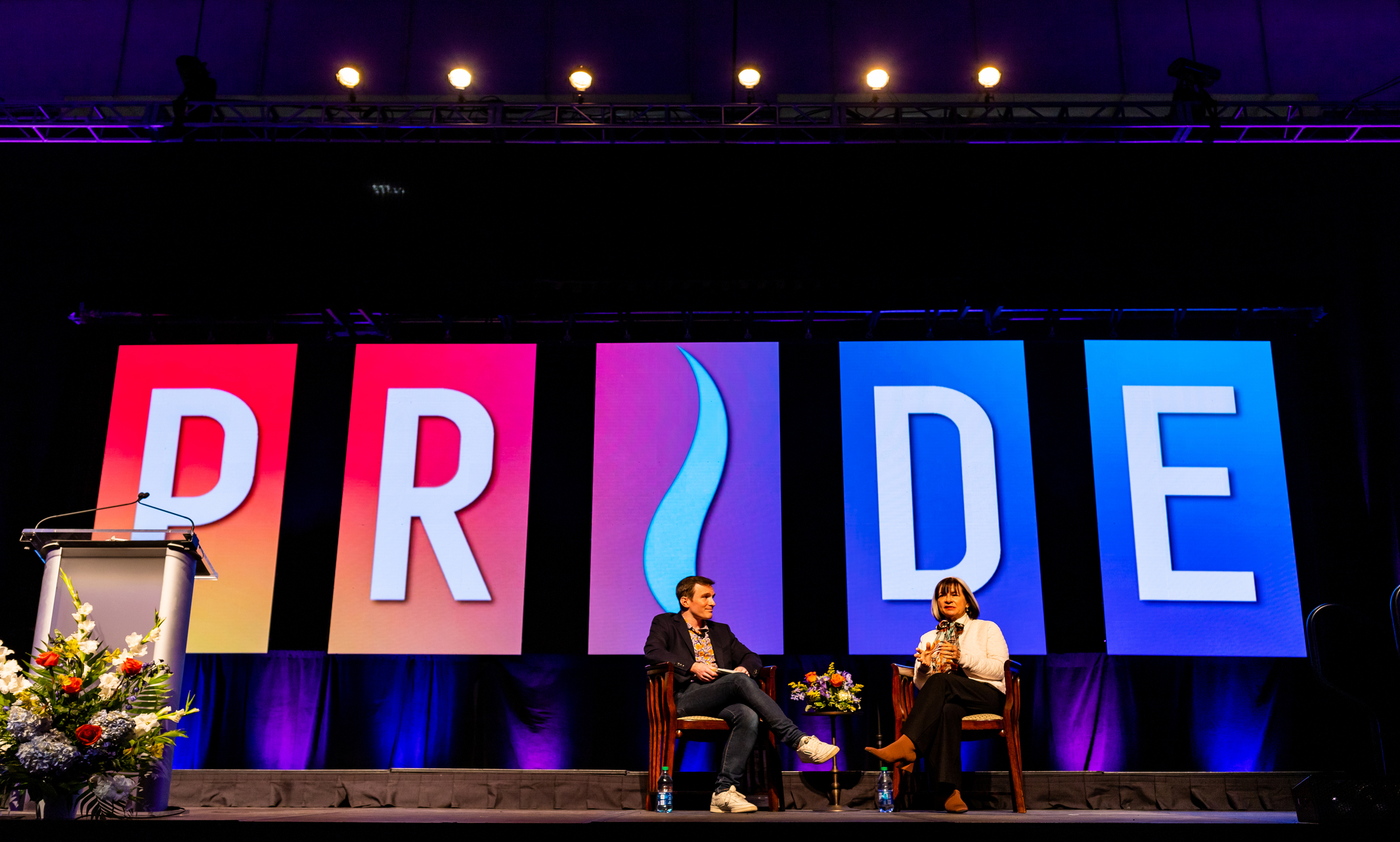
The event raises funds to support LGBTQ students at UMKC
Kindness can literally save lives. That was the vital message delivered to the audience at this year’s UMKC Pride Breakfast by Peggy Rajski, Academy Award-winning director and founder of the LGBTQ youth crisis-intervention organization The Trevor Project.
“Just to have one accepting adult in a queer-questioning child’s life, it can cut suicide risk in half,” Rajski said. “Anyone can be that one supporting adult; you just never know. I’m encouraging everyone to just be kind.”
Rajski won an Academy Award as director of the short film TREVOR, about a young teen whose world is turned upside down when word spreads at school that he might be gay.
“I am a white, straight, cisgender woman and people were surprised that I made this movie about this young gay boy and that it felt authentic. But what I would say is, I know the feeling just like everyone else does when people are shaming you for who you are,” Rajski said. “Imagine if you had everyone telling you that you are worthless, that they don’t want to be around you because you’re toxic, I just had hope that people would think about how those words would make someone feel.”
After the film’s release, she discovered there weren’t any nationwide suicide prevention crisis services available to support gay and questioning youth. In response, she founded The Trevor Project. The project, launched in 1998, receives roughly 200,000 calls annually.
Since 2008, the Pride Breakfast has raised funds to support LGBTQ students at UMKC and serves as a way for the university to show support for, and commitment to, LGBTQ students on campus. This year’s breakfast raised over $110,000, which will go directly to supporting LGTBQ students on campus.
“Over the years this breakfast has raised more than $500,000 in scholarships, emergency aid and support for students,” Chancellor Mauli Agrawal said at the event. “UMKC has a culture of care that we uphold. Faculty, staff and administration believe that each student has a unique value and is worthy of our time, attention and respect. I am honored to be a part of an institution that has that as its core value.”
UMKC partnered with local Kansas City nonprofit SAVE, Inc. to bring Rajski to Kansas City. SAVE, Inc. provides permanent, transitional, and emergency housing services to those with HIV/AIDS, substance abuse, mental health challenges and more.
Apr 27, 2022
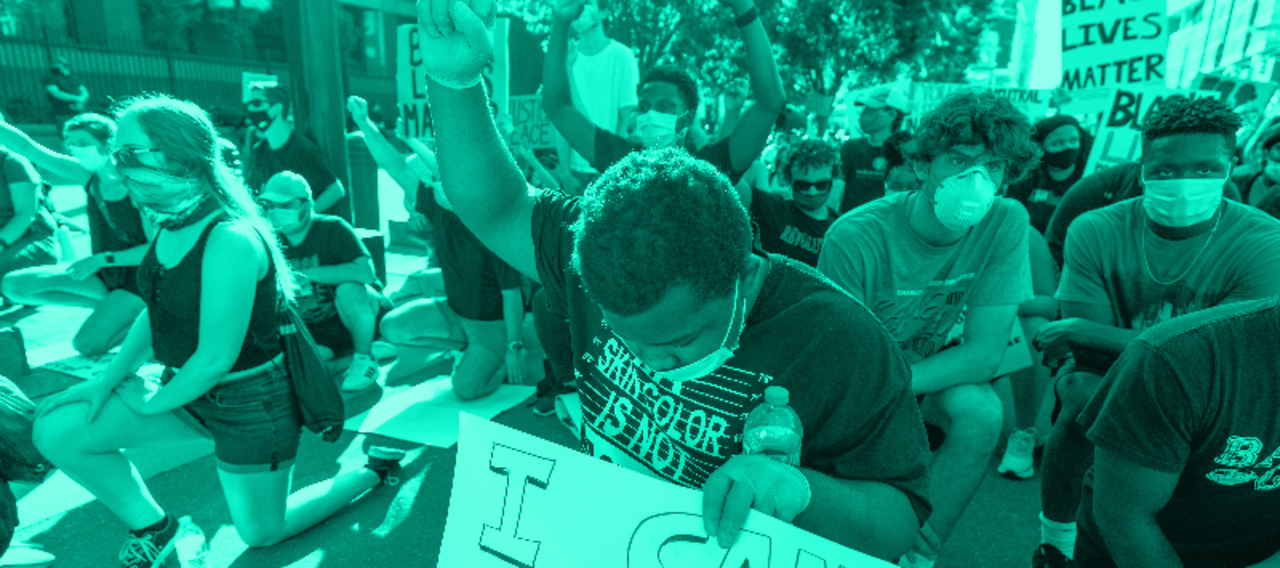
UMKC hosts discussion to explore new perspectives on higher education
The April 6 discussion in the Critical Conversations series of panel discussions addressing systemic racism sponsored by the UMKC Division of Diversity and Inclusion. It was the third of the 2021-22 school year and the eleventh in the series.
The Critical Conversations series is a part of Roos Advocate for Community Change, a campus-wide initiative launched in June 2020, which highlights thoughtful action on campus and in our community to ensure lasting and comprehensive changes. The goal of each Critical Conversation discussion is to enlighten, educate and explore the causes and potential cures for racism. Attendance to the discussions is free.
Panelists for this session included:
Gary O’Bannon, executive in residence, Henry W. Bloch School of Management, moderator
Jenny Aktar, UMKC student moderator
Kimberly Beatty, Ed.D., chancellor, Metropolitan Community College
Mark T. Bedell, Ed.D., superintendent, Kansas City Public School District
Laura Evans, business and education advisor-in-residence, Ewing Marion Kauffman Foundation
Amos Jaimes, UMKC Financial Wellness Center
Excerpts from the conversation are below. To view the complete recording of the conversation, click here.
Determining the value of college educations
Jaimes: I found great value in the learning communities with my peers, and talking deeply about theories and thoughts, and when there were other people and students of color in the room, we could really talk about our own backgrounds and connect. I found all of my best friends and fiancé within student organizations.
Evans: I came from a small, rural farming community and went to one of the largest colleges in the United States. It opened my perspective, and I developed a community where I learned to think and communicate more effectively. The academic challenge created a deeper work ethic in me for learning.
Beatty: I went to Morgan State University, a historically Black college. I wanted to know more about my culture and the sense of community.
Measuring the value and costs of a college education
O’Bannon: College costs continue to skyrocket, which impacts all races, ethnicities and genders. Loan interest rates have a greater impact on underserved students. But there's a report by the College Board that show that an average African American male with a college degree earns roughly twice that of someone who only holds a high school diploma.
Evans: What we know about how college translates to earnings is entirely a historical perspective, and the cost has gone up exponentially. We know that the world of work is changing rapidly. I would just caution us to not just look at data as we're making a decision about the value. I think the other thing I would point out, is what we perceived to be the value of our experience is not financially measurable.
Impact of major selection and experience
Bedell: College itself is a wonderful experience. Programs are developed to help you get ready and ultimately figure out what your passion is. I tell people that you should reflect on why you want to go to college and your desired outcome. It’s about what you decide to make out of it – and it’s not just about the money. It’s about passion. Everything else tends to work itself out down the line.
Evans: Some employers will be attuned to a particular major or set of skills. But most employers are looking for the most durable skills -- problem solving, the ability to communicate, the ability to collaborate. You may have acquired those skills in internships, but it could also be volunteer or extracurricular experiences. There are lots of ways to engage in the world and develop the kinds of durable skills that will help you to transition from what you studied to your initial job.
The value of community college
Beatty: Community college is not a replacement for four year colleges. It is a pathway and an affordable, local and convenient option. In Missouri, any courses that you take at Metropolitan Community College transfer directly to any of the four-year public universities, and often private ones. For people who need to work or have families and need flexibility they are an option.
Bedell: The A+ Scholarship Program (which provides scholarship funds to participating community colleges to eligible graduates) can really benefit students and allow them to knock out some of their core prerequisites.
Support for enrollment
Jaimes: Our office has conversations at events with students where we will sit down and help them fill out their FAFSA, because that is a barrier for a lot of students. This can prolong their ability to receive aid. We saw $3.7 billion in Pell Grants not being awarded to students, because they did not complete the FAFSA.
Impact of COVID-19
Bedell: We’ve been able to document that (COVID-19) has significantly impacted our kids. A lot of the work we did earlier around real-world learning was put on hold during the pandemic.
Jaimes: We saw a lot of our students working many hours to make up for the loss of income. Their households were severely changed; their ability to connect with peers in high school, but also the ability to engage in community college.
New Perspectives
Bedell: Traditionally, we have to be in school for the same hours. What if we created master schedules that allow for kids to operate on a much more flexible schedule that controls for the variables of poverty. What if we said it's going to go from 8 a.m. to 8 p.m.? Kids who need to do internships with a business could do that from 8 to 12 and maybe come into school for four hours and take classes online. These kids have to be trained for the workforce that they're going to go into, which offers a much more flexible working environment than what we currently have set up in pre-K through 12.
Apr 22, 2022
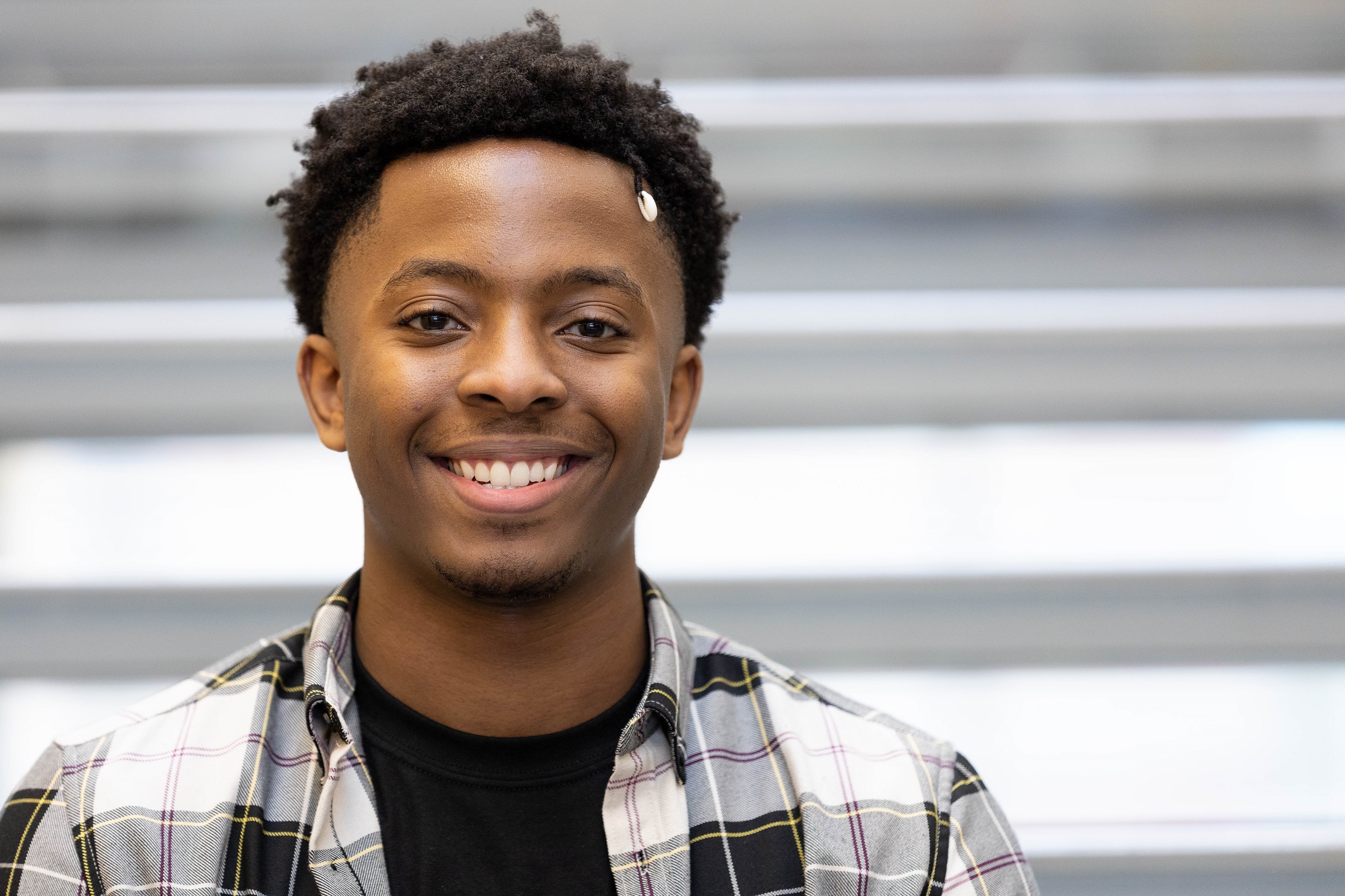
UMKC student leader works to create community change
Roos don’t just dream, they do. Our students turn ideas into action every day. Get to know our people and you’ll know what UMKC is all about.
Chiekezie AnikweAnticipated graduation year: Spring 2023UMKC degree program: B.S. biology, pre-medical emphasisPresident African Students’ Association, secretary Men of ColorHometown: Kansas City, Missouri
Chiekezie Anikwe chose UMKC because it is close to home, which is convenient and helped him keep expenses in check. He also likes taking advantage of being in the heart of Kansas City. His pre-med program is challenging, but he finds time to connect with friends through his involvement - and leadership - in extracurricular activities.
Why did you choose your field of study?
I have been surrounded by family members who were in the healthcare field all my life, so I grew to appreciate and love the different types of service that they provided for the community. I was always interested in the different stories and experiences they shared with me. With this field of study, I hope to be able to help people who are disadvantaged and play my part to make change in my community.
Since entering college, what have you learned about yourself?
One of the main things I learned in college was how to push myself harder. Transitioning from high school to college, I learned that I had to put in more work to be successful. Also, I learned that it is okay to ask for help. That wasn’t always easy for me. I always thought I could do things on my own or figure it out myself. We all need help sometimes.
How has your college program inspired you?
The program is full of a lot of hard-working people from professors to students, who in turn push you to do the best that you can.
What are the benefits of the program?
A main benefit of the program are the resources that they provide to help us do well. The professors are really helpful in making sure we understand what we are being taught. And my Supplemental Instruction (SI) study group helps me look at the content in a different way. Sometimes in class something may not make sense, but when I can talk to a fellow student about it at SI, I understand it.
What are the challenges of the program?
The classes are really tough, but they are interesting. With proper study habits, hard work and time management skills it is definitely possible to do well.
Another challenge with the program is not seeing more people who look like me. There is a huge need for more African American people in healthcare.
Is this why you became involved in the African Students’ Association and the Men of Color?
I love the African Students' Association and Men of Color because of how we are able to create a space where Africans and men of color can be comfortable to be their true selves. The African Student Association is my home. I became a member my freshman year and everyone was so friendly and inclusive. There were a lot of seniors on the board, and I thought, “Maybe I could help.” I became vice president my sophomore year in the midst of Covid-19. I’m president this year and I’ve had so much help from my team in boosting membership.
Who/What do you admire most at UMKC and why?
The thing I admire about UMKC is that it is full of inspirational people who are very determined to be successful in their own respective fields. There are many people at UMKC who are making change, and these are the people I admire the most. Roland Hemmings (assistant director, Multicultural Student Affairs and Men of Color staff advisor) has been a great mentor.
Do you have any scholarships? What do they mean to you?
I received the Chancellor’s Award. It means a lot to me just because it helps take a bit of the burden of tuition off.
What do you hope to take from your experiences at UMKC into your professional career?
I plan to take the work ethic and time management skills that I developed during my time at UMKC to further my professional career.
Apr 22, 2022
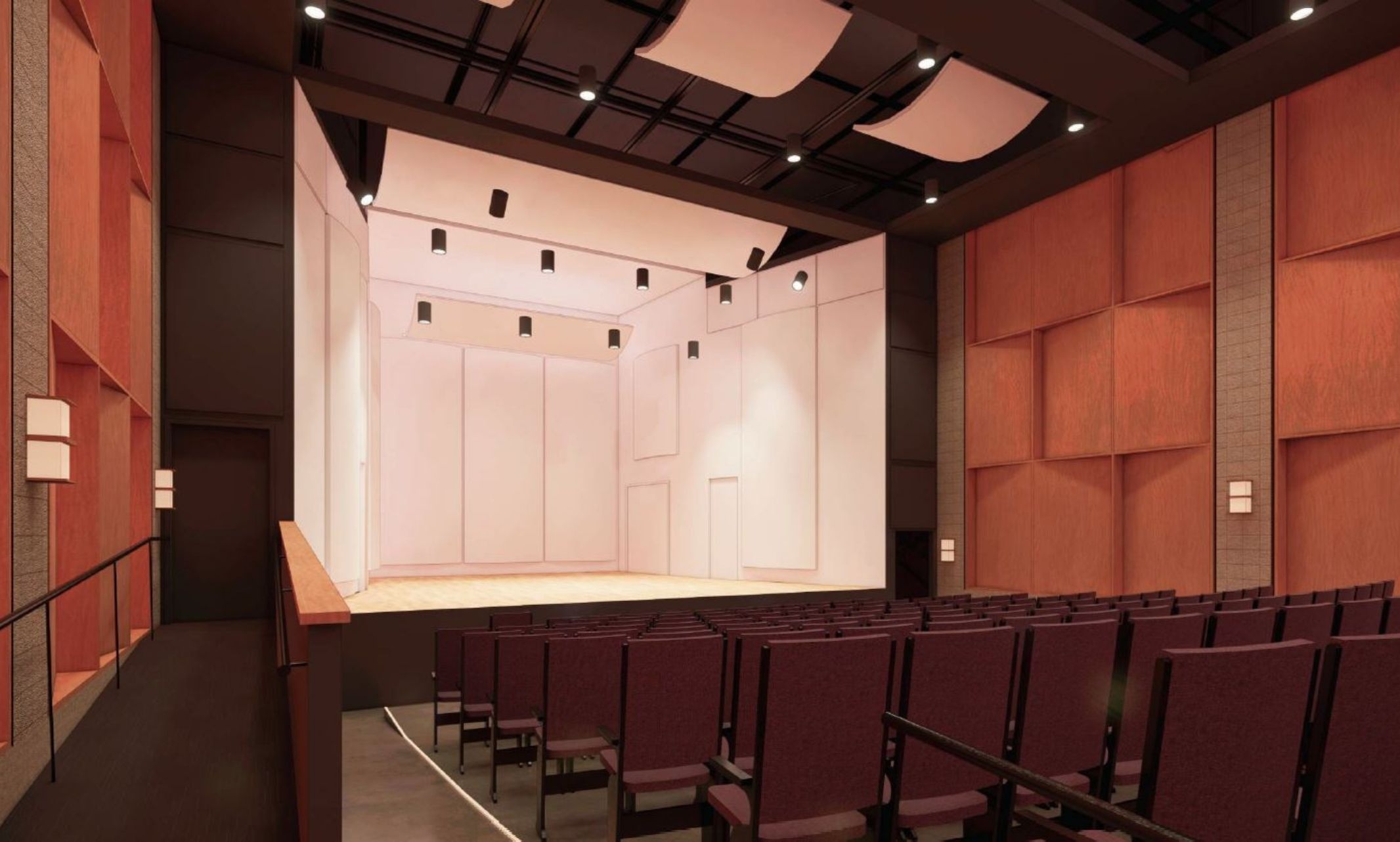
Recital and rehearsal spaces will get improved soundproofing and technology
Renovations on Conservatory facilities will begin next month, the first of a series of renovations and expansions.
Beginning the Monday after commencement, the $4 million renovation project will focus on hearing safety, updated technology, increased usable space and ADA compliance. The construction is expected to be complete before fall semester classes begin in August.
Rendering of Grant Hall recital hall by Helix Architecture + Design
“Sound is an important part of the student and visitor experience here at the Conservatory,” said Andrew Granade, interim dean of the Conservatory. “These renovations will allow our students to better hear and finetune their musicianship, and our visitors will enjoy performances that are equal to the talents of our musicians.”
Rendering of teaching room in James C. Olson Performing Arts Center by Helix Architecture + Design
Visitors will see changes in the Grant Hall recital hall, including new acoustic treatments, new sound equipment and updates to improve ADA compliance.
Rendering of hallway to individual practice rooms in James C. Olson Performing Arts Center by Helix Architecture + Design
Student practice rooms and rehearsal spaces in the James C. Olson Performing Arts Center will be updated with new technology and acoustic treatments, in addition to soundproofing, new flooring and an increase in usable space. Practice and rehearsal space renovations will improve hearing health and accessibility.
Rendering of individual practice rooms in James C. Olson Performing Arts Center by Helix Architecture + Design
Renovations and expansions in the Conservatory will take place over the next several years in both Grant Hall and Olson Performing Arts Center. Funding for this first stage of renovations includes $3.5 million in state funding and $500,000 in gifts.
Apr 21, 2022
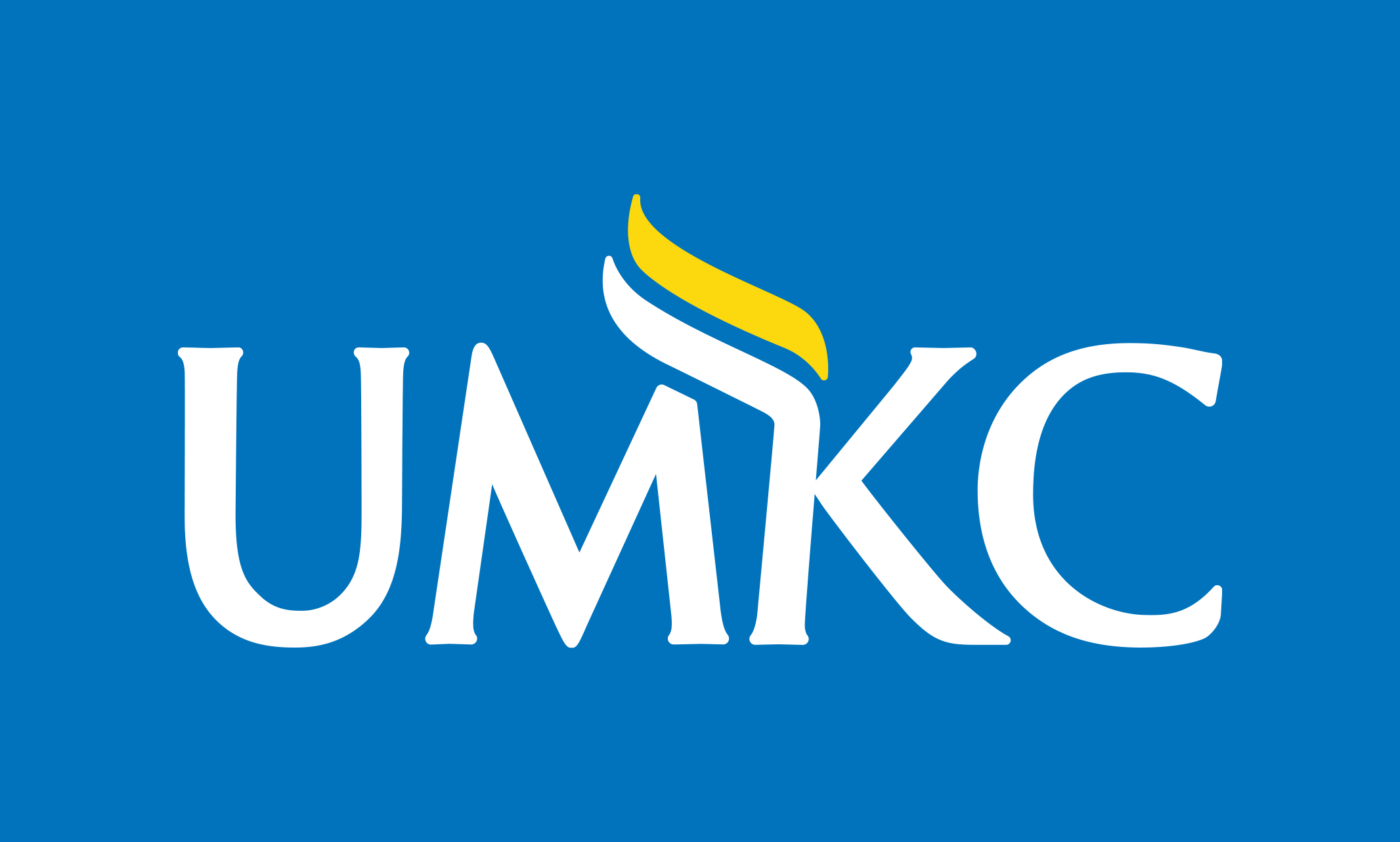
The logo update maintains its visual roots while strengthening its visual presence for current needs
The University of Missouri-Kansas City has unveiled an evolution of its logo, which will soon be seen rolling out across campus. This refresh will strengthen the university’s visual presence for today’s needs while retaining legacy elements of its signature brand.What’s new is that UMKC condensed and strengthened the typeface for better readability on digital devices and on social media. In addition, the UMKC logo will now carry more visual weight when partnered with other logos.And yet, this brand stays true to its visual roots. The symbolic “flame” in the flourish of the letter K draws your eye to the torch image that symbolizes both the lamp of knowledge and the ceremonial mace carried by faculty into commencement ceremonies. To create this refreshed logo, designers in Strategic Marketing and Communications worked in consultation with Bernstein-Rein, the creative agency that developed the current UMKC logo.
Anatomy of a refresh
The evolved logo was created by solving for a list of design challenges independently and then combining the best solutions into a final design. The goal was to give the logo a modern update while maintaining the integrity of the mark and ensuring continuity in brand recognition. The adjustments improve readability at smaller sizes, allow for better alignment and increase visual weight so that it pairs better with other logos.
Updates coming soon
The project that spurred the logo refresh will soon be visible all across the UMKC campuses in the form of repainted wayfinding signs. Many of the campus signs have faded over the years and reflect several generations of color and brand style, some of which are nearly forty years old. In addition to the signage refresh rolling out in May, updates are also coming to the university websites and social media icons very soon.
The new logo will be phased in over time and will be automatically incorporated into new projects. Digital updates will made as soon as possible. Updated guidelines and logo files are available on the Strategic Marketing and Communications website. Faculty and staff can update their email signature to include the updated logo.
Apr 20, 2022
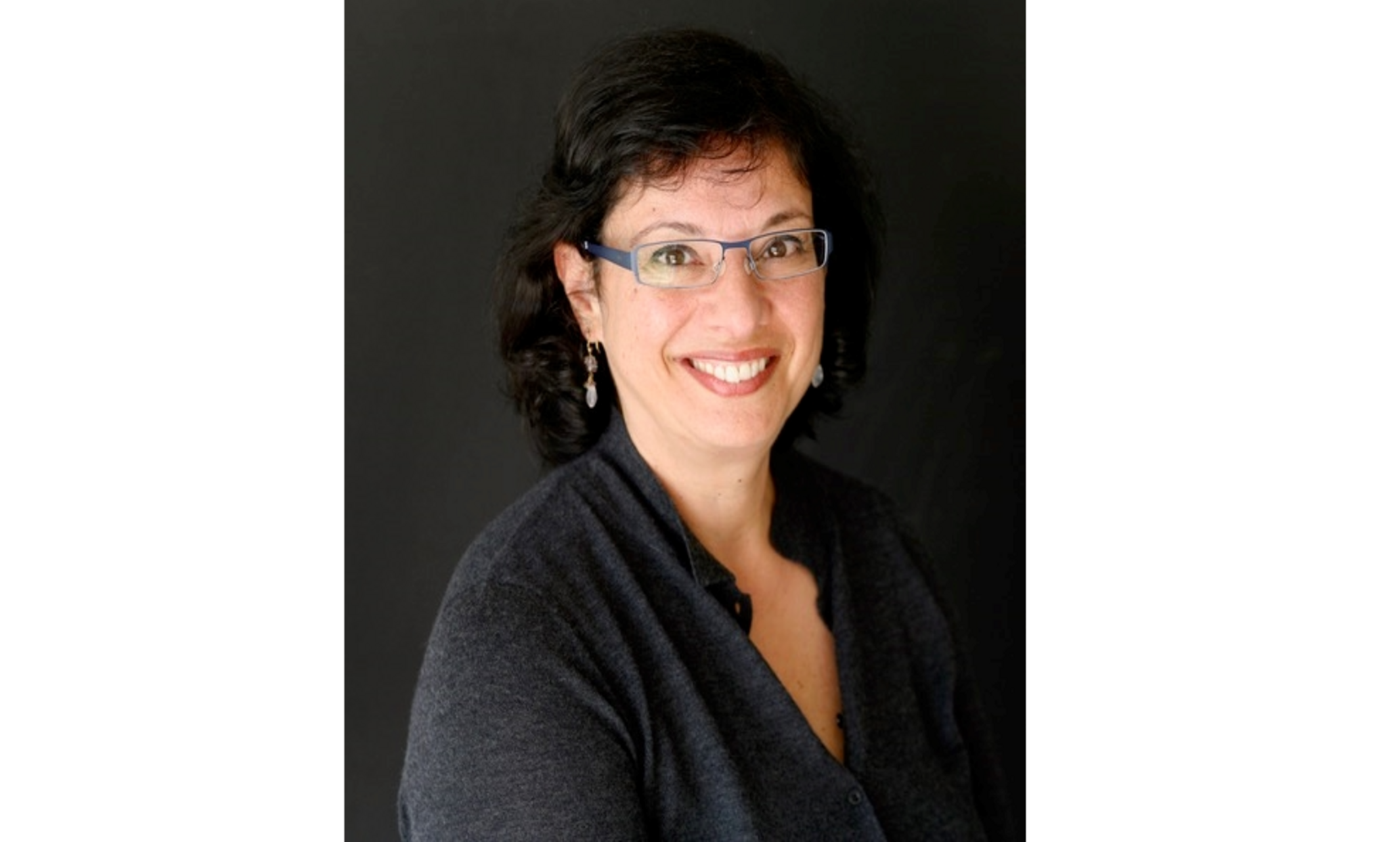
The annual lecture honors the legacy of civil rights leader
Sonia Nazario headlined the UMKC Division of Diversity and Inclusion’s 14th annual César Chávez lecture this week.
The lecture honors César Chávez, organizer of the Chicano Movement in the United States and founder of the United Farm Workers. It is meant to raise awareness of the continual struggle for civil rights, including humane working conditions, dignity, equality and access to opportunity for all.
Nazario is a two-time Pulitzer Prize-winning journalist whose stories have tackled difficult issues such as hunger, drug addiction and immigration. She spent decades reporting and writing about social issues for newspapers, including the New York Times, Los Angeles Times and Wall Street Journal.
Below are some highlights from the lecture, which was held virtually this year.
On winning her first Pulitzer:
I wrote about this army of children migrating north alone through the true story of one boy, Enrique, whose mother left him in Honduras at just 5 years old. Then, 11 years later he decides to set off to go and find her. I met Enrique in northern Mexico when he was mid-journey. He was on his eighth attempt to enter the United States. He had been deported seven times.
I then made the same journey he had made. I traveled for three months, 700 miles, half of that time on top of seven freight trains. What I witnessed changed me. Children who had lost arms or legs from trying to jump on trains were trying to reach the United States to find opportunities that I honestly took for granted.
On advocacy:
In 2008, I left daily journalism to write books. At that time, I decided to wade into advocacy gingerly. More and more, non-engagement to me felt wrong. Keeping silent about some of these issues felt amoral. But my readers pushed me to do more.
When I talked about immigration, they didn’t understand me saying, “Here is the problem, you should get involved to fix it.” Their issue was, why did a journalist like me, who knew an issue so well after decades of covering it, feel entitled to put the issue to their readers and expect them to figure out a solution.
I joined the board of a nonprofit started by Microsoft and Angelina Jolie called Kids in Need of Defense. I fought alongside my colleagues there to help recruit wonderful pro-bono lawyers to represent immigrant children in court for free.
I’ve had dozens of students hear me speak over the years and decide in that moment, I am going to become a lawyer and then return to another talk years later, “I am now representing those immigrant children you told me about.”
Apr 20, 2022
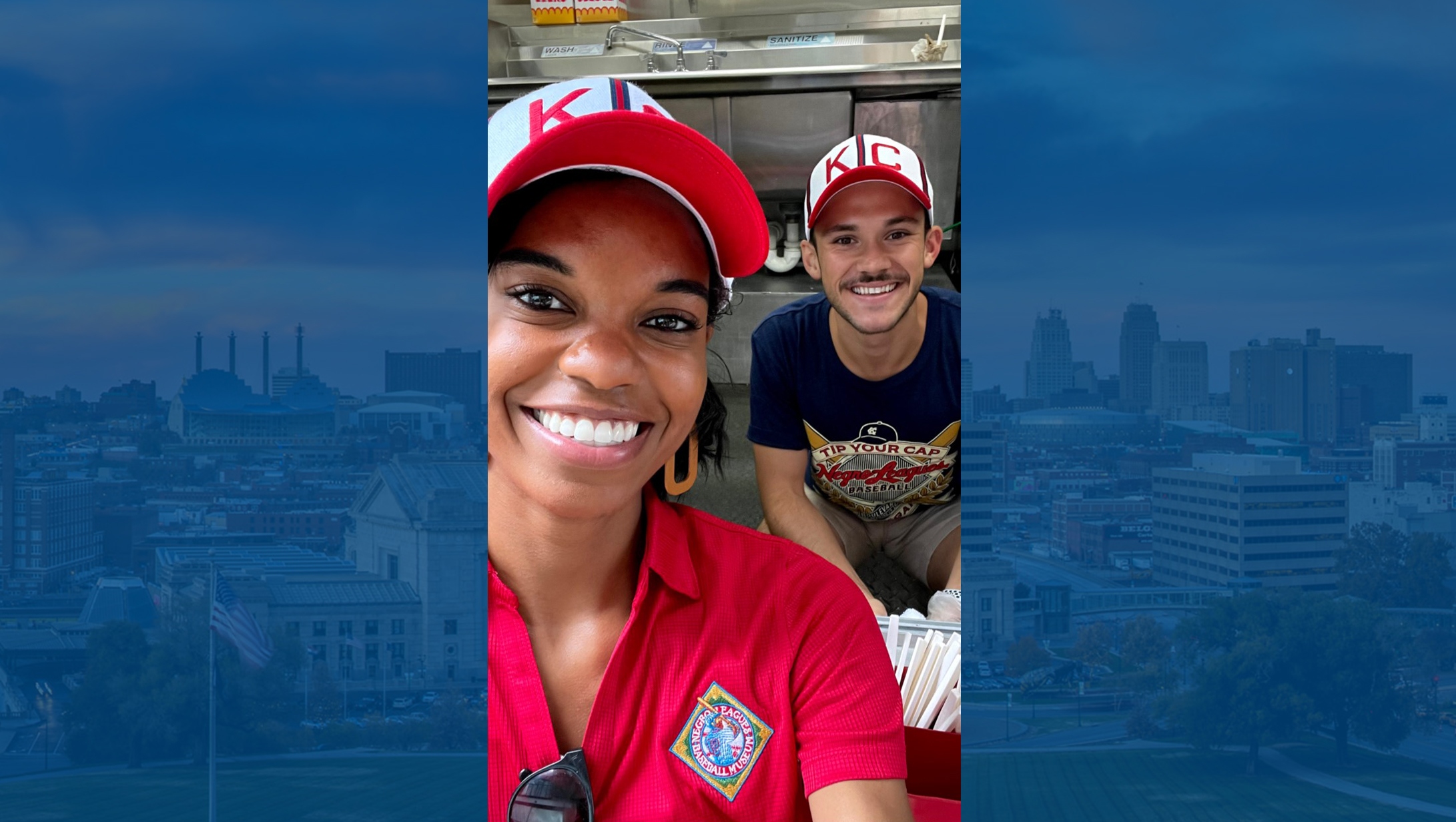
Two Bloch alumni are making their mark in KC
When people go to school to earn their degree, they go for more than the reading, writing and arithmetic. They go to hone skills and form connections that will propel them into fruitful careers.
Two UMKC Henry W. Bloch School of Management alumni are still building those connections — and building up Kansas City along with them.
The partnership between the two began when Kiona Sinks (MBA, ’21), the digital strategy manager for the Negro Leagues Baseball Museum, noticed a local hinderance and decided to turn it into an opportunity. Sinks was aware that Alec Rodgers (B.B.A. ’20), a fellow Bloch School graduate, had purchased the local ice cream staple Betty Rae’s, and she wanted to show her support.
“I think one thing that I've learned in Kansas City — we have all the right people, all the right tools, all the right resources, but sometimes we're not great at aligning things strategically,” Sinks says. “Ice cream and baseball historically go hand in hand. When you go to the ballpark, you get a hotdog and a cone. That’s when I thought it’d be really cool to reach out.”
A sweet new collaboration was born.
“Kiona reached out asking if we wanted to partner with the Negro Leagues Baseball Museum, and of course it was a yes from the start,” Rodgers says. “I thought it would be fun to raise funds and awareness for the museum — even just for the collaboration with ice cream and the museum itself. It's like a match made in heaven. Baseball and ice cream go so well together anyway.”
The plan went into motion with the Betty Rae’s truck outside of the museum. Passersby were eager to investigate the bright blue truck, and the warm day called for something cold. Everyone who bought a scoop got a $2 discount off museum admission. The partnership also resulted in a signature flavor: Cake, Batter Batter — a spin on the classic flavor with the colors of the museum swirled in. The treat was a home run, as is the new partnership between two successful Roos.
“I think working with UMKC alumni has been a testament to the culture at UMKC,” Rodgers says. “It’s great. When you’re on campus and involved, you start to feel like it’s home. It’s been neat to make the city an extended home of UMKC. It feels like you’re seeing people you know everywhere, which is so comforting.”
Sinks shares the same feelings about her graduate school experience at UMKC. That’s part of the reason she reached out to Rodgers in the first place.
“I've watched his story progress in the community, in his 20s, thrust into this new role,” Sinks says. “When he took over ownership, I really wanted to be a support to him. And obviously, I literally love ice cream.”
Alec Rodgers
Rodgers took over Betty Rae's ice cream in 2021. Photo by Brandon Parigo
Sinks is far from alone when it comes to her feelings about ice cream. Rodgers just so happens to have a special connection to Betty Rae’s that extends beyond the scoops.
Rodgers made headlines in 2021 when he took over Betty Rae’s fresh out of the Bloch School. It helped that he scooped ice cream there when he was a student at UMKC, but it was more than a part-time job. He often spent time in the stores — even when he wasn’t scheduled to work — catching up with work friends while making a fresh batch of waffle cones. The stores also provided a change of scenery for studying.
Because of his passion for Betty Rae’s, Rodgers did not hesitate for a moment when the previous owner came to him about purchasing the business, even during a pandemic. He has experienced plenty of success since, though he still faces challenges as a young business owner.
“It's definitely a little intimidating most days,” Rodgers says. “In other ways it's been really good because it gives me a different perspective (having) a lot of employees under a young owner. I find it’s easy to relate to them and where they are in life.”
Under Rodgers’ leadership, Betty Rae’s took the slower winter season to develop new offerings, like cakes and ice cream flights — which will have vegan and non-dairy options — in addition to seasonal rotators and fan favorites.
Betty Rae’s has also added some new creations. Their rotating stock has featured flavors inspired by McLain’s Bakery, Andre’s Chocolates and the Negro Leagues Baseball Museum, as well as UMKC, of course. The Roo Blue Swirl flavor was added to the store last August, with the ceremonial first scoop going to Chancellor C. Mauli Agrawal.
That UMKC connection is apparent with both Bloch School alumni.
Kiona Sinks
Sinks works as the digital strategy manager at the Negro Leagues Baseball Museum. Photo by Brandon Parigo
Rodgers’ time with Betty Rae’s goes back to his college experience, and Sinks’ time at the Negro Leagues Baseball Museum follows a similar path. Having been with the museum for more than a year and a half, Sinks started her work as digital strategy manager while earning her master’s degree at UMKC.
“Students in the MBA program are working professionals, first and foremost, and then you slap trying to get a formal education on top of that,” Sinks says. “It can be difficult. Things are not promised. I didn't have this job when I started my degree. I did my own consulting, and I was not waiting for something to come to me. Looking back, it was a great self-investment for me.”
Sinks also knew the Bloch MBA program had benefits when it came to networking opportunities.
“With the Bloch school, I can't tell you how many people are in the local business community,” Sinks says. “They're CEOs, they're executives, and I’m regularly able to interact with and get to know them. You just see the outpouring of love that people have for this institution. It makes you proud. That's what you want. You want to be proud of where you've invested your time.”
In the meantime, the Negro Leagues Baseball Museum is preparing to celebrate the 75th anniversary of Jackie Robinson breaking the color barrier. Sinks is eager to get the word out and grow the museum.
“These life lessons that stemmed from the story of the Negro Leagues continue to be an inspiration to me every day, and I think that was the motivation to reach out to Alec,” Sinks says. “Obviously, it doesn't hurt that he’s also a UMKC alum. It puts two and two together. He's a great person, and I’m wishing him all the success for all he's going to do in Kansas City.” The community has likely not seen the end of their friendly partnership, either.
“We both quickly realized that we share a love for Kansas City, a love for the communities that we’re involved in,” Rodgers said. “Kiona has a servant-leader heart, and it was quickly recognizable in her. We both realized that we had a lot in common in that area as well. We just pitch to each other our long-term goals and long-term ideas in the city, and they align really well.”
Apr 18, 2022
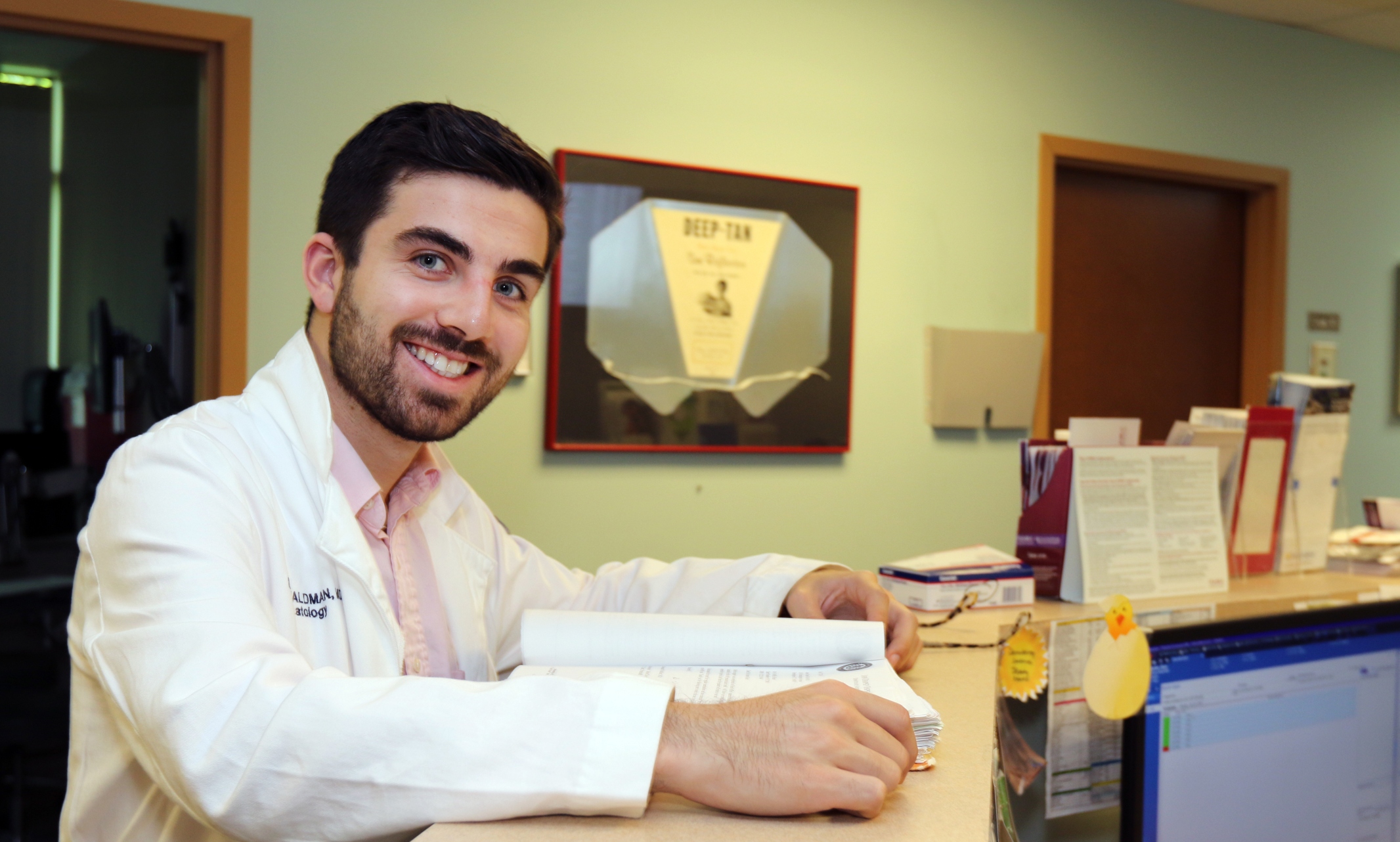
How a UMKC graduate turned an idea for a wart treatment into a multi-million-dollar startup
After graduating from UMKC’s six-year B.A./M.D. program and becoming a dermatologist, Reid Waldman (B.L.A. ’16, M.D. ’17) noticed a lack of kid-friendly wart-treatment options. So he worked to turn that gap in the market into a new business venture that has rapidly taken off.
Shortly after graduating from the UMKC School of Medicine, Waldman competed in a Dermatology Hackathon — a competition designed to spark new ideas and industry collaborations to improve standards of care and treatment for skin conditions.
“The team came together during the competition looking to research the problem of childhood wart treatments being painful, scary and ineffective,” Waldman says.
During that competition, the idea for VeraDermics was born. The company makes kid-friendly patches to treat warts in children.
An estimated 10-to-20% of children develop common skin warts, but existing treatment options were not “kid-friendly,” as they were largely time-consuming and expensive, Waldman explained.
“We’re dermatologists developing drugs for dermatology,” Waldman says. “Everyone on our core management team is a dermatologist. We use our end-user knowledge as physicians who actually use the products that we develop to better understand what doctors and patients want out of new therapeutics. It's a very novel approach to drug development, which is otherwise often done by people who haven’t spent appreciable time in the clinical arena.”
To date, Waldman and the VeraDermics team have raised more than $22 million to launch the company and bring the product to market. Currently all of the company’s products are still in the pre-clinical phase, either undergoing formulation work, validation in the lab or ongoing process development. Waldman says in drug development it’s important to ensure every batch of a medication is identical, so his teams are investing heavily to ensure they get it right.
“It's amazing to be at the stage we’re at now, because all of the corporate planning takes years, and we've been working on this for so long,” says Waldman. “There are many milestones that at one point seemed so far away. It’s really mind blowing the closer we get. And I think this is going to be an especially exciting year for us."
Waldman says through building his company from the ground up, he realized the strength and reach of his UMKC alumni network. From donations to well-wishes and even business advice, he’s benefitted from the connections he built while enrolled at UMKC.
“The six-year B.A./M.D. program at UMKC is the cornerstone of why I'm interested in drug development,” Waldman says. “My UMKC medical training and then the medical training I had postgraduation have really helped me recognize certain areas of unmet need within medicine and specifically within my field of dermatology. Through my medical training I can appreciate some of these more niche areas of unmet need that are otherwise not necessarily a focus of larger pharmaceutical companies.”
“It's amazing to be at the stage we’re at now, because all of the corporate planning takes years, and we've been working on this for so long.” — Reid Waldman (B.L.A. '16, M.D. '17)
He didn’t have to look far to start building connections with other UMKC alumni.
Waldman comes from a UMKC legacy family. In fact, the family’s Roo tradition began in 1929, when Reid’s grandfather, David Waldman (J.D. ’32), became the first graduate of three generations of Waldmans to be admitted to the Kansas City School of Law (now the UMKC School of Law).
Reid’s father, uncle and three siblings are all UMKC graduates. Waldman’s family received the UMKC Legacy Award at the 2014 UMKC Alumni Awards.
The UMKC School of Medicine is currently celebrating its 50th anniversary. Waldman says he’s proud to be a product of such an incredible and unique institution.
“I think it's amazing,” Waldman says. “My dad was in one of the early classes at the School of Medicine and then I was a graduate in 2017. In many ways, I think the medical school has changed quite a bit between the time my dad attended and when I graduated, and I know it has probably changed since I left. But in many ways the great education and uniqueness of the program remain.”
Apr 18, 2022
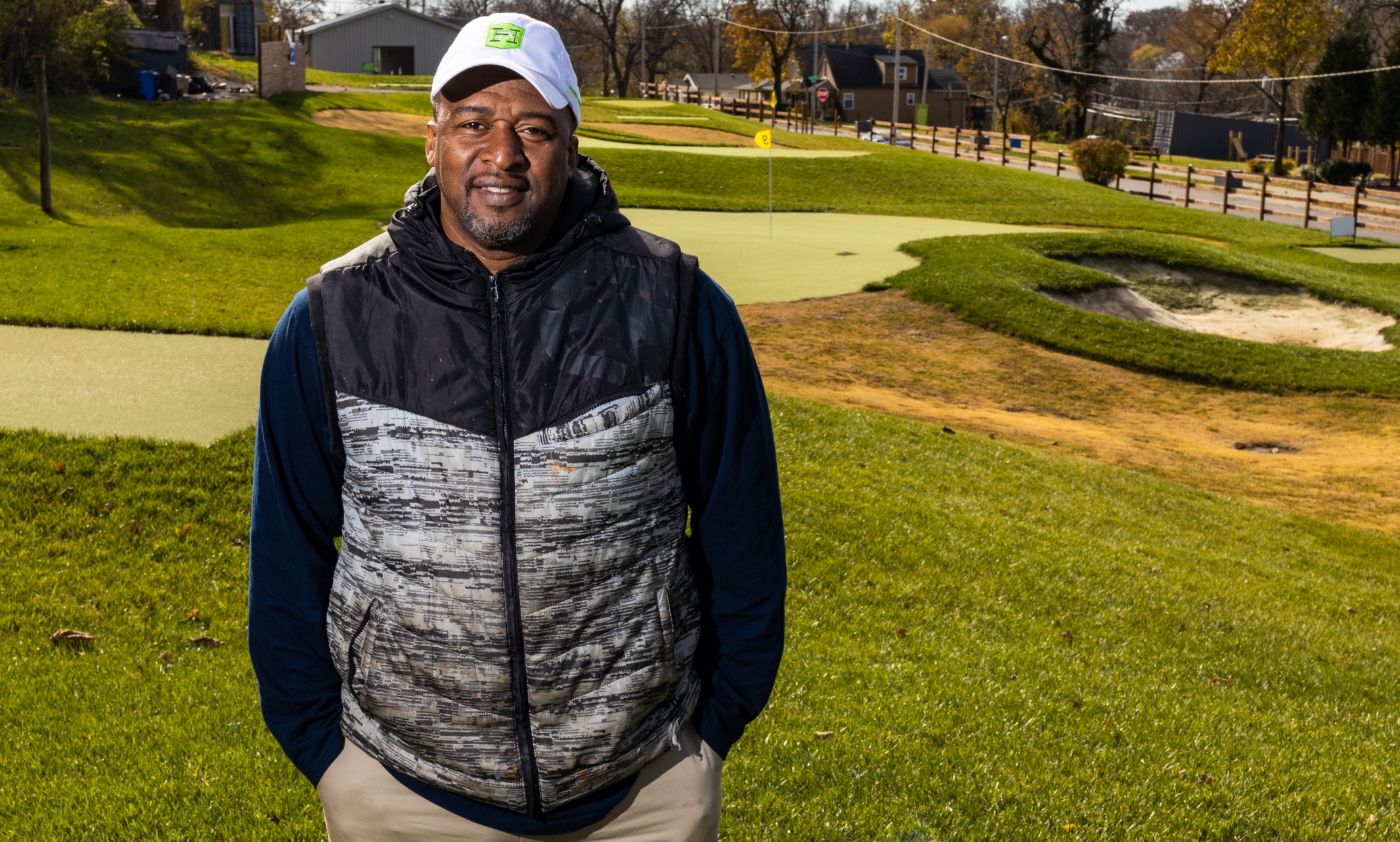
Chris Harris (B.L.A. '14), 2018 UMKC Alumni Award winner and founder of Harris Park, shares insights on transforming his community while helping KC...
Chris Harris’ (B.L.A. ’14) lifelong dream was to build a park where he could teach people self-esteem and basic life skills through sports and community. Today, that dream is a reality.
Where it began
Having grown up in the Ivanhoe neighborhood, Harris knew that people looked down on the area. The Ivanhoe of the 1980s and 90s was dotted with blighted houses, unkempt lawns and ragged, struggling plant life. The neighborhood had drawn associations with a history of crime and drug violence.
Harris was determined to change the mindset of outsiders — and the mindset of the people who lived there. No one was working for change, so he realized it would have to start from within.
In 1994, Harris enrolled at Penn Valley Community College. For a writing assignment, he focused on his dream: to clean up his community and teach the basics of life through sports. Putting the dream on paper made it seem real. Another event during his two years at Penn Valley convinced him it was possible.
In 1996, Harris led the unheralded Penn Valley basketball team to the NJCAA Division II National Championship. That gave him the confidence to believe he could achieve his dream. And he’s certainly come a long way since, receiving the College of Arts and Sciences Alumni Achievement Award at the 2018 UMKC Alumni Awards.
Making the dream real
For Harris, the hard work quite literally began at home. He started by tearing down his childhood home on Wayne Avenue and began the process of transforming the property into a community park and events center. He wanted to have an accessible park that made resources available to urban youth who lacked access to certain sports like golf, because they couldn’t afford a membership or lessons to learn.
Next, Harris bought the plots of land that covered both sides of Wayne Avenue between East 40th and East 41st Street. In the beginning, he was out there alone, doing the hard labor and getting his hands dirty on the grounds. Slowly, through networking, fundraising and building relationships and partnerships, he was able to raise $2.5 million to develop the park.
“All of it just fell right into place like a book,” Harris says. “That’s just how it happened, and it just kept growing.”
Family, friends and community volunteers helped along the way, but much of what is now Harris Park has been a one-man venture.
Today, Harris Park includes a compact 12-hole pitch-and-putt golf course and basketball court — all free for anyone to use. Harris Park has taken years to develop, with more changes still to come. Some plans have been put on hold since the pandemic hit, as the park has remained in the construction zone. But the plan is to open and operate fully in the spring.
In the meantime, Harris is constructing a stage in one of the buildings to offer a space for people to rent and hold events. There are also plans for a clubhouse with restrooms and a golf pro shop with merchandise, gear and snacks available.
“My heart and soul is in the beautification,” Harris says. “When I first started this, saying I was going to use sports as a catalyst to clean up our neighborhood and educate our neighborhood, I didn’t know that the place itself was going to be educational.”
The motivation behind it all
Sports have taught Harris how to navigate life’s challenges. He learned the most from the game of basketball. Harris knew if he did the little things to put teammates in their comfort zone, they were all going to play better. Once he realized this formula and applied it to his life, winning games led to winning championships — and doors began to open.
For Harris, it’s still all about putting people in their comfort zone so they can be the best version of themselves. He notes when people feel comfortable, they perform better and more effectively. Likewise, by creating opportunities and resources for people to come play a round of golf, shoot some hoops or simply hang out at the park, it creates a space to put people at ease and find refuge in a place that once offered very little.
“Can you imagine how many people have that ability, to do something, but don’t have the inspiration and desire to do it?” Harris says. “I’m trying to put them in that comfort zone, so they can do those things that they already have the power, strength and knowledge to do.”
Apr 18, 2022
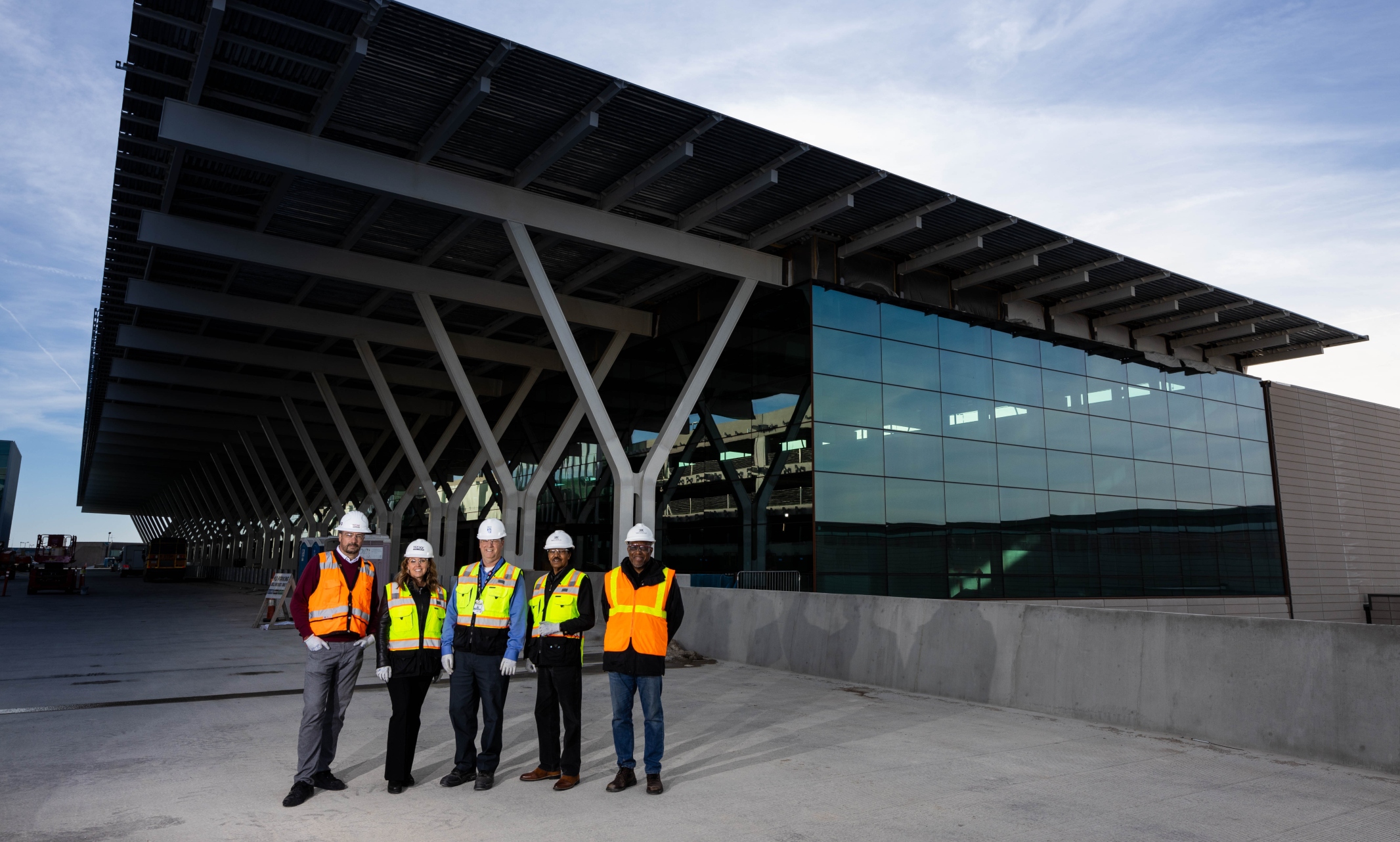
Meet several of the Roos making Kansas City’s new airport a reality
Since UMKC opened its doors in 1933, Roos have been integral players in many of Kansas City’s most significant projects. So, it’s no surprise that UMKC alumni have played major roles in the design and construction of the new single terminal for Kansas City International Airport.
The $1.5 billion, one-million-square-foot structure will have 39 gates spread across two concourses. A grand opening is scheduled for March 2023.Here’s a look at some of the Roos who are playing prominent roles in the project.
Hagos Andebrhan and Leonard Graham
Taliaferro & Browne engineering and architecture firm
Taliaferro & Browne Inc. is the lead landside civil engineer for the new single terminal project, with a team of eight subconsultant companies that work under their direction and management. The engineering firm has been integral to Kansas City’s growth for more than 60 years.
Hagos Andebrhan (B.S.C.E. ’78), CEO, and his partner Leonard Graham (B.A. ’74), president, have led the company as the civil engineer of record on projects including the redevelopment of Union Station and the IRS Regional Service Center, as well as renovations of Arrowhead and Kauffman stadiums, the KauffmanPerforming Arts Center and Berkley Riverfront Park. Despite the significance of these past projects, the alumni view their role in the single terminal airport as one of their most significant.
“The new $1.5 billion KCI single terminal is a project like no other,” says Andebrhan, who received the Defying the Odds Award at the 2020 UMKC Alumni Awards, as well as the School of Computing and Engineering Alumni Achievement Award in 2012. “It is a once in a lifetime project for the city and everyone involved in its construction.”
Taliaferro & Browne Inc. was in competition with national and international firms for their role in the project.
“When Clark Weitz Clarkson, the design builder, assembled its team, they wanted a landside design team that could deliver this highly visible project on time and on budget,” Andebrhan says. “We have been part of the airport’s growth for years and were proud to be selected based on our experience.”
The firm’s specific responsibilities include project management and coordination, design of permanent roadways, including roundabouts and bridges, street and parking lot lighting, surface parking lots, utility relocation, storm and sanitary sewers, mass grading and associated project phasing. In addition, they are responsible for the design of temporary roadway connections and temporary traffic modifications required to construct the new terminal while keeping terminals B and C open and in operation — with more than 20,000 vehicles arriving and departing daily.
“It is the largest single infrastructure project in the city’s history, and the largest construction project in which our firm has lead-design responsibility,” says Graham, who received the SCE Alumni Achievement Award at the 1993 UMKC Alumni Awards. “We understood the complexities and challenges of the project, but we were excited to roll up our sleeves and get to work. The KCI new single terminal project is probably one our proudest efforts yet. We were honored to be a contributor to this significant effort."
Kimberly and Trent Robinett
TREKK Design Group
Kimberly Robinett (B.S.E.E. ‘95), CEO and managing partner of TREKK, has led the organization with an entrepreneurial spirit since she founded it with her husband and TREKK partner Trent (B.S.C.E. ’95) in 2002. Her ability to focus on delivering quality work on schedule has led to TREKK’s participation in developing the infrastructure for the new Kansas City International Airport. Kimberly is committed to the success of the project as a Kansas Citian as much as a businesswoman.
Kimberly and Trent, who shared the SCE Alumni Achievement Award in 2014, founded the company in their basement and built the organization’s culture on improving lives, rather than just the bottom line. Today TREKK has eight offices and 160 employees. Even after their participation in building T-Mobile Center, the Power and Light District, the Christopher S. “Kit” Bond Bridge, the Buck O’Neil Bridge and each phase of the Kansas City Streetcar, being involved in the KCI terminal project is significant to the Robinetts and TREKK.
“The terminal project is one of those signature projects that impacts the entire city,” Kimberly says. “It is the first thing about our city that visitors experience. But beyond that, we are hopeful that the new terminal will improve the lives of Kansas City residents by making it more attractive for airlines to add additional connections out of Kansas City.”
She sees additional air traffic in and out of Kansas City as a critical component to the city’s growth.
“Better access to this great city will encourage the recruitment of talent that will grow our local economy and have a positive impact on our neighbors, friends and families,” she says.
TREKK has held several significant roles from the beginning of the new KCI terminal. Early in the project, their team surveyed the site and located all the existing utilities.
“Our crews were challenged with untangling what looked like a bowl of spaghetti,” she says.
From there, they worked with subcontractors to design the systems that are critical to the infrastructure, including the drainage system, ground service equipment layouts and survey verification during terminal construction. These systems have a great impact on travelers, but unlike food vendors or retail, travelers are usually unaware of their existence.
Recognition for these projects has never been Kimberly’s motivation. Impacting the community has been a priority for Robinett since she and her husband started the company. But she did not envision their integral role in building the city’s corporate infrastructure.
“We never imagined that we would grow to be 160 employees in seven regions throughout the Midwest and have a large role in such significant projects that make such a positive impact,” Robinett says. “We are so grateful for the opportunities that we have had to work with leaders across Kansas City in building its future and making a meaningful contribution toward improving lives.”
While the Robinetts’ and TREKK’s success seems obvious, their most important critics and supporters are close to home. Their three daughters are proud of their parents’ contribution to the new KCI terminal.
“We traveled over the holidays, and they were very interested in the progress of the new terminal and the work we performed to contribute to that progress,” Kimberly says. “It was fun to show them the work that TREKK has been doing to help Kansas City grow.”
Joe McBride
Kansas City Aviation Department
Even before the construction started, there was work to be done. Joe McBride (B.A. ’86), College of Arts and Sciences graduate, was tasked with facing the early obstacles in getting Kansas City’s new airport terminal off the ground.
As senior manager of communications for the Kansas City Aviation Department, McBride’s job had always been to put the best possible face on the airport. Then the script was flipped.
“It was an uphill battle,” McBride recalls. “We needed to communicate the shortcomings of a facility we were used to touting as convenient.”
That was in the earliest stages of trying to assemble a community consensus about the need for a modernized terminal. Then, once a formal plan was developed for approval by the city council — to take to a public vote — the project’s champion had to silence himself. City employees are not allowed to advocate for or against specific proposals.
“When it came time for a vote, we had to stand down,” McBride says.
While more than 70 percent of voters ultimately approved the plan, McBride recalled how difficult it was in the early stages to convince people that change was necessary. The existing configuration was designed in a time of smaller planes and far less concern about airport security.
“It was outdated,” McBride recalls. After the 9/11 attacks generated the modern approach to aircraft and airport security, “We had to shoehorn security in there after the fact.”
Kansas City passengers loved the convenience of drop-offs and pickups within a few feet of the gates, but the need to make space for security screenings made the design unwieldy and impractical.
Still, the previous design had no shortage of diehard fans, and McBride’s job was to bring them around — even as he understood their passion.
“I was happy that people had a sense of ownership of it,” McBride says. “That’s good.”
The project moved to design and construction after the vote. At that point, McBride’s role morphed into the in-house consumer advocate. He monitored public comments at events, news conferences and social media. He shared what customers were saying in meetings with architects, engineers, designers and construction managers.
“We’re going to have a historical display in the connector between the concourses about the history of aviation in Kansas City and the history of the airport,” he says. “For that, I’ve been working as an editor, taking a close look at it, really diving in and taking ownership.”
And yes, his UMKC education was a factor in this success.
“At UMKC, I had a couple of great mentors and teachers, Dr. Doug Moore and Col. Robin League, both in communication studies,” McBride says. “They were sticklers for the English language. They helped me and made me a good written communicator. I continue to hear them in my head when I’m writing.”
Now he’s playing a key role in planning the terminal’s grand opening, set for early March 2023.
“I’ve talked with colleagues at other airports with new facilities about their openings, lessons learned, pandemic considerations,” McBride says. “Opening day will be a very early day after a very late night. I think after all the labor and toil it will be, ‘Wow, it’s finally here.’ And watching people come into the terminal, checking in with the wow and the awe in their eyes, that’s going tobe a fun, long, proud day.”
Apr 18, 2022
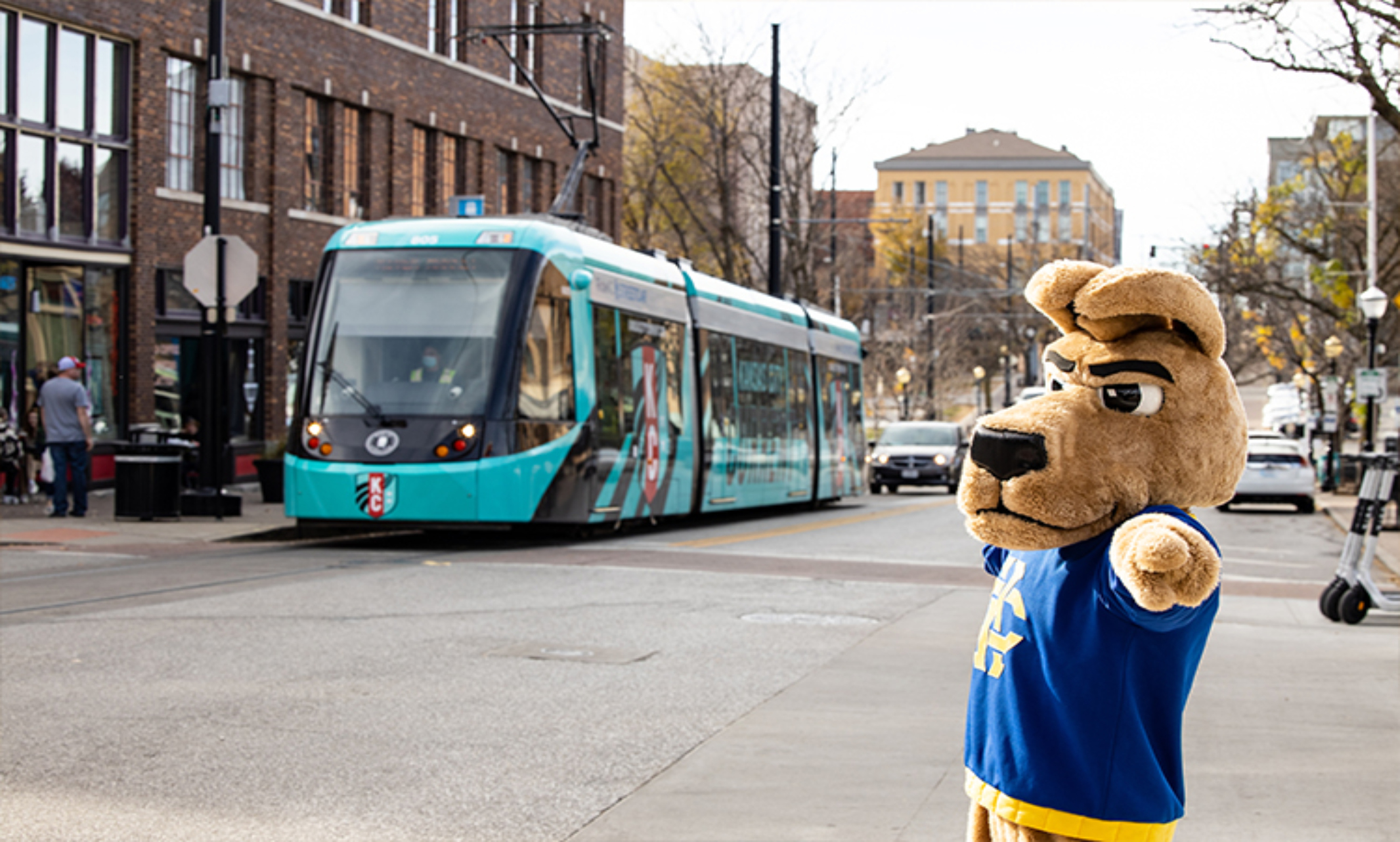
The city’s massive infrastructure project now underway will have a direct impact on UMKC
The city’s other massive infrastructure project now underway will have a far more direct impact on UMKC than the airport terminal. That project is the extension of the Kansas City Streetcar line to the Volker Campus, for which an official groundbreaking ceremomy was held on April 6.
The streetcar’s 3.5-mile southern extension along Main Street is a $351.7 million project with nine stations, transit signal priority and improvements to intersections and sidewalks. It will bring the line to the university’s doorstep at the intersection of 51st Street and Brookside Boulevard, providing fast, free transportation for the campus and community from UMKC to Berkley Riverfront Park. It will also provide easy access to Union Station, the Crossroads District, Downtown and the River Market.
The streetcar station’s proximity to the site once occupied by Oak Place Apartments has drawn heightened interest in a public-private partnership to develop the site. The university is currently assessing its needs and determining a timeline for future development at the streetcar terminus.
Additionally, a UMKC professor and several students had the opportunity to contribute ideas for the streetcar stop at the Volker Campus. Bill Yord, an adjunct instructor for the School of Computing and Engineering, also serves as senior project manager with the Kansas City Area Transportation Authority (KCATA) and utility manager with the KC Streetcar South Extension. He is also a UMKC alumnus (B.S.C.E. '01, M.S. '09).
Yord reached out to streetcar stakeholders about UMKC senior students assisting with designs for the streetcar's south terminus at UMKC. Students were asked to come up with design concepts for the UMKC streetcar stop project.
The extension is expected to open by 2025.
Apr 18, 2022
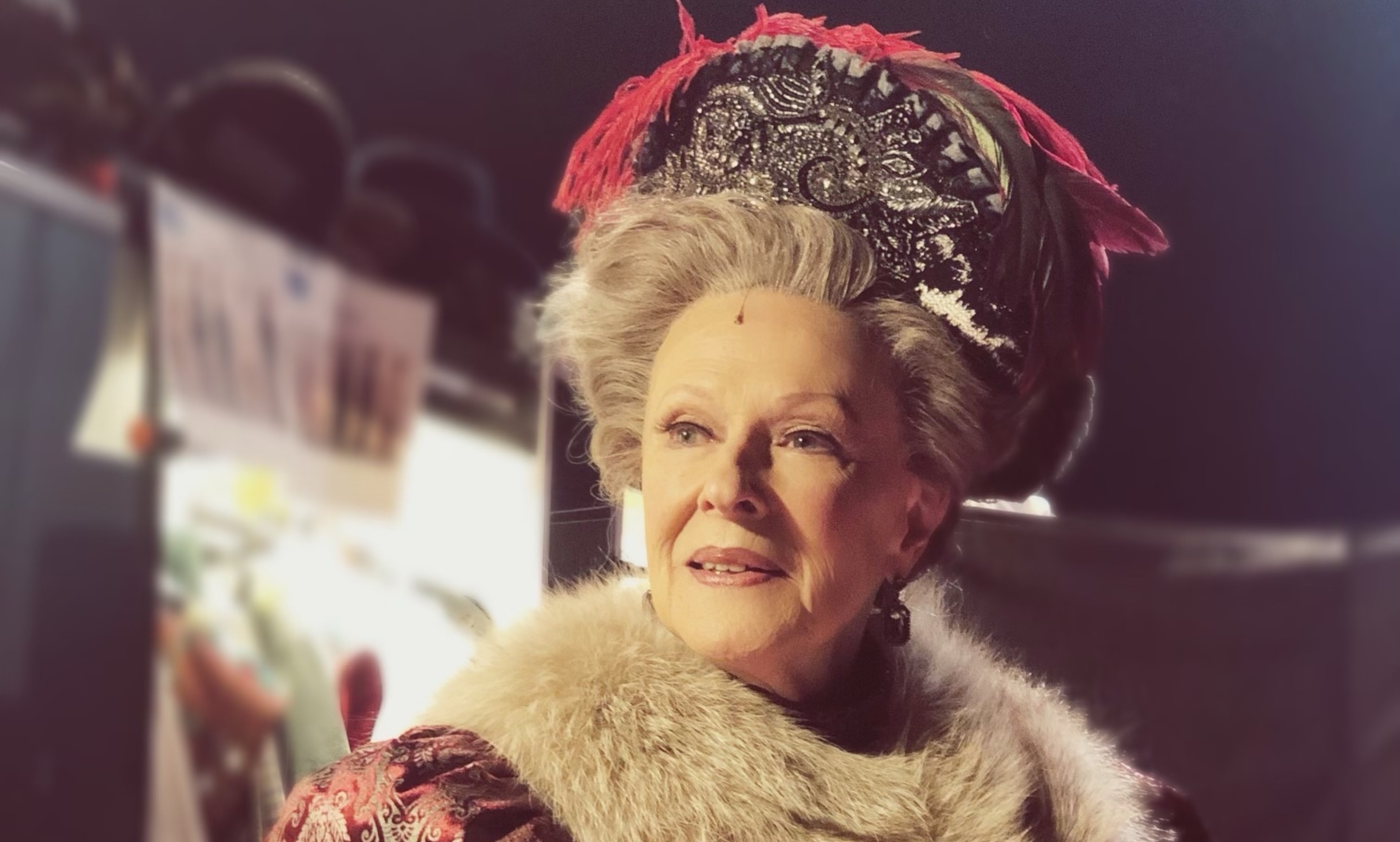
UMKC alumna Joy Franz (B.M. '64) has graced stages worldwide
Joy Franz’s (B.M. ’64) acting career has taken her all over the world. She’s performed on and off Broadway and in regional theater. She’s appeared in television and film and has even met two presidents — Harry Truman after being named Miss Independence and Jimmy Carter while performing in Hello, Dolly.
And yet, the UMKC alumna understands the importance of feeling at home. She carries out a couple traditions to ensure that’s the case.
When Franz, who has toured with productions such as Anastasia, Damn Yankees and The Sound of Music, goes on the road, she’ll bring along a double-burner, skillet and pot — insistent on making her own breakfast. She’ll purchase her favorite herbs and fruits, and she’ll even pick up some white biancas — her favorite flower— to fill her hotel room.
“It’s very important,” Franz says. “I make it like my home.”
Her actual home? That’s another story.
Nowadays, Franz lives in New York City, but her roots are grounded in the Greater Kansas City area, where she was known by a different name: Maybelle. Franz grew up in Overland Park, Kansas, before attending UMKC.
Some half-a-century later, Franz recalls the impact the university made on her career. She remembers the late professor Stanley Deacon helping her develop her voice and posture. She reminisces on conversations with Patricia McIlrath, a longtime chair of the UMKC Department of Theatre and founder of the Kansas City Repertory Theatre.
As far as Franz’s career has taken her, her roots in Kansas City have remained. It’s all part of the story of one of the most heralded theater performers to come through UMKC.
Finding Her Voice
As Franz recalls, she discovered her gift for singing in the fifth grade. She had performed in grade school but had no idea it would be her calling — at least until she was watching a television program hosted by Billy Graham and was captivated by a woman singing.
“I just had an epiphany,” Franz says. “I said, ‘Oh, that’s what I’m supposed to do in life.’”
Franz immersed herself in the arts, studying at the UMKC Conservatory and renting a room in a house just down the road. She spent large amounts of time at The Nelson-Atkins Museum of Art and swears there was a patch of four-leaf clovers she’d seek out if she were to return today.
“The museum is so wonderful,” Franz says. “Right there by the university.”
Then came the journey that helped her career take off. After attending UMKC (then the University of Kansas City) from 1960-64 — and spending a few summers performing at the Starlight Theatre at the same time — Franz drove to New York to dive into life as a performer.
Franz had only $500 — more money in 1964 than today, she reminds, but certainly not a fortune. After about a year and a half, she made it to Broadway. Her first show was Sweet Charity, which happened to be the first Broadway show she had ever seen.
In Sweet Charity, Franz worked with multi-time Tony winners Gwen Verdon and Hellen Gallagher. She was the understudy to Golden Globe-winner Ruth Buzzi, and yet she left the show she was “very fortunate and so grateful” to land after just three months.
“Most people don’t leave Broadway roles,” Franz says. “I just had to do bigger roles than being in the ensemble.”
Photo provided by Joy Franz
Taking the Stage
Among her many performing credits, Franz originated the role of — meaning she was the first to play — the evil stepmother in Into the Woods. She felt especially connected to characters she played in Driving Ms. Daisy (Daisy), Mrs. Warren’s Profession (Mrs. Warren), Man of La Mancha (Aldonza), Damn Yankees (Meg Boyd) and Steel Magnolias (Clairee).
For Franz, a major part of acting has been finding ways to relate to her characters. She enjoys playing humorous roles, and she enjoys the dramatic and aristocratic characters, too. Her most recent major theater role was as the Dowager Empress in Anastasia — the grandmother of the titular character who spends much of the production searching for her grandchild.
“You always find some aspect of yourself you bring to the role,” Franz says. “I just relate to almost all of the roles I’ve played.”
The exception? “Cutting off a toe or a heel,” Franz says with a laugh. (Her character, Cinderella’s Stepmother, does that in Into the Woods.) But the Dowager Empress was a particularly memorable character for Franz given the perseverance she showed in the story.
Franz shares a similar message.
“Never give up on your dreams,” Franz says. “Rejections, good Lord, I certainly have had some. Persevere. Perseverance. If it’s what you love more than anything — with your passion — and you believe in yourself, you will succeed.”
What Comes Next
So what is Franz up to now? Looking for her next role.
The COVID-19 pandemic cut the Anastasia tour short — “It was heartbreaking,” Franz says — but the reopening of Broadway has led to new opportunities. Last fall, Franz spent a few days filming a small part for an upcoming Judd Apatow film. Recording auditions is still very much part of her life, and she’s also made time to catch up on Broadway performances she couldn’t see in the past while she was on the road.
“Broadway is open again, thank God,” Franz says. “It’s thrilling.Getting on the subway and coming up and seeing all the lights on,… I’m very excited and happy for everyone.”
Apr 18, 2022
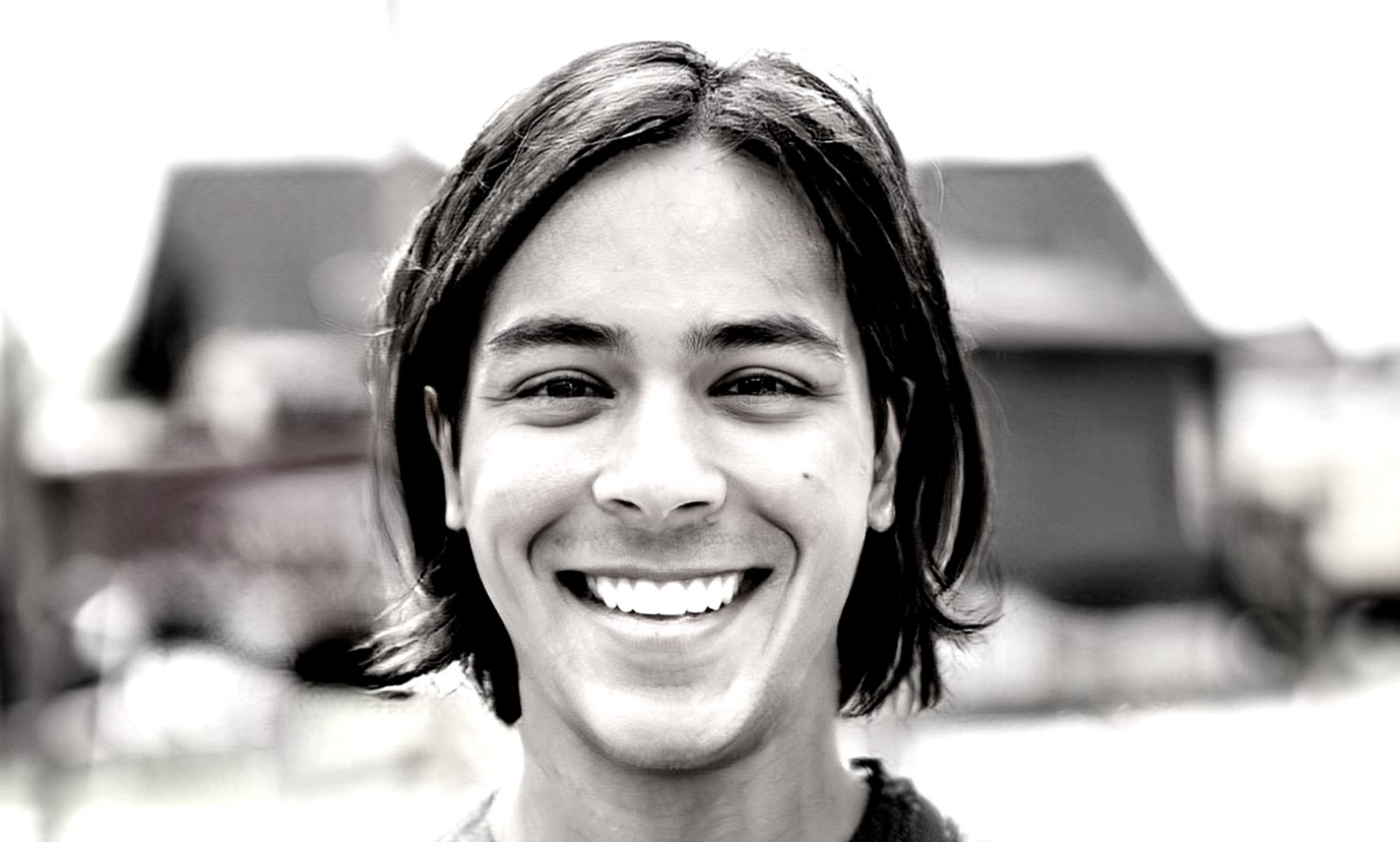
UMKC honors Riddhiman Das with Alumni Spotlight Award
Each year, the UMKC Alumni Association recognizes the achievements of outstanding alumni with an awards celebration. UMKC is honoring Riddhiman Das (B.S. ’12, M.S. ’19) with its Class of 2022 Alumni Spotlight Award. The Spotlight Award recognizes an alumnus whose accomplishments, leadership and public service have caused regional and national attention to be focused on the university and the metropolitan area.
Riddhiman Das’ love of technology started when he was five years old when his family got their very first computer.“I was immediately hooked. I was amazed at all the things this device could do, and quickly resolved to spending my life building in innovative areas of computer science & technology.”That is exactly what he has done as the co-founder of TripleBlind, a data security company that allows companies to securely transfer data to solve challenges in healthcare, finances and science without compromising privacy.
TripleBlind is said to be the product of groundbreaking innovation. What inspired you to create it?
As more and more of our information is stored and transacted within the digital world, as opposed to the analog world, the current approaches we take to ensure the privacy of these transactions fall short. I wanted to find a way to allow our collective data assets to be used to their fullest potential to solve real world health, financial and scientific problems, while at the same time ensuring that the regulations that govern them are enforced and privacy is intact.
What did you learn working with a large, international corporation? How is that different from a start-up environment?
The two experiences are very different, yet symbiotic. As the saying goes, the best way to compress 10 years of learning into two years is to work at a startup. I am a better start up executive because I have experienced the large company scenario. And because I started my career at fast-moving, innovative, high-tech startups, my ability to contribute to large companies was significantly enhanced by those experiences.
How did UMKC prepare you for/contribute to your success?
I really feel like the computer science program at UMKC is really underrated. It has a world-class faculty and research programs, and I got involved in a lot of extracurricular and co-curricular activities which really helped me develop into a well-rounded person. Because of the small class sizes, you get a lot of close attention from your professors and faculty. Also, the robust internship programs ensure that students are able to learn outside of the classroom in real-world situations as well.
What is your favorite UMKC memory?
I really like how involved the faculty was. Everybody knew me and took a personal interest in my learning and success. I spent many nights and weekends at school working on obscure projects with my professors and fellow students. On top of that, I also met my wife at UMKC and built some lifelong friendships.
What is your proudest accomplishment?
Being able to get TripleBlind from founding to being more than a $100 million company in less than two years has exceed my own expectations!
What advice do you have for students who’d like to follow in your footsteps?
A large part of the success in the early years of your career depends very much on what you know as well as who you know. So the most important piece of advice for folks earlier in their career is to start to develop a large network in your domain. Also, in the early years of your career, it's important to have a lot of breadth as much as is important to have a lot of depth. So, I'd encourage you to try new things and put yourself outside of your comfort zone more than you historically have.
About Alumni Awards
Join us in honoring Das and the other Class of 2022 awardees at an in-person celebration at 6 p.m. April 29, at the James C. Olson Performing Arts Center. To register, visit UMKC's Alumni Association website. If you are unable to attend the event but would like to donate to student scholarships, contributions can be made online.
Apr 18, 2022
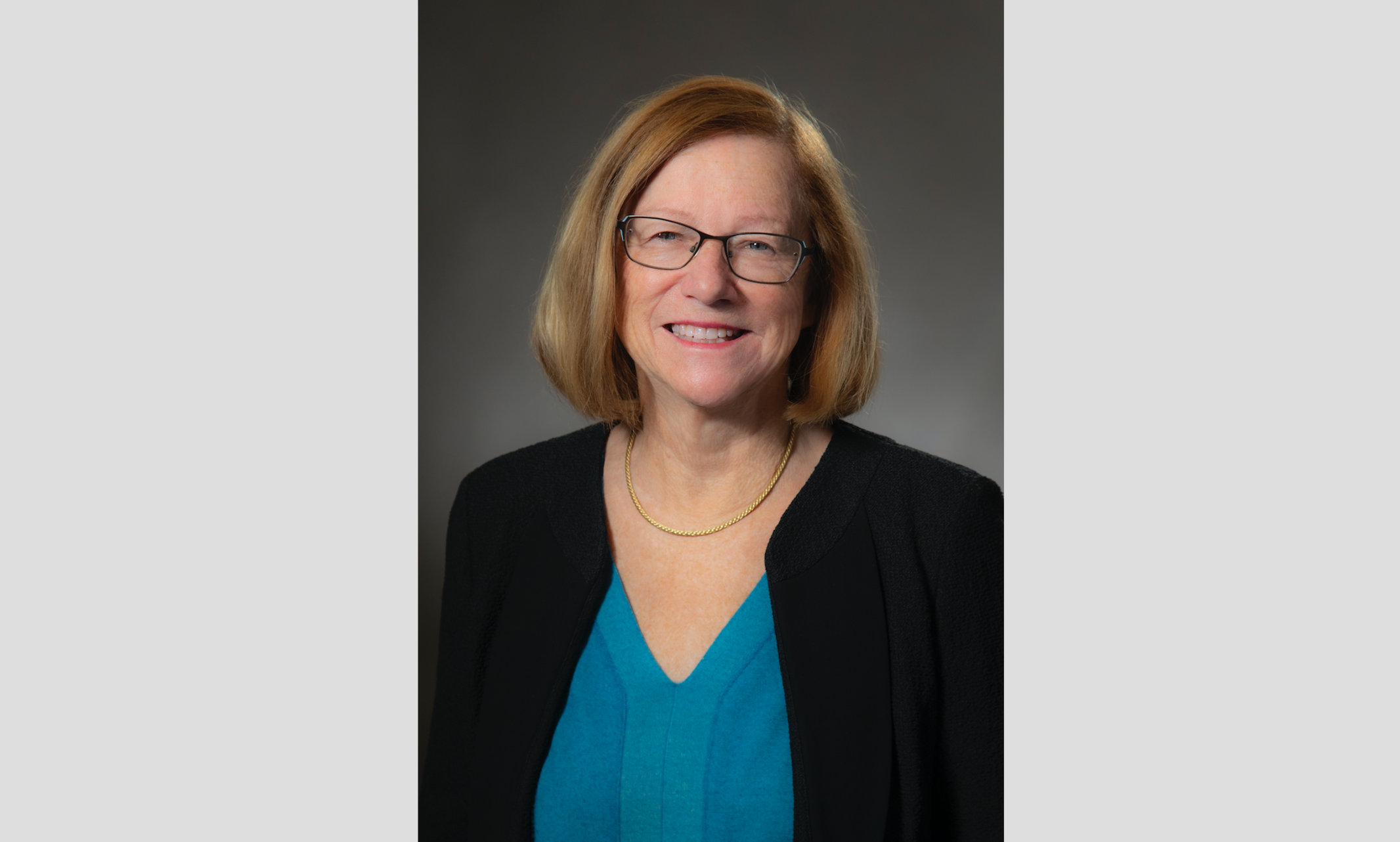
Judge Ann Mesle has demonstrated dedication to the legal profession and her alma mater
Each year, the UMKC Alumni Association recognizes the achievements of outstanding alumni with an awards celebration. UMKC is honoring Ann Mesle (J.D. ‘72) with its Class of 2022 Bill French Alumni Service Award.
Judge Mesle’s distinguished work for UMKC is the definition of service. She has served on the UMKC Law Foundation (President), as a UMKC Trustee, Martha Starr Education Fund (Co-Chair) and the Board of Diastole Scholars’ Center (Chair). She has received the UMKC Law Foundation’s Lifetime Achievement Award, its Alumni Achievement Award, and its Best Friend Award.
Mesle served for 13 years as a state trial judge, handling general civil and criminal trial dockets. She also served as an Administrative Judge for the Family Court for two years. Her service to the Kansas City bar is legendary. She has served on the boards of innumerable civic organizations, including Health Care/Health Forward Foundation (Executive Committee), Missouri Institute for Justice (Chair), Truman Medical Center Risk Committee, Jackson County Children’s Service Fund (Vice-Chair) and the Center for Conflict Resolution.
What causes motivate you and are close to your heart?
Central to my life’s worldview is a belief in human dignity, and respect for the earth and the creatures that share it with us.
How can young people make a difference in their communities?
We need a new generation of leaders and volunteers expanding their participation in our civic, governmental, non-profit and business activities. This is already happening and new leaders continue to develop.
What advice do you have for students who’d like to follow in your footsteps?
Students can learn from the successes and failures of earlier generations but no one needs to follow in my generation’s footsteps. We need UMKC students and graduates to apply their educations, their time and their talents to better our communities by following their own paths.
What inspires you to give back to UMKC?
There is not a day that I do not feel a depth of gratitude because UMKC Law School offered me the opportunity to get a legal education.
About the Alumni Awards
Join us in honoring Wilson and other Class of 2022 awardees at an in-person celebration at 6 p.m. at the James C. Olson Performing Arts Center. To register, visit UMKC's Alumni Association website. If you are unable to attend the event but would like to donate to student scholarships, contributions can be made online.
Apr 15, 2022
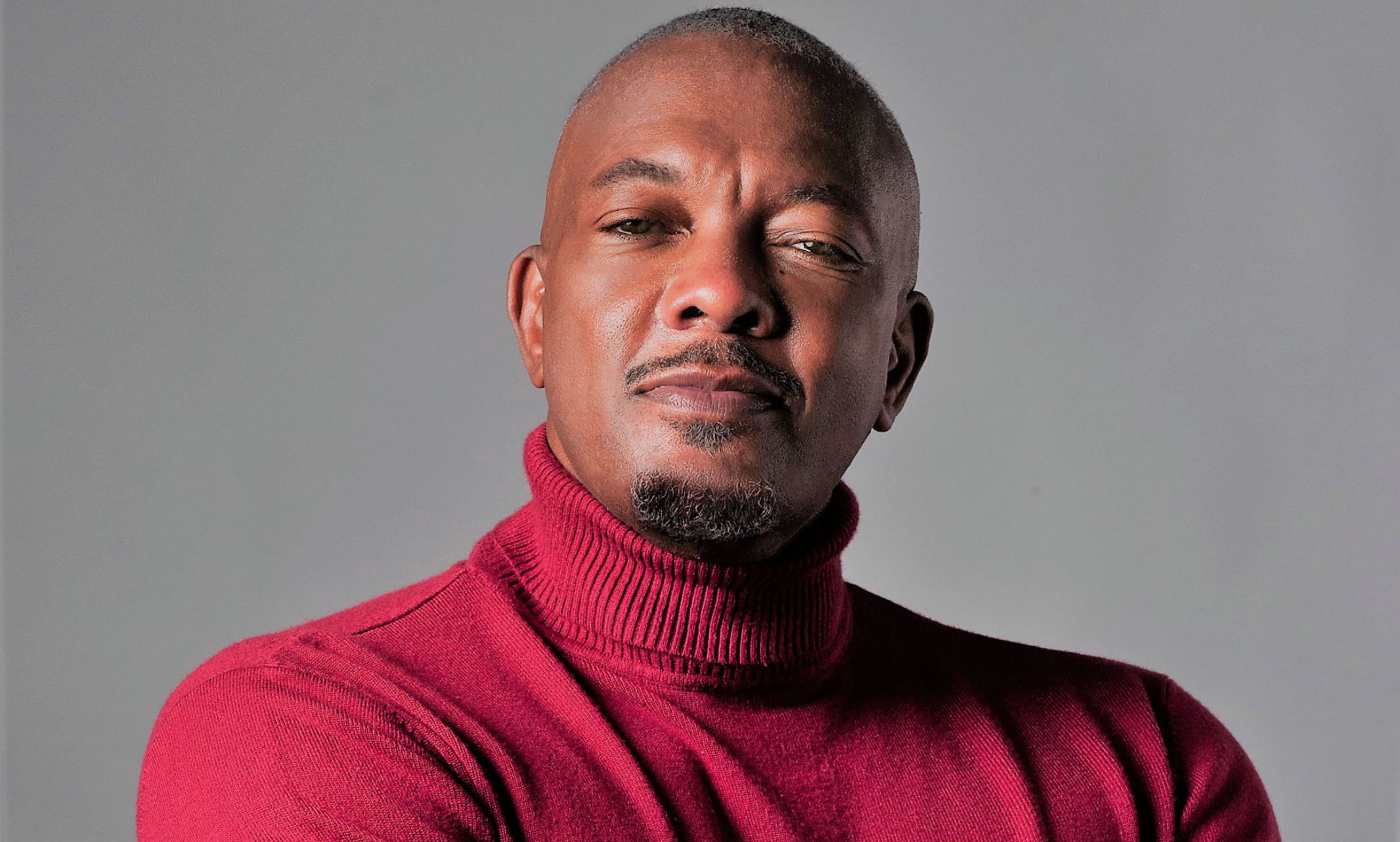
Gary Abbott, Professor of Dance, was honored with a Guggenheim Fellowship for choreography
UMKC Conservatory professor Gary Abbott has been awarded a 2022 Guggenheim Fellowship for choreography from the John Simon Guggenheim Memorial Foundation.
Abbott has taught modern dance at UMKC for 11 years. He has danced in and choreographed productions across the country and internationally. Abbott is also a cofounder of Deeply Rooted Dance Theater in Chicago, focused on diversifying contemporary dance by bringing together modern, classical and African American traditions.
“Being named a Guggenheim fellow feels like an affirmation of the work I’ve been doing,” said Abbott. “It’s given me energy to keep creating and reminds me that I’m doing this for more than just myself. I could never have created the work I have done by myself; it’s been the spiritual generosity of my family and friends that moved me to make dances.”
The Guggenheim Fellowship is considered a highly prestigious and competitive award. The Guggenheim Foundation received nearly 2,500 applications and selected 180 fellowships for the 2022 class. Abbott is the seventh UMKC faculty member to receive the fellowship while teaching at UMKC; he joins the late Michelle Boisseau (poetry, 2017), Elijah Gowin (photography, 2008), Christie Hodgen (fiction, 2011), Clancy Martin (fiction, 2011), James Mobberley (music composition, 1992) and Paul Rudy (music composition, 2008).
“Being named a Guggenheim fellow feels like an affirmation of the work I’ve been doing. It’s given me energy to keep creating and reminds me that I’m doing this for more than just myself." — Gary Abbott
The fellowship includes a monetary gift to complete a creative project. Abbott’s project will be centered around the prison system’s effect on the Black community; he first explored this subject when he created a dance titled, “Breaking the Dam: Mass Incarceration.”
“Gary’s gorgeous choreography and dance have long been known to the Conservatory and Kansas City, but his well-deserved Guggenheim Fellowship will allow people across the country to discover his artistry,” said Andrew Granade, interim dean of the Conservatory. “Gary’s Guggenheim is just another example of why the UMKC Conservatory is the place to study dance in the Midwest.”
“I’ve had the good fortune to work with so many brilliant artists,” said Abbott. “I’m constantly reminded that I work around and with some fantastic people.”
Apr 13, 2022
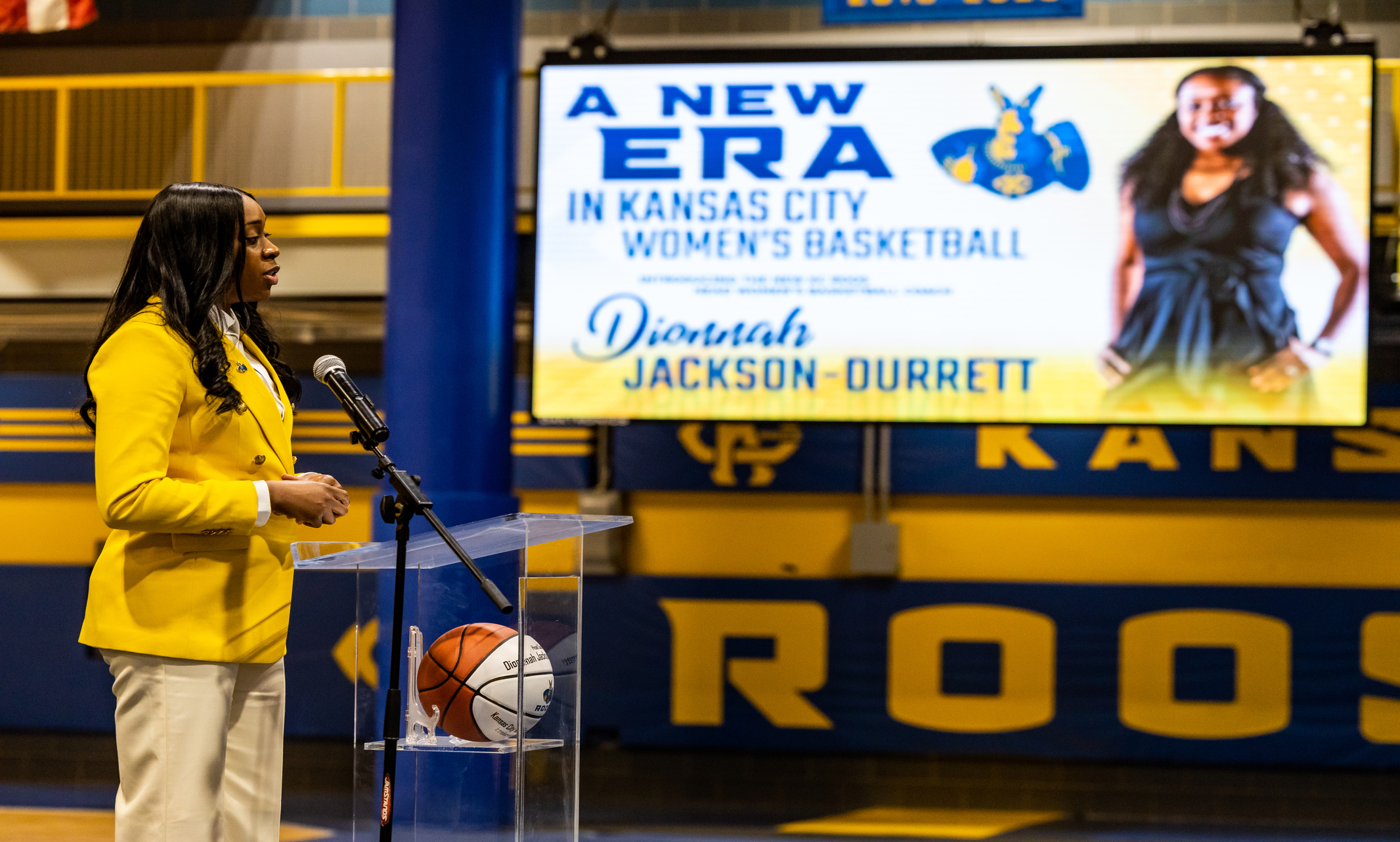
Dionnah Jackson-Durrett, a former first-round WNBA pick, served as the associate head coach at Texas over the past two seasons
Kansas City Athletics has named Dionnah Jackson-Durrett as the head coach of the UMKC Women's Basketball team. She was welcomed to campus on Tuesday.
Jackson-Durrett, a former first-round WNBA pick and one of the most highly touted assistant coaches in the nation, served as the associate head coach at Texas over the past two seasons and has coached in five consecutive NCAA Elite Eights.
"I'm honored and ecstatic to be a part of the Kansas City Athletics family," Jackson-Durrett said. "Throughout the process, the energy has been amazing and my decision developed organically. I'm supposed to be here, I feel it in my heart."
Originally from St. Louis, Jackson-Durrett has deep ties to basketball within Missouri and the Midwest at large. The 2001 Missouri High School Player of the Year put together an All-American career at Oklahoma before spending five years in the professional ranks.
"We are delighted to have Dionnah as part of our Kansas City family," said Vice Chancellor/Director of Athletics Brandon Martin. "Not only does she have impeccable integrity, her basketball acumen and coaching pedigree is unmatched."
Over the past 12 years, she has made coaching stops at Mississippi State, George Mason and Southeast Missouri State, in addition to her time with the Longhorns.
"As part of the UMKC family, Coach Jackson-Durrett will lead our women basketball players to be better athletes and fierce competitors," Chancellor Mauli Agrawal said. "Her past performance shows us that we can expect our women basketball players to thrive under her leadership. We are thrilled to have her here because we know she will emphasize, and exemplify, the importance of sportsmanship, giving back to the community and showing up for one another."
To read more about Jackson-Durrett, click here.
Apr 12, 2022
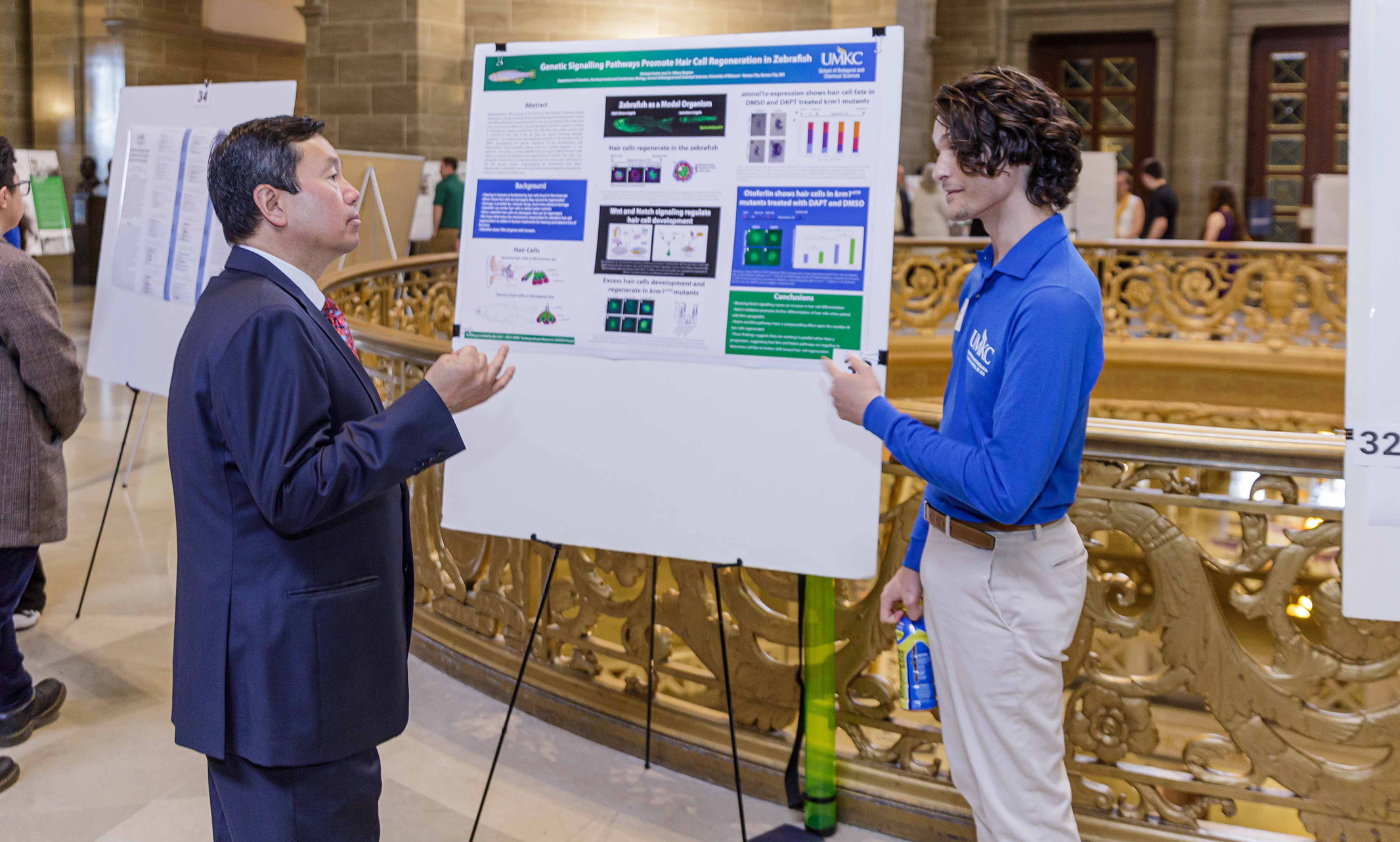
Students conduct research on cancer, jazz, earthquakes and more
After two years of virtual presentations, students from the University of Missouri-Kansas City presented their research in person at the State Capitol in Jefferson City.
The University of Missouri System Undergraduate Research Day featured ten UMKC students, presenting alongside students from the other three UM System schools.
This annual event at the Capitol is a single day devoted to demonstrate to lawmakers in Jefferson City, as well as the public, the unique opportunities undergraduate students have to participate in faculty-mentored research at the four UM System universities.
The featured research projects this year are:
Falls in Older Adults: Preventing Risks with Physical Activity and Cycling
Student: Victor Arellano
Faculty member: Dr. Joseph Lightner
In the United States, adults aged 65 or older (older adults) are at an increased risk of injury from a fall. Reducing an individual’s risk of falling is crucial to avoiding an injury or fatality. Arellano’s study aimed to compare the physical activity (PA) and balance of older adults who regularly cycled to older adults with little to no reported PA and the number of self-reported falls.
Arellano is studying public health.
Impact of COVID-19 Pandemic on Middle Aged and Older Adults’ Physical Activity Levels
Student: Maya Baughn
Faculty mentor: Dr. Amanda Grimes, Nursing and Health Studies
The purpose of Baughn’s study was to qualitatively explore the impact of the COVID-19 pandemic on middle aged and older adults’ physical activity nearly six months into the pandemic. Undergraduate students conducted interviews with adults aged 50+, asking how their activity was impacted due to the COVID-19 pandemic. Approximately 230 interviews were conducted with a diverse sample of participants from the Midwest.
Baughn is studying health sciences.
Xenolith Structures in Welded Basalt Agglutinate Associated with Dotsero Crater, Colorado
Student: Kyle Broley
Faculty mentor: Dr. Alison Graettinger, Earth and Environmental Sciences
The focus of Broley’s study was to gain a detailed understanding of the lava and sediment interactions that occurred at the Dotsero maar volcano in Dotsero, Colorado. These analyses provide answers to thermal impacts and deformation on the localized sediment pieces from the eruption event to gain a deeper understanding of the impacts to the surface sediments.
Broley is studying earth and environmental sciences
Reframing the Narrative: Uncovering Kansas City Women in Jazz
Student: Nina Cherry
Faculty mentor: Dr. Alison DeSimone, Musicology
The jazz canon, formed primarily by white, male scholars of the twentieth century, has neglected and trivialized the careers of women within the genre, especially instrumentalists. Cherry’s research project investigated the historically underrepresented and forgotten women in Kansas City jazz. These women were highly influential to the development of the region’s distinct style, which, in turn, greatly contributed to the city’s growth, although history texts do not reflect this. Her research has been used to create a database of Kansas City women in jazz, Countess.
Cherry is studying music theory.
Student Life Through the Art of Luis Quintanilla: A Study of the Murals in Haag Hall
Student: Victoria Dominguez
Faculty mentor: Viviana Grieco, History; Latin American and Latinx Studies
Dominguez’s research focused on Dr. Clarence Decker’s, President of the University of Kansas City (now UMKC), efforts at broadening the academic scope of the university by appointing prominent international figures to the faculty, like Luis Quintanilla, who established the first fresco painting school in the United States as a resident professor. Dominguez finds her research relevant to Missourians as it shows how higher-education institutions promote cultural engagement through students’ activities within and outside the classroom.
Dominguez is studying spanish and sociology.
The Importance of Yeast in Cancer Research
Student: Jordy Hernandez
Faculty member: Dr. Saul Honigberg, Biology
Hernandez’s research focused on three yeast cyclins, proteins associated with the cycle of cell division, and determining whether mutants in these cyclins affect surrounding cells as well as the cell containing mutations that can form cancer. Yeast is a useful model for cancer cells because it has a short generation time, shares many biological properties with human cells and is relatively simple to genetically manipulate.
Hernandez is studying biology and chemistry
Hair Cell Regeneration in Zebrafish
Student: Michael Kuehn
Faculty mentor: Dr. Hillary McGraw, Biology
In the ear, specialized cells, called hair cells, sense sound. When hair cells are damaged, they fail to regrow, resulting in hearing loss. Aquatic animals have hair cells that sense water current, and in contrast to hair cells in the human ear, they can regrow following damage. Kuehn is investigating the genetic regulation of hair development and regeneration using zebrafish as a model organism. Understanding the mechanisms that allow regeneration in zebrafish hair cells could help human treatment research for hearing or balance function loss.
Kuehn is studying biology and chemistry.
Building a Georeferenced Database for the 1976 Guatemalan Earthquake Rupture of the Motagua Fault System along the North American-Caribbean Plate Boundary
Student: Trenton McEnaney
Faculty member: Dr. Tina Niemi, Earth & Environmental Sciences
In this study, McEnaney sought to relocate sites along the 1976 Motagua fault rupture by analyzing archival material from George Plafker of the U.S. Geological Survey, who was part of the team that collected data on the effects of the earthquake within days of the event. Prior to this project, locating any of these past field sites and points of interest along the 1976 Guatemalan earthquake rupture was hindered by the lack of GPS coordinates. The new database will benefit future paleoseismic and seismic hazard analyses research.
McEnaney is studying earth & environmental science with a geology emphasis.
How Stress Level and Coping Styles Impact Eating Decisions
Student: Grace Nanney
Faculty member: Dr. Oh-Ryeong Ha, Psychology
Nanney’s research analyzed the relationship between problem and emotion-focused coping styles and eating behavior. Participants rated foods based on taste, health, preference and consumption using a computer food rating and choice task and completed a self-report measure concerning factors associated with eating behavior. Participants then completed a self-report measure that ascertained their preferred coping style.
Nanney is studying psychology.
Apr 12, 2022
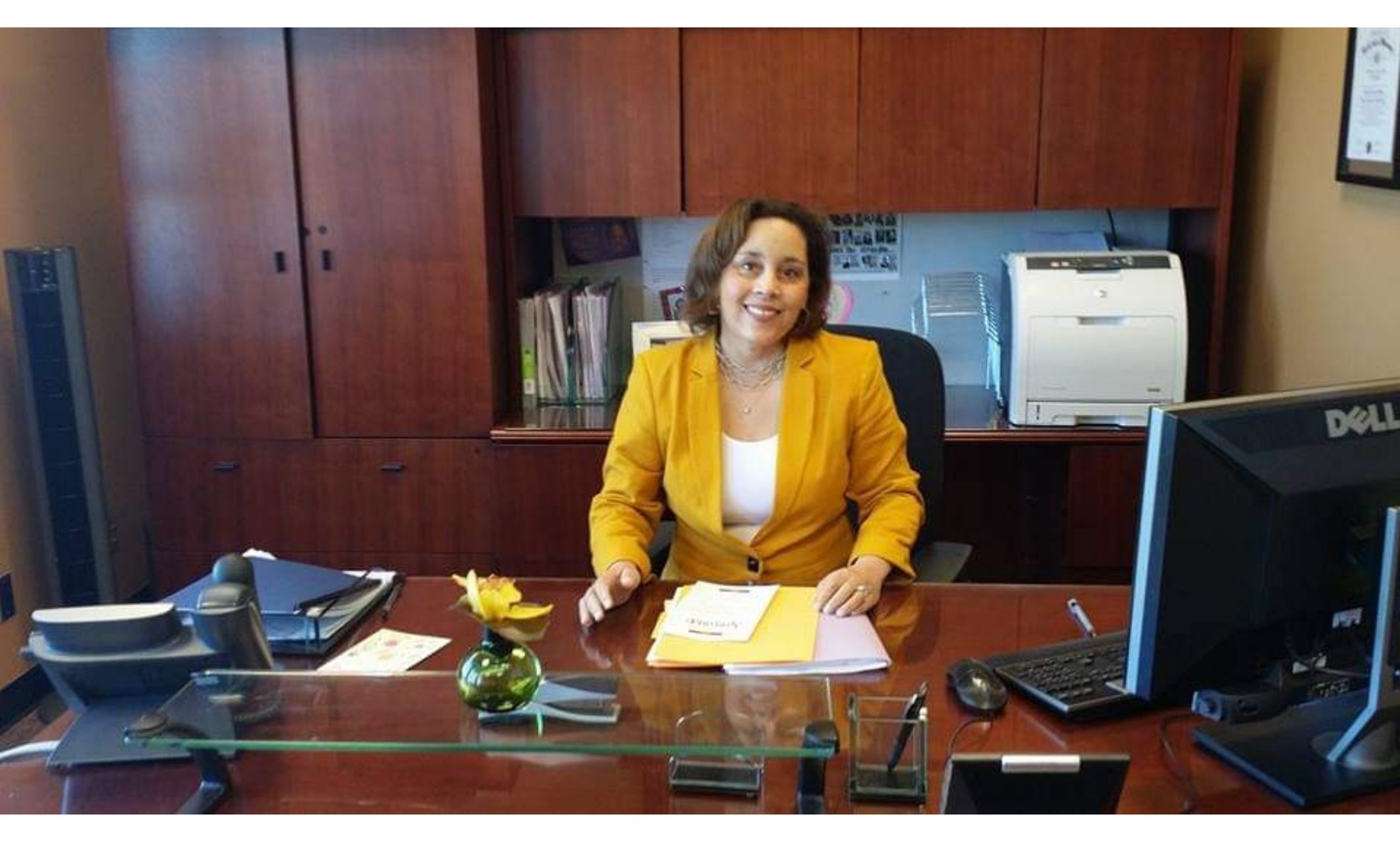
UMKC Alumni Association selects Susan B. Wilson to receive Campus-wide Alumni Award
Each year, the UMKC Alumni Association recognizes the achievements of outstanding alumni with an awards celebration. UMKC is honoring Susan B. Wilson, Ph.D. (MBA ’05) with its Class of 2022 Defying the Odds Award.
Pittsburgh, Pennsylvania native Susan B. Wilson, Ph.D., has always valued education, diversity and community service. Wilson’s childhood sparked a drive to excel and give back to create opportunities for others.
Wilson went on to earn her bachelor’s, master's and doctorate degrees. She has built a successful career using her educational background and go-getter attitude to excel in fields related to diversity and inclusion and is well respected among many in her field, but her path to greatness has been filled with hurdles and obstacles, a true testament to Wilson’s character and determination.
How have your personal experiences contributed to your drive to give back and support others?
I grew up in a black community that was rich in caring although poor in resources and decent housing. I had many struggles growing up, but there were always 'angels' who appeared to help when I least expected it. I always vowed to give back — to become the 'angel' that others were for me.
My father had an 8th-grade education but was self-taught and an avid reader. He stressed the importance of education so that I would have a better life than his own. I also think my family situation contributed to my lifelong interest in diversity and inclusion. I came from a very diverse family. My father was African American and spoke fluent Yiddish. My mother was Italian. Watching my mother and father bridge their cultural gaps was quite interesting and as a result, I became someone who could see both sides of an issue or argument, striving to be a mediator and one with understanding and insight.
What motivated your decision to continue with your education in an MBA program?
As early as graduate school, my knack for 'running things' was recognized when I was chosen to be the director of the psychology training clinic. After practicing for a while, I realized that behavioral health administration was a calling. I learned the business of behavioral health on the job, after leading clinics, clinic networks, clinical operations and a large urban community mental health center. Yet there were those who said “She’s just a psychologist, what does she know about business?" My decision to attend the Bloch Executive MBA program was motivated by my wish to deepen and broaden my existing knowledge of business. The Bloch School provided me with an excellent education that has served me well in a number of endeavors, including diversity and inclusion.
What is your proudest accomplishment?
Although I hold four degrees, my proudest accomplishment is motherhood. I was able to raise – by myself – a daughter and a son who are strong, smart and capable individuals that have a strong moral compass. I am also proud that I was the first person in two generations of my family to attend college. And although my work has brought me awards and recognition, I am most proud of saving lives through psychotherapy (like former Chief player Ryan O’Callaghan) and touching lives through mentoring, coaching and leadership.
What advice do you have for students who'd like to follow in your footsteps?
Keep your mind and options open. Some of us continue working within the settings and fields that call out to us when we are in school. However, many of us will find an entirely different setting or population to pour our passions into. Second, compassion fatigue is a very real thing. Don’t let your pursuits in the healing of others take you along with it. Take care of yourself. Your clients will thank you for it.
About the Alumni Awards
Join us in honoring Wilson and other Class of 2022 awardees at an in-person celebration at 6 p.m. at the James C. Olson Performing Arts Center. To register, visit UMKC's Alumni Association website. If you are unable to attend the event but would like to donate to student scholarships, contributions can be made online.
Apr 11, 2022
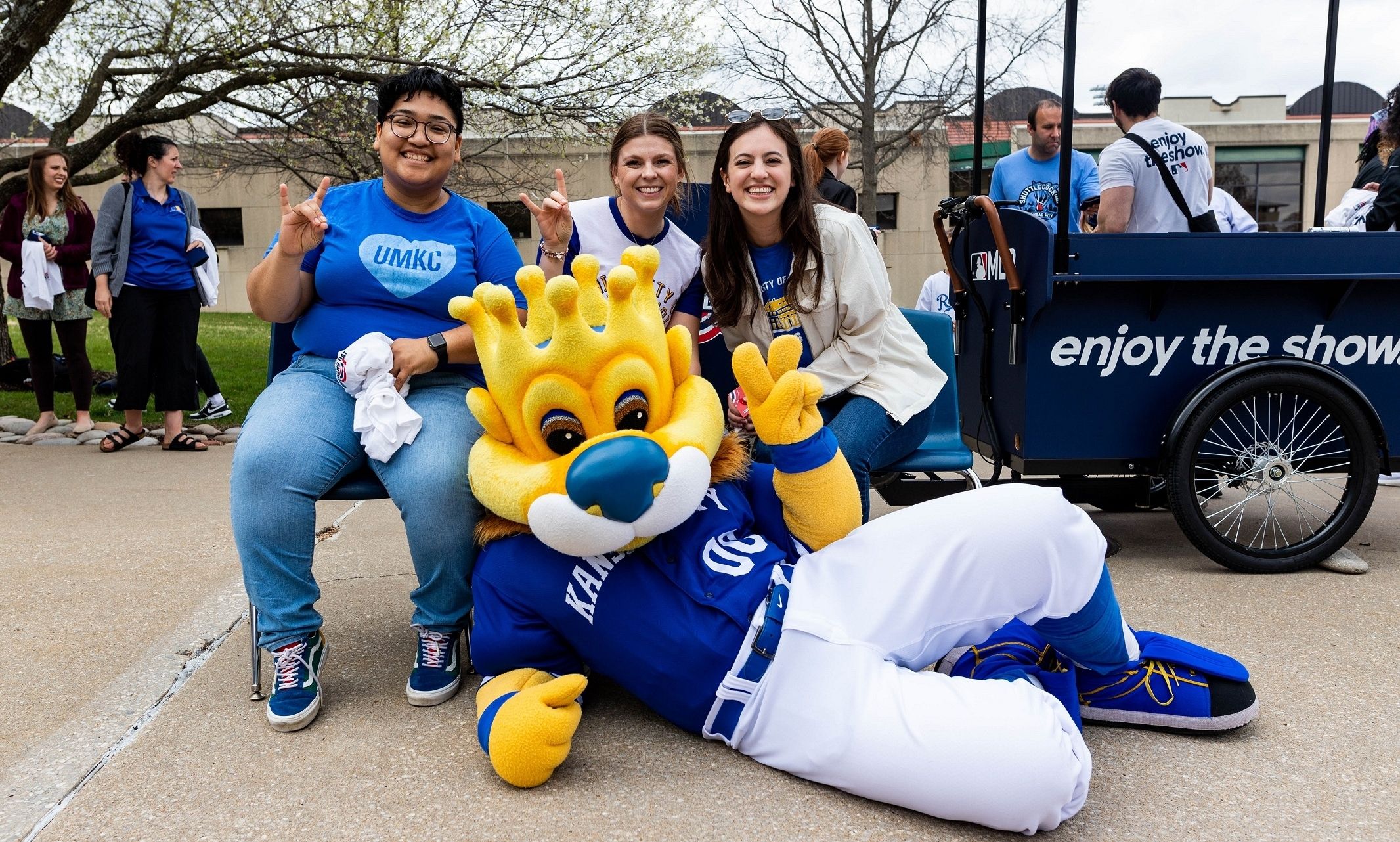
MLB Opening Day brings royals greats to campus
We were thrilled to host the MLB's Road to Opening Day with the Royals Tuesday, April 5. Students, faculty, staff and community members hung out with Sluggerrr and Royals greats, including Brian McRae, Jaime Bluma, Al Fitzmorris, Dennis Leonard, Jamie Quirk, John Wathan, Jim Eisenreich, Frank White and Greg Pryor.
Photo by Brandon Parigo
Photo by John Martellaro
Photo by Brandon Parigo
Photo courtesy of Frank White
Photo by Brandon Parigo
Photo courtesy of Frank White
Photo by Brandon Parigo
Photo by Brandon Parigo
Apr 08, 2022
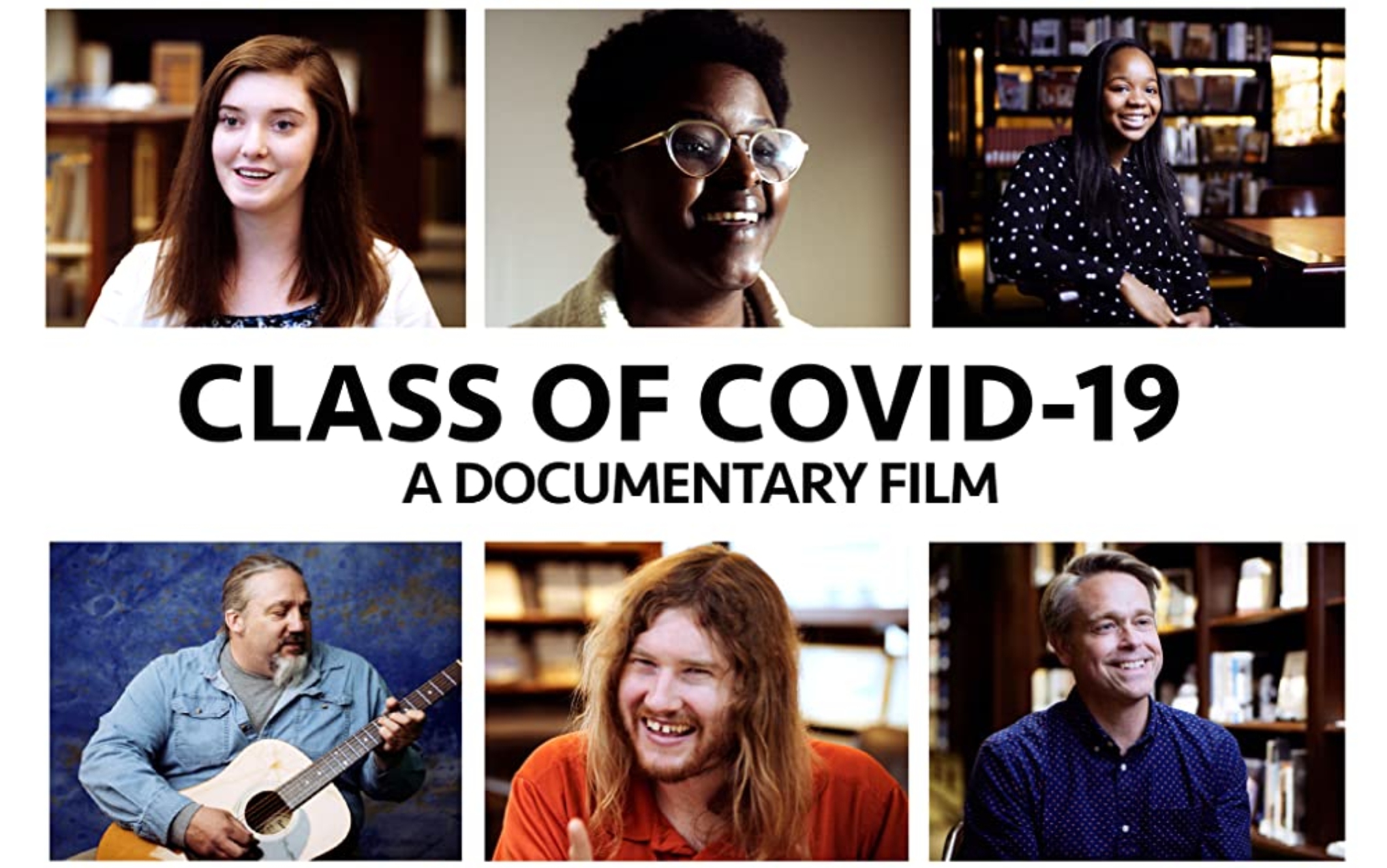
Documentary created by UMKC professor included in KC Film Fest
Street demonstrations for racial justice. Zoom classes. Conflict between school nurses and parents over virus precautions. School was a unique experience for the “Class of COVID-19.”
And that is the title of a new documentary film launched by Donna M. Davis, Ph.D., UMKC professor in the Department of Educational Leadership, Policy, and Foundations, that she hopes provides a window into that experience. As the 2020 president of the Organization of Educational Historians, Davis needed to deliver a presentation at the group’s annual meeting. She thought making a mini-documentary might be more interesting.
“At first, I wanted to make a short film around the work of high school history teachers in the era of ‘fake news’ and social media for my presidential address,” Davis says. “I contacted [filmmaker] Jon Brick and he was on board right away.”
The pair began filming interviews with local teachers. Soon after, the Covid-19 pandemic hit, and schools began to close, and the focus of the project quickly changed. Initially, Davis, Brick and their subjects thought the shutdown would last a few weeks.
“We were filming early in the pandemic, so we had those initial reactions,” Davis says. “Then we moved to Zoom interviews.”
As shutdown extended into summer and the Black Lives Matter demonstrations, the pair decided to interview high school students for their reactions.
“The project exploded from there,” Davis says. “And we began to focus on students and teachers with the most compelling stories.”
“We were filming early in the pandemic, so we had those initial reactions.” — Donna M. Davis
Brick says the people who participated in the interviews were very transparent about the level of stress and anxiety they were feeling.
“They talked to us about it, but they also made video diaries. Teachers talked to us about the demands of teaching, and students told us what it was like to be a freshman in college and be in a dorm room all alone day after day.”
They filmed interviews of school administrators and nurses, who told them how abusive parents could be in the face of their frustrations.
“We were able to talk to the head of health services at Shawnee Mission School District and heard stories of the challenges that the school nurses went through and how just how awful they were treated at times by parents who were just upset with the news that they were having to deliver,” Davis says. “It was really eye opening.”
Brick says one of his biggest surprises was the disparity between the wealthy schools and the those in the urban core and how much better many students from poorer districts managed the transition.
“I really felt as if the kids at Schlagle High School in Kansas City, Kansas had an edge, because they have struggles every day. They just put their heads down and worked.”
One student at Schlagle picked up a job at Chick-fil-A to pay for Wi-fi for himself and his five siblings.
“The family had a hotspot at home, but it couldn’t support the demand of six devices,” Brick says. “Sometimes he rode his bike and sat outside Schlagle to feed off their Wi-fi. He just wanted to graduate so badly so he could pursue his passion of becoming a baker.”
Regardless of individual viewers’ personal experiences, Davis and Brick think everyone will identify with the characters in their film.
“The film really showcases how teachers on every level shifted, and even if they had their own personal struggles, put on a brave face for the kids and made it work,” Davis says.
“Class of Covid-19” will air at the Kansas City Film Fest International April 26, 2021. Tickets are available online.
Apr 07, 2022
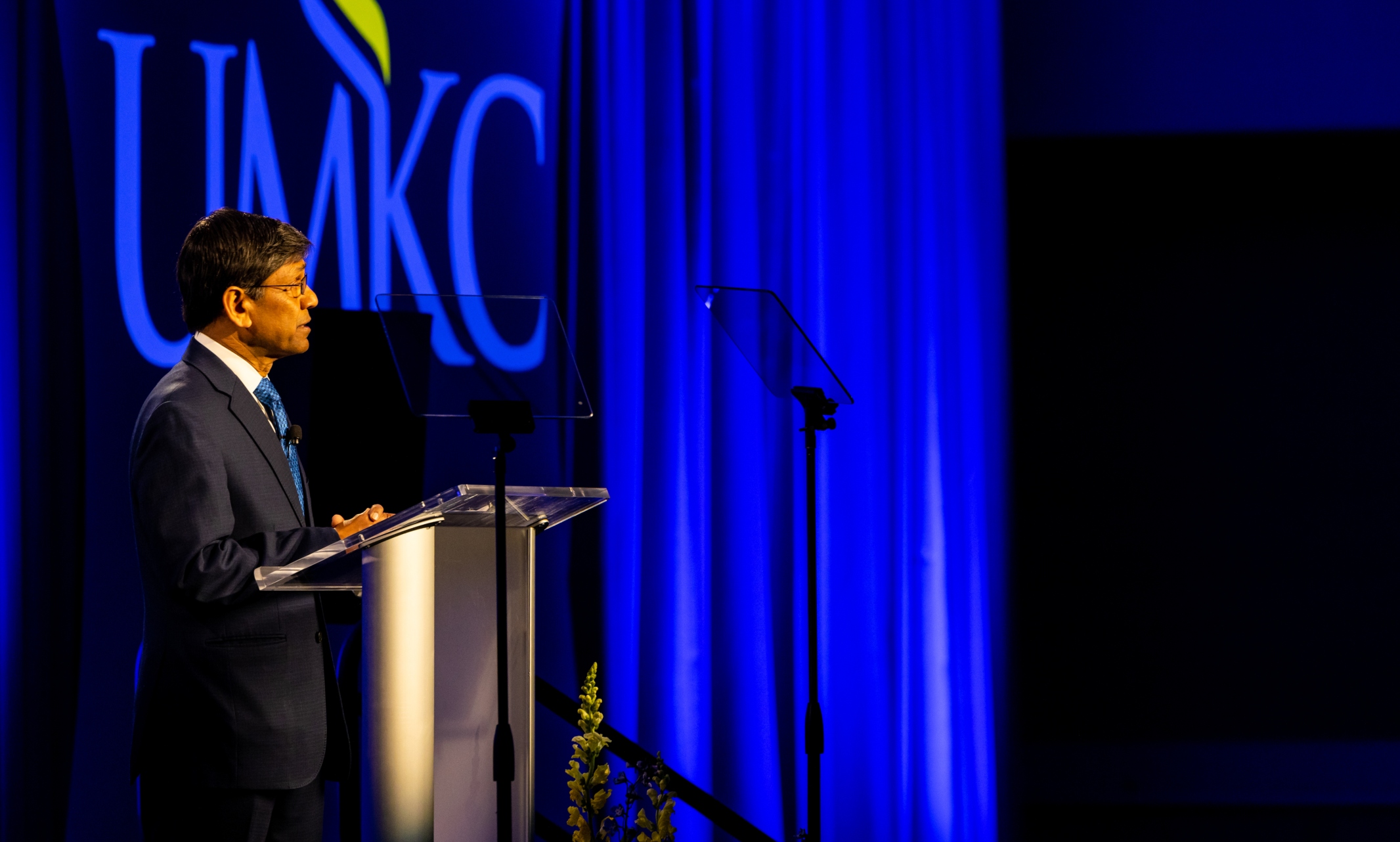
UMKC Chancellor Mauli Agrawal provides vision for growth
The University of Missouri-Kansas City has emerged from two years of challenges stronger and with a clear vision for the future that includes significant strategic investments in student success, research excellence and employee pay, as well as a focus on expanding and improving key campus facilities, Chancellor Mauli Agrawal said in his 2022 State of the University Address.
Agrawal said the university community has persevered through exceptional challenges, achieving success while demonstrating impressive resilience. He shared a wide-ranging vision for the university’s future that includes hundreds of millions in investment in new construction, renovation, salary increases, research and faculty support, and a unique new student success program designed to move students seamlessly from enrollment to professional careers.“We stand rooted and ready to build on our stable foundation, to escalate the success of our students, our research, our future and the prosperity of this community,” Agrawal said.
Seven Key Takeaways from the Address
1. Transforming the higher education model to promote student success
Student success is at the center of UMKC’s mission and its strategies for delivering excellent education. This fall, UMKC will welcome the first cohort of more than 100 students to the new Professional Career Escalators program, which combines classroom instruction with mentoring from community-based professionals, leadership skills training, intensive advising and applied learning opportunities. Career Escalators transforms the higher education model, by shifting the focus from degree attainment to career readiness, with an ultimate goal of propelling graduates to a good-paying job in the profession of their choice.
Agrawal also touted the success of First Gen Roos, a new program that launched in 2021 with 100 percent first semester student retention and higher than average GPAs when compared with other first-generation college students who did not participate in the program.
2. Growing UMKC research in size and impact
The university’s growing research enterprise helps drive huge leaps in human potential.UMKC received more than $54 million in external grants in FY 2021, a 10% increase over the prior year. With three months still to go in FY 2022, UMKC has already surpassed $74 million. UMKC research excellence covers an amazingly wide spectrum overall, from the Urban Education Research Center, and its vital efforts to bring positive change to under-resourced schools and neighborhoods; to the Midwest Institute for Defense and Energy, developing high tech solutions to our most challenging problems in areas ranging from national defense to agriculture.
3. Expanding the vision for the UMKC Health Sciences District
The vision begins with a new building that would house state-of-the-art dental teaching clinics and expanded medical school teaching facilities, projects that would meet significant health care needs for Kansas City and the state of Missouri. UMKC has asked state leaders for $50 million in state funding and would provide matching private funds. The new building would be a spark for an expansion of the entire UMKC Health Sciences District that could dramatically expand health care in Kansas City, attract top faculty and researchers and new private investment that could create new jobs and contribute billions to the Kansas City economy.
4. Investing in our people
Chancellor Agrawal said the university will invest $1 million in the coming year to address salary compression among faculty and staff. Ongoing efforts to increase pay for all graduate assistants will continue, including an additional $1 million this year for stipend support for doctoral and MFA students on graduate assistantships. He also made a commitment to bridge the financial gap for Pell-Grant-eligible students to cover their unmet need, essentially giving them a full ride to UMKC. Beyond that, he set a long-term vision of increasing pay for faculty and staff at UMKC. The centerpiece of that vision is a $315 million investment over 10 years – contingent on enrollment growth – in impactful merit-based salary increases and hiring additional faculty and staff.
The key to making it work will be meeting a target of increasing overall enrollment by an average of two percent per year over the next decade. To drive that growth, the Chancellor announced a commitment to match recruitment staff levels of peer institutions by adding five additional recruiters.
5. Creating a profound and powerful economic impact
UMKC generated almost $600 million in overall economic impact in Missouri during fiscal year 2021, according to a recent study conducted by a nationally recognized firm. In addition, the university generates more than $33 million in state and local taxes. More than 44,000 UMKC alumni live and work in Missouri, generating an additional nearly $8 billion in overall economic impact.
6. Transforming campus spaces indoors and out
UMKC has embarked on several projects to update and transform its facilities and outdoors spaces. Those include:
A $13 million renovation and expansion of Bloch Heritage Hall to incorporate state-of-the-art technology and create a hub for student engagement.
A $4 million project to renovate recital venues such as White Hall and Grant Hall, as well as improving arts practice and teaching areas most needed by our Conservatory students and faculty, as a first step of many to achieve our facilities vision for our world-famous school of music, dance and theater.
A $15 million federally funded project to significantly expand the new medical school program in St. Joseph.
Moving the Roo Pantry from its location on Troost Avenue to the first floor of the Student Union to be more accessible to students, and offer expanded services to address housing and other basic needs
In addition, the campus is working to further projects from its 2021 master plan that will make the campus more walkable and connected to the community. The university is working with the city and the Kansas City Streetcar Authority for the streetcar stop that will extend free, public transportation right to the UMKC front door at 51st Street and Brookside Boulevard. A couple of blocks further east, UMKC is working with the city on the process to begin construction to close 51st Street between Rockhill Road and Cherry Street to traffic, to make the campus more inviting, more welcoming and more walkable.The university also is beginning work to explore an expansion of Swinney Center to meet student needs for more recreational space and a larger venue for concerts, events and convocation.
7. Focusing on progress and respect for all in our diverse community
UMKC has responded to the call for campus to do more to reflect the contributions and increase engagement with our students of color and with our outreach to communities of color. On the campus front, recent developments include developing the Men of Color Academy, the creation of the Divine Nine Gardens and banners featuring the university’s National Black Pan-Hellenic Council leaders on the outside of the Student Union. A new Faculty Search Support Team will ensure inclusivity in faculty recruitment.
An example of campus outreach: Jannette Berkley-Patton, Ph.D., leads an important program combining research with community outreach, the Institute for Health Equity. Her team is partnering with Jackson County, local churches and businesses to develop solutions and bring better, more equitable health care to our eastside communities.
A look back at where we’ve been
Apr 07, 2022
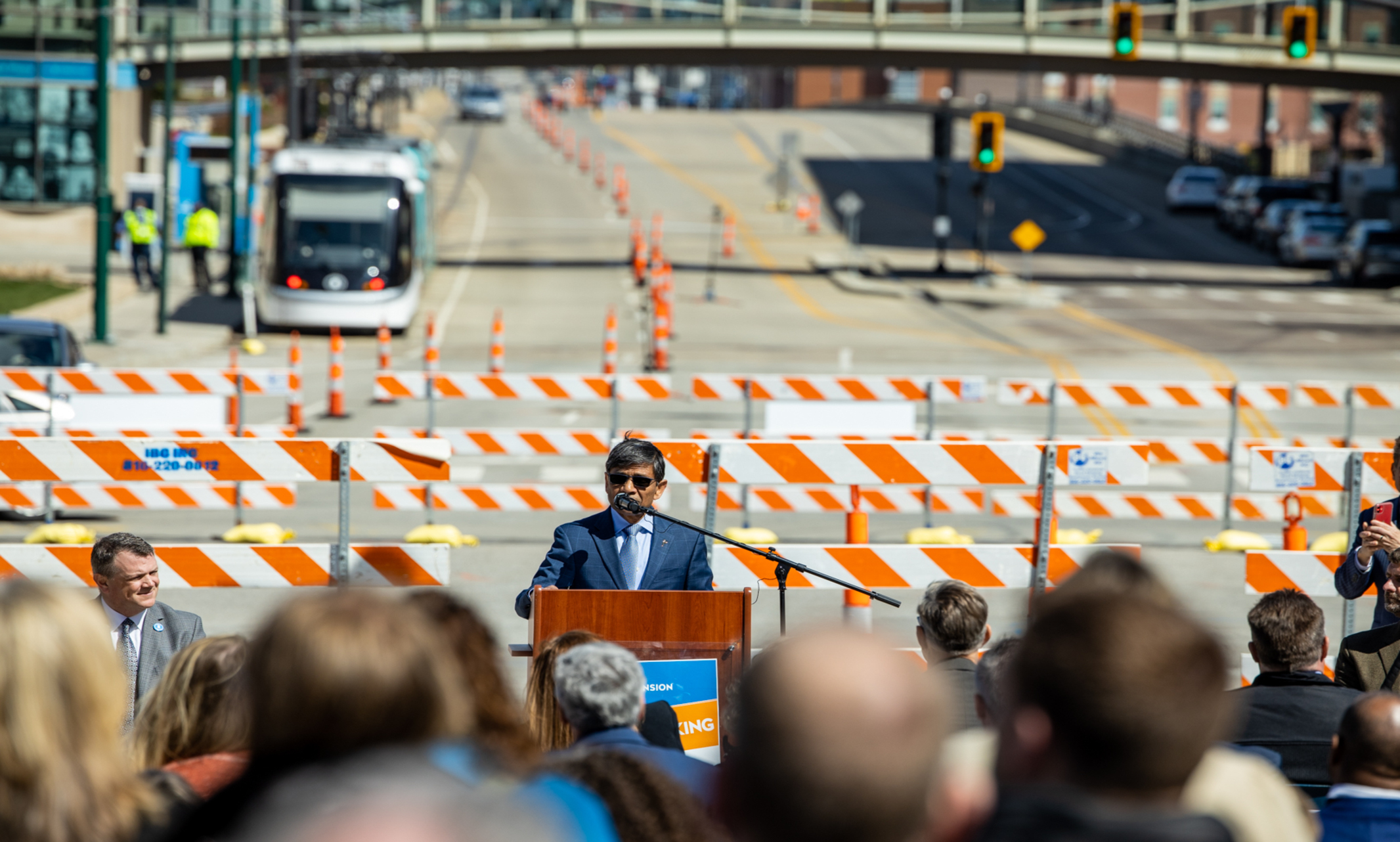
The project will provide enhanced access between UMKC and the Kansas City community
Construction on the new KC Streetcar extension project broke ground on Wednesday. The project will provide enhanced two-way access between UMKC and the Kansas City community, extending the existing Streetcar route from the River Market straight to UMKC’s doorstep.
“The extension of the Kansas City Streetcar to our doorstep will take things to another level entirely. As the new southern destination for this ultra-modern system of free public transportation, UMKC sees endless possibilities for the university, and the community it serves,” UMKC Chancellor Mauli Agrawal said at the event.
Agrawal spoke at the groundbreaking alongside Kansas City Mayor Quinton Lucas, Nuria Fernandez of the Federal Transit Administration and Tom Gerend of the KC Streetcar Authority. More than 100 community members and stakeholders were in attendance.
“The streetcar extension will boost the university’s visibility dramatically when we become a major boarding and existing site for the region’s most popular transit system. We anticipate that streetcar access will build a whole new population of people discovering – and taking advantage of – the many ways they can partner with UMKC,” Agrawal said.
The extension project, which has gone through planning and design by city officials since 2017, will cover more than 30 city blocks and will extend the existing 2.2-mile ‘Starter Line’ to the UMKC Volker Campus.
The UMKC Streetcar stop will be at 51st Street and Brookside Boulevard. The stop, which was unveiled at the event, will feature a large overhang with benches, a map of the streetcar’s route and plenty of room for standing.
“The streetcar will deliver people to outstanding music, dance and theatre performance by the faculty and students of our Conservatory; to medical services such as our dental clinic; to our signature events such as the Martin Luther King Jr. and Cesar Chavez lectures; to our KC Roos NCAA Division I sports program; performances at the Kansas City Rep; and so much more,” Agrawal said.
The extension project, and the opening of the new UMKC Streetcar stop, is projected to be completed sometime in 2025.
Apr 06, 2022
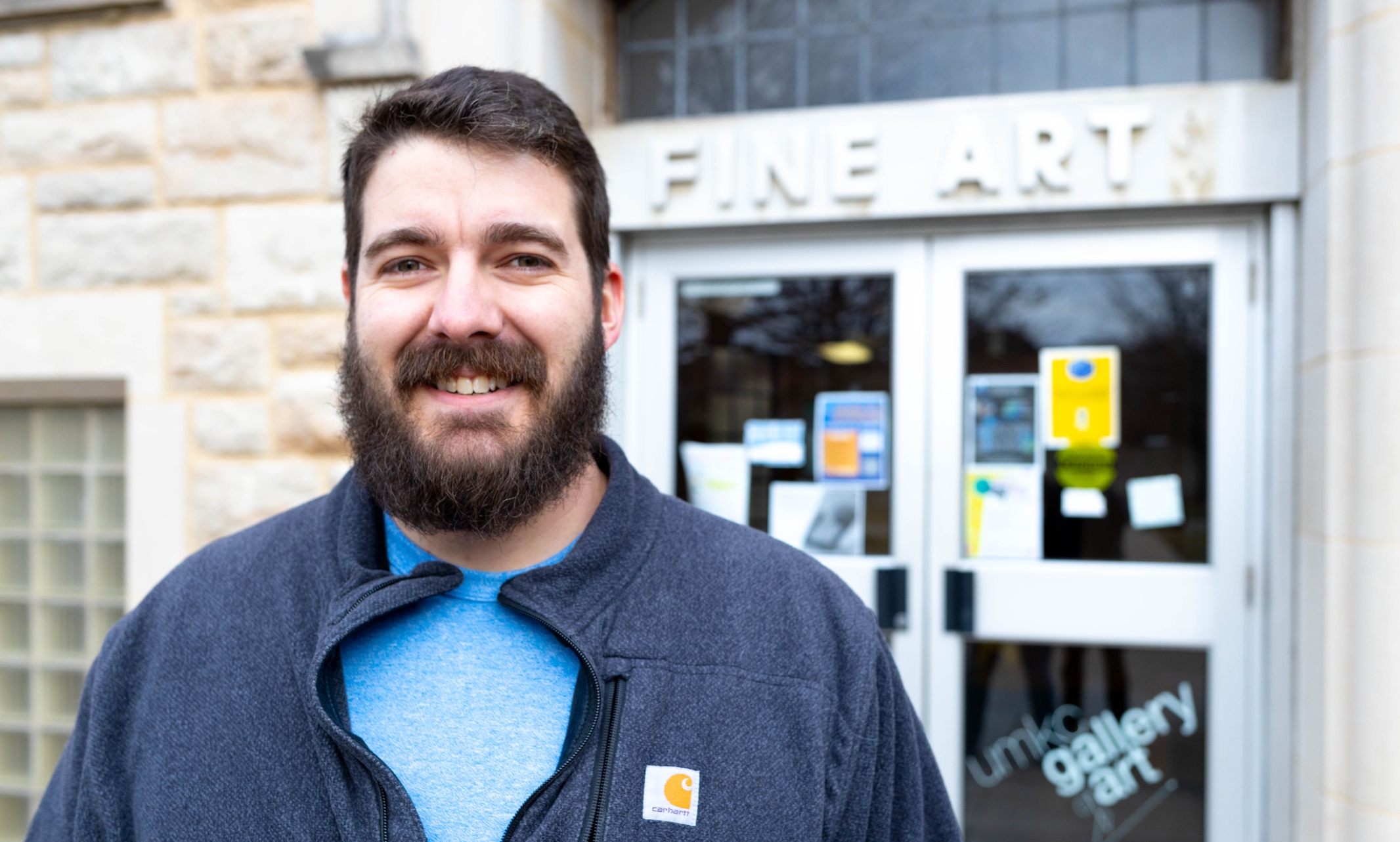
Eric Quinones is pursuing an art degree after serving in the Air Force
Roos don’t just dream, they do. Our students turn ideas into action every day. Get to know our people and you’ll know what UMKC is all about.
Eric Quinones '23Anticipated graduation year: 2023UMKC degree program: B.A. studio artHometown: Independence, MO
After seven years serving in the military, Eric Quinones from Independence, Missouri, is on a new path. The junior in studio art is pursuing his dream of becoming a video game designer and exceeding his own expectations along the way.
Why did you choose your field of study?
I hope to utilize my degree to get my dream job, which is a video game designer. I chose my field of study (studio art) because it helps me gain a leverage on becoming a video game designer as far as putting the art in my background and in my portfolio to design more intricate stuff.
Quinones said studying at UMKC has allowed him to explore new mediums of art
What inspired you to pursue video game design?
I’m an avid gamer and I enjoy video games. I wanted to create a video game of my own that would have good storytelling and drama rather than just guns and swords and killing. So the art is art of the gaming itself. Creating visual art within a 3-D world that doesn’t exist.
What are the benefits of the program?
The benefits of the program are to build up a portfolio, as well as building up your art background to find out what kind of art styles you like, whether it’s painting, drawing or photography. UMKC has great faculty.
Since entering college, what have you learned about yourself?
I’ve learned that I can achieve more than what I thought. I’ve never been very good at school, but now that I’m in college, I’ve passed my first two years and I’m working on my third year, which is beyond my comprehension of what I used to be.
Do you have any scholarships? What do they mean to you?
I have the GI Bill. I was in the Air Force from 2010-2017 and went on two deployments, one in Cuba and one in Qatar. I was doing HVAC, so it’s a drastic switch; I can’t just come out of that and say, “I want to do video games.” So I have to go to school. The GI Bill has been a huge benefit.
What do you hope to take from your experiences at UMKC into your professional career?
I hope to take this degree and all the forms of art to better advance my idea and scope of what I want to create as far as video games go. My old works can inspire me, as well as the writing I did in the basic writing courses. That helped me as well. All the classes really do help out in general.
"I've learned that I can achieve more than what I thought." — Eric Quinones, junior in studio art
Quinones served two deployments, one in Cuba and one in Qatar
Have you felt supported?
Very supported, very encouraged. Definitely in the beginning years, they know everyone is fresh out of high school. They’re trying to figure out their life. It’s the same with me, being a veteran and coming back into the real world. The faculty is very supportive, they help guide you to resources to help you along your path.
What are you most proud of during your time at UMKC?
I would say the art I’ve created because without the need to create art, the art wouldn’t exist. But I hope to pursue that a little more after school, that way I can get more of my art out there, more of my ideas and concepts out there.
Apr 05, 2022
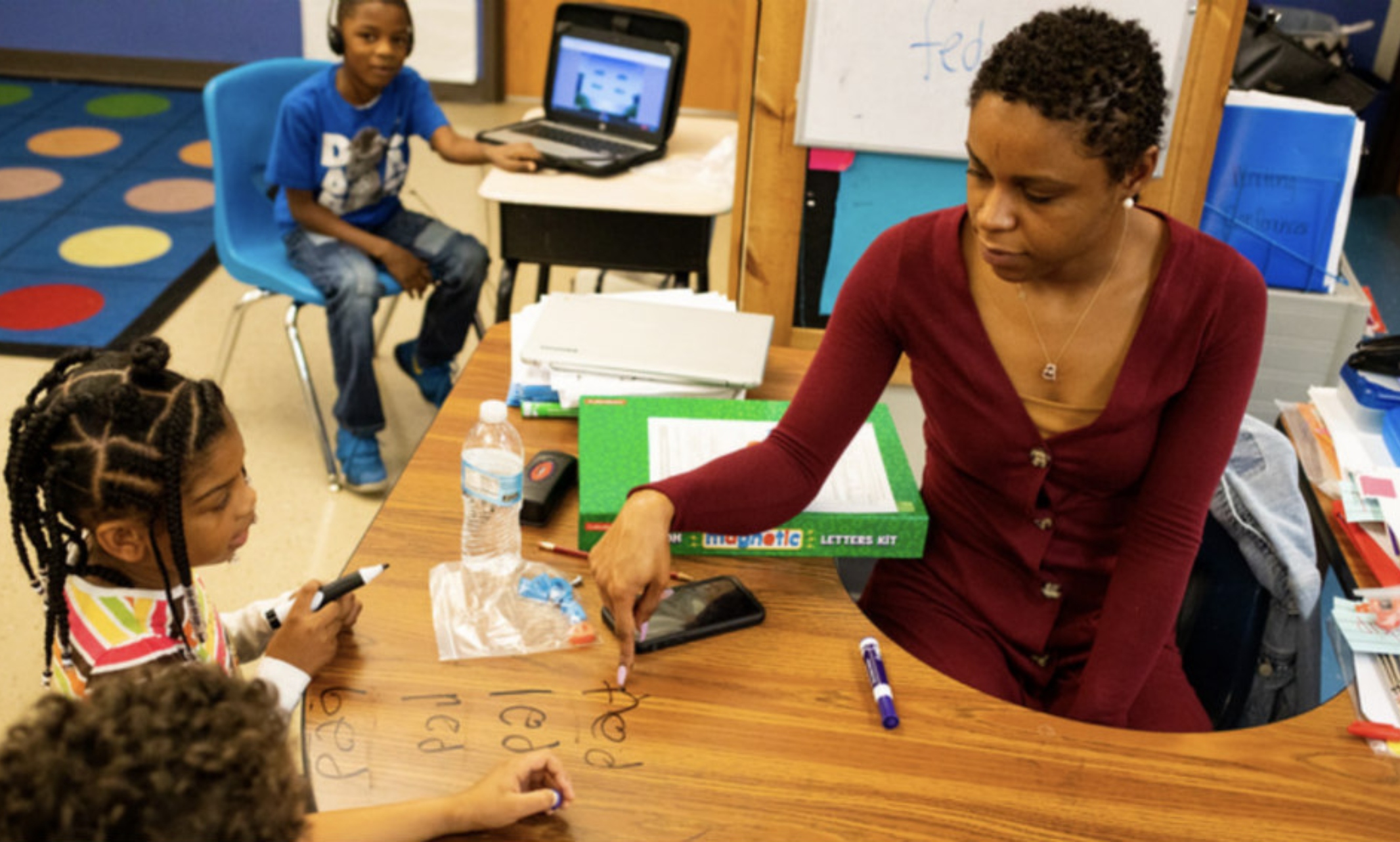
The Institute for Urban Education Grow Your Own program is designed to train teachers to serve the Kansas City area
More than 100 local high school students will be at the University of Missouri-Kansas City School of Education on April 5 as part of the university’s Institute of Urban Education Grow Your Own program.
The IUE Grow Your Own program was founded in 2019 to address teacher shortages, retention and diversity in Kansas City schools. The program is designed for students from urban Kansas City school districts to receive an affordable, supportive college education then return to their home districts as highly qualified, culturally responsive educators. Students begin the program in high school with dual credit and mentorship opportunities to help provide guidance as they explore a career in teaching. Once in college, the program focuses on creating culturally responsive educators focused on relationships with their students and community.It’s a mission that has become even more crucial during the COVID-19 pandemic, which has intensified the pre-existing shortage of educators. According to a December 2021 report from the Missouri Department of Secondary and Elementary Education, the retention rate for teachers after five years was 46.5% in 2021.
Students in the program will spend the full day on campus to present their solutions to issues of educational inequity confronting school communities. The event is from 9:30 a.m.-2 p.m. at the Atterbury Student Success Center located at 5000 Rockhill Road.Current participating high schools in the IUE Grow Your Own program include Center High School, Crossroads Preparatory Academy, DeLaSalle High School, Grandview High School, Guadalupe Centers, Hogan Preparatory Academy High School, Lincoln College Preparatory Academy and Northeast High School.
Apr 04, 2022
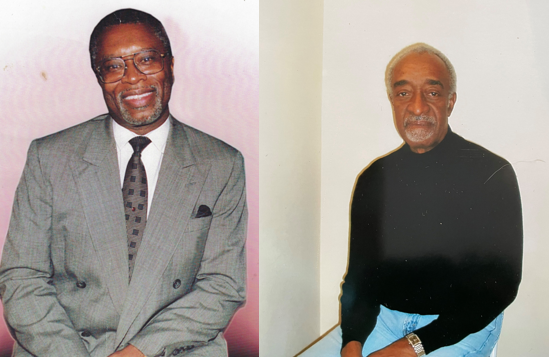
UMKC Alumni Association honors the North/Cheadle Family with the 2022 Legacy Award.
Each year, the UMKC Alumni Association recognizes the achievements of outstanding alumni with an awards celebration. UMKC is honoring the North/Cheadle Family with its Class of 2022 Legacy Award.
The North/Cheadle family's UMKC legacy dates back to the 1960's. Basil North Jr. (B.A. '61, J.D. '71) and his brother-in-law Donald Cheadle Sr. (M.A. '70) were the first in their family to graduate from Kansas City's university and laid the path for many generations that followed to become Roos.
Currently, 14 members of the North/Cheadle family have graduated from or are currently attending UMKC, including Basil North Jr.'s wife, Loretta North, who both attended UMKC and taught in the School of Nursing.
Not only have members of this family graduated and/or attended UMKC, but each selected different academic degree paths also demonstrating excellence across several schools on campus. The family is very committed to public service, with many participating in numerous and impactful volunteer initiatives.
Below is an interview with some members of the North/Cheadle family:
What role did your family's legacy at UMKC play in your choice to study here?
Basil North Jr.: My older sister, Sandra L. North and my cousin, Bertha Joyce Graham both attended UMKC. I attended on a Victor Wilson scholarship which provided academic scholarships for talented young males in Kansas City who attended either the University of Kansas City or Yale University.
Sheryl North (B.A. ’82, M.D. ‘82): It is special to be able to attend the same university where my mother and father studied. Knowing they walked the same campus and maybe even took classes in some of the same buildings is incredible.
How did your family shape your dedication to education and your chosen profession?
Maria North Morgan (J.D. ‘91): My mother was a teacher and always stressed the necessity of education to create self-sufficiency. After my mother’s death, when I was 23, my sister Sheryl and I decided to move back to Kansas City to help my father finish raising my younger sister Dayna. My mother’s death was such a life-altering event for me that it changed my career goals. I’d grown up fascinated by watching my father build a career as a well-known civil rights and business attorney, but I was hesitant to choose the same career and live in his very large shadow, however, the pull towards a career in civil rights was too strong, and I decided to apply to law school.
Evelyn Clark (D.D.S. ’88): It came from my family’s dedication to educational excellence. This dedication spanned over a half-century. The examples were set not only by my college education grandmother Bertha Graham and her sister Louie North in the 1920s but also by my mother Mary Graham in the 1930s and ’40s, followed by my aunt and uncle in the 50s and 60s.
How has activism made an impact on your professional careers?
Basil North Jr.: My professional career, practicing law, is, itself activism. I have represented many individuals who have been discriminated against in their employment. I have also been active in the Jackson County Bar Association, both sponsoring leaders and having been president of the association. When I first began practicing law, some judges called African-American lawyers "boys." Through the Jackson County Bar Association, we assisted in ushering such practices out of existence.
Sheryl North: I was very fortunate to attend UMKC Medical School which was always attentive to equity and diversity. 50% of my medical school class was female.
Evelyn Clark: Activism has undoubtedly made a marked impact on the dental profession. Historically the profession has been predominately male. But the gender face has changed. I witnessed it first-hand. In 1984, 25 percent of my entering doctorial class of 120 was female. Currently, female enrollment in dental schools outnumbers male student enrollment.
What professional and personal experiences have most impacted your life? How has your education informed those experiences?
Maria North Morgan: My work in the fields of education and health care field helped to shape a passion for the necessity of building equity into every aspect of our laws and policies in this country. Our laws are built based on our values - so many of the laws created during the 20th century were not designed to benefit all citizens. I took civil rights courses while in law school to learn the history of civil rights. I have spent my legal career working to help people overcome the institutional barriers that prevent them from living a healthy, happy life.
About the Alumni Awards
Join us in honoring the North/Cheadle Family and other Class of 2022 awardees at an in-person celebration at 6 p.m. at the James C. Olson Performing Arts Center. To register, visit UMKC's Alumni Association website. If you are unable to attend the event but would like to donate to student scholarships, contributions can be made online.
Mar 28, 2022
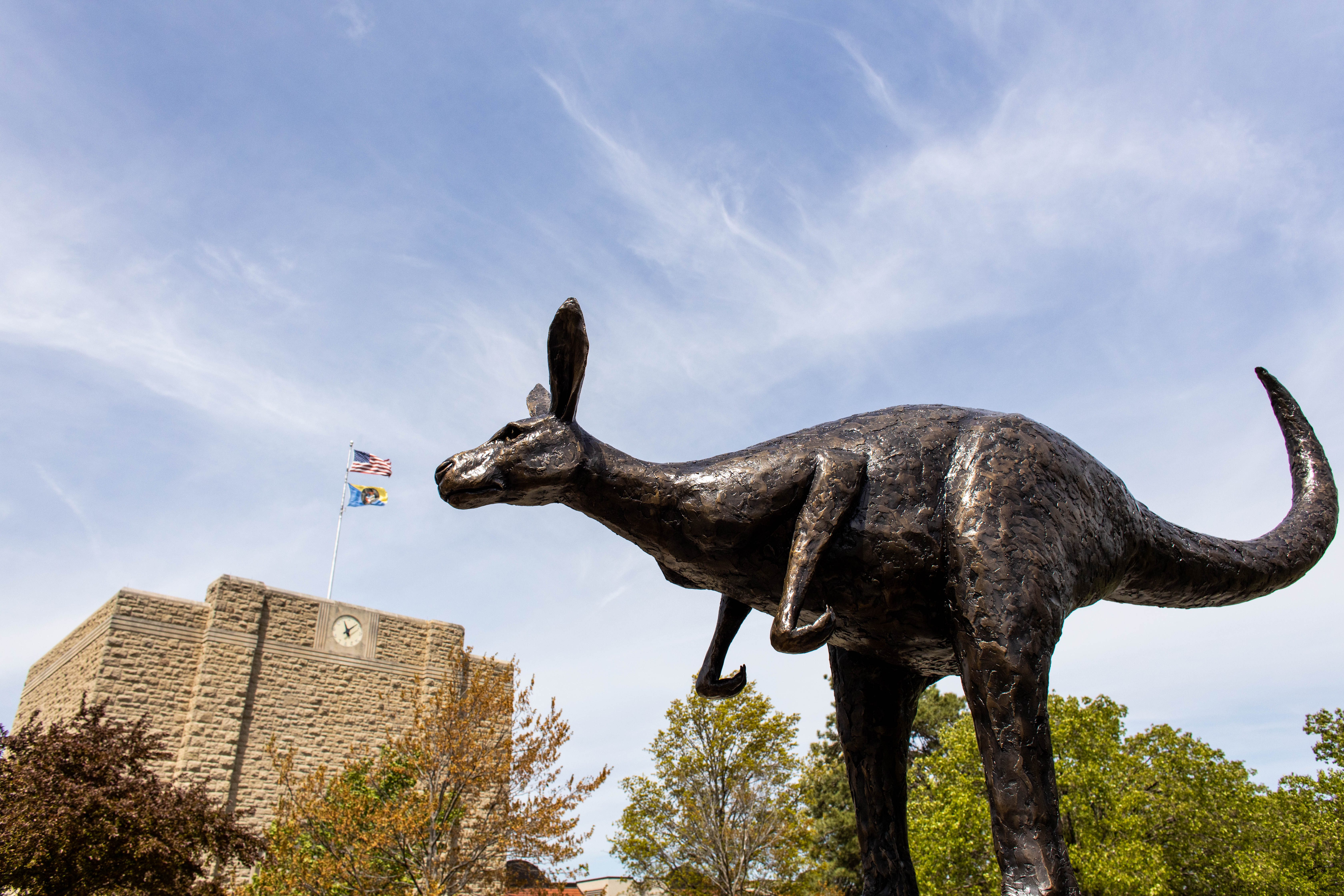
U.S. News & World Report recognizes excellence in primary care, trial advocacy and legal writing
The UMKC professional schools of Law and Medicine achieved high rankings in the 2023 graduate school rankings by U.S. News & World Report.
The School of Law was ranked among the nation’s best in two key legal education categories: Trial Advocacy (no. 31) and Legal Writing (no. 21). The School of Medicine was ranked no. 52 in the nation for Primary Care, up 12 places from last year’s rankings. The 2023 rankings list was released March 29.
The Trial Advocacy ranking came in 23 places higher than last year; Legal Writing was up 13 places. Overall, the School of Law was ranked no. 114 nationally.
“Trial Advocacy is more than just public speaking in the courtroom – it is a skill that requires understanding and translating a client’s story into a persuasive narrative that must fit the constraints of the formal rules of evidence and procedure,” said Barbara Glesner Fines, dean of the UMKC School of Law. “Legal Research and Writing is a foundational skill for all attorneys. Attorneys communicate in writing to their clients, public, courts, companies – it’s all writing, all the time and the formats vary significantly across the audiences. UMKC is proud of its record of educating our students to be excellent professional writers in all these settings.”
In addition to its overall ranking, the School of Medicine ranked No. 29 in the nation for graduates practicing in healthcare shortage areas.
“The UMKC School of Medicine opened its doors more than 50 years ago on our Health Sciences District campus with a commitment to serve the people of Missouri,” said Mary Anne Jackson, M.D., dean of the UMKC School of Medicine. “We are leading the way as we provide the highest quality programs to educate our next generation of outstanding healthcare professionals and provide the highest quality of care to our community and beyond.”
Jackson noted that UMKC medical program is built on the enduring vision of Dr. E. Grey Dimond. Students experience an innovative curriculum, care for patients in clinical settings from day one, and learn in small teams led by docent physician mentors, who emphasize a humanistic approach to medicine. And now UMKC’s model takes place not only on the Kansas City campus but in St. Joseph, Missouri, serving a more rural population.
Earlier this year, in its annual ranking of online graduate programs, U.S. News ranked the online graduate nursing program at the UMKC School of Nursing and Health Studies among the nation’s top 50 for the tenth consecutive year.
Mar 28, 2022
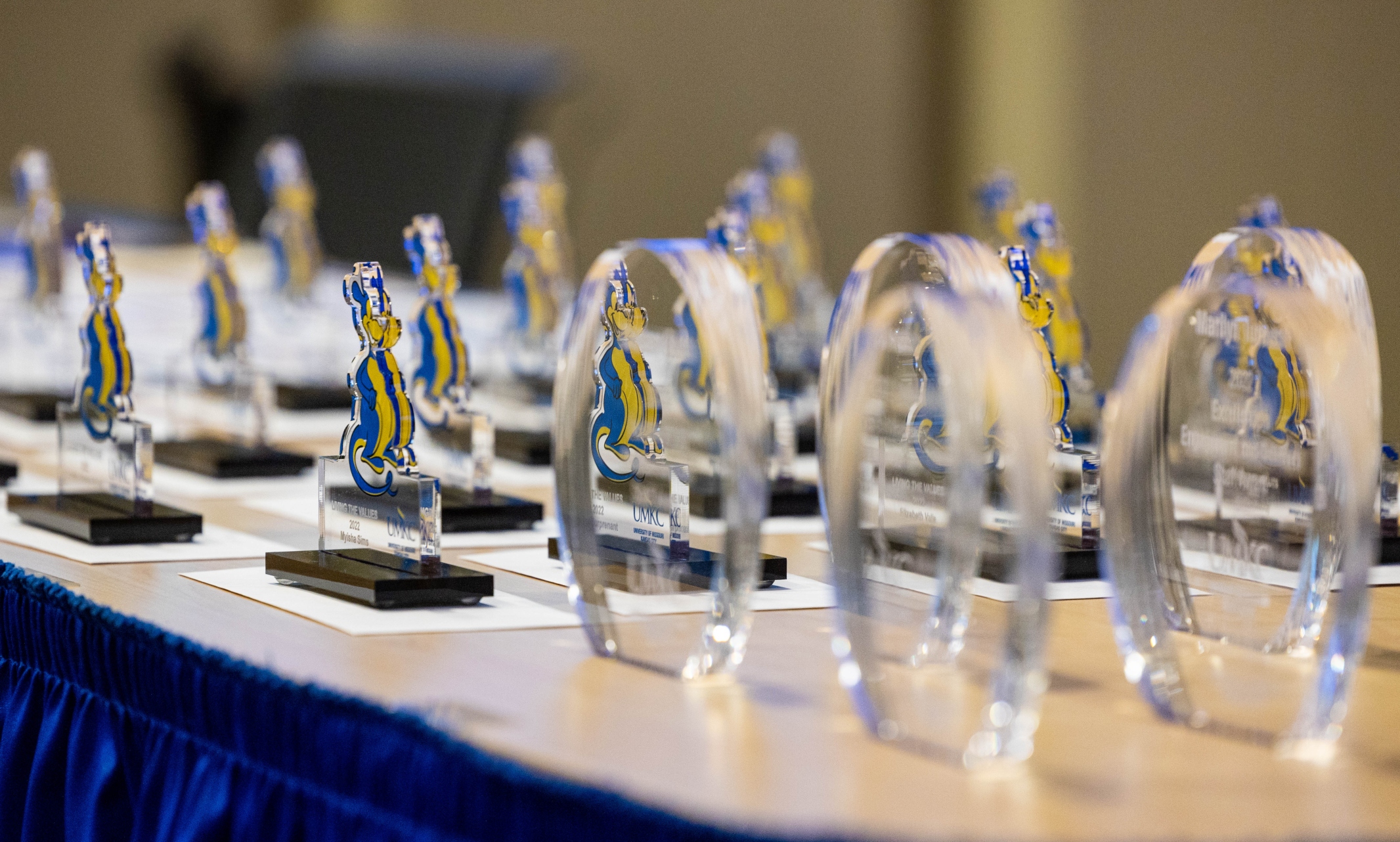
The awards recognize staff excellence and milestone achievements
The University of Missouri-Kansas City recognized more than 240 employees at the 2022 Staff Awards ceremony in March. The annual event is an opportunity for UMKC to celebrate staff members who have achieved personal and professional milestones, shown extraordinary commitment to service and ethics and championed the university’s commitment to student success, diversity and inclusion, engagement and outreach, and research and discovery.
Due to the COVID-19 pandemic, it was the first time in two years that UMKC staff could join together for an in-person celebration. Chancellor Mauli Agrawal, Ph.D. recognized the original COVID-19 tracing team at the awards. The team includes Obie Austin, Robin Hamilton, Dea Marx, Chris Popoola and Jill Reyes.The Chancellor praised the staff for all the work they have done to go above and beyond, even when faced with challenging circumstances of the pandemic.“Our staff members are the heartbeat of this university,” said Chancellor Mauli Agrawal, Ph.D. “Every year, I am overwhelmed by our staff’s dedication and accomplishments.”
The 2022 Awards were held in person for the first time in two years
Congratulations to the 2022 awardees:
20 Years of Service
Amir AyoubRebecca BergmanRichard BighamTyrone BleaMatthew BrownVerna CrowderMary FloresRobin HamiltonDavid LucasTanya MooreDeloris PhelpsKimberly RudolphLaura RuppRobert SmithJane VoglAnthony WescottKaren WilkersonMarie Winzer
25 Years of Service
Patrice AdamsSelena AlbertJames BradleyAndrea DiRaimoDarren HerseyJames HoltNancy KunkelLyndsey MagroneKeivan MoghadamNghi PhanEarl ReedSteven StonerAnjing Xu
30 Years of Service
Lena JonesKristen Temple
35 Years of Service
Michael BongartzCara BradleyBarbara Glesner FinesJames HavnerShelly JanaszDavid JohnstonJonathan Shroyer
40 Years of Service
Doretta KiddJennifer Underwood
Marilyn Turbush, front row second from right, celebrates her award with the External Relations and Constituent Engagement staff
Staff who graduated with a UMKC degree in Spring 2021, Summer 2021 or Fall 2021
Olivia BrownLauren CrusoeDestiny Delgado PetersonJocelyn GarciaRoland Hemmings Jr.Chante KellerKelly McDonaldLeta MolerEmma SatterfieldHannah ShacklesJulie SmithSuman SumanStephan Young
Supervisory Development Series Graduates
Wayne NagyAnna Zimmerman
Dr. Elson S. Floyd Administrative Leadership Development Program
Nate AddingtonMatthew BrownKatie GareyRosa NatarajTammy Welchert
Series on Leadership Essentials Program
Nancy BahnerRebecca BergmanErin BumannGina CampbellBrenda CindrichRob DurhamJames HavnerDanita JohnsonCamille Johnson-ArnoldCaitlyn MapelAdrena MasonChristen MelvinLiz MuleskiPatricia MullinWayne NagyJessie RiggsJames ShackelfordEmily Strayhall
Living the Values Award
Cynthia BeardMatthew BrownLauren ButlerDiane ElliottCollin FosterMichael GravesKendell HaleRobin HamiltonAlia HerrmanErika HollidayShelly JanaszCamille Johnson-ArnoldJulie KohlhartMousami MohantyLora OwensBarbette RoachMyisha SimsTess SurprenantElizabeth ValleKaitlin Woody
Krystal Olmos-Romero, front left, celebrates her award with co-workers from the School of Nursing and Health Studies
Staff AwardsStaff Council Dedication Award
Julie Myer, Senior Student Services Coordinator, International Student Affairs
Excellence in Student Success
Chelsey Butts, Student Support Specialist II, College of Arts and Sciences
Excellence in Research and Creative Works
Chris Winders, Director Research Activities, Office of Research Services
Excellence in Engagement and Outreach
Marilyn Turbush, Office Specialist, External Relations and Constituent Engagement
Excellence in Multiculturalism, Globalism, Diversity and Inclusion
Makini King, Interim Vice Chancellor of Diversity and Inclusion, Division of Diversity and Inclusion
Excellence in Planning, Operations and Stewardship
Sandy Wilson, Finance and Accounting Manager, Office of Research Services
Rising Star
Krystal Olmos-Romero, Senior Office Support Assistant, School of Nursing and Health Studies
Chancellor’s Staff Award for Extraordinary Contributions
Liz Hoffman-Shrout, Director II Student Support Services, UMKC Campus Recreation
Mar 28, 2022
The Starr Women’s Hall of Fame recognizes Kansas City women of distinction
Every two years, an independent panel of Kansas City community leaders selects local women of significance for the Starr Women’s Hall of Fame.
This year, the panel is once again seeking nominations for women with noteworthy ties to the Kansas City area who have historically or more recently made important and enduring contributions in their fields of work.
The nomination form and full directions for making a nomination are available at https://www.umkc.edu/starrhalloffame/directions.asp. The deadline for submitting a completed nomination packet is June 30.
The Hall of Fame has inducted 37 Kansas City women, half of them posthumously. Members of this select group include philanthropists, business executives, women’s and civil rights activists, political leaders and more. The list of inductees and their bios can be found at https://www.umkc.edu/starrhalloffame/hall.asp.
The Women’s Hall of Fame is named after Martha Jane Phillips Starr. A Kansas City philanthropist and women's rights leader, Starr was one of the first women to serve on the UMKC Board of Trustees. She played an important role in establishing the university’s Women's Council and the Graduate Assistance Fund, which today provides financial assistance to female students. UMKC’s annual Starr Symposium is named after and endowed by her.
Starr died in 2011 at the age of 104.
The Starr Women's Hall of Fame is funded by her family, the Starr Education Committee and the Starr Field of Interest Fund. It is also supported by 26 leading women’s organizations throughout Kansas City.
Mar 28, 2022
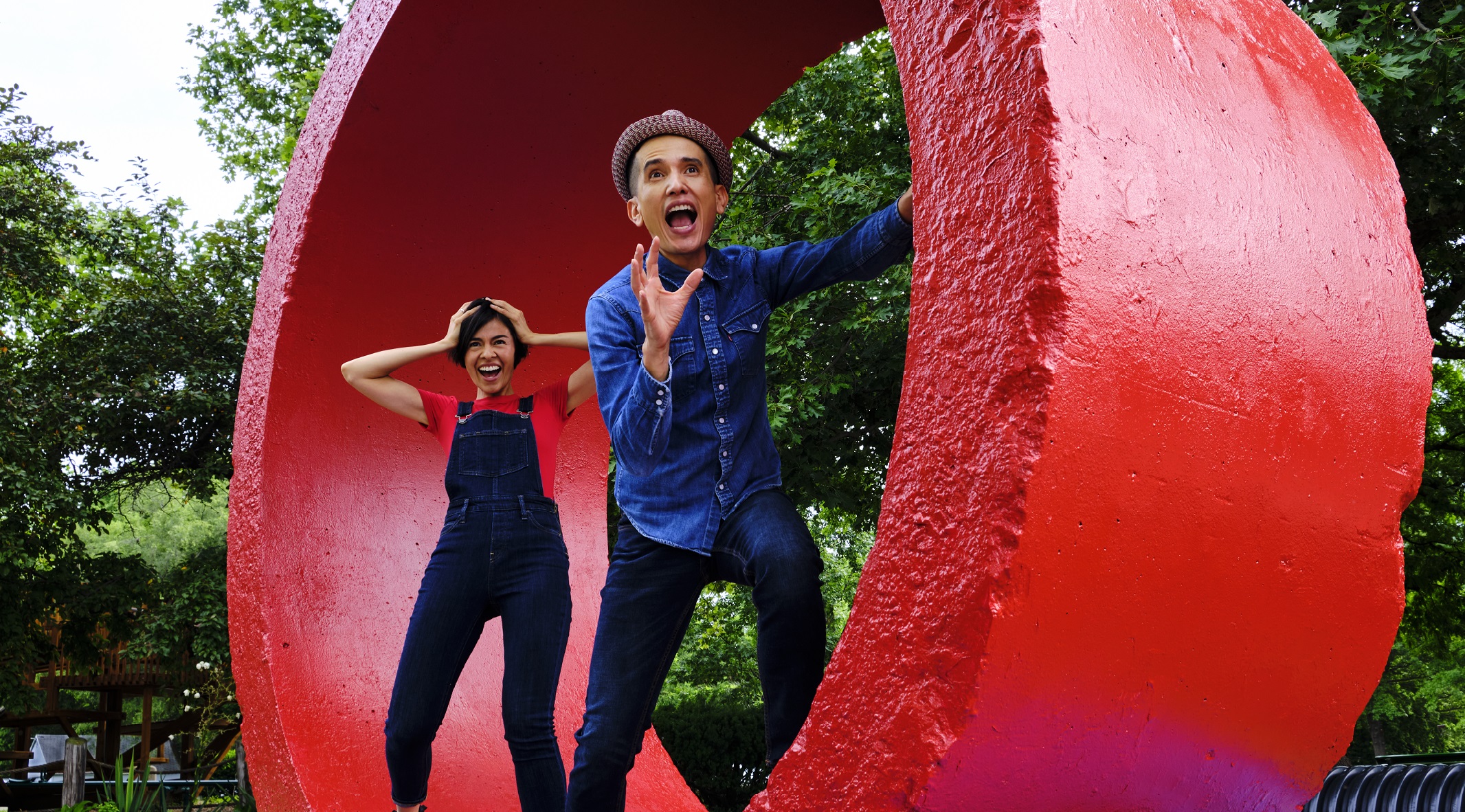
2022 GRAMMY® nominations include Roo faculty and alumnus
The UMKC Conservatory is well represented at this year’s 64th annual GRAMMY® Awards with faculty members who comprise Sandbox Percussion and alumnus Andrés Salguero, (DMA ’11) and his wife Christina Sanabria receiving recognition for outstanding work.
Sandbox Percussion is a quartet of Conservatory faculty Jonathan Allen, Victor Caccese, Ian Rosenbaum and Terry Sweeney. The group was nominated in the Best Chamber Music/Small Ensemble Performance and Best Contemporary Classical Composition categories. Trumpeter Kevin Noe, visiting professor and director of orchestras at the Conservatory, encouraged the ensemble to come teach at UMKC.
“Kevin told us that UMKC was looking to hire a percussion professor and he thought it would be great if the school would consider thinking outside the box and consider all four of us as a teaching unit,” says Rosenbaum.
The world premiere of the GRAMMY® nominated composition, “Seven Pillars” was supposed to take place in April 2020 but was cancelled because of the COVID-19 pandemic.
“The cancellation was one of the hardest to handle. We had been developing this piece for years,” Rosenbaum says.
Sandbox Percussion
But the cancellation and the ensuing free time allowed the quartet to focus on the recording. They devoted a year to recording the album and creating 11 films to accompany it. They were together in a meeting when they received the news of the GRAMMY® nomination.
"If it had to happen to one project that we were involved with, we are so glad that it is this one!" — Ian Rosenbaum
“We paused our meeting for a second as they announced our categories – and then we completely lost it. We knew how proud we were of this album and this work, but we never imagined that it could get recognized in this way,” says Rosenbaum. “We're also just so thrilled that these two nominations recognize not just Sandbox, but also Andy Akiho and his incredible work as a composer. If it had to happen to one project that we were involved with, we are so glad that it is this one!”
Salguero and Sanabria are “123 Andres,” a duet who focuses on children’s music. They received a GRAMMY® nomination for Best Children’s Music Album for “Activate,” their latest release, conceived to encourage children and families to be active. Salguero said he was too nervous to watch the GRAMMY® nomination livestream.
“Christina and I were home and my phone started buzzing and I was receiving text messages from friends. We were so surprised,” Salguero says.
“We are so excited to celebrate!” — Andrés Salguero
The couple had been working on the album for the last three years. They were already collaborating with other musicians long distance.
“Each musician was recording in their own studios. When the pandemic struck, we simply continued working this way.”
Salguero and Sanabria will be in Las Vegas for the ceremony April 3. “We are so excited to celebrate!” he says.
Mar 25, 2022
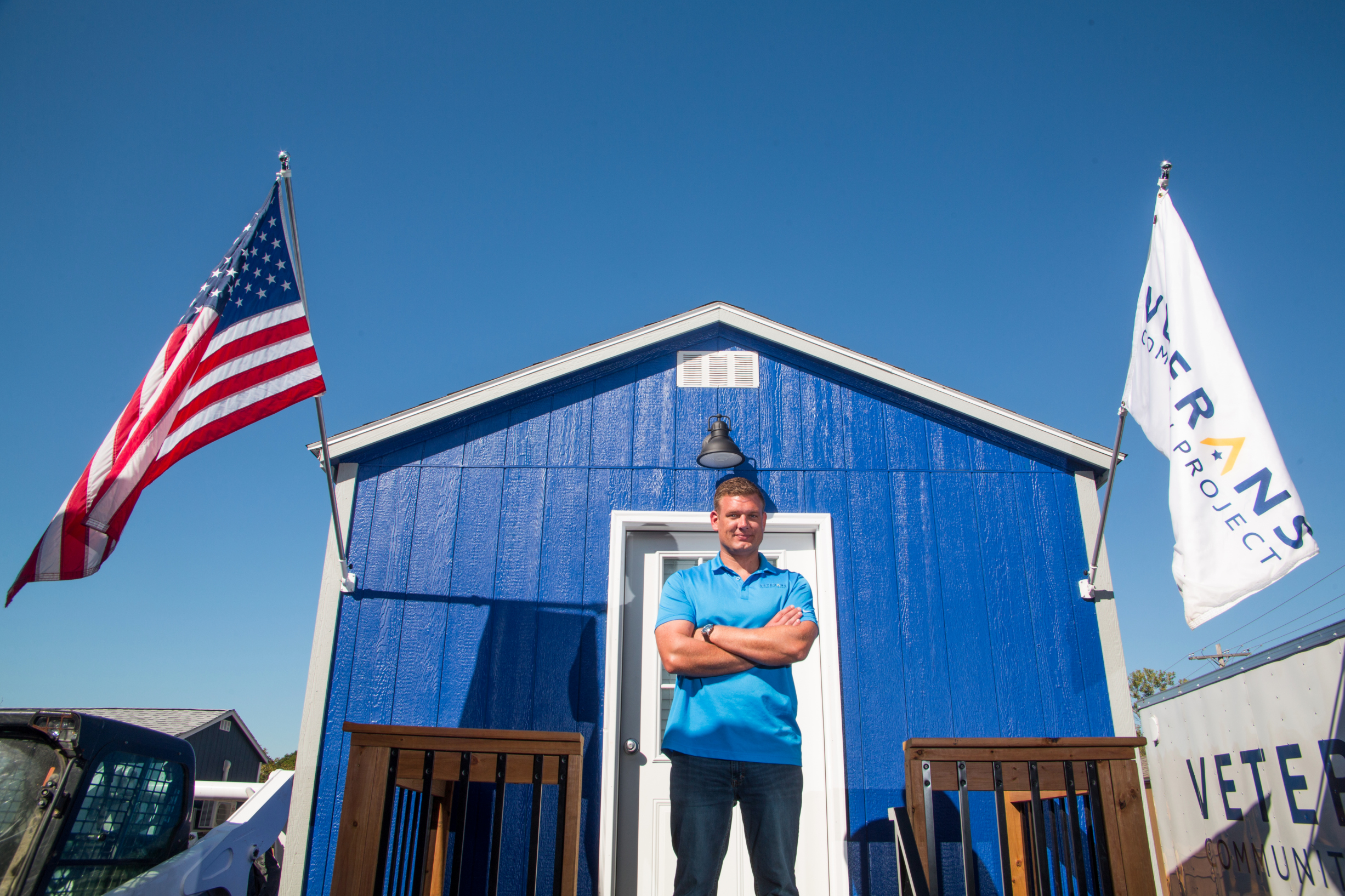
Bryan Meyer honored as UMKC Alumnus of the Year
Each year, the UMKC Alumni Association recognizes the achievements of outstanding alumni with an awards celebration. The university and the association are honoring Bryan Meyer (B.A. ’11, M.P.A. ’15, J.D. ’15) with the Alumnus of the Year Award.
Meyer is a co-founder of the Veterans Community Project at 89th and Troost in Kansas City, an innovative non-profit that provides housing for homeless veterans in a tiny home village. The idea arose from meetings he convened among numerous local veterans like himself who wanted to do something to address homelessness and other problems in the veteran community. Today, under Meyer’s leadership as CEO, the VCP also provides wrap-around support services and emergency assistance.
Buoyed by the VCP’s local success, Meyer was inspired to take the concept nationwide. In 2019, he brought on fellow veteran and former Missouri Secretary of State Jason Kander to lead the expansion campaign. Using Kansas City as the blueprint, VCP has officially begun its expansion launching its first satellite location in Longmont, Colorado.
What personal experiences drove you to pursue a law degree and M.P.A.?
When I began at UMKC, I didn’t have a plan to pursue a particular degree because I didn’t know what my long-term goals were. Instead of pursuing a degree, with the intent to secure a particular job, I pursued subjects I found interesting. Those interests eventually lead me to an understanding of my desire to assist those around me. I know the knowledge gained from an M.P.A. and law degree have been instrumental in my ability to provide a benefit to my community.
What has been the greatest challenge in launching the VCP?
The greatest challenge was taking something from a good idea to an actuality. Veterans Community Project is a great idea, but even the best ideas aren’t enough, it’s the ability to implement ideas that makes a difference.
What do you hope for in the future for yourself and Veteran’s Community Project?
I hope Veterans Community Project reaches every community across the country. There is a need for this programming everywhere. The scale of it may change but the need is everywhere.
What advice do you have for students who’d like to follow in your footsteps?
For anyone trying to create a solution to a problem, I would tell them to listen to the stakeholders. Don’t assume your solution is correct without first discussing it with those who will be impacted by it.
What is your favorite UMKC memory?
On the first day of law school all the first-year students were gathered in the same room. Students were asked to stand when certain phrases applied to them. For example, “stand if you have more than 5 siblings” or “stand if you own a pet.” Eventually, we were asked to “stand if you don’t even know if you want to be a lawyer”, so I stood up. I was the only person standing. Apparently, most people don’t attend law school without the intention to be a lawyer.
How did UMKC prepare you for/contribute to your success?
UMKC consistently reminded me there is always more to learn. For example, while in pursuit of my Masters, I took a class in leadership. I served five years in the Marine Corps and lead other Marines in two different combat deployments, I attended the first day of class confident there wasn’t anything I could learn on leadership from a classroom I didn’t already know from personal experience. I was wrong. The class remains one of my favorites, and I still revisit some of the material for a refresher.
About the Alumni Awards
Join us in honoring Meyer and the other Class of 2022 awardees at an in-person celebration at 6 p.m. April 29, at the James C. Olson Performing Arts Center. To register, visit UMKC's Alumni Association website. If you are unable to attend the event but would like to donate to student scholarships, contributions can be made online.
Mar 25, 2022
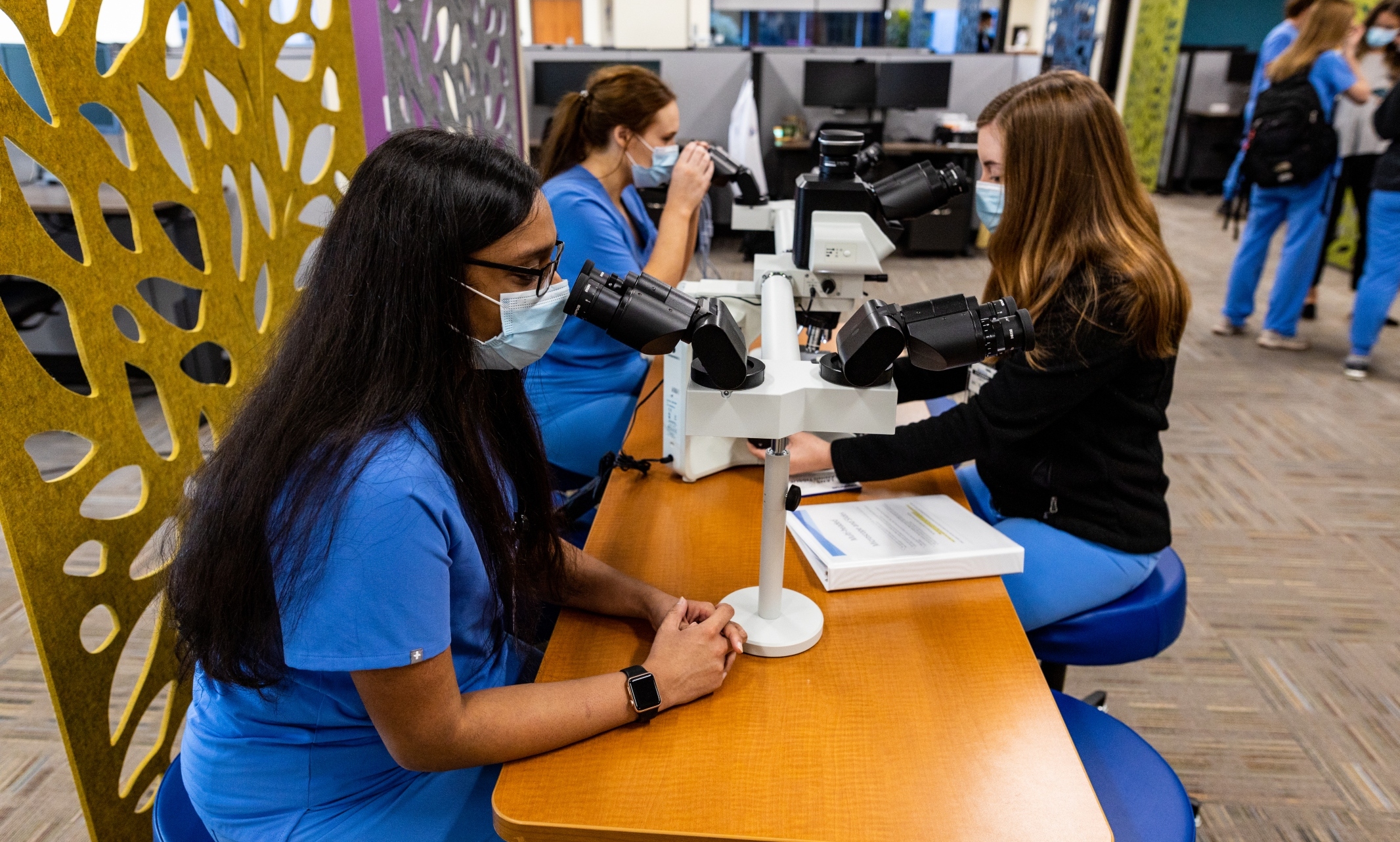
UMKC School of Medicine to expand St. Joseph campus
The University of Missouri-Kansas City will receive $17 million to help expand rural access to health care.
$15.5 million was allocated to the university as part of the $1.5 trillion federal government spending measure signed into law last week.
"UMKC has a strong culture of care and we are proud to help provide access to quality health care for all Missourians," said UMKC Chancellor Mauli Agrawal, Ph.D. "Like many areas of the country, the state of Missouri is facing a physician shortage in rural areas, leaving people in those communities vulnerable to negative health outcomes. We are grateful to Senator Roy Blunt for introducing this funding into the spending legislation, and to Congress for their support as we strive to meet that need and improve the lives of millions of people here in Missouri and across the U.S." Part of the appropriation will fund the expansion of the UMKC School of Medicine campus in St. Joseph, Missouri. The building is estimated to cost a total $14.5 million. $13 million will be covered by the appropriation bill with the remainder covered by state funding. The St. Joseph campus, located at Mosaic Life Care, opened in January 2021 to help address the state's rural physician shortage. The campus is quickly outgrowing its space. The funds provided by Congress will go toward constructing additional classroom and laboratory space. “The appropriation allows us to support our students on their medical journey with creation of physical learning space to encourage collaboration, exploration and discovery,” said Mary Anne Jackson, M.D., dean of the UMKC School of Medicine.
The remaining $2.5 million of the appropriation bill funding will help the UMKC School of Medicine expand behavioral health medical training at the St. Joseph campus. This experiential training is designed to improve access to behavioral health services in underserved areas, such as rural and low-income communities.
Blunt said the UMKC School of Medicine health care training programs in St. Joseph will be a benefit statewide.
“Our state is facing a severe physician shortage, creating major challenges for our rural communities and the more than one-third of Missourians who live there,” said Blunt. “As the top Republican on the appropriations subcommittee that funds health programs, I’ve been a strong advocate for the UMKC School of Medicine St. Joseph campus expansion and its important work in training physicians who will be uniquely qualified to provide care where it’s needed most. This includes enhancing physician training in behavioral health care. I appreciate UMKC’s commitment to strengthening our rural communities, and I’m grateful to all the physicians who will bring quality care to families in underserved areas across the state.”It's not the first time Blunt has championed resources for the UMKC School of Medicine. A longtime champion for health care, Blunt also played a pivotal role in establishing grant funding from the Health Resources and Services Administration to start and continue the program in St. Joseph. "Senator Blunt has been a strong partner for our medical programs to help us meet the needs of our community. I commend Senator Blunt for his leadership in addressing health care needs for all Missourians," said Agrawal. In addition to the contributions by Blunt, Missouri State Rep. Brenda Shields was instrumental in the creation of the UMKC School of Medicine St. Joseph campus.“The passion and enthusiasm for our mission from Senator Blunt and Representative Shields has been invaluable to us and ultimately will serve the rural residents of Missouri as our students graduate and continue their careers serving the people in the northwest region of our state,” said Jackson.The UMKC School of Medicine St. Joseph partner, Mosaic Life Care, is one of the largest private rural primary-care networks in the United States and a member of the Mayo Clinic Care Network. UMKC has a strong history of expanding access to rural health care education programs in Missouri. In addition to the School of Medicine program, the university operates satellite campuses for the UMKC School of Pharmacy at the University of Missouri in Columbia and Missouri State University in Springfield.This story was updated in August of 2023 to reflect all sources of federal and state funding.
Mar 24, 2022
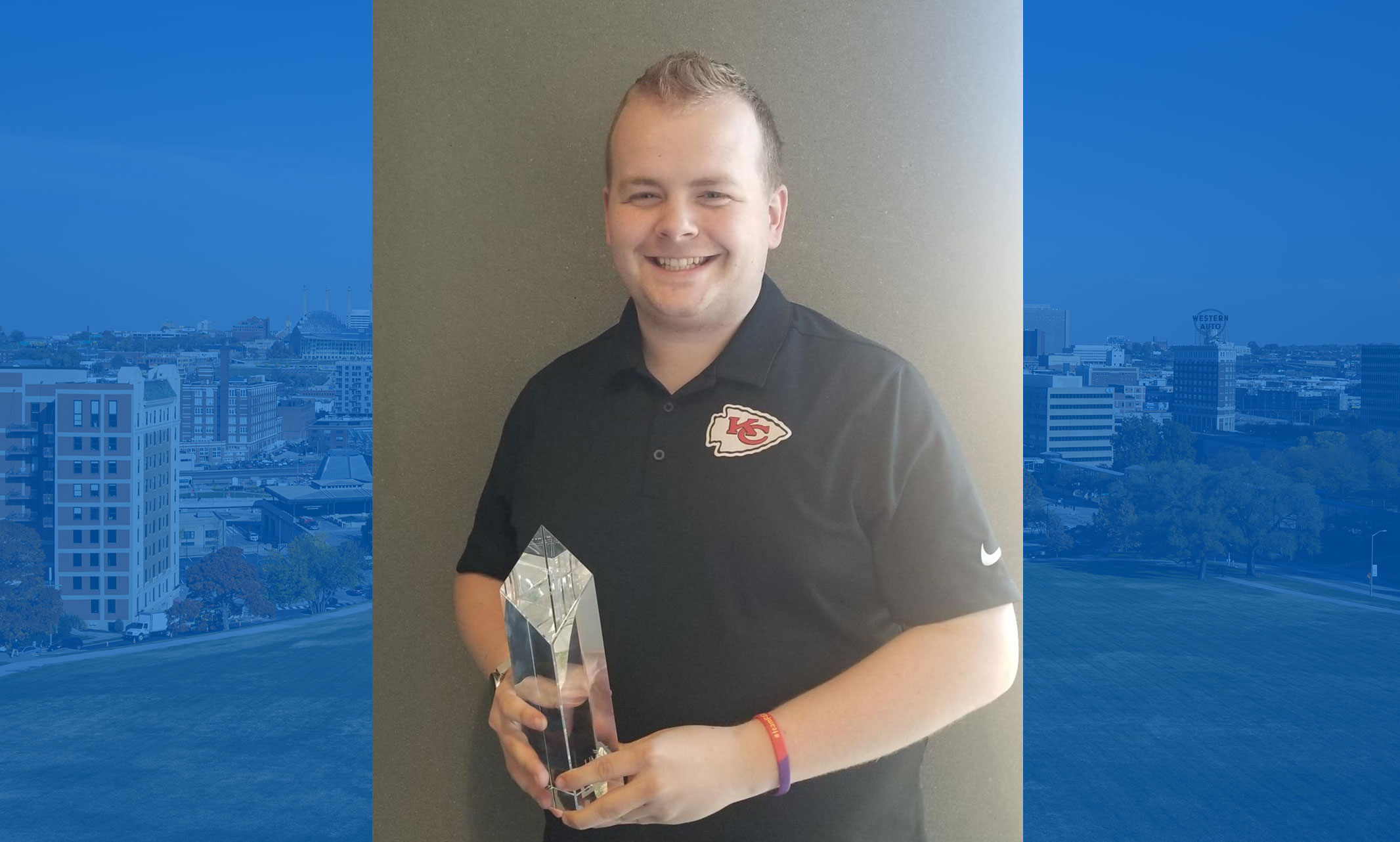
2021 Student Entrepreneur of the Year recognized for creation of payment-sharing app
Splitsy founder Brad Starnes (BIT ’20) knows from experience that sometimes waiting is a good thing. After all, it was waiting for his friends to pay him back for a dinner that inspired him to create the payment-sharing app in the first place. Splitsy, which allows each person in a group to pay their portion of bills directly, earned Starnes the distinction of the 2021 Student Entrepreneur of the Year award, but he had to wait for his accomplishment to be announced.
Due to the COVID-19 pandemic, the ceremony to commemorate his achievement was canceled, but despite the delay, he was eventually able to receive the award recognizing his innovative payment solution. We spoke with Starnes, who is currently seeking his master’s in business administration, about his inspiration for Splitsy, how UMKC helped him take his idea from concept to business and his advice for aspiring entrepreneurs.
What is Splitsy?
We’re a mobile application that allows roommates or shared households to share automatic payments. Currently, we partner with 15,000 billers nationwide. Users sign in to our application and set their predetermined splitting preferences. Then, every month when we receive that bill, we charge each person their individual portion and consolidate those into one payment to the biller.
What inspired you to create Splitsy?
One of my co-founders, Joe, and I have been friends since seventh grade. He went to UMKC as well, so he and I moved into the dorms together and then we decided to get an apartment. We had some problems sharing some bills. We had some other incidents that happened, too. We went on a group trip to Chicago and it was like 12 of us and we ordered a deep dish pizza. It’s super expensive for a deep dish in Chicago. We went to go split the bill at the end of the night and the restaurant didn’t split bills. I was the only one who had a credit card at the time, so I was able to put the purchase on the card and have everybody send me money back, but it took me almost three weeks after that trip to finally get all the funds back.That exact issue would be replicated and a lot of those pieces meshed together and got me to do it. Now I see so many people going through the same problem that I know it can be stopped.
You got your bachelor’s degree in information technology from UMKC. How did that help you with starting an app-centered business?
In the IT program, you have to do a bit of programming. You have to know how to manage databases. Those kind of things have really helped me now. We outsource most of our app-building, but I have taught myself how to code in a lot of the programming languages we use and I will hop in and do some of the smaller tasks so our developers can focus on more critical pieces of the platform. I wouldn’t have been able to that without the course work at UMKC. It also helped me understand the overall architecture of things, which really helped me conceptualize how technology can be connected.
What does this award mean to you?
It’s an award that has my name on it, but I see it as all-encompassing of everyone who has been involved. Not only was I being rewarded, but so were my cofounders who have been here along for the ride with me. Also, family and friends who have been supportive from the beginning. It was nice to be able to share that with the individuals who have helped us for so long. Just to be able to tell them thank you was really important to me.
As an entrepreneur, what are you most proud of?
I’m most proud of what I, and the people around me, have accomplished so far. The things that I have learned, just in this last 13 months doing this, is probably more than most people who go into the corporate world learn in the first three or four years in the job. I’m just proud of all of the knowledge that I’ve gained so far and where we’ve come. At this point, no matter if Splitsy works or not, I've gained the knowledge and expertise to prepare me for what's next.
What advice would you have for others looking to create a startup?
It is a fun ride being an entrepreneur, but it has its ups and downs. Just be open and ready to execute your idea and go forward with your dream. Also whether things do well or things get tough, plug yourself in the right ecosystem, like I have here in Kansas City. There’s always people who you can count on.
About the Entrepreneur of the Year Awards
The Entrepreneur of the Year Awards, which are sponsored by the Regnier Institute for Entrepreneurship and Innovation at the UMKC Henry W. Bloch School of Management, recognize innovative and creative accomplishments of entrepreneurs. The 2022 recipients will be honored at a ceremony Oct. 12, 2022.
Mar 24, 2022
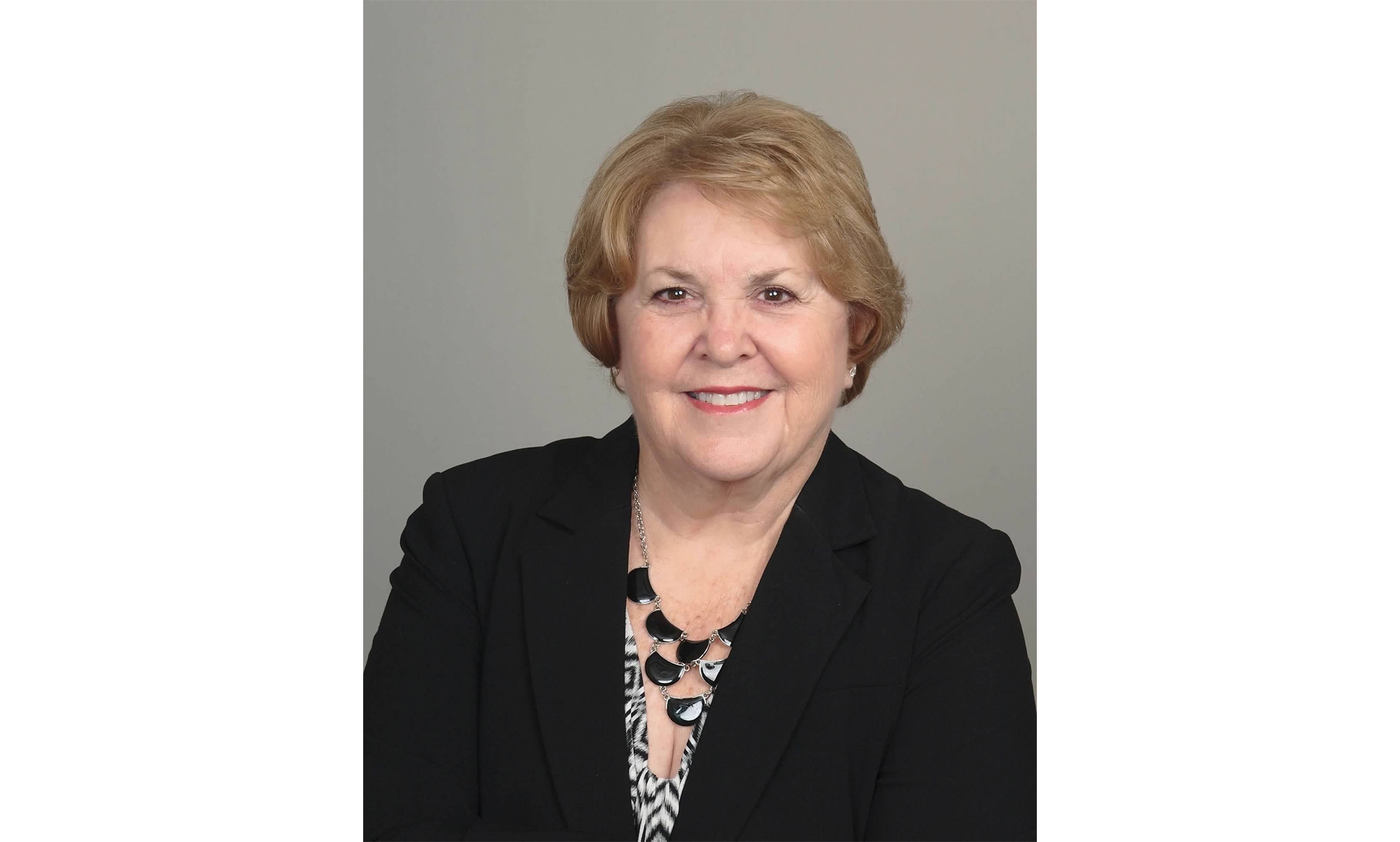
Jo Ann Weatherwax receives School of Dentistry-Dental Hygiene Alumni Achievement Award
Each year, the UMKC Alumni Association recognizes the achievements of outstanding alumni with an awards celebration. The School of Dentistry is honoring Jo Ann Weatherwax (B.S.D.H. ’06, M.S. ’12) with its Class of 2022 Dental Hygiene Alumni Achievement Award.
Weatherwax served as the founding dental program director for the Volusia County Health Department in Daytona Beach, Florida and has dedicated her career to help solving the national issue of access to oral health care services. As the first dental hygienist to serve as a dental director at a county health department in Florida, Weatherwax developed a clinical program, added an additional clinic to serve the western area of Volusia County and established a county-wide school sealant and oral health education program. Her dedication to the health department and safety net programs in Volusia County has resulted in the delivery of oral health care services to countless children and families. Along with her work in public health, Weatherwax has served in numerous leadership roles including most recently as the President of the Florida Dental Hygiene Association.
What inspired you to address oral health care by establishing a dental health program for the Volusia County Health Department?
In 2008, Volusia County had a very large population of Medicaid children. The county had unsuccessfully tried to establish a dental program. The children were suffering, families were frustrated and community trust was being tested. While my love has always been for dentistry, my passion has been public health. This was an opportunity to put into action my love, my passion, my education, my grass roots training and serve the most vulnerable of Volusia County.
How did your career begin? Where do you see it going?
My desire for a career in dentistry began in my teenage years when my orthodontist encouraged me to consider working in the field. I was amazed at the positive changes taking place in my oral health. If this could happen to me, then I wanted to help others have the same experience. At the age of 17, I jumped at the first opportunity at employment in the dental field and it was the best career decision I could have ever made. As time marched on, I found myself wanting to do more. I started my formal education in dental hygiene and while in school we were required to rotate through a public health dental program. One of my professors and my public health mentor (also a UMKC alumni), Dr. Mike Allen, encouraged all students to consider serving in public health. For me, it was a perfect fit.
What advice do you have for students who’d like to follow in your footsteps?
Search your soul, your heart and your motivation. Becoming a community dental director takes additional education, experience, perseverance and don’t forget prayer. Do not let yourself or others limit you. Look to the dental community for a mentor who is willing to invest in you. This may require moving and it may require more formal education but you can do it.
What drew you to UMKC?
I actually live in Florida but attended UMKC remotely. The UMKC School of Dentistry stood out for its high quality and respect in the dental community as well as the caliber of educators. While my professors challenged me, they also supported me and wanted me to be successful.
What is your proudest accomplishment?
My proudest accomplishment is achieving my master’s degree from UMKC as I am the first in my family to go to college. While my journey was long and challenging, the final walk across the stage with four grandchildren and my husband in the audience was a very proud moment.
About Alumni Awards
Join us in honoring Weatherwax and the other Class of 2022 awardees at an in-person celebration at 6 p.m. April 29, at the James C. Olson Performing Arts Center. To register, visit UMKC's Alumni Association website. If you are unable to attend the event but would like to donate to student scholarships, contributions can be made online.
Mar 24, 2022
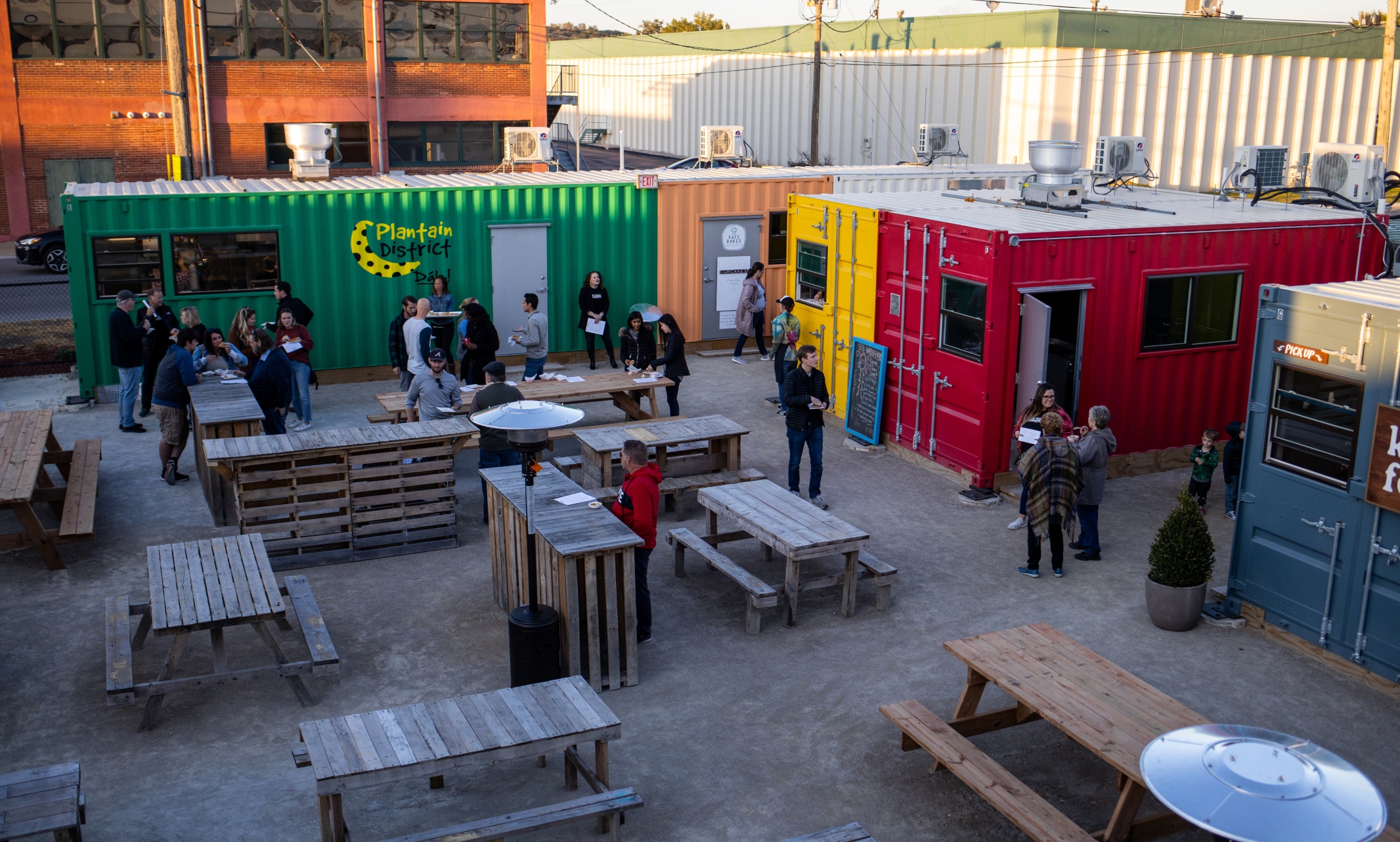
Some of the best local attractions and activities to visit without breaking your budget
Who said you need to travel to the beach to have an exciting Spring Break? Here are some local favorites to help you enjoy your well-deserved week off.
Food and Drink
Spring is in the air, which means it's time to get outside and enjoy the new weather! North Kansas City’s Iron District is a great place to dine al fresco from a variety of different vendors—from burgers and street tacos, to vegan and Thai cuisine, there are options for everyone. If you’re looking for somewhere to go during the weekend, check out the Farmers’ Market in City Market, open Saturdays in March and Saturdays and Sundays in April. The Farmers’ Market is where you can get fresh, healthy food from all over the world. For more fun, hop on the free KC Streetcar and go urban exploring! And for those days that you’d rather stay indoors, consider going on a Roasterie tour. At only $5 per person, you can tour The Roasterie Coffee Company’s factory and get a behind-the-scenes look at how their delicious, sustainable coffee is made.
City views can be enjoyed atop the Liberty Memorial tower or on the terrace below
Art and Museums
Who said Spring Break can’t be educational? At the Liberty Memorial Tower, which honors those who fought in World War I, you’ll be able to experience its history while getting to look out on Kansas City at over 200 feet high! If getting to spend hours in a museum is more your style, then check out the American Jazz Museum for only $10 and learn why Kansas City is one of the greatest places in the country for jazz. If you’re looking for something near campus check out the Toy and Miniature Museum! With free admission for students with their ID, this museum will make you feel like a kid again with its whimsical exhibits and collections. Our next-door neighbor, The Nelson-Atkins Museum of Art, also offers free admission and is Kansas City’s premier art museum, with some of the world’s greatest paintings and an outdoor sculpture park. Finally, experience the incredible magic of live theatre by planning a visit to KCRep for All. This program travels across Kansas City, offering free theatre to anyone and everyone.
Whiskers Cat Cafe partners with KC Pet Project to offer adoptable cats
Furry Friends
Sometimes the best way to spend the break is de-stressing, and spending time with an animal friend is a great way to do that. If supporting small businesses while surrounding yourself with cats sounds fun, then make your reservation at Whiskers Cat Cafe. At just $12.50 per person, you can spend an hour with adoptable cats while sipping on a warm cup of coffee. You can also try painting, yoga or playing bingo with cats! Another option for animal lovers is the Kansas City Zoo! With admission as low as $9-10 for Jackson and Clay County residents, the zoo is home to more than 1,300 animals from all over the world.
Located behind the Lakeside Nature Center, Fox Hollow trail in Swope Park stretches two miles
Hiking
Just because we are in a big, metropolitan city doesn’t mean there aren’t great spots for hiking. Swope Park is a local favorite and it’s only 10 minutes from campus, and if you want to venture a little further, Shawnee Mission Park is one of the largest in the area with multiple attractions and activities including numerous trails, shelters, picnic areas and an archery range. There is also Parkville Nature Sanctuary located less than 30 minutes from campus with over three miles of hiking trails that run through 115 acres of nature and all its beauty. A great multi-use 8.4-mile trail and bike path for hikers and bikers specifically, is Line Creek Trail in Platte County in the heart of the Northlands.
Looking to stay in the city? Start at The Union Station or River Market area and anywhere in between to ride on the Streetcar for free along Main Street to see sights throughout the Crossroads district and downtown for some urban hiking.
The museum offers traditional and interactive exhibits about the Negro Leagues in KC and beyond
Sports
Whether you like to watch or play, there’s something for everyone. Visit the Negro Leagues Baseball Museum for only $10 and travel back in time at 18th and Vine and then stick around for a Roo softball game, free with your student ID, at the Urban Youth Academy.
If you’re looking for something a little more laid-back, play some disc golf at Rosedale Park, just down the street from the original gas station Joe’s Kansas City Bar-B-Que.
Chicken and Pickle has a unique indoor and outdoor experience in North Kansas City less than 20 minutes from campus. They have pickleball courts, yard games, and delicious food and drink for all ages. Go with a group and split the $20 court fee or get beginner lessons on the first Saturday of the month for only $10!
Mar 22, 2022
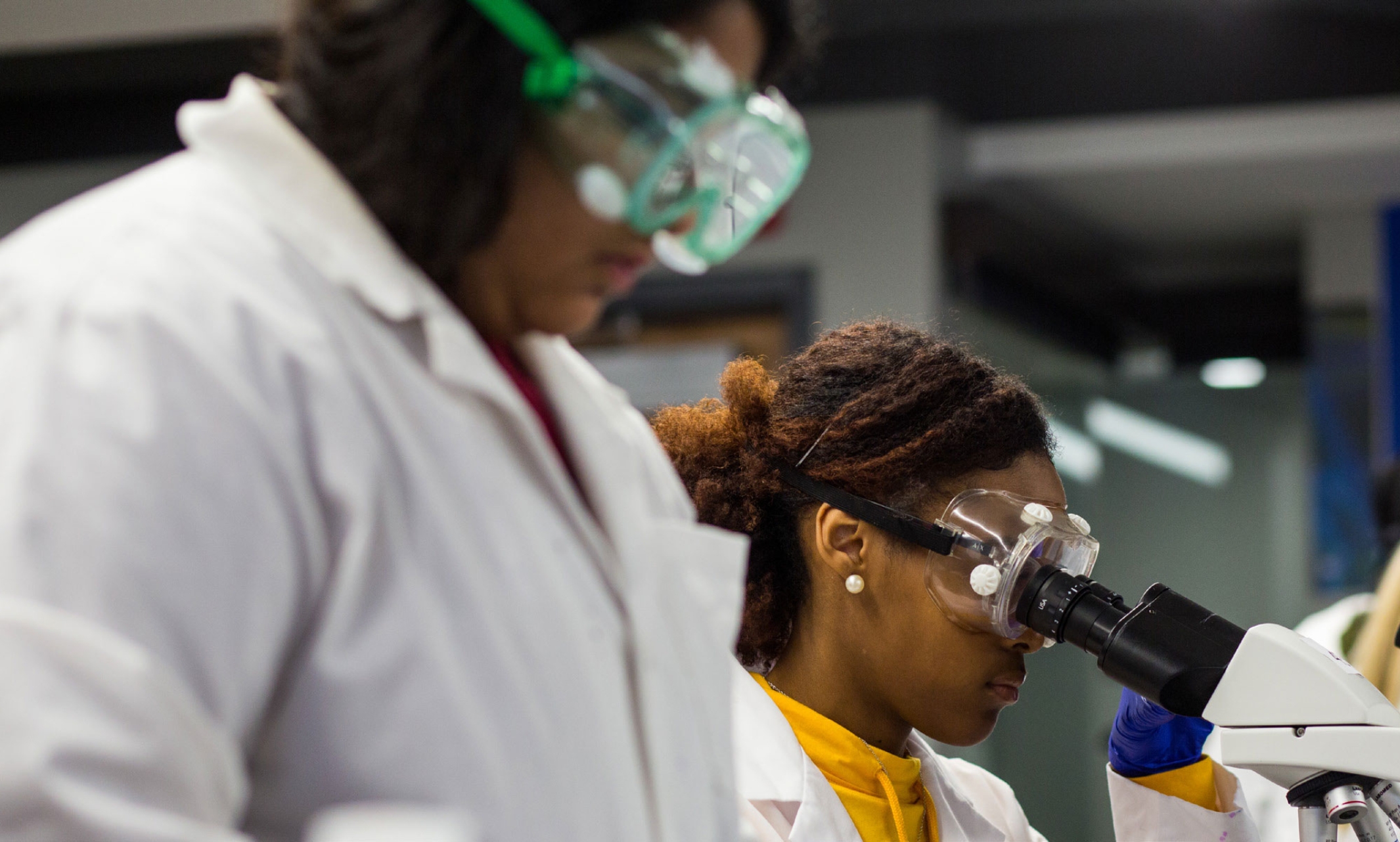
University supports and sustains more than 7,000 jobs
The University of Missouri-Kansas City generated $597.2 million in overall economic impact in Missouri during fiscal year 2021, according to a study conducted by Tripp Umbach, a nationally recognized firm that has completed more than 500 economic impact studies for clients across the globe.
According to the study, academic medicine at UMKC generated $231.4 million in economic impact and supported and sustained 2,435 jobs, while UMKC research activity generated $186.3 million in economic impact and supported and sustained 1,300 jobs. Athletics generated another $23.1 million in economic impact, including 259 jobs.
Overall, UMKC generated $33.4 million in state and local taxes during FY21, while 44,043 UMKC alumni living and working in Missouri generated $7.8 billion in overall economic impact.
“Our impact through workforce development and community engagement is already well known. Through this study we now demonstrate that UMKC is a powerful economic engine in its own right,” said Chancellor Mauli Agrawal.
The $597.2 million total represents the direct impact of UMKC spending in the state ($186.6 million) and the indirect spending that occurs as a result of the university’s presence ($410.6 million).
UMKC directly supported 3,540 full-time and part-time jobs throughout the state, the study found, while UMKC spending on capital projects, development and planning projects and suppliers supports additional indirect jobs throughout Missouri. In total, the university’s presence supports 7,291 jobs in Missouri.
The Tripp Umbach report on UMKC is a component of an overall report on the University of Missouri System. That report, released last month, found a $6.5 billion economic impact on the state of Missouri by the UM System and its four universities, MU Extension, athletics and academic medicine.
For the study, Tripp Umbach measured the economic value generated by the UM System’s research, operations, service and expenditures throughout the state of Missouri in Fiscal Year 2021, which ran from July 1, 2020, to June 30, 2021.
“Economic impact studies often capture only the impact that can be assigned a quantitative number, but the qualitative value and impact of UMKC goes far beyond its annual multimillion-dollar economic impact,” the study found. “UMKC provides countless opportunities for faculty, staff and students to service the community through institutional partnerships, programs and service-learning projects that deliver a significant impact to the community … on a daily basis, the lives of those in the surrounding communities are significantly enhanced by its presence in a multitude of ways.”
In addition, UMKC faculty, staff and students donated $1.3 million to local charities, plus an additional $1.1 million in value of volunteer time. Those figures are not included in the $597.2 million economic impact total.
To view the complete report, click here.
Mar 18, 2022
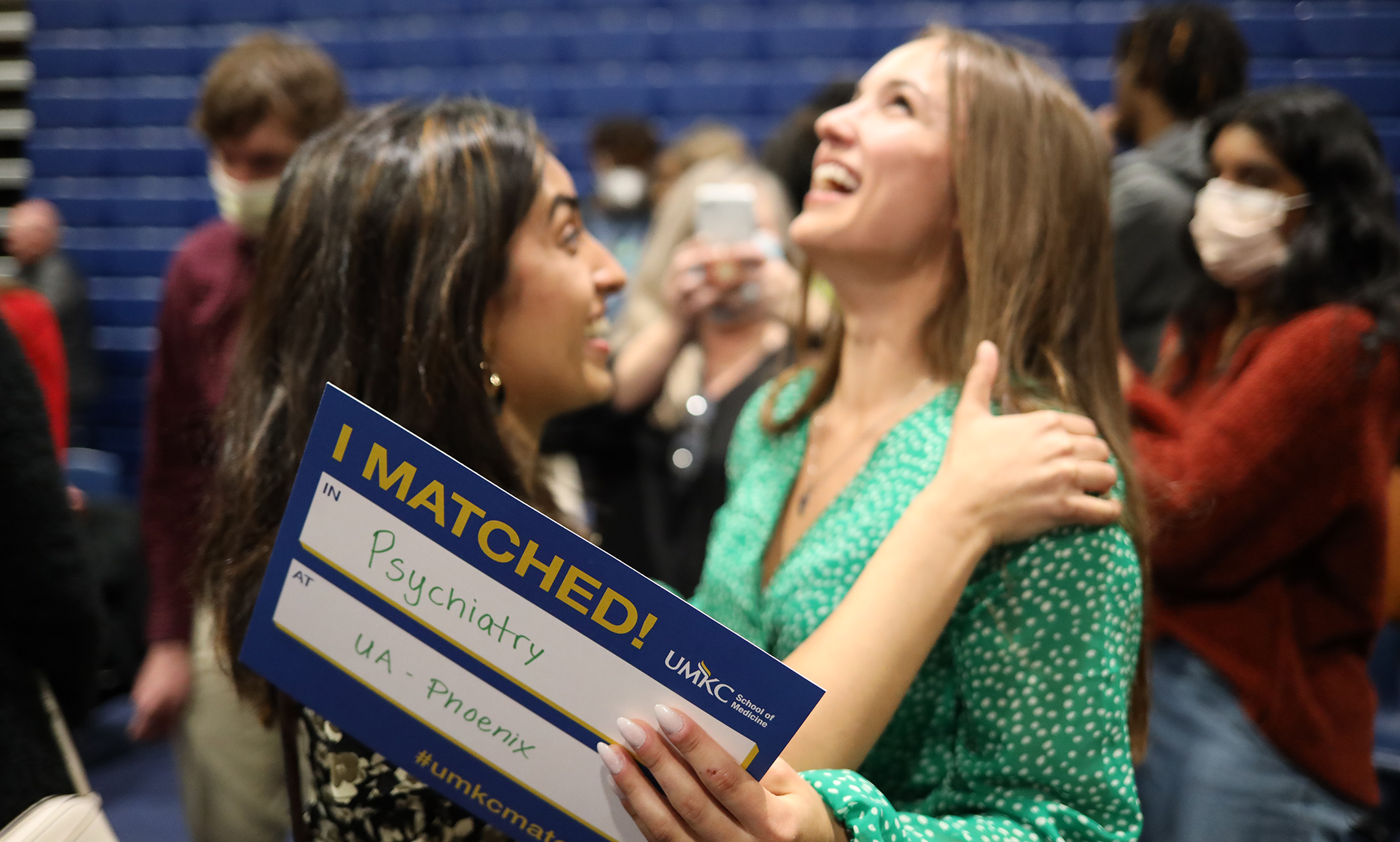
UMKC med students fill residency positions across the country in more than 20 specialties
A few minutes before 11 a.m. on Friday, UMKC School of Medicine student Pradeep Kandula stood and paced anxiously in front of a table full of family and friends.
“I’m nervous, but also very excited,” Kandula said as he waited for the Match Day letter that would reveal where he will spend the next three years doing his medical residency training. Moments later the nervous tension building throughout UMKC’s Swinney Recreation Center exploded into cries of joy and elation.
Among those cheering was Kandula, who discovered he had matched with his first choice of residencies, a position in internal medicine at the prestigious Cleveland Clinic.
“I’m so excited right now for everyone,” he said. “I’m excited for all of my friends.”
From anesthesiology to urology, nearly 100 UMKC students matched in 21 different medical specialties. More than a third of the class elected to go into one of the primary care specialties of family medicine, internal medicine, medicine/pediatrics, obstetrics and gynecology or pediatrics.
Internal medicine was the most popular specialty with 19 students matched, followed by anesthesiology, general surgery, psychiatry and preliminary medicine, each with eight matches.
The class will also be spreading out across the country going to 24 different states from California to New York, Florida to Michigan. Thirty-nine graduates will remain in Missouri and 22 will be staying in Kansas City for their training in UMKC residency programs.
Throughout the United States, graduating medical students learned their residency fates at the same time on Match Day, filling more than 36,000 first-year residency positions.
“There is no more memorable day for medical students than Match Day,” said School of Medicine Dean Mary Anne Jackson, M.D., a 1978 graduate of the medical school. “This is the most exciting day for you, your staff and faculty. The wait is over. This next phase defines the rest of your lives.”
For the first time in the school’s 50 years, the School of Medicine’s Match Day event was moved from the school’s UMKC Health Sciences Campus location to the Swinney Center on the university’s Volker Campus. This allowed all of the participating students’ family and friends to take part in the celebration in a single indoor location. In one corner of the crowded room, Sejla Turnadzic proudly held up a cardboard sign that said she had matched in anesthesiology and would be heading to Stanford for residency training.
“I can’t put it into words how happy I am right now,” Turnadzic said.
This was a special time for Turnadzic and the family members with her. Born in Bosnia, Turnadzic moved to the United States with her parents when she was just a year old to escape the war-torn country. Many of her family members remain in Bosnia.
“I’m going to the be first doctor in my family,” she explained. “This is a very big day for us.”
Next to Turnadzic stood Kaylea Gunn, who also matched in anesthesiology and will be going to Vanderbilt University for her residency. The two have been roommates for six years, since the beginning of med school.
Gunn was particularly thrilled with the day because her brother Brady, a graduating student at A.T. Still University osteopathic medical school in Kirksville, Missouri, had just matched as well and attended the Match Day festivities with his sister in Kansas City.
“I didn’t get any sleep last night,” Gunn said. “It has all been so exciting.”
Mar 18, 2022
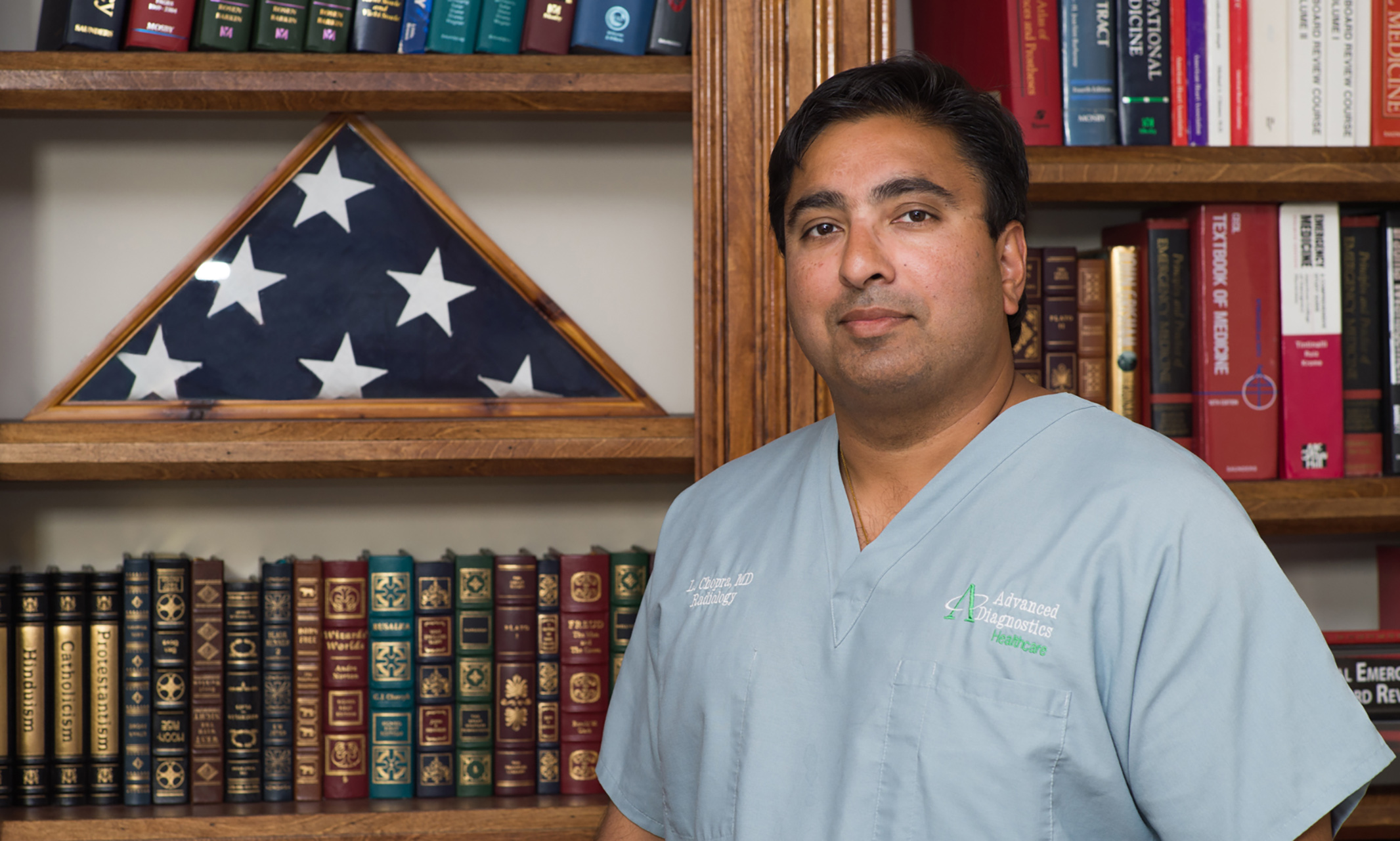
Lucky Chopra receives School of Medicine Alumni Achievement Award
Each year, the UMKC Alumni Association recognizes the achievements of outstanding alumni with an awards celebration. The UMKC School of Medicine is honoring Dr. Lucky Atul Chopra, (M.D., ’92) with its Class of 2022 Alumni Achievement Award.
Lucky Atul Chopra, M.D., a 1992 graduate of the UMKC School of Medicine, is a radiologist and entrepreneur who has created successful medical service companies.
During his radiology residency at the McGovern Medical School at the University of Texas-Houston Health Science Center, Dr. Chopra started a mobile imaging service using a converted milk truck to transport a portable X-ray machine. Contracting with nursing homes, he provided imaging services on site so patients would not have to travel.
Four years later, he opened an independent, physician-led medical facility in east Houston that specializes in spinal and orthopedic surgical procedures. Today, he is the chief executive officer of Advanced Diagnostics Healthcare.
How did your idea for a mobile radiology service come about?
A significant amount of my residency training was in the trauma and emergency center. I recognized many patients were from long-term care facilities and other institutions for diagnostics and possible intervention. The diagnostics often proved to be normal, making the trip to the emergency/trauma center avoidable if diagnostics were available on site. Providing quality on-site diagnostics reduced the need for patient transport, created value to all stakeholders, and provided a much faster turnaround time for results.
How do you see the improvements you have made in the field of radiology impacting lives and outcomes for patients?
We have raised the bar for patients in long-term care facilities and other institutions in providing quality and credible on-site diagnostics. The technology and software that we implemented in this space has set the standard of care. We are proud of patient-centric innovations outside of the radiology space, which is improving outcomes for patients that have been involved in serious trauma.
What advice do you have for students who’d like to follow in your footsteps?
I encourage all students to be focused on ethics, compliance, and understand the regulatory climate. In the course of business, outside parties will attempt to encourage physicians to engage in profiteering, which can provide a short-term gain, but also creates many long-term issues. All new graduates need to be wary of these parties as many are very convincing and provide false assurances as to compliance and legalities.
How did UMKC prepare you for/contribute to your success?
The hands-on clinical experience UMKC provided proved to be valuable throughout my residency and beyond. I didn’t fully recognize or appreciate the full value of UMKC’s positive academic and cerebral environment until I graduated and joined other institutions.
What is your proudest accomplishment?
Our companies have remained private, not dependent upon cash infusions from private equity or other outside sources. Staying this course has been challenging at times, but it has allowed us to maintain our independence. At a time when over 50 percent of all physicians are employed, I am proud that we support those physicians that value their independence.
Where can you be found on the weekends? What are your hobbies?
I enjoy visiting our vacation home on Lake Travis in Austin, Texas, whenever possible. A weekend of being on boats and watercraft with my family is the most relaxing. I also enjoy working out and mountain biking.
About the Alumni Awards
Join us in honoring Chopra and the other Class of 2022 awardees at an in-person celebration at 6 p.m. April 29, at the James C. Olson Performing Arts Center. To register, visit UMKC's Alumni Association website. If you are unable to attend the event but would like to donate to student scholarships, contributions can be made online.
Mar 16, 2022
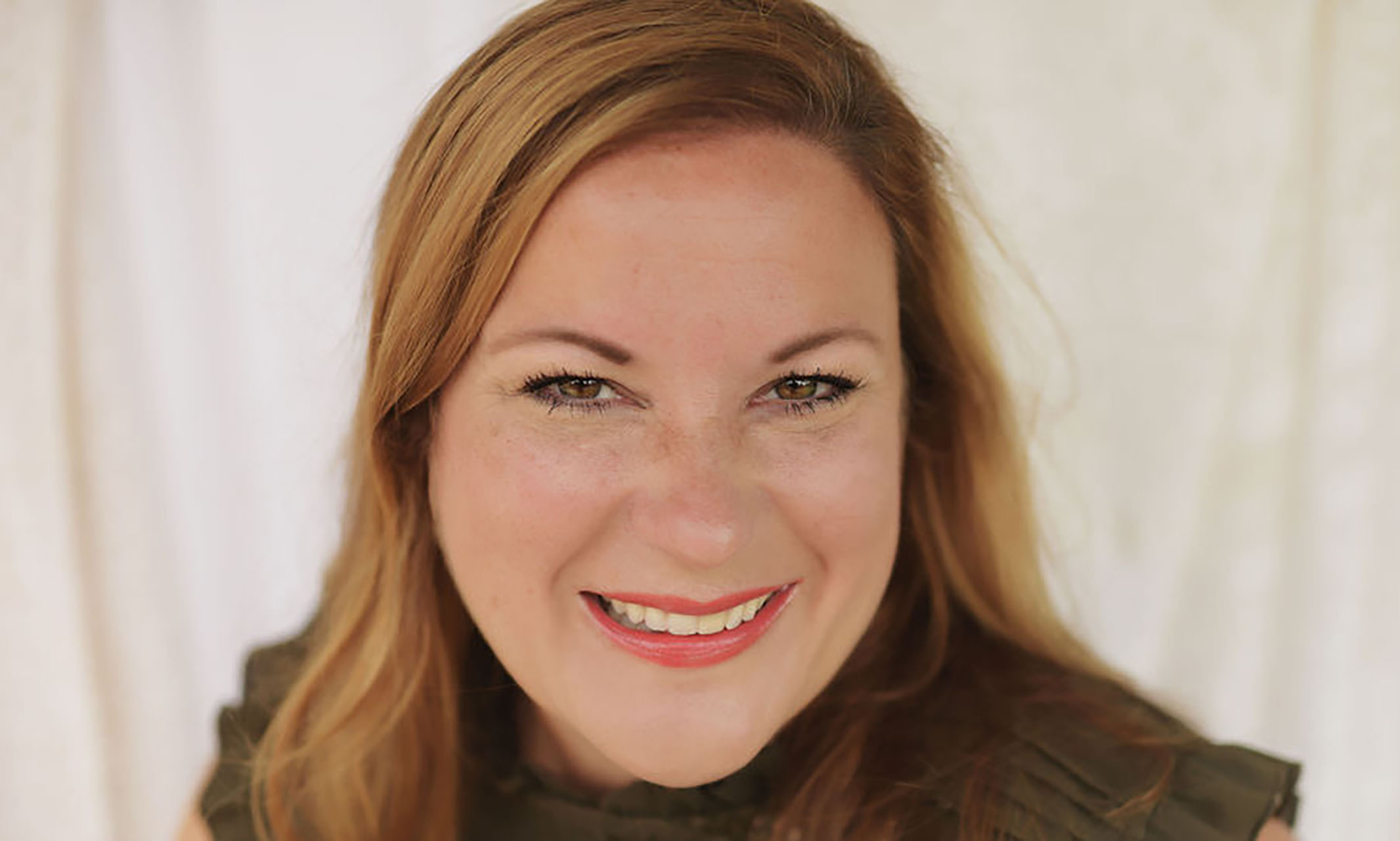
Janelle Sabo receives School of Pharmacy Alumni Achievement Award
Each year, the UMKC Alumni Association recognizes the achievements of outstanding alumni with an awards celebration. The UMKC School of Pharmacy is honoring Dr. Janelle Sabo (Pharm.D. ’00) with its Class of 2022 Alumni Achievement Award.
Janelle Sabo, Pharm.D., R.Ph., M.B.A., is a 2000 graduate of the UMKC School of Pharmacy. An executive leader in clinical research design, development and delivery, she joined Eli Lilly and Company shortly after earning her degree at UMKC. She is currently vice president of clinical capabilities, serving as the global head of clinical innovation, system and clinical supply chain at Eli Lilly and Company. She has accountability for the overall development, registration and launch of anti-COVID-19 therapeutics across the globe.
In her role, Sabo places an emphasis on deeply understanding science, the patient and leaning into innovative strategies to accelerate development. She led the COVID-19 Therapeutics Platform that delivered multiple neutralizing monoclonal antibodies that are widely used in the global fight about the virus. She was also integral in establishing one of the first drive-through testing clinics, which became the gold standard.
Sabo also uses her vast experience as a pharmaceutical industry leader to serve her alma mater as a member of the School of Pharmacy Dean’s Advisory Council, providing expert guidance on curriculum and programmatic offerings.
What led you to pursue a career in pharmacy?
I have always loved science and helping people. In high school, I did a few rotations with different health care professionals in my hometown and found that ideal intersection of chemistry, biology and helping people was possible in pharmacy.
Tell us about your work fighting the COVID-19 pandemic and how it has changed your professional life.
We worked on a study in one of the most impacted patient populations, nursing homes. Our team developed a mobile research unit that can go to rural and urban communities quickly as COVID outbreaks occurred. This approach continues to be utilized to create excellent clinical research in populations and therapeutic areas underserved and underrepresented in clinical research. One of my most important experiences has been finding new ways to rapidly bring clinical research into communities, including those that are underserved and underrepresented. Continuing to expand access to clinical research across the globe remains a key priority for me.
What advice do you have for students who would like to follow your footsteps?
Pharmacy is an outstanding foundation to support a career in discovering and developing new medicines for patients with few or no options for treatment. Drug development requires taking your education and clinical experience, translating it to designing clinical studies to develop the data, insights and information that will be needed to help clinicians know how to use the new medications in their patient population and what to expect in terms of benefits and risks.
Where can you be found on weekends? What are your hobbies?
Most weekends are spent at volleyball, basketball, and flag football games and tournaments with my girls. In my free time, I love to cook, hike, spend time at the beach or at the pool and with family and friends.
About Alumni Awards
Join us in honoring Sabo and the other Class of 2022 awardees at an in-person celebration at 6 p.m. April 29, at the James C. Olson Performing Arts Center. To register, visit UMKC's Alumni Association website. If you are unable to attend the event but would like to donate to student scholarships, contributions can be made online.
Mar 14, 2022
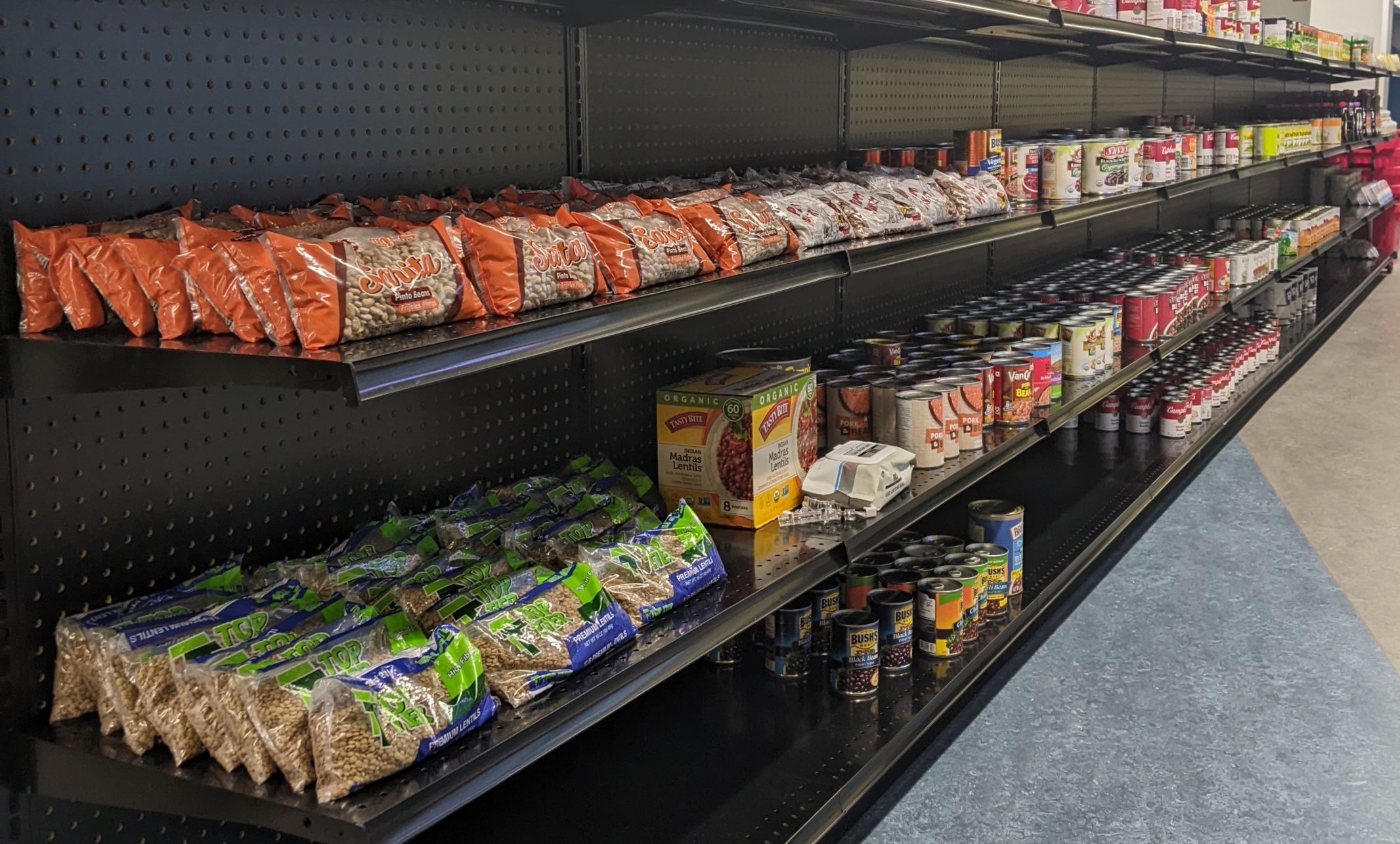
Move to Student Union allows easier access to critical resource
The new UMKC Dr. Raj Bala Agrawal Care Center opens in the Student Union May 4, 2022 at 11:00 a.m. with a ceremony to celebrate enhanced access to support services for the university community.
“The Chancellor’s Food Security Task Force that was formed in 2020 recommended that we expand pantry operations and eliminate barriers to pantry use,” Anthony Maly, senior manager student support services, says. “One of the task force’s long-term goals in relation to both of those recommendations was to move the current pantry location from 4825 Troost to a more central location on the Volker Campus.”
The Roo Pantry will be located on the first floor of the Student Union in the new Dr. Raj Bala Agrawal Care Center, which will provide a variety of support services to students, faculty and staff in areas such as housing and financial insecurity. The more centralized location will enable students to visit the pantry when they are on campus for classes, as well as coordinate with other student services within the care center.
“We hope that this more centralized location will help further destigmatize the use of the food pantry by placing it in the same building as a variety of other student services,” Maly says. “It will also help us coordinate services students may need with other offices that are closer to the new location.”
Maly is hopeful that when faculty and staff are aware of students in need, they will refer them to pantry in its new location.
“They may even be able to walk with them directly to the pantry when an immediate need is identified,” he says.
Maly says the demand for support services from the UMKC community has increased throughout the COVID-19 pandemic. Fortunately, the pantry has been able to meet those needs.
“We continue to serve a much larger population than we did prior to the onset of the pandemic, and we do not anticipate that need changing in either the short or long term,” Maly says. “We have expanded the amount of food we are acquiring and the hours of availability each academic year to meet that need.”
The establishment of the Dr. Raj Bala Agrawal Care Center was made possible through donations received to the Dr. Raj Bala Agrawal Memorial Fund established December 2020 and a personal donation made by Sue and Mauli Agrawal to create an endowment. The fund recognizes and honors the life of Chancellor Mauli Agrawal’s mother, who was an educator and grateful for the opportunity to engage with the many generous friends and alumni of the university and cheer on UMKC students.
Mar 14, 2022
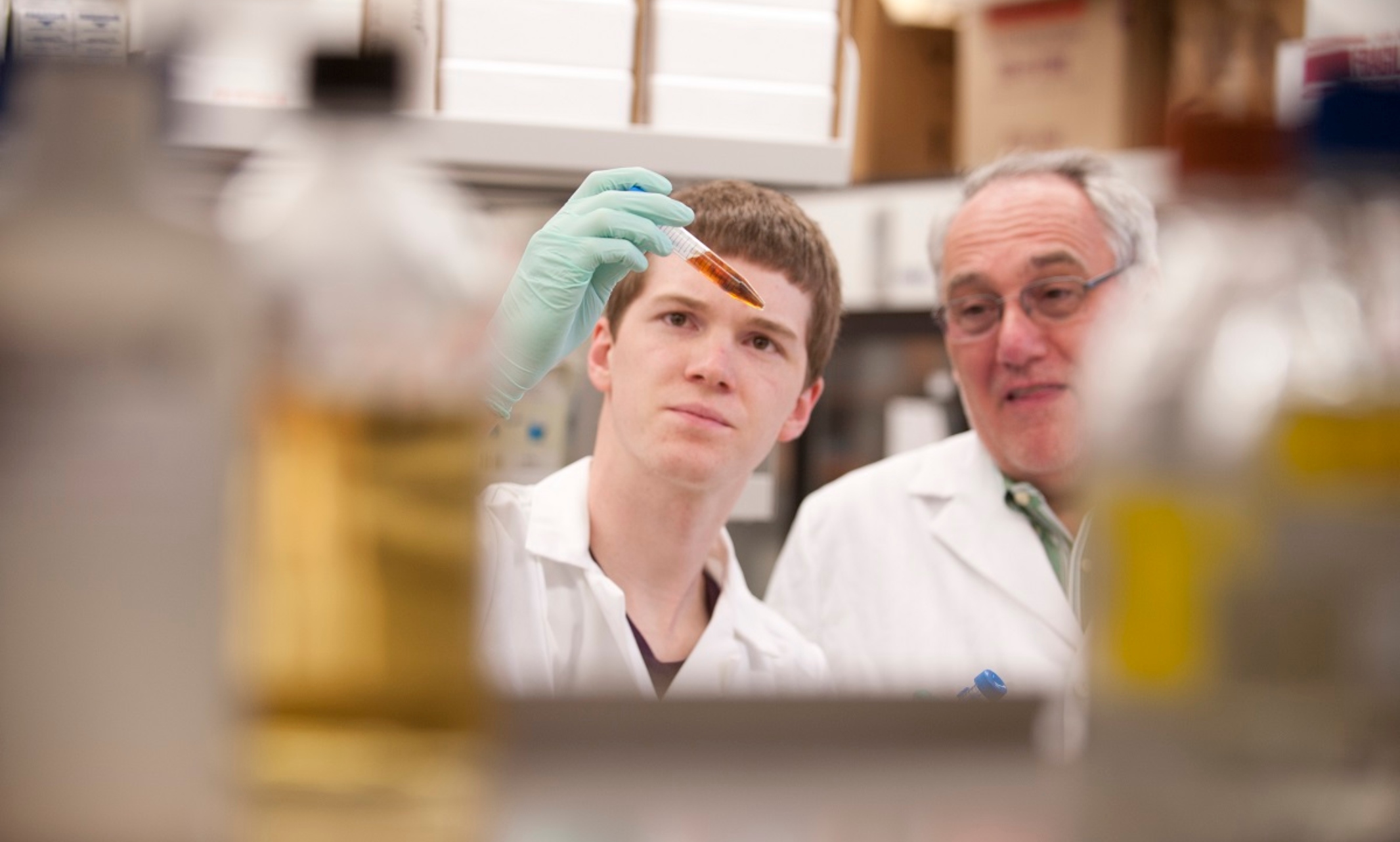
Saper Vedere provides opportunities for undergraduates
Bibie Chronwall, Ph.D., UMKC faculty emerita, has created an award in memory of her husband, Stephen J. Morris, and in honor of her uncle Al Osten to support undergraduate research in biology at UMKC.
The award is one component of the revived Saper Vedere Undergraduate Research Program at the School of Biological and Chemical Sciences (SBC). The program will provide second, third and fourth year students support for engaging in research with faculty and staff.
“Leonardo da Vinci referred to his visualization process as ‘saper vedere,’ or ‘knowing how to see,’” Theodore White, dean of the school of biological and chemical sciences, says. “That is the inspiration behind the Saper Vedere program. Many students see undergraduate research as a critical focal point of their academic training.”
Each year, students will be selected into the program based on academic achievement, including a GPA above 3.2. The students will participate in the biology seminar series, meet with visiting scholars and have informal lunches and formal gatherings of the Saper Vedere students and faculty. In addition, students will participate in the UMKC Health Sciences Student Research Summit and the Annual Symposium of Undergraduate Research and Creative Scholarship.
“These opportunities will provide undergraduates with hands-on experience as they prepare for graduate or professional training,” White says. “Outstanding programs and mentors abound at UMKC, providing students meaningful opportunities as they begin to sample possible career paths. These students will be encouraged to join their mentor in presenting their work at local, national or international scientific meetings, either as a poster or oral presentation.”
The school plans to award the first research awards in fall 2022 and expand the program over the next few years.
“We are grateful to Dr. Chronwall for her generous support,” White says. “The program and our students’ undergraduate experience will be benefit from this expanded research opportunity.”
For more information on making a donation to the Mr. Al Osten, Dr. Stephen J. Morris and Dr. Bibie M. Chronwall Scholarship to support undergraduate research, please contact Melissa Ford, director of major gifts by email or call 816-235-1277.
Donate to the Scholarship Today
Mar 14, 2022
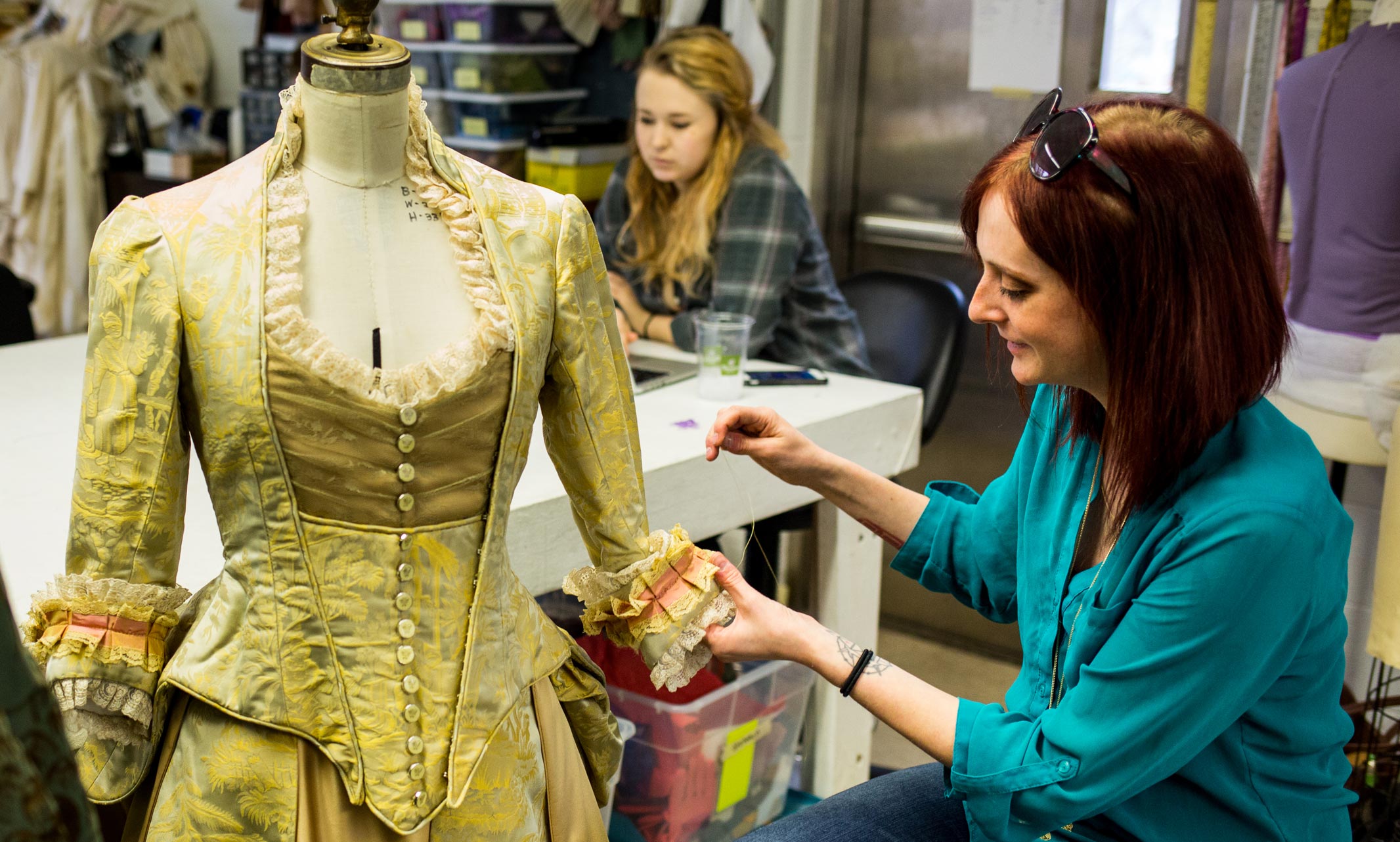
The program was ranked by The Hollywood Reporter
UMKC has been ranked among the top ten best programs for costume design according to The Hollywood Reporter.
"That UMKC Conservatory’s costume design program continues to be recognized nationally is no surprise to those of us who get to see the extraordinary work our students produce," said Andrew Granade, interim dean of the Conservatory. "Kansas City’s thriving theatre community combines with our outstanding faculty to produce an educational experience second to none, and I’m pleased the Hollywood Reporter recognizes our program’s excellence."
"Talk about well-rounded resumes. Students at UMKC are assured of graduating with a working knowledge of costume design's major construction areas (millinery tailoring, wig ventilation, mold making and casting)," the article said. "Third-year costume designers also benefit from an 'assist in New York' program creating costumes for the Kansas City Repertory Theatre while working in New York (or Chicago or L.A.)."
The Hollywood Reporter also cited the new Innovation Studio in the Robert W. Plaster Free Enterprise and Research Center as a benefit to students.
"Historically, we've been a very traditionally-based program and very successful," said Ken Martin, chair of the theatre division in the Conservatory. "As we move forward, one of the things we're looking to do is use the innovation studio to develop costumes in the 3D space and do costuming for gaming, immersive theatre and augmented reality, as well as use it for rendering techniques for theatre that are traditionally based."
UMKC was ranked among the UCLA School of Theater, NYU Tisch School of the Arts and the Fashion Institute of Design and Merchandising.
To see other schools on the list, click here.
Mar 14, 2022
The University of Missouri-Kansas City will be paid by the state to study if Missouri is failing to equitably employ minority-owned and women-owned...
As a part of the $500,000 study, UMKC will hold public meetings and invite firms, stakeholders and organizations to attend.
The first meeting is scheduled for March 16 at 10 a.m. in Jefferson City.
The UMKC team will be asking attendees to help identify barriers to earning state contracts. Previous studies cited several challenges, including late payments, bonding and insurance issues, harassment and retaliation.
Read more about the study here.
Mar 10, 2022
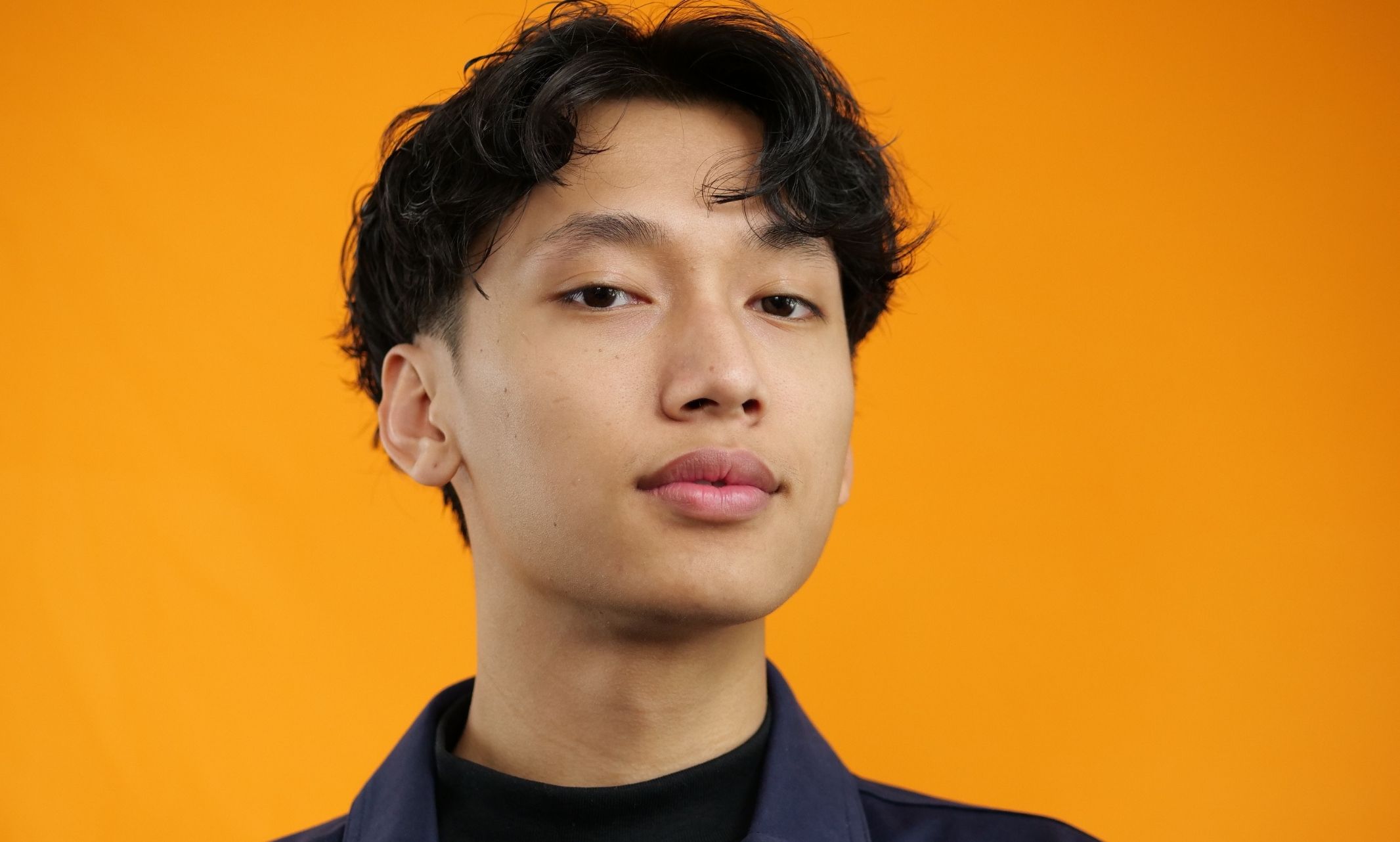
Hieu Bui is a national semi-finalist in the Kennedy Center American College Theatre Festival playwriting competition
Our ongoing story starts with people from around the world, converging here at UMKC. Get to know our people and you’ll know what UMKC is all about.
Hieu Bui is a writer, director and performer, and he chose to attend the UMKC Conservatory to help him hone those crafts. Bui says that his time here has given him the confidence and skills to succeed on his own terms.
“The most important thing I’ve learned at UMKC is that you must make your own work, especially if you aren’t given opportunities. Most plays and stories don’t have faces like mine, aesthetic like mine and cultures that are mine. I realized that no one else will write these aspects that are me,” he says.
Bui is already making a name for himself with an original work titled, “Blanket,” about siblings struggling to adjust to life in a new country after moving from Vietnam. Bui entered his play into the Kennedy Center American College Theatre Festival (KCACTF) national playwriting competition in the ten-minute play category. “Blanket” placed first regionally, is a national semi-finalist and was recognized for Outstanding Play. Approximately 70 ten-minute plays were entered in the regional festival.
Bui’s play is one of 16 semi-finalists nationwide. Of those, four will be selected to be performed at the national festival in April.
“The most important thing I’ve learned at UMKC is that you must make your own work, especially if you aren’t given opportunities."
In addition to writing “Blanket,” Bui directed and acted in the video reading for the competition. Bui’s friends and fellow UMKC students helped plan and direct the shoot, as well as acted in it. They did one reading over Zoom and filmed in Grant Hall on campus.
This is Bui’s second time entering the KCACTF. Last year, he was one of three finalists in the one-act play competition. Bui says this year’s work, “Blanket” was inspired by a reading in his playwriting class.
“Playwriting, acting and poetry are some of my favorite classes that I’ve taken. My professors’ passion for storytelling and their support gave me what I needed to build this play and enter the KCACTF. This is only the second competition I’ve entered my work in, but it won’t be the last.”
Mar 10, 2022
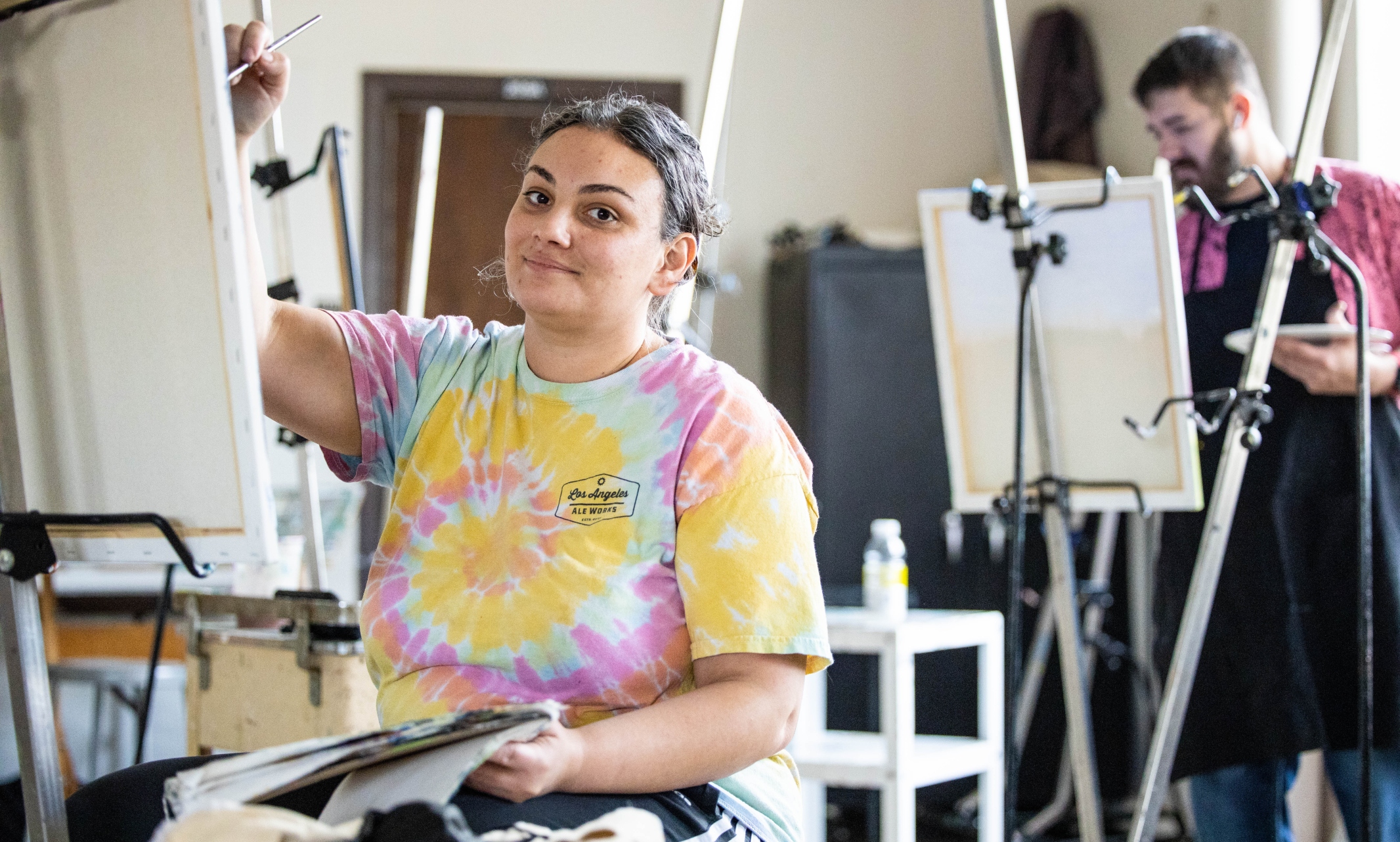
Lindsay Doyle is taking part in two unique UMKC programs to help turn her passion into a business
Lindsay Doyle is a senior studying studio art with an art entrepreneurship certificate. She is also in E-Scholars, a Henry W. Bloch School of Management program, which helps entrepreneurs turn their ideas into businesses. After graduation, Doyle plans to teach K-12 art and run her jewelry business. And here’s what she had to say about being a Roo.
Name: Lindsay DoyleAnticipated graduation year: Summer ‘22 UMKC degree program: Studio Art B.A., Art Entrepreneurship CertificateHometown: Torrance, CA
Why did you choose UMKC?
I moved here a year ago and I wanted to finish my degree, so I transferred to UMKC. I thought it was the best school in the area for me. The art program here is really great and the instructors are very knowledgeable.
Doyle receives feedback on her painting from a graduate assistant.
What have you enjoyed most about your experience at UMKC?
I like the support. Especially in the art department, I just feel very encouraged to pursue my passions.
What are the benefits of the program?
I like how the Bloch School of Management has an arts entrepreneurship program, which bridges the business side and the art side together so I can form a business. There’s a lot of opportunities here and there’s great leadership.
Doyle is starting an enameled jewelry business, with help from the E-Scholars program.
You mentioned you’re also in the E-Scholars program, do you want to start a business?
That’s what we’re doing right now-from start to finish. I’m starting an enameling jewelry business. It’s going to be mostly online, selling at makers fairs, stuff like that.
What does it mean to you to have support from professors?
It’s really encouraging and a confidence builder. It’s great to have someone steer you in a direction they think would be best for you.
Mar 10, 2022
Dr. Amy Patel talks with medicine website about outreach and more
Amy Patel, medical director of the Breast Care Center at Liberty Hospital and professor of radiology at the UMKC School of Medicine, sat down for an interview with Diagnostic Imagine about the aftereffects of delayed breast cancer screenings due to the COVID-19 pandemic.
Among topics discussed were keys for improving outreach to underserved communities, legislative wins and challenges and coalition building to educate and encourage women to resume regular breast cancer screening exams.
As we being to emerge from the shadows of the pandemic, significant challenges for radiologists are coming to light, Patel said. But there are also new opportunities to save lives.
The entire interview can be found here.
Mar 09, 2022
UMKC Professor and Chinese-American Chen Yi’s concert was called “very and rhythmic.”
Conservatory Professor Chen Yi’s concert series was highlighted by WHBF-DAV in Davenport, Iowa.
The station’s anchor called Yi, “a wonderful composer and her music is very vibrant." He went on to say, "You really hear her Chinese culture coming out through the performance, it's very beautiful.”
The complete segment can be found here.
Mar 09, 2022
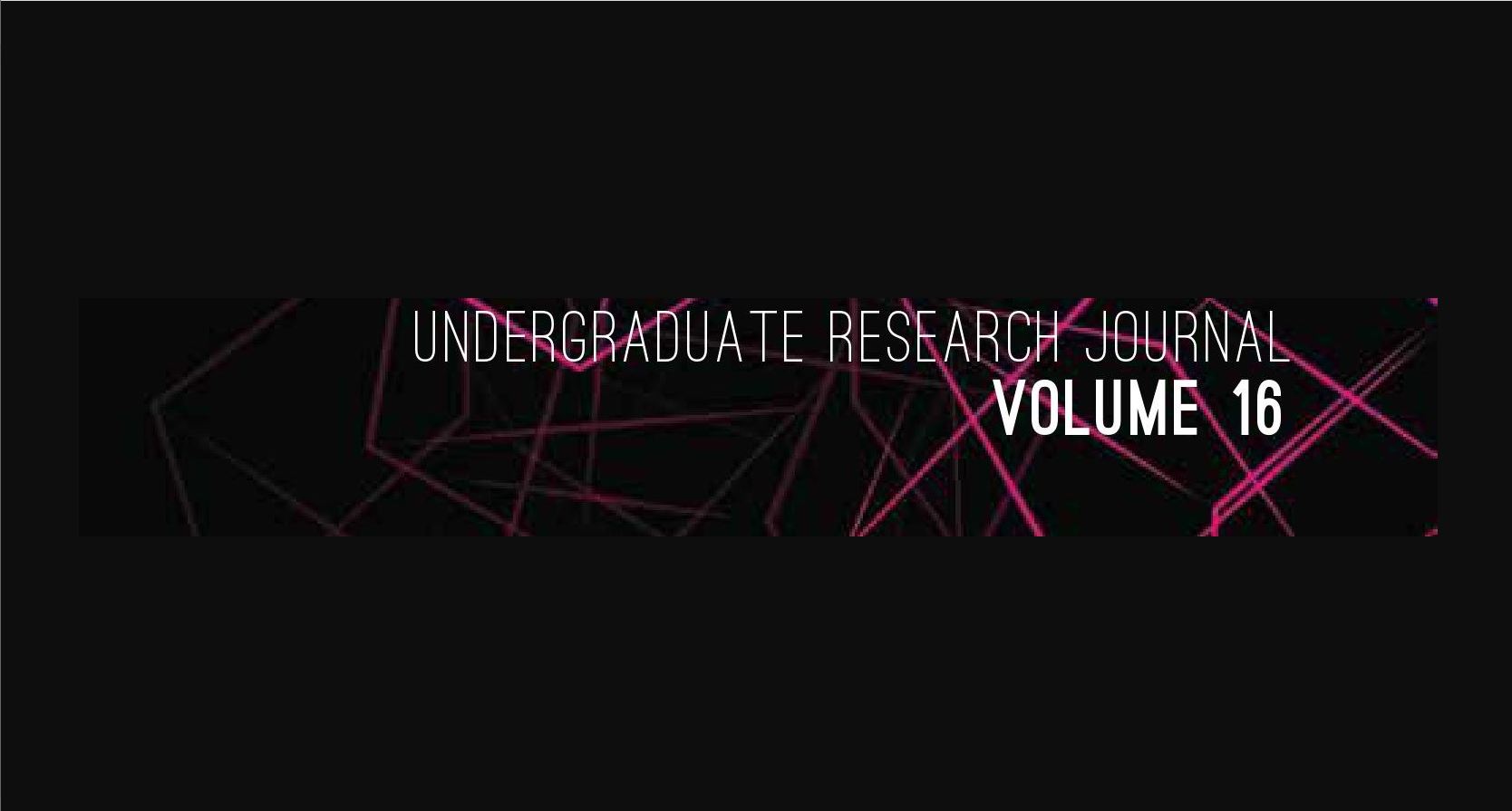
New issue of Lucerna is the 16th volume of the UMKC interdisciplinary research journal
The UMKC Honors Program celebrates the latest volume of Lucerna, featuring undergraduate research in the sciences and humanities.
Chancellor Mauli Agrawal and Gayle Levy, Ph.D., director, UMKC Honors Program, will celebrate the latest issue of Lucerna and the work of the students who submitted their research for publication during an online symposium March 17.
Lucerna, the UMKC interdisciplinary research journal produced by the Honors Program, accepts submissions from UMKC students enrolled in any program. Research from all disciplines is welcome, and previous issues have included original work from students in a variety of programs, including history, economics, engineering and dance.
Lee Francis, Lucerna editor-in-chief, sees value in research beyond knowledge itself.
“I think everyone should participate in undergraduate research because it can change the way that you consume information for the better,” Francis says. “The more someone reads and participates in academic research, the better they become at recognizing what makes a study and evidence more supportive of a theory than others.”
Lee Francis, Lucerna editor-in-chief
Beyond expanding a student’s knowledge, Francis notes that research provides students the opportunity to conduct interviews, determine what to ask and have the opportunity to engage with the people they interview.
“Digging deeper on a subject has the benefit of building the student’s knowledge, but it also allows the student to evaluate a variety of sources and work in a field that they have a passion for,” Francis says.
Anuhya Dayal, Lucerna managing editor, agrees with Francis on the value of the experience.
Anuhya Dayal, Lucerna managing editor
“Completing a research project gives insight into the heart of a problem and develops critical thinking skills that enable an in-depth analysis of a specific process and allows a student to think in many different directions to get to one destination,” Dayal says. “Then, in classwork or careers, they can apply this thinking to analyze the problem from multiple angles or solve a problem in different ways.”
Levy said undergraduate research gives students the opportunity to put their studies into practice.
“Not only does it allow them to finally be the creators of knowledge after years as consumers but engaging in research allows students to experience the joys and frustrations of coming up with questions and trying to answer them, deviating sometimes and then finding another path to new questions,” Levy says. “Undergraduate research allows students to begin their journey to changing the world through their hard work and creativity.”
Mar 09, 2022
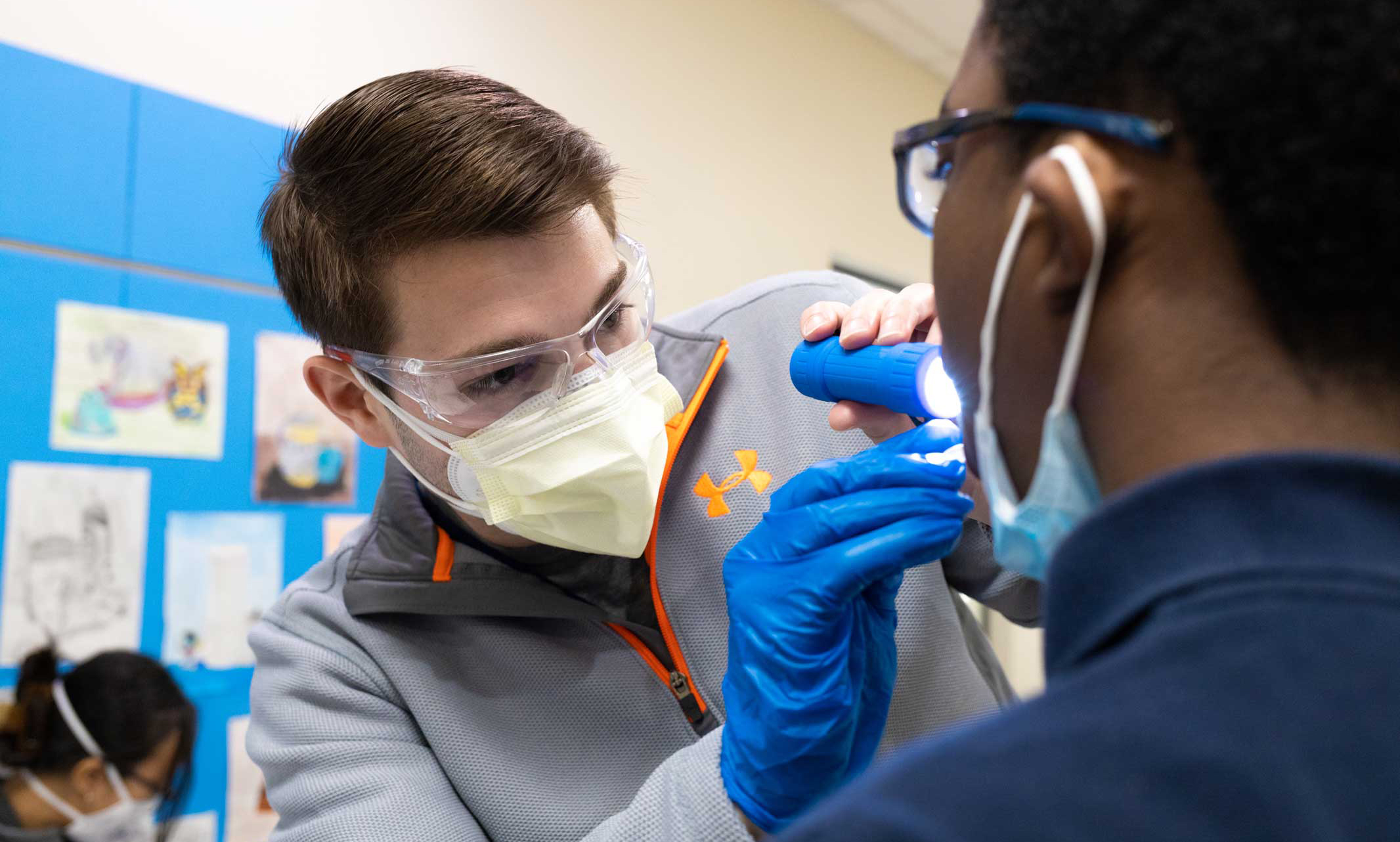
From kindergarteners to high school seniors, it was all smiles at University Academy
The UMKC School of Dentistry closed out February’s Children’s Dental Health Month strong, screening about 900 students at the University Academy, a Kansas City school serving K-12 students. More than 30 dental and hygiene students volunteered to provide care along with four faculty from the school.
The screenings are part of the lead up to reopening the dental clinic housed within University Academy. Opened in 2012, the dental clinic was temporarily shut down due to the pandemic. School of Dentistry faculty and students that provide care at the clinic say they are looking forward to reopening the clinic. Hayley Ferris, an instructor who works with dental hygiene students in the clinic, said the screening event played a critical role in the getting the clinic up and running again.
“This all-school screening will give us a baseline of where the population sits right now,” she said. “That way, we have an idea of what the needs are for these students before we go in with our preventative care.”
Dental hygiene instructor Hayley Ferris
Dr. Megan Wendland, associate professor in the Department of Dental Public Health and Behavioral Science at the UMKC School of Dentistry, said additional funding from the state of Missouri was critical to the reopening of the dental clinic at University Academy.
“Our department is all about preventative care and preventing dental caries (cavities),” Wendland said. “The state had funding from the CDC to promote dental sealant programs and they said they would absolutely help with this.”
Ferris is returning to UMKC within the public health department to help manage the University Academy clinic. She helped established a similar clinic in the Olathe, Kansas, School District with Dr. Melanie Simmer-Beck, a professor and chair of the department. That program ran from 2007-2014.
The clinic at the University Academy is part of the dental school’s mission to provide health care in-house to students attending the school. UMKC will provide the oral health care in partnership with Children’s Mercy Kansas City, which manages the health clinic within the school. The dental clinic will be staffed by a UMKC dental hygienist and hygiene students who will provide preventive care, assessments, cleanings, fluoride, varnish and sealants.
“Right now, tooth decay is the number one childhood illness that causes kids to miss school,” Ferris said. “It’s extremely important that they have these resources available right there in the building so parents don’t have to take time off of work and kids don’t have to take time off from school.”
The experience is also beneficial to the participating third-year dental students, exposing them to a population they don’t get as much experience with, at least not 900 children at once.
“This is a great opportunity for them to see children in that mixed phase of having both permanent and primary teeth,” Ferris said. “And with pandemic restrictions, there aren’t as many of these outreach opportunities available to them so we filled up our sign ups in a matter of minutes.”
Children’s Dental Health Month is an initiative by the American Dental Association that promotes the importance of good oral health to children, their teachers and parents. The emphasis for this year’s campaign was on dental sealants for children. That is a welcomed focus for Wendland.
Wendland’s research focuses on disparities in health care and improving health outcomes in diverse populations. Sealants are an area she and the school focus on as a first line-of-defense in achieving those improved oral health outcomes. Sealants consist of a thin plastic coating that is placed on the back teeth, where a majority of cavities form. Wendland the sealants can prevent 80 percent of cavities.
“At University Academy, as well as our mobile clinic at Gladstone Elementary, we’re part of a big push to raise the national average for sealants,” said Wendland. “That average nationally is about 37 percent with the goal to push it above 40 percent. However, Missouri is at about 19 percent, which is obviously far and away from where we want to be.”
Wendland came to UMKC from Chicago where she was a clinician at a Federally Qualified Health Center. While there she experienced the scope of what a fully comprehensive program is capable of. The Chicago Department of Public Health partnered with the public school district to provide a universal sealant program to all K-12 schools.
“That program would see more than 120,000 kids a year,” Wendland said. “Currently, there isn’t anyone doing that kind of broad sealant program in Kansas City but having come from that model, ideally that’s what I would want to see.”
Assessing 900 children at the University Academy was a good start.
Mar 04, 2022
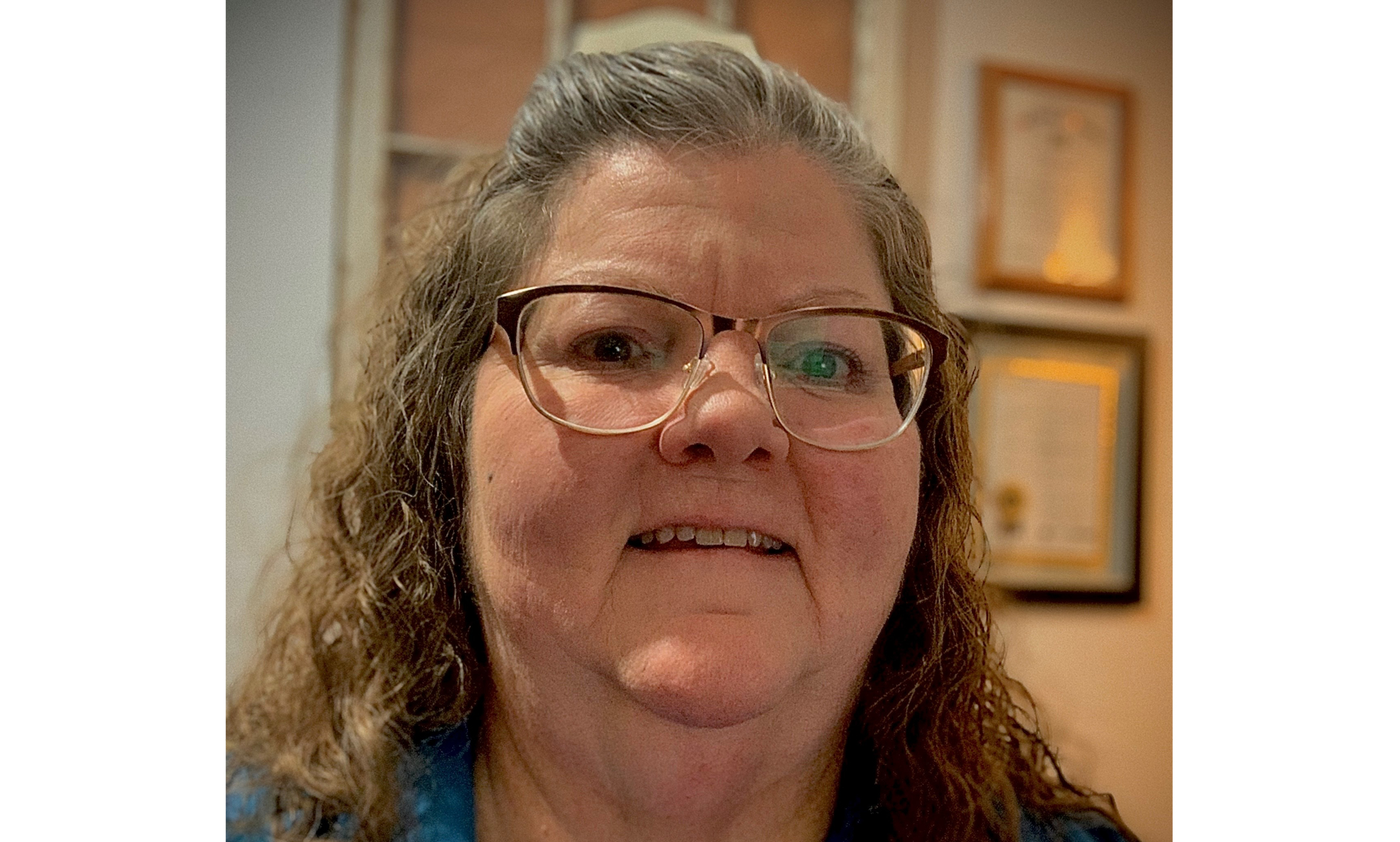
Leslie Luke receives School of Nursing and Health Studies Alumni Achievement Award
Each year, the UMKC Alumni Association recognizes the achievements of outstanding alumni with an awards celebration. The UMKC School of Nursing and Health Studies is honoring Leslie Luke (M.S.N. ’00) with its Class of 2022 Alumni Achievement Award.
For Leslie Luke (M.S.N. ’00), independence, family, rural health care and getting to know her patients have been the driving forces behind her unique health care career.
You’ve forged your own way in nursing opening your own practice, what drove you down this unique path?
I was inspired to form my own practice, the Care Clinic in Maryville, Missouri, after several years working as a nurse in hospital settings and private clinics. I earned a master’s degree in the UMKC Family Nurse Practitioner program, which helped provide me with the breadth of experience needed to run a comprehensive clinic.
Through the Care Clinic, I’m able to provide a wide variety of services to the rural community. I treat infants to seniors for any number of health care concerns from diagnosing sore throats and ear infections to anti-aging and nutrition options.
Your practice is in rural northwest Missouri, why was it important for you to provide more health care options to that area?
It was important for me to provide my rural community with an independent health care option outside of the larger group networks that were available. In a rural area, you need to be able to see anyone that walks in the door. I wanted to bring that option to patients in my area.
It’s the closeness I have with my patients that makes rural health care unique for me. You really get to know the patients, their families and lifestyle.
What are your proudest accomplishments and what challenges have you encountered along the way?
The longevity of the Care Clinic is one of my proudest accomplishments as a practitioner, with the clinic going on 15 years providing care to the Maryville community. I also appreciate being my own boss, but that didn’t come without its challenges.
My greatest challenge was learning the business side of things. But my greatest reward was the flexibility to stay involved in many of my children’s activities.
What words of advice would you provide other nursing students interested in following your path?
If you have an independent spirt and may want to branch out on your own as well, make the most of your education. Make sure to take some business classes and get a wide variety of nursing experience.
I enjoyed the flexibility of the online aspect of the program but it was also very meaningful when we were able to come to campus once each semester. That was one of my fondest memories about my time at UMKC. I loved meeting all the other FNP students with our in-person classes.
About Alumni Awards
Join us in honoring Luke and the other Class of 2022 awardees at an in-person celebration at 6 p.m. April 29, at the James C. Olson Performing Arts Center. To register, visit UMKC's Alumni Association website. If you are unable to attend the event but would like to donate to student scholarships, contributions can be made online.
Mar 03, 2022
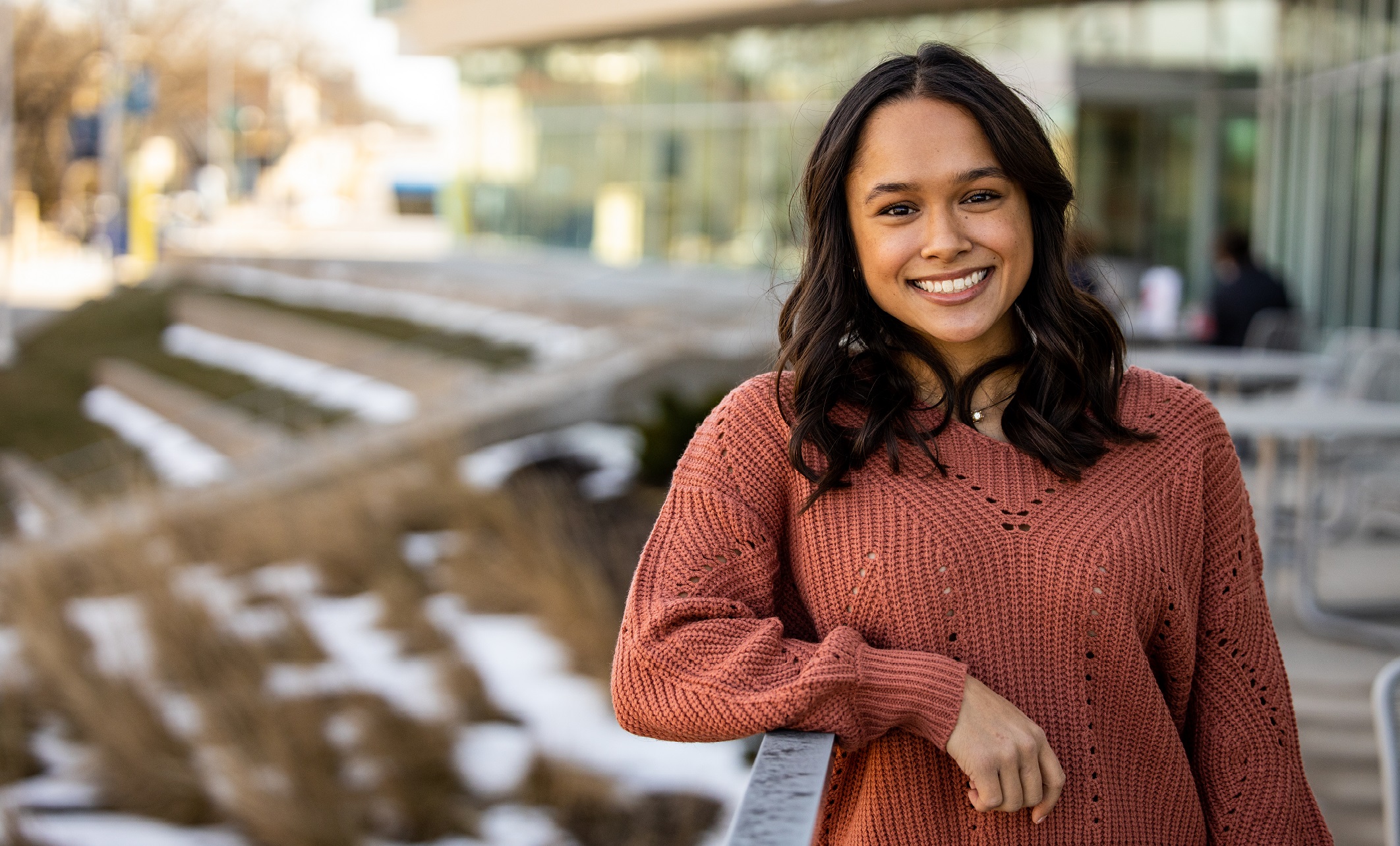
Student organization offers community and support
Roos don’t just dream, they do. Our students turn ideas into action every day. Get to know our people and you’ll know what UMKC is all about.
Izzy DaabAnticipated graduation year: 2023UMKC degree program: B.S. biology, pre-medical emphasis, Honors ProgramHometown: St. Charles, MO
Pre-med Society president Izzy Daab has her sights set on becoming an orthopedic surgeon. As a former athlete – competing in basketball and cross country in high school – she has had a lot of experience in orthopedic medicine from the patient’s perspective. Someday she’d like to work with athletes and inspire patients to take care of their bodies as her doctors took care of her.
Izzy Daab, center with Pre-med Society members Toluwa Balogun, Madi Sweeney, Sonya Ahmad and Diego Silva
Daab’s main objective as Pre-Medical Society’s president is to grow a strong connection with the community and build a solid support system that will help all of the members achieve their individual goals. Outside of studying and helping run the chapter, Daab enjoys exploring Kansas City and enjoying all the city has to offer.
Why did you choose UMKC?
I chose UMKC because I knew the programs, faculty and students would challenge me to grow as a person and prepare me for my journey following graduation. Additionally, I was immediately attracted to the campus location. Living in Kansas City has enriched my college career with new experiences and opportunities in all aspects of my life.
What are the challenges and benefits of the program?
Being a pre-medical student requires a lot of hard work, time and dedication. The biggest challenge I have encountered is finding a balance. It is so important to take care of yourself and to experience life outside of studying.
The UMKC faculty does a great job ensuring you are ready to succeed in post-graduate studies and in your career. I have developed amazing relationships with faculty on campus and believe these have largely contributed to my success at UMKC.
Since entering college, what have you learned about yourself?
I have learned that staying true to myself is the best thing I can do as I navigate college and all it has to offer. UMKC has allowed me to push myself beyond my limits and outside of my comfort zone. I’ve learned that I am capable of more than I have ever imagined. The most important thing I have learned is that through everything college will throw at you, staying true to yourself and your aspirations will get you far in life.
How did you get involved in the Pre-Med Society?
I got involved in Pre-Med Society as a freshman. I was looking for a group where I could meet pre-medical students just like me, and Pre-Medical Society was a perfect place to start. After being a general member for my freshman year, I served as the medical school liaison for my sophomore year, and then was elected to be president for this current school year.
What have the benefits been?
The top benefit has definitely been meeting all of these amazing people. I’ve met most of my closest friends through Pre-Medical Society. As someone who has been a part of the group through COVID-19 and in-person, I’ve had the opportunity to help rebuild the pre-medical community and strengthen my ties to UMKC.
What are the meetings like?
We focus on providing a strong foundation of support for pre-medical students on campus. We provide knowledge and advice to students by bringing in physicians and speakers from the healthcare field who can share their wisdom and experiences with us.
What are your individual goals?
I hope to attend medical school following graduation and become an orthopedic surgeon. I have always been inspired by the sports medicine field, especially as a retired athlete who has a lot of experience being on the patient side of sports medicine. So, I hope to someday be an orthopedic surgeon that can primarily work with athletes and inspire patients to take care of and heal their body like my own doctors did for me.
What is one word that best describes you and why?
Tenacious. I have always been the type of person who never stops working hard until I reach my goals. My determination and grit have always made me who I am. I do not give up until I accomplish what I am pursuing.
Mar 02, 2022
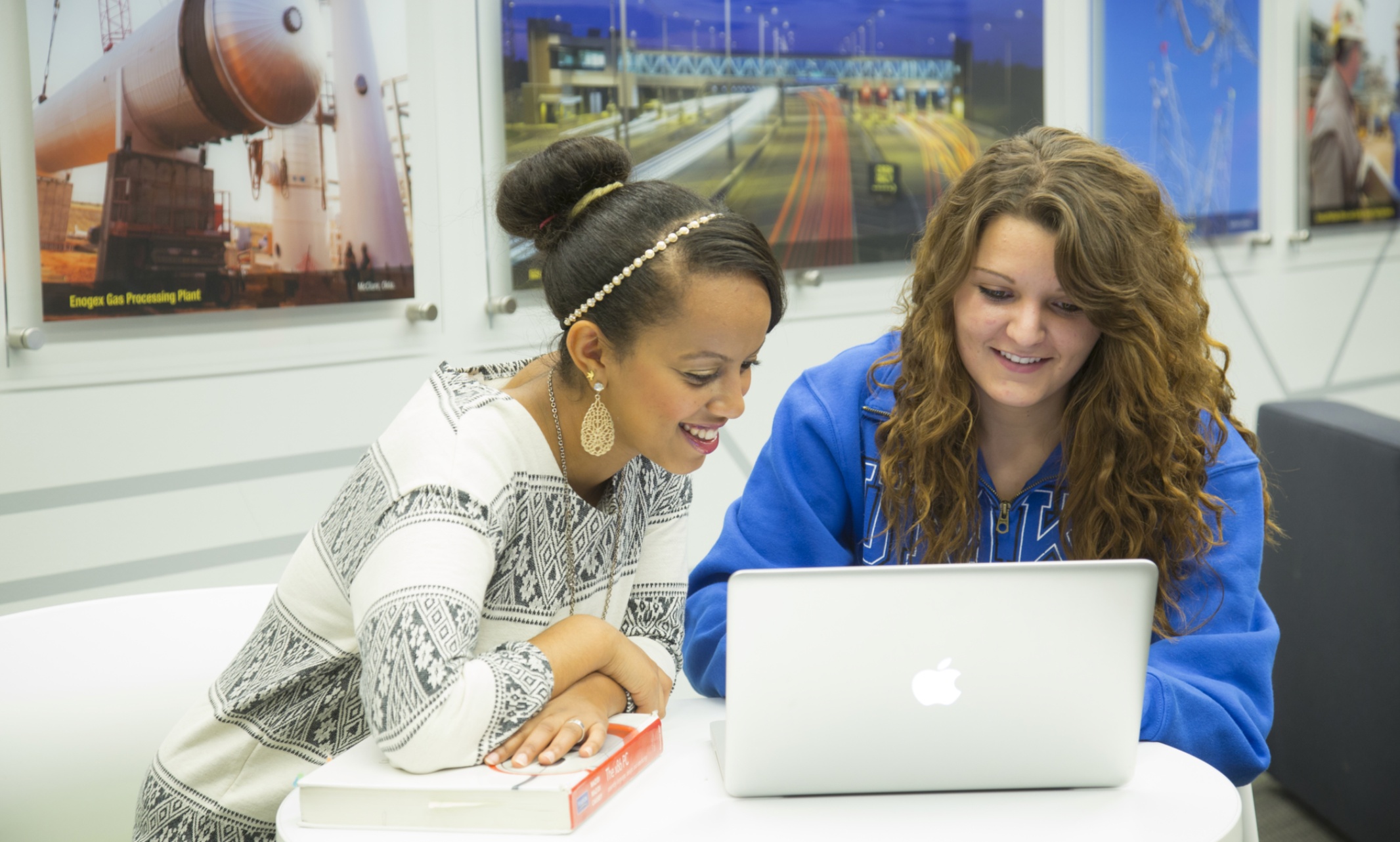
Tuition reimbursement benefit now available in Kansas City area at UMKC
The University of Missouri-Kansas City is partnering with Amazon to offer the company's hourly employees full tuition through Amazon’s Career Choice education program.
The program provides full tuition and course fees for Amazon employees who enroll in degree programs or industry certification programs designed to lead to in-demand jobs.
Amazon employees began enrolling at UMKC in January. The company has several thousand hourly employees within a 100-mile radius of UMKC who are eligible to participate. First step is to visit this page to find easy step-by-step instructions and sign up for contact with an admissions counselor.
This makes the Career Choice program available in the Kansas City area for the first time for in-person classes at an accredited university. UMKC also offers online options. The company launched the benefit program in 2012 and it is available to employees in 14 countries. According to Amazon, more than 50,000 employees around the world have participated since inception, and more than half of Amazon Career Choice participants identify as Black, Hispanic or Native American.
“We are excited and proud to partner with Amazon to help their employees build a better future,” said Jennifer Lundgren, Ph.D., UMKC provost and executive vice chancellor. “Tuition reimbursement benefits are a highly effective path to upward financial mobility and participating in such programs is integral to our mission as a public university.”
UMKC offers more than 125 degree programs and has extensive experience in serving non-traditional students (other than recent high school graduates enrolled full-time).
“We’re looking forward to UMKC coming on board as an education partner for Career Choice, adding to the hundreds of best-in-class offerings available to our employees,” said Tammy Thiemann, global program lead of Amazon’s Career Choice program. “We’re committed to empowering our employees by providing them access to the education and training they need to grow their careers, whether that’s with us or elsewhere. We have intentionally cultivated a partner network of third-party educators and employers committed to providing excellent education, job placement resources, and continuous improvements to the experience. Today, more than 50,000 Amazon employees around the world have already participated in Career Choice and we’ve seen first-hand how it can transform their lives.”
Learn more about Amazon Career Choice at UMKC
Mar 02, 2022
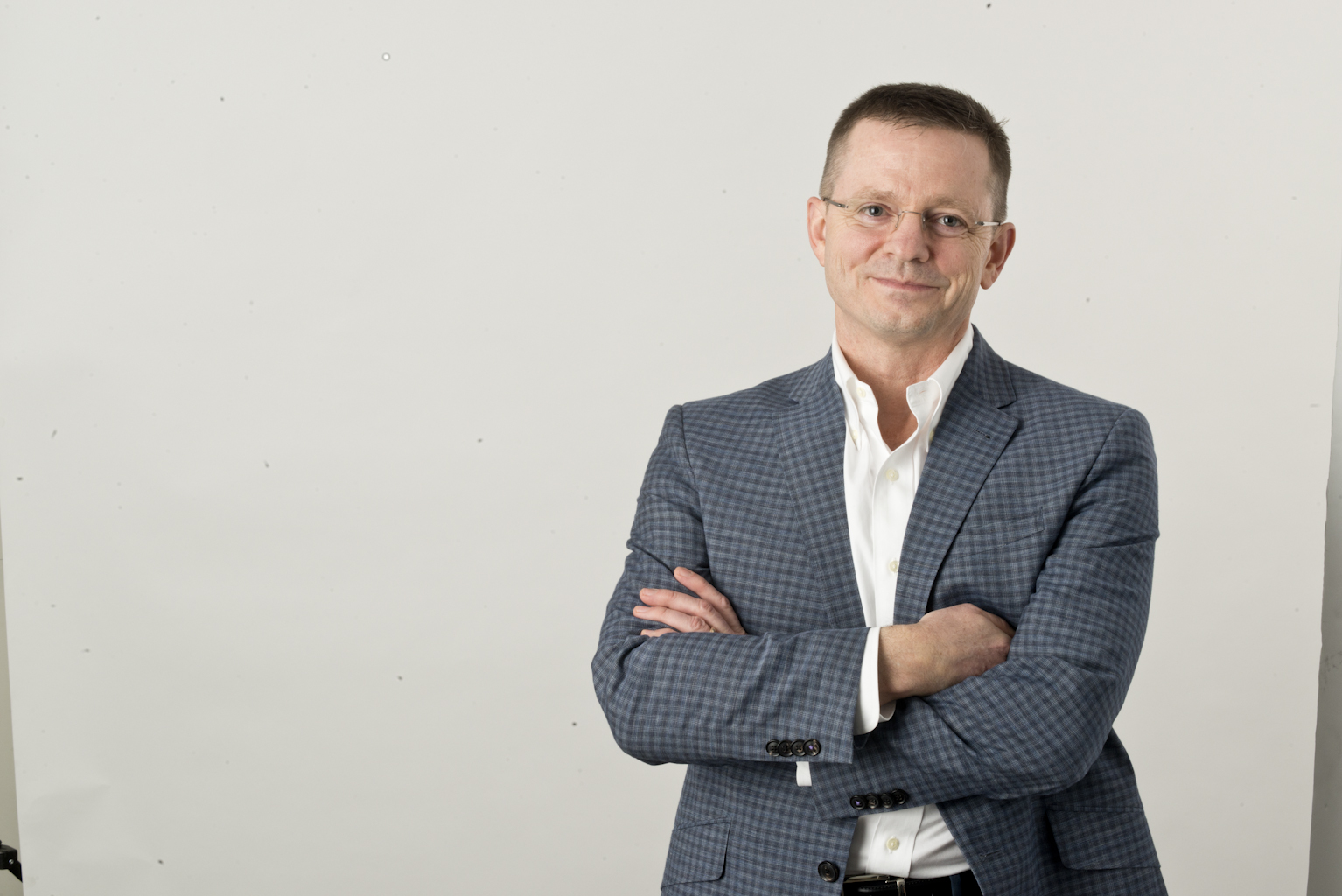
School of Biological and Chemical Sciences selects Joseph Lambing (Ph.D., '90) to receive 2022 Alumni Award
Each year, the UMKC Alumni Association recognizes the achievements of outstanding alumni with an awards celebration. The School of Biological and Chemical Sciences is honoring Joseph Lambing (Ph.D. ‘90) with its Class of 2022 Alumni Achievement Award.
Joseph Lambing, Ph.D. worked for 30 years in the biotechnology and pharmaceutical industry, primarily focused on cardiovascular disease.
During his extensive career, he guided numerous drug discovery programs from early leads through clinical development and contributed to multiple investigational new drug and new drug applications for more than a dozen new chemical entities. Lambing is the author of several patents and publications and was involved in building multiple successful biotechnology companies.
He recently retired from Bristol Myers Squibb, formerly MyoKardia, where he was the Senior Vice President of Nonclinical and Pharmaceutical Development.
What inspired you to work in your field?
I was interested in life sciences early in my undergraduate chemistry years, but I ended up in the biotechnology/pharmaceutical business by serendipity. After my post-doc at UCSD, I took a job in a small custom peptides company applying the skills I learned at UMKC and UCSD.
After a few years, I was recruited to a company called COR Therapeutics in San Francisco. This turned out to be a good fit for me and it really set me on the path of working in cardiovascular drug discovery and connected me with the professionals that I would continue to work with at different companies throughout my career.
Tell me about one of your favorite or most interesting work projects.
Two projects come to mind. One is the work we did on Mavacamten at MyoKardia. That is a drug developed for patients with hypertrophic cardiomyopathy. Until Mavacamten, these patients had no drugs developed specifically to treat their disease. After a trial, it was found both safe and highly effective, making a real breakthrough for these patients.
The second is my work at Portola Pharmaceuticals on Andexanet Alpha, a modified form of Factor Xa that is an antidote for small molecule anticoagulants and is used when patients have life-threatening bleeding complications. This was a very unusual and challenging project that has now been approved and helped save many lives.
What is your proudest accomplishment?
My marriage to Rebecca, who I met during my time at UMKC, and our two beautiful children who have grown up to be an engineering and a neuroscientist.
What advice do you have for students who’d like to follow in your footsteps?
Find an area you are passionate about pursuing. For me, working in pharmaceuticals gave me a purpose because I always felt like I was working for patients. It’s also important to surround yourself with intelligent and passionate people that you enjoy working with.
About the Alumni Awards
Join us in honoring Lambing and other Class of 2022 awardees at an in-person celebration at 6 p.m. April 29, at the James C. Olson Performing Arts Center. To register, visit UMKC's Alumni Association website. If you are unable to attend the event but would like to donate to student scholarships, contributions can be made online.
Mar 01, 2022
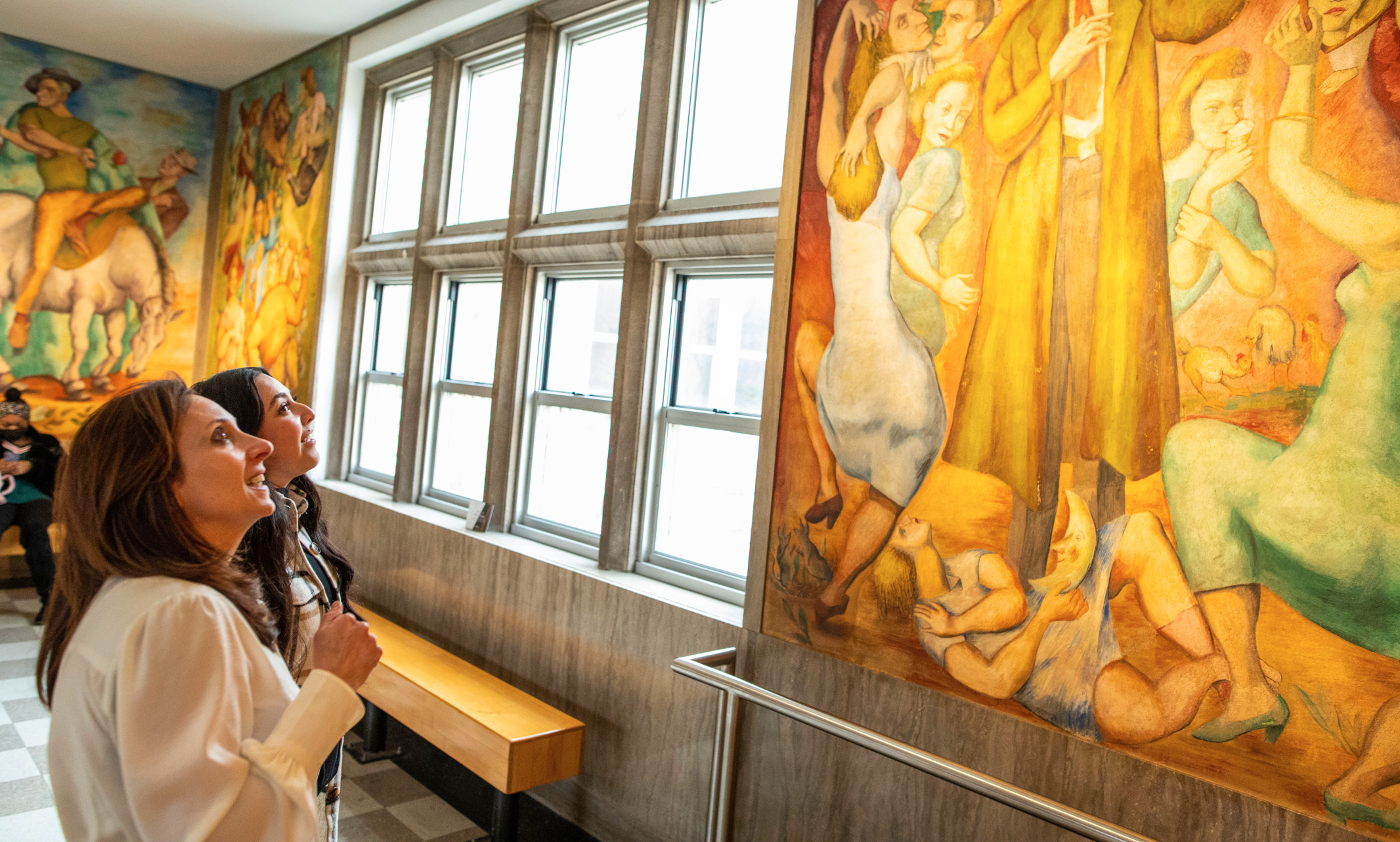
Dynamic Duo explores historic art fixture in the heart of UMKC campus
The heart of UMKC is our campus community. With lots of research opportunities, it’s easy to develop mentorship teams. And these rich relationships—our Dynamic Duos—are some of our best success stories.
UMKC senior Victoria Dominguez is roughly three months away from her college graduation. But instead of coasting to the finish line, she’s knee deep in a research project that will have lasting impact at UMKC.
“The murals in Haag Hall are really fascinating and not a lot of students I’ve talked to are aware that they’re here on campus,” Dominguez explained.
The mural, located on the second floor of Haag Hall, was painted by Spanish artist Luis Quintanilla in 1941. Quintanilla came to the forerunner of UMKC, the University of Kansas City (UKC) in 1940 to serve as its first artist-in-residence at the invitation of UKC President Clarence Decker.
“Part of my research focuses on how Dr. Decker broadened the academic scope of the university by bringing in displaced scholars like Quintanilla,” said Dominguez.
There’s much more historical significance to these paintings than a casual glance reveals. Viviana Grieco, PhD., professor of History, had worked with Dominguez on a separate research project, and presented her with the opportunity to do an independent research project related to the murals. Dominguez was immediately intrigued, and the mentor relationship deepened.
Victoria Dominguez
“To me as a historian, the most interesting part is that President Decker was able to position this young and unknown university at the level of more prominent universities that were applying for aid through the Rockefeller Foundation, to bring in displaced scholars and scientists. This was during the depression and the university was only five years old at the time, so it was very impressive to get an artist of that caliber here. It was a huge win that deserves recognition,” said Grieco.
The mural was painted to reflect the theme, “Don Quixote in the Modern World.” It features many people and animals, but up until now, the identities of those depicted in the mural remain unknown.
Victoria says she’s spent hours combing through various sources, with the help of Grieco, in hopes of identifying the people in the mural. She’s used university archives, old yearbooks, viewed a number of special collections, consulted the Rockefeller Foundation archives and the New York Public library to get information.
“The mural includes illustrations of Dr. Decker and his wife, Luis Quintanilla and his whole family, Alexander Cappon who was part of the UKC English Department. It features staff members, professors and students. They’re all depicted in different images across the murals,” Dominguez explained.
Dominguez says she loves the spark that comes with each new identification and deeply appreciates the guidance and mentorship she’s received from Grieco throughout this process.
“Not only is Dr. Grieco inspiring, but she pushes me to my full potential. I don’t think I would have done any of this research work if it wasn’t for her. She has helped push me past my comfort zone and challenged me to think more deeply about topics. This research opportunity has really enhanced my university experience,” said Dominguez.
Grieco has been equally inspired by the fascinating project.
“We’re having fun. When we discover something new or a new detail that fits into the bigger picture of our research, we get excited. I enjoy getting immersed into her project and helping guide her.”
The pair has built a strong bond through working together on this project and they’ve noticed a few similarities between their work and the work of the muralist they’re studying.
Viviana Grieco, Ph.D.
“Our mentor/mentee experience parallels that of Quintanilla and UKC’s students. Despite not speaking fluent, English Quintanilla was able to connect with the students on campus and work with them as subjects for his mural. Still today it remains true that these unique mentorship and student engagement opportunities can help students take the most out of their university experience,” said Grieco.
Dominguez urges anyone considering research to take a chance and connect with a mentor who can serve as your guide.
“It’s one of the best experiences and opportunities I’ve had during my time here at UMKC. If you are offered a research opportunity, just take it because it’s vastly different from other coursework and research is a unique opportunity that could help you find passion and figure out what you want to do after college.”
She plans to present her research findings during Undergraduate Research Day at the Capitol in Jefferson City this spring. Dominguez hopes this project brings renewed attention and respect to this campus gem.
“The interest in these murals and the artist has faded and I really hope my research helps shed more light on both, because the artist’s work is a huge part of our university and I think a lot of students should know more about it.”
Mar 01, 2022
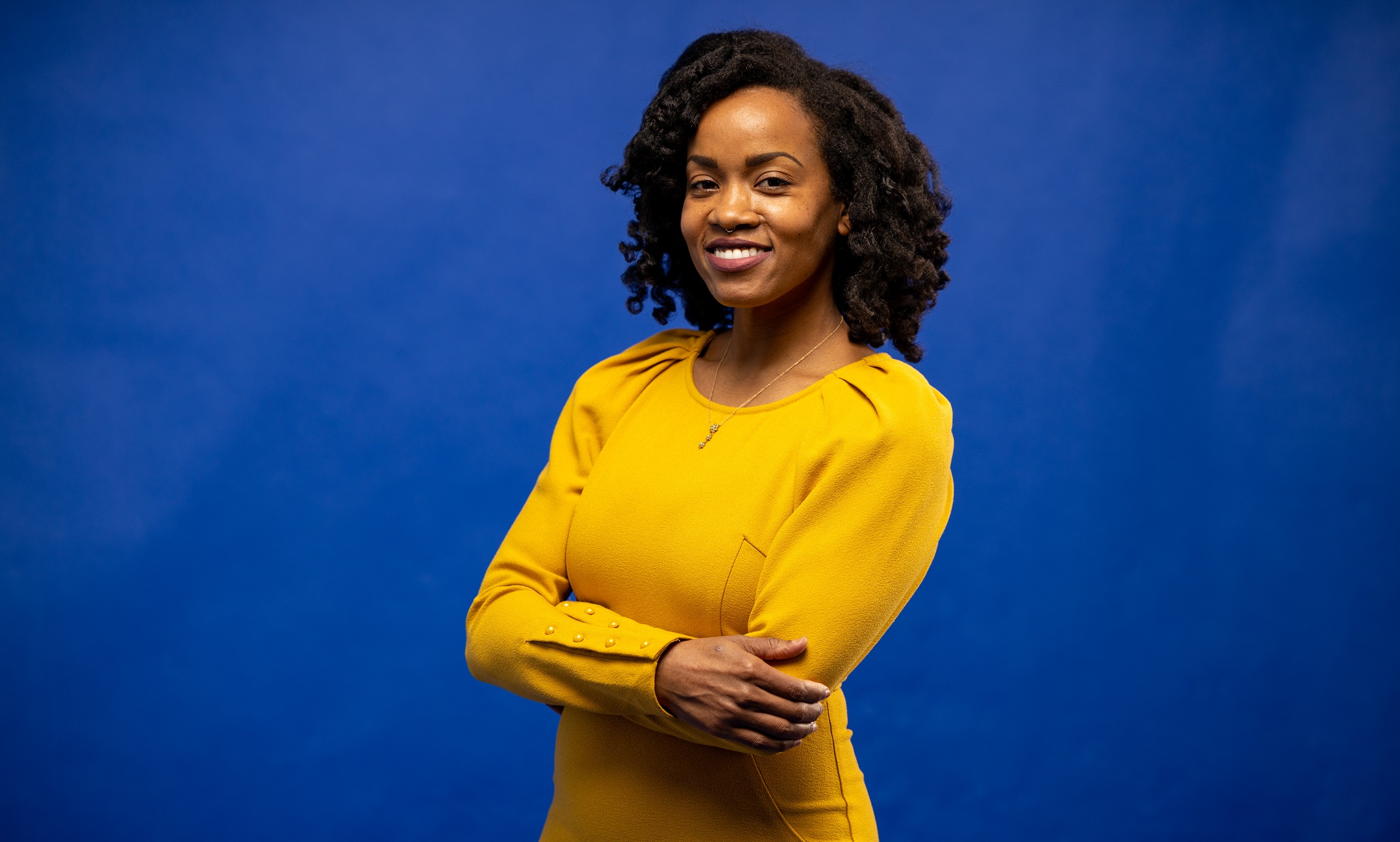
Aishah Augusta-Parham, Ph.D., receives start-up funding for new digital tool, SEPOW
During the summer of 2016 as Aishah Augusta-Parham, Ph.D. studied counseling and psychology, she experienced instances of prejudice in some of the businesses she frequented.
Despite a broader social awareness around equity, her personal experiences were proof that some systems that had not changed.
“I began realizing that as a psychologist, I could help individuals by targeting their specific symptoms, but when they left my office, I wouldn’t be able to impact those systems.”
Augusta-Parham, Ph.D. (B.A. '06, B.A. '08) decided that in order to be truly effective, she needed to target the systems as well as the undesirable experiences those systems were creating for some people. That is how SEPOW was born.
“SEPOW is the Yelp for diversity, equity and inclusion,” she says. “In the same way Yelp allows its users to rate their experiences, SEPOW will enable employees to rate their experiences at a business or company in relation to race, ethnicity, gender identity and expression, religion and sexual orientation – all on the app.”
Organizations will be able to see their ratings and select customized solutions that SEPOW can provide to address the specific experiences of their employees.
“Organizations will have real-time feedback on their multicultural initiatives, and see specifically what's working and what’s not working,” Augusta-Parham says. “They can have accurate information on race-related stress and how it’s impacting performance, morale and engagement with coworkers and employees.”
Augusta-Parham received support from Digital Sandbox, which provides start-ups with feedback and funding to accelerate their businesses. She says this has been instrumental to SEPOW’s growth and development.
“Now organizations will have real-time feedback on their multicultural initiatives. They can see specifically what's working and what’s not working.” — Aishah Augusta-Parham
“It’s really important for a founder to get out to the market as quickly as possible to accelerate towards commercialization,” Augusta-Parham says
Through networking, Augusta-Parham connected with an effective mentor. When she reached out to Bryan Shannon (B.A. ’04), who is an entrepreneur, he was impressed by her commitment and domain experience. He realized she was up to the challenge of getting her start up-to market.
“Aishah is the type of individual who looks for a pathway forward,” Shannon says. “SEPOW is attempting to fill a void that exists in a very sizable market.”
Augusta-Parham is working hard now, but she has even bigger plans for the future.
“Five years from now I want SEPOW to be the hallmark for diversity, equity and inclusion,” she says. “My goal is for employees to feel heard, supported and empowered, and for organizations to have the resources to help them move the needle on multicultural initiatives. ”
Start-up funding has been critical to her launch.
“Without Digital Sandbox, I wouldn't have this opportunity to move as quickly as I possibly can and get off the ground.”
Feb 25, 2022
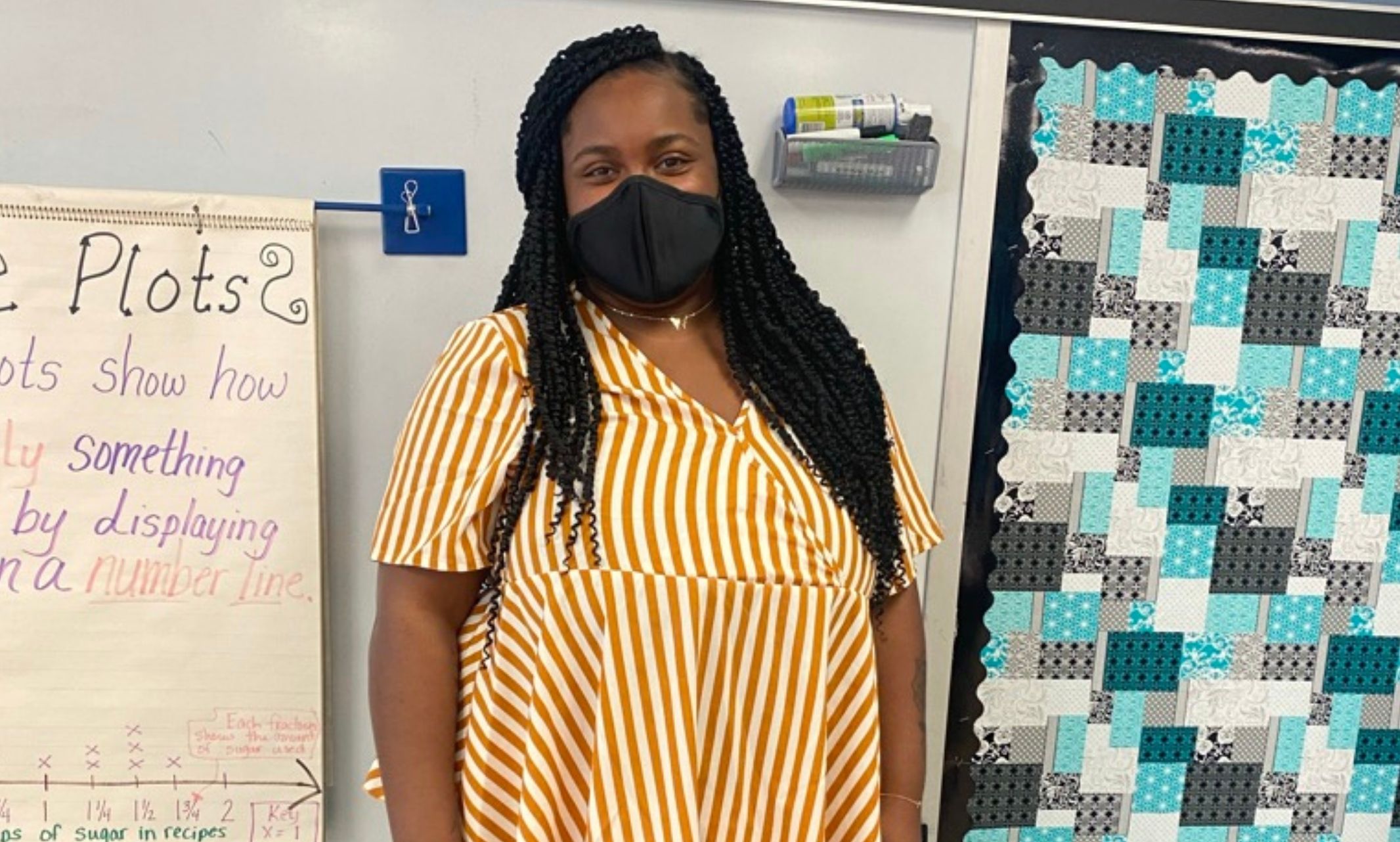
Student-teachers learn how to manage their own classrooms, even in a pandemic
Student-teaching is the final year of school for education students, and it’s filled with challenges and new experiences. How does a global pandemic factor in?
We spoke with three UMKC students who are student-teaching in greater Kansas City about how they’ve made the transition from student to teacher.
Where are you currently student teaching?
Lea Johnson: I am at East High School in the Kansas City Public School District (KCPS).
LeXaibriar (Xai) Brooks: I am currently student teaching in the KCPS School District at J.A. Rogers Elementary School.
Zane Green: I am student teaching in the Guadalupe Center Charter School, specifically the high school (GCHS).
Why did you decide to become a teacher?
Johnson: Our communities and students have complex cultural identities, which aren’t always served well. I want to develop the identities of my students and myself and work together to ensure that all young people receive the same quality of education, resources and opportunities so that they may pursue their dreams.
Brooks: I always knew I wanted to be a teacher. I was very active in church, and I would sometimes tutor. I was always helping someone write a paper or looking over their work. I liked being able to help and use my knowledge for something good. I also learned firsthand how one good teacher can change the course of a life, and that’s who I wanted to be.
Green: I will be a third-generation teacher. My mother taught home economics in Grandview and Parkville South. Her father, my grandfather, taught middle school math in a small town in Southwest Iowa. I would like to teach high school civics and speech and debate. I had an amazing civics teacher who was awesome and always did his best to make lessons fun; it was obvious that he cared deeply about his students and the topics.
What is your favorite subject to teach?
Johnson: I have always had an innate desire to create and express myself through art. It enables me to understand and make sense of the world around me, and I’ve always wanted to find a spot to help others empower themselves through creativity. Education is my landing spot. The classroom is a special place that can teach students essential life skills, but it is also a place for students to learn about themselves, others and the world. Art is the medium where I am able to guide students through these developmental processes, enabling them to overcome barriers that might have seemed too tall to scale.
Brooks: My favorite subject to teach is definitely reading. I believe that there is a lot of power behind words and if you learn to use them in the right way, you’ll never be unheard or misunderstood.
Green: Government. In the practicum program, I have observed and taught U.S. history, world history, and sociology, but government has been the most fun. Civics classes allow for discussion and activities that include resemblances of what you would see in a speech and debate club.
Zane Green
Did Covid affect your student-teaching plans?
Johnson: Not really, KCPS has been in-person the whole year, but my cooperating teacher and I have had to re-structure some of our lessons to accommodate Covid-related restrictions and to allot extra time for everyone to clean our art supplies and disinfect tables between classes.
Brooks: Covid actually did not interfere with any of the plans that I had for student teaching. When I started my student teaching in August, everything went exactly as my cooperating teacher and I planned. We did have to plan a little more as far as seating goes, or how far apart the students had to be, but that’s about it.
Green: Absolutely! Despite getting vaccinated back in March and April, I got COVID the weekend before GCHS started. I missed the first two weeks of student teaching. I was finally able to go in, and then the fourth week of school my cooperating teacher tested positive so I spent the week with a substitute teacher.
Covid has been hard on schools, especially the Omicron variant. How have you noticed it impacting your school community? You?
Johnson: Overall, the community, students, teachers and support staff, seem overwhelmed. For me, it has been hard to get the students re-focused once they come back to school after being sick or caring for family. I have also had to be flexible with my lesson planning to allow more time for my students to catch up on their missing work. But the many teacher absences due to Covid have actually given me opportunities to substitute teach for my cooperating teacher and cover other classes, giving me lots of valuable experience in classroom management and in developing positive relationships with more students.
Brooks: Omicron has definitely impacted our school community. There are kids being pulled out of class for testing left and right, and teachers are sick and out of the building, which is also hard for our school community because of the substitute teacher shortage. As for me, just making sure to be safe and aware of my health, while also doing the things I’m there to do, is another job within itself.
Green: The last few days before winter break, we were missing 25% of the student body. The week of MLK day, we had closures Tuesday and Wednesday because too many students and staff had tested positive. For myself, it’s just a sinking feeling when I see I am going to be missing a student for 5-10 days. It is extremely disheartening and I’m left wondering how I catch all these kids up.
What has been your favorite part of student-teaching so far?
Johnson: Working together alongside my students to imagine, investigate, construct and reflect on the creative process.
Brooks: THE KIDS! Definitely. They are a constant reminder of what teaching means and why I chose this for myself. Even though I’m the teacher, they teach me every day how to be better as not only a teacher but a person.
Green: When students “get it.” GCHS has a large population of English Language Learners, so whenever I find the right way to explain or word something to them it is very gratifying.
Lea Johnson
What is something that’s challenged you, or that you didn’t expect?
Johnson: It’s been challenging to keep students off their phones and focused on completing their work during class. I knew cell phone addiction was a real thing, but now I have seen firsthand the negative impact it is having on our students’ academic performance.
Brooks: Oddly, the thing that has challenged me and the thing that I didn’t expect is the same thing: the relationships I have with the students. I didn’t expect that the students would have such an impact on me in such a short time, or that I would love them far beyond the classroom. This is also a challenge because oftentimes it’s hard to separate my life from theirs. I find myself wondering if they’re eating on weekends, sleeping well, etc.
Green: The amount of time it takes to lesson plan, grade and prepare for class and how little time I have to do all of it. It’s all a part of the process and student-teaching is a full-time job, but it is hard to balance everything.
What’s one word you would use to describe your teaching style?
Johnson: Warm-demander. I have a nurturing personality and developing positive relationships with my students comes easily to me, but I also have high expectations for my students and push them to work hard and create something they are proud of.
Brooks: Free. I know that there are certain things that have to be taught and things that have to be done, but even with that there are ways to venture out and do things in a way that interests you and your students.
Green: Flexible. I do my best not to talk at the board for more than five minutes at a time if I am giving direct instruction. I prefer to have students learn independently, with a partner or a small group. Teenagers don’t really want to listen to me, but they might listen to their peers.
Feb 25, 2022
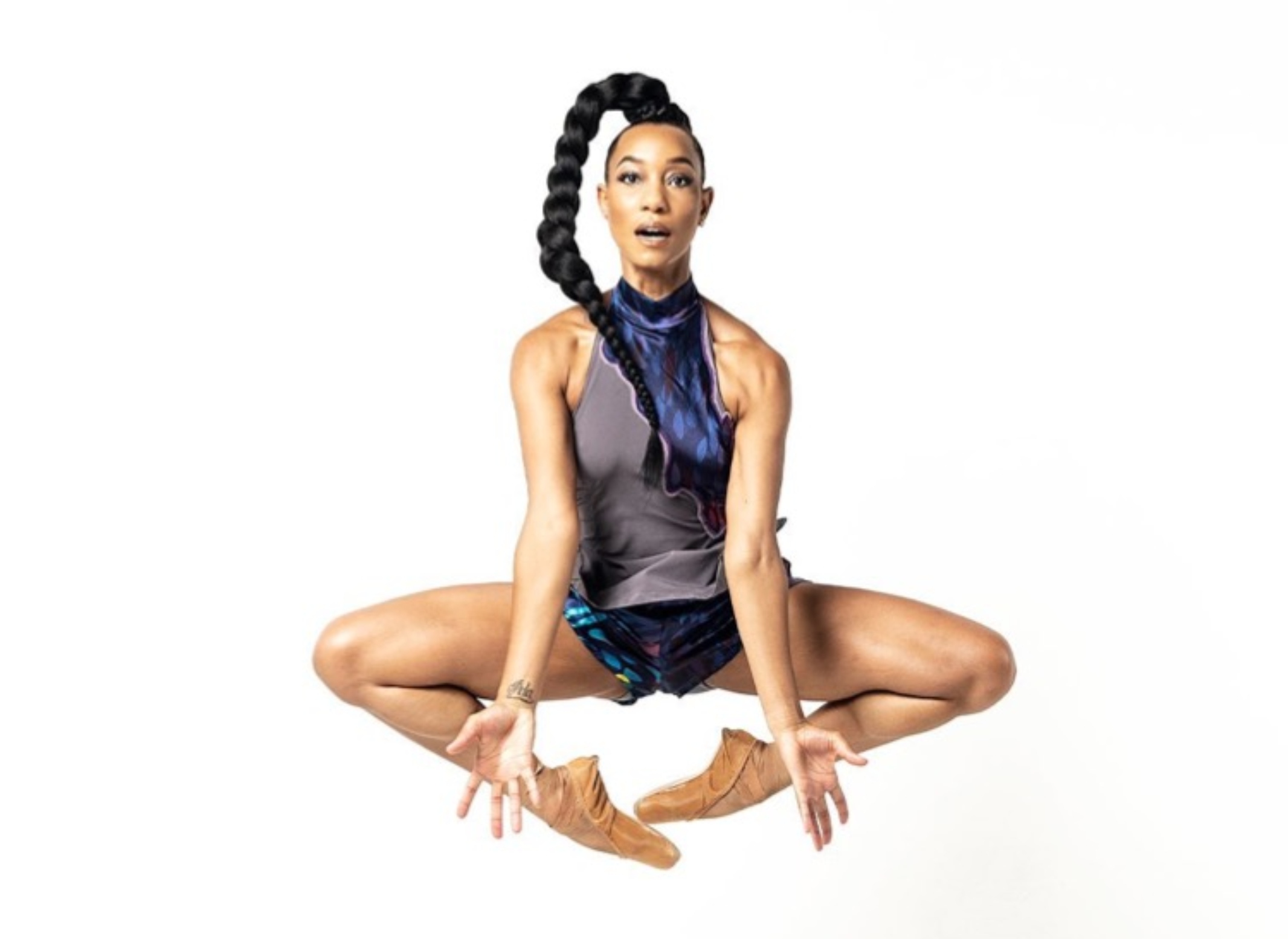
Conservatory alumna shares how UMKC and Kansas City connections helped advance her career
Without the University of Missouri-Kansas City, Miyesha McGriff (B.F.A. ’11) says she doesn’t know if she would have continued her career as a dancer.
As a teen, McGriff, a Kansas City native, grew up spending her summers at The Ailey School, an exclusive modern dance school based in New York City.
She trained at the Kansas City Ballet School from a young age where she became a company apprentice. While finishing her high school career, McGriff knew UMKC was her first choice of college — thanks to a ballet teacher who also happened to be a professor at the Conservatory.
“I put in my applications and did my audition, and it was like instant, I knew I was going to UMKC. That ended up being a huge moment for me because without my UMKC connections or my Kansas City connections, I don’t think I would be where I’m at,” McGriff said.
McGriff’s decision to attend the Conservatory set off a chain of events resulting in her joining the Collage Dance Collective of Memphis, Tennessee, as a company member in 2017. But how she got there was anything but the typical path for a career dancer.
After graduating from the Conservatory in 2011, McGriff said she was nervous about entering the professional dance world but she audition for the Dallas Black Dance Theatre in Dallas, Texas anyway.
“It was interesting because I was ballet trained but it was more of a contemporary-modern based company,” McGriff said. “It was really hard. So after about a year, I quit. I just wanted to give up. It was the first time that dance became work for me and not just a release.”
McGriff then decided to take a break from dance and made the decision to move back home to Kansas City. She took a job at the Greater Kansas City Community Foundation.
“Everyone there was so amazing, they recognized how I used my dance background to enhance my performance at my job. I was very organized, I was always on time, and it helped me move up in promotions pretty quickly,” McGriff said.
But even though she was taking a break from professional dance, she still had the itch to get back on the stage. McGriff said she would save all her paid-time-off during the year to take time off for rehearsals and perform with the Wylliams/Henry Contemporary Dance Company, a Kansas City-based company.
“I would go to work from 7 a.m. to 4 p.m., I would go to rehearsals from 5 – 11 p.m. and then on Saturdays, I would go to additional rehearsals. Then when we had theater week, I would use another week of PTO,” McGriff said. “Everyone in the office knew it. They would come to all of my shows and support me.”
After working at the Community Foundation for about two years, McGriff said she felt the pull of professional dance once again. So, when she got an opportunity in New York City, she decided to ask for a seven-week leave of absence.
“I contacted our human resources representative to ask for the leave, and she had just told me, ‘No. You need to go and experience this and if it doesn’t work out, you can come back, and you will have a job.’ I still have such a good relationship with them to this day, I’ve been away from Kansas City for eight or nine years and I know I can still call them,” McGriff said. “I am so thankful for that time with them because it made me appreciate dancing and what it means to have it.”
Once in New York, McGriff spent seven weeks trying to find a job. When she went into the Alvin Ailey American Dance Theater to see some old friends she struck up a conversation with someone she knew from her time there as a teen.
“She asked me ‘What are you doing?’ and I was just like, ‘I don’t know. I think I’m trying to figure out my life,’” McGriff said.
That conversation would help her land a job as a summer program chaperon, which lead to another job within the organization. She worked her way up to an administrative assistant to the directors of the Juniors Divison.
“Everyone’s path is for a reason and you have to respect your path and journey. The biggest thing you have to learn is that everyone else’s path is not your path. It’s the hardest and the biggest thing,” McGriff said.
After teaching for a couple of years, McGriff said she once again felt the pull to dance professionally when an old Ailey coworker reached out about an opportunity at the Collage Dance Collective, where she dances today.
“UMKC absolutely helped me get where I am today,” McGriff said. “Everyone there is rooting for you. That’s why they are professors, that’s why they are in the space that they are. They want you to have a good experience, if not better, than what they had.”
Feb 23, 2022
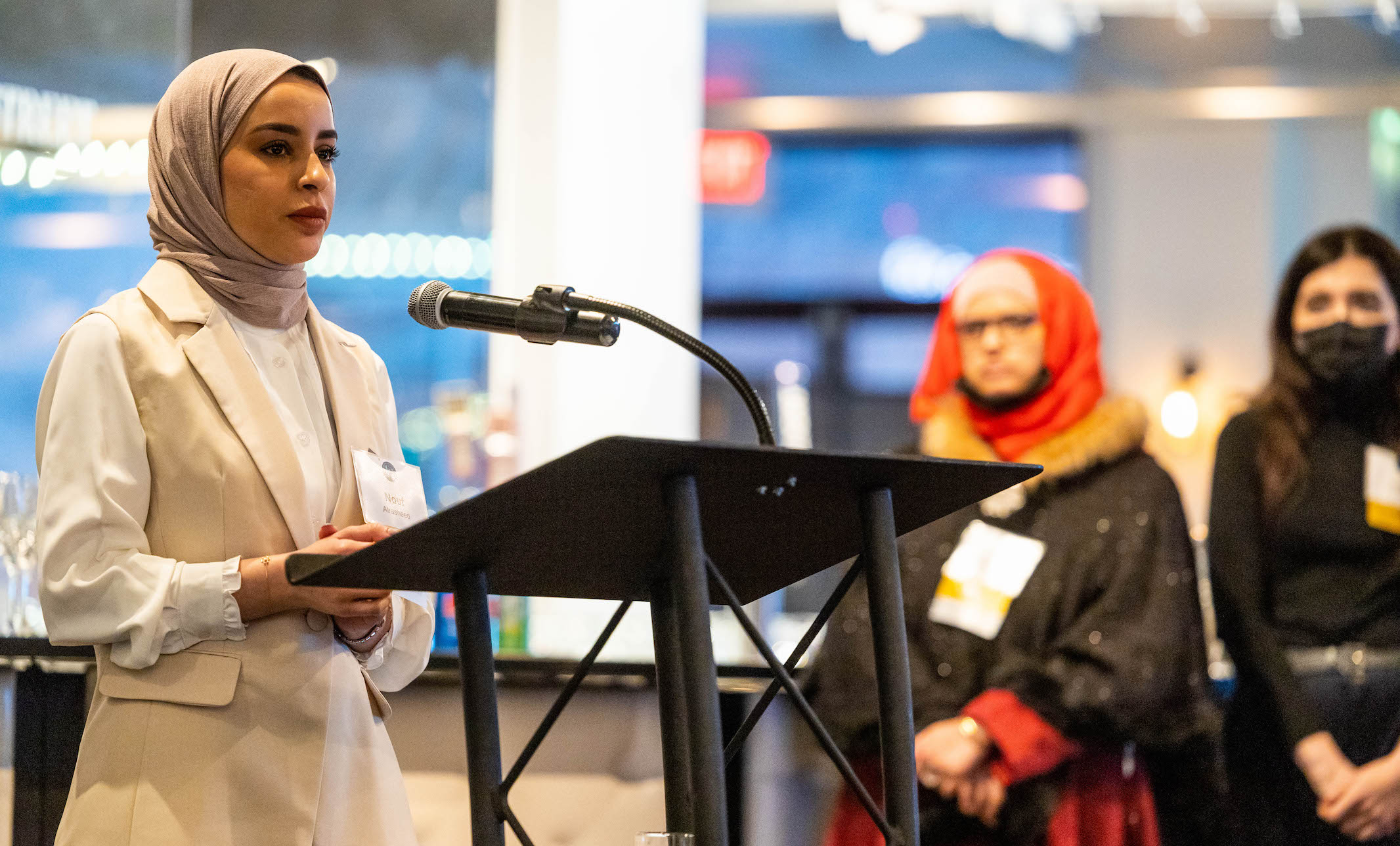
More than $2 million has helped enrich academic careers of more than 2,000 women
The UMKC Women’s Council Graduate Assistance Fund has awarded $90,000 to 53 recipients to support post-graduate work this year.
The UMKC Women’s Council celebrated 51 years of supporting women in graduate studies and honoring the 2022 awardees with a reception on Thursday, Feb. 24. Each woman’s focus is different, but their dedication to their academic and professional careers is paramount.
2022 UMKC Women's Council Graduate Assistance Fund recipients
Sunny Rugerri, Ph.D. ‘22, is studying to be a nurse researcher with a focus on developing programs and interventions to improve patient health. The GAF selected Rugerri as a funding recipient to support her research on low compliance rates among women with breast cancer who are prescribed oral medications that reduce the possibility of their cancer returning following surgery.
“I want to provide courage and eventually create a tailored intervention for the vulnerable populations and support them to endure the painfully long process of fighting and surviving breast cancer.” — Sunny Rugerri
Rugerri’s research was inspired by a fellow nursing student and friend who contracted breast cancer when she was 30 years old. Her outcome has been good, but her battle left a mark on Rugerri.
“She held on to her dreams even as her condition worsened,” Rugerri says. “I learned that breast cancer can be devastating for anyone.”
Leslie Boe, J.D., UMKC Women's Council president
While taking oral medications, such as Tamoxifen, for five years greatly improves patients’ chances of surviving the disease and mitigating its reoccurrence, patients often stop taking them because of side effects.
“I want to provide courage and eventually create a tailored intervention for the vulnerable populations and support them to endure the painfully long process of fighting and surviving breast cancer,” Rugerri says.
Fellow GAF funding recipient Anya Pogorelova, D.M.A. ’22, was inspired by one of her earliest piano teachers to pursue music as a profession.
“Rusudan Chigogidze was a remarkable woman,” Pogorelova says. “She was 77 years old when she took me on as a student. That alone should speak to just how inspiring she was.”
Pogorelova is committed to diversifying classical music literature by commissioning composers from a variety of backgrounds and producing professional recordings that will be available on easily accessible platforms such as Spotify and Apple Music. Just as Pogorelova’s teacher was her inspiration, she wants to inspire her students.
“It’s very important to amplify diverse voices in music, and it’s just as important to ensure that this generation’s composers receive proper compensation for their work.” — Anya Pogorelova
“I think every concert-goer and every musician would be thrilled to see themselves represented on stage and in the music. As a middle school teacher, I felt it was incredibly important for my students to have the ability to draw personal connections to composers, guest artists or musical figures. I wanted them to find that sense of familiarity and think, ‘That person is a lot like me. I could do that too!’ That’s an experience I wish I had when I was growing up.”
GAF funding will allow Pogorelova to commission work performed by the UMKC Wind Symphony.
“It’s very important to amplify diverse voices in music, and it’s just as important to ensure that this generation’s composers receive proper compensation for their work,” Pogorelova says.
UMKC Women’s Council president Leslie Boe became involved in the Women’s Council after attending an awards ceremony. She was inspired by the women graduate students’ work and was invited to apply for a position on the board of directors.
“The work our graduate students are doing is always innovative, interesting and impressive. These hardworking women are going to change the world, and I’m continually inspired by them. I’m honored to play a small role in their journey.”
Established in 1971, the UMKC Women’s Council Graduate Assistance Fund supports UMKC women working toward post-baccalaureate degrees with up to $2,000 in funds that furthers their completion of graduation requirements and enriches their educational experiences.
Feb 22, 2022
Assistant Professor Erin Hambrick, Ph.D. was one of several experts featured
Erin Hambrick, Ph.D. was featured in the documentary, Becoming Trauma Responsive, which premiered Feb. 21, 2022. The film, which was produced by the Kansas State University College of Education, asked experts to weigh in on the effects of trauma on learning, behavior and developing relationships.
The film documents the experiences of three schools in Kansas and Missouri both before and during the COVID-19 pandemic.
Hambrick, who studies the effect of trauma on children, was one of the experts who spoke about trauma and how trauma-responsive adults can improve resiliency in children.
"When we make our classrooms and our work places more trauma responsive, we are actually helping everyone. It's just that we might be helping people who have histories of trauma even more," said Hambrick in the film.
The film is available to view online here.
Feb 22, 2022
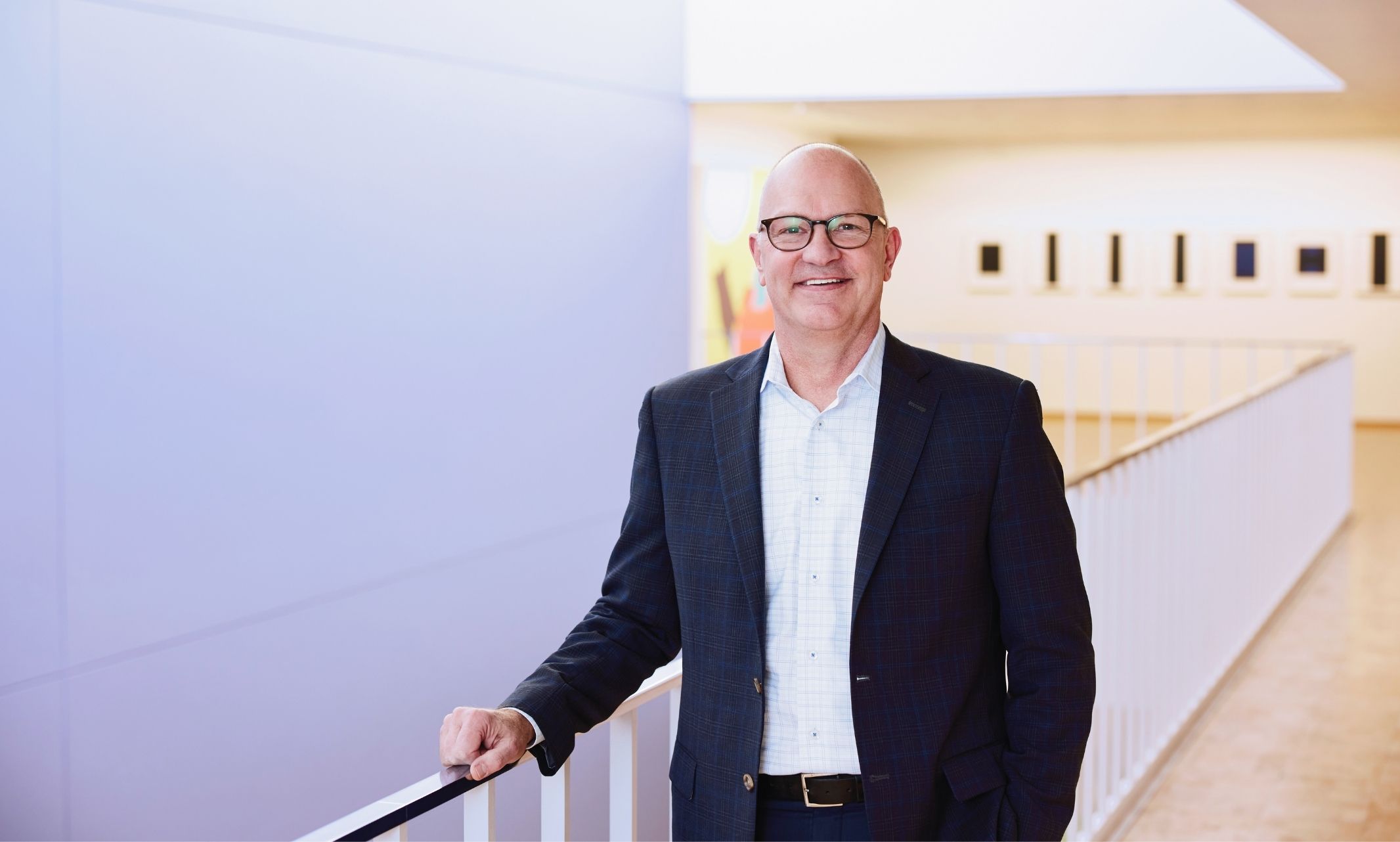
Bloch School of Management selects Mike Perry to receive 2022 Alumni Award
Each year, the UMKC Alumni Association recognizes the achievements of outstanding alumni with an awards celebration.The Henry W. Bloch School of Management is honoring Mike Perry (B.B.A. ’89) with its Class of 2022 Alumni Achievement Award.
Mike Perry (B.B.A. ’89) is the president and chief executive officer of Hallmark Cards, Inc., the iconic, family-owned brand founded and based in Kansas City. In addition to the well-known greeting cards business, Hallmark Cards, Inc. owns Crayola and Crown Media Family Networks, offering three linear cable channels and a subscription streaming service.
Perry has been an employee of Hallmark since 1989 and held numerous leadership positions within the company, including as president and CEO of Crayola. Perry is only the second person outside of the Hall family to be named CEO of Hallmark Cards, Inc.
A long-time member of the Kansas City community, Perry is involved with United Way and Children’s Mercy.
We asked Perry about his long career with Hallmark and how his time at UMKC helped shape his career.
You’ve managed so many different facets of business from marketing to finance, HR to operations. Which is your favorite? What has been a favorite project or initiative you have led or been part of?
Honestly, I have enjoyed each of the various roles. I have always enjoyed more general management roles that incorporate each of the different functions across the business. My favorite roles, outside of my current role, were as the president of Hallmark Flowers and as the president & CEO of Crayola. Both roles prepared me nicely for my current assignment.
What advice do you have for students who’d like to follow in your footsteps?
Go do what you get excited about doing. A job with a promising career path or high compensation won’t be enough in the end. Don’t get me wrong, these are not bad things –but if you lack passion for the work, there will likely always be a nagging “fulfillment gap.”
How did UMKC prepare you for, or contribute to, your success?
I was grateful to have UMKC as an option. I needed to work to attend college, and I knew clearly that I was interested in business. UMKC gave me great options that enabled both things.
I had good instructors. The practical applications for life and business were good, but the enduring value instilled was a mindset toward continuous learning and growth. The mentors and new information we need to keep growing and evolving –it’s all out there. But you do have to have a proactive plan for seeking it.
Word or phrase you use most often?
Thank you.
What is your favorite book, movie, podcast, television show, etc.?
Wow –not sure I have just one?? But let me be clear that my favorite cable channel is the Hallmark Channel!!
About the Alumni Awards
Join us in honoring Perry and the other Class of 2022 awardees at an in-person celebration at 6 p.m. April 29, at the James C. Olson Performing Arts Center. To register, visit UMKC's Alumni Association website. If you are unable to attend the event but would like to donate to student scholarships, contributions can be made online.
Feb 21, 2022
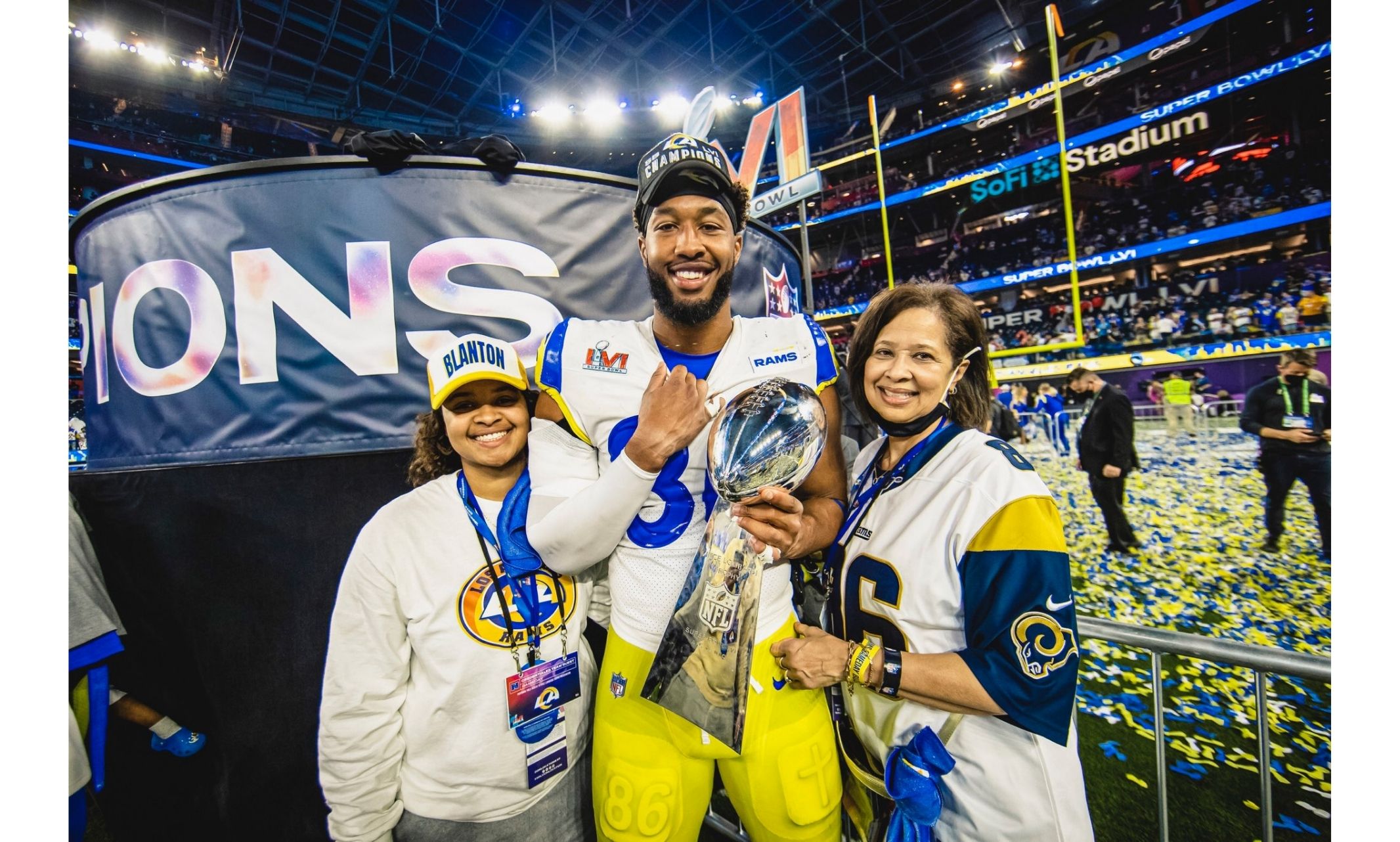
Former Kansas City Chiefs player and current UMKC staff member helped cheer his son to two Super Bowl wins.
Jerry Blanton, Associate Director of the Student Union, thought watching his son win the Super Bowl was a once in a lifetime experience. Then it happened again.
Talent and athletic ability run deep in the Blanton family. Jerry Blanton was drafted out of the University of Kentucky by the Buffalo Bills. After a short stint in New York, he came to Missouri and signed with the Kansas City Chiefs. Blanton played linebacker for the Chiefs for seven seasons.
“I loved playing football. Back then the game was different, and I enjoyed being on the field, working hard and playing in Kansas City.”
When Blanton retired from the NFL, he immediately began taking steps to fulfill his lifelong dream of working in law enforcement. As a kid he always dreamt of becoming an FBI agent and while in college, he prioritized his studies with that end goal in mind. Blanton worked for a number of years as a lead investigator for the Kansas City’s prosecutor’s office in the drug and sex crimes unit.
After several years in that role, he sought out a new opportunity in a different industry working as an area manager for a major beer distributor. Blanton enjoyed that role for a number of years before moving to Kentucky to serve as Deputy Commissioner over more than 52 state parks and 17 resorts.
“That was one of the best jobs I’ve ever had. I loved the work and was challenged by it. At the time I was the highest-ranking African-American ever appointed in the history of Kentucky’s State Parks Department and took pride in it.”
But with a young son and daughter back in Missouri, Blanton needed to get back to the Show-Me state.
Upon his return to Missouri, Blanton started working out regularly with his son Kendall, a basketball and football player in his grade school years. Blanton enjoyed working out with his son and helping instill strong values including work ethic, compassion, kindness and love.
“I always taught him to have a strong work ethic and to be humble. At times when he was defeated or down on himself I’d tell him ‘sometimes you have to go through the back door to open the front,’ meaning keep working hard and trying your best and things will work out.”
Things certainly did work out for Kendall Blanton. After graduating from the University of Missouri, Kendall signed with the LA Rams as a free agent. When the Rams starting tight end got injured, Blanton was the next man up on the roster and became the starting tight end for Super Bowl 56 in 2022. In his third season with the LA Rams, Blanton got to start in the big game and win a championship.
Then, Kendall signed with the Chiefs for the 2023 season, and once again found himself on the winner's podium, earning a second consecutive Super Bowl ring.
“I always tell my son how proud of I am of him for living his dream. Winning a Super Bowl is something few NFL players get to experience and I’m so proud of him for accomplishing that milestone and getting this experience.”
“I’m a little jealous. I never made it to the playoffs,” Blanton said the day after the 2023 game. “I’m living through him now. If you play any sport, you want to get to the peak, and he’s done that twice now.”
Feb 21, 2022
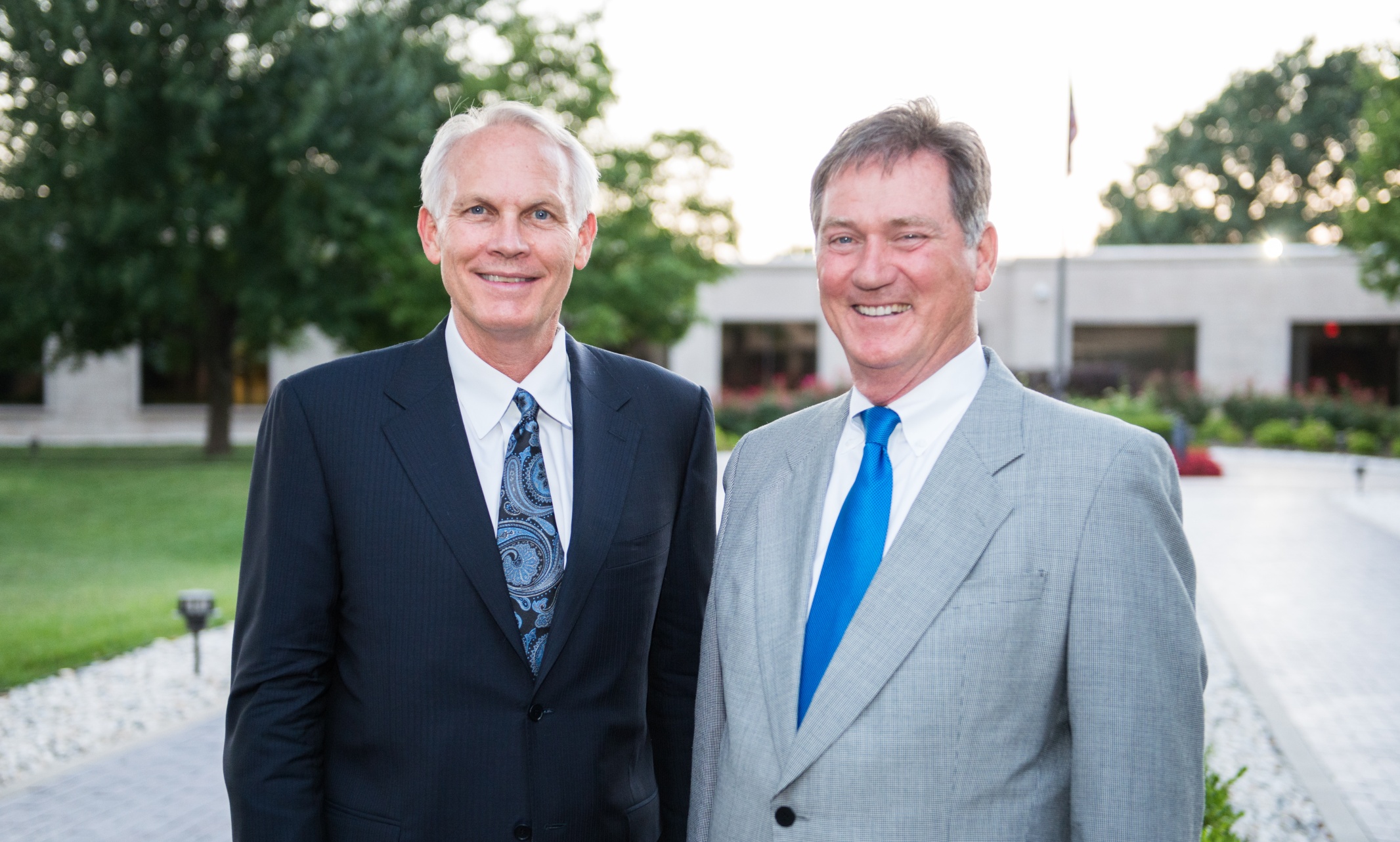
UMKC School of Law selects J. Kent Emison to receive Alumni Award
Each year, the UMKC Alumni Association recognizes the achievements of outstanding alumni with an awards celebration. UMKC is honoring J. Kent Emison (J.D. ’81) with its Class of 2022 School of Law Alumni Achievement Award.
Not long after graduating from UMKC School of Law in 1981, Emison met Bob Langdon, who has now been his law partner for 35 years. They had a monumental product liability case, Baker vs. General Motors, which found its way to the U.S. Supreme Court, and a favorable verdict brought national attention to their growing practice.
Emison has gone on to be recognized by countless professional organizations. He is a Fellow in the International Academy of Trial Lawyers, placing him in the top 1% of lawyers in the world. In 2017, he received the Thomas G. Strong Trial Attorney Award from the Missouri Association of Trial Attorneys for his leadership.
Inspired to become a lawyer by his great uncle, Emison now pays it forward. He has sponsored many law students to attend conferences and seminars, and he and his firm regularly sponsor mock trial teams and provide scholarships.
How did you know you wanted to be an attorney?
I knew I wanted to be an attorney when I was a junior in high school. I was raised on a dairy farm and most of my extended family on both sides were farmers. However, I had a great uncle who was a law professor at Washington University. He would visit my family once a year. He was a very dynamic person who made a point to have a conversation with me whenever he visited. This made a great impression on me. While this was not the only reason I wanted to be an attorney, it was a great influence, along with the realization that I was a not very good at farming!
What was the most exciting or challenging part of Baker v. General Motors?
The most challenging part of the Baker case was the sheer scope of it. Bob and I were the only two attorneys who worked on the trial part of Baker. GM had five or six different firms retained to defend the case, including Dick Bowman, the lead GM trial lawyer from Bowman & Brooke, a firm based in Minnesota. The case was an enormous undertaking for us, but after almost 10 years and a trip to the U.S. Supreme Court we were successful in resolving that case. Ken Starr was GM’s lawyer in the Supreme Court. While Bob and I were the trial lawyers, we worked with Laurence Tribe on the Supreme Court appeal. Professor Tribe is a great lawyer and was tremendous to work with on the Baker case. The entire experience of seeing the case go to the Supreme Court and the great lawyering on both sides was very exciting.
What advice do you have for students who’d like to follow in your footsteps?
Regardless of what type of law you practice, work with good lawyers who are good people.
Do not worry about how much money you make when you start your career. Make sure you like what you do and who you work with. If the answer to either of these is “no,” think about a change.
Regardless of the type or size of project you are working on, make sure your work product is done in a quality manner. Bigger and better projects or cases will result from excellent work on smaller cases and projects.
When you get an assignment from another attorney, be sure you fully understand the assignment. I recommend to young lawyers to do the following: If possible, get the assignment in writing. If you are given a verbal assignment, then repeat your understanding to your boss and then follow it up with an email or something in writing to document the assignment. Be sure to get the due date for completion, and don’t be late!
About the Alumni Awards
Join us in honoring Emison and the other Class of 2022 awardees at an in-person celebration at 6 p.m. April 29, at the James C. Olson Performing Arts Center. To register, visit UMKC's Alumni Association website. If you are unable to attend the event but would like to donate to student scholarships, contributions can be made online.
Feb 21, 2022
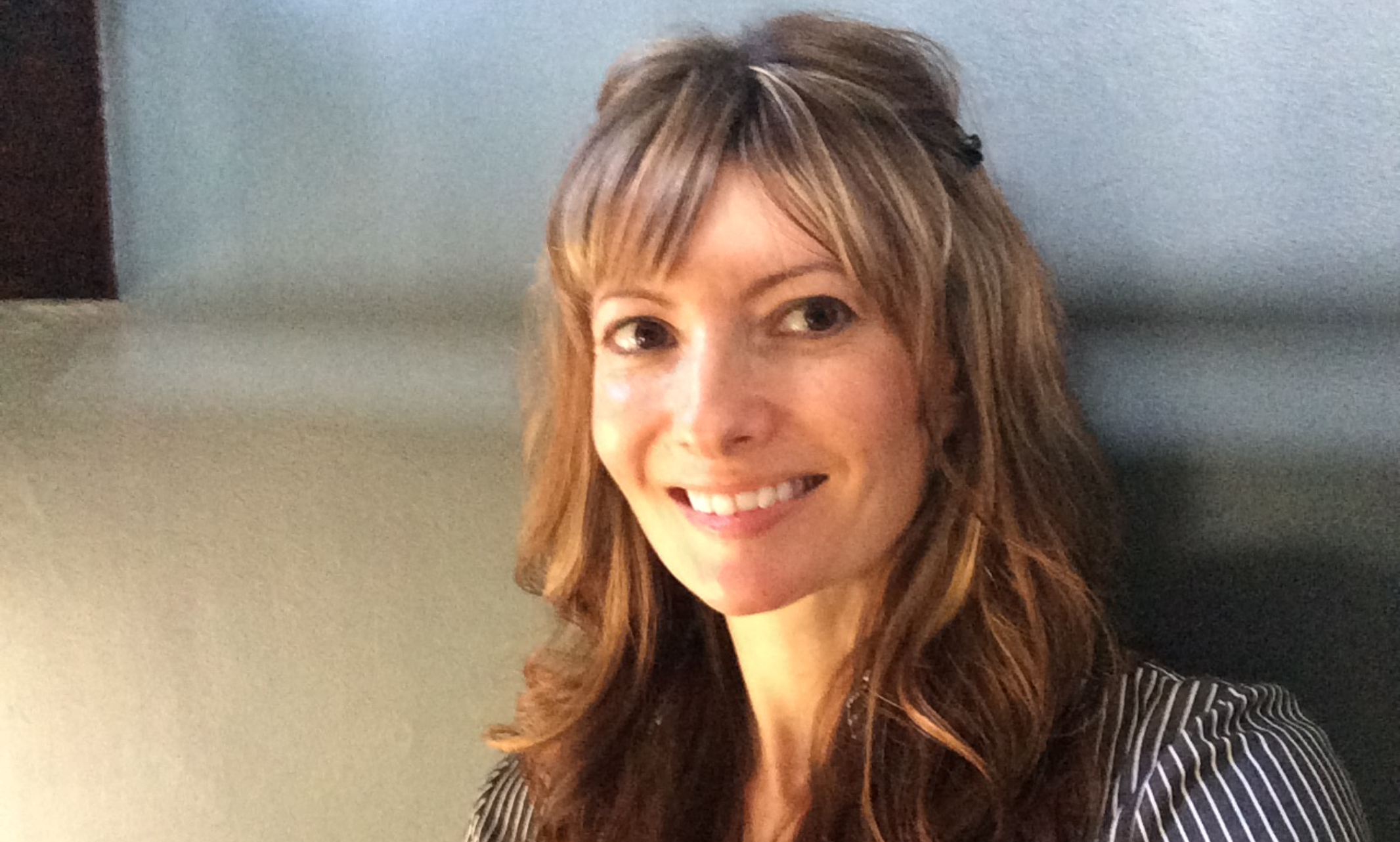
Melissa Zarda receives College of Arts and Sciences Alumni Award
Each year, the UMKC Alumni Association recognizes the achievements of outstanding alumni with an awards celebration. The UMKC College of Arts and Sciences is honoring Melissa Zarda (B.A. '02, M.A. '07) with its Class of 2022 Alumni Achievement Award.
Melissa Zarda owns and runs a successful small business as a freelance graphic and web designer, all while still taking the time to fight for human rights all the way to the Supreme Court. After the death of her brother, Don, she led the cause to prevent people from being fired for their sexual orientation or gender identity in his honor. Zarda sought help from the ACLU, a trusted attorney and the Director of the Stanford Supreme Court Litigation Clinic.
What made you choose to continue your brother’s mission after his passing?
We never considered not continuing the case. In order to pursue the case, we had to make a decision in a short window of time after his passing. Bill, my brother’s boyfriend, and I were on the same page from the beginning. We had both spent so much time consoling Don over the years, since this case impacted him so heavily, that we knew there was no other option. We also knew there were so many others who were discriminated against in the workplace, just like Don was, we wanted to do whatever we could to help them fight, too.
What advice would you have for someone taking on such a monumental case?
Surround yourself with experienced and trustworthy people. I relied on our teams from the ACLU and the Stanford Supreme Court Litigation Clinic, as well as other nonprofits such as Freedom for All Americans. I can’t thank these groups enough. Reach out to friends and family for support, and try to take care of your mental and physical health. The ups and downs can be emotionally draining.
How did UMKC prepare you for your success?
All of my instructors were genuinely interested in my well-being. They would offer encouragement and ideas to further my study in whatever I was passionate about. After going to school in the suburbs, it was exciting to be on an urban campus and to hear different perspectives. I applied the skills I learned at UMKC to every job I’ve ever had post-graduation.
Zarda is a graduate of the College of Arts and Sciences with a bachelor’s in Studio Art and a master’s in Sociology. She enjoys spending her spare time volunteering with various animal welfare nonprofits.
About Alumni Awards
Join us in honoring Zarda and the other Class of 2022 awardees at an in-person celebration at 6 p.m. April 29, at the James C. Olson Performing Arts Center. To register, visit UMKC's Alumni Association website. If you are unable to attend the event but would like to donate to student scholarships, contributions can be made online.
Feb 18, 2022
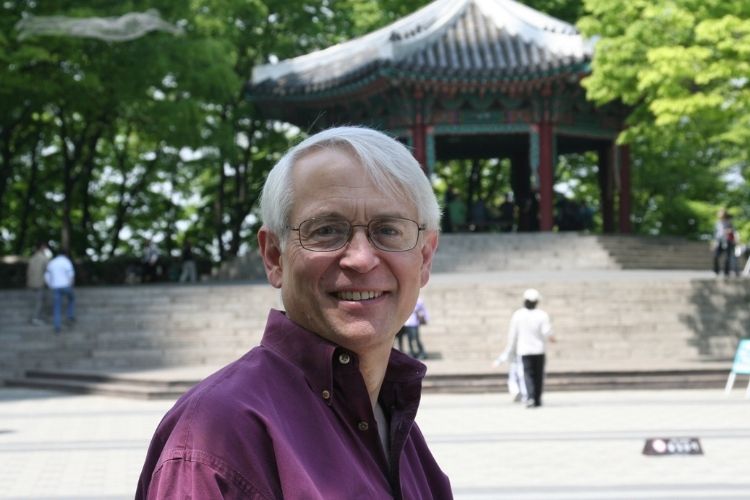
James Mobberley was recognized by the American Academy of Arts and Letters for music composition
James Mobberley, Curators’ Professor Emeritus in the Conservatory, was recently named a national Music Award recipient from the American Academy of Arts and Letters.
Mobberley is one of four people to receive the Arts and Letters Award in Music, honoring outstanding artistic achievement and original compositional voice. Each awardee receives $10,000, plus an additional $10,000 to record their composition. Awardees will also have their music presented in concert at the Academy.
“The American Academy of Arts and Letters is one of the most significant organizations in the world that focuses on support of creative work in multiple fields,” said Mobberley. “I am more than honored and humbled to be included among this year's group of extraordinary peers, especially now as we collectively begin the long, laborious recovery process from two years of COVID's devastating effect on the arts.”
Mobberley is one of 18 Music Award recipients in 2022, with awards totaling $205,000. Candidates for these awards are nominated by the Academy’s 300 members.
Mobberley joined the UMKC Conservatory faculty in 1983 and helped build the university’s highly regarded music composition program in his years with the university. He retired in 2016 as the Curators’ Professor of Music Composition. He previously has been awarded the Rome Prize and a Guggenheim Fellowship. Mobberley has been a resident composer with the Kansas City Symphony (1992-1999), and a visiting composer with both the Taiwan National Symphony (1999) and the Fort Smith Symphony (2000).
“Dr. Mobberley was a cornerstone of not just the composition area but the entire Conservatory for over three decades,” said Andrew Granade, interim dean of the Conservatory. “We’ve long known and celebrated the excellence of his musical gifts here in Kansas City, but it is gratifying to see it recognized nationally by the American Academy, one of the premier societies dedicated to advancing the arts in the United States. I can think of no one more deserving of this award.”
The American Academy of Arts and Letters was founded in 1898 as an honor society of the country’s leading architects, artists, composers, and writers. Awards are given as part of the Academy’s mission to foster interest in literature, music and the fine arts.
Feb 17, 2022
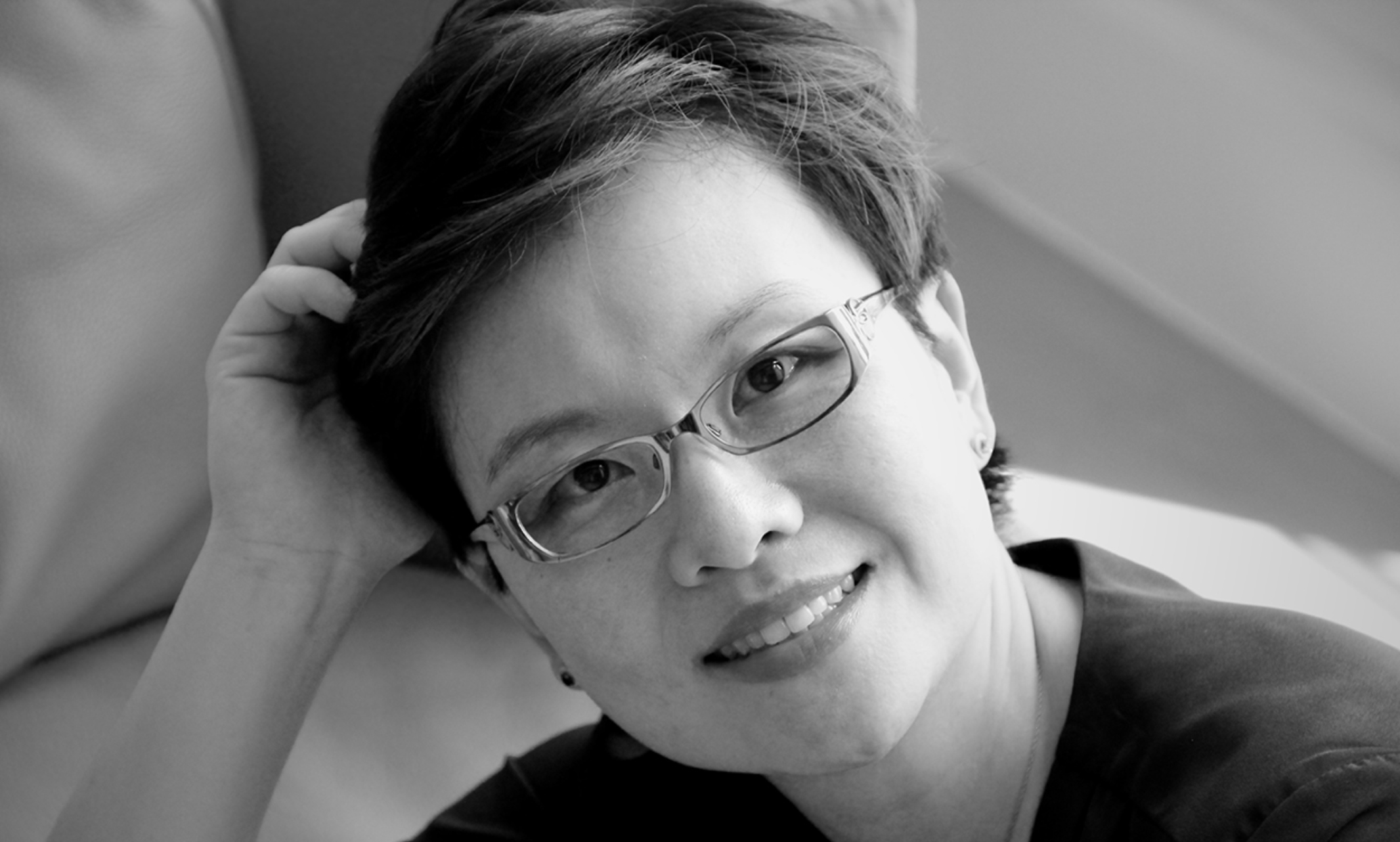
UMKC honors Xi Wang, Ph.D. with the Conservatory Alumni Achievement award
Each year, the UMKC Alumni Association recognizes the achievements of outstanding alumni with an awards celebration. The UMKC Conservatory is honoring Xi Wang, Ph.D. (M.M. ‘03) with its Class of 2022 Alumni Achievement Award.
Born 1978 in China, just after the cultural revolution, Xi Wang learned never to take anything for granted. Recognizing her musical talent, her father and mother made great financial sacrifices to ensure that she received training. After completing her bachelor’s in music from the Shanghai Conservatory of Music, Xi came to UMKC to study under Chen Yi, Ph.D. and Zhou Long, Ph.D.Assistant Professor Xi holds a doctoral degree from Cornell University. She is internationally celebrated with works commissioned by the Philadelphia Orchestra, Atlanta Symphony and Shanghai Philharmonic. In addition to composing, Xi teaches at Meadow School of Arts of Southern Methodist University.
Was music a large part of your childhood?
My father bought me a toy piano as a gift when I was four. The toy piano cost the equivalent of two U.S. dollars at that time-about half of my mother’s monthly income. My father taught me the piano by playing some children’s songs using one finger. One year later, he borrowed an old piano from the museum where he worked and brought it home. I started learning to play some longer, more complex songs with three fingers. Apparently, I showed unusual sensitivity to pitch and an excellent ability to memorize tones. A music teacher told my parents that he thought I had a talent for music. So, my parents found me a piano teacher. One dollar per lesson, four lessons per month, four dollars per month. That was my mother’s entire monthly salary!
When did you first realize that you wanted to work in music?
When I started winning local piano competitions, my parents were excited! Music was a high-class art form they had hardly dared to imagine. When I turned six, my parents cashed out all their savings and gathered money from their relatives and friends—around $250—to buy me a new, real piano. When it was delivered to our home on a tricycle, all the neighbors came out to touch the “furniture” they had only seen in newspapers or magazines. My parents spent the next three years working and saving to pay off this “fancy furniture.”
Music is a beautiful, but very expensive gift that my parents gave me in childhood. I learned my first lesson about life- never take anything for granted. Education and opportunity are precious.
Has teaching changed your relationship with music? What do you enjoy most about it?
Teaching deepened my relationship with music. It makes me rethink of what I have learned about music. Through the process of teaching, I am learning new things constantly too.
What advice do you have for students who’d like to follow in your footsteps?
Work hard and keep challenging yourself. It’s not necessarily a bad thing if you encounter something “unfair.” It will happen and it happens in everyone’s life. You just have to flip it to your advantage, let it motivate you. Take it as an opportunity to make you stronger while accepting it could feel very frustrating at the beginning.
How did UMKC contribute to your success?
I had remarkable professors who not only helped me to learn about music, but also took care of me as their child and continuously fostered me along my career development even after I graduated. Dr. Chen Yi, Dr. Zhou Long, Dr. James Mobberley, Dr. Paul Rudy, Dr. William Everett and many others, including staff members at the international student office. I also met many warm-hearted friends, who loaned me their notes, helped me to learn the computer, drove me around and explained American culture to me.Besides the academic preparation, it was people’s care and love that has shined through all the years since I started my American adventure at UMKC.
What is your proudest accomplishment?
Being a mother of two adorable children while maintaining a career as a composer and a professor.
Where can you be found on the weekends? What are your hobbies?
I have about 20 plants at home to water during work breaks. Occasionally, I do some clay sculpture and painting.
About Alumni Awards
Join us in honoring Xi and the other Class of 2022 awardees at an in-person celebration at 6 p.m. April 29, at the James C. Olson Performing Arts Center. To register, visit UMKC's Alumni Association website. If you are unable to attend the event but would like to donate to student scholarships, contributions can be made online.
Feb 17, 2022
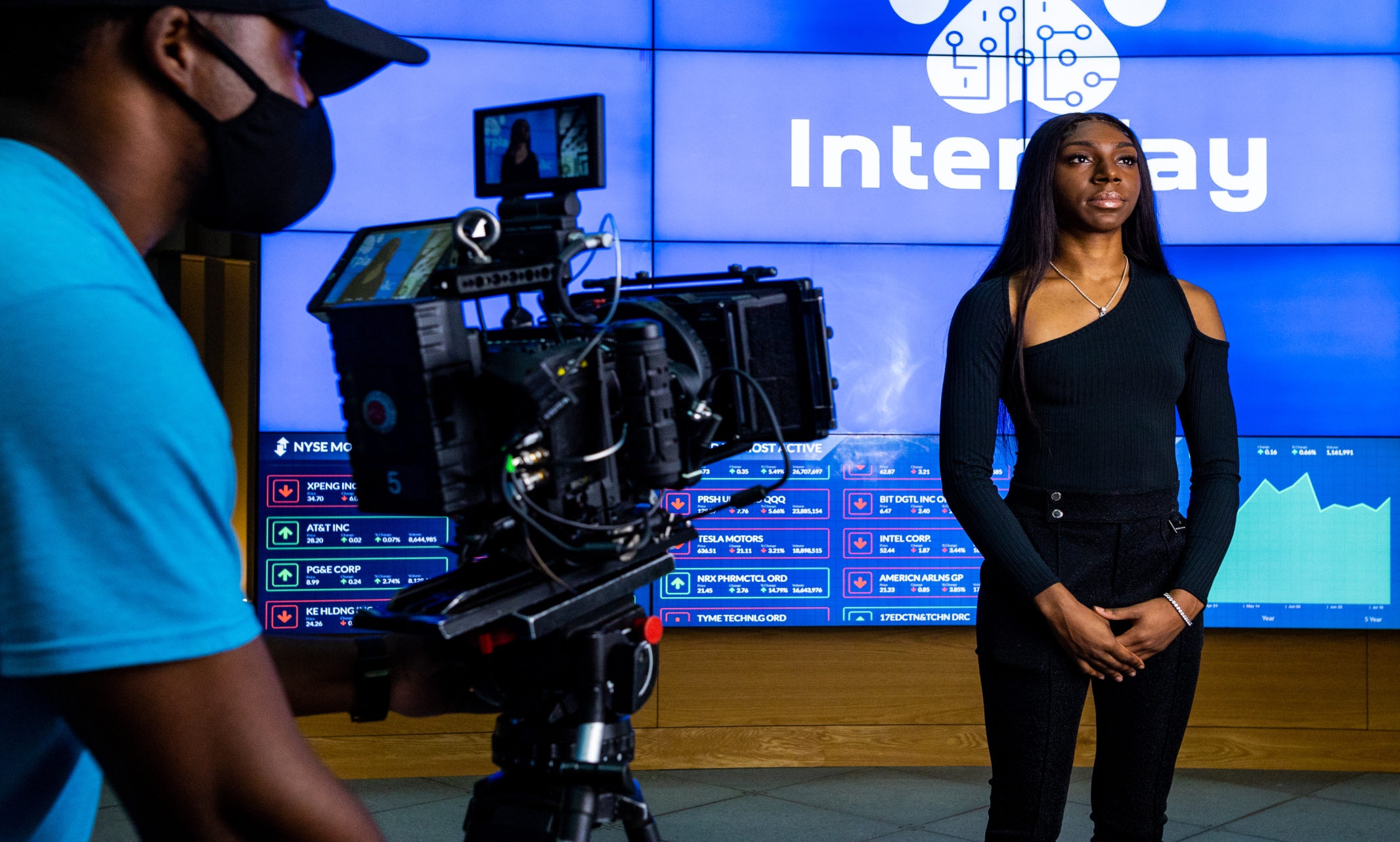
Jonaie Johnson is one of 20 contestants on ‘The Blox’
UMKC MBA student Jonaie Johnson is competing in a 17-part online reality TV series featuring startup entrepreneurs from around the country.
Johnson is the founder of Interplay, a company marketing an interactive dog crate that allows owners to interact with their pets while they are away from home. The show is called “The Blox,” and is available online by downloading an app from BetaBlox, a Kansas City company providing multiple forms of support for entrepreneurs.
The show follows a game format with daily winners of competitions on entrepreneurial themes such as inbound marketing, growth hacking and fundraising.
This is just the latest accolade for Johnson and Interplay. She was recognized as the UMKC Henry W. Bloch School of Management Student Entrepreneur of the Year in 2020 as an undergrad. She is currently enrolled in an MBA program at the Bloch School.
Johnson also was a starter on the UMKC Women’s Basketball team that won a Western Athletic Conference championship in 2020.
Interplay is a dog crate designed to provide remote interaction – including video and audio access, locking and unlocking features and the ability to provide food and water – for a dog and its owner through a mobile app.
“I developed the idea for Interplay for a project when I was in high school,” Johnson said. “My aunt was always leaving our family events to go home to feed her dog. I thought, ‘Wouldn’t it be great to do that remotely?’ I want Interplay to be the Apple of dog crates.”
Feb 16, 2022
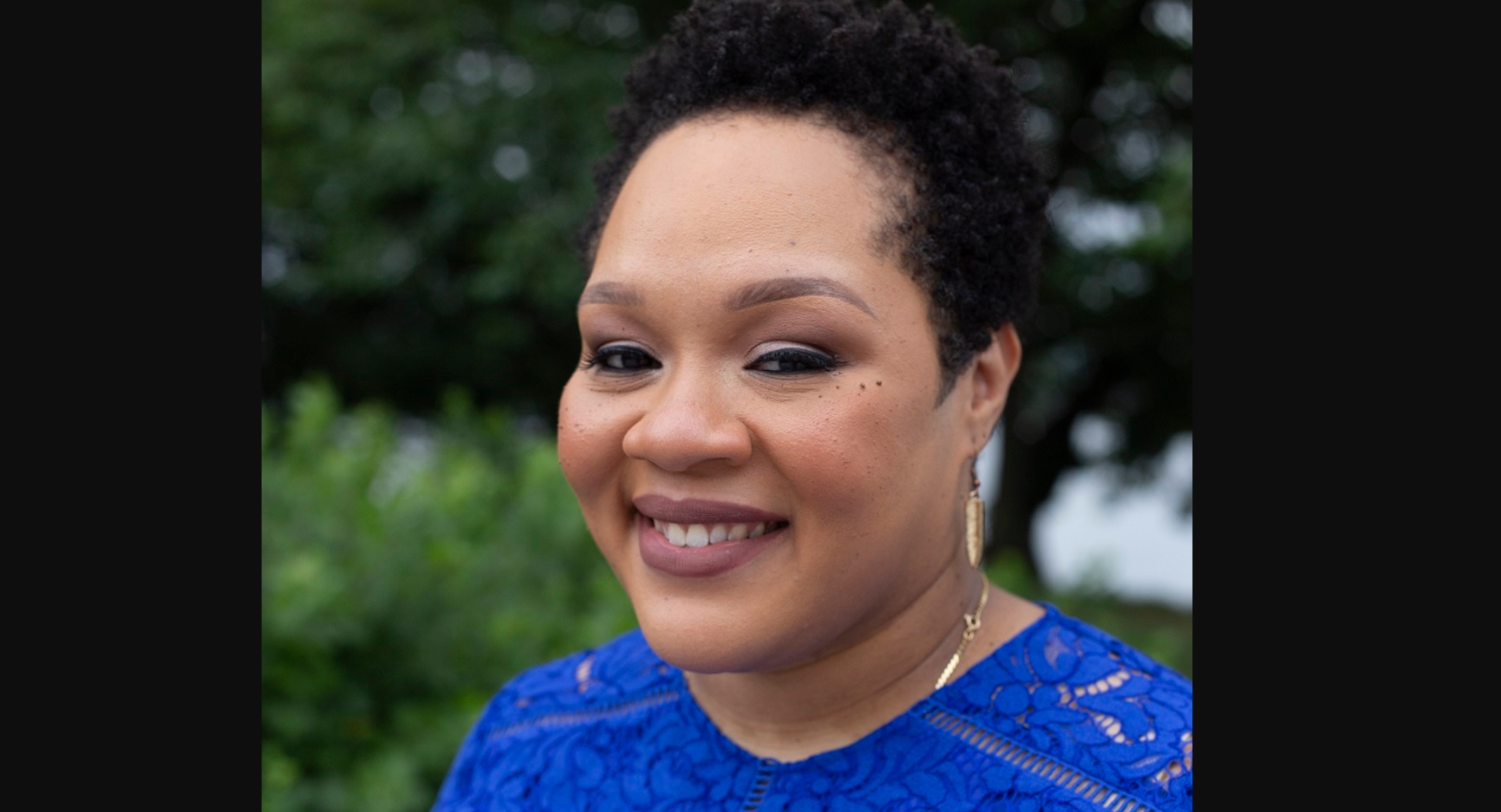
Yamiche Alcindor has become a go-to voice in analyzing the most critical political issues
This year’s virtual Martin Luther King Jr. Lecture was hosted by Yamiche Alcindor, an award-winning political journalist who has spent most of her career covering how political policy impacts the everyday American.
Alcindor is the White House correspondent for PBS NewsHour, Moderator of Washington Week and an NBC and MSNBC Political Contributor. She often appears on shows like Morning Joe, Meet the Press and Andrea Mitchell Reports.
The daughter of Haitian immigrants who met while attending Boston College, Alcindor has written extensively on the intersection of race and politics. She has covered the impact of former President Donald Trump’s politics on the working-class, immigration and breaking news from Africa, the Middle East and Asia.
“Being Haitian-American for me, whenever I walk into the White House it is a big deal. I can’t even imagine what my grandparents would think about their granddaughter, who only a few decades after they arrived here, is now in the White House questioning the President of the United States,” Alcindor said.
Alcindor is the recipient of the White House Correspondents’ Association Aldo Beckman Award for Overall Excellence in White House Coverage, as well as the 2020 Journalist of the Year Award from the National Association of Black Journalists. She earned a master’s degree in broadcast news and documentary filmmaking from New York University and a bachelor’s in English, Government and African American studies from Georgetown University.
The 2022 lecture was delivered in a question-and-answer format, in a dialogue between Alcindor and Glen Rice, a reporter who has been at the Kansas City Star 34 years. Rice himself has received numerous national, regional and local journalism awards for investigations, feature writing and breaking news coverage.
The hour-long discussion covered a wide range of topics. Below are a few questions from the discussion.
Question: How did Dr. King’s legacy inspire you? How did his quest for equity inspire you as a journalist?
Alcindor: He inspired me because he was someone who wasn’t afraid of just telling it like it is. He wasn’t afraid of pushing America to be better. He was there on the Selma bridge pushing people to recognize the humanity of Black people. I think about some of the quotes that he said that really stick with me, like what he said about knowing the character of someone during times of challenge and controversy. I often think about those words because I believe right now, we are living through times of challenge and controversy.
Q: Where do you get your news from?
A: As a Miami native, I think about local news first. Supporting local news is so incredibly important. These are the people that are going to tell you where your tax dollars are going, whether the mayor is stealing your money, or if you have a Jeffrey Epstein in your backyard, that’s who is going to uncover it, in the case of the Miami Herald. I read the Miami Herald, the Sun-Sentinel, the Boston Globe, the Washington Post. Nationally, I read the New York Times, the Guardian, in terms of television I watch BBC, NBC, MSNBC, CNN, and a little bit of Fox News.
About the Martin Luther King Jr. Lecture Series
Beginning with the Rosa Parks Lecture on Social Justice and Activism in 2007, and annually since 2009 with the Martin Luther King Jr. Lecture Series, the Division of Diversity and Inclusion honors individuals' tremendous contributions to furthering civil rights by bringing national thought leaders to campus, who provide insight and advocacy to current civil rights issues on education, economic and justice system inequalities.
The goal of the lecture is to encourage UMKC students, staff, faculty and the Kansas City community to build upon the courageous, non-violent activism of Rosa Parks and Martin Luther King Jr., and to increase awareness of present-day avenues to advocate for civil rights through free thought, action and scholarship.
Feb 16, 2022
Faculty Search Support Team works closely with academic search committees
A new initiative to create a more diverse faculty is now underway at the University of Missouri-Kansas City.
A Faculty Search Support Team now works closely with search committees working to fill full-time faculty positions. Led by Makini King, interim vice chancellor for diversity and inclusion; and Diane Filion, vice provost for faculty affairs; the team helps search committee members implement evidence-based inclusive hiring strategies to recruit a diverse pool of applicants and to reduce bias in the review of applications.
The concept was developed by a faculty diversity task force initiated through Roos Advocate for Community Change, a Chancellor’s Office program working to help ensure UMKC is a welcoming place where all can thrive.
“The process produced very intentional and specific recommendations,” King said. “The Provost and Chancellor have been very supportive – it’s a high priority for leadership.”
Acting on the task force’s recommendations, Provost and Executive Vice Chancellor Jennifer Lundgren approved the hiring of two Diversity, Equity and Inclusion Fellows to participate as members of the team. The Fellows are Michelle Smirnova, associate professor of Sociology; and Sandy Rodriguez, associate dean of Libraries. Rounding out the team and providing critical guidance on HR hiring processes is Susan Hankins, the campus Academic HR Specialist.
Step one for the new team was to research best practices in faculty diversification, consulting with J. Luke Wood, Dean's Distinguished Professor of Education at San Diego State University, a nationally recognized expert in the topic.
“We identified the top two places where we can have an impact,” Filion said. “First is the wording of job descriptions along with how and where ads are placed. Second is how search committees evaluate applicants, with a focus on strategies to reduce bias in that process.”
The team developed written guidelines for faculty search committees and meets with each committee during the search process to discuss and guide implementation.
The materials include a how-to on writing inclusive job descriptions. Search committees are advised to clearly and explicitly communicate factors such as the university’s commitment to the recruitment, retention, and promotion of underrepresented faculty; consideration of applicants who have had nontraditional career paths; and willingness to offer broad opportunities for candidates to demonstrate evidence of teaching effectiveness. The document points out that student evaluations are frequently biased against women, faculty of color, and those from other historically marginalized groups.
Materials also include an Inclusive Recruitment Plan Worksheet. UMKC requires faculty searches have an Inclusive Recruitment Plan (IRP) as a component of the search process. The IRP requires search committees to list specific actions designed to attract a diverse applicant pool, such as identifying scholars in the field from underrepresented backgrounds and requesting they circulate the job posting to their professional networks; and identifying graduate programs recognized for having high numbers of underrepresented graduates in the field and reaching out to those departments with a request for the job posting to be shared with their advanced doctoral students and alumni.
Throughout the process, the team works with search committee members to review strategies, devise inclusive interview questions and avoid common mistakes, with an emphasis on identifying biases and minimizing their impact.
Feb 16, 2022
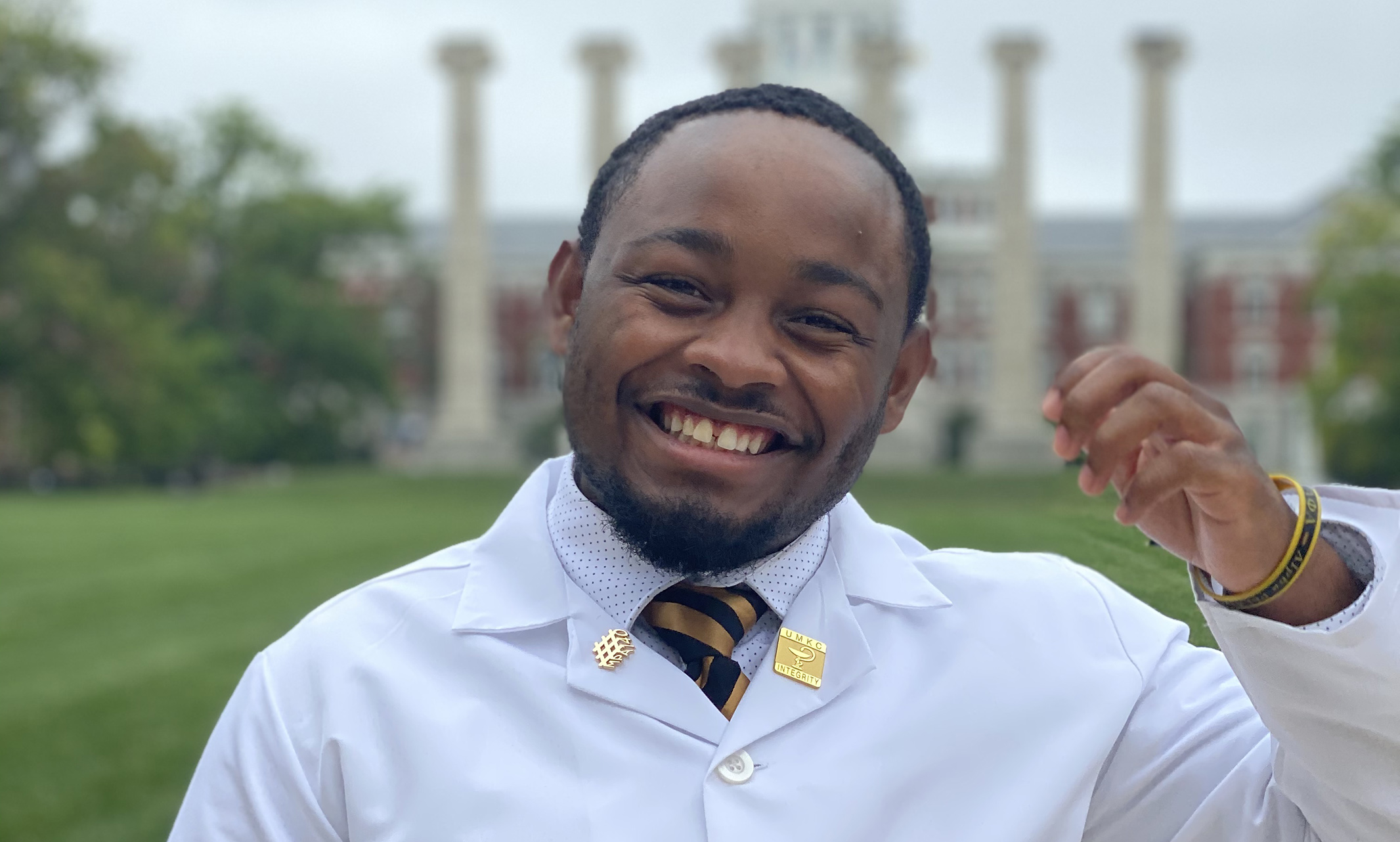
As School of Pharmacy recognizes Black History Month, it celebrates the accomplishments and contributions of the school’s Black community who are m...
Meet Daryl Whitehead, a third-year student at the UMKC School of Pharmacy, whose goal is to serve underrepresented and marginalized groups as a clinical pharmacist while also serving as a preceptor and mentor for future pharmacists.
Why did you choose the UMKC School of Pharmacy?
I originally selected UMKC as one of my top choices for schools to attend that had a respected pharmacy program while doing research when I was in high school. Of my top three choices, UMKC was closest choice to home and also offered a well-balanced price for the program I was looking for.
How have UMKC and UMKC School of Pharmacy embraced and supported you as a Black student?
Throughout my years as a student at UMKC, I have been offered numerous scholarship opportunities, the task of becoming an influential resident assistant and the chance to take part in numerous organizations on the campus such as UMKC's African American Cultivating Excellence (AACE) mentoring program, Alpha Phi Alpha Fraternity Incorporated, National Community Pharmacy Association, and Student College of Clinical Pharmacy. Becoming a resident assistant on campus my sophomore year of college allowed me to connect with so many residents between Johnson and Oak Hall, creating memories and long-lasting friendships along the way. Every organization on campus has allowed me to help bring student involvement opportunities to the campus and offered me the opportunity to travel to places like Canada and North Carolina which is always exciting and fun.
Why would you encourage prospective students from your background to consider the UMKC School of Pharmacy?
Whenever I encounter a student of the minority that wants to pursue a professional degree, my main encouragement is to keep going when things get tough. Whenever you feel tired, doubtful or even defeated remember who you are striving to be. Find your "Why" and use it as fuel to keep going. Whenever you do great, remember to celebrate it, embrace yourself and feel proud. Once you get to your end goal remember that you are a beacon to kids who grow up after you, and you are breaking generational barriers and inspiring kids at the same time.
What do you hope to do in pharmacy when you graduate and how do you feel the School of Pharmacy is helping prepare you for that?
As I get closer to becoming a pharmacist, I grow more interested in becoming an ambulatory care pharmacist. I aspire to work at a veterans affairs hospital in the future and I will pursue residencies to reach that goal. UMKC School of Pharmacy helps prepare students achieve their goals by offering Pharmacy Practice Experiences that expose students to different fields of pharmacy. There is also a good number of courses and electives available to help students as well. I look forward to graduation and becoming a pharmacist, it will be a huge achievement for not only me, but for my family and the friends I have back home that root for me. As the youngest of five boys, I am the first to graduate high school and pursue a college degree, a doctorate degree at that! It makes me happy to know that I am making a way for my nephews, nieces, little cousins, the kids in my neighborhood, and students I visit when going back to my old schools. There will be opportunities for me to bridge gaps in health care for the underserved community. Helping patients be more knowledgeable about their health and creating a trusted relationship with each individual I encounter.
Feb 15, 2022
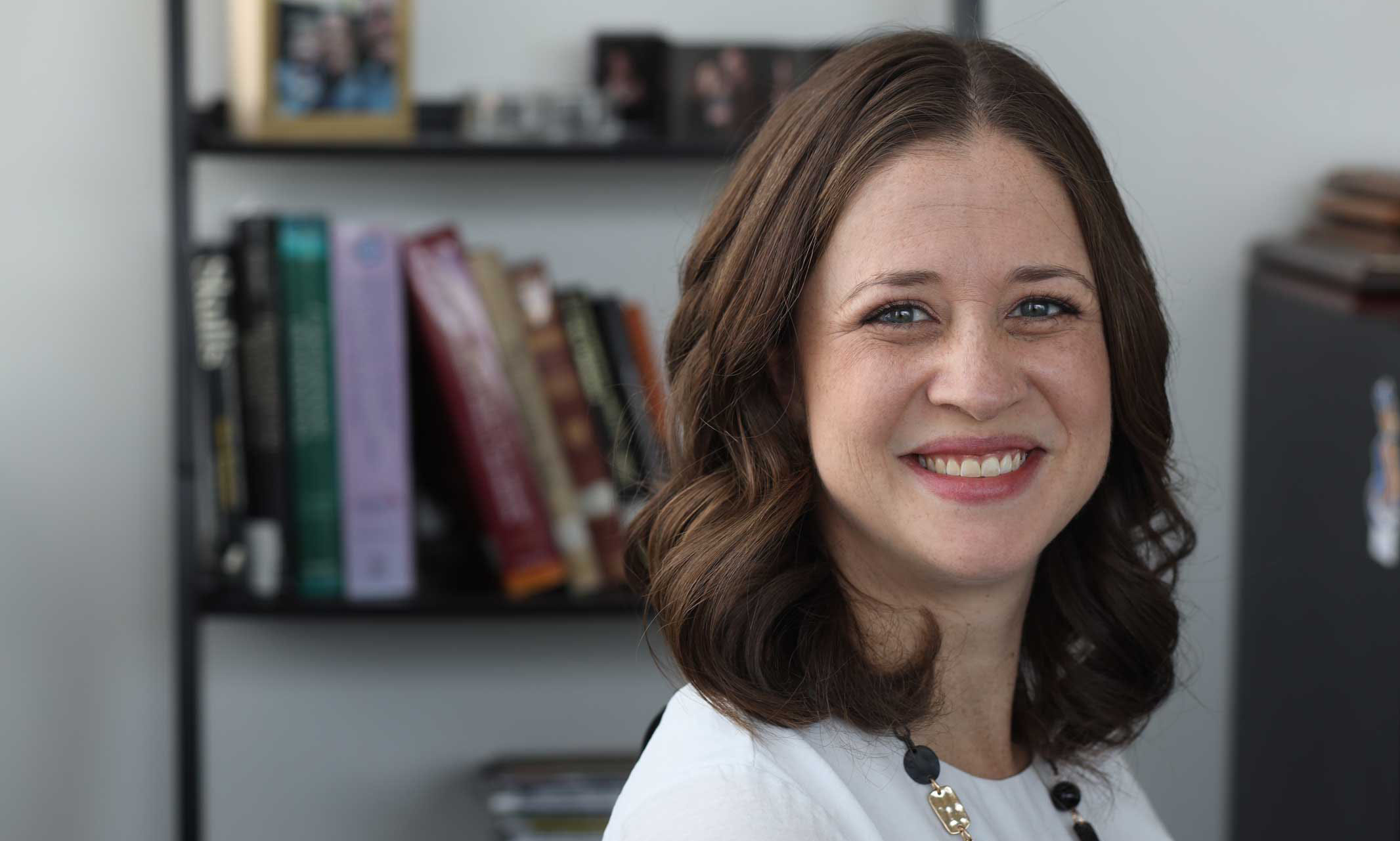
Mentorship is the fabric that runs through Erin Bumann’s work
From a fellowship to funding, big things will be happening in craniofacial bone development in the lab of researcher Erin Bumann, D.D.S., Ph.D., M.S. at the UMKC School of Dentistry.
Bumann is an assistant professor in the Department of Oral and Craniofacial Sciences. The primary goal of her lab is to identify nonsurgical methods to change the size and shape of the bones in the face in hopes that children either do not need to undergo surgery or need less invasive surgery to address craniofacial deformities.
Most recently, she’s received foundational funding from the Robert Woods Johnson Foundation, a philanthropic organization dedicated to public health. It’s especially meaningful for Bumann, whose grandfather is from Mexico, that the funding comes from the Harold Amos Medical Faculty Development Program. The program was created to increase the number of faculty from historically disadvantaged backgrounds and will offer four years of support for her research as well as opportunities to network with fellow scholars in the program including an annual meeting.
“I’m excited for the opportunity to have colleagues around me from similar backgrounds, having some difficult conversations,” said Bumann. “I’m looking forward to the opportunity to open up and have some honest conversations while also sharing resources and finding out what’s going on at other programs.”
Bumann has also been selected for the American Dental Association Gold Medal Fellowship. The award is only given out every three years to one individual nationally.
According to Bumann, her selection carries that much more weight because she was selected by one of her role models, Martha J. Somerman, D.D.S, Ph.D. Somerman was the first woman to win the ADA Gold Medal Award for Excellence in Dental Research. She is also the current past director of the National Institute of Dental and Craniofacial Research, an organization that has awarded Bumann a grant that enabled her to continue her research into jaw development in quail and duck eggs.
“Because of the pandemic I hadn’t had a chance to interact with her as much as in past years, so it’s been wonderful to catch up with her and reconnect,” said Bumann. “It’s really meant a great deal that someone with her breadth of experience looked at my body of work and saw it as impactful.”
Another opportunity that comes with the award is presenting her research as a continuing education course at the American Dental Association’s 2023 annual meeting.
“It’s such an important part of research, making sure that the research that we’re doing can directly impact patients,” said Bumann. “There can be a disconnect between dentistry and the research, so communicating with our clinical colleagues is so important and this is a great opportunity for that.”
Mentorship is an important part of Bumann’s work, not only as a mentee but also a mentor to others. “I’ve been really blessed all along my entire career path to have wonderful mentors,” she said. “Mentorship is a big part of what I enjoy and I think it’s so important to pay it forward."
Bumann is an active mentor for a number of groups on campus. She is a part of the Avanzando Mentorship Program, which is designed to support Latinx students on campus with individualized support in reaching their academic and career pursuits. She also mentors through the Students Training in Academia, Health and Research (STAHR) Partnership, collaborative program with the UMKC schools of medicine, dentistry and pharmacy. The program is designed to increase the number of students from disadvantaged backgrounds entering health care programs.
For Bumann’s time in the Harold Amos Medical Faculty Development Program, she’s excited to see where other schools have had success in their diversity programs. “I look forward to learning from colleagues at other schools and institutions who’ve already tried different approaches and finding out their best practices,” she said. “I’m hoping to bring some new ideas back with me to UMKC.”
Ultimately, one of the greatest gifts in mentorship for Bumann is seeing her mentees reach their ultimate goal at UMKC. “Last year, five of my past mentees – either from the STAHR program or my lab – all graduated,” she said. “To see that first cohort walk across the stage at Commencement was really special.”
Feb 15, 2022
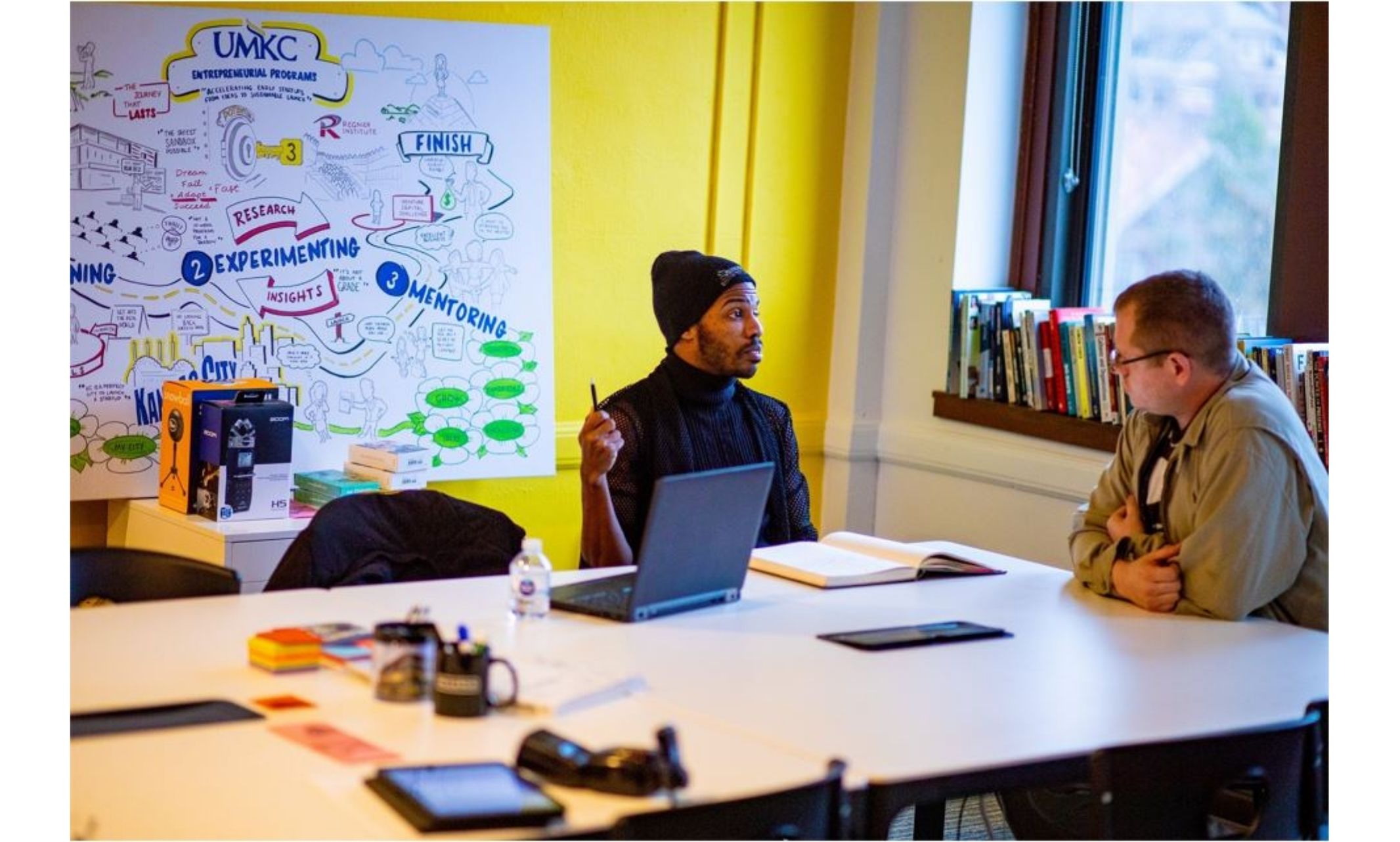
Innovative approach bundles support services to help students prepare for and secure high-paying careers
Earning a college degree is nice, but for most students, the end goal is to land a high-paying and rewarding career after graduation. UMKC is launching a new program to help students achieve that goal.
The University of Missouri-Kansas City is working to transform the higher education model by shifting the focus from degree attainment to career outcomes, offering an innovative approach to better prepare students to enter the workforce and land professional, high-paying careers. This bold new idea is part of the UMKC Forward initiative, a multi-year investment by the university to meet and exceed the demands of today’s college student.
The "Professional Career Escalators"SM (Career Escalators) program provides a unique set of specialized student supports designed to facilitate academic to career connections. Services include:
Career development
Mentoring by professionals in the community
Applied learning opportunities
Leadership development
Professional or grad school preparation
Applications are open now to land one of 200 spots in the inaugural Career Escalators class, which launches in Fall 2022. Incoming students and transfer students may apply for this program by submitting transcripts, a letter of recommendation and a short video that demonstrates a student’s character and desire to enter the program.
The deadline to apply is April 1.
The Career Escalators program is unique because of the way UMKC is bundling together such a robust collection of services for students. This program provides the support team, resources and peer collaboration needed to align a student’s academic journey with their future career goals.
“We are thrilled to launch this first cohort and blown away by the buzz this program is starting to generate,” said Mako Miller, M.A.Ed, director of the Professional Career Escalators program. “We’re really working to shift focus beyond the degree to the desired outcome of job readiness upon graduation. By starting post-college career planning earlier and aligning those plans with job shadowing opportunities and mentorship, our graduates will be more prepared, confident and successful in their careers.”
An added financial benefit makes this program even more appealing. Career Escalators students can choose between a $2,500 annual on-campus housing scholarship, or $1,500 applied toward the cost of tuition. Participants also have the option to live in a living/learning community with other students in the program. Just like professional networking, this living/learning model promotes building connections, and adds yet another layer of similarity between academic life and the workforce.
Apply today
Feb 15, 2022
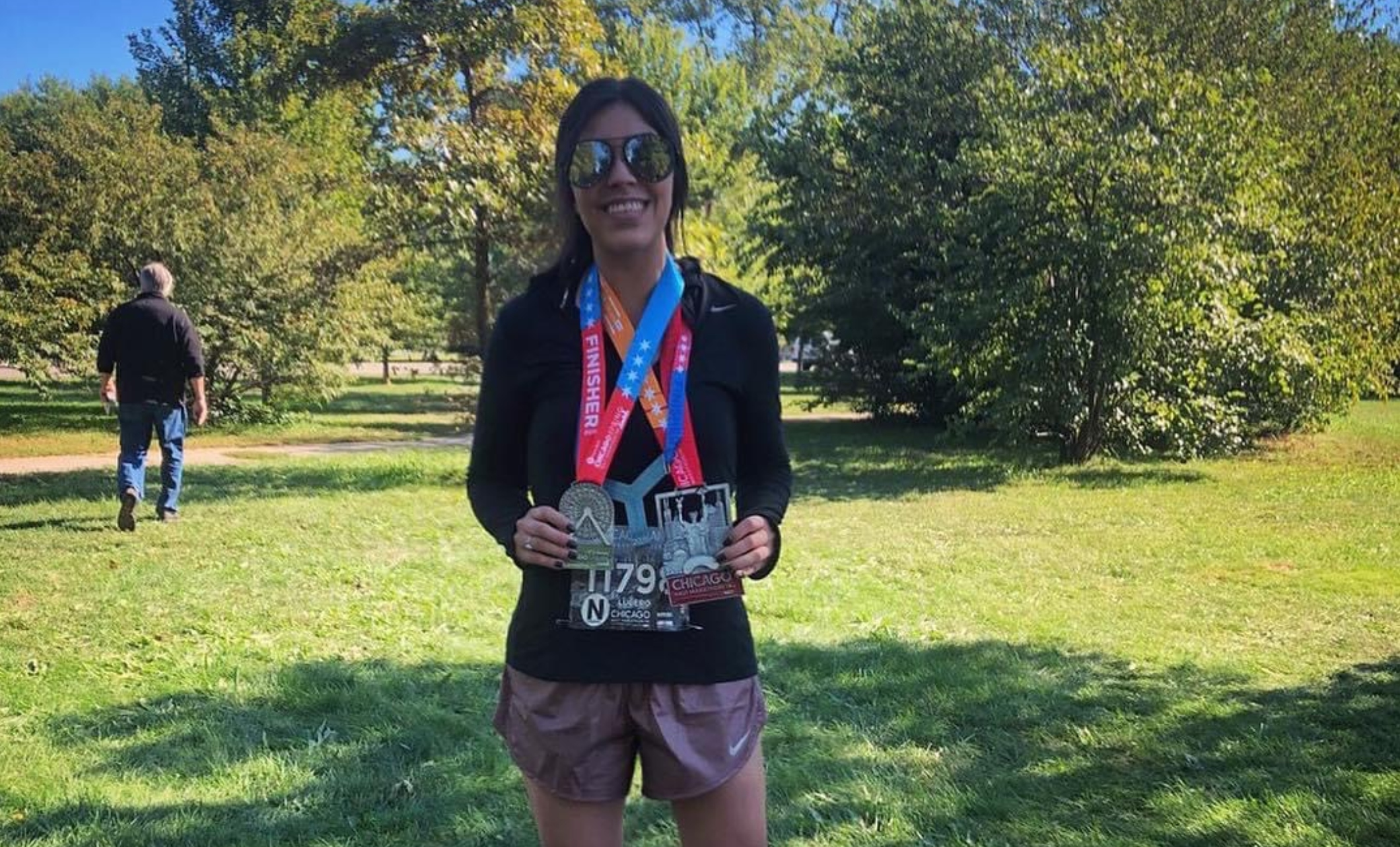
UMKC School of Education selects Lucero Garibay to receive Alumni Award
Each year, the UMKC Alumni Association recognizes the achievements of outstanding alumni with an awards celebration. UMKC is honoring Lucero Garibay (M.A. ’16) with its Class of 2022 School of Education Alumni Achievement Award.
While it would have been natural for Lucero Garibay, a Chicago native, to stay closer to home to pursue her graduate degree in mental health, she chose to attend UMKC. Although she knew no one at the university when she applied, the school’s mission, that includes “meeting the varied psychological, social, and educational needs of individuals, couples and families in diverse urban communities,” aligns with her personal mission of giving back to her own community.
Garibay returned to Chicago and is a successful psychotherapist with Pilsen Wellness Center, an organization that focuses on culturally sensitive approaches in their services to support family relationships, community empowerment and economic development.
How has your cultural heritage and being bilingual impacted your career working so closely with people?
Being bilingual is a beautiful part of my identity in and of itself, but it also serves as an invaluable resource in the mental health field. There already exists a shortage in mental health services across the field. There is an even more severe shortage of mental health providers that are able to fully comprehend the cultural and language barriers faced in so many of our communities. Visibly being witness to the ease that clients exude when they are paired with a provider whom, not only shares their cultural heritage but also speaks the language they are most comfortable with, is an experience truly difficult to put into words. I am inherently grateful.
How do you manage the challenges of working with individuals going through trauma?
Holding space for others’ trauma and emotional pain on a daily basis is not something one becomes accustomed to. I have worked hard towards learning how to take care of myself in order to provide the best possible care for my clients. One of the most difficult lessons faced in the early days of my career was learning not to take certain things home with me. Some days are heavier on the heart than others. I check in with myself on my way home from work, ask for space if I need it, and do something kind for myself.
What is your favorite UMKC memory?
Most of my favorite UMKC memories can be attributed to the home I found within UMKC Residential Life. I served as an assistant residential life coordinator at Johnson Hall for two years. Being part of the team at Residential Life granted me a support system that I would have otherwise felt lost without in Kansas City. I remain friends with many of the colleagues I worked alongside with to this very day. I could never thank them enough for the emotional support they and the department provided me with as I pursued my graduate degree, far from the comforts of Chicago.
What advice do you have for students who’d like to follow in your footsteps?
Keep your mind and options open. Some of us continue working within the settings and populations that call out to us when we are in school. However, many of us will find an entirely different setting or population to pour our passions into. Second, compassion fatigue is a very real thing. Don’t let your pursuits in the healing of others take you along with it. Take care of yourself. Your clients will thank you for it.
About the Alumni Awards
Join us in honoring Garibay and the other Class of 2022 awardees at an in-person celebration at 6 p.m. April 29, at the James C. Olson Performing Arts Center. To register, visit UMKC's Alumni Association website. If you are unable to attend the event but would like to donate to student scholarships, contributions can be made online.
Feb 14, 2022
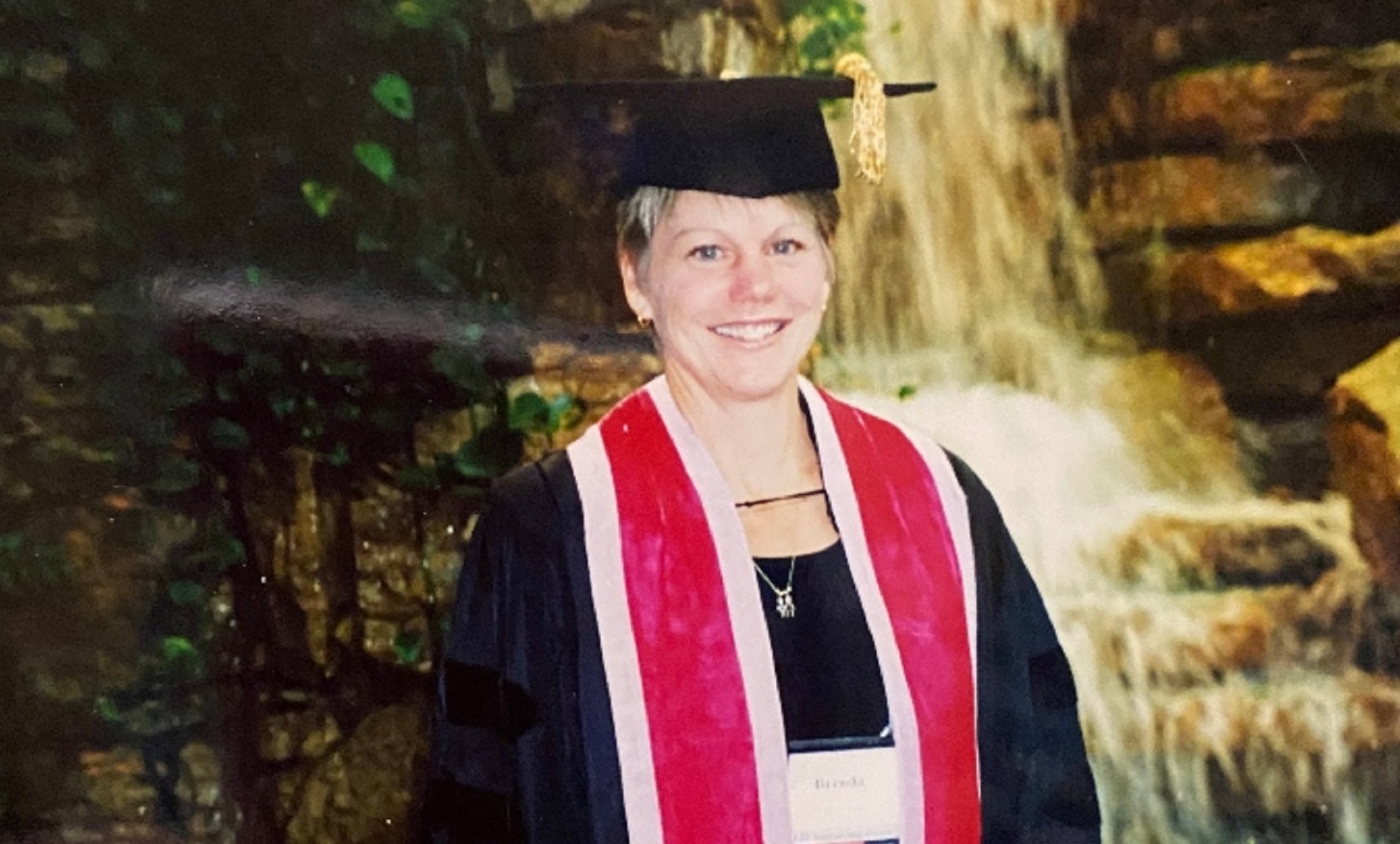
UMKC School of Dentistry selects Brenda Bohaty to receive Alumni Award
Each year, the UMKC Alumni Association recognizes the achievements of outstanding alumni with an awards celebration. UMKC is honoring Brenda Bohaty (Ph.D. ’09) with its Class of 2022 School of Dentistry Alumni Achievement Award.
What drew you to dentistry? And what made you want to work with children?
I grew up in a small rural town in Nebraska and my dentist was literally “a jack of all trades.” He really did it all…surgery, restorations, everything. I really admired him and enjoyed going to the dentist. I had some complicated treatment needs with impacted teeth and so my case was not easy. He made me feel comfortable no matter what I was having done.
As the director of the residency program for up-and-coming dentists at Children’s Mercy, you work closely with your profession’s newest cohorts. How will pediatric care look different for them than it did when you first began?
The love for children and our desire to help them never changes. We are faced with managing many more children with special health care needs as more children survive catastrophic diagnoses and continue to live meaningful lives.
Our focus and commitment in areas of healthcare inequities will also be expanded. Although we have talked about barriers to care for a very long time, leaders in dentistry will need to expand our response and work together to ease the many barriers faced by those in need. Finally, the number of children who experience adverse childhood experiences continues to increase and our focus on training dental students and advanced training students in trauma informed care will be very important.
What is the impact of your work with Operation Breakthrough and the Lowry Clinic having for young kids?
The Lowry Clinic Program at UMKC was established with a trust more than 60 years ago to pay for care for children in urban Kansas City. The money from the trust is gone, but UMKC continues to make the program a priority and provides care to approximately 150 children each year. What an impact we have on the oral health of these kids! The Operation Breakthrough program is similar and has been a win-win for our students and patients alike.
What advice do you have for students who would like to follow in your footsteps?
Work hard and love what you do! Embarking on an academic career in dentistry was not something I was interested in pursuing initially, but I was guided by awesome mentors like Dr. John Haynes (B.S., ‘56, D.D.S., ‘60, M.A. ’71) and James Lowe (D.D.S., ’65, M.S. ’69) I loved practicing dentistry, but the combination of teaching and practicing was a perfect mix.
About the Alumni Awards
Join us in honoring Bohaty and the other Class of 2022 awardees at an in-person celebration at 6 p.m. April 29, at the James C. Olson Performing Arts Center. To register, visit UMKC's Alumni Association website. If you are unable to attend the event but would like to donate to student scholarship, contributions can be made online.
Feb 14, 2022
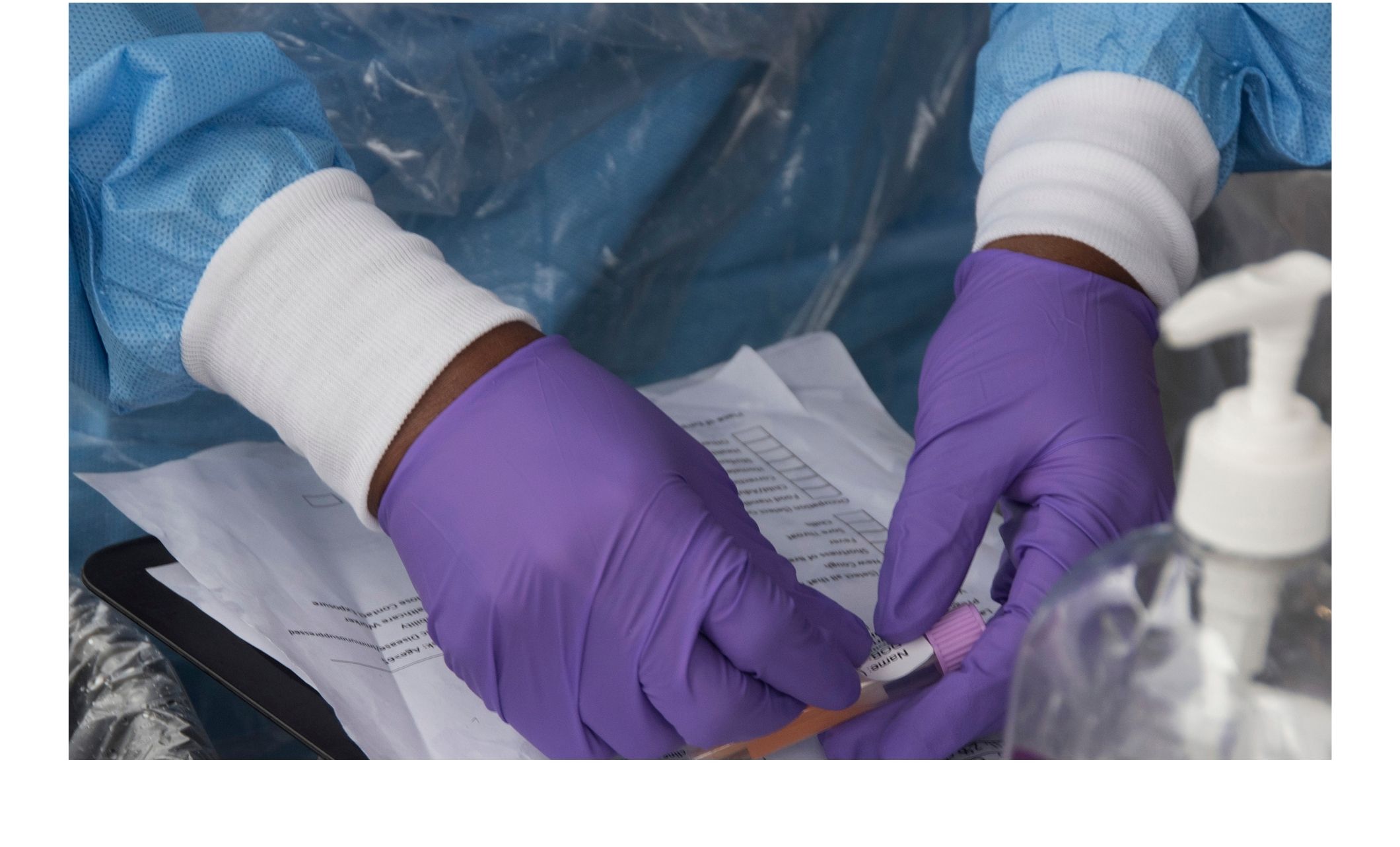
Open to general public and university faculty, staff and students
Quick and convenient on-campus resource makes it easier to know your health status and take precautions.
Covid-19 testing shortages felt across the country have threatened the university’s ability to monitor the spread of Covid-19. In response to an increased demand for COVID-19 testing options, UMKC has partnered with the testing company Curative to host an on-campus testing site. University leadership hopes that providing this quick and convenient resource on campus will encourage awareness and increased vigilance as we continue to fight the spread of COVID-19 and its variants.
A mobile testing unit is set up at 5050 Oak Street in the empty lot on the north side of Pizza 51. The testing facility is open Monday - Saturday from 8:30 a.m. to 4:30 p.m. Curative staff will conduct shallow nasal PCR tests with results expected one to two days after the lab receives the sample. Appointments are preferred, but not required, for students, faculty and staff, as well as the general public. You can book an appointment here beginning Feb. 16.
Testing is free, but those with insurance will be asked to provide policy information for Curative to submit to a patient’s insurance company. Insurance is not required for testing. The testing site will run through May 2022.
“This on-campus testing site is the latest benefit in a continued and ongoing effort to bring in-demand resources to our UMKC community and surrounding neighborhoods,” said Mauli Agrawal, chancellor. “These precautions have allowed us to successfully return to campus this spring and will be key to our continued success in having another productive semester.”
In addition to the testing site, UMKC will continue to host on-campus vaccination clinics for members of our campus community and the general public, in partnership with the Samuel U. Rodgers Health Center. The clinics will be held at the Student Union in the Jazzman’s Café and Bakery Stage Area at the following dates and times:
Feb 15: 1-5 p.m.
March 1: 1-5 p.m.
March 15: 1-5 p.m.
April 5: 1-5 p.m.
May 3: 1-5 p.m.
Latest Covid-19 Information from UMKC
Feb 14, 2022
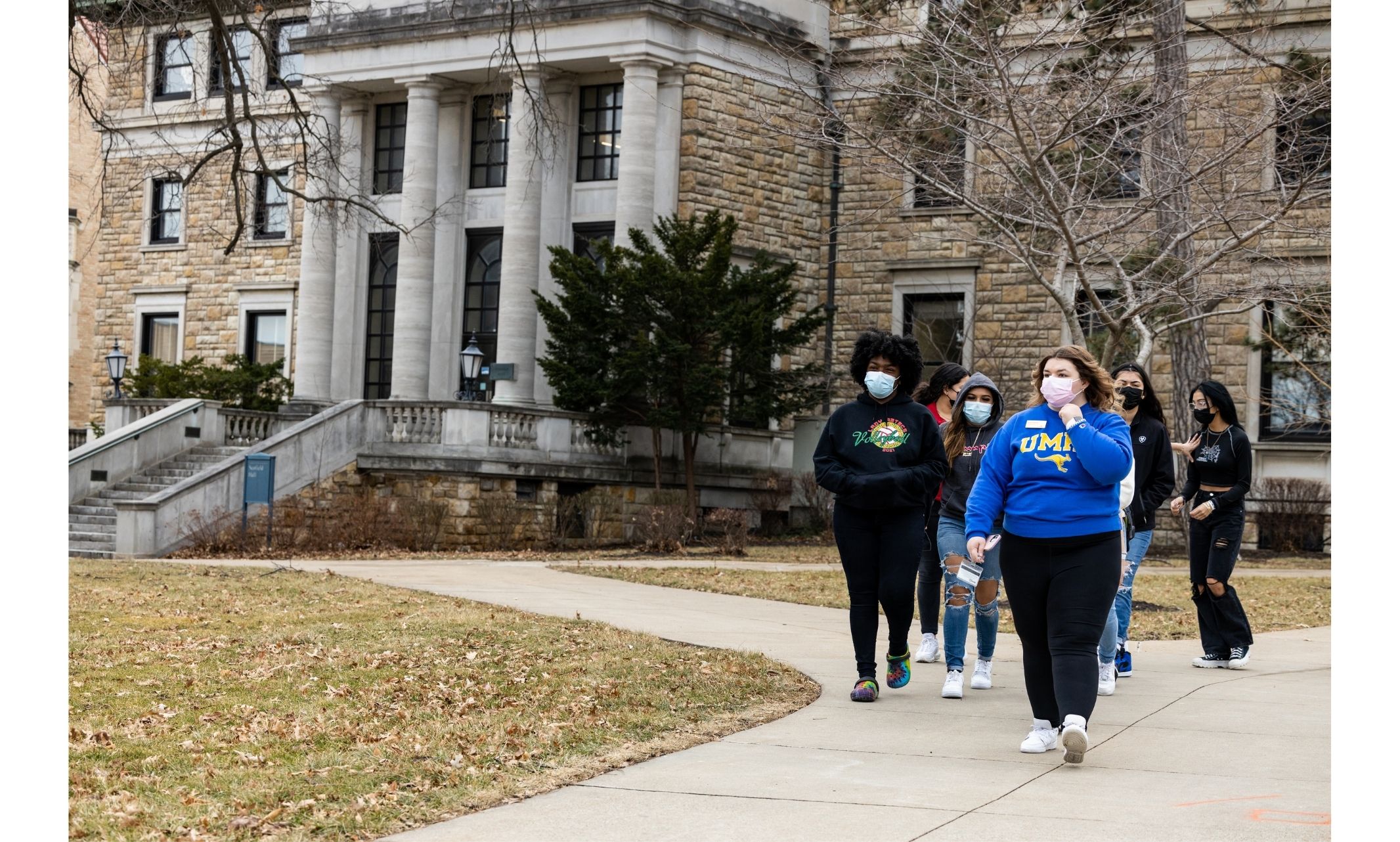
Recently launched "Professional Career Escalators" program prepares students to go beyond the degree
Sophomore students attending Guadalupe Centers High School visited UMKC’s campus to learn about its culture, programs and degree options.
The group of about 35 students are participants in their high school’s college prep program called Early Escalera. It works with students to prepare for college earlier in their high school careers. Early Escalera is the high school equivalent to UMKC’s "Professional Career Escalators"SM, or Career Escalators, program that prepares college students to start thinking about careers from the minute their university experience begins.
Chancellor Agrawal welcomed the students to the university shortly after their arrival on campus. He explained the benefits of UMKC’s new Career Escalators program, a cohort style learning model that encourages students to align their academic journeys with future career goals in mind and supports students with a unique collection of bundled services, resulting in memorable experiences and powerful connections to help students land high-paying careers upon graduation.
“Your program takes you through the early steps of getting to college, ours takes you through getting a degree to a successful and fulfilling career,” said Mauli Agrawal, chancellor.
The chancellor went on to give an overview of UMKC’s degree programs, including two new degree options launching in the fall of 2022 before bidding the students farewell as they ventured out around the Volker Campus for a tour.
“My two favorite spots on campus are the basketball courts and our iconic Roo statue,” said Agrawal. “Be sure to keep an eye out for those spots during your tour and take time to take a picture yourself and post it.”
According to the National Register for Historic Places, Guadalupe Centers is the longest continuously operating agency serving Latinos in the United States. Guadalupe Centers’ educational programming dates back to the 1980’s, expanding from 15 students who learned in the basement of a neighborhood church to now serving over 1,000 students in Pre-kindergarten through high school. The Early Escalera program at Guadalupe Centers High School (GCHS) aims to make sure students graduate, go to college and find continued success.
Uzziel Pecina, assistant teaching professor in the UMKC School of Education, welcomed the group and shared a unique connection to their school.
“Benvenidos, somos familia,” Pecina said, before explaining his role at UMKC’s school of education.
Students were surprised and delighted to learn Pecina is a former principal of Alta Vista High School, which is known today as Guadalupe Centers High School. He went on to share deep familial ties to GCHS – Pecina has a sister who is a GCHS counselor, a brother who taught art there, one nephew who graduated from GCCHS and another who is a current middle school student.
“The culture here at UMKC is unmatched. We have more than 300 student organizations and a culture of support and inclusion,” Pecina said. “Ask questions, introduce yourself to people and make connections as you lay the groundwork for your future college careers.”
Apply to Career Escalators
Feb 11, 2022
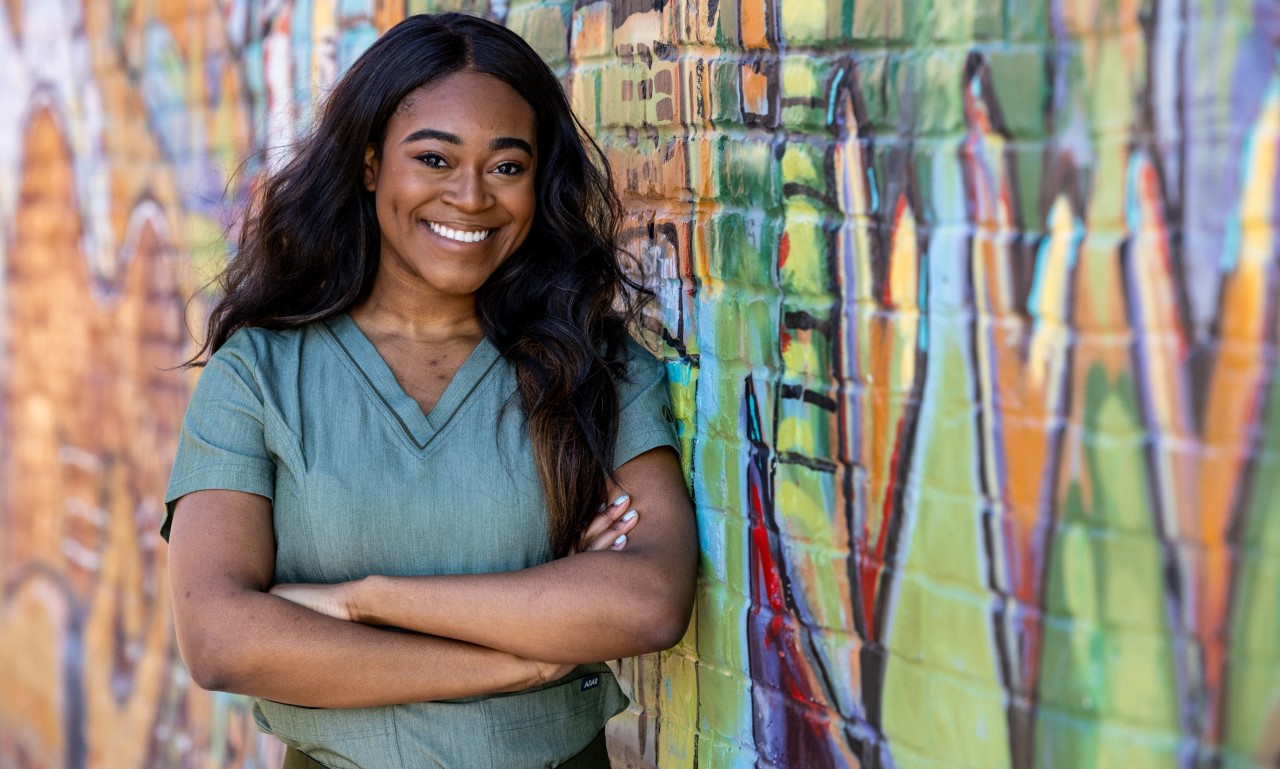
Dumebi Okocha leverages her unexpected ‘medfluencer’ platform for good
Roos don’t just dream, they do. Our students turn ideas into action every day. Get to know our people and you’ll know what UMKC is all about.
Dumebi OkochaAnticipated graduation year: May 2024UMKC degree program: B.A./M.D.Hometown: Waxhaw, North Carolina
As the daughter of a physician and a nurse practitioner, pursuing a medical career was a natural path for Dumebi Okocha.
"I always saw my dad coming back from work and I was always interested in the cases he was seeing, even though I didn’t know what he was talking about. My mom is a nurse practitioner, so I come from a strong health sciences background,” she said. She applied to UMKC because of its six-year accelerated B.A./M.D. program, which would allow her to become a physician faster and save money. When she found herself stuck at home during the COVID-19 pandemic, Okocha did what many people her age do when boredom strikes: she made a TikTok video. She noticed there was not much awareness about accelerated medical programs like hers, so posted about it. “I was just trying to show there were other, quicker, more cost-affordable options without the MCAT,” she said. To her amazement, it racked up more than 50,000 likes. “I was surprised. I just didn’t think anything of it at the time. When I started, I probably had 30 followers,” she said. “I was like, ‘Who are all these people?’ That’s when I was like, okay, if I post consistently, I think I can get a following.”
Soon her inbox was flooded with direct messages from students who had never heard of accelerated programs. It was then that Okocha saw an opportunity to change the face of medicine. She decided to expand her platform to talk about the medical field more broadly and encourage other people who are Black, first-generation Americans, first-generation college students or an under-represented minority to pursue medical careers, no matter if they chose a six-year track or another path. “My goal overall is to be a face for what is possible and to use my privilege to help those who are not as privileged,” said Okocha. “Once they see a Nigerian-American girl in medical school doing her thing, I think it helps them say, ‘Okay, she’s doing it. She’s not perfect but she’s doing it, which means I can do it. I just have to find my way to success.’” Okocha has since expanded her reach, with her highest-viewed video now reaching one million views. At first, she was nervous about her classmates and professors seeing her videos, but she says the feedback has been largely positive. “I was getting too self-conscious thinking that if people are watching, I had to be perfect. But once I heard from administration that they liked my TikToks, I knew I was doing a good job,” she said. In addition to being a medfluencer, Okocha is a UMKC School of Medicine ambassador, Region 2 secretary and the local chapter secretary of the Student National Medical Association, public relations representative for the OBGYN Interest Group and a member of Students Training in Academia, Health and Research (STAHR). Between her studies and her extracurricular commitments, Okocha said her social media presence can be a lot to balance, but she tries to keep things in perspective.“I have to remember this is not my job, this is a hobby. When I place it like that, it’s not an obligation, it’s just for fun,” she said. “I think I laid the expectation that I’m not going to post every day and that’s okay. Around finals, I don’t really post. If I’m changing classes, I tend not to post in the beginning just so I can get my footing. I always put being a student first.”
Through it all, Okocha said she has learned how to manage multiple tasks, find creative solutions and appreciate all the professions of medicine. She hopes by sharing her journey, it will inspire others. “You can have a life, you can go to med school and even if you have disadvantages stacked against you, there are ways around it, you just have to know those ways.”Okocha said she plans to continue and expand her social media presence when she becomes a doctor. “I feel like social media is the new way of getting information out to your patients and educating people,” she said. “My dream is to have a podcast. After I take my boards, I want to start working on that.”
Feb 09, 2022
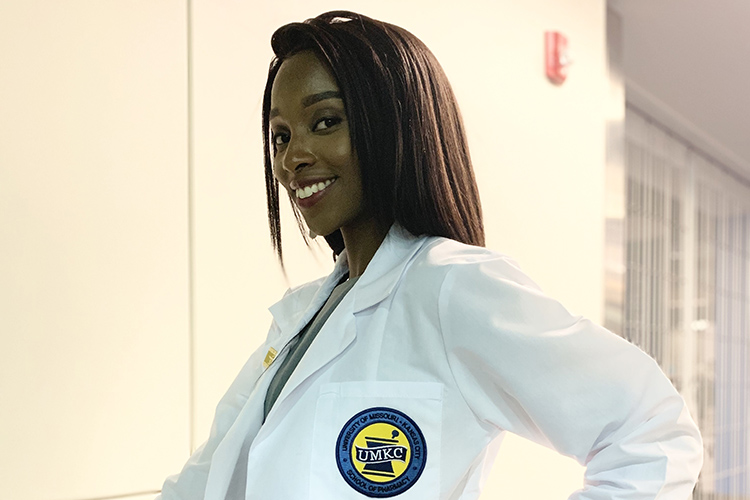
As School of Pharmacy recognizes Black History Month, it celebrates the accomplishments and contributions of the school’s Black community who are m...
Meet Dasjah Mason, a fourth-year student at the UMKC School of Pharmacy, whose goal is to serve underrepresented and marginalized groups as a clinical pharmacist, while also serving as a preceptor and mentor for future pharmacists.
Why did you select UMKC School of Pharmacy?
I moved to Kansas City because I wanted to pursue a career in pharmacy and track and field. I was blessed to receive a scholarship for the women’s track and field program, so it was a no brainer to stay here for pharmacy school. Several pharmacists I knew graduated from UMKC and said they felt they were prepared to pass boards and move on in their career after graduation.
How have UMKC and UMKC School of Pharmacy embraced and supported you as a Black student?
The UMKC School of Pharmacy has embraced and supported Black students in several ways over my last few years. Namely establishing the Black Student Pharmacists Organization and working with its members to create a network with other Black alumi. Also, faculty actively participate in the Students Training in Academia, Health, and Research (STAHR) Program. The STAHR program is aimed towards retention and graduation of students from economically and educationally challenged backgrounds. Faculty provided mentorship through several workshops, one-on-one meetings and being available to their students daily. Through this experience, I was able to create strong relationships that help me develop professionally and personally.
Why would you encourage prospective students from your background to consider the UMKC School of Pharmacy?
I would encourage prospective students to consider UMKC because its current students are working to create a network to recruit and retain Black students and serve its surrounding community.
What do you hope to do in pharmacy when you graduate and how do you feel the School of Pharmacy is helping prepare you for that?
After graduation, I wish to complete PGY1 and PGY2 residencies in a specialized area of interest then become board certified. After completion of my residency training, I plan to maintain a clinical practice while having a role precepting and mentoring pharmacy students and residents. Moreover, another passion of mine is serving underrepresented and marginalized groups. Therefore, I believe a residency experience would equip me with clinical skills on acute and chronic disease states to use towards patients who tend to have significant disparities that interrupt their health care. I believe the UMKC SOP has prepared me well for residency. Throughout my rotational experiences, I feel stronger in my abilities to be a clinical pharmacist and I think that stems from my strong baseline knowledge gained in the classroom.
Feb 09, 2022
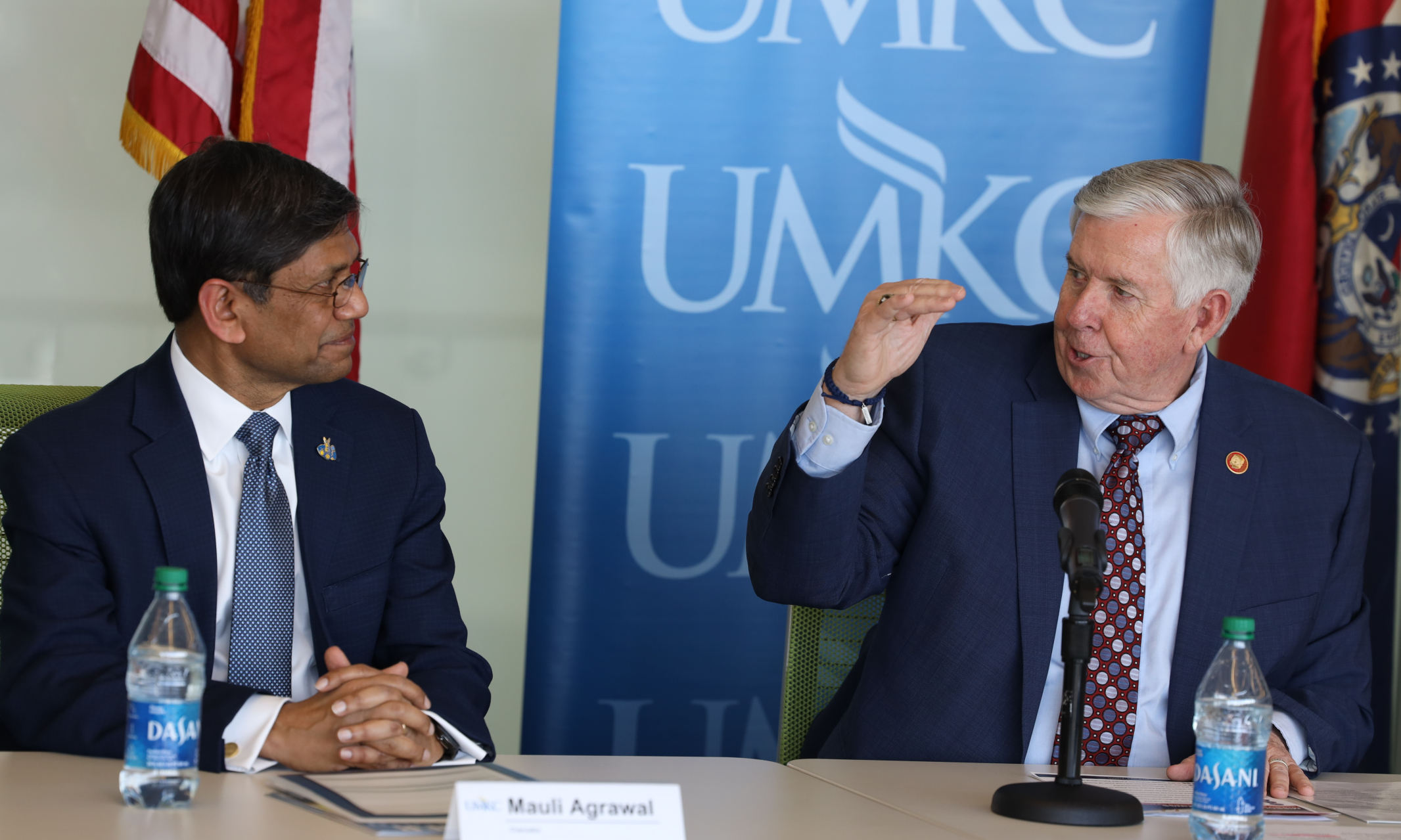
The governor discussed "building the foundation" for important partnerships
Governor Mike Parson visited the University of Missouri-Kansas City to host a roundtable discussion with greater Kansas City community leaders on higher education and workforce development. It's the first time this governor has visited campus.
The governor’s discussion focused on the importance of partnerships for workforce development between K-12 institutions, higher education and the private sector.
“When I first became governor, improving infrastructure and workforce development were the two main goals. I knew the only way I could do that was to partner with K-12 and to partner with higher education,” Parson said. “We are building the foundation of that right now.”
C. Mauli Agrawal, UMKC Chancellor, noted several programs the university has to help bridge those gaps, including a new signature program - Professional Career Escalators. Launched this year, the escalators allow students to include applied experiences to their degree programs, like internships or service learning.
“From the time they start classes, this program will help students focus on their career dreams, and not just getting a degree. That will drive workforce development long-term,” Agrawal said.
Some members of the roundtable consisted of:
C. Mauli Agrawal, UMKC Chancellor
Jenny Lundgren, Provost
Kevin Truman, Dean of the School of Computing and Engineering
Mary Anne Jackson, Dean of the School of Medicine
Steven Haas, Dean of the School of Dentistry
Charlie Shields, Vice-Chair UMKC Board of Trustees and CEO of University Health
Scott Boswell, President of UMKC Board of Trustees and President of Commerce Trust West Region
Ramin Cherafat, Chair of the Greater KC Chamber and UMKC Board of Trustees
Joe Reardon, CEO Greater KC Chamber
Kimberly Beatty, Metropolitan Community College Chancellor
Mark Bedell, Superintendent of Kansas City Public Schools
During his 2022 State of the State address in January, Parson released his budget recommendations for Fiscal Year 2023, which included a recommendation for a 5.4% increase in the core budgets of high education institutions and is proposing $265 million for capital projects across all four of the University of Missouri institutions.
“I would like to thank you for your steadfast support of higher education and understanding of the critical role that public universities play in preparing the workforce,” Agrawal said.
If the total amount of Parson’s recommended funding for higher education is included in the budget, Agrawal said UMKC plans to use its portion to help expand the university’s Health Sciences District, which is home to the School of Dentistry, Medicine, Nursing and Health Studies and Pharmacy.
Combined with UMKC’s partnership with University Health that is already in place, this project would bring billions of dollars to the region, create jobs, propel research and solidify our place among the region’s top healthcare institutions.
“This will make UMKC the premier academic health center,” Agrawal said.
Feb 09, 2022
Former economics department chair Stephanie Kelton recently spoke to the New York Times
Kelton spoke about Modern Monetary Theory and the test that the COVID-19 pandemic has put the theory through. Read more.
Subscription required
Feb 08, 2022
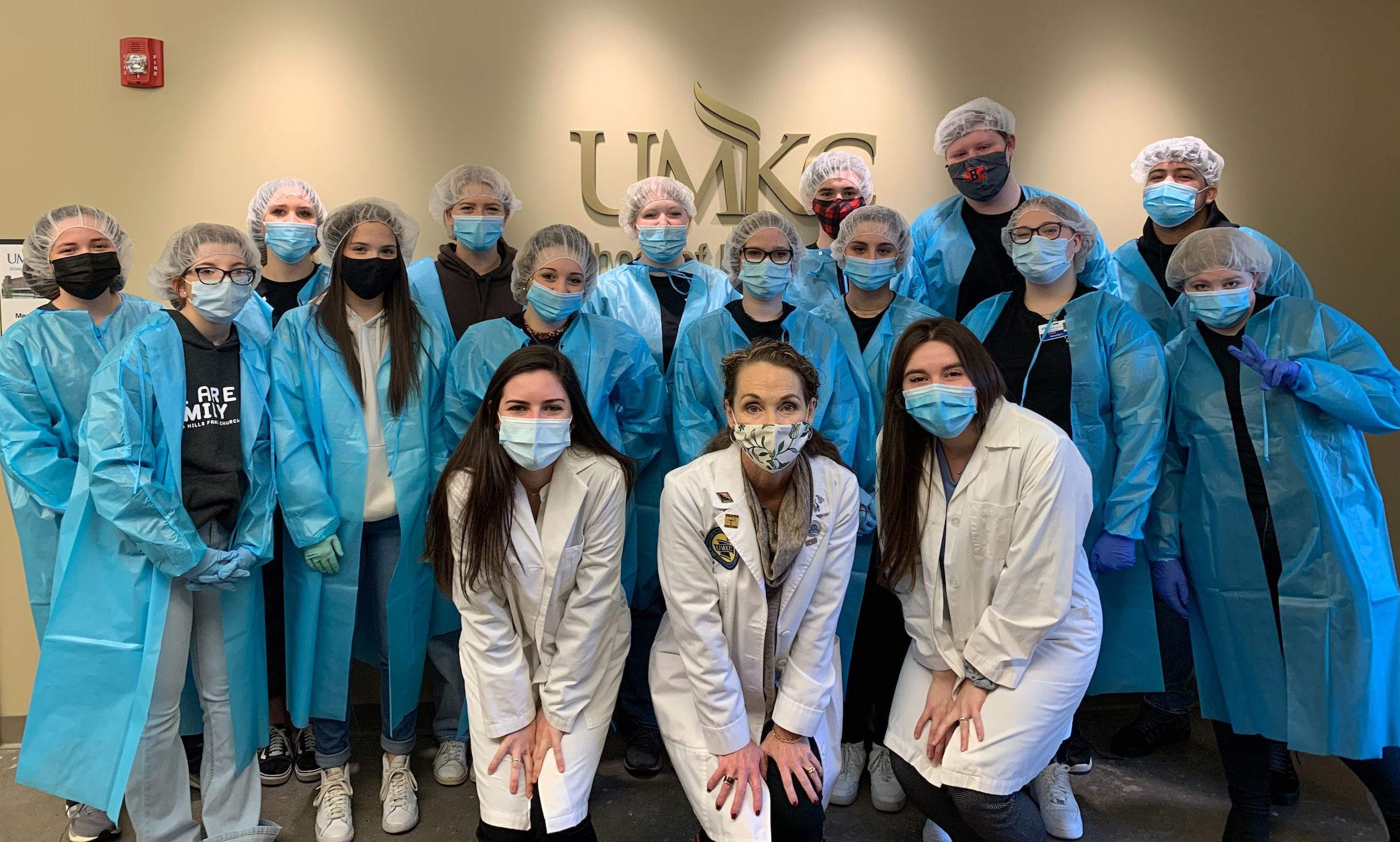
High school students are learning the roles of the pharmacist within the health care team through a career exploration program with Heather Lyons-B...
Each January, Heather Lyons-Burney, Pharm.D., welcomes a group of area high school students to visit her laboratory at the UMKC School of Pharmacy’s Springfield campus. For two and a half hours, the students take part in an experience of chemical compounding and discuss the role of non-sterile compounding to meet the unique needs of patients.
The students are part of the Greater Ozarks-Centers for Advanced Placement (GO-CAPS) program. Throughout the year, they will meet monthly with Lyons-Burney, and often one of her UMKC pharmacy students, to learn about a pharmacy topic and engage in pharmacist-like activities.
GO-CAPS is a career exploration program that partners with businesses throughout Missouri’s greater Ozarks area. It offers high school juniors and seniors an educational opportunity driven by real-world, career-oriented experiences. For those interested in health care, particularly pharmacy, there is Lyons-Burney.
“My goal is for the students to understand the role of the pharmacist on the health care team and how pharmacists impact patient outcomes,” she said. “Whether or not they decide to be a pharmacist, I want them to feel comfortable reaching out to the professionals who are the medication experts. I enjoy working with these motivated students, helping them explore various occupations in health care and how we work best as a team.”
As part of their high school curriculum, GO-CAPS students participate in a program of shadowing, attending classroom presentations, participating in various pharmacy projects and ultimately developing their own capstone project.
Lyons-Burney is part of the area-wide GO-CAPS program and serves on the advisory board as a resource for learning experiences and on-site ambulatory care clinic shadowing. The program provides a packed schedule of exploring a wide spectrum of the health care field including learning to perform CPR and emergency first aid with paramedics, how to set a fracture with an orthopedists and gaining a greater understanding of medical technology.
As a pharmacist, Lyons-Burney leads the high school students, currently a class of 16, in exploring the various areas of health care where one might find a pharmacist and provide them with clinical examples of the many roles today’s pharmacists play.Their classroom and laboratory sessions touch on lessons such as how pharmacists intersect with patients in addressing social determinants of health to clinical discussions on the complications of diabetes, such as neuropathy, and how to conduct a mono-filament foot exam to assess the loss of one’s sensation. Students also break into teams to work on and present patient cases.“My focus is to explore the roles of pharmacists in various settings by walking the high school students through a topic discussion of a disease state and discuss how a pharmacist in a hospital, long-term care setting, specialists office, primary care clinic or community pharmacy may be involved with patient care and the health care team,” Lyons-Burney said.She said that much of the pharmacist’s role in patient care involves considering options for therapies and whether or not those therapies will be safe and effective for a patient.“To demonstrate that process, it’s easiest to put the student somewhat in the seat of a pharmacist and have them think through a patient case to come up with a safe, effective option,” she said.Lyons-Burney said that by exploring multiple health care professions, including pharmacy, students in the GO-CAPS program may wind up going into a profession they might never had considered before.“Regardless of the health care profession that the students choose, this provides them with skills and knowledge that gives them a head start,” she said.
Feb 08, 2022
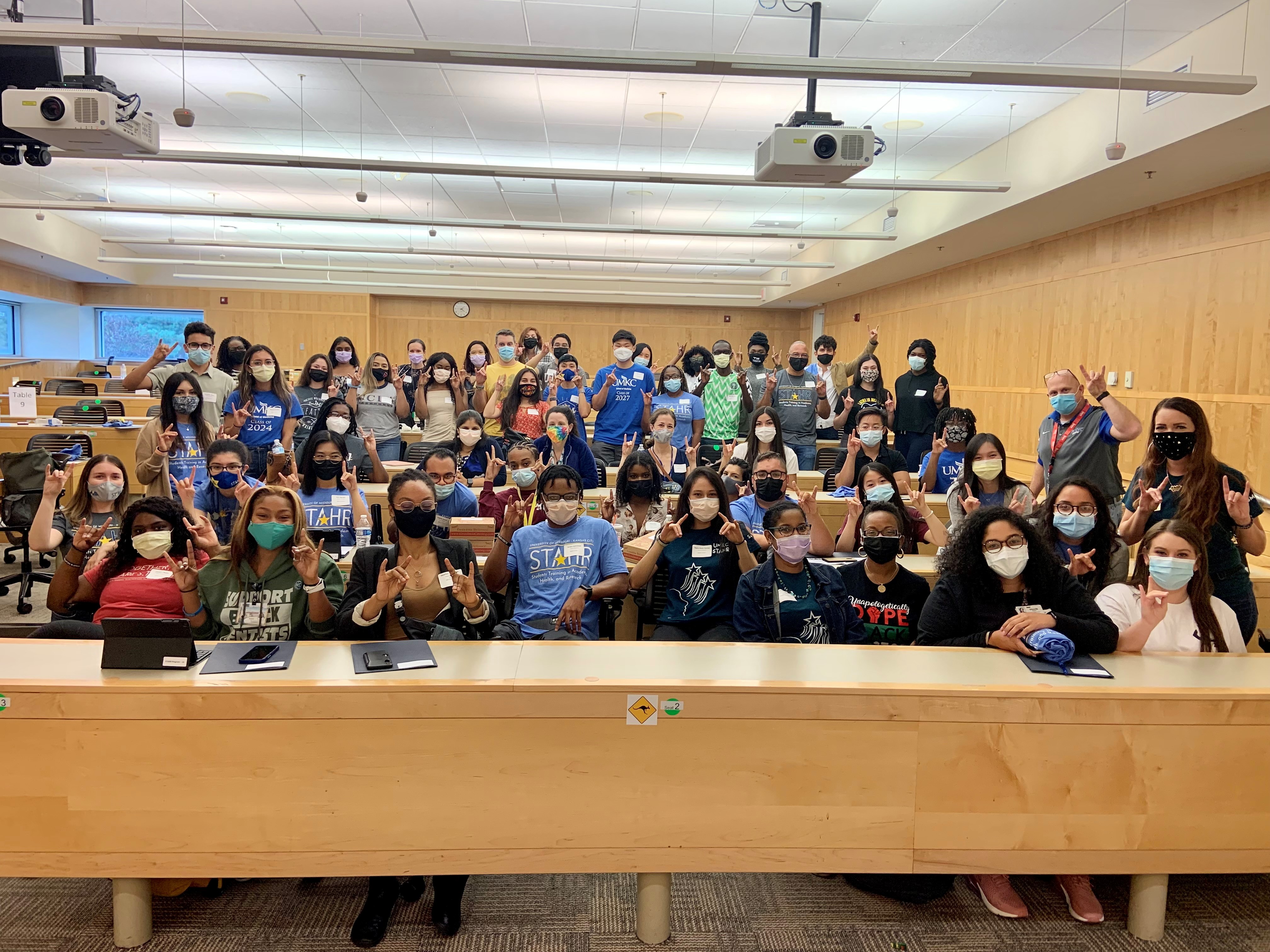
Collaborative seeks to increase the number of students from disadvantaged backgrounds entering health care programs and better prepare them for suc...
Sayra Nieto Gomez realized there would be challenges as an underrepresented minority student at the UMKC School of Medicine. More important, the fourth-year med student also discovered a program that has helped her, and others like her, rise to meet the challenges that many underrepresented minority students deal with in the health care field.
The Students Training in Academia, Health, and Research (STAHR) Partnership is a collaborative of the UMKC schools of medicine, dentistry and pharmacy. The program is designed to increase the number of students from disadvantaged backgrounds entering health care programs and better prepare them for success academically and professionally.
Sayra Nieto Gomez
“As a student, the STAHR program has provided a safe environment for me to be myself and to learn from students and physicians facing similar challenges,” Gomez said. “The most impactful thing that I’ve gained from this program is knowing that challenges persist through a person’s career. But as students and future physicians, we learn to adapt and grow from those challenges.”
STAHR is a two-pronged initiative that was started in 2018 to build and expand on the medical school’s highly successful high school Summer Scholars program and the dental school’s Admissions Enhancement Program.Today, in addition to a greatly expanded scholars program that offers multiple tracts for high school and college students to learn about and prepare for careers in health care, STAHR encompasses an ambassador program that provides current UMKC health professions students with meetings and mentorship opportunities. Ambassador workshops take place several times a year to help students learn and develop pertinent skills such as overcoming self-doubt and develop strategies to achieve academic success.It’s also vital in helping students create a community of like-minded peers, said Scott Guerrero, director of the STAHR program.“We use the Thomas Principles that focus on academic support, psychological support, identity development, leadership, sense of belonging and professional development,” Guerrero said. “Our first workshop was on academic support where we talked about what it means to be academically successful and how to overcome challenges in the classroom or within their setting.”A November workshop focused on mental health and wellness and how to cope with the stress of being a health professional student and burnout.
Natinael Mamo
“Being part of the STAHR program has helped me get to this point in my pharmacy degree,” said fourth-year pharmacy student Natinael Mamo. “The most impactful thing for me has been the numerous resources introduced to help me attain my academic and professional goals.”He’s not alone. Students from economically and educationally disadvantaged backgrounds typically succeed in attending and completing health professions degree programs at a far lower rate than students from strong schools in thriving communities. But at UMKC, as many as 150 students and more than 130 staff and health professionals across the UMKC Health Sciences Campus and community are participating in the STAHR Ambassador and Scholars programs that are changing that dynamic.Now in its fourth year, STAHR initially received a five-year $3.2 million grant from the United States Health Resources and Services Administration. Guerrero said he will soon be applying to renew the grant while also working on other sustainability efforts.In the meantime, he has a broader vision for STAHR, which is already helping many students succeed in preparing for careers in health care.“Our recruitment efforts and outreach efforts need to ramp up,” Guerrero said. “We’d love to do STAHR Days – have students come and learn about each of our programs. We’d like to recruit more economic or educationally disadvantaged students and just share our story, the benefits of a mentorship program and the success of the students in our program and their sense of belonging.”Mamo is one of those success stories. He said the Ambassadors program has helped him through the rigors of pharmacy school in part by fostering a better relationship with faculty members and peers that may not have occurred otherwise.“I would tell students that you should join STAHR to further enhance your experience within your program,” he said. “The STAHR program is led by many supportive and uplifting people who are here to guide you in utilizing your resources and to succeed in your profession. You grow through the support of all the faculty and professionals who contribute to STAHR and interactions with students in other health professions.”Guerrero admits the growth of STAHR is stretching him and his staff. But the payoff, he said, is worth the effort.“At times, it’s pushing us to our limits,” he said. “But I go back to our students need it. They’re going to grow and learn more when we can make the experience as individualized as possible, but also cater to what they’re looking for.”Gomez said the STAHR program is making it possible for young people who are passionate about becoming a physician like her to attain that dream.“The STAHR program creates a community of people who support us and help us throughout our challenges, which is very important to our success,” she said.
Feb 08, 2022
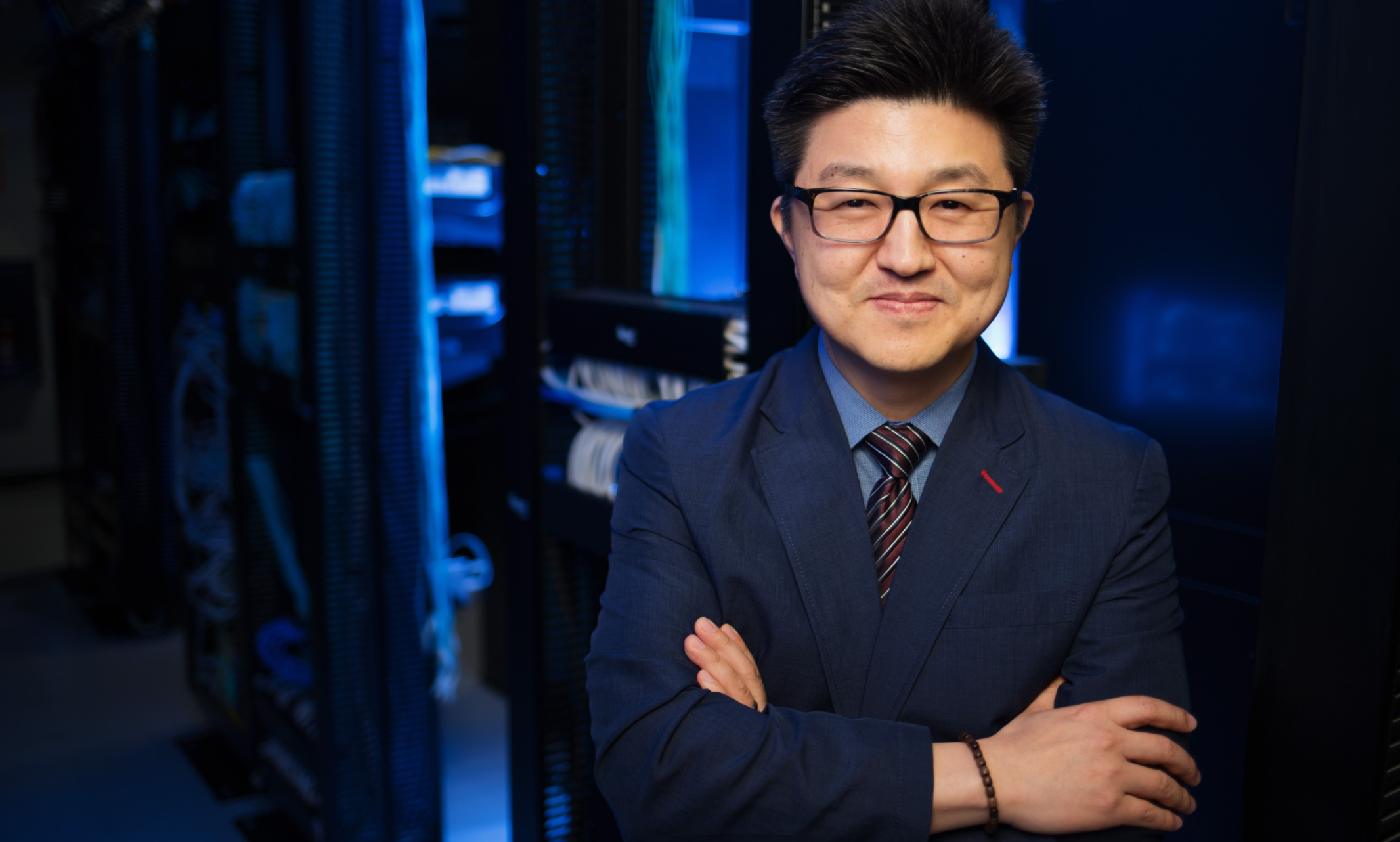
Jungwoo Ryoo receives School of Computing and Engineering Alumni Achievement Award
Each year, the UMKC Alumni Association recognizes the achievements of outstanding alumni with an awards celebration. The UMKC School of Computing and Engineering is honoring Jungwoo Ryoo (B.S. '96, M.S. '98) with its Class of 2022 Alumni Achievement Award.
Jungwoo Ryoo currently serves as the head of the Divison of Business, Engineering and Information Sciences and Technology and Professor of Information Sciences and Technology at Pennsylvania State University-Altoona. Recently, he was named Chancellor and Chief Academic Officer of Penn State DuBois, which he will begin on April 4, 2022.
He received his B.S. ('96) and M.S. ('98) from UMKC before completing his Ph.D. in computer science at the University of Kansas.
His research interests include information security and assurance, software engineering, computer networking and data science. Ryoo is the author of numerous academic articles and conducts extensive research in software security, network/cyber security, security management and auditing, software architectures, object-oriented software development and requirements engineering. Overall, he has received more than $1.5 million in total external funding.
How do you feel you've been able to move the world of computer science forward through your work?
I feel that my contribution to computer science has been making cutting-edge technologies more accessible to both end-users and developers to be at their best in what they do.
My work over the years has evolved from general software engineering to software security. With this narrower focus, it's easier to find problems with real-life consequences. For example, I have conducted two studies funded by the Center for Rural Pennsylvania to assess the cybersecurity readiness of local governments. Another prime example is my work to make it easier to build security into software applications through a methodology like Architectural Analysis for Security.
How did UMKC prepare you for/contribute to your success?
My professors laid a solid foundation for my learning path in computer science. Back in 1994, the name of our program was the Computer Science and Telecommunications Program, which was innovative and ahead of its time.
I gained my knowledge in networking and telecommunications on top of the traditional computer science curriculum, which became really handy when I became more interested in cybersecurity research.
What advice do you have for students who'd like to follow in your footsteps?
My advice would be to try to step out of your comfort zone. If you want to become a better person, you shouldn't be afraid of being uncomfortable with failing fast and often. The key to success is to learn from your failures and keep moving forward.
About Alumni Awards
Join us in honoring Ryoo and the other Class of 2022 awardees at an in-person celebration at 6 p.m. April 29, at the James C. Olson Performing Arts Center. To register, visit UMKC's Alumni Association website. If you are unable to attend the event but would like to donate to student scholarships, contributions can be made online.
Feb 07, 2022
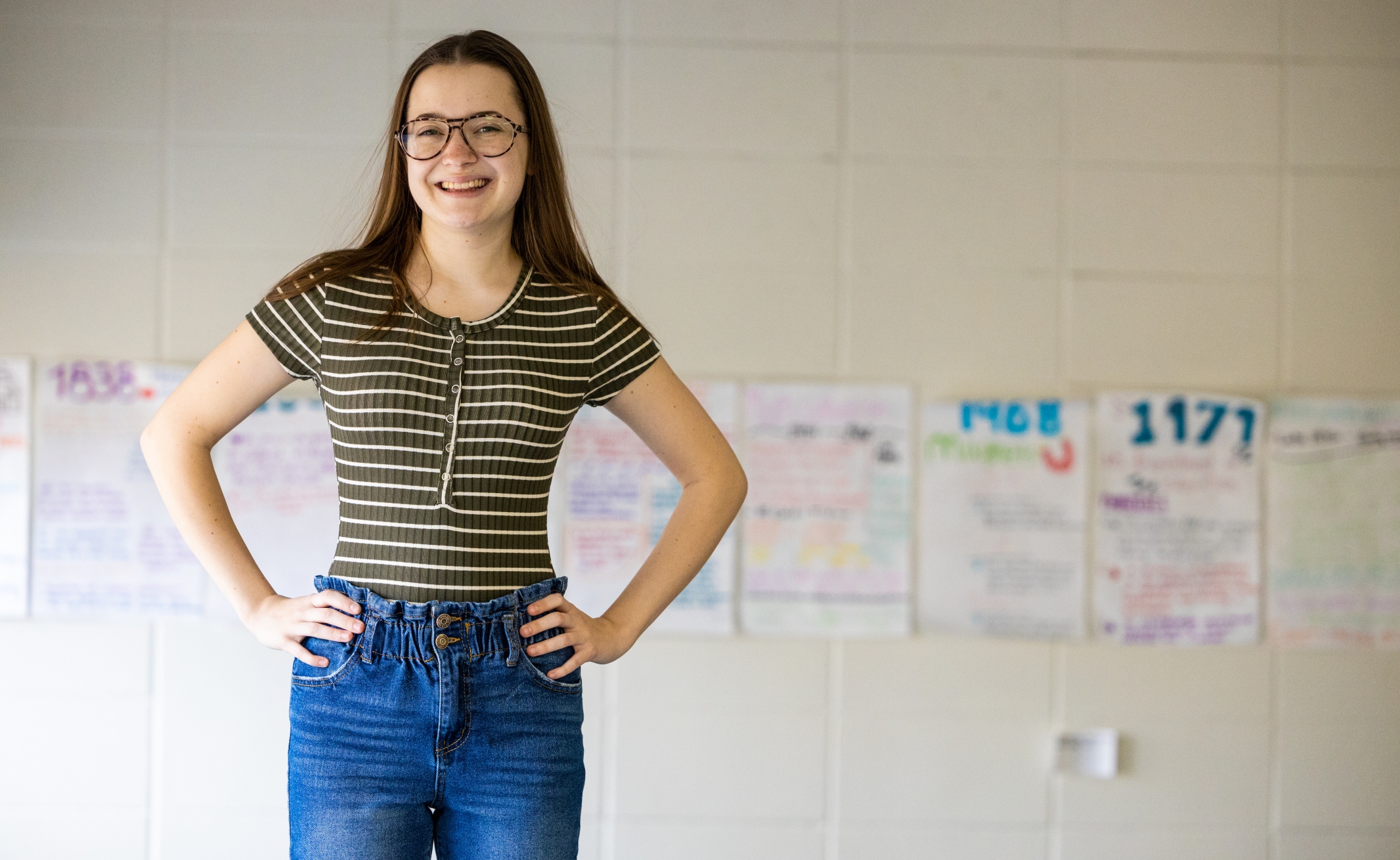
The Grow Your Own program is a catalyst for student success
Roos don’t just dream, they do. Our students turn ideas into action every day. Get to know our people and you’ll know what UMKC is all about.
Audri Sander is building her future in the UMKC School of Education Institute for Urban Education (IUE) Grow Your Own program.
“My principal contacted me over the summer,” Sander says. “We set up a Zoom meeting to talk about IUE. She’s a graduate of the program and she knew I wanted to be a teacher. She thought it would be a good fit.”
Sander’s principal, Kirsten Brown-Persley, BA, ‘12 of Crossroads Preparatory Academy, recommended Sander to the Grow Your Own program, which is sponsored by the IUE in the UMKC School of Education. The program recruits students in diverse high schools and provides college scholarships to help pay for their education degrees when they commit to teach in urban classrooms. Participants have dual credit options while in high school and scholarship opportunities.
“I feel like teaching is such an impactful job. Teachers really have the ability to change lives, and I love that idea.” — Audri Sander
“Audri was always transparent about wanting to be a teacher,” Brown-Persley says. “I knew she would love the program because of her commitment to both social service and education.”
UMKC’s IUE program has a 100% job placement rate following graduation and nearly 90% five-year retention rate of graduates teaching in their chosen schools. Missouri’s overall retention rate is 35%, so the students’ foundation for career success is significant.
“This program has been such a good fit,” Sander says. “I feel like teaching is such an impactful job. Teachers really have the ability to change lives, and I love that idea. Also, I love being around kids. I feed off their energy.”
It’s not just the classes at UMKC that energize Sander. There are thirteen students in her IUE cohort, which has helped her find friends easily during her freshman year. In addition to the coursework related to their majors, IUE students also participate in co-curricular courses and activities.
“I wasn’t sure how long it would take me to get to know the people in my cohort,” she says. “But we just clicked instantly.”
Brown-Persley had a similar experience in IUE.
“I made lifelong friendships in the program,” she says. “I knew Audri would be able to build her network and build skills and experience that will make her an excellent teacher.”
Sander has two main goals – graduate and start teaching immediately.
“One of the objectives of the program is for students to get jobs right away after graduation,” she says. “I’m super excited to get into the classroom and be hands on.”
Sander thinks that teaching will make her feel as if she’s really accomplishing something important.
“While it’s not like I’m in construction, where I can see what I’m accomplishing, I still feel as if I’ll be able to look back from the beginning of the school year and see the progress that I’ve helped students make. That’s really exciting to me.”
Feb 03, 2022
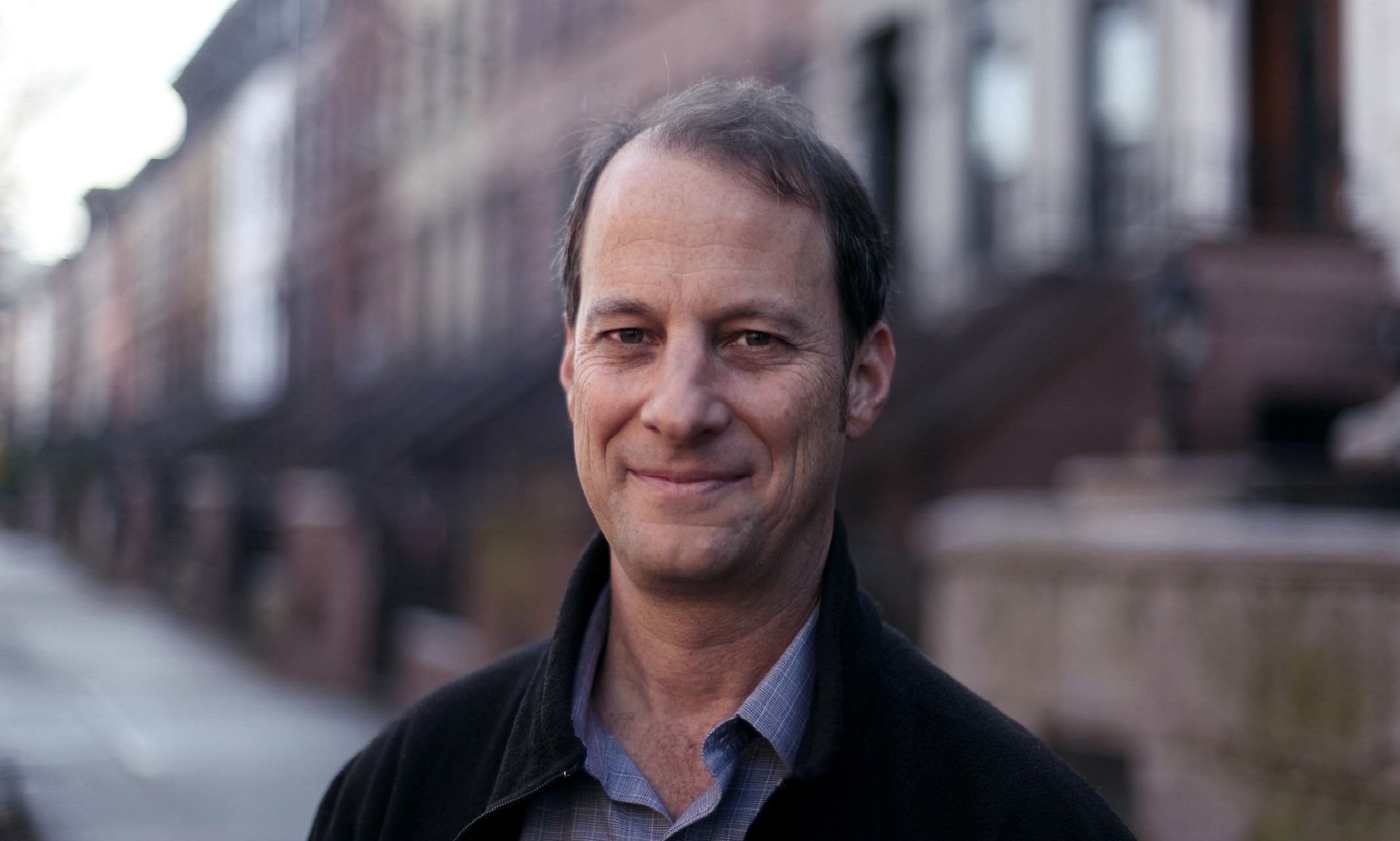
National Book Award-winning author discusses his latest book
The Carolyn Benton Cockefair Chair hosted writer George Packer in discussion of his latest book, “The Last Best Hope for Our Democracy.”
George Packer, staff writer at The Atlantic, contributor to The New Yorker and The New York Times won the National Book Award for Nonfiction in 2013 and was a Pulitzer Prize finalist in 2019. He began his remarks with an anecdote from a marriage therapist.
“When [the therapist] began to see eye rolling, sarcasm, sneering, snark, name-calling and mockery, he knew the marriage was headed for divorce,” he said. “Contempt, I think is the mood of our moment. American philosopher Scott Stevens calls contempt, “the vice that runs like acid.”
While Packer understands that this derision may feel rewarding to the person delivering the judgement at the time, ultimately, he thinks this type of discourse is damaging.
“I think it is as dangerous to democracy as it is to marriage.”
Basing many of his observations on history, Packer noted philosopher Alexis de Tocqueville’s view that was most striking feature of Americans is their commitment to equality in freedom.
“We should ask ourselves what will make us more capable of self-government. What institutions and practices shape citizens of a liberal democracy? We have to create the conditions of equality.” — George Packer
“The passion for equality, the ardent, insatiable, eternal and invincible desire of democratic people to be as good as everyone else in political terms. This passion for equality is the only basis for shared citizenship.”
Recounting the political rancor of the last six years, Packer believes many people, regardless of political affiliation, have lost “the democratic act of listening, considering, compromising and reaching an imperfect decision. These are all betrayed by contempt.
“The acid of contempt erases the humanity of the other and releases us from our responsibility to the other.”
Once contempt is the norm, he contends, and the subject becomes group and not individuals, it is “easier to erase the humanity of an entire tribe, where the tribalism is one of its political views, or race, sex or region, contempt is especially hard to resist.”
He is alarmed at the artificial intelligence that drives social media which divides people to extreme states.
“We've in some ways, given up our free will and our agency, and our sense of responsibility and are simply reacting to algorithms.”
Packer quoted the German writer, Thomas Mann, who fled the Nazis in 1938 and came to America: “We must define democracy as that form of government and a society which is inspired above every other with the feeling and consciousness of the dignity of man.”
Packer believes maintaining the dignity of mankind is essential. He also believes that despite our current division, there is a way through.
“We should ask ourselves what will make us more capable of self-government. What institutions and practices shape citizens of a liberal democracy? We have to create the conditions of equality.”
He encouraged the audience to avoid contempt, retain a sense of commonality in our citizenship and to try to imagine the experience of people with whom they disagree. And in closing, he had two thoughts on being better democratic citizens.
“Education has a complex, but essential connection to democracy. Going back to Thomas Mann, he said democracy wishes to elevate mankind to teach it to think, to set it free.
“To Mann education has the opposite purpose of propaganda. It strives for human dignity, not contempt.”
The Cockefair Chair at UMKC presents scholars, artists and experts discussing their perspectives on contemporary issues and ideas. Every year, a prominent author or poet presents a public lecture and serves as the writer in residence for students in the Creative Writing Program for the UMKC English Department.
Feb 02, 2022
A profile of KC Tenants founder Tara Raghuveer shows how the organization's leader worked with UMKC's Center for Neighborhoods
Raghuveer shared data with Center for Neighborhoods to help address housing access. Jacob Wagner, director of urban studies at UMKC, was also quoted. Read more
Feb 02, 2022
Tony Caruso is an accomplished professor of physics and electrical engineering at UMKC
The Kansas City Business Journal recently wrote that Caruso earned the distinction of being named a Fellow of the National Academy of Inventors, the highest professional distinction awarded to academic inventors. Read more
Feb 02, 2022
The position serves Iowa, Kansas, Missouri and Nebraska.
President Joe Biden appointed Ulysses “Deke” Clayborn (JD ’81) to serve as HUD Regional Administrator for region 7.
Ulysses Clayborn is currently the managing member of Clayborn & Associates, LLC, a law firm located in Kansas City, Missouri whose practice is focused in the real estate development area. The firm primarily represents developers and lenders engaged in development of multifamily housing and commercial development projects.
You can read the full announcement on the White House Briefing Room.
Jan 28, 2022
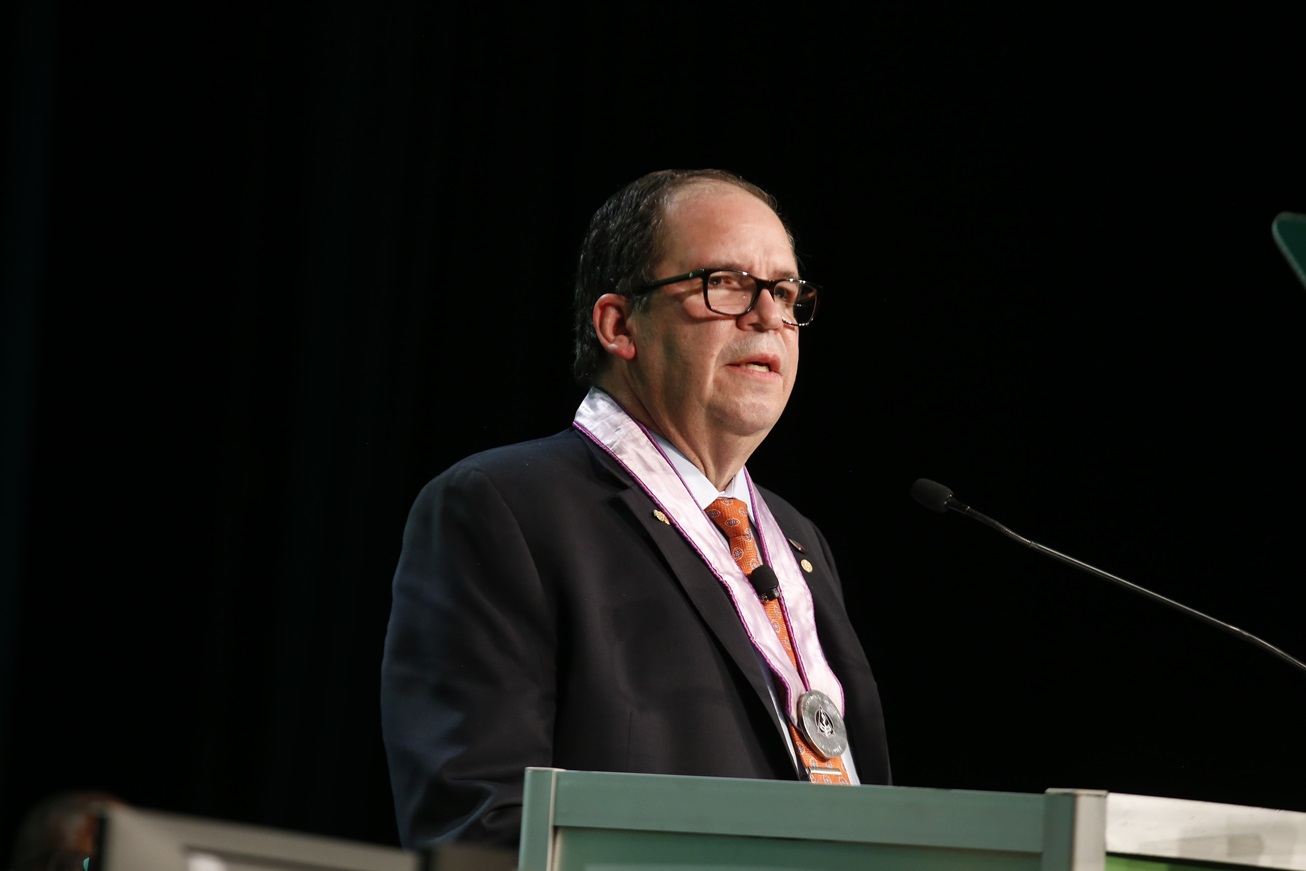
Cesar Sabates is president of the American Dental Association
For UMKC School of Dentistry alum, César Sabatés (DDS ‘87, AEGD ’88), the oral health care field has been a lifelong passion. Now he’s rising even further in the profession. Sabatés has been chosen as the next president of the American Dental Association (ADA), the nation’s largest dental organization, representing 162,000 members.
Sabatés is the 158th president in the organization’s storied history and the first Cuban-American to hold the position. He is a first-generation immigrant, whose family came from Cuba in 1967. In his address to the ADA House of Delegates, he proudly described his family’s pursuit of the American Dream.
“As you may know, I was a child of Castro-era Cuba,” he said. “At seven years old, my family boarded a freedom flight to the United States. My parents sacrificed everything to ensure that their children would have the chance to be free and educated here in the land of opportunities.”
Sabatés, a son of a dentist, was born in Camaguey, Cuba. Although, the junior Sabatés pursued an undergraduate degree in electrical engineering at the University of Miami, the draw of the family business eventually brought him to Kansas City and the UMKC School of Dentistry.
His time at the school continues to guide the care he provides his patients. He credits long-time dentistry faculty member, Dr. John Haynes, who gave him some influential advice that sticks with him some 35 years later.
“He was also a pediatric dentist, and all those years ago he told me, ‘Kids are terrified, so their first visit with you is important. Being rough will traumatize them. Being kind will be influential. Always be kind,’ said Sabatés. “Today, his advice comes to mind every time I meet with a patient of any age—first visit, last visit, and all those in between.”
Sabates has been a long-standing active and influential member of ADA, serving as the 17th District trustee of the ADA Board of Trustees from 2016-2020 and as a delegate in the ADA House of Delegates from 2000-2016. He is also a past president of the Florida Dental Association and South Florida District Dental Association.
As for his plans for the ADA, the compassionate advice Haynes gave resonates throughout. According to Sabates, an important aspect of his presidency is strengthening the group’s professional family as well as making everyone feel welcome in the ADA.
“Dr. Haynes’ straightforward advice on love and compassion for patients has been integral to my philosophy of care,” Sabates said in his ADA address. “His kindness mattered to me, and I can only hope that my kindness has mattered to my patients just the same.”
Jan 27, 2022
Two ceremonies set for Sunday, May 15
Following up on a spectacular and historic spring 2021 commencement at Kauffman Stadium, the University of Missouri-Kansas City will return to the home of the Kansas City Royals for graduation ceremonies for the Class of 2022.
Two ceremonies are scheduled for Sunday, May 15, at 10 a.m. and 2 p.m.
The second consecutive May “Commencement at The K” symbolizes the central and unique role UMKC plays in the Greater Kansas City community, and continues the new tradition of Kansas City’s university celebrating our graduates at iconic Kansas City buildings and sites. The recent December commencement was held indoors at the T-Mobile Center in the heart of downtown.
“Commencement at The K in 2021 was so exciting and successful that it was always going to be our first choice for this year,” said Chancellor Mauli Agrawal. “We are once again so very grateful to John Sherman and the Royals organization for making it possible for us to give our graduates the major-league sendoff celebration they deserve.”
The May 15 event will take place rain or shine, and currently there is no limit on the number of guests per student.
“We’re proud to host and honor the next class of UMKC graduates. We congratulate them and look forward to seeing them become leaders in our community,” said John Sherman, Chairman and CEO of the Royals.
The 10 a.m. ceremony will include graduates from these academic units: Henry W. Bloch School of Management, School of Dentistry, School of Law, School of Medicine, School of Nursing and Health Studies and School of Pharmacy.
The 2 p.m. ceremony will include graduates from these academic units: College of Arts and Sciences, School of Biological and Chemical Sciences, School of Computing and Engineering, Conservatory and School of Education.
Additional details, such as the commencement speaker, will be announced in coming weeks. Please continue to check our commencement website for the most up to date information at our Commencement website.
Jan 27, 2022
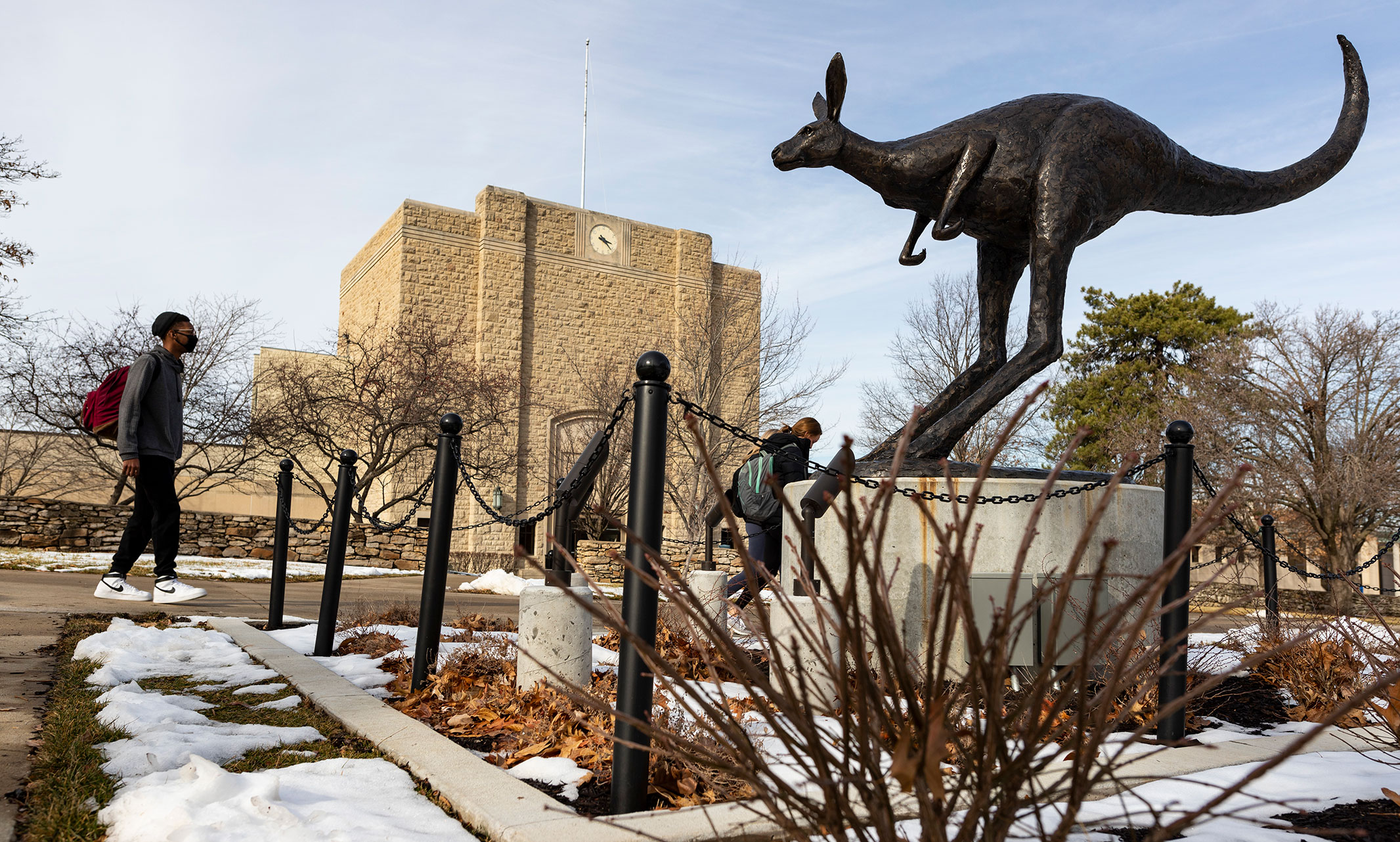
New year, same school pride.
With the holiday break all wrapped up, students make their return to campus for the Spring 2022 semester.
The Roo Welcome events provide the perfect opportunity to catch up with classmates while participating in some ice-cold-cool campus events.
Having a nice set of wheels can help students navigate campus when it’s so cold.
Athletic events for the Roo Welcome include White, Gold and Blue spirit nights for both Men’s and Women’s basketball games.
The Quad looks beautiful, even in the dead of winter.
Students got to learn (or relearn) about student support services at the campus resource fair.
It’s never too early to get organized for the new semester.
Small group study sessions and encouraging mantras are enough warm anyone’s heart.
Our Roos are masked up and ready to catch up with friends this semester.
The start of the semester is a great time to learn new skills (or master old ones!). The Fall in Love with Student Orgs event on Feb. 3 is a great opportunity to find like-minded students!
Jan 26, 2022
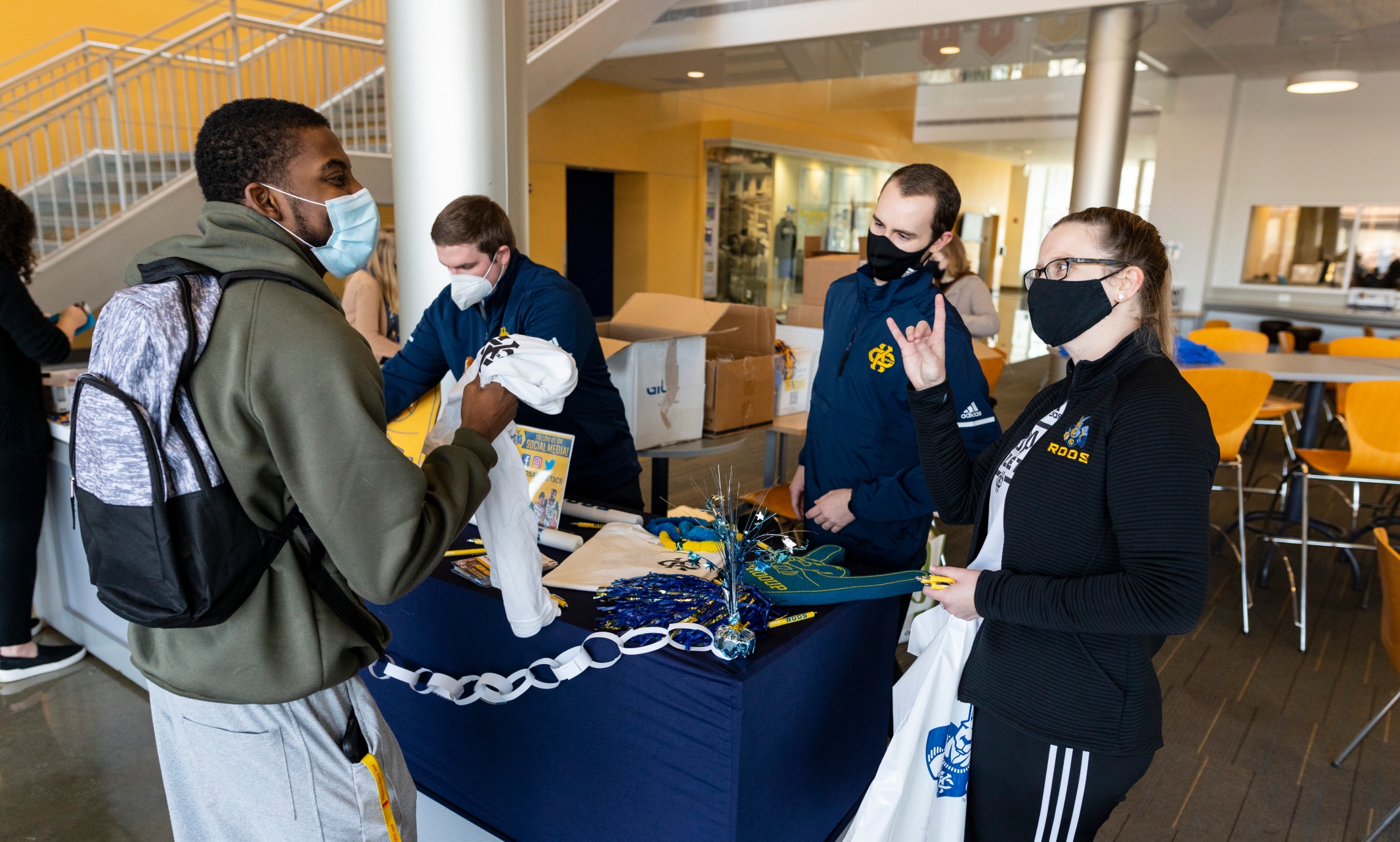
An advisor's encouragement for her students
Welcome back from winter break, Roos!
Here we are at the beginning of a new semester, another one that is starting under less than normal circumstances. Many of us look at the new year and new semester as a fresh start, the “factory reset,” the opportunity to grow and learn, to be better. For a lot of folks, it is a happy and hopeful time. The UMKC faculty and staff are happy to have you back on campus and hopeful that we all have a good semester.
We are also many months into a very weird and stressful time, living through a pandemic. Some of us are struggling, some of us are tired. Guilty, scared, overwhelmed. Doing completely okay, excited to get our first Pizza 51 slice of the semester, excited about our new campus job. As we start a new year and a new semester, know that all of the above and anything else you are feeling is completely valid.
As the semester starts back up and before things get crazy, busy, and occasionally stressful I want to remind you of a few things:
Remember to be as kind to yourselves as you are to the other people in your lives.
We have a lot of smart, driven people on this campus. Smart, driven people do amazing things; they also tend to be a little hard on themselves when things don’t go perfectly. I know many of you have heard me say “there is a difference between the best you can do under perfect circumstances and the best you can do under circumstances as they are.” Make sure you know the difference and are judging yourself accordingly.
Know there are people and resources available to help you.
Your academic advisor, the folks at Counseling Services, Academic Support and Mentoring and so many people on this campus are ready to help you succeed. We are all here so you don’t have to carry your burdens alone and so you don’t have to celebrate your triumphs alone (high fiving yourself just isn’t as much fun).
We're happy you're here! Make sure to find ways to connect.
I am happy you all are back on campus (it is so quiet when you are not here) and am hopeful to see what the spring brings us. And whether you’re a new or seasoned Roo, there’s always someone new and interesting to meet in class, at an event or through one of the many student organizations.
So for now, bundle up (seriously, it is so cold — hats and mittens folks, hats and mittens!), take a deep breath (or a few), and enjoy as many moments as you can of the weirdest college experience anyone has had in a while!
Learn more about the UMKC Honors Program
Jan 26, 2022
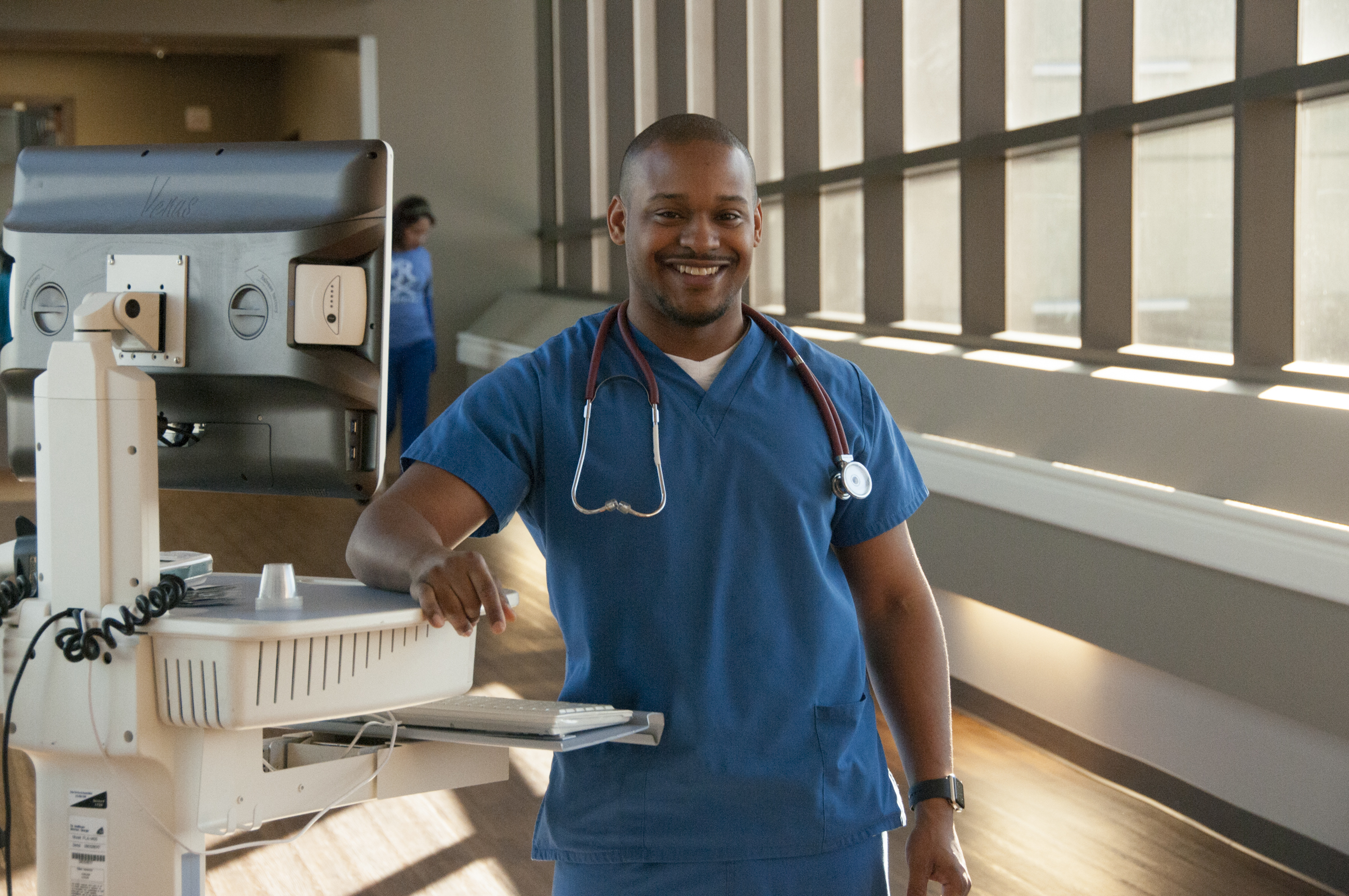
U.S. News & World Report ranks online graduate programs
The University of Missouri-Kansas City School of Nursing and Health Studies is ranked in the Top 50 of the nation’s best online graduate nursing programs for 2022 by U.S. News & World Report. It is the 10th year in a row the program has earned the top ranking.
The UMKC School of Health Studies is proud of its online Master of Science in Nursing (MSN) program as one of the best in the nation, said Joy Roberts, interim dean.
"Even while facing wave after wave of the COVID pandemic, our MSN nurse programs continued to educate and graduate top quality nurse practitioners and nurse educators,” said Roberts. “The desperate need for high-quality online nursing education continues to be highlighted by the pandemic.”
Since 2002, nurses have invested in their future through the distance learning graduate programs offered by the UMKC School of Nursing and Health Studies. The school was an early pioneer in online graduate programs, preparing busy professionals for the evolving and dynamic challenges in present and future health care environments. Through high-quality, convenient programs, the school enables nurses to become leaders and active partners in improving health outcomes.
According to Roberts, the online classroom environment for their students was critical in their recent graduates having an immediate impact on the health care system.
“Because our MSN programs are online, our May and December ‘21 MSN graduates were able to continue working as registered nurses, supporting the members of their communities and states, while still advancing their education,” said Roberts. “Upon graduation these new nurse practitioners and nurse educators were able to move their new, advanced skills right into the workforce without skipping a beat.”
Students in these programs participate in online discussions just as if they were present in the classroom. Technology offers two-way communication in real time via multiple modes. Students also receive on-site learning through summer institutes where they attend clinical training or dissertation work sessions as well as deliver presentations to classmates and faculty.
UMKC offers a variety of online graduate nursing tracks, including Master of Science in Nursing (MSN) and other options:
Adult-Gerontology Primary Care Nurse Practitioner (AGNP)
Family Nurse Practitioner (FNP)
Neonatal Nurse Practitioner (NNP)
Nurse Educator (NE)
Pediatric Nurse Practitioner (PNP) Primary Care and Acute-Care (AC PNP)
Psychiatric Mental Health Nurse Practitioner (PMHNP)
Women’s Health Nurse Practitioner (WHNP)
Ph.D.
Doctor of Nursing Practice (DNP)
Jan 25, 2022
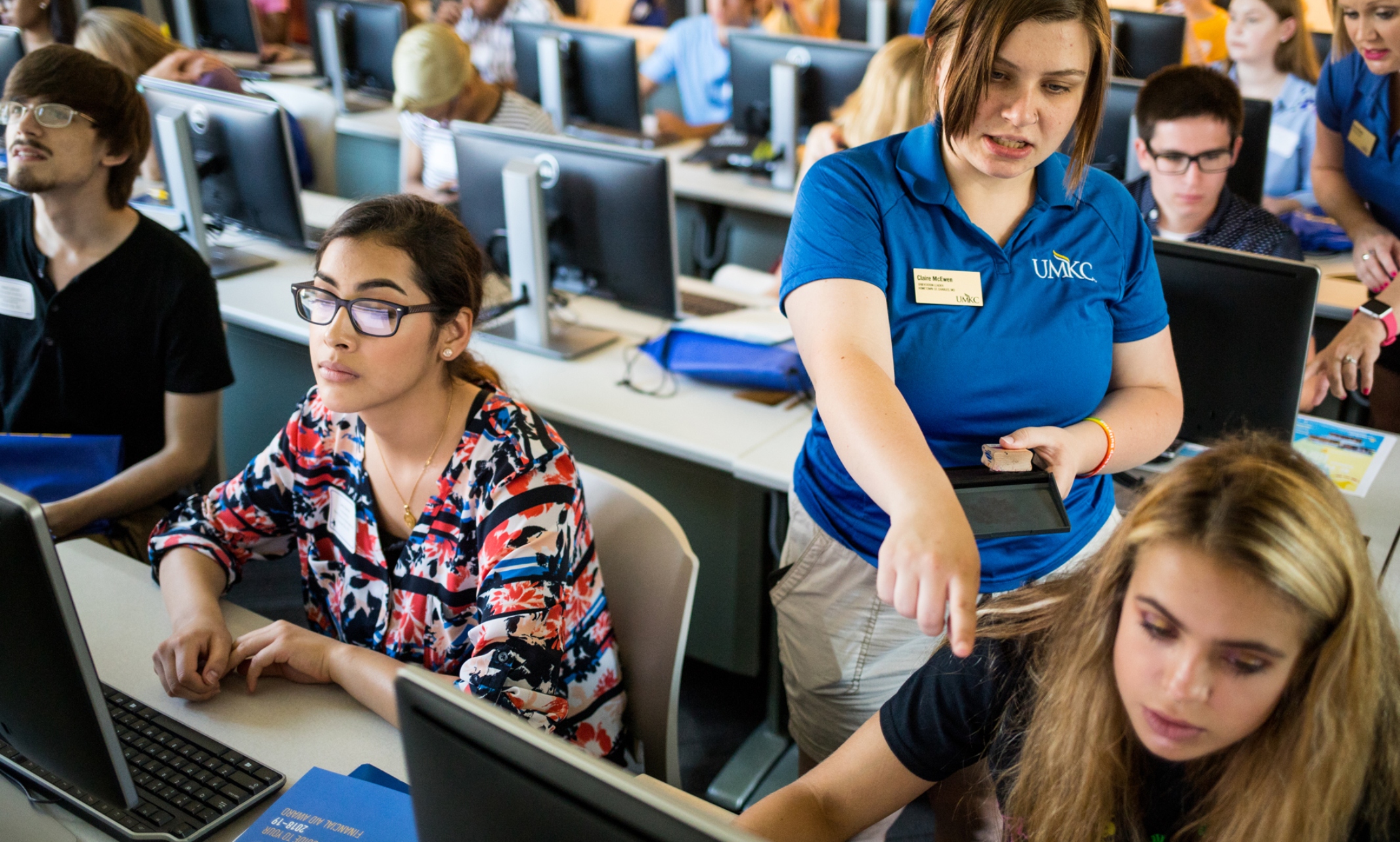
The partnership with the women's college expands access to in-demand degree fields.
The University of Missouri-Kansas City and Cottey College, a women's college in Nevada, Missouri, have partnered together to offer Cottey students an easy transfer into the UMKC School of Computing and Engineering.
Cottey, a private liberal arts college, offers associate degrees and a handful of bachelor’s degrees.
Marjory Eisenman, the Assistant Dean of Student Affairs for the School of Computing and Engineering, said Cottey reached out years ago about the opportunity for a transfer program for students who have completed their Associate of Science at Cottey and want to continue their education.
“Cottey students can now follow transfer guides to ensure they’re taking the right classes at Cottey to prepare for transfer to UMKC. Cottey students who complete the Associate of Science degree, or Associate of Arts degree, at Cottey now meet the general education requirements for a UMKC degree,” Eisenman said. “This partnership also creates the opportunity for students to qualify for the Chancellor’s Transfer Scholarship or Dean’s International Scholar Award.”
Peter Hyland, Associate Professor of Physics and Astronomy at Cottey and one of the partnership's organizers, said the partnership will allow Cottey students, "even more options for where their education and careers can take them."
"This offers Cottey students an opportunity to take advantage of the impressive resources and knowledge that UMKC has, while they create their own incredible futures. The high contact at UMKC that students have with future employers via internships is particularly exciting," Hyland said.
Eisenman said the partnership will help UMKC in recruiting more women students in “male-dominated fields.”
“Kansas City is a great place to earn an engineering or computing science degree, so this is the best of both worlds for Cottey students –to start their education at a small, women’s college and graduate from a strong engineering or computer science program in an urban location,” Eisenman said.
The partnership went into effect at the beginning of the Spring 2022 semester.
Jan 20, 2022
Team Roc, joined by the nonprofit Midwest Innocence Project, said there is enough evidence of systemic police misconduct in the department to merit...
Ken Novak, a professor of criminal justice and criminology at the University of Missouri-Kansas City, said it is typically in the best interest of cities where the Justice Department conducts pattern or practice reviews to engage and to develop policies and training for corrective behavior.
The federal government can take police departments or cities to court to enforce so-called consent decrees that lay out overhauls in policing practices, but "whether there is sufficient evidence of problematic patterns and practices or whether Kansas City is any closer to a consent decree than it was several months ago" remains unclear, Novak said.
You can read the full story on NBC News.
Jan 20, 2022
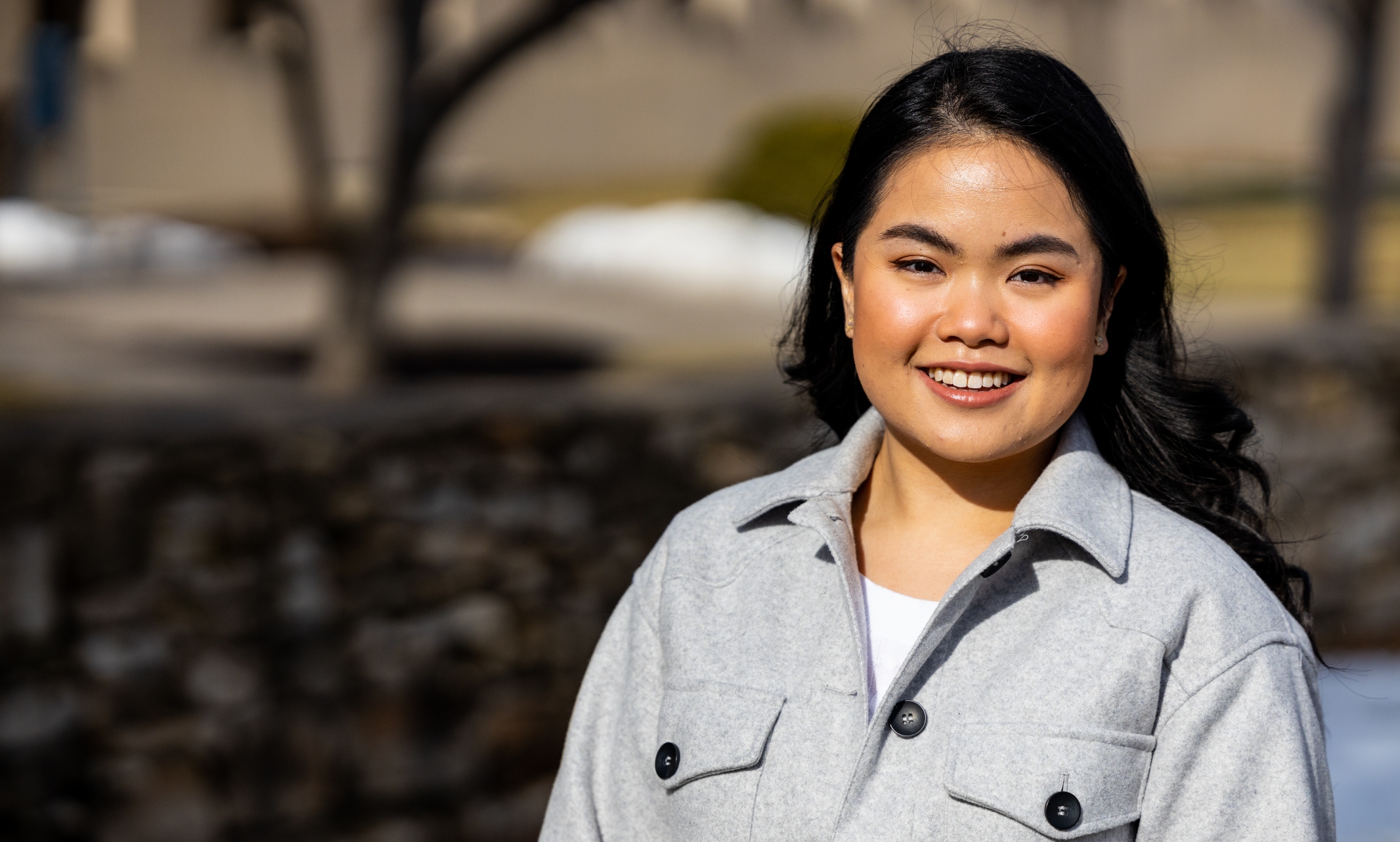
Stephanie Ho chose her field of study to make a difference
Roos don’t just dream, they do. Our students turn ideas into action every day. Get to know our people and you’ll know what UMKC is all about.
Stephanie HoAnticipated graduation year: May 2023UMKC degree program: Bachelor of Business Administration (Emphasis in Management)Hometown: Ho Chi Minh City, Vietnam
Stephanie Ho came to UMKC because of the diversity of the student body, and says that while students have different backgrounds, beliefs and interests, she’s found they come together to share those experiences and grow together.
“Living in a diverse community allows me to learn from people who come from different parts of the world who have new and brilliant ideas, multiple perspectives, lifestyles and cultures,” she says.
Stephanie decided to study business at the Henry W. Bloch School of Management to receive valuable experience in developing professional skills. While the program is sometimes challenging, Stephanie knows she is building skills that will allow her to approach and solve hands-on situations once she begins her career.
“Our project assignments require us to coordinate and communicate effectively and professionally with other teammates and develop solutions and recommendations,” she says. “The Bloch School is providing me opportunities to grow, develop my career path and expand and nurture my network.”
Outside academics, Stephanie is active in the international community on campus. She is the vice president of chapter operations for Delta Sigma PI, an international business fraternity and is an international student ambassador, advocating for a better experience for the international community through education and cultural events.
“The Bloch School is providing me with opportunities to grow, but also to develop my career path and expand and nurture my network. The programs offered here allow me to approach and solve hands-on situations which can be utilized later in my career.” — Stephanie Ho
In addition, she serves as the International Roo organization public relations officer.
“My mission is to embrace different cultures, increase awareness of cultural aspects in communication and interactions among students, but also integrate UMKC international students to the local community,” Stephanie says.
Being involved in leadership positions allows her to fulfill her passion for supporting international students and lets her get to know students coming from different parts of the world and learn about their cultures and norms. In addition, she sees professional advantages to these experiences.
“Building these skills through real-world problem solving and connections accelerates my career path. This experience prepares me for global opportunities with interpersonal and management skills to work in an international environment.”
Ho says studying abroad has changed her perspective on herself and her worldview, and has given her the opportunity to grow.
“Being at UMKC allowed me to discover strengths, interests and skills that I believed I was incapable of before.”
Sharing her experiences through her work as an International Student Ambassador with potential and new international students is satisfying.
“I am passionate about supporting and helping others, especially international students,” she says. “Being an international student ambassador, I represent the international community to advocate for better experience and unite students from different cultures and backgrounds through education and cultural exchange events.
I want to help students succeed and have a great experience at UMKC – academically and socially!”
Jan 20, 2022
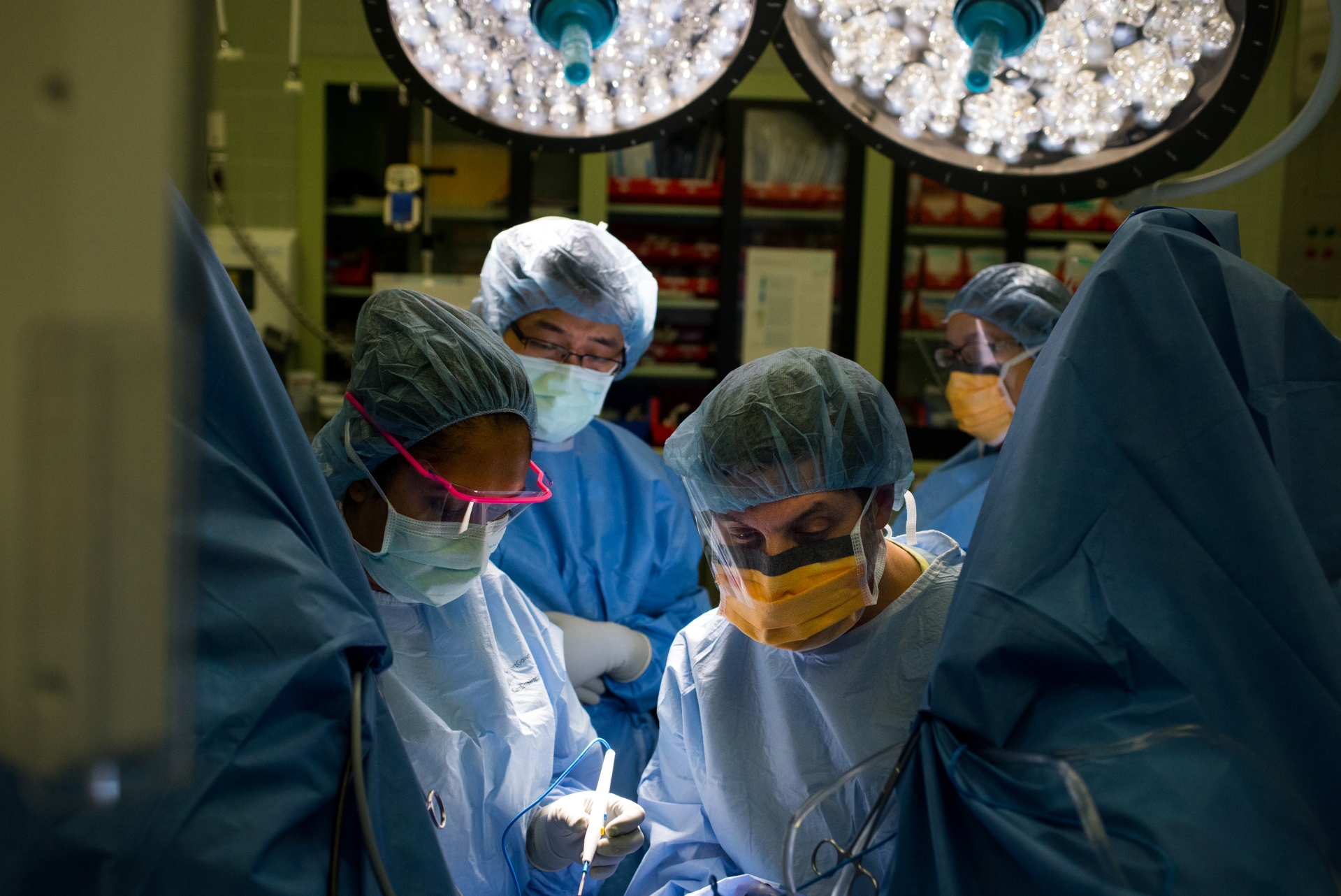
Faculty donation leads to collaboration between professors in the School of Medicine and UMKC Conservatory to yield safer surgeries
Medicine and music aren’t an obvious pair, but in a discussion between colleagues at the UMKC Surgical Innovations Lab, experts in each field realized an interesting link between the two topics.
Gary Sutkin, M.D., professor of surgery and associate dean of women’s health at the University of Missouri-Kansas City, has focused much of his research on surgical safety and mitigating errors in the operating room. Today he’s working to expand that research by teaming up with his colleague – and composer – Paul Rudy, MM, DMA, Curators’ Distinguished Professor and coordinator of composition at the UMKC Conservatory, to study the effects of sound on patient safety in the operating room.
Studies have shown that reducing hospital noise levels has a direct impact on improving patient safety, but in operating rooms, in addition to conversations among the surgical team, the equipment required for surgeries makes noise. Though some sounds are necessary -- such as the noise of the oxygen saturation monitor, which creates the rapid high-pitched beep people may recognize from medical shows on television -- the noise created by people in the room often is not.
Gary Sutkin, M.D.
Rudy and Sutkin are working together to develop training and surgical methods that reduce some of the noise and related risk.
“People have been trying to solve the problem of miscommunication in the operating room for 20 years and there hasn’t been any meaningful progress,” Sutkin says. “What I know is that we need brains other than those of researchers, surgeons and nurses to study the problem.”
Sutkin’s interest in collaborating with people who have expertise in areas outside of medicine, coupled with Rudy’s curiosity and ability to hear the operating room with fresh ears is already leading to interesting results.
By observing surgeries, Rudy recognized that surgeons’ work entails very fine motor movements and unwavering focus that requires them to keep their heads down. He also observed other members of the surgical team are focused on their own tasks and responsibilities.
“People have been trying to solve the problem of miscommunication in the operating room for 20 years and there hasn’t been any meaningful progress. What I know is that we need brains other than those of researchers, surgeons and nurses to study the problem.” — Gary Sutkin, M.D.
“No one’s looking at the surgeon’s body language to figure out what’s needed,” Rudy says. “For example, the anesthesiologist is reading a screen. Much of the communication [the team receives] is coming through sound.”
But despite the importance of verbal communication, he observed a lot of the noise people make in the operating room is not critical to the surgery.
“Everyone is doing something necessary,” Rudy says. “But sometimes someone has to unpackage something in a hurry, and they can’t throw it in the trash can, so it ends up on the floor. Or someone picks up that big wad of plastic to get it out of the way and you can’t hear anything else over the noise. This has to be done - someone could trip over it - but if the surgeon needs to communicate something important to the anesthesiologist at that moment, the noise will mask the communication.”
Because of Rudy’s background as a musician, the amount of residual noise in the operating room came as a surprise.
“In rehearsals and in performances, no one makes any extra sound anywhere for any reason,” Rudy says. “Musicians carefully turn pages of sheet music so that the binder doesn't make any noise.”
He’s aware of the differences between the disciplines, but still notes there is room for improvement when it comes to eliminating some unnecessary noise in operating rooms. Rudy’s research has identified solutions to common disruptions that OR teams may not even notice.
“For example, in the operating room there are really heavy metal step stools,” Rudy says. “People tend to scoot them across the floor with their feet and it makes this really intense grating sound that may mask any kind of communication that is going on in the room.”
Paul Rudy, Ph.D. leading sound meditation
Rudy understands that the medical professionals in the operating room move the stools with their feet because they need to keep their hands sterile, but he wonders if manufacturers are aware of the ramifications of production decisions.
“This research could lead to that awareness, and maybe even influence manufacturing standards.”
Observations like this that lead to opportunity for innovation and increased safety is at the heart of the mission of Surgilab and are why Sutkin wants colleagues like Rudy in the operating room.
“There’s value in having insight from brains other than researchers, surgeons and nurses. Paul brings a wealth of knowledge and creativity. And, surprisingly, to be honest, a scientific mind that contributes very well with this research.”
A gift from UMKC professor emerita, Elizabeth Noble, Ph.D., helped fund this research collaboration. Noble supports research that reaches across different fields of study because she thinks it makes the outcomes more reliable and more transferable.
“Today most researchers would agree that cross-disciplinary research is valuable,” Noble says. “It stimulates new ways of thinking about different issues, especially when we’re talking about music and medicine which are not always assumed to go together.”
“This research is exactly what I hoped would occur. I’m very happy that Dr. Rudy has had this kind of success,” she added.
Jan 19, 2022
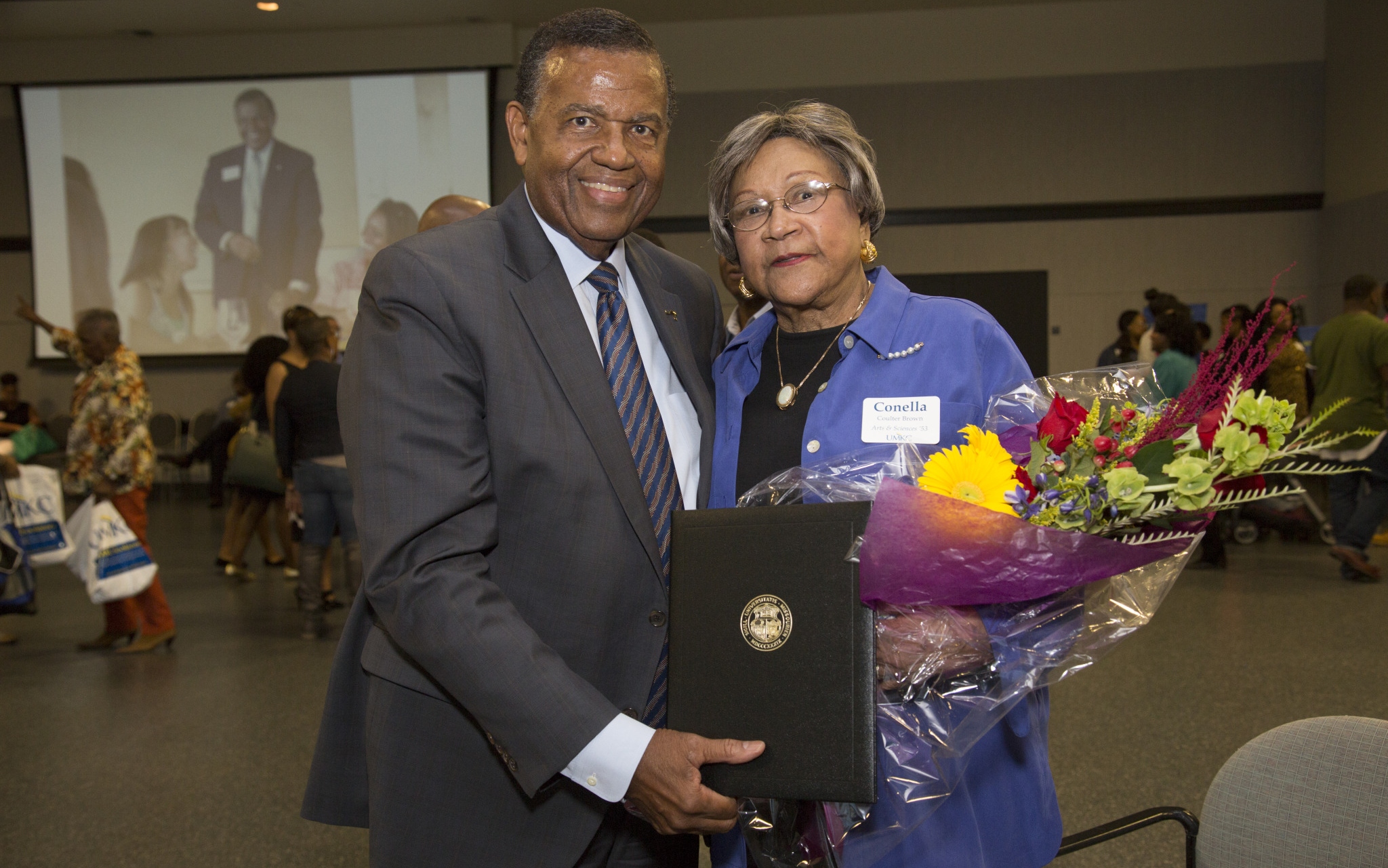
Conella Coulter Brown was one of the first Black students to graduate from Kansas City’s university
Conella Coulter Brown (1925-2021) was one of the first Black students to integrate the newly desegregated University of Kansas City, the precursor to the University of Missouri — Kansas City. She applied after reading in a story in the Kansas City Call that UKC had opened admission to students of color.
While Coulter Brown did not feel as if high school had prepared her for college, she persevered and in 1949 was accepted by UKC. In an interview with the UMKC Alumni Association in 2015, she reminisced about her time at the university and noted that she felt accepted by her peers and ran for secretary of the student council during her time as a student.
“I campaigned all over the university. I had a microphone and talked in the cafeteria. I talked everywhere. I was elected the Liberal Arts Treasurer by a 90% white student body."
In 1953 she was one of the first Black students to graduate from UKC, and the first person in her family to graduate from college.
“I walked across that stage and received that degree, and it was a joy. I felt like I was somebody.”
Following graduation Coulter Brown applied but wasn’t hired to teach in schools in Kansas City because of her race. She moved to Cleveland, Ohio, where she had a long and successful career in education, retiring in 1980 as assistant superintendent of the Cleveland Public Schools. She was the only Black woman serving as an assistant superintendent of a major school district in Ohio at the time.
UMKC awarded Coulter Brown an UMKC Alumni Achievement Award in 1964, the same year she became an assistant principal. In 2015, UMKC Chancellor Emeritus Leo Morton recognized Brown as a trailblazer and awarded her a UMKC diploma, honoring her as “an original Roo.”
“When we talk about trailblazers and thanking those who paved the way – you are at the top of our list,” Morton said at the ceremony.
Coulter Brown returned to Kansas City after her retirement and founded the Student Aid Mentoring Ministry through the Community fellowship Church of Jesus Christ to help students of color overcome challenges.
Jan 19, 2022
Six proposals approved for total of $170,000
The UMKC Entrepreneurship Innovation Grant Program announced its second round of grant recipients in late December. Six proposals were approved in the second round of funding for a total of approximately $170,000 worth of one-year grants.
Projects submitted by UMKC students, faculty and staff will be considered for these grants, which come with entrepreneurial support programs in addition to the financing. The Entrepreneurship Innovation Grant Program is funded by the Kauffman Foundation and is a joint effort by the UMKC Innovation Center, the Regnier Institute at the UMKC Bloch School of Management and the UMKC School of Law to increase entrepreneurial activities throughout the university.
These grants support a variety of initiatives in entrepreneurship including curriculum development, technology commercialization, school and department initiatives, community service, engagement and ecosystem building.
These projects received grants in the second round:
Arts Entrepreneurship Residency
The grant provides funding for a two-day arts entrepreneurship residency with Jonathan Kuuskoski, director of the University of Michigan School of Music, Theatre, and Dance’s EXCEL Lab. The residency title is From Portfolios to Platforms: Developing, Launching and Sustaining Arts Projects. Four sequential workshops will prime students to embrace best practices from the realms of entrepreneurship, leadership and management training to enhance their own creative pursuits. Interactive, outcome-oriented sessions will draw from methodologies such as Lean Startup and Design Thinking Process to help students craft creative projects from ideation to funding.
Commercialization of SGM for the Destructions of PFAS
The objective of this project is to scale and commercialize a novel, patent-pending UMKC-grown technology for destruction and complete mineralization of PER and polyfluoroalkyl substances (PFAS). It will demonstrate proof of concept to potential investors through creation of a market-ready reactor to meet remedial regulation for the PFAS market.
Entrepreneurial Legal Services Pro Bono Panel
The Entrepreneurial Legal Services and Intellectual Property Clinic will establish a regional pro bono panel of attorneys to assist with Community Services Engagement and Ecosystem Building by providing relevant and timely business information, counseling and management, and legal matters services for low-income aspiring and existing business owners in the Kansas City region.
Pharmacy Innovation Challenge Program
The grant will fund creation of an integrated experience for graduate Ph.D. programs and professional Pharm.D. students within the UMKC School of Pharmacy to engage with the entrepreneurial environment at UMKC and within the Kansas City region. The goal is to create a learning environment that integrates research, entrepreneurial thinking, diversity and engagement with stakeholders outside of UMKC. Students will learn about the entrepreneurial environment in Kansas City, and how to create a business plan for an enterprise in pharmaceutical sciences and/or pharmacy in fields such as precision medicine and digital health.
Development Smart Agricultural Entrepreneurship (SAgE) Program for Sustainable Urban Food Ecosystem
The grant to the UMKC Center for Applied Environmental Research (CAER) will fund development of the Smart Agricultural Entrepreneurship (SAgE) Program to support the development of sustainable urban food ecosystems in the Kansas City metro area. The mission of SAgE is to promote agricultural entrepreneurs (agripreneurs) in urban areas to succeed in the business of farming, which will add value to the quality of life for the agripreneur and their surrounding community.
Summer Research Opportunities for Students of Color
The Office of Multicultural Student Affairs and the Office of Undergraduate Research and Creative Scholarship will receive funding to increase the participation of students of color who are interested in entrepreneurship in UMKC’s Summer Undergraduate Research Opportunities (SUROP) program.
Jan 19, 2022
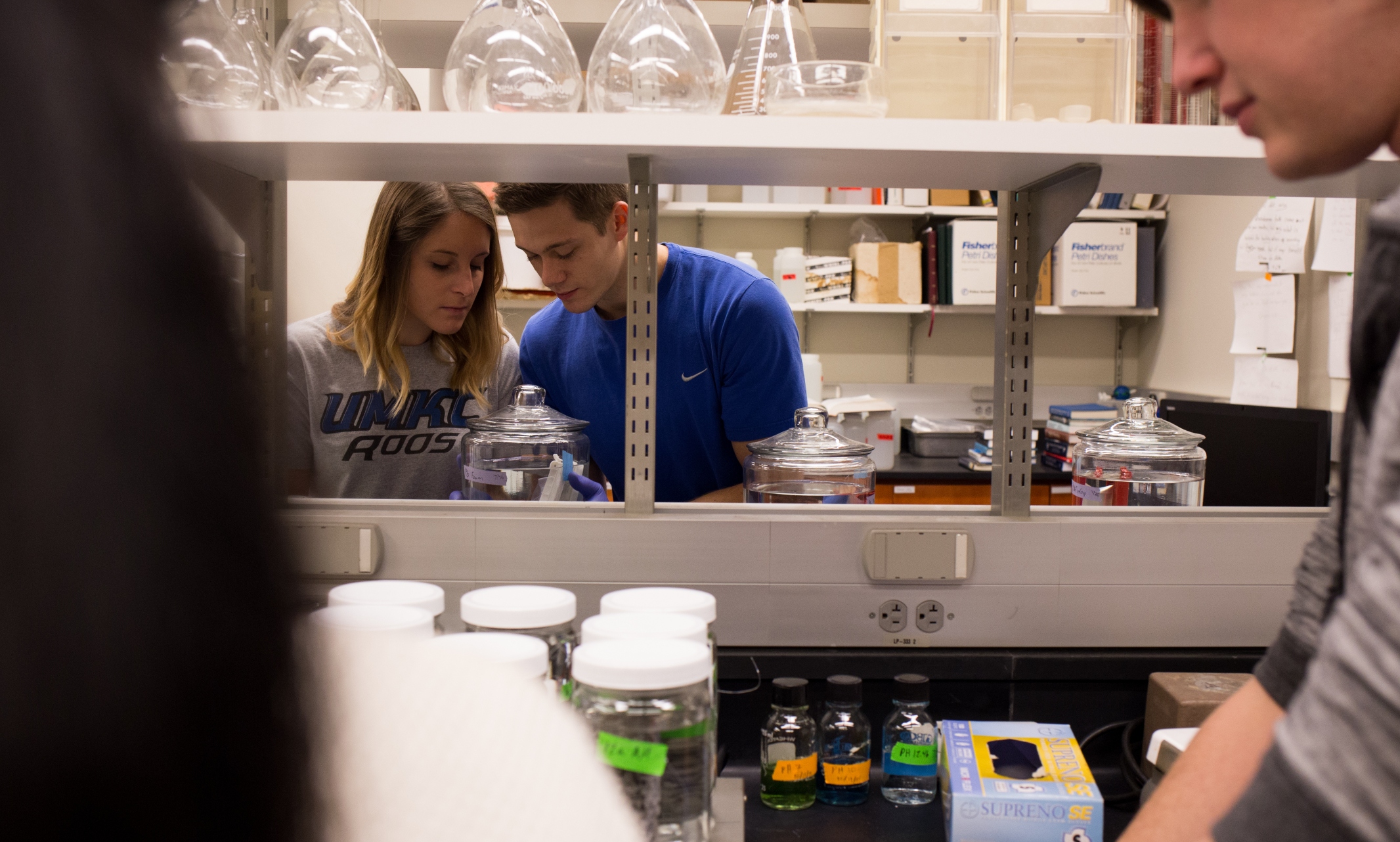
Students have the option to earn bachelor's and master's degrees through this exciting new program
The University of Missouri-Kansas City will offer two new degree options - Bachelor of Science and Master of Science in Biomedical Engineering - beginning in the Fall of 2023.
The Biomedical Engineering program will combine biological and chemical science with multiple fields of engineering, including mechanical and electrical. The program is designed to provide an extensive curriculum that prepares graduates for careers in engineering, health care, medicine, dentistry, biotechnology, bioinformatic and pharmaceutical fields, said School of Computing and Engineering Dean Kevin Truman.
“UMKC has already established a long history of excellence in the fields of health, life and biological sciences. Now combined with the rapidly growing fields of computing and engineering, these degrees will provide a new generation of students the opportunity to thrive,” Truman said.
While the School of Computing and Engineering will be home to the degree program, the curriculum will be taught by professors from the multiple schools and departments on the UMKC campus, including engineering, medicine, pharmacy, dentistry, nursing and biological sciences. Led by educators from diverse fields of study, this program will expose students to a wealth of knowledge, creating a well-rounded and robust educational experience for the students.
The University of Missouri System Board of Curators approved the two new degree programs in December 2021. These newest additions to UMKC’s curriculum are backed by community partners who are invested in UMKC and understand the impact the university has on preparing students to enter the workforce. University Health, Children’s Mercy, Kansas City Animal Health Corridor, RBC Medical Innovations and Mid America Heart Institute submitted letters expressing support for the new degree programs for consideration by the Board.
Students enrolled in the Biomedical Engineering programs may take some courses in the state-of-the-art Robert W. Plaster Free Enterprise and Research Center. The university debuted the $32 Million high-tech research center in the Fall of 2021. The five-story building features 11 research labs including a 3D printing lab and fabrication studio, a two-story drone flight-testing bay and an FAA-approved flight simulator. All throughout the building students can use cutting-edge technology to enhance their studies, including high-performance computing and analytics equipment and $3 million worth of augmented and virtual reality equipment.
"The Plaster Center has all but ensured that UMKC will remain the number one ranked school for computing and engineering in Kansas City for years to come," said Truman.
Both the new degree options and unveiling of the Plaster Free Enterprise and Research Center have made for an exciting year for the UMKC School of Computing and Engineering. The new degrees represent progress in the university’s strategic plan to reimagine the future in innovative and creative ways that will position the university for excellence for years to come.
Jan 18, 2022
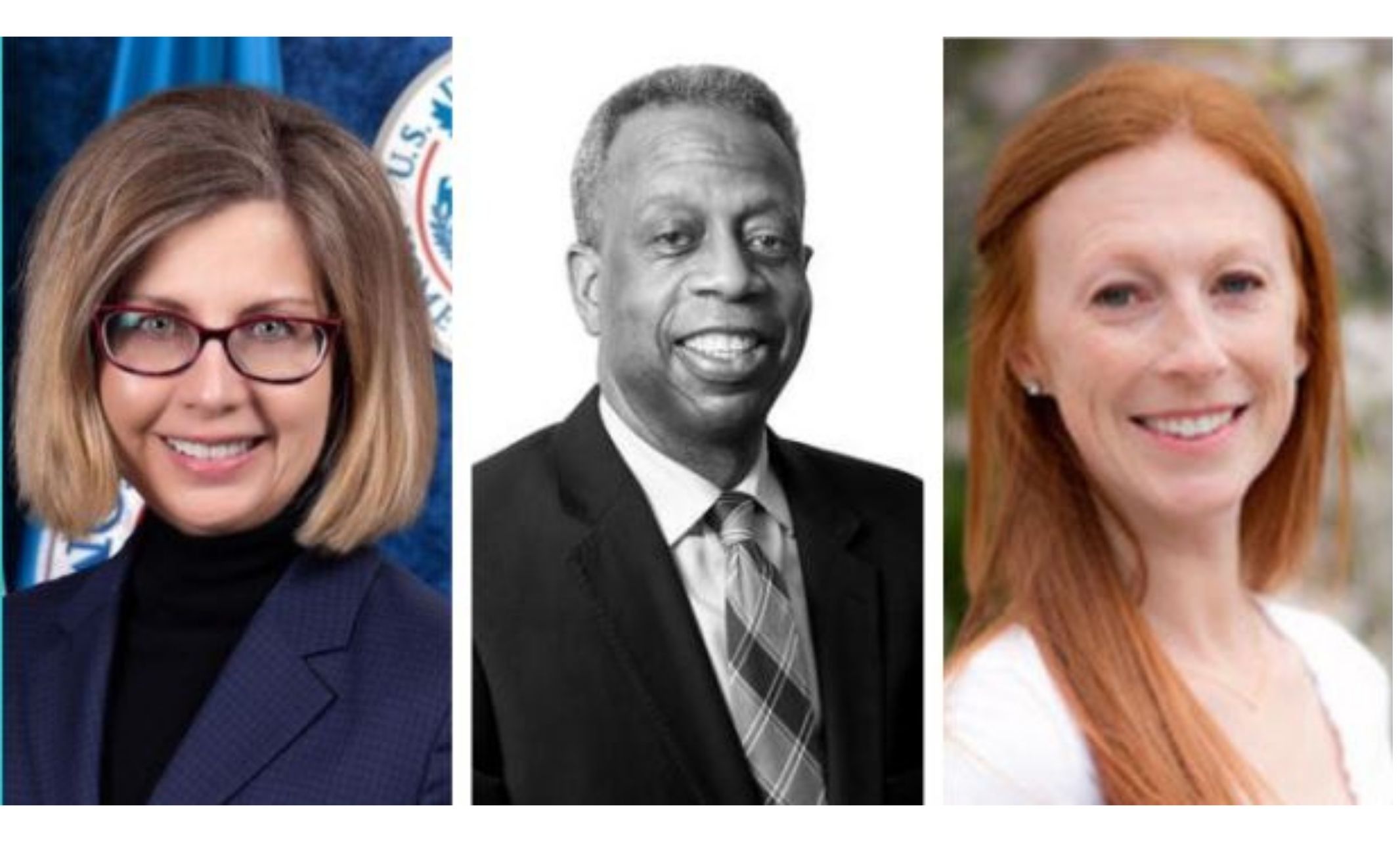
Spillars, Clayborn, McCollister will lead regional efforts in emergency management, housing and urban Development and environmental protection
Three UMKC School of Law Alumnae have been appointed by President Biden in key leadership roles as Regional Administrators for Region 7, which serves Iowa, Kansas, Missouri, Nebraska, and nine tribal nations.
Andrea Spillars, Meg McCollister and Ulysses “Deke” Clayborn have been selected for positions in the Federal Emergency Management Agency (FEMA), the Environmental Protection Agency (EPA) and The Department of Housing and Urban Development (HUD), respectively.
Spillars (J.D. '89) has been appointed as the Regional Administrator for FEMA Region 7. She had a lead role in the Missouri state response to natural disasters as the Deputy Director for the Department of Public Safety, including the devasting Joplin tornado in 2011, the prolonged flooding in 2011, drought relief efforts in 2012 and the historic ice storms in 2009.
McCollister (J.D. '11) has been appointed the Regional Administrator for EPA Region 7. She will lead the implementation of the administration's efforts to address environmental justice, climate change, and building resilience for regional industries.
President Joe Biden appointed Ulysses “Deke” Clayborn (JD ’81) to serve as HUD Regional Administrator for region 7. Ulysses Clayborn is currently the managing member of Clayborn & Associates, LLC, a law firm located in Kansas City, Missouri whose practice is focused in the real estate development area. Clayborn has experience with projects financed with funds from multiple sources, including multifamily revenue bonds, low-income housing tax credits (“LIHTC”) and historic tax credits. He has also provided legal services to clients utilizing HUD financing tools and served as counsel on one of the first complete portfolio conversion RAD transactions in Missouri. Prior to forming Clayborn & Associates, he served as General Counsel to the Missouri Housing Development Commission (“MHDC”), the state’s housing finance agency.
Read the full announcement on the White House Briefing Room.
Jan 07, 2022

Here’s how to give
While the UMKC campus is closed during Winter Break, it’s still easy to make a year-end gift by observing the following guidelines.
UMKC offices will be closed Friday, Dec. 24 through Friday, Dec. 31. All gifts must hit UMKC Foundation accounts by Dec. 31 to receive tax credit for the 2021 calendar year. Checks and cash need to be postmarked on or before Dec. 31.
Credit card and stock gifts must hit the UMKC Foundation accounts by Dec. 31 to receive tax-credit for the 2021 calendar year. Checks and cash need to be postmarked on or before Dec. 31
The date UMKC receives and processes checks and cash from the mail has NO impact on a donor’s taxable year contributions. The “gift date” for the IRS is the date the donor relinquished control, not the date the gift is processed.
Availability and Contacts
The Office of Gift Processing will be available Thursday, Dec. 30 from 8 a.m. to noon to accept year-end gifts. The Office of Gift Processing will be closed on December 31 through the remainder of winter break and will re-open with regular business hours on Monday, Jan. 4.
The UMKC Foundation Office will be closed during winter break. Should you have any inquiries during that time, please call 816-235-5778 and someone will return your call.
For any stock gifts or wire transfers, please contact UMKC Foundation Accounting at umkcfoundationaccouting@umkc.edu.
Inquiries about all other year-end gifts can be directed to Sara Hampton at 816-235-5329 or via email to umkcgiftprocessing@umkc.edu. The Office of Gift Processing will also be taking calls at 816-235-1566 during the office hours listed above.
Gift Timing
Checks must be in an envelope postmarked prior to Dec. 31, 2021 to be credited in the 2021 tax year. If the envelope received is postmarked after Dec. 31, it will be counted as a 2022 gift. Donors should send their checks to the address below:
UMKC Office of Gift Processing 112 Administrative Center 5115 Oak Street Kansas City, MO 64112
Checks dated prior to Dec. 31, along with postmarked envelopes, should be received in the Office of Gift Processing on or before Friday, Jan. 7, 2021. Gifts received after that point will not be automatically included in processing for the annual tax receipt.
For stock gifts or wire transfers, please contact Tracie Rodriquez at tar9pn@umkc.edu for the transfer form and DTC instructions. Stock gifts must be received into the account on or before Dec. 31 in order to be reflected in 2021 tax period, per the IRS.
In order to liquidate the stock gift, it is required to provide the donor’s name, number of shares, security, expected date of transfer and area for where the gift is intended. This information can be completed on the transfer form or sent via email. Stock gifts will not be liquidated until confirmation of this information is received.
Mutual funds take an additional 3-5+ business days before posting to our account. Please advise your donors to have their brokers initiate any mutual fund transfers no later than Dec. 21. Regular equity stock takes 24 hours to post to our account.
Credit card transactions must be received by the Office of Gift Processing by 5 p.m. Dec. 31 to be reflected as a year-end gift. Credit cards may be called into the Office of Gift Processing on Dec. 30 from 10 am to 2 pm at 816-235-1566 or the form may be hand-delivered. On December 31, credit cards can ONLY be called in to 816-235-5329.
Credit card gifts may be made online through the UMKC Foundation website until midnight on Dec. 31 to be reflected as a 2021 gift. Any online credit card gifts received after midnight Dec. 31 will be dated in January.
Gifts received after hours may be deposited in the night deposit box located beside the Cashiers Office at the Administration Center lobby and will be processed the following business day. Credit card gifts received through the lockbox will be dated the following business day. Credit card forms dropped off on December 30 after 2 PM will not be processed until January 3, 2022.
Dec 08, 2021
